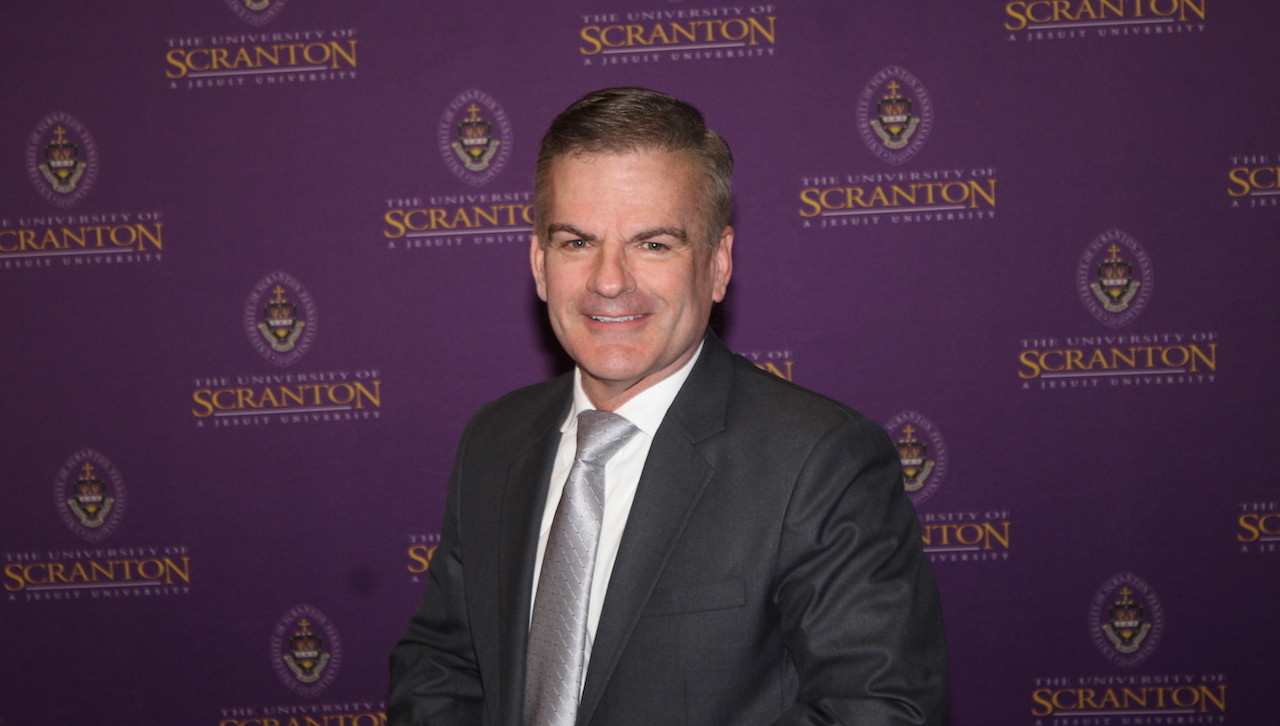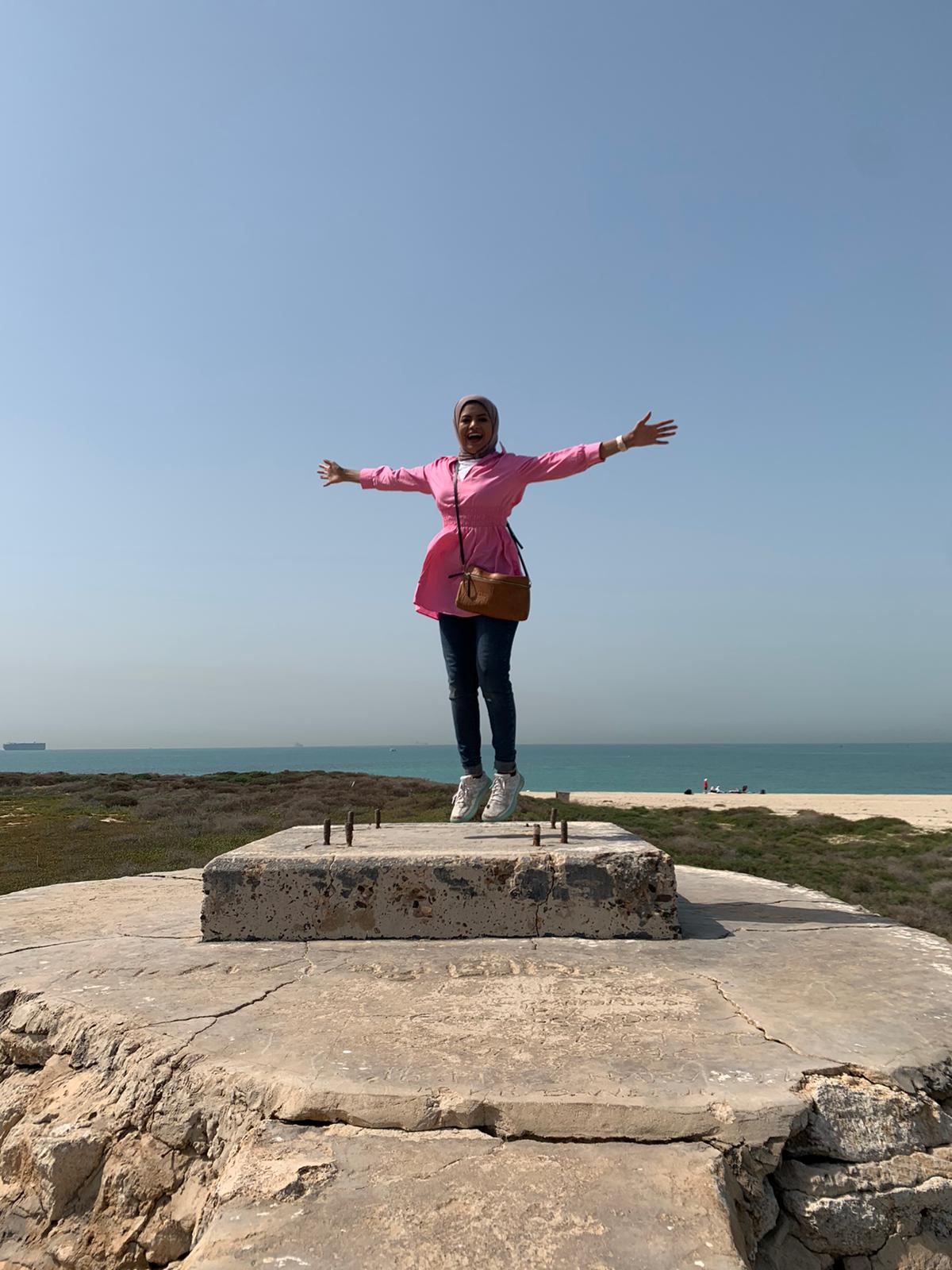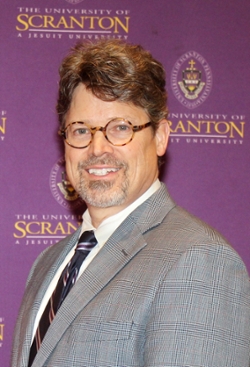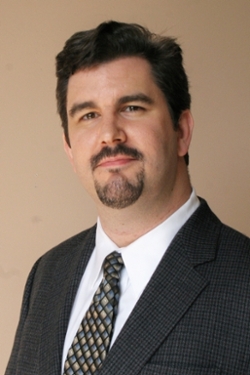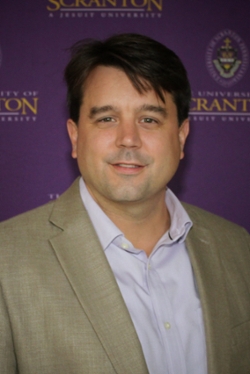Faculty Archive
-
02/18/2026
John C. Norcross, Ph.D., ABPP, distinguished professor of psychology at The University of Scranton, ranks among the top 0.05% of scholars worldwide for his career contributions, according to the analytics platform ScholarGPS.
Dr. Norcross ranks fifth in the Psychotherapy-Lifetime category, as his peers in the top 10 include educators from Harvard University, Northwestern University, Vanderbilt University, Yale University and other leading institutions of higher learning.
ScholarGPS’ ranking methodology was developed on “simplicity, transparency and fairness,” it said, and it ranks authors on purely quantitative data that assesses their productivity, impact and quality. Dr. Norcross has authored more than 400 publications and has written or co-written 22 books. According to his ScholarGPS profile page, Dr. Norcross' work has been cited a predicted nearly 28,000 times.
A graduate of Rutgers University, where he earned a bachelor’s degree, and the University of Rhode Island, where he earned master’s and doctoral degrees, Dr. Norcross has worked at The University of Scranton since 1985. He is an award-winning, internationally recognized expert on behavior change and psychotherapy. He is also a clinical professor of psychiatry at the State University of New York Upstate Medical University and a board-certified clinical psychologist.
Scranton’s Dr. John Norcross Celebrated as a ‘Top 0.05%’ Scholar
-
02/17/2026
"People are there for their belief but also bond deeper connections and human touch with strangers who also live in this land." - Chih-Yi (Arena)
Global Insights visits the lush Pacific island, Taiwan! Chih-Yi (Arena), visiting instructor from the 'Visiting Mandarin Chinese Teacher Program' sponsored by the Taiwanese Ministry of Education, will present the next spring Global Insights event on Thursday, March 12, beginning at 11:30 a.m. in the Rose Room, Brennan Hall 509.
All students, staff, and faculty are invited to the free lunch-and-learn program. Cultural cuisine will be provided. Registration is required.
Global Insights interviewed Arena about her upcoming presentation.
Where did you study to prepare to teach? Which courses are you teaching at Scranton?
I studied at National Taiwan Normal University and majored in Teaching Chinese as a Second Language. I teach Elementary Chinese, Intermediate Chinese and Politics in Chinese (an independent study course) this semester.
What is an interesting, lesser-known fact you will speak more about in your presentation?
Taiwanese people are so good at puns. Since the same pronunciation can have five maximum tones, each tone can have many different characters with all different meanings. This wordplay includes tones, pronunciation and characters in Mandarin, as well as combining Taiwanese, English and Japanese. We not only apply this skill in daily conversation, but also in naming a restaurant or store. For example, there's a gym called '益(yì)身(shēn) GYM', which sounds similar to '益生菌(yì shēng jùn)', probiotic in Mandarin, and it has a healthy connotation as a gym. What are some favorite activities in Taiwan?
What are some favorite activities in Taiwan?
I would like to share our folk religion and rituals. ... We use sticks to pray to multiple gods in a temple. Each god is in charge of different matters, like romance, giving birth, safety, for fishermen, for police, for test-takers, etc.
Every March in the Lunar Calendar (around April or the end of March), people are crazy about the Mazu Pilgrimage. There are two main pilgrimages in central Taiwan; the route is around 250 miles long. … Since sometimes the route and time to start and end in a day are uncertain, food and accommodations are what people have to consider before starting this trip, but during the pilgrimage, you can see Taiwanese hospitality and generosity. Residents on/around the route supply free food/beverages, and volunteers offer free rides when they see anyone who needs to take a rest. People are there for their belief, but also bond deeper connections and human touch with strangers who also live in this land.(Photo: Songshan Ciyou Temple in Taipei City shown above)
What do you miss/enjoy most about being in Taiwan?
Super convenient public transportation in Taipei, especially the metro. Stations are with AC, super clean and bright, since you are not allowed to eat and drink, even water, in stations and cars. People follow lines on the ground to line up and wait to get into cars.
I really enjoy all kinds of cheap street food in Taiwan, such as $2 boba tea, $2 braised pork rice, $6 beef noodles, $3 dumplings, $9 Din Tai Feng soup dumplings and $1 deep-fried sweet potato balls in night markets. Yum yum yum.(Photo: Raohe Street Night Market in Taipei City shown below)
 Where is your favorite place to visit?
Where is your favorite place to visit?
I love the east coast very much. We call the counties on the east side the pure land in Taiwan, which have much lower population density. The coastline and mountains face the Pacific Ocean. You can travel between mountains and beaches by buses or trains, visiting a deep gorge and a blue and spectacular ocean. They are the best places for urban people who want to relax, have a slow-paced trip and get closer to Mother Nature.
Briefly describe the people and culture. What values or traditions help to shape both?
Taiwan is an immigrant society and has a complicated history. We not only have "Han" people who moved from Mainland China around the 16th century, but also we own the Dutch and Spanish colonized heritages in language and architecture left in the 17th century, and all the infrastructures built during the Japanese colonial time in the early 20th century. However, we still preserve our aboriginal people's cultures and languages, even though they were banned and endangered when the foreign authority, Chiang Kai-shek, came to Taiwan in 1949.The chaos of the authority changes has shaped Taiwanese people to be resilient and hardworking. No matter how complex it is for Taiwanese people to find our own identities, starting from the older generations who desired to escape poverty and the damages left by the war, and over the decades, Taiwan has been established as a technology island and is known for its semiconductor manufacturing technique.
Register for Taiwan.
Global Insights is hosted by the Office of Global Education, the Cultural Centers, Residence Life and the Office of Institutional Compliance and Title IX. For more information, please contact international@scranton.edu or 570-941-4841.Global Insights 'Taiwan' Set for March 12
-
02/05/2026
Patrick Beldio, Ph.D., visiting theology/religious studies professor at The University of Scranton and a research fellow at Georgetown University’s Berkley Center for Religion, Peace and World Affairs, has received a significant award intended to reawaken Christian imagination through beauty, sacred art and contemplative practice.
The Creative Arts Collective for Christian Life and Faith (CAC) awarded Dr. Beldio a $100,000 grant to launch “Waymarks Toward Reunion: Beauty, Sacred Art and the Road to Freedom.” Chosen among a highly competitive field of applicants, the project will run through December 2026 and will feature numerous elements, many of which will be executed in Dr. Beldio’s “Religion and the Arts” course this spring at The University of Scranton.
“This project responds to today’s wilderness of fragmentation, loneliness and ecological crisis through shared practices of making, discernment and dialogue,” Dr. Beldio said. “We’re exploring how beauty becomes a pathway — equal to truth and justice — for encountering the divine, even within suffering.”
In addition to holding multiple workshops, where the focus will be on treating various artistic media as spiritual practices, and public lectures convening Christian and interfaith voices, the project will support the selection of one student each from Scranton and Georgetown as Waymarks Student Fellows. The selected students will receive dedicated studio time, leadership responsibilities and enhanced mentorship from Dr. Beldio, who brings 30 years of professional sculpture experience alongside his scholarly expertise in comparative theology.
“Patrick represents the best of Jesuit education,” said Cyrus Olsen, Ph.D., associate professor of theology/religious studies at Scranton, who encouraged Dr. Beldio to apply for the grant. “He brings rigorous scholarship, creative excellence and genuine interfaith sensitivity to his teaching and research.”
After piloting the program in the spring at Scranton, Dr. Beldio plans to offer the same course at Georgetown in the fall, extending the model to a second Jesuit university while deepening alignment with the Berkley Center’s mission and the Franciscan Monastery’s pastoral witness. The initiative culminates in a Capstone Symposium in Washington, D.C., celebrating student work and gathering voices from both universities alongside Jesuit, Franciscan and interfaith communities. Future phases will expand to institutions serving underserved students, ensuring broad access and reciprocity.
Dr. Beldio possesses a unique expertise in Hindu-Christian studies, which he will leverage in this project. His own monumental interfaith sculpture, “The New Being,” a 40-foot, 11-ton bronze work completed over 10 years, exemplifies this vision of bridging traditions through sacred art.
The author of “The Mother of the Sri Aurobindo Ashram: Co-Creator of the Integral Yoga,” Dr. Beldio earned his MFA from George Washington University and his Ph.D. from Catholic University of America. He has produced commissioned works across the U.S., Europe and India.
For more information about the project or Dr. Beldio’s work, visit his website.
The Creative Arts Collective supports artists and initiatives that deepen Christian faith and imagination through creative practice, fostering communities where beauty, truth and goodness flourish together.
Professor Receives Grant for Groundbreaking Art Project at Scranton, Georgetown
-
02/03/2026
Amateur radio has a long history of public service.
When emergencies and natural disasters cause conventional systems to fail, amateur radio, with its high-frequency radio waves, is used to provide reliable, long-distance communications.
Those high-frequency radio waves, however, are not guaranteed. They, too, require ongoing research.
The University of Scranton is on the front line of that research and received a three-year, $600,000 grant (subject to annual appropriations) from the Office of Naval Research. The project — officially titled, “Crowdsourced Observations for Ionospheric Model Validation and a Diagnostic Approach for Forecasting Equatorial Spread F” — is led by principal investigator Kornyanat “Kukkai” Hozumi, Ph.D., research scientist, with co-investigator Nathaniel Frissell, Ph.D., associate professor of physics and engineering.
“I’m very happy not only because, ‘Oh, we get an award, we get money.’ It’s not just that,” said Dr. Hozumi. “It’s a project that has impact on the real society and can help people to have safe and secure communication in the future. It can also help fulfill the HamSCI volunteers who contribute a lot to our HamSCI projects. Being that helpful to so many people at the same time — I feel very happy.”
HamSCI refers to the Ham Radio Science Citizen Investigation community, which was developed by Dr. Frissell and is supported by multiple six- and seven-figure grants from the National Science Foundation, NASA and other organizations. It is a worldwide group of licensed ham radio operators who gather and submit data to measure the effects of weather in the ionosphere.
“I didn’t know anything about HamSCI, at all, before I came to the United States,” said Dr. Hozumi, who was born in Thailand and educated in Japan. “Just before I started my position in 2023 with NASA CCMC (Community Coordinated Modeling Center) as a postdoc, my supervisor told me that my duty was to work on radio propagation and to use HamSCI data.”
From there, Dr. Hozumi was introduced to the world of HamSCI and to Dr. Frissell and was ultimately hired at the University in 2024. She works remotely in Utah.
This project will combine HamSCI community-contributed observations with physics-based modeling to serve multiple purposes, including creating a repeatable way to test and improve ionospheric forecasts and providing framework to evaluate performance and track improvements over time. Strengthening the reliability of systems used for communication, navigation and situational awareness is a boost for national resilience and public safety.
In a second, equally important effort, the team will also try to identify early warning signs of Equatorial Plasma Bubbles (EPBs). EPBs can interfere with critical signals, including GPS and long-distance radio, most often after sunset and sometimes into the early morning in equatorial and low-latitude regions. This interference can make it more difficult for phones, planes, ships and emergency responders to know if they are connected. On an ionogram, a chart that shows how radio waves travel through the ionosphere, EPBs may appear as Equatorial Spread F (ESF) — a spread-out pattern that can cause long-distance high-frequency radio signals to fade, distort or disconnect.
“My job is to use HamSCI data to make sure that the ionospheric model is precise,” Dr. Hozumi said. “And, if not, why?”
For more information about HamSCI, whose next workshop will be held March 14-15 at Central Connecticut State University, please visit its website.
University Receives ONR Grant: ‘A Project That Has Impact’ on Society
-
02/02/2026
Recognized as one of the most important and original thinkers in Jewish history, Rav Kook’s writings have been studied for generations.
“In this area of scholarship, everyone is usually studying the same writings within the canon,” said Marc B. Shapiro, Ph.D., professor and chair of theology and religious studies at The University of Scranton. “That’s what people did (with Kook) for many years.”
However, volumes of additional texts written but never publicly released by Kook, who died in 1935, have been uncovered in recent years.
The recently discovered texts have allowed historians and researchers to further examine Kook, as Dr. Shapiro did in his book, “Renewing the Old, Sanctifying the New: The Unique Vision of Rav Kook.”
Released in 2025, Dr. Shapiro’s ninth and newest book was honored as a finalist for the prestigious Rabbi Sacks Book Prize from Yeshiva University.
“We have new writings, which is causing us to rewrite his history and rewrite his thoughts,” Dr. Shapiro said. “That is very exciting scholarship.”
Dr. Shapiro described Kook as “an effervescent personality” who was constantly thinking and coming up with new — often unconventional — ideas. Kook had strong opinions on science and religion, as well as morality.
In addition to this book’s consideration for the Rabbi Sacks Book Prize, two of Dr. Shapiro’s previous books were finalists for the National Jewish Book Award.
Dr. Shapiro, who has worked at The University of Scranton since 1996, is a graduate of Brandeis University. He earned his Ph.D. from Harvard University, where he is scheduled to speak Feb. 20-21 at the Harvard Hillel.
Dr. Marc Shapiro’s 9th Book a Sacks Prize Finalist
-
01/09/2026
Being the editor of a publication is hard work.
Beyond mapping out the content, proofreading it and laying it out on the page, there are countless editorial decisions and editor-to-writer interactions that determine what is ultimately presented to readers.
It’s a full-time job — in most instances.
However, in the case of academic journals, which engage scholarly subject matter authorities from around the world and serve small but deeply influential audiences, the herculean tasks at the top are often carried out by faculty who already have a full-time gig.
Such is the case for Hank Willenbrink, Ph.D., professor of English and theatre at The University of Scranton, who recently put the finishing touches on his first issue as editor-in-chief of “Ecumenica: Performance and Religion.”
“The major thing I feel is — well, it’s a few things,” Dr. Willenbrink said. “One, I feel immense gratitude to the people who gave up their time to contribute to it, everyone from the editors to the contributors and the peer reviewers. There’s a lot of work that doesn’t get seen and I really feel gratitude to everyone, including David Mason, who was the editor before me and kind of held my hand through so much of this.
“The second thing I feel is: it’s just damn good scholarship. People are really bringing out their A-game. There are a lot of things in it that I find so fascinating. The different pieces speak to each other without knowing it.”
The 122-page special edition, filled with book and performance reviews, essays and roundtable conversations, didn’t come together overnight.
In some ways, it began in 2021, when Dr. Willenbrink’s first contribution was published in “Ecumenica.”
“‘Ecumenica’ was kind enough to work with me on that and it’s really from there that we began a deeper connection,” he said. “About a year ago, they wrote to me and asked if I would be interested in taking on the editor-in-chief role. I said, ‘Yeah. Absolutely.’”
Contributors in the new issue are currently employed at colleges on the West Coast, in the Ivy League and even across the border in Canada.
“The runway for issues like this can be up to two years,” Dr. Willenbrink said. “In this particular case, it was a bit more condensed, partially because of the editorial transition. We were really grinding on this about a year or less than a year.”
Dr. Willenbrink describes “Ecumenica” as existing to probe the intersection between all kinds of performance and religion, two broad categories that open numerous possibilities he hopes to explore further in future issues.
“We’re always accepting people to pitch ideas for contributions or academic essays,” he said. “You know what they say about Motel 6: ‘We’ll leave the light on for you.’ We’ve always got the light on for folks that are interested in writing.”
For more information and to purchase the latest issue of “Ecumenica,” please visit the Scholarly Publishing Collective.
Scranton English and Theatre Professor, Dr. Willenbrink, Edits Magazine
-
01/05/2026
University of Scranton accounting chair and professor Douglas M. Boyle, DBA’88, was recently re-elected to serve as chair of the Allied Services Foundation Board of Directors. Allied Services Integrated Health System, which has offices and centers throughout Northeastern Pennsylvania, is a nationwide leader in rehabilitation and elderly care services.
Dr. Boyle has been a member of the board since 2010. He was named chair in 2016.
“We are privileged to have Dr. Boyle reappointed as board chairman for Allied Services Foundation," said Bill Conaboy, Esq., president and CEO, Allied Services Integrated Health System. "Doug’s past professional expertise leading a healthcare company, coupled with his academic credentials and research accolades, make him an invaluable asset as a volunteer leader of our board of directors.
"Our 2,700 employees making a difference in a dozen post-acute, long-term care, human services and home care programs across 55 locations and in countless homes across Northeast Pennsylvania, truly appreciate board members like Doug who understand the critical importance of each program, while balancing the fiscal responsibility and needs of thousands in our region who rely on Allied Services every day.”
An award-winning educator and researcher who’s worked 30-plus years in industry in startup, middle market and Fortune 500 companies, where he has held the positions of board chair, president, Chief Executive Officer, Chief Operations Officer and Chief Financial Officer. He is professor and chair of Scranton’s Department of Accounting and director of its Ph.D. program. He recently ranked No. 2 worldwide for accounting education publication volume in the past six years, according to the Brigham Young University Accounting Research Rankings, which also placed the University No. 1 worldwide for research published by Ph.D. students. He is also ranked No. 1 internationally for research published in leading refereed accounting practitioner journals, according to “The Intersection of Academia and Practice: Publishing in Leading U.S. Accounting Organizations’ Journals,” Issues in Accounting Education (2020). He was honored as the Distinguished Scholar of the Institute of Management Accountants Research Foundation in 2022.
Under Dr. Boyle’s leadership, The University of Scranton’s accounting program in the Kania School of Management was selected as one of the nation’s Best Business Schools by the Princeton Review. U.S. News and World Report recently ranked Scranton’s accounting program top 40 in the nation.
Accounting Professor Re-Elected as Allied Services Board Chair
-
12/11/2025
Fourteen faculty members at The University of Scranton received faculty development intersession grants for 2026.
Joe Brague, Ph.D., assistant professor of biology, received a grant to research “From Bench to Manuscript: Critical Period Loss of Gonadal Hormones Differentially Regulates Dopamine-1 and Dopamine-2 Spiny Projections neuron Dendritic Spine Morphology and Motor Behavior Via Regulation of neurotrophic Mechanisms.” Dr. Brague received a bachelor’s degree from The University of Scranton and a doctoral degree from Lehigh University. He joined the Scranton faculty in 2022.
Michael Catalano, Ph.D., assistant professor of political science, received a grant to research “Court Curbing and Judicial Review: State Supreme Courts with Mandatory Jurisdiction.” Dr. Catalano received a bachelor’s degree from Gettysburg College and both a master’s and doctoral degree from Binghamton University. Catalano joined the Scranton faculty in 2024.
Vincent Farallo, Ph.D., assistant professor of biology, received a grant to research “Physiological Costs of Poison Sequestration by Dendrobatid Frogs.” Dr. Farallo received a bachelor’s degree from John Carroll University, a master’s degree from Texas State University-San Marco and a doctoral degree from Ohio University. He joined the Scranton faculty in 2020.
Beatriz Fontoura, Ph.D., assistant professor of chemistry, received a grant to research “Beyond Earth’s soil: assessing crip nutrients and toxic metals in off-world agriculture.” Dr. Fontoura received both bachelor’s and master’s degrees from Federal University of Viçosa and a doctoral degree from Federal University of São Carlos. She joined the Scranton faculty in 2025.
Christopher Hauser, Ph.D., assistant professor of philosophy, received a grant to research “Is Significant Free Will Compatible with Moral Perfection?” Dr. Hauser received a bachelor’s degree from Dartmouth College and a doctoral degree from Rutgers University. He joined the Scranton faculty in 2020.
Christopher Haw, Ph.D., associate professor of theology and religious studies, received a grant to research “Curricular Improvements in Orientation Sessions for Newly Matriculated Incarcerated Students at SCI Dallas.” Dr. Haw received a bachelor’s degree from Eastern University, a master’s degree from Villanova University and a doctoral degree from the University of Notre Dame. Haw joined the Scranton faculty in 2018.
Megan Heeder, Ph.D., assistant professor of theology and religious studies, received a grant to research “Initiating Communities of Generosity: A Christian response to Food and Social Inequality” for submission to Villanova’s Journal of Catholic Social Thought. Dr. Heeder received both a bachelor’s and master’s degree from University of Notre Dame and a doctoral degree from Marquette University. Heeder joined the Scranton faculty in 2024.
Michael Jenkins, Ph.D., professor and chair of criminal justice, cybersecurity and sociology, received a grant to research “Police and Society: An Applied and Evidence-Based Approach.” Dr. Jenkins received a bachelor’s degree from The University of Scranton and both a master’s and doctoral degree from Rutgers University. Jenkins joined the Scranton faculty in 2013.
Vanessa Jensen, Ed.D., associate professor of counseling and human services, received a grant to research “Development of Research Environments in the Applied Behavior Analysis Curriculum to Meet Accreditation Standards.” Dr. Jensen received both a bachelor’s and master’s degree from The University of Scranton and a doctoral degree from Indiana University of Pennsylvania. She joined the Scranton faculty in 2005.
Bibi Rafeiza Khan, Ph.D., assistant professor of biology, received a grant to research “Cytoskeletal Mutations and Plant Stress Resilience: A Follow-up to Recent Discoveries in Arabidopsis thaliana.” Dr. Khan received a bachelor’s degree from the University of Guyana, a master’s degree from the University of Arkansas and a doctoral degree from the University of Missouri-St. Louis. She joined the Scranton faculty in 2021.
Yibai Li, Ph.D., associate professor of operations and analytics, received a grant to research “Retrieval-Augmented Generation (RAG) with Large Language Models for Mining Large-Scale Blockchain Literature.” Dr. Li received a bachelor’s degree from Jilin University, a master’s degree from Oklahoma State University and a doctoral degree from Washington State University. Li joined the Scranton faculty in 2013.
Rose Sebastianelli, Ph.D., professor of operations and analytics, received a grant to research “The Role of Corporate Governance in Value Chain Carbon Management.” Dr. Sebastianelli received a bachelor’s degree from Indiana University of Pennsylvania and a doctoral degree from Pennsylvania State University. She joined the Scranton faculty in 2003.
Mehmet Yetim, Ph.D., assistant professor of management and marketing, received a grant to research “The Simulated C-Suite: Methodological And Ethical Implications Of Using Artificial Intelligence To Impersonate Top Managers In Qualitative Studies.” Dr. Yetim received a bachelor’s degree from Celal Bayar University, a master’s degree from New York University and a doctoral degree from Louisiana State University. He joined the Scranton faculty in 2024.
Xinyu Zhou, Ph.D., assistant professor of management and marketing, received a grant to research “Balancing Empathy and Exploitation: The role of FLE Effort Narratives in Shaping Consumer Judgements.” Dr. Zhou received a bachelor’s degree from China University of Geosciences, a master’s degree from Zhongnan University of Economics and Law and a doctoral degree from New Mexico State University. Zhou joined the Scranton faculty in 2024.
University Awards Intersession Grants
-
12/02/2025
Michael Jenkins, Ph.D. ’06, professor and chair of the Department of Criminal Justice, Cybersecurity and Sociology, served as project liaison for Robert S. '68 and Marilyn A. Weiss Hall, The University of Scranton's newest architectural gem.
“It’s a space that taps into the rich history of the work the University has done on campus and in the community,” Dr. Jenkins said in a Scranton Journal feature article about Weiss Hall. “It also addresses the future of higher education and the need for educational programs to be outward-facing and to serve their regions.”
In a video interview, Dr. Jenkins offers insight on the project, from groundbreaking to dedication, and shares a guided tour.
View a photo gallery of progress from the ground up at Weiss Hall and read the complete article in The Scranton Journal's fall issue.While you're there, don't miss a new addition to the alumni magazine: a time capsule that celebrates the 50th reunion of the Class of 1976, including notable visitors, and events on campus that occurred during that academic year.
A Walk Through Robert S. '68 and Marilyn A. Weiss Hall With Project Liaison Dr. Michael Jenkins '06 [VIDEO]
-
11/13/2025
The University of Scranton has received a Professional Development Award for $20,000 from the Network for Vocation in Undergraduate Education (NetVUE). Scranton is one of 43 institutions to receive a total of $889,000 in funding from the Council of Independent Colleges through NetVUE.
Grant funding will be used to support the implementation of the new Ignatian Core Curriculum, a revision of the general education program to be launched in the fall of 2027.
Teresa Grettano, Ph.D., associate professor in the Department of English and Theatre and Faculty Senate president, applied for the grant to develop an Ignatian pedagogy workshop for faculty from across the curriculum to design new or revise existing courses.
At the heart of the new curriculum is the Core Capstone, which is intended to guide students nearing the end of their programs toward vocational exploration and discernment as they reflect on their transformation throughout their Catholic, Jesuit education at Scranton.
In August 2025, 13 faculty members from across all three colleges met for two days to discuss Ignatian spirituality and pedagogy, workshop course design and assignments and build a supportive and collaborative community of instructors.
“The real measure of our Jesuit universities lies in who our students become,” Dr. Grettano said, quoting former Jesuit Superior General Rev. Peter-Hans Kolvenbach, S.J. “We want students to be aware of and active participants in this transformation process. The Core Capstone is our opportunity to accompany them through reflecting back on their time at Scranton and projecting forward how to bring what they have learned and who they have become here into their future professional, personal and civic lives.”
Dr. Grettano is a national NetVUE Faculty Fellow and was a selected participant in the NetVUE Leading Vocational Exploration on-campus 2024 summer seminar where she received training to "teach the teachers" about vocational education. She will mentor workshop participants through course design and development, the curricular proposal process and course delivery and assessment.
The University values its long-standing relationship with NetVUE. A program of the Council of Independent Colleges, NetVUE is a nationwide network of colleges and universities formed to support and enrich vocational exploration and discernment among undergraduate students. Financial support of NetVUE comes from a combination of membership dues and the generosity of Lilly Endowment, Inc. This is the third NetVUE grant Scranton has received to develop curriculum, totaling over $100,000 to date.
Scranton Wins Award to Foster Vocational Discernment
-
10/03/2025
By Marcus Smith '27, Student Correspondent
The University of Scranton works extensively with the Pennsylvania Department of Corrections prison system, and one of the University’s professors received an award for his service at the State Correctional Institution at Waymart.
Christopher Haw, Ph.D., director of the University’s Prison Education Program, was recently named SCI Waymart’s 2025 Volunteer of the Year for his work educating incarcerated individuals. While the Prison Education Program teaches many college-level courses at SCI Dallas, Dr. Haw has also arranged, over the last few years, for many faculty members from The University of Scranton to give lectures at SCI Waymart on their various topics of specialty.
Some of these professors have included Carolyn Barry, Ph.D., the dean of the College of Arts and Sciences, who lectured on child development and psychology, and Brian Conniff, Ph.D., a professor of English, who taught about literature and poetry.
All of the professors who took part in the program did so voluntarily to help serve undereducated populations.
Dr. Haw will join other volunteers of the year from SCIs for a statewide award ceremony later this fall at the Pennsylvania Department of Corrections headquarters.
During his remarks at Waymart’s award ceremony, he said that he was pleased to proliferate a quote from Saint John of the Cross: “Where you see no love, put love, and you will draw out love.”
Dr. Haw’s work brilliantly reflects the Jesuit ideals of The University of Scranton, being a person for and with others by spreading education widely.
Marcus Smith '27, Schuylkill Haven, is an English and theatre double major at Scranton.
Dr. Christopher Haw Wins Award for Community Service
-
09/29/2025
By Marcus Smith '27, Student Correspondent
While The University of Scranton community celebrates the opening of the new Robert S. ʼ68 and Marilyn A. Weiss Hall this semester, the students and faculty of the Psychology Department face a bittersweet farewell to their old facilities in Alumni Memorial Hall (AMH).
John C. Norcross, Ph.D, distinguished professor of psychology, praised the new facility, calling it a “major upgrade for students, faculty and education at The University of Scranton.”
AMH still has a purpose at the University, including serving as the headquarters for Technology Support, although the Psychology Department bid the facility a sentimental goodbye.
“It’s home,” Dr. Norcross, who was the interim chair of the department when it relocated from AMH, said. “It’s like when people return to smaller homes that are a little more modest than what they have now. You look at it and you whistle and say, ‘How do we all fit in here?’ We go back and say, ‘How do we ever do it?’”
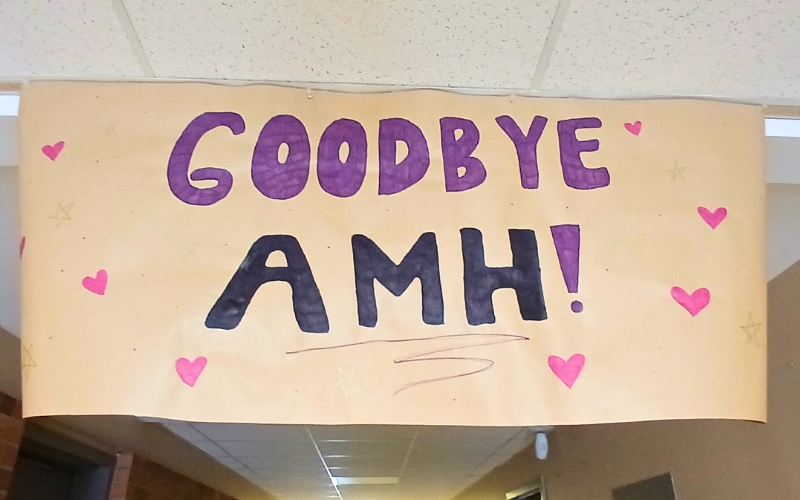
According to Dr. Norcross, AMH is where the Psychology Department began to grow.
“Alumni Memorial Hall is where our faculty began to diversify in terms of adding specialties,” Dr. Norcross said.
Not only that, it also produced remarkable students.
“We were still able to regularly get our majors up into the 80th percentile compared to other psychology graduates on the standardized metrics,” he said.
Jill Warker, Ph.D., associate professor of psychology, relocated into Weiss Hall at the beginning of the school year alongside the rest of the Psychology Department. But Dr. Warker still holds fond memories of seeing students daily in AMH.
“We would see students all the time. They would hang out and I regularly interacted with them. We were very cozy,” Dr. Warker said.
At the end of the spring semester of 2025, the Psychology Department held a gathering to say goodbye to its old facilities in AMH. Numerous alumni and retired professors returned to say goodbye and leave messages.
“We said we should have a reception inviting people to record their memories, take some photos and thus we started the memory wall,” Dr. Norcross said.
Dr. Norcross was the first to write on the wall.
“I was told I should be leading the charge,” he said.
The memory wall stands directly across from the stairs on the third floor of AMH where students and faculty wrote on it in colored markers.
“It is really nice when you go up the stairs, you see other people’s experiences of being in AMH and how fond they were of it,” Dr. Warker said.
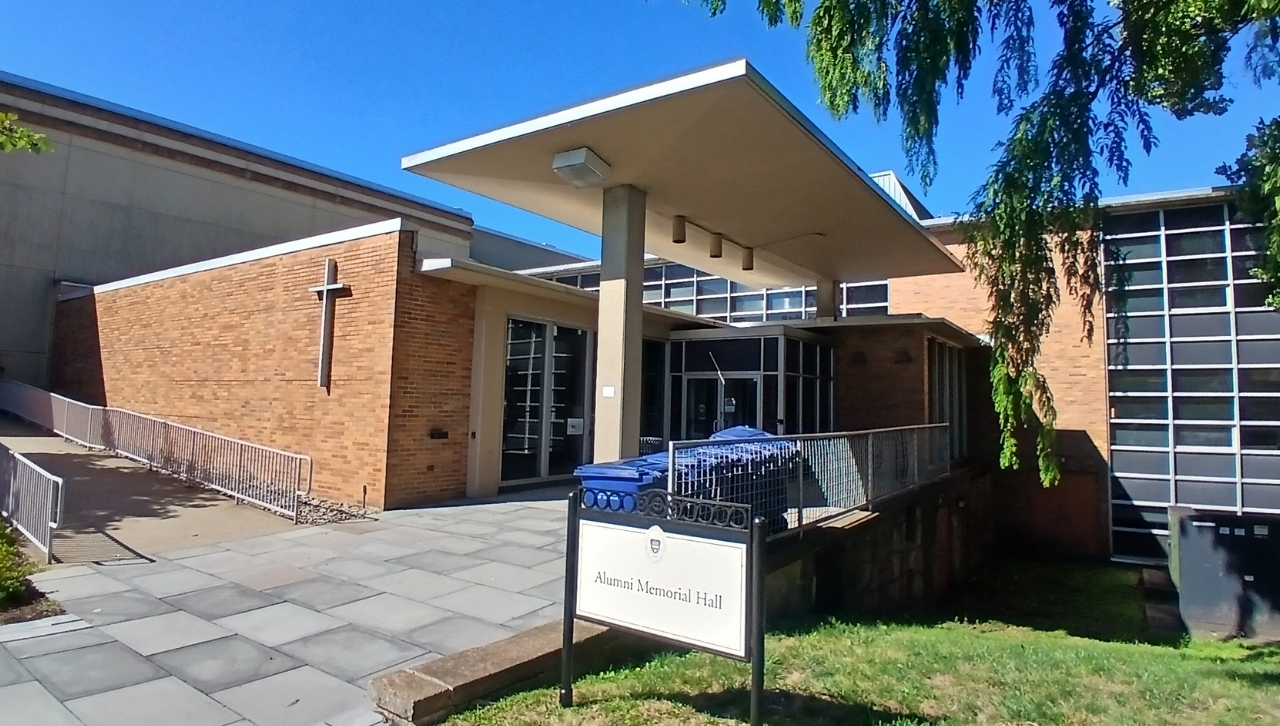
While most of the messages are sentimental, some of them are humorous, as well, such as one note saying, “I’m NOT leaving. Come arrest me.”
The department left markers out for the rest of the semester, allowing people to add on to the wall.
The building opened in 1960 as the school library, according to records kept by the Weinberg Memorial Library, but later housed the Technology Support Center and Office of Planning and Institutional Effectiveness in addition to the Psychology Department.
AMH remains the home of Technology Support and also contains many offices and meeting spaces. The associate vice president of facilities management, James Caffrey, DBA, said the University is "currently evaluating the important role that Alumni Memorial Hall will play in the future for offices and departments."
Marcus Smith '27, Schuylkill Haven, is an English and theatre double major at Scranton.
Psychology Students, Faculty Bid Farewell to Alumni Memorial Hall
-
09/10/2025
Scranton students study abroad to experience personal growth and development, among other reasons, according to the University's Office of Global Education.
Royals who spent time in Europe on faculty-led travel courses to Greece and Germany this past June encountered numerous opportunities to satisfy those goals.
For the third consecutive year, Joan Grossman, Ph.D. and Andrew Venezia, Ph.D., Department of Health and Human Performance, took 12 students on a 10-day study abroad course to Greece, KNES 296 – Sport and Physical Culture in Ancient Greece. This travel course, from June 22 to July 2, explored athletic competition and physical culture in ancient Greece, with trips to: Athens, Marathon, Sparta, Nemia, Thermopylae, Delphi and Olympia.
"Students learned about the beginnings and importance of athletic competition within the Greek society and how athletic competition in ancient Greece has influenced the kinesiology discipline from the perspective of ancient Greek civilization to the modern day," said Dr. Grossman, professor, Department of Health and Human Performance.
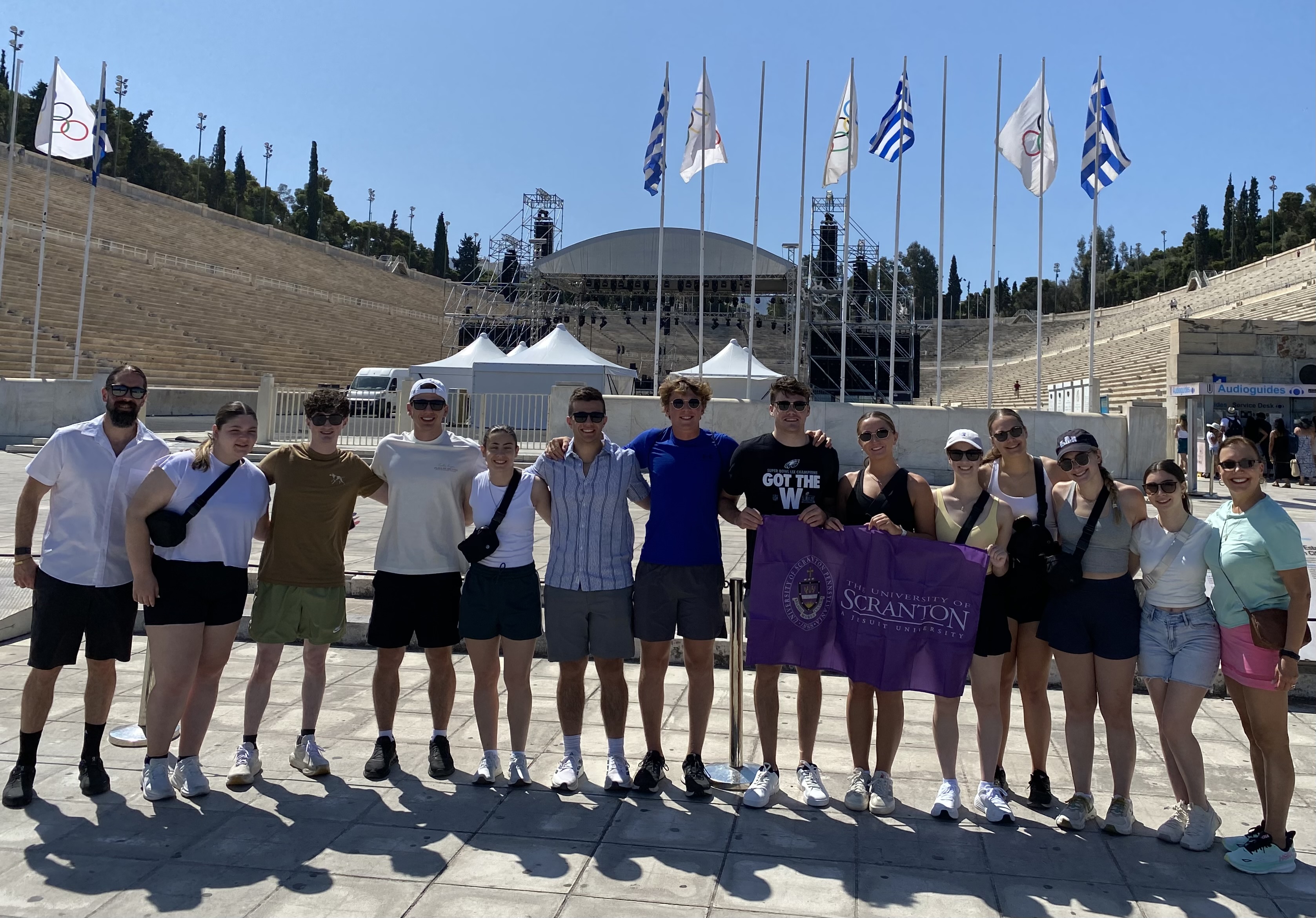
The Panathenaic Stadium — the venue for the first modern Olympic Games in 1896 — was the first stop of the first full day in Athens for students who studied abroad this past June in the KNES 296 Sport and Physical Culture in Ancient Greece course led by Drs. Joan Grossman and Andrew Venezia. Shown, from left, are: Dr. Venezia, Amelia Kearns '27, Gavin Grogan '27, Roman Cutrufello '27, Elizabeth D'Antonio '27, Christopher Monda '27, Conor Doogan '27, Cole Malone '27, Madison Markiewicz '26, Grace Castellano '27, Julia Kile '27, Anneliese Burg '27, Ariana Sioutopoulos '28 and Dr. Grossman.
Personal experience inspired Dr. Grossman to begin leading the travel course.
"I had the opportunity to study abroad while a doctoral student at Colorado State University, at Charles University, Prague, Czech Republic, and it was a transformative experience. During my sabbatical in the fall 2021, part of my work included the creation of this course, as our department did not have a study abroad offering," Dr. Grossman said. "The kinesiology discipline traces its roots to Greece and therefore, this was a perfect fit."
Thanks to Dr. Grossman's "transformative experience," University students can create a few of their own memories of note.Dr. Grossman described one encounter that resonates with Royals.
"The students have an opportunity to run in the ancient Olympic stadium, which is simply awesome," Dr. Grossman said.Interested in Greece?
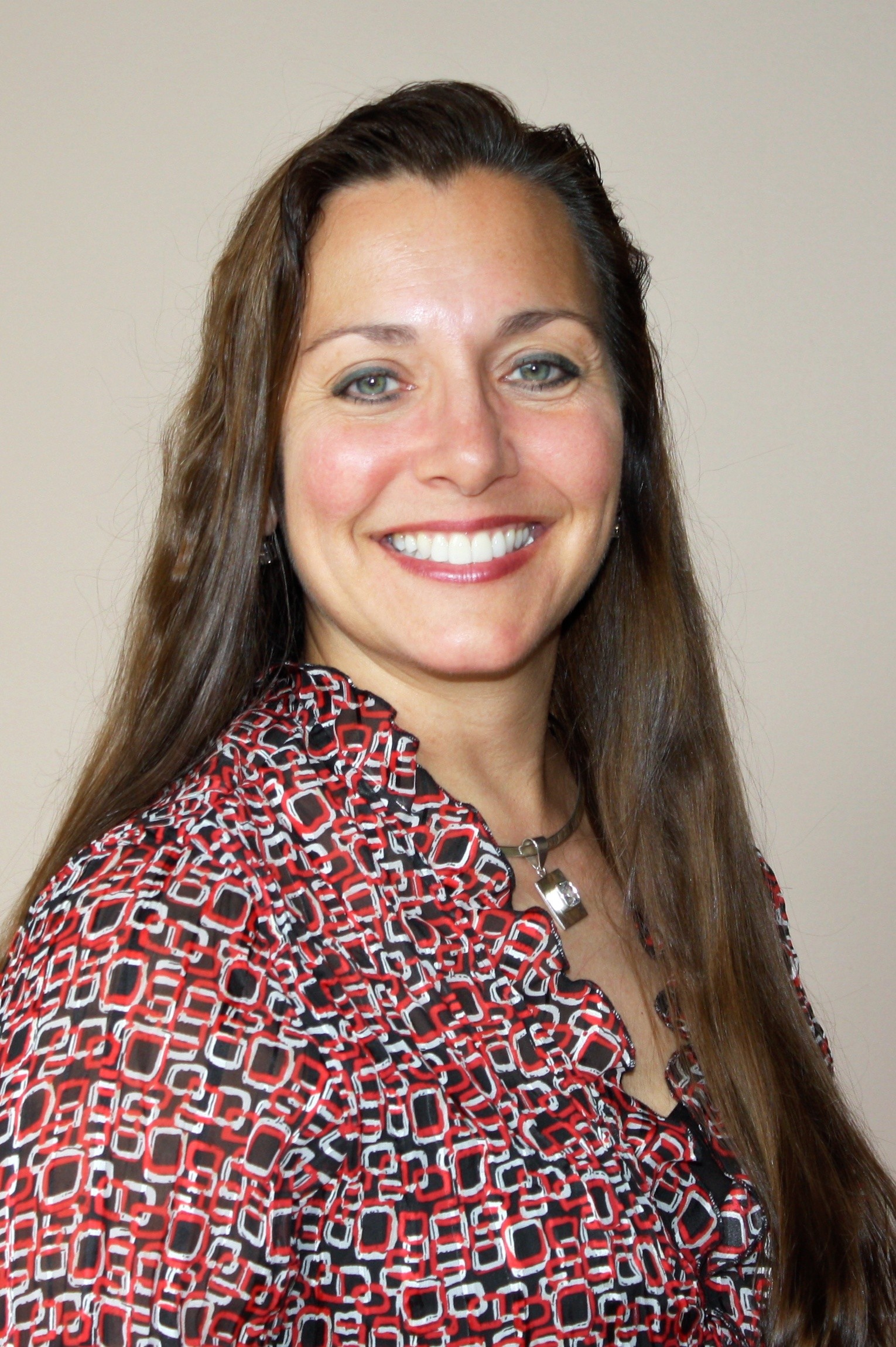 The next course offering is planned for June 2026, with an informational session scheduled for Monday, Oct. 6, at 3 p.m., Kane Forum, Leahy Hall. Dr. Grossman encourages students with an interest in a faculty-led study abroad course to Greece to attend.
The next course offering is planned for June 2026, with an informational session scheduled for Monday, Oct. 6, at 3 p.m., Kane Forum, Leahy Hall. Dr. Grossman encourages students with an interest in a faculty-led study abroad course to Greece to attend. Dr. Grossman, shown, joined The University of Scranton faculty in 2010. She earned her B.S. from King’s College, her M.S. from Colorado State University and her Ph.D. from Colorado State University/Marywood University.
 Französischer Dom and Konzerthaus, Berlin Germany
Französischer Dom and Konzerthaus, Berlin GermanySix students visited Germany this past June in the theology/religions studies (T/RS 396), Christ, Resistance, and Reconciliation course led by Fr. Michael Azar, Ph.D., over an 11-day period.
"The course considers closely the theological roots of and reasons for resistance against unjust government policies, domestic or foreign. The first half of the course is devoted to the relatively few Christians who resisted during the Nazi period. We consider how the theological sources of Christianity (especially the Bible) inspired their resistance at a time when the vast majority simply complied with Nazi policies (or outright supported them)," said Fr. Azar,"In the second half, we look at modern-day resisters in contemporary Germany, especially Christian institutions that provide church asylum for refugees who are under threat of deportation from the German government. Above all, we consider: What does it mean to learn from your past and to promise to yourself and others, “Never again”? How does one genuinely prevent the past from repeating?"
Fr. Azar explained how he shares this powerful message with students.
"Aside from reading primary sources (for example, anti-Nazi sermons from the WWII period), we devote much of our time to learning from contemporary models of resistance, most especially at a Catholic monastery in Northwest Germany that has become a major center of church asylum. It is striking to see nuns, who live a cloistered life according to the Benedictine Rule, being remarkably active in wider society on behalf of those who need it most."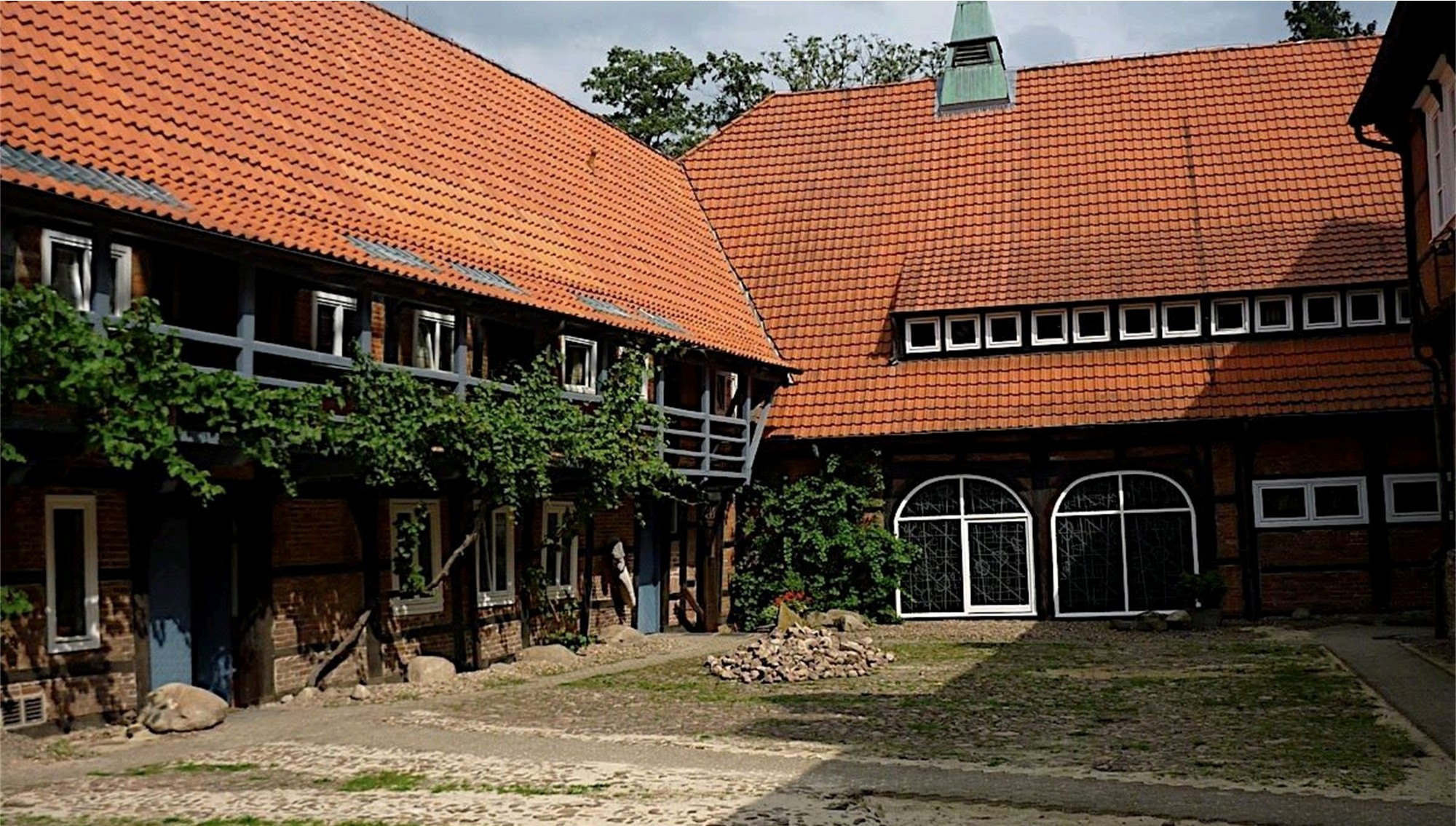
For half of the course, University students and faculty stay at the 13-14the century St. Scholastica Benedictine Convent in Dinklage, Germany, shown.
One of the sites the students visit is Kloster Esterwegen Convent, a Catholic convent on the property of the former Esterwegen Concentration Camp. Sr. Makrina Finlay, who co-teaches the course with Fr. Azar, offers insight as to the experience of residing at a convent on the grounds of a former concentration camp.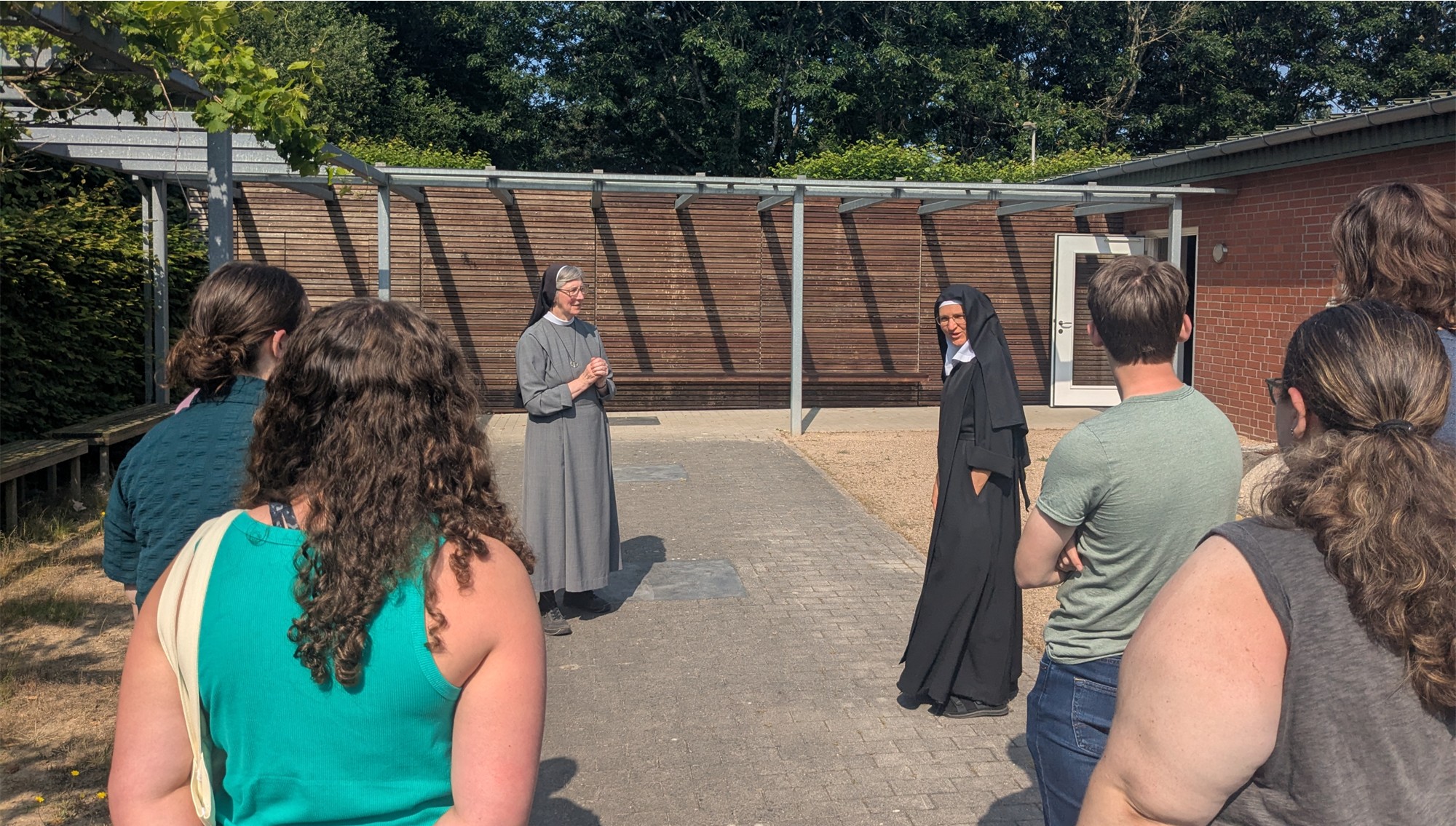 Sr. Makrina Finlay, shown above at right, co-teaches the course with Fr. Azar. Sr. Finlay offers insight on the experience of residing at a convent on the grounds of a former concentration camp.
Sr. Makrina Finlay, shown above at right, co-teaches the course with Fr. Azar. Sr. Finlay offers insight on the experience of residing at a convent on the grounds of a former concentration camp.
Shown below, Sr. Makrina Finlay guides students at City Hall (Rathaus) in Osnabrück, Germany.
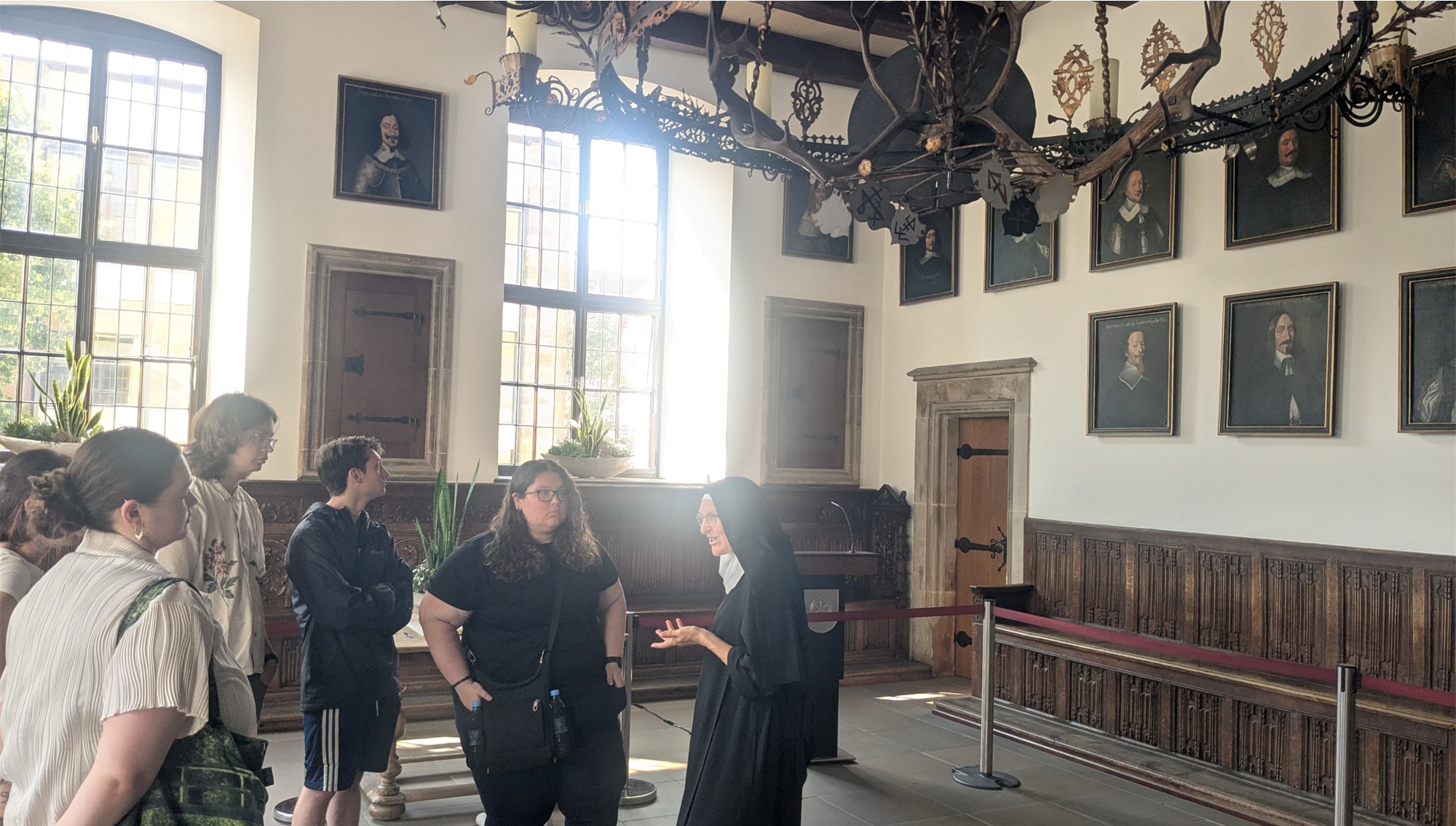
"During the second half of the course, we spend a lot of time with Christian leaders who are providing church asylum for refugees as well as with the refugee communities themselves. Our hosts teach us the meaning of learning from one’s past and living out the Christian gospel now."
Fr. Azar holds a Ph.D. in New Testament from Fordham University and an MA in theology from St. Vladimir's Orthodox Theological Seminary. He is currently writing a book on Orthodox Christian-Jewish relations, while his other scholarly pursuits focus on New Testament studies, especially apocalyptic thought and the "parting of the ways," as well as the effects that contemporary sociopolitical policies have on scholarly understandings of the ancient world.
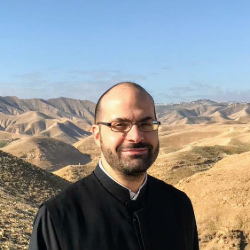
His research has been previously supported by a CCD Grant from the United States Conference of Catholic Bishops and the Catholic Biblical Association, and a National Endowment for the Humanities (NEH) Faculty Fellow grant from Fordham University’s Orthodox Christian Studies Center. He is currently a 2024–25 Lady Davis Fellow at the Hebrew University of Jerusalem (postponed to 2025–26) and continues to serve as a special advisor to the Orthodox Chair of the Orthodox Christian-Jewish dialogue and as a member of its planning committee. He is a priest of the Greek Orthodox Archdiocese of America.
Germany, Greece Among Faculty-Led Study Abroad Courses
-
08/27/2025
Twenty-five faculty members at The University of Scranton received promotions heading into the 2025-26 academic year.
Four faculty members were elevated to professor: Duane Armitage, Ph.D. ’05, philosophy; John Deak, Ph.D., chemistry; Joan Grossman, Ph.D., health and human performance; and Hank Willenbrink, Ph.D., English and theatre.
Ten faculty members were advanced to associate professor: Mehmet Bastug, Ph.D., criminal justice, cybersecurity and sociology; Vincent Farallo, Ph.D., biology; Spencer Galen, Ph.D., biology; Madeline Gangnes, Ph.D., English and theatre; Emily Gerstle, Ph.D., health and human performance; Christopher Hauser, Ph.D., philosophy; Joseph Klobusicky, Ph.D., mathematics; Sylvia Orner, library; Amelia Randich, Ph.D., biology; and Paul Sampson, Ph.D., history.
Four faculty members were named associate professor and granted tenure: Ovidiu Cocieru, Ph.D., management and marketing; Rita DiLeo, D.Sc. ’11, health administration and human resources; Cara Krieg, Ph.D., biology; and Murong Xu, Ph.D., mathematics.
Seven professors were granted tenure: Sinchul Back, Ph.D., criminal justice, cybersecurity and sociology; Marleen Cloutier G’22, library; Nathaniel Frissell, Ph.D., physics and engineering; Emily Hopkins, Ph.D., psychology; Amanda Marcy, Ph.D. ’10, G’11, PHD’20, accounting; Ian O’Hara ’05, G'21, library; and Mary Troy, Ph.D. ’95, G’00 counseling and human services.
Dr. Armitage, who has worked at the University since 2015, received a bachelor’s degree from The University of Scranton, a master’s degree from Boston College and a Ph.D. from the New School for Social Research.
Dr. Back, who has worked at the University since 2019, received a bachelor’s degree from Northeastern University, master’s degrees from Hankuk University of Foreign Studies and Bridgewater State University and a Ph.D. from Florida International University.
Dr. Bastug, who has worked at the University since 2020, received bachelor’s degrees from Turkish National Police University and Akdeniz University and master’s and doctoral degrees from Rutgers University.
Prof. Cloutier, who has worked at the University since 2016, received a bachelor’s degree from Wentworth Institute of Technology and master’s degrees from The University of Scranton and Drexel University.
Dr. Cocieru, who has worked at the University since 2019, received a bachelor’s degree from the Alexandru Ioan Cuza University and master’s and doctoral degrees from the University of Massachusetts Amherst.
Dr. Deak, who has worked at the University since 2002, received a bachelor’s degree from the State University of New York at Buffalo and a Ph.D. from the University of Rochester.
Dr. DiLeo, who has worked at the University since 2007, received a bachelor’s degree from The University of Scranton, a master’s degree from Marywood University and a doctoral degree from the University of Alabama.
Dr. Farallo, who has worked at the University since 2020, received a bachelor’s degree from John Carroll University, a master’s degree from Texas State University-San Marcos and a Ph.D. from Ohio University.
Dr. Frissell, who has worked at the University since 2019, received a bachelor’s degree from Montclair State University and master’s and doctoral degrees from Virginia Polytechnic Institute and State University.
Dr. Galen, who has worked at the University since 2020, received a bachelor’s degree from the University of Delaware, a master’s degree from the University of New Mexico and a Ph.D. from Richard Gilder Graduate School.
Dr. Gangnes, who has worked at the University since 2020, received a bachelor’s degree from University of Puget Sound, a master’s degree from University of Dundee and a Ph.D. from the University of Florida.
Dr. Gerstle, who has worked at the University since 2020, received a bachelor’s degree from Denison University and master’s and doctoral degrees from the University of Wisconsin.
Dr. Grossman, who has worked at the University since 2010, received a bachelor’s degree from King’s College, a master’s degree from Colorado State University and a Ph.D. from Marywood University.
Dr. Hauser, who has worked at the University since 2020, received a bachelor’s degree from Dartmouth College and a Ph.D. from Rutgers University.
Dr. Hopkins, who has worked at the University since 2018, received a bachelor’s degree from Brown University and master’s and doctoral degrees from the University of Virginia.
Dr. Klobusicky, who has worked at the University since 2020, received bachelor’s and master’s degrees from Carnegie Mellon University and master’s and doctoral degrees from Brown University.
Dr. Krieg, who has worked at the University since 2018, received a bachelor’s degree from Grinnell College and a Ph.D. from Michigan State University.
Dr. Marcy, who has worked at the University since 2015, received bachelor’s, master’s and doctoral degrees from The University of Scranton.
Prof. O’Hara, a faculty member at the University since 2019, received a bachelor’s degree from The University of Scranton and master’s degrees from Clarion University and The University of Scranton.
Prof. Orner, who has worked at the University since 2020, received a bachelor’s degree from Gettysburg College and master’s degrees from Syracuse University and The University of Scranton.
Dr. Randich, who has worked at the University since 2020, received a bachelor’s degree from Grinnell College and a Ph.D. from the University of Chicago.
Dr. Sampson, who has worked at the University since 2020, received a bachelor’s degree from the University of Dallas, a master’s degree from Marquette University and a Ph.D. from Rutgers University.
Dr. Troy, who has worked at the University since 2018, received bachelor’s and master’s degrees from The University of Scranton and a Ph.D. from Regent University.
Dr. Willenbrink, who has worked at the University since 2009, received a bachelor’s degree from the University of Tulsa and master’s and doctoral degrees from the University of California, Santa Barbara.
Dr. Xu, who has worked at the University since 2020, received bachelor’s and master’s degrees from Jinan University and a doctoral degree from West Virginia University.
University Announces Faculty Promotions
-
08/27/2025
It’s not every day, nor on every college campus, where business and humanities faculty collaborate and propose bold alternatives to long-held beliefs.
However, that’s exactly what happened recently at The University of Scranton.
And the uncommon collaboration led to international recognition.
Douglas M. Boyle, D.B.A.’88, professor and chair of the Accounting Department and director of the University’s Ph.D. program, and Daniel P. Haggerty, Ph.D., professor and chair of the Philosophy Department and director of the University’s Special Jesuit Liberal Arts Honors Program, appeared this week on the Institute of Management Accountants’ (IMA) official podcast to discuss their article titled “Aristotle and Accounting: Building Virtue to Fight Fraud.”
“Often, when people think of ethics, they think of actions. What can you do? What can’t you do?” Dr. Haggerty said on the podcast. “But with virtue, as Aristotle understood it, action sort of comes at the end of the line. What (virtue ethics) focuses on is the development and the cultivation of habits of thinking, feeling, emotion, desire ... and all of those lead to action.”
The paper, which was co-authored by Dr. Boyle, Dr. Haggerty and Dana R. Hermanson, Ph.D., of Kennesaw State University, was selected as the IMA Committee on Ethics and Strategic Finance 2025 Curt Verschoor Ethics Feature of the Year.
The authors applied Aristotelian virtue ethics to modern accounting practices, offering a fresh and humanistic approach to fraud prevention.
“These leaders get their formal education through business school and that’s particularly focused on technical topics, net present value, how we do different things. It’s very quantitative, it’s very analytical and now it’s very technology-focused … lots of things that are very important to understand, but it’s not building virtue. It’s a rule book,” Dr. Boyle said on the podcast. “What we’re trying to do here is give these executives an alternative way to think about ethics and not just be so rules-based, but also be more human behavioral-based.”
The authors argue that building virtue takes time, trust and hard work, but it will ultimately happen. When it does happen, it leads to higher employee and customer satisfaction and ultimately better financial outcomes.
“This pursuit of virtue is not just a nice thing to do,” Dr. Boyle said, “it also has a real financial impact to a company.”
Dr. Boyle had previously won the prestigious Verschoor Award in 2020 and 2024 from the IMA, which has about 140,000 members in 150 countries. It is one of the largest associations focused on advancing the management accounting profession.
Podcast Features Award-Winning Professorial Partnership
-
08/25/2025
The University of Scranton has appointed 14 new full-time faculty members for the 2025-2026 academic year.
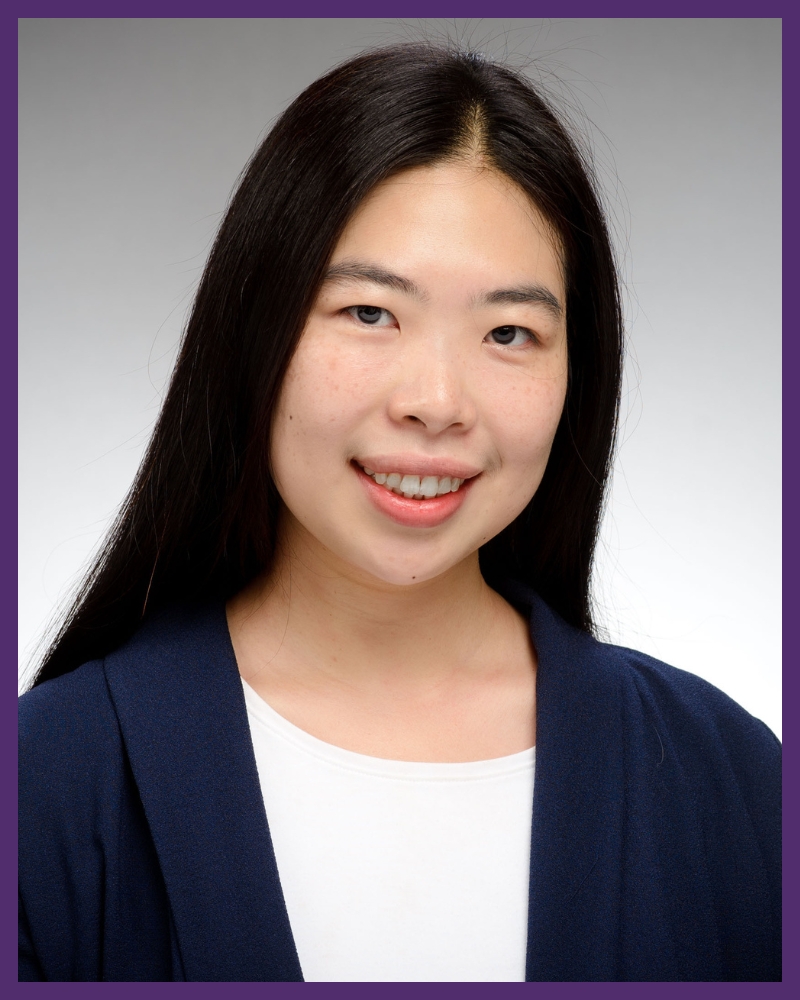 Sara Chan Yun Yu, Ph.D., was named an assistant professor in the Philosophy Department. Her research interests lie in ethics, social epistemology and the philosophy of religion. She earned her Ph.D. at the University of Notre Dame, where she was the recipient of two graduate fellowships. Prior to that, she graduated from the University of Oxford (BPhil in Philosophy, Blackfriars Hall) and the University of St. Andrews (MA in Philosophy and Psychology). She publishes on the philosophy of disability and has spoken at conferences across the world.
Sara Chan Yun Yu, Ph.D., was named an assistant professor in the Philosophy Department. Her research interests lie in ethics, social epistemology and the philosophy of religion. She earned her Ph.D. at the University of Notre Dame, where she was the recipient of two graduate fellowships. Prior to that, she graduated from the University of Oxford (BPhil in Philosophy, Blackfriars Hall) and the University of St. Andrews (MA in Philosophy and Psychology). She publishes on the philosophy of disability and has spoken at conferences across the world.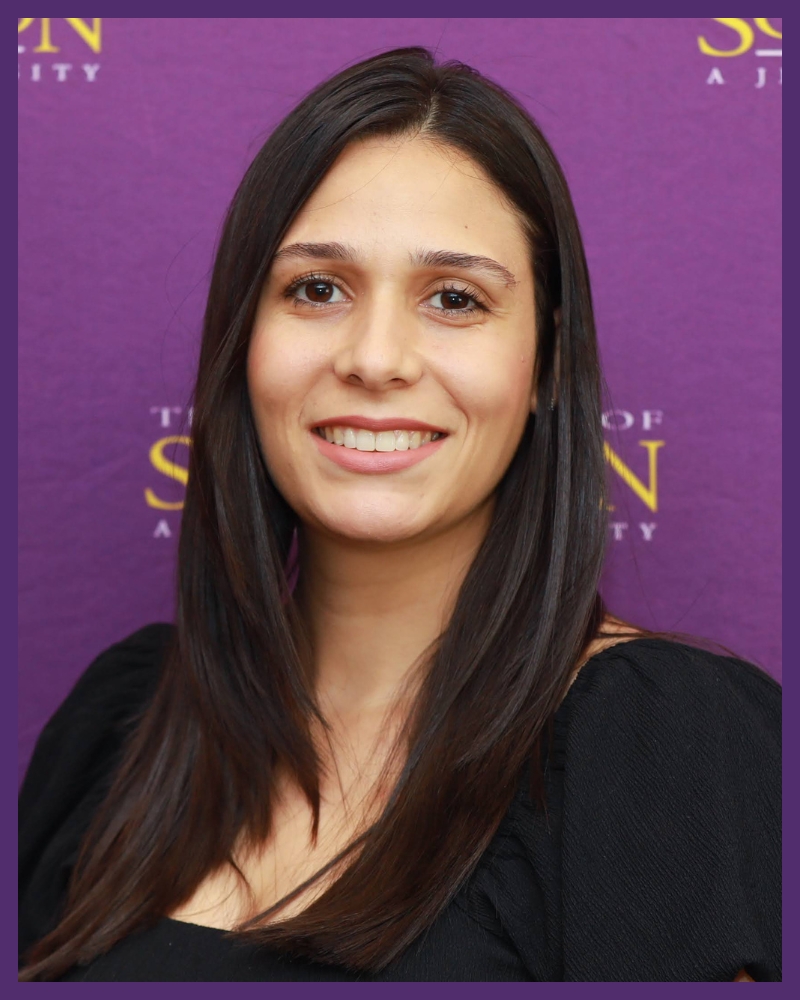 Beatriz Fontoura, Ph.D., was named an assistant professor in the Chemistry Department. Most recently, she was a postdoctoral research associate in the Department of Chemistry at Wake Forest University where she also served as a research instructor in analytical chemistry instrumentation. Dr. Fontoura earned bachelor’s and master’s degrees in chemistry from Federal University of Viçosa, Brazil, and a Doctor of Philosophy in chemistry from Federal University of São Carlos, Brazil. She has been a contributor to numerous scholarly publications, is a journal reviewer for several academic journals, and is a member of leading Chemistry organizations. She has presented at conferences and events in both South and North America. In addition to her native Portuguese, she is fluent in English and speaks intermediate Spanish.
Beatriz Fontoura, Ph.D., was named an assistant professor in the Chemistry Department. Most recently, she was a postdoctoral research associate in the Department of Chemistry at Wake Forest University where she also served as a research instructor in analytical chemistry instrumentation. Dr. Fontoura earned bachelor’s and master’s degrees in chemistry from Federal University of Viçosa, Brazil, and a Doctor of Philosophy in chemistry from Federal University of São Carlos, Brazil. She has been a contributor to numerous scholarly publications, is a journal reviewer for several academic journals, and is a member of leading Chemistry organizations. She has presented at conferences and events in both South and North America. In addition to her native Portuguese, she is fluent in English and speaks intermediate Spanish.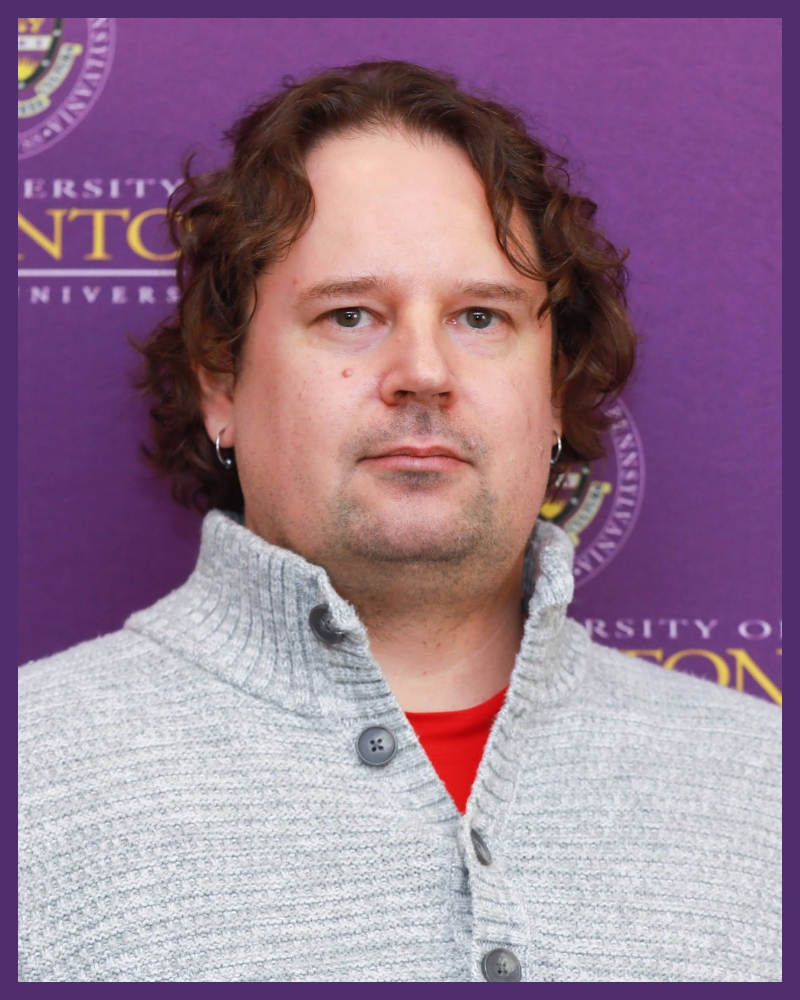 Nathan Henceroth, Ph.D., was named an assistant professor in the Political Science Department. Prior to joining the University, he was assistant professor of Computer Science and Political Science at Albright College, where his teaching focused on comparative politics, European politics, political economy and research methodology. Previously, he was visiting assistant professor of Political Science at Allegheny College. He earned a bachelor’s degree in international relations and French at Centre College, a master’s degree in international economics and politics at Charles University, Prague, and a Ph.D. in political science from the University of Nevada, Las Vegas. In partnership with other academic colleagues, he has published works in peer-reviewed publications and has also presented at numerous professional conferences in his field. He is fluent in French and has intermediate fluency in Czech/Slovak.
Nathan Henceroth, Ph.D., was named an assistant professor in the Political Science Department. Prior to joining the University, he was assistant professor of Computer Science and Political Science at Albright College, where his teaching focused on comparative politics, European politics, political economy and research methodology. Previously, he was visiting assistant professor of Political Science at Allegheny College. He earned a bachelor’s degree in international relations and French at Centre College, a master’s degree in international economics and politics at Charles University, Prague, and a Ph.D. in political science from the University of Nevada, Las Vegas. In partnership with other academic colleagues, he has published works in peer-reviewed publications and has also presented at numerous professional conferences in his field. He is fluent in French and has intermediate fluency in Czech/Slovak. Hyun Kim, Ph.D., was named an assistant professor in the Department of Health and Human Performance. She joined the University after serving for nine years on the faculty at Alma College where she was assistant professor, then associate professor of Public Health and was also program coordinator of the Public Health Program. She received a bachelor’s degree in merchandising from Indiana University, a Master of Science degree in economics from State University of New York, Buffalo, and a Ph.D. in community health from the University of Illinois at Urbana-Champaign. She is a member of notable professional organizations in her field and is a regular presenter at the American Society for Nutrition meetings, among other professional organizations.
Hyun Kim, Ph.D., was named an assistant professor in the Department of Health and Human Performance. She joined the University after serving for nine years on the faculty at Alma College where she was assistant professor, then associate professor of Public Health and was also program coordinator of the Public Health Program. She received a bachelor’s degree in merchandising from Indiana University, a Master of Science degree in economics from State University of New York, Buffalo, and a Ph.D. in community health from the University of Illinois at Urbana-Champaign. She is a member of notable professional organizations in her field and is a regular presenter at the American Society for Nutrition meetings, among other professional organizations.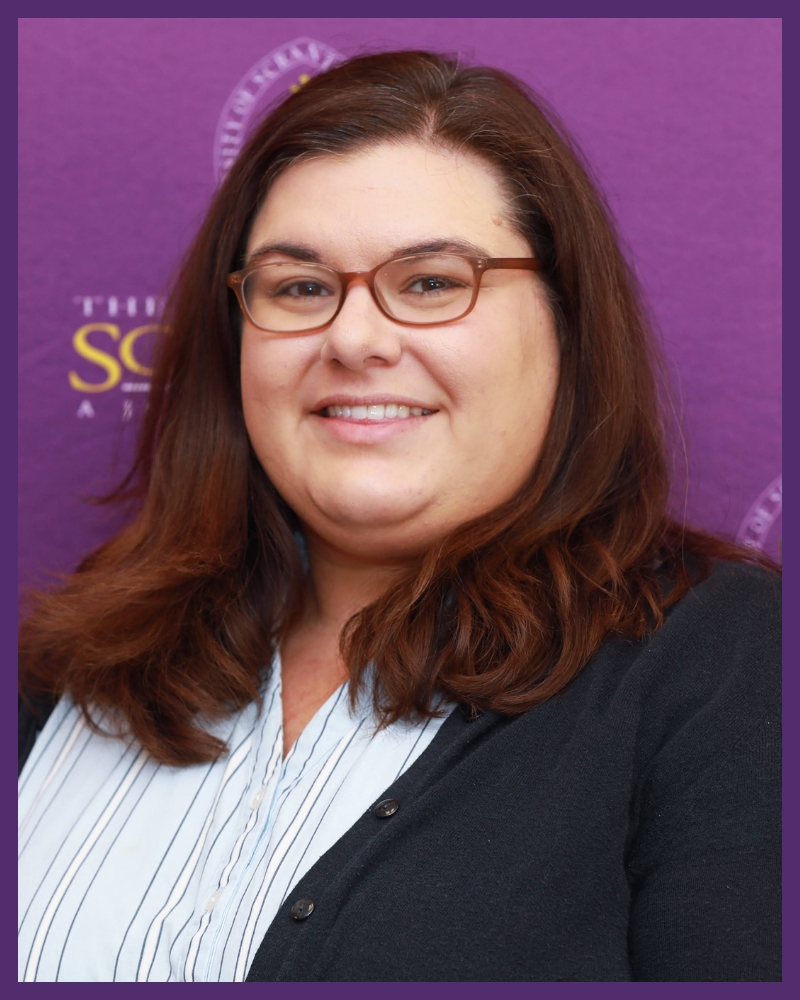 Megan Ossont, Ph.D., was named an assistant professor in the Department of Nursing. A Registered Nurse Practitioner with certification in family psychiatric mental health and as a nurse educator, Dr. Ossont was most recently assistant clinical professor at Drexel University of Graduate Nursing. She has served as a psychiatric nurse practitioner with the Federal Bureau of Prisons, where she was also selected as part of the National Forensic Psychiatry Team, and previously practiced at other correctional health care organizations and Geisinger Health Systems Department of Psychiatry, where she was named part of the residency faculty. Dr. Ossont earned a bachelor’s degree in nursing from The University of Scranton, a master’s degree in nursing from the University of Pennsylvania and a Doctor of Philosophy in nursing from Villanova University. She has presented at conferences, and her work is published in professional journals.
Megan Ossont, Ph.D., was named an assistant professor in the Department of Nursing. A Registered Nurse Practitioner with certification in family psychiatric mental health and as a nurse educator, Dr. Ossont was most recently assistant clinical professor at Drexel University of Graduate Nursing. She has served as a psychiatric nurse practitioner with the Federal Bureau of Prisons, where she was also selected as part of the National Forensic Psychiatry Team, and previously practiced at other correctional health care organizations and Geisinger Health Systems Department of Psychiatry, where she was named part of the residency faculty. Dr. Ossont earned a bachelor’s degree in nursing from The University of Scranton, a master’s degree in nursing from the University of Pennsylvania and a Doctor of Philosophy in nursing from Villanova University. She has presented at conferences, and her work is published in professional journals.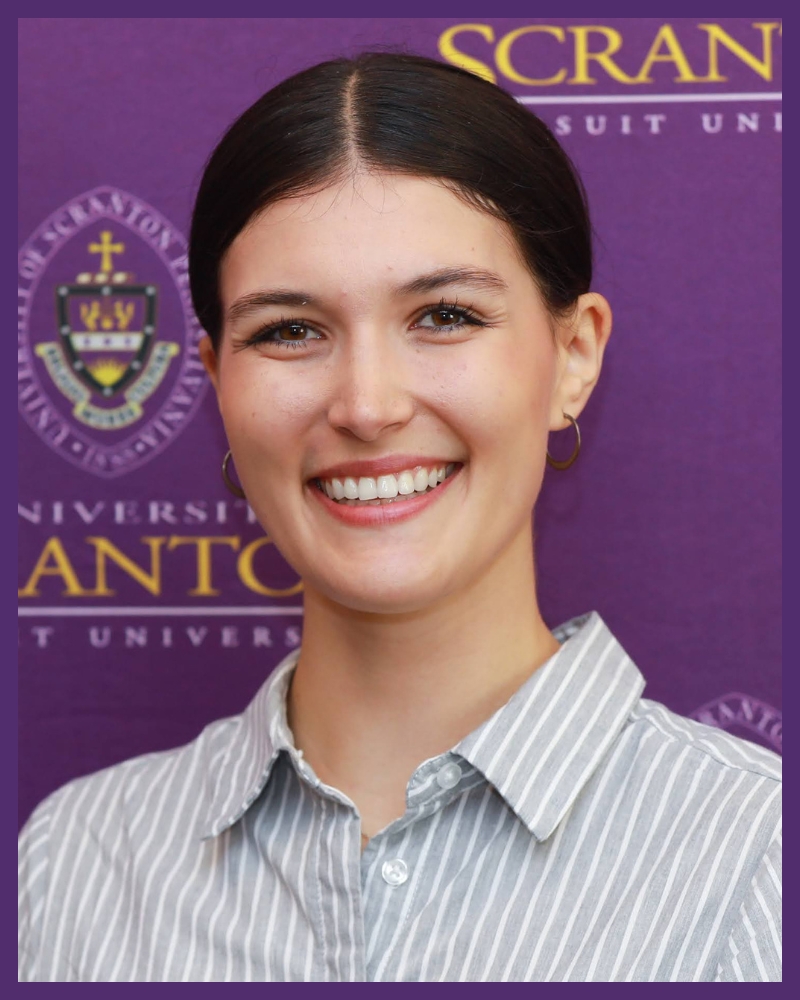 Corey Posa was named a faculty specialist in the Department of Nursing. A nurse navigator with nursing experience in substance use and high-risk obstetric care, she specializes in perinatal addiction medicine. Most recently, she was a nurse navigator at UPMC Magee-Women’s Hospital Pregnancy and Women’s Recovery Center. Previously, she served as a staff nurse in other units at UPMC. She earned a Bachelor of Science in nursing and Master of Science in nursing education from Duquesne University and is a Registered Nurse. She has presented at numerous professional organizations about Care of the Perinatal Patient with Opioid Use Disorder.
Corey Posa was named a faculty specialist in the Department of Nursing. A nurse navigator with nursing experience in substance use and high-risk obstetric care, she specializes in perinatal addiction medicine. Most recently, she was a nurse navigator at UPMC Magee-Women’s Hospital Pregnancy and Women’s Recovery Center. Previously, she served as a staff nurse in other units at UPMC. She earned a Bachelor of Science in nursing and Master of Science in nursing education from Duquesne University and is a Registered Nurse. She has presented at numerous professional organizations about Care of the Perinatal Patient with Opioid Use Disorder.Carissa Pupo, DNP, previously an adjunct faculty member in the Nurse Anesthesia Program at the University, was named a faculty specialist in the Department of Nursing. She has worked as a nurse anesthetist at Anesthesia Specialists of Bethlehem and Lehigh Valley Health Network, as a registered nurse at Geisinger Medical Center and a nursing simulated learning lab manager at Bloomsburg University. She received a Bachelor of Science in nursing from Bloomsburg University and a Doctor of Nursing Practice in anesthesia from The University of Scranton. She is a member of the American Association of Nurse Anesthetists and is certified as a critical care registered nurse.
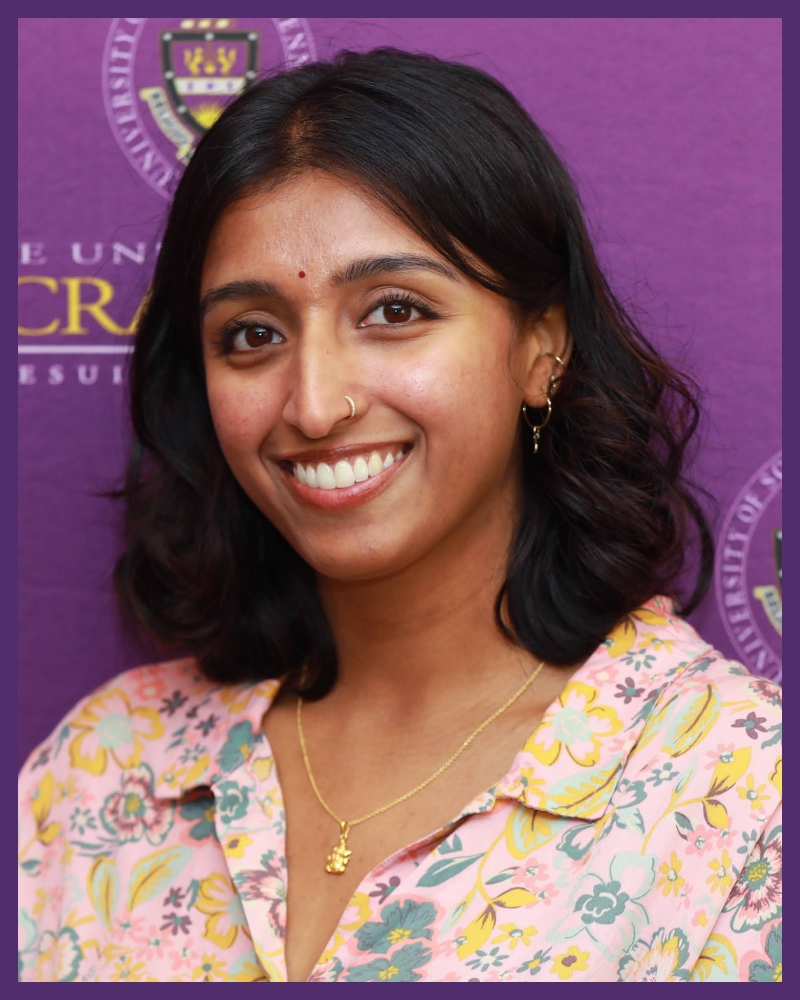 Swathi Ragulan, Ph.D., was named assistant professor in the Department of Counseling and Human Services. Dr. Ragulan received a bachelor’s degree in psychology and a master’s degree in applied behavior analysis from Rutgers University and went on to earn a Ph.D. in behavior analysis from the University of Nevada, Reno. A Board-Certified Behavior Analyst, she has taught as a lead instructor at the University of Nevada, Reno, and as a teaching assistant for the Global Institute for Behavioral Analysis. Dr. Ragulan has served as a clinical supervisor and assistant clinical director at service delivery organizations in her community, where she provided ABA services across the lifespan to individuals with autism and other developmental disabilities. She has presented extensively on topics in behavior analysis and skill acquisition for individuals with autism and is a contributor to scholarly publication articles.
Swathi Ragulan, Ph.D., was named assistant professor in the Department of Counseling and Human Services. Dr. Ragulan received a bachelor’s degree in psychology and a master’s degree in applied behavior analysis from Rutgers University and went on to earn a Ph.D. in behavior analysis from the University of Nevada, Reno. A Board-Certified Behavior Analyst, she has taught as a lead instructor at the University of Nevada, Reno, and as a teaching assistant for the Global Institute for Behavioral Analysis. Dr. Ragulan has served as a clinical supervisor and assistant clinical director at service delivery organizations in her community, where she provided ABA services across the lifespan to individuals with autism and other developmental disabilities. She has presented extensively on topics in behavior analysis and skill acquisition for individuals with autism and is a contributor to scholarly publication articles.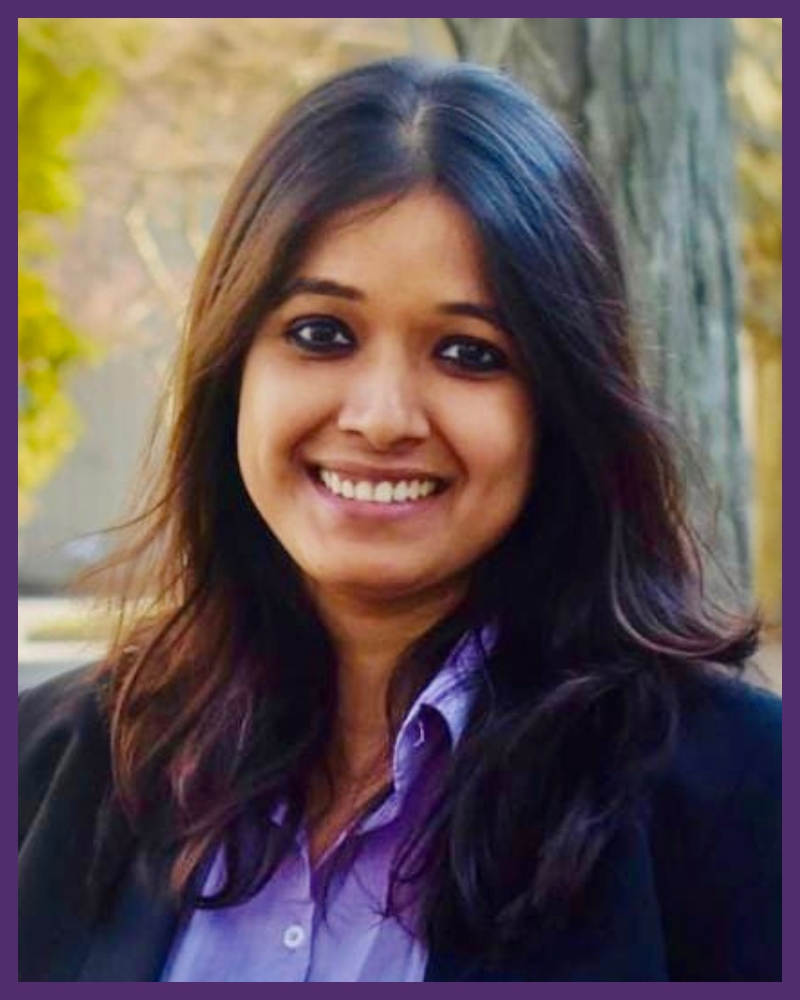 Sangita Saha, Ph.D., was named an assistant professor in the Department of History. Most recently, she was a lecturer in South Asian History at Santa Clara University. Previously, she was instructor of record in the Department of History at the University of Michigan — where she received several writing fellowships and research awards — while simultaneously completing her doctoral studies. She received a bachelor’s degree in history from Calcutta University, a master’s degree in modern history from Jawaharlal Nehru University, an M.Phil. degree in social sciences from Jadavpur University and a Ph.D. in history and women’s and gender studies from the University of Michigan. Dr. Saha has presented at conferences and workshops in the U.S., U.K. and Europe. Bilingual in English and Bengali, she has working proficiency in Hindi.
Sangita Saha, Ph.D., was named an assistant professor in the Department of History. Most recently, she was a lecturer in South Asian History at Santa Clara University. Previously, she was instructor of record in the Department of History at the University of Michigan — where she received several writing fellowships and research awards — while simultaneously completing her doctoral studies. She received a bachelor’s degree in history from Calcutta University, a master’s degree in modern history from Jawaharlal Nehru University, an M.Phil. degree in social sciences from Jadavpur University and a Ph.D. in history and women’s and gender studies from the University of Michigan. Dr. Saha has presented at conferences and workshops in the U.S., U.K. and Europe. Bilingual in English and Bengali, she has working proficiency in Hindi. Samantha Scott, Ph.D., was named faculty specialist in the Department of Theology and Religious Studies. She previously served as a lecturer in the Department of Theology at Marquette University and Lee University. She earned a bachelor’s degree in theology from Marquette University, master’s degrees in theological studies and biblical studies at Lee University, and a Ph.D. in Judaism and Christianity in Antiquity from Marquette University. She has published journal articles, book chapters and book reviews and has made numerous academic presentations to the Society of Biblical Literature and other societies in her field. She is proficient in many languages, including Hebrew, Greek, Aramaic, Latin, Syriac, German and French.
Samantha Scott, Ph.D., was named faculty specialist in the Department of Theology and Religious Studies. She previously served as a lecturer in the Department of Theology at Marquette University and Lee University. She earned a bachelor’s degree in theology from Marquette University, master’s degrees in theological studies and biblical studies at Lee University, and a Ph.D. in Judaism and Christianity in Antiquity from Marquette University. She has published journal articles, book chapters and book reviews and has made numerous academic presentations to the Society of Biblical Literature and other societies in her field. She is proficient in many languages, including Hebrew, Greek, Aramaic, Latin, Syriac, German and French.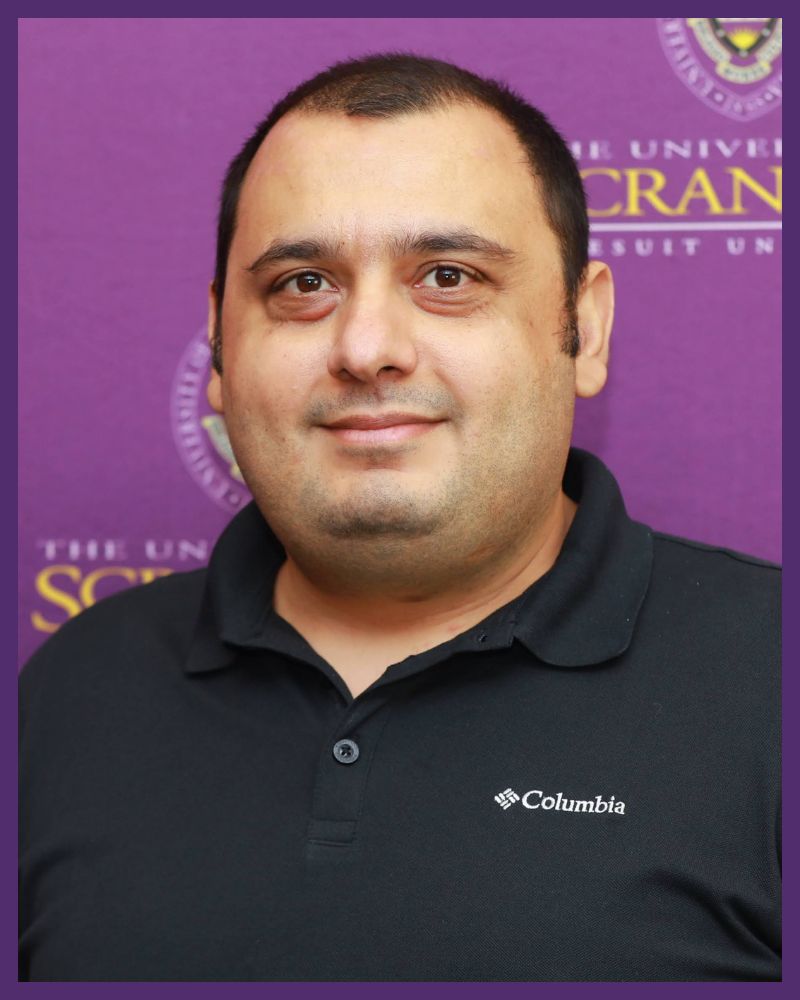 Navid Shahrouzi, Ph.D., was named an assistant professor in the Department of Physics and Engineering. Dr. Shahrouzi is an electrical engineer with expertise in embedded systems, FPGA prototyping, VLSI and microcontroller design. He previously served as an assistant research and teaching professor at the University of Colorado Colorado Springs, where he co-advised graduate students, served as the IEEE Student Branch Counselor and helped launch The Wire Lion Engineering Club. A senior member of IEEE, Dr. Shahrouzi has published in leading journals and conferences and regularly serves as a reviewer. In industry, he held a key role at Cypress Semiconductor (now Infineon Technologies), where he performed timing sign-off for SRSS IP in advanced microcontrollers. He earned his Ph.D. in electrical engineering from the University of Colorado, an M.Sc. from the University of Guilan, and a B.Sc. from K.N. Toosi University of Technology.
Navid Shahrouzi, Ph.D., was named an assistant professor in the Department of Physics and Engineering. Dr. Shahrouzi is an electrical engineer with expertise in embedded systems, FPGA prototyping, VLSI and microcontroller design. He previously served as an assistant research and teaching professor at the University of Colorado Colorado Springs, where he co-advised graduate students, served as the IEEE Student Branch Counselor and helped launch The Wire Lion Engineering Club. A senior member of IEEE, Dr. Shahrouzi has published in leading journals and conferences and regularly serves as a reviewer. In industry, he held a key role at Cypress Semiconductor (now Infineon Technologies), where he performed timing sign-off for SRSS IP in advanced microcontrollers. He earned his Ph.D. in electrical engineering from the University of Colorado, an M.Sc. from the University of Guilan, and a B.Sc. from K.N. Toosi University of Technology.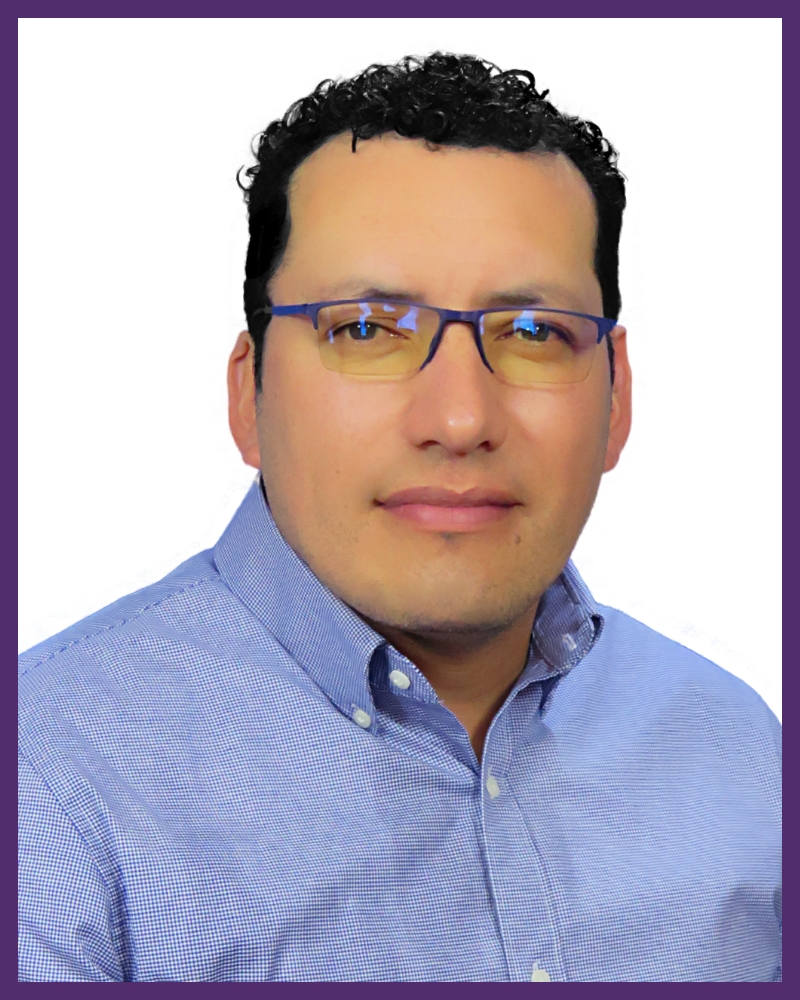 Marlon Mike Toro-Alvarez, Ph.D., was named an assistant professor in the Department of Criminal Justice, Cybersecurity and Sociology. He was previously an evaluator and analyst in cybersecurity and law enforcement training at Boston University, where he was part of a team on several research grant projects. As former head of the National Cybercrime Investigation Unit in the Colombian National Police, he organized the first White Hat Hackers Conference in Bogotá. He has been an instructor at Southern Illinois University and has been a guest lecturer at schools, police academies and criminology and cybercrime centers in South America and Mexico. He earned a bachelor’s degree in police administration from the Department of Police Service, Colombia, a bachelor’s degree in computer sciences from Catholic University, Colombia, a master’s degree in criminal justice from Boston University and a Ph.D. in criminology and criminal justice from Southern Illinois University.
Marlon Mike Toro-Alvarez, Ph.D., was named an assistant professor in the Department of Criminal Justice, Cybersecurity and Sociology. He was previously an evaluator and analyst in cybersecurity and law enforcement training at Boston University, where he was part of a team on several research grant projects. As former head of the National Cybercrime Investigation Unit in the Colombian National Police, he organized the first White Hat Hackers Conference in Bogotá. He has been an instructor at Southern Illinois University and has been a guest lecturer at schools, police academies and criminology and cybercrime centers in South America and Mexico. He earned a bachelor’s degree in police administration from the Department of Police Service, Colombia, a bachelor’s degree in computer sciences from Catholic University, Colombia, a master’s degree in criminal justice from Boston University and a Ph.D. in criminology and criminal justice from Southern Illinois University.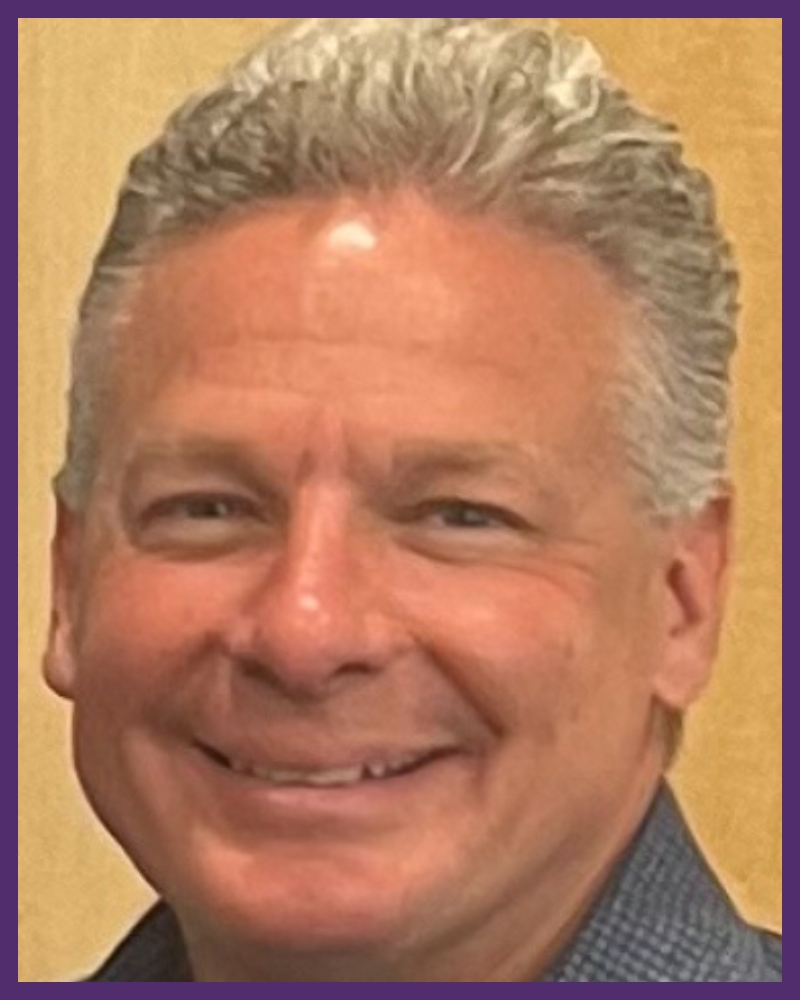 Al Turano, previously an adjunct faculty member, was named a faculty specialist in the Department of Operations and Analytics. Before joining the University, he was senior director, Global Professional Services for Dell Technologies, where he was responsible for an $8 billion global consulting practice specializing in big data, artificial intelligence and the Internet of Things. Previously, he held leadership positions for EMC Corporation, a multinational information technology company, and served in business development, account management, and portfolio and project management roles for businesses and consulting firms. He received a bachelor’s degree in business management from Philadelphia University and a Master of Business Administration degree from Southeastern Oklahoma State University.
Al Turano, previously an adjunct faculty member, was named a faculty specialist in the Department of Operations and Analytics. Before joining the University, he was senior director, Global Professional Services for Dell Technologies, where he was responsible for an $8 billion global consulting practice specializing in big data, artificial intelligence and the Internet of Things. Previously, he held leadership positions for EMC Corporation, a multinational information technology company, and served in business development, account management, and portfolio and project management roles for businesses and consulting firms. He received a bachelor’s degree in business management from Philadelphia University and a Master of Business Administration degree from Southeastern Oklahoma State University.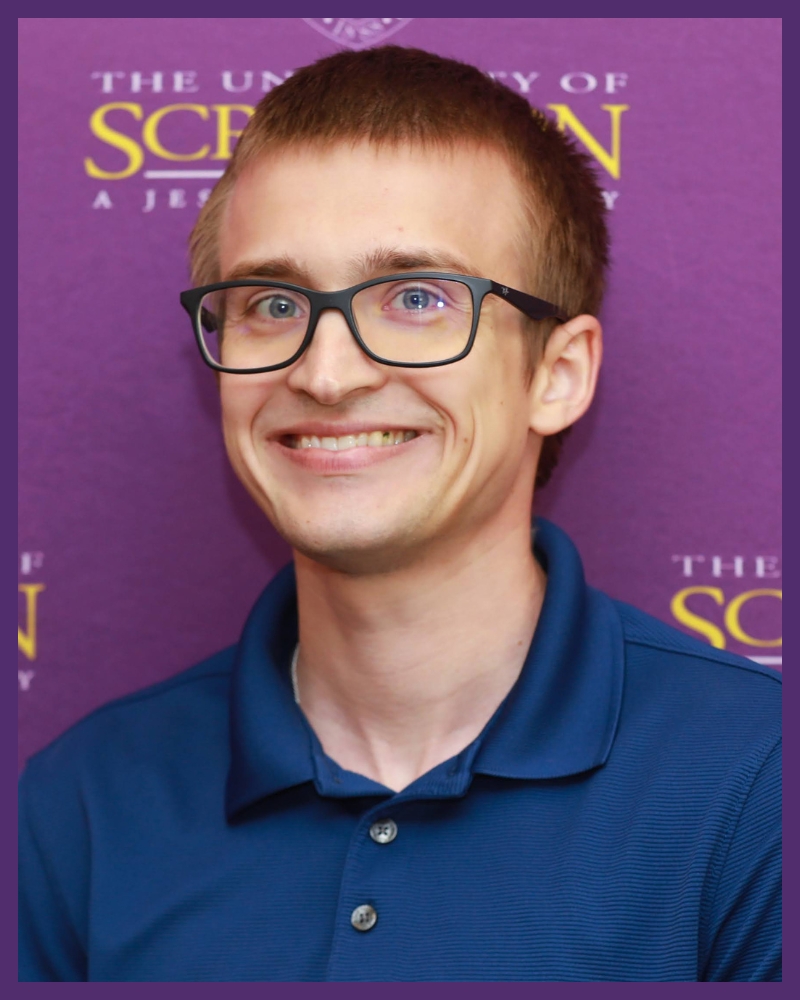 Jacob Zoromski, Ph.D., was named visiting assistant professor in the Department of Mathematics. He earned a bachelor’s degree in mathematics from the University of Wisconsin–Madison and a Ph.D. in mathematics from the University of Notre Dame. Dr. Zoromski has received awards for his work in student teaching.
Jacob Zoromski, Ph.D., was named visiting assistant professor in the Department of Mathematics. He earned a bachelor’s degree in mathematics from the University of Wisconsin–Madison and a Ph.D. in mathematics from the University of Notre Dame. Dr. Zoromski has received awards for his work in student teaching.University of Scranton Appoints New Faculty Members
-
07/31/2025
Research indicates that people grow and change through four main areas: their bodies, their minds, their relationships and their emotions.
“As a developmental psychologist, I always want to understand how the four domains of development — physical, cognitive, social and psychological — intersect and together shape how people can thrive,” said Carolyn McNamara Barry, Ph.D., dean of The University of Scranton’s College of Arts and Sciences. “Understanding the historical effect of COVID on young people and how best to support them now within college contexts has been a burning question for me since I became an associate dean in 2019-2020 when COVID hit.”
Armed with her own curiosity and expertise, as well as help from a Scranton undergraduate student, Dr. Barry delved deeper into the topic at the recent Society for the Study of Emerging Adulthood (SSEA) conference in Charleston, South Carolina.
Dr. Barry was not just an attendee or lecturer at the event; instead, she was the president.
After serving two years as president-elect, Dr. Barry in June officially stepped into the role of president of the SSEA. It is an international organization with about 450 members, focusing on theory and research related to emerging adults (ages 18-29).
Dr. Barry’s presidential address, “The New Normal of Emerging Adulthood in a Post-Pandemic World: Challenges, Opportunities and Recommendation,” was given at the SSEA’s annual conference, held June 4-6.
My Kim Dang ’24, who graduated in December with a bachelor’s degree in psychology, was a key contributor in Dr. Barry’s presentation. Dang assisted in the project by gathering literature and other resources during the fall semester as part of the University’s Faculty Student Research Program. Dr. Barry and Dang are now working to turn the address into a manuscript they will submit to the Society’s journal, “Emerging Adulthood."
Dr. Barry’s term as SSEA president runs for two years, ending in June 2027 at its next conference in Montreal, Canada. SSEA membership is open to anyone actively engaged in research, teaching, practice or policy relating to emerging adulthood.
Dr. Barry, who was a professor of psychology and later an associate dean at Loyola University Maryland before joining The University of Scranton in 2024 as the College of Arts and Sciences dean, earned her Ph.D. in human development with a specialization in education psychology from the University of Maryland.
Dean Barry Elected President of Professional Organization
-
07/10/2025
The University of Scranton recently honored 11 faculty members whose distinction in teaching, scholarship and service earned them various awards presented at an on-campus event.
Ten faculty members earned Provost Faculty Enhancement Awards. An additional honoree received a Faculty Senate award. The awards, presented annually, are intended to encourage, support, promote and recognize the efforts of faculty who strive for and achieve excellence in numerous areas benefiting the University.
Billie Tadros, Ph.D., associate professor of English and theatre, received the Scholarship of Teaching and Learning Award. The award recognizes the efforts of faculty who strive for excellence in teaching and practice teaching as a form of scholarship.
A University faculty member since 2018, Dr. Tadros’ efforts are evidenced by her work with the University Honors Program, the Slattery Center and the Faculty Student Research Program. She is also moderator of Sigma Tau Delta, the national honor society in English. During the 2024-25 academic year, Dr. Tadros participated in the orientation of students in the Dallas Prison Program, instructed a Community Health Humanities Workshop and continued working with students on their convention submissions and presentations. The author of three poetry books, Dr. Tadros’ expertise bridges medicine and humanities and perfectly aligns with the University’s values.
Recipients of the Scholarly Publication Award were Nathaniel Frissell, Ph.D., associate professor of physics and engineering, and Roy Domenico, Ph.D., professor of history. The award recognizes the special efforts of faculty who have strived for, and attained, distinction in scholarship and creative activity.
Dr. Frissell has been an active researcher since arriving six years ago at the University, earning $4 million in research grants to support his work. In addition to serving as a role model for his research efforts, Dr. Frissell has provided unparalleled support to other faculty members in preparation of their own grant applications to the National Science Foundation. He has involved his campus colleagues in collaborative research efforts while also mentoring and supporting students at all stages of their academic journeys.
Dr. Domenico, who arrived at the University in 1997, has built an admirable record of scholarly work in Italian history. Dr. Domenico has authored several books, including “Italian Fascists on Trial, 1943-1948,” “The Regions of Italy: A Reference Guide to History and Culture” and “The Devil and Dolce Vita.” He has received many accolades, including a Fulbright Senior Research Award for Italy, and the Howard and Helen Marraro Prize from the Society for Italian Historical Studies for “Italian Fascists on Trial: 1943-1948.”
$content.getChild('content').textValueTeresa Grettano, Ph.D., associate professor of English and theatre, received the University Service and Leadership Award. The award recognizes a faculty member who strives for excellence in service to the University, the profession and the community. The awardee must demonstrate academic leadership by effective mentoring of junior colleagues.
Since joining the University in 2009, Dr. Grettano’s record of service has been both sustained and impactful. Dr. Grettano has been a leader in campus initiatives related to the University’s mission. She’s also been a leader in Faculty Senate, serving in 2023 as its president-elect and assuming the role of president in 2024. Dr. Grettano began working in 2010 with the Faculty Senate and was instrumental in developing the Eloquentia Perfecta component of Scranton’s general education (GE) curriculum. In 2020, she was elected as the College of Arts and Sciences faculty representative to the newly formed GE Review Committee. As president, she helped shepherd the new GE curriculum through the Faculty Senate with Board of Trustees approval.
Cyrus P. Olsen III, Ph.D., associate professor of theology/religious studies, received the Advancing Global Learning Award. The award recognizes a faculty member who demonstrates noteworthy academic leadership in integrating international issues and perspectives into the curriculum. Through the awardee’s efforts, their students have acquired the attributes and insight required to meaningfully and successfully participate in an increasingly interdependent world.
Dr. Olsen, who joined the University in 2006, instructs a course, T/RS 295: Christianity in Africa, which has significantly contributed to integrating diversity into the curriculum and enriching students’ learning in profound ways. Dr. Olsen’s course is an immersive travel experience during which students engage the Baganda people of the Kampala region, visiting schools, churches and healthcare facilities before traveling to Southwest Uganda to interact with the Batwa tribe. At both locations, students learn about sustainable farming while exploring the Queen Elizabeth National Park and the Bwindi Impenetrable Forest. Dr. Olsen has taught the course since 2016.
Recipients of the Advancing Interdisciplinary Study Award were Marleen Cloutier, associate professor at the Weinberg Memorial Library, and Sylvia Orner, associate professor, library. The award recognizes faculty members who demonstrate noteworthy academic leadership in promoting and strengthening cross-disciplinary or interdepartmental teaching and learning endeavors. Awardees work across disciplines and departmental boundaries to enhance students’ learning experiences.
Profs. Cloutier and Orner have been instrumental in transforming access to scholarly resources for faculty, students and researchers across all disciplines, directly impacting the University’s mission to promote innovative teaching and integrative scholarship. Together, they modernized the University’s Library Services Platform and Discovery Layer, a transformation that has significantly improved accessibility to information resources across campus. Since the initial integration, additional research tools have been added to further improve the user experience. Their work, which streamlines access to books, journals, databases and digital collections, has enabled faculty to better integrate library resources into their coursework and research.
Jessica Nolan, Ph.D., professor of psychology, received the Community-Based Learning Award. The award recognizes a faculty member who incorporates and advocates for community-based learning (CBL) and enhances the University’s contribution to the common good.
Dr. Nolan, a faculty member since 2008, has been an avid and active CBL faculty member for 10-plus years, focused on providing opportunities for students to realize Scranton’s Jesuit mission by providing transformational learning experiences in three courses. The three unique courses — PSYC 236, Industrial/Organizational Psychology; PSYC 239, Environmental and Conversation Psychology; PSYC 364, Psychology of Diversity — creatively challenge students to go beyond their comfort zones, forcing them to look at the reality of the others in an authentic, respectful way. The courses encourage the education of the whole person — cura personalis.
$content.getChild('content').textValueWill Cohen, Ph.D., professor of theology/religious studies, received the Integrating Mission and Justice into the Curriculum Award. The award recognizes a faculty member whose special efforts ensure that students have a keen understanding and appreciation of the realities of the world, including pressing justice issues in a local, national and global context. It also recognizes efforts dedicated to the service of faith and promotion of justice as it relates to their teaching.
Having joined the University in 2009, Dr. Cohen’s curricular work forwards the mission of the University, instilling in students a desire to pursue the service of faith and the promotion of justice while equipping them with the competency and skills to critically reflect on prevailing social, political, economic and cultural issues. Dr. Cohen assumed the leadership role as co-chair of the General Education (GE) Review Committee at a pivotal time, helping the Ignatian Core Curriculum pass an all-faculty vote before being approved by the Board of Trustees. Dr. Cohen previously served as co-director of the Peace and Justice concentration, building and supervising the curriculum, eliciting new courses and recruiting, advising and mentoring students. He has also spent the past nine years co-directing Christians for the Common Good, a campus organization, with colleague and friend Christian Krokus.
Donna Witek, professor at the Weinberg Memorial Library, received the Magis Award. The award recognizes a faculty member who makes specific, sustained and creative efforts to adapt classic principles of Jesuit pedagogy in their own courses.
Prof. Witek, who joined the University in 2008, is also an information literacy coordinator and research and instruction librarian for the humanities and Ignatian pedagogy. Prof. Witek was pivotal in Scranton’s adoption of the Ignatian core curriculum, a transformative initiative that ensures students’ education is rooted in Jesuit values. Her leadership and coordination in this effort have shaped the academic experiences of future generations of Scranton students, emphasizing reflection, discernment and action as integral components of their education. She has also directly influenced the structure of the University’s curriculum, reinforcing a commitment to holistic and mission-driven education, while developing information literacy as a cornerstone of Jesuit education.
Additionally, Wesam Alramadeen, assistant professor of operations and analytics, earned the Faculty Senate Excellence in Graduate Teaching Award. The award recognizes a faculty member who demonstrates dedication to teaching graduate students in an encouraging and intellectually stimulating environment that promotes critical thinking and learning.
Dr. Alramadeen, who’s been a member of the University faculty since 2021, teaches across both undergraduate and graduate programs. He regularly incorporates advanced tools into his teaching, equipping students not only with technical knowledge but also leadership, communication and real-world problem-solving skills via experiential learning. Dr. Alramadeen has traveled extensively for international research, consulting, training and collaborating for mission work in Japan, South Korea, China, Hong Kong, Germany, Italy, France, Austria, Greece, Spain, Switzerland, Turkey the United Kingston, Saudi Arabia, Bahrain, Jordan, Egypt and Dubai. In his 25-plus years of international experience, Dr. Alramadeen has made significant contributions to academic, strategy, telecommunications and business development.
The University also presented plaques to a group of distinguished professors, recognizing their contributions to and legacies at Scranton. Those acknowledged, as they transition into continued scholarly pursuits, personal projects or retirement, among other things, include:
Andrew Berger, Ph.D., professor and chair of physics and engineering
Ann Culp, faculty specialist in nursing
Marian Farrell, Ph.D., professor of nursing
Richard Klonoski, Ph.D., professor of philosophy
Charles Pinches, Ph.D., professor of theology/religious studies
$content.getChild('content').textValueUniversity Faculty Honored for Excellence
-
07/10/2025
The University of Scranton awarded faculty development grants for the summer of 2025 to nine faculty members.
Mehmet Bastug, Ph.D., assistant professor of criminal justice, cybersecurity and sociology, received a grant to research “Cyber-Threats and Cyber-Attacks: What Everyone Needs to Know (book project).” Dr. Bastug has worked at the University since 2020. Dr. Bastug earned a Bachelor of Arts degree from Turkish National Police University, a Bachelor of Science degree from Akdeniz University and master’s and doctorate degrees from Rutgers University.
Melanie Caughey, Ph.D., assistant professor of education, received a grant to research “Suitability of Information About Gifted Education in Special Education Textbooks.” Dr. Caughey has worked at the University since 2023. Dr. Caughey earned a bachelor’s degree from Bucknell University, a master’s degree from Duquesne University and a Ph.D. from the University of Virginia.
John Deak, Ph.D., associate professor of chemistry, received a grant to research “Development of Evaporation Rate Measurements for the Determination of Soft Molecular Aggregate Structure and Inter-Aggregate Interactions in Liquid Solution.” Dr. Deak has worked at the University since 2002. Dr. Deak earned a bachelor’s degree from the State University of New York at Buffalo and a Ph.D. from the University of Rochester.
JoyAnna Hopper, Ph.D., associate professor of political science, received a grant to research “The Effects of COVID-19 on Combined State-Level Environmental Agencies.” Dr. Hopper has worked at the University since 2020. Dr. Hopper earned a bachelor’s degree from Eastern Illinois University and master’s and doctorate degrees from the University of Missouri.
Geng Liu, Ph.D., assistant professor of physics and engineering, received a grant to research “Hydrodynamic Effects of Seal Whiskers’ Bending and Tapering Features on Flow Sensing.” Dr. Liu has worked at the University since 2024. Dr. Liu earned a bachelor’s degree from the University of Science and Technology of China and a Ph.D. from the University of Chinese Academy of Sciences.
Farshad Merrikh-Bayat, Ph.D., assistant professor of physics and engineering, received a grant to research “Design, Construction and Data-Driven Control of a Lab-Scale Wind Turbine with a New Algorithm.” Dr. Merrikh-Bayat has worked at the University since 2023. Dr. Merrikh-Bayat earned a BSc., K.N., from Toosi University of Technology and a MSc., Ph.D., from Sharif University of Technology.
Marc Shapiro, Ph.D., professor of theology/religious studies, received a grant to research “Rabbi Saul Berlin and His Forged Work of Jewish Law.” Dr. Shapiro has worked at the University since 1996. Dr. Shapiro earned a bachelor’s degree from Brandeis University and a Ph.D. from Harvard University.
Janice Voltzow, Ph.D., professor and chair of biology, received a grant to research “Mechanical Properties of the Shells of Mussels.” Dr. Voltzow has worked at the University since 1996. Dr. Voltzow earned a bachelor’s degree from Yale University and a Ph.D. from Duke University.
Hank Willenbrink, Ph.D., associate professor of English and theatre, received a grant to research “Performance Crime and Performance Justice on January 6, 2021, and Beyond.” Dr. Willenbrink has worked at the University since 2009. Dr. Willenbrink earned a bachelor’s degree from the University of Tulsa and master’s and doctorate degrees from the University of California, Santa Barbara.
Faculty Members Receive Research Grants
-
07/02/2025
Student members of The University of Scranton’s Business Club recently chose five instructors for the annual Kania School of Management Professor of the Year awards.
The premier prize, KSOM Overall Professor of the Year, was awarded to Daniel Mahoney, Ph.D. ’81, G’85, shown below, professor of accounting. Having earned top honors in 2001, 2006, 2010, 2014 and 2018, this is Dr. Mahoney’s sixth time receiving Professor of the Year.
Additionally, Ashley Stampone, Ph.D. ’10, G’11, Ph.D’23, assistant professor, received KSOM Accounting Professor of the Year.
David Mahalak, D. Eng., assistant professor, received KSOM Operations and Analytics Professor of the Year.
John Ruddy, D.P.S. ’91, associate professor, received Economics, Finance and International Business Professor of the Year.
Gregory O’Connell, J.D., faculty specialist, received Management and Marketing Professor of the Year.
Learn more about the Kania School of Management Professor of the Year.
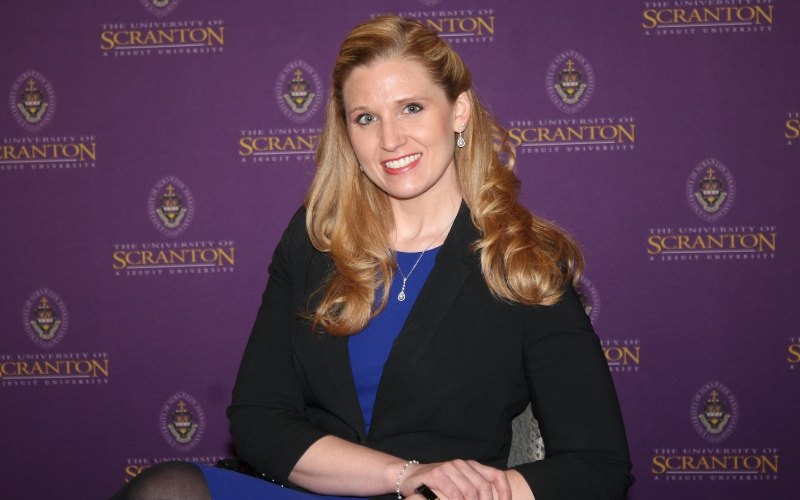
Beta Alpha Psi, the International Honor Organization for Financial Information Students and Professionals, recently announced one of its top honors will be awarded to an instructor at The University of Scranton.
Amanda Marcy ’10, Ph.D., shown, assistant professor of accounting, earned one of Beta Alpha Psi’s Outstanding Faculty Advisors awards. As many as four faculty advisors — whose efforts go above and beyond that of the typical faculty advisor — are awarded at each Beta Alpha Psi annual meeting. This year’s meeting will be held Aug. 14-16 in San Antonio, Texas.
While Dr. Marcy has worked at The University of Scranton since 2015, she’s a graduate, too. She earned bachelor’s, master’s and doctorate degrees at the University. Dr. Marcy previously worked in assurance services for Baker Tilly in Pittston.
Learn more about Amanda Marcy ’10, Ph.D.Kania School of Management Professors Earn Recognition
-
06/30/2025
Students in Charlie Cino’s Writing 105 and 106 classes were treated to two special virtual visits this past semester, featuring three actors/writers who have been successful in film, television and live theatre over the past 60 years.
Mariette Hartley and her husband, Jerry Sroka, met with students on Wednesday, March 5. Hartley is the author of the bestselling memoir 'Breaking the Silence,' which illuminates moments in her career and tackles issues such as depression, substance abuse and her father’s suicide. Students read and wrote about the book prior to Hartley and Sroka’s lecture, and had a rare opportunity to speak with the author.
Hartley won an Emmy award for 'The Incredible Hulk,' and was nominated for her critically acclaimed sitcom "Goodnight, Beantown,'" as well as the TV-movie "The Last Hurrah," written by and starring Carroll O’Connor, and the series "The Rockford Files," among others.
Hartley is probably best-known for more than 250 Polaroid commercials co-starring James Garner, as well as the CBS morning news/information series called "The Morning Program,'" which she co-hosted live five days a week from New York City.
Sroka is known for the film version of "Godspell," in which he is featured prominently, as well as voice-acting work and guest work on hundreds of episodics, including "Seinfeld," "Ellen," "Murphy Brown" and "The West Wing."
Together, they co-wrote the screenplay for, as well as starred in the recent feature film 'Our Almost Completely True Love Story,' which is loosely based on their marriage and relationship. The film has won nearly 50 independent film awards over the past few years.
In addition to answering questions about her movie and television work, Hartley spoke candidly about her book, and told students that despite some of the subject matter, they could ask her anything, including questions about her father’s suicide. The only topic off-limits, Hartley joked, was her age.
$content.getChild('content').textValueBarry Pearl, a native of Lancaster, visited students on Thursday, May 8. He is best-known for his role as “Doody,” one of John Travolta’s “T-Birds,” in the iconic1978 film "Grease." Students viewed, read and wrote about the film prior to Pearl’s discussion.
In addition to acting and writing, Pearl has directed a number of plays and musicals from coast-to-coast.
The prolific, working character actor has performed in television hits including "House," "M.D.," "ER," "Murder, She Wrote," "Hill Street Blues," "Alice," "Barney Miller" and "Eight is Enough." He was a series regular on the Don Rickles' NBC sitcom "CPO Sharkey."
Like Hartley and Sroka, Pearl answered students’ questions about acting, writing and directing, for more than an hour. Many of the students had communicated to Cino that they were interested in writing as a career (journalism, screenwriting), or acting (stage, voiceover), which was Cino’s impetus for coordinating the special talks.
This is not the first time industry professionals have visited Cino’s classes. In the past few years, students have also spoken with actor/writer/producer Patrick Labyorteaux, actor Glenn Scarpelli and actor/writer K Callen.
Actors Speak With Writing 105 and 106 Students
-
06/30/2025
In its Footsteps of Ignatius Pilgrimage, The University of Scranton draws from a rich heritage that dates back to 16th century Spain when a visionary young man, Ignatius of Loyola, responded to God’s call. On the journey guided by the Jesuit Center, a select group of University faculty and staff travel together on the path of St. Ignatius and the early Jesuits.
The most recent pilgrimage for 18 members of the University community from May 25 to June 4, began in northern Spain at the birthplace of St. Ignatius.Daniel Cosacchi, Ph.D., Vice President for Mission and Ministry at the University explains the purpose and preparation for the trek from the Spanish countryside to the urban center of Rome.
"The Ignatian Leadership Program meets over the course of the entire academic year preceding the pilgrimage. During that time, the pilgrims read many classic Jesuit texts. The very first thing we read, however, is St. Ignatius' autobiography, which traces his conversion experience and his own pilgrimage.Our pilgrimage, then, places University staff and faculty in the very same places that St. Ignatius lived, worked, convalesced and died. So, the pilgrimage is the very capstone of the program."
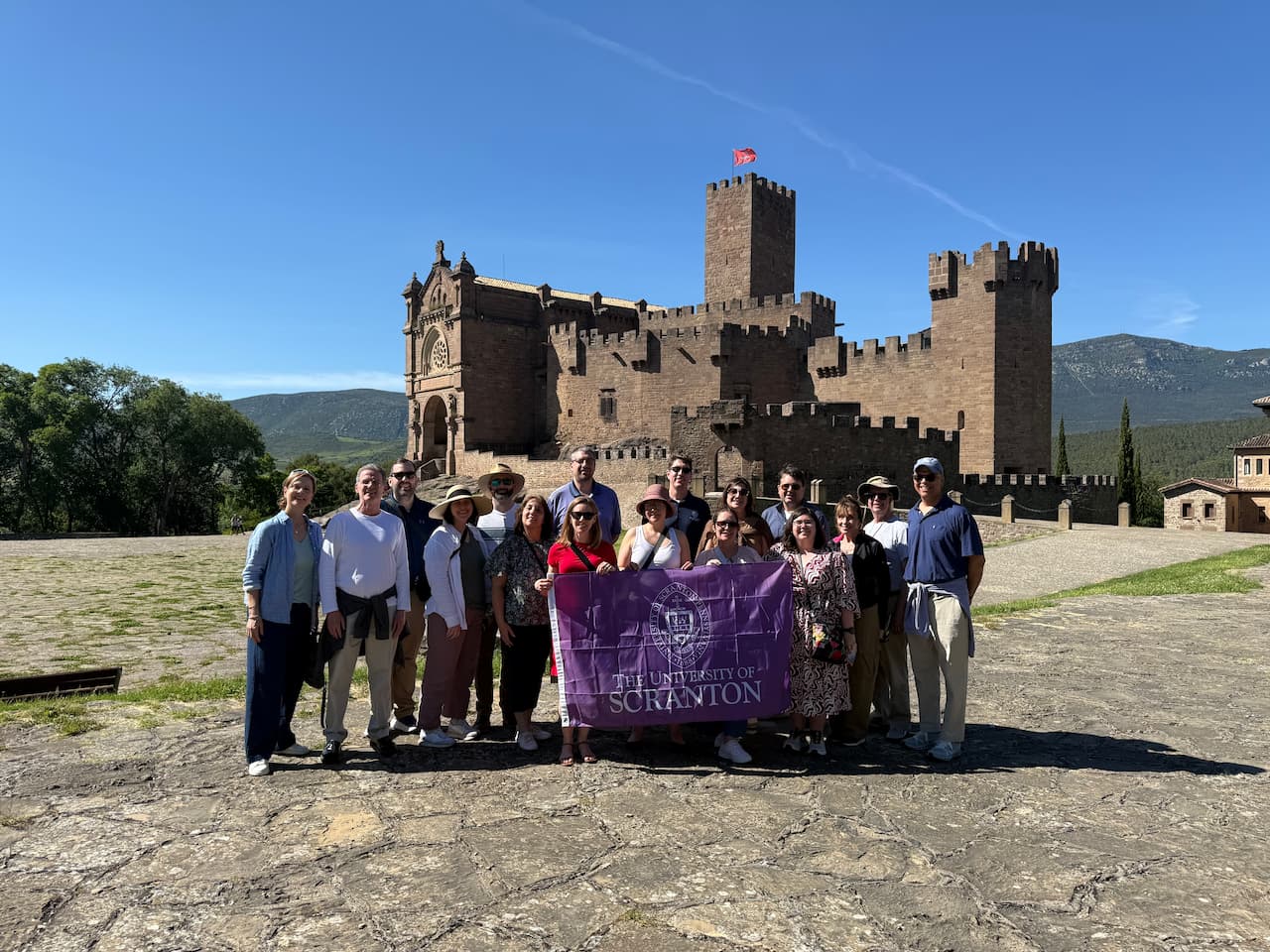 University of Scranton pilgrims shown at Javier Castle in Spain, the birthplace of St. Francis Xavier. (Photo Courtesy Bryn Schofield)
University of Scranton pilgrims shown at Javier Castle in Spain, the birthplace of St. Francis Xavier. (Photo Courtesy Bryn Schofield)
Dr. Cosacchi said the journey based on the spiritual life of St. Ignatius serves as much more than a complement the program.
"This program is at the very heart of what we do in Mission and Ministry at the University. Thanks to the resources of the Jesuit Center, we are able to make this pilgrimage a possibility for interested faculty and staff who apply, are chosen, and then participate in the months-long program," he said.
"It is so valuable because we trace our heritage as a Catholic University to the life, death and Resurrection of Jesus. Specifically as a Jesuit university, we treasure the life and creative work of St. Ignatius of Loyola. We see both of these influences wherever we look on this campus. But to have the opportunity to walk in the very steps of St. Ignatius makes this treasure feel all the more tangible to our colleagues here at the University."The pilgrims visit locations of great historical and religious significance – such as Loyola, Xavier, Montserrat, Manresa, Barcelona and Rome. There, the program's sixth cohort experienced a "happy coincidence," a Jubilee Mass with Pope Leo the XIV.

University of Scranton faculty and staff attend a Jubilee Mass celebrated by Pope Leo the XIV at St. Peter’s Square at the Vatican in Rome. (Photo Courtesy Bryn Schofield)
Dr. Cosacchi, a scholar of the papacy, added another layer of meaning to the Jesuit connection.
"This was a happy coincidence of the Jubilee schedule that was prepared last year by Pope Francis. It doesn't always work out that our groups are able to see and pray with the Pope, but when it does, it only adds to the experience," he said.
"Part of the reason for that is that St. Ignatius himself had a particular devotion to the papacy, so much so that he placed the Society of Jesus at the pope's disposal (regardless of who was occupying that office). So, we as a Jesuit, Catholic university have a special love for Pope Leo. Being able to see him at only the second papal Mass he presided over in St. Peter's Square was a special blessing for us."Interested in An Upcoming Pilgrimage?
Dr. Cosacchi suggests that interested faculty and staff should apply early in the fall.
"Please be on the lookout for the opportunity to apply early in the fall semester; and we look forward to seeing how this pilgrimage will thrive under the direction of the new Executive Director of the Jesuit Center, Dr. Tim Dulle."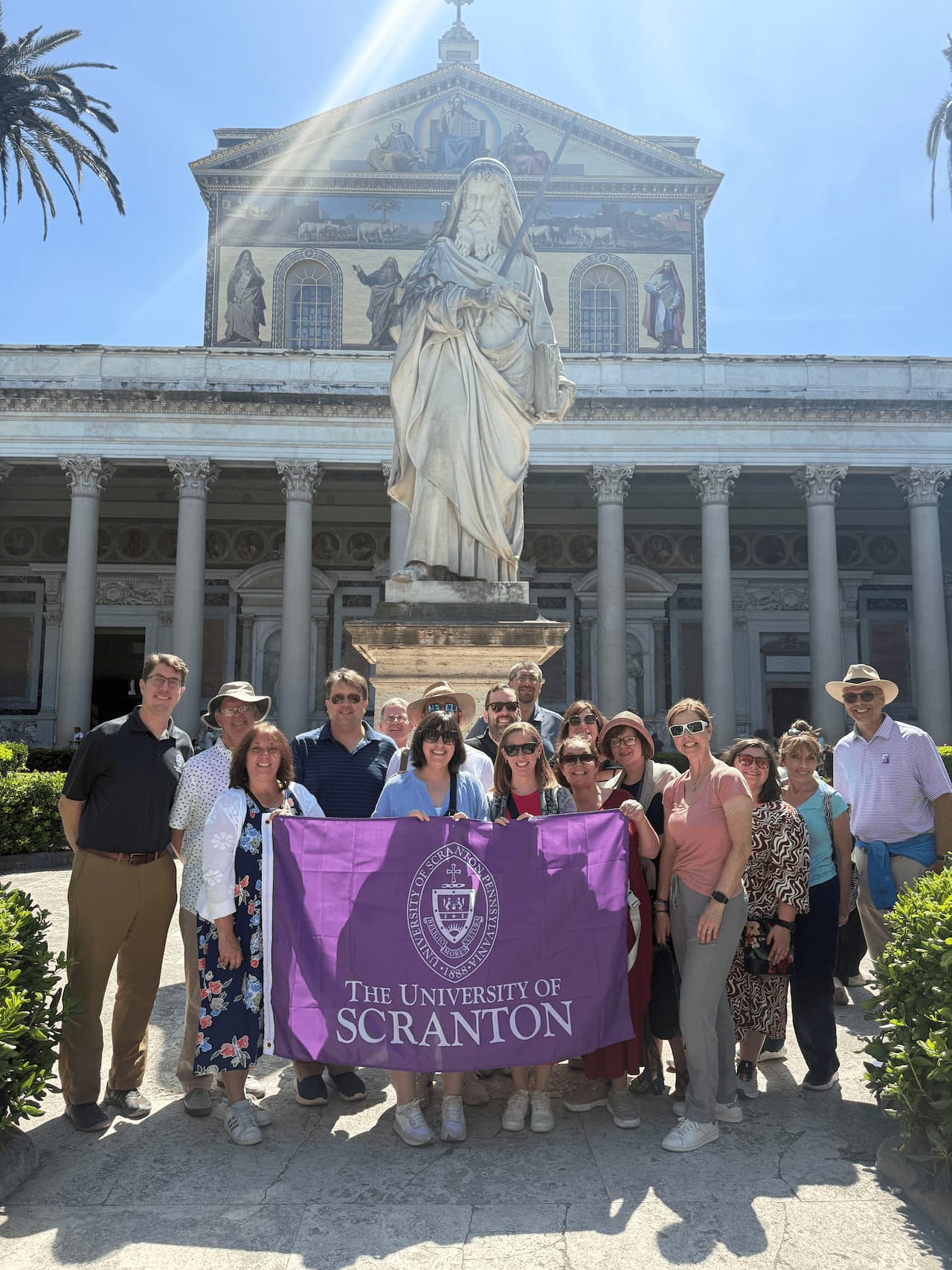
University of Scranton faculty and staff shown near a statue of St. Paul outside the papal basilica in Rome. (Photo Courtesy Bryn Schofield)
University Pilgrims Travel in the Footsteps of St. Ignatius (PHOTOS)
-
06/23/2025
Student members of The University of Scranton’s Business Club recently chose five instructors for the annual Kania School of Management Professor of the Year awards.
The premier prize, KSOM Overall Professor of the Year, was awarded to Daniel Mahoney, Ph.D. ’81, G’85, professor of accounting. Having earned top honors in 2001, 2006, 2010, 2014 and 2018, this is Dr. Mahoney’s sixth time receiving Professor of the Year.
A graduate of The University of Scranton at the undergraduate and graduate levels, Dr. Mahoney earned a doctorate in accounting from Syracuse University. He joined the University faculty in 1990 and is a Certified Public Accountant.
Dr. Mahoney’s work has been widely recognized with numerous awards, including the 2007 Pennsylvania Institute of Certified Public Accountants (PICPA) Outstanding Accounting Educator. His research has been published in Internal Auditor, Management Accounting Quarterly and The CPA Journal, among other academic and professional journals.
In 2020, Dr. Mahoney and several Scranton Accounting Department faculty members were nationally recognized for research publication productivity based on the number of articles published in the leading five accounting practitioner journals. His work was also recognized with the Institute for Management Accountants’ prestigious Gold Lybrand Medal for “outstanding paper.”
Additionally, Ashley Stampone, Ph.D. ’10, G’11, Ph.D’23, assistant professor, received KSOM Accounting Professor of the Year.
David Mahalak, D. Eng., assistant professor, received KSOM Operations and Analytics Professor of the Year.
John Ruddy, D.P.S. ’91, associate professor, received Economics, Finance and International Business Professor of the Year.
Gregory O’Connell, J.D., faculty specialist, received Management and Marketing Professor of the Year.
Mahoney, Others Honored with KSOM Awards
-
06/10/2025
Nine University of Scranton faculty members, spanning seven departments and all three colleges, recently completed the three-day Sustainability Workshop program. The goal of the workshop, which had been on a 10-year hiatus at the University, is to support and encourage faculty to infuse sustainability into their courses.
The workshop included presentations on the environmental, social and economic aspects of sustainability, as well as an overview of strategies for infusing sustainability into their courses. Participants also heard from faculty members who have already incorporated sustainability into their courses, including Rich Larsen, professor of English and theatre, who shared how he teaches students to reuse and sustainability source materials used for set design.
The third and final day of the program included workshop participants presenting and discussing their findings and next steps for integrating lessons learned into their classrooms.
The workshop organizer was Jessica Nolan, Ph.D., professor of psychology, who joined the University in 2008. Dr. Nolan’s work in sustainability practices has earned her recognition, including an Excellence in Integrating Sustainability into the Curriculum Award.
“The Sustainability Workshop is a great way to increase the number of students who come in contact with the topic of sustainability before they graduate and to reinforce the University’s commitment to sustainability as outlined in our strategic plan our pursuit of designation as a Laudato Si University,” Dr. Nolan said.
The Sustainability Workshop is made possible by funding from Ethics Across the Curriculum. The workshop will be held again in spring 2026. All full-time faculty are encouraged to apply.
Faculty Members Complete Sustainability Workshop
-
06/10/2025
JoyAnna S. Hopper, Ph.D., associate professor of political science, recently participated in the 2025 Teaching Vocational Exploration Seminar at The Alexander in Indianapolis, Indiana.
Dr. Hopper was one of 16 participants — chosen from a competitive field of more than 35 applicants — who gathered at the four-day event (June 2-6) offered by the Council of Independent Colleges through its Network for Vocation in Undergraduate Education (NetVUE).
The seminar was organized in hopes of strengthening the teaching of vocational exploration. As part of her work for the seminar, Dr. Hopper will develop a new course or redesign an existing course with a greater focus on vocational exploration.
Dr. Hopper, who graduated with a bachelor’s degree from Eastern Illinois University and master’s and doctoral degrees from the University of Missouri, joined The University of Scranton faculty in fall of 2020. Her areas of specialization include public administration and policy and American politics.
NetVUE, which supports and enriches vocational exploration and discernment among undergraduate students, has a national network of 325-plus colleges and universities.
Political Science Prof. Participates in NetVUE Seminar
-
06/03/2025
Two prestigious communication and leadership associations recently recognized a University of Scranton professor for her outstanding contributions to education.
Stacy Smulowitz, Ph.D., associate professor and chair of the Department of Communications and Media, was honored as the Eastern Communication Association’s Ecroyd Teaching Excellence Award winner.
The Ecroyd Award is given to a full-time educator who has a demonstrated record of employing communication principles as the foundation for constructing pedagogical principles applied in teaching practices. Dr. Smulowitz is the first Scranton professor to earn the Ecroyd Award since it was first handed out by the ECA in 1989. She accepted the award earlier this spring at the ECA Convention in Buffalo, New York.
Dr. Smulowitz was also selected as the recipient of the Outstanding Practice with Local Impact Award, presented by the Women & Leadership Executive Leadership Team of the International Leadership Association. The award will be formally recognized at the organization’s upcoming conference on June 13 in Claremont, California.
“This esteemed award recognizes your exemplary contributions to the field of Women and Leadership,” Vicki Wuolle, Ph.D., chair of the ILA Women and Leadership group, said in a congratulatory letter. “Your unwavering tenacity, profound commitment and enduring passion for advancing scholarship and practice have significantly enriched the discipline and inspired countless others.”
Dr. Smulowitz has been at the University since 2009 and currently teaches courses in advertising, leadership and organizational communication. No matter the subject, Dr. Smulowitz often integrates real-world experience within academic courses. One such example of Dr. Smulowitz’s community-based learning approach was the Scranton team that competed — and earned a “Best” award — at this year’s National Student Advertising Competition.
In addition to her vast work at the University, Dr. Smulowitz is president of Smulowitz Communications, a strategic communication and leadership consulting firm. She is the executive director of the ECA and a member of the American Advertising Federation and the International Association of Business Communicators.
Dr. Smulowitz is the author of “The Communication Solution: Leading Successful Change in Higher Education,” and her research interests include theory and strategy for assessing and promoting excellence in organizational leadership. A former Girl Scout troop leader and Girl Scout who continues working with the organization in an advisory role, Dr. Smulowitz’s passion is paving the way for girls to have equality and unimpeded leadership opportunities.
Dr. Smulowitz holds a bachelor’s degree from Wilkes University, a master’s from Ithaca College and a Ph.D. from Rutgers.
Communications Professor Earns Pair of Awards
-
06/03/2025
The American College of Healthcare Executives of Eastern Pennsylvania presents only two annual awards, recognizing both an outstanding senior executive and an up-and-coming careerist.
While the former previously had a namesake, the latter prize recently attached itself to a longtime University of Scranton professor and department chair.
The newly renamed Daniel J. West, Jr., Ph.D., LFACHE Early Careerist Award was unveiled Oct. 23 at the ACHE of Eastern Pennsylvania Symposium at DeSales University.
Dr. West, professor emeritus in the Department of Health Administration and Human Resources, was unable to attend the symposium. However, the ACHE of Eastern Pennsylvania planned a surprise presentation April 3 at the organization’s Scranton student chapter event.
Organizers presented Dr. West with a detailed shadowbox, complete with pictures, mementos and a written tribute.
“Dan West has had an exemplary career, dedicated to academic excellence and the field of healthcare administration,” states the message inside the shadowbox. “His commitment to The University of Scranton, to students and early careerists, and to ACHE, both regionally and nationally (and in fact, internationally) is well-known.
“His support and participation was vital to completing the merger of the NEPA Chapter into the Eastern PA Chapter of ACHE. And while he could have certainly transitioned off the board at any time over the past few years, he continues to be an active and insightful advisor to us all.”
Dr. West, who holds bachelor’s, master’s and doctoral degrees from the Pennsylvania State University, has had an extensive career in healthcare management, including serving as a CEO for a hospital, medical practice and several businesses. He joined The University of Scranton faculty in 1990 and, in addition to being a professor, he was the Health Administration and Human Resources Department chair for 20-plus years.
Dr. West has planned and conducted dozens of study abroad tours for graduate students and faculty, spanning Bolivia, China, Haiti and Slovakia, to name a few countries. He was awarded an honorary doctorate degree from Trnava University in Slovakia in 2019.
Dr. West has served on numerous University and external committees and his dedication to Scranton was recognized in 2021, when he received the John L. Earl III Award for his service to the University, the faculty and the wider community.
Healthcare Award Named for Longtime Scranton Professor
-
05/20/2025
Ten years of hard work and service to The University of Scranton paid off with Michael Landram, Ph.D., earning some well-deserved and coveted recognition.
Dr. Landram, associate professor in the Department of Health and Human Performance, was chosen by the University’s graduating Class of 2025 as the Teacher of the Year. An annual tradition since 1996, the award, which was presented at Class Night, honors a faculty member who maintains high standards of academic excellence and fairness and inspires students through their enthusiasm and dedication to teaching.
In addition to his teaching expertise, Dr. Landram is known for his interactive approach to on-campus and community-based research, which often involves students. Among Dr. Landram’s lines of research is conducting observational and experimental studies on teaching approaches and outcomes.
All seniors in the kinesiology program complete Dr. Landram’s Clinical Exercise Physiology course and many go through his community-based learning experience, based out of the Jewish Community Center of Scranton. Dr. Landram’s JCC project, titled, “Senior Strength, Endurance and Flexibility,” allows kinesiology students to engage in meaningful, hands-on work while also helping older adults meet their physical activity needs. The project annually serves 50-60 students, 30-40 adults and is internationally and locally recognized and awarded.
Dr. Landram, who joined the University in 2015, serves on numerous University committees, including as the chair of the Institutional Biosafety Committee and the Technology Advisory Group. He is a member of the American College of Sports Medicine and is a certified USA Olympic Weightlifting coach.
Dr. Landram, who received his bachelor’s degree from Truman State University, master’s from Appalachian State University and Ph.D. from the University of Rome “Foro Italico,” is an involved community member off-campus, as well. He is President of the Friends of the Abington Community Library and coaches local sports, including baseball and wrestling, year-round in West Scranton.
Class of 2025 Selects Teacher of the Year
-
05/05/2025
A time-honored teaching award at The University of Scranton was recently presented to Christine Zakzewski, Ph.D., associate professor of physics and engineering.
Student members of the University’s chapter of Alpha Sigma Nu, the national honor society for students in Jesuit colleges and universities, selected Dr. Zakzewski as its Teacher of the Year. Formally known as the Gannon Award for Teaching, the award is named for Edward Gannon, S.J., a 22-year employee of the University who taught philosophy until his death in 1986.
Dr. Zakzewski accepted the award on March 30 at the Alpha Sigma Nu Honor Society Induction Ceremony. The student nominators touted Dr. Zakzewski as someone who’s gone above and beyond to ensure her students are comfortable in their abilities.
“Dr. Z makes a daunting subject manageable and relatable to each student,” said one nominator. “She is very open and cares for each of her students — the embodiment of cura personalis.”
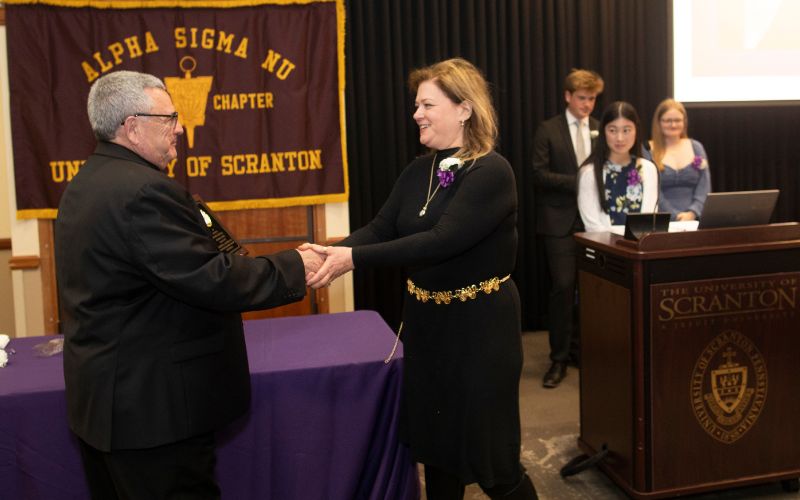
A graduate of Rutgers University, where she earned bachelor’s, master’s and doctoral degrees, Dr. Zakzewski has been a member of the University’s Department of Physics and Engineering since 1992. She was department chair from 2007 to 2017 and the engineering program director from 2017 to 2024, helping to develop the department’s mechanical engineering program while securing external ABET accreditation for its electrical, computer and mechanical engineering programs.
Dr. Zakzewski’s current research focuses on deploying personal space weather station instruments in Antarctica and among citizen scientists across the U.S. for continuous observation of space weather events affecting critical navigation and communication systems. She is the faculty mentor for the IEEE-HKN Engineering Honor Society and is a member of the University’s Institutional Animal Care and Use Committee. A licensed ham radio operator, Dr. Zakzewski collaborates with University faculty and students to teach a ham radio licensing course for the blind and visually impaired at the Lackawanna Blind Association. She’s also a musician, serving as principal bassoonist for the SUNY Orange Community Orchestra.
The Gannon Award for Teaching was established in 1969. Dr. Zakzewski is the 56th recipient of the award, which recognizes outstanding efforts in educating students.
The Scranton chapter of Alpha Sigma Nu was founded in 1943 and is the oldest honor society at the University. Juniors, seniors and graduate students at the University who have distinguished themselves in scholarship, loyalty and service are eligible for membership.
Teacher of the Year Chosen by Alpha Sigma Nu Students
-
04/25/2025
Geng Liu, Ph.D., sees science in everything.
When fish swim and insects fly, Dr. Liu sees them lifting, pushing and flapping just as their bodies were naturally designed to do so.
As interesting as Dr. Liu finds the science behind those movements, however, he needed to tailor a recent lecture about it to people removed from this particular field of study.
So, Dr. Liu prepared slides with colorful GIFs and graphs, photos and videos, all embedded into a presentation for a general audience: his fellow University of Scranton faculty.
“Will you make screensavers?” asked one professor, mesmerized by the vibrant visuals swirling on screen. “I can watch this forever.”
Dr. Liu’s lecture was an informative and interactive hit, as have been hundreds of others in the Faculty Research Seminar Series, now in its 20th year.
Launched in February of 2005, the University’s peer-to-peer lecture series serves multiple purposes, including community building.
$content.getChild('content').textValue“The root of the word ‘college’ and the root of the word ‘collegial’ are the same,” said Stephen Whittaker, Ph.D., an English professor who’s attended the lectures for 20 years. “What that emphasizes is: the people who teach and do research and serve the mission, they thrive off of each other. They’re inspired by each other.”
Dr. Whittaker was one of about 20 faculty members — spanning all three colleges and a dozen departments — who attended the recent lecture by Dr. Liu, assistant professor of physics and engineering. Other lecturers this spring have come from the biology; library; and economics, finance and international business departments.
“We’re all teachers, we’re all lecturers and we all have that in common,” said Amelia Randich, Ph.D., assistant professor of biology. “But, it’s a different experience to hear a mathematician actually talk about what goes into years of work to prove a concept. Honestly, as an audience member, you still might not fully understand it, but you get an idea of the work involved and what they do.”
Dr. Randich is the coordinator of the series, a role she inherited this year from Declan Mulhall, Ph.D., professor of physics and engineering.
Dr. Mulhall and Jerry Muir, Ph.D., professor of mathematics, created the Faculty Research Seminar Series 20 years ago. The idea was formed in a mentorship program for first-year faculty such as Drs. Mulhall and Muir.
“We came to realize that a series of interdisciplinary talks would provide faculty an opportunity to make their work known to those outside of their departments and would serve the secondary purpose of breaking down misconceptions those in other disciplines have about the nature of work in their field,” Dr. Muir recalled.
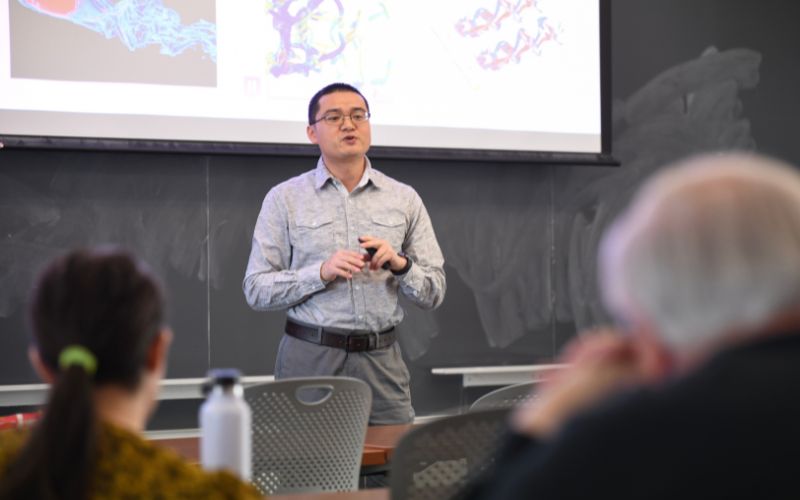
It was an important undertaking, but a big one, too, especially since Drs. Mulhall and Muir were new to the University.
Dr. Mulhall had previously been at Michigan State, where, he said, research talks like this were the norm. He gave the first talk in Scranton’s series.
“I don’t know that either Declan or I saw this as ambitious at the time,” Dr. Muir said. “We were both new to the University, so maybe we didn’t appreciate where some pitfalls could have lain in getting this off the ground.
“It really came together quickly and, fortunately, there was a real appetite for something like this, leading to instant success.”
Dr. Randich was one of several speakers in February for a special presentation on Darwin Day.
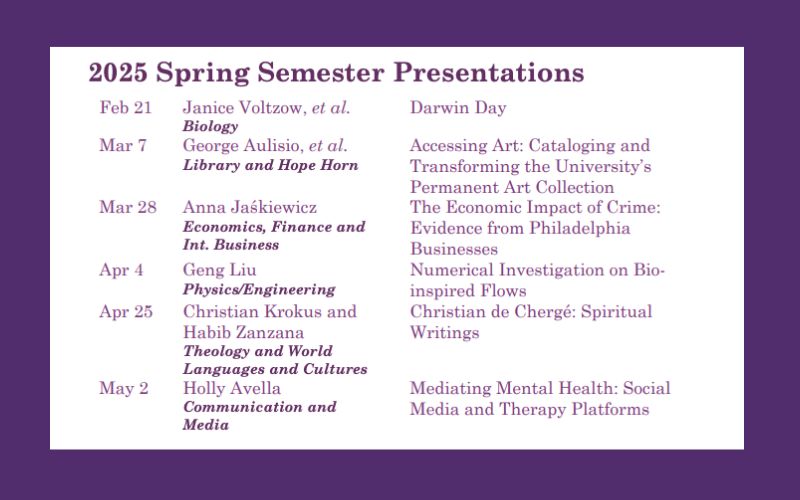
Dr. Randich took a historical approach in her lecture, telling of the complicated relationship between Charles Darwin and Alfred Russel Wallace. While battling malaria on a remote Indonesian island in the 1850s, Wallace contacted Darwin with his research on natural selection, which helped influence the publishing of Darwin’s “On the Origin of Species.”
“I like to approach the Faculty Research Seminar from the point of view that you’re talking to a totally general audience who knows nothing about your field,” said Dr. Randich, who specializes in microbiology. “Even in my talk on my research, I used a lot of slides that I use to teach students about what viruses are, about what bacteria are. Your audience needs those fundamentals — but you can connect it to higher-level ideas really quickly because the faculty are prepared to think critically about everything. We often get really interesting questions.”
Some questions are serious and others are humorous. Occasionally, the lectures spark further collaboration and discussion among faculty.
One thing is a given at just about every lecture, though, and it’s been that way for 20 years.
$content.getChild('content').textValue“It is normal to leave the talks with a feeling of knowing the speaker better and having an appreciation of their field and contribution,” Dr. Mulhall said. “I’ve had a great laugh at least seven Fridays a semester and got to know a lot of my colleagues.”
All interested University faculty and staff are invited to attend this year’s final presentation on Friday, May 2, in Room 439 in the Loyola Science Center. Refreshments will be served.
For more information and if you’re interested in presenting a seminar in the 2025-26 academic year, email Dr. Randich at amelia.randich@scranton.edu.
Celebrating 20 Years of Faculty Research Seminars
-
04/25/2025
A clinician, program director, researcher and instructor whose career spans four decades, Deborah Budash’s, Ph.D., OTR/L, FAOTA, contributions to occupational therapy were recently recognized at the national level.
Dr. Budash, an assistant professor who joined The University of Scranton in 2019, earned membership to the American Occupational Therapy Association’s Roster of Fellows. She’s one of 62 new Fellows who earned the distinction at the organization’s Awards and Recognition Ceremony, held April 5.
“Her innate strengths of creativity, professionalism and kindness integrate to provide environments rich for learning, growth and achievement,” the AOTA said on its website. “By seeking to engage and empower all to utilize their unique abilities, Dr. Budash fosters a positive and uplifting community wherever she is.”
Dr. Budash is a graduate of the University of Pittsburgh and Indiana University of Pennsylvania, where she earned her bachelor’s and master’s degrees, respectively. She earned a doctorate in education from Northcentral University in Scottsdale, Arizona.
The author of numerous articles, book chapters and reviews, as well as a book, “Achieving Persistence in Online Programs: Reflections of Graduate Learners and Faculty,” Dr. Budash previously worked from 2007 to 2019 at St. Francis University in Loretto as faculty, program director and chair of the Master of Medical Science and Master of Health Science programs.
The American Occupational Therapy Association represents nearly 250,000 professionals in the occupational therapy space, advancing its education, practice and research.
Occupational Therapy Professor Receives Honor
-
04/04/2025
The University of Scranton’s Jesuit Center held a Spirituality luncheon that featured a panel of faculty and staff who had recently participated in the Jesuit Center’s Educational Pilgrimage to El Salvador. In January, they visited Saint Romero’s memorial and learned about his impact on the people of El Salvador.
This year marks the 45th St. Oscar Romero’s death. To honor the anniversary, the Jesuit Center has collaborated with the Library’s Special Collections to have an exhibit in the Heritage Room.
$content.getChild('content').textValueFaculty Members Speak about Pilgrimage to El Salvador
-
03/21/2025
The Laudato Si’ Community Engagement Subcommittee and the University Staff Senate invite faculty and staff to attend “Using tax credits for sustainable home improvements,” an informative luncheon event on April 15, from 11:30 a.m. to 1 p.m. in Brennan 509.
Learn how you can save money and reduce your carbon footprint through energy-efficient home upgrades while taking advantage of significant tax credits under the Inflation Reduction Act. An expert panel will discuss heat pumps, solar panels, batteries, and electric vehicles, providing valuable insights for homeowners looking to make sustainable improvements.
Featured speakers include:
Blair Buselli: Business Owner at Buselli Solutions, NABCEP Certified Solar Professional, licensed master electrician and Fujitsu Elite Ductless Heating and Cooling contractor
Thomas Spall: President at T. E. Spall & Son, LLC, specializing in HVAC, Plumbing and Geothermal Services
Marc Seid, Ph.D.: Professor of biology and electric vehicle owner
Don't miss this opportunity to learn how you can save money, reduce your energy bills, live more comfortably and contribute to a more sustainable future. Lunch will be served during the event.
Registration is required. Please use this link to reserve a spot: https://www.surveymonkey.com/r/IRA_2025
Find Out How To Use Tax Credits for Sustainable Home Improvement
-
03/04/2025
Author Jeffery D. Long, Ph.D, the Carl W. Zeigler professor of religion, philosophy and Asian studies at Elizabethtown College, discussed peace, love and God-consciousness and how they relate to Hinduism, George Harrison and The Beatles at The University of Scranton on March 3. Dr. Long has written several books and has presented numerous lectures about world theologies and philosophies.
The lecture was sponsored by the University’s Gail and Francis Slattery Center for the Ignatian Humanities, Jesuit Center, Department of Theology/Religious Studies, Asian Studies Concentration, and Peace and Justice Studies Concentration.
The lecture took place in the Pearn Auditorium in Brennan Hall.
$content.getChild('content').textValueAuthor Discusses Peace, Love and God-consciousness
-
02/25/2025
Melissa Anyiwo, Ph.D., associate professor of history and director of the Black Studies Concentration at The University of Scranton, discussed the Black American Superheroes course she is teaching this semester for a WBRE news segment on Black History Month.
“I think the biggest part is celebrating black success,” said Dr. Anyiwo in the news segment. “What I tend to focus on is the ways in which people of African descent have excelled and exceeded in America, and that’s really driven my teaching.”
University student Serena Martin, a political science major from the Bronx, New York, and president of the Lewis Stanley Brown Black Student Union, is also interviewed in this segment. A Dean’s List student, Martin is also a member of the University’s Undergraduate Honors Program.
In addition, Dr. Anyiwo introduced the film “The Angry Black Girl and Her Monster” at its screening on campus as part of the University’s Black History Month events.
During February, the University hosted lectures, panel discussions, social events, film screenings and other events to celebrate Black History Month. The University’s Cultural Center, the Louis Stanley Brown Black Student Union, the Black Studies Concentration, the Jesuit Center, the Weinberg Memorial Library, the Office of Alumni Relations, the Roche Family Center for Career Development and the Jane Kopas Women’s Center were among those planning Black History Month events.
Scranton Celebrates Black History Month
-
02/11/2025
The University of Scranton Accounting Department ranked No. 2 (tied) internationally for accounting education research published in peer-reviewed accounting journals during the most recent six-year period, according to the 2024 Brigham Young University Accounting Rankings just published.
The 2024 report also ranked Douglas M. Boyle, DBA '88, professor and chair of the Accounting Department and director of the Ph.D. program, No. 2 in the world for accounting education publication volume in the past six years, and No. 91 (tied) for Accounting Information System Research. Accounting faculty members James F. Boyle DBA '86, G'04, associate professor and director of the Master of Accountancy program, was ranked No. 10 (tied); and Amanda Marcy, Ph.D. ’10, G’11, assistant professor, and Ashley Stampone, Ph.D. ’10, G’11, PHD'22, assistant professor, were ranked No. 79 (tied) worldwide. Dr. Stampone was also ranked No. 91 (tied) for Accounting Information System Research.
The Brigham Young University Accounting Rankings are considered to be the gold standard in accounting disciplines.
“The international recognition for education research published by our Accounting Department faculty is a testament to their steadfast commitment to not only teach accounting students at Scranton but to advance further learning and knowledge for the betterment of the accounting profession,” said Mark Higgins, Ph.D., dean of the University’s Kania School of Management and professor of accounting, who noted that all four professors recognized are graduates of The University of Scranton. “It is also a testament to the University’s commitment to excellence in teaching, research and service, which is embodied in each of these outstanding professors.”
This is the fifth consecutive year the University’s Accounting Department was ranked among the top research publishers in the world in the prestigious Brigham Young University Accounting Rankings. The report ranks accounting programs and faculty throughout the world based on their success in publishing in top-tier, peer-reviewed accounting journals. The report is updated annually and includes ranks for specific categories of research and for specific time periods.
Dr. Douglas Boyle is a Certified Public Accountant and a Certified Management Accountant with more than 30 years of industry executive experience. He joined the faculty at Scranton in 2009. An award-winning researcher and teacher, Dr. Boyle has received the Institute of Management Accountants’ (IMA) Committee on Ethics and Strategic Finance Curt Verschoor Ethics Feature of the Year Award three times and was also selected as the IMA Research Foundation Distinguished Scholar in 2022, among numerous other awards. At Scranton, Dr. Boyle earned Provost Excellence Awards for University Service and Leadership, Scholarship of Teaching and Scholarly Publication; and the Faculty Senate’s Excellence in Graduate Teaching Award. He was named the Kania School of Management’s Alperin Teaching Fellow for 2015 to 2018 and received their Advisory Board’s Award for Curriculum Innovation for 2017-2018. He was twice recognized as the KSOM Teacher of the Year. He is the founder and director of the University’s Ph.D. in Accounting and Nonprofit Leadership Certificate programs. He earned a bachelor’s degree from The University of Scranton, an MBA from Columbia University and a doctorate from Kennesaw State University.
A Certified Public Accountant with significant professional experience working in public accounting and in internal auditing, Dr. James F. Boyle has taught part-time at the University since 2009 and full-time since 2012. He serves as faculty advisor for Accounting Internships at Scranton. He has co-authored articles published in many peer-reviewed academic and practitioner journals, including The Accounting Educators’ Journal, The CPA Journal, Strategic Finance, The Journal of Forensic and Investigative Accounting, and Internal Auditing. He received several publishing awards, including the 2015 IMA’s Lybrand Silver Medal and the 2016 IMA Certificate of Merit Award. He earned a bachelor’s degree and an MBA from The University of Scranton and a D.B.A. in Accounting from Kennesaw State University.
A Certified Public Accountant, Dr. Marcy has twice received the Curt Verschoor Ethics Feature of the Year Award from the IMA’s Committee on Ethics and Strategic Finance. She was named assistant professor of accounting at Scranton in 2018 and previously served as a faculty specialist in the department. She is a member of the American Institute of Certified Public Accountants, the Pennsylvania Institute of Certified Public Accountants, the American Accounting Association and the Healthcare Financial Management Association. Dr. Marcy earned a bachelor’s degree, an MBA and a Ph.D. in accounting from The University of Scranton.
An award-winning teacher, Dr. Stampone was selected by students of Scranton’s Business Club as the Kania School of Management Professor of the Year four of the last five years. Since joining Scranton’s faculty in 2016, Dr. Stampone has garnered numerous state and national awards and professional honors. In 2019, she was given the IMA’s Faculty Leadership Award, and in 2021, she won IMA’s Ursel K. Albers IMA Campus Advocate of the Year Award, which recognizes a campus advocate/student chapter advisor who has made significant contributions to the IMA and student members in particular. Dr. Stampone earned a bachelor’s degree, an MBA and a Ph.D. from The University of Scranton.
Accounting Dept. Ranked No. 2 in Education Research Productivity
-
01/28/2025
Relatively recent advances in computational computer analysis have made possible sophisticated modeling concepts related to the Earth’s atmosphere and its interactions with electromagnetic waves. At the same time, worldwide data on the Earth’s ionosphere collected by a network of amateur ham radio operators developed by a University of Scranton physics and engineering professor provides a unique opportunity to test some of these advanced modeling theories.
A research project to validate space plasma models and effects on ground high frequency (HF) communication developed through the studies of Eun-Hwa Kim, Ph.D., principal research physicist at Princeton Plasma Physics Laboratory and physics research professor at Andrews University, will do just that.
The National Science Foundation (NSF) awarded a nearly $120,000 collaborative grant to Nathaniel Frissell, Ph.D., associate professor physics and engineering at Scranton, to be part of a research project led by Dr. Kim. The project encompasses data collected on the ionosphere by the HamSCI network of ham amateur radio citizen scientists organized by Dr. Frissell to validate the effects of space plasma irregularities on ground HF communications developed through Dr. Kim’s research.
Kornyanat Kukkai Hozumi, Ph.D., a post-doctoral research associate with The University of Scranton whose area of specialty is the Earth’s Equatorial Plasma Bubbles (EPB) and radio wave propagation, will work with Dr. Frissell and Dr. Kim and her team on this project.
“The EPB is an irregularity in the magnetic lower latitude region of the ionosphere. The nighttime phenomenon often occurs in the ionospheric region over both land and ocean” said Dr. Hozumi, who noted this project will also look at the effect on ground HF communications related to polar cap patches, which are irregularities in the ionosphere in the polar region.
“The research project will compare simulation results of the way high-frequency waves react to these irregularities from the EPB and polar cap models with the real-world data collected by the HamSCI network in these hard-to-reach areas of the world,” said Dr. Hozumi.
The HamSCI network, developed by Dr. Frissell and supported by multiple six- and seven-figure grants from NSF, NASA and other organizations, is a worldwide group of licensed amateur radio operators who gather data to measure the effects of weather in the ionosphere.
“The data collected by this network over the past several years spans the ocean and other parts of the globe, such as the polar regions, where it is difficult to install equipment able to capture these modulations in the ionosphere,” said Dr. Hozumi, who also noted that the HamSCI data gathered is openly shared with the public.
“The data creates a high potential for study of the plasma bubble and polar regions,” said Dr. Hozumi.
Dr. Hozumi earned her bachelor’s and master’s degrees from King Mongkut’s Institute of Technology Ladkrabang, Thailand, and her Ph.D. from Kyoto University in Japan. Before becoming a post-doctoral research associate with Scranton, she worked as a researcher at the Space Environment Laboratory, National Institute of Information and Communications Technology in Japan.
Dr. Frissell will serve as The University of Scranton institutional lead principal investigator for the collaborative grant, which is part of the NSF’s Coupling, Energetics, and Dynamics of Atmospheric Regions (CEDAR) research and is titled “Effects of Ionospheric Density Irregularities on High-Frequency Radio Wave Propagation.”
Dr. Frissell joined the faculty at Scranton in 2019. A space physicist, Dr. Frissell’s research focuses on the ionosphere. Through numerous grants he has received in the past five years from the National Science Foundation (NSF), NASA, the Amateur Radio Digital Communications (ARDC) foundation and other organizations, Dr. Frissell, physics and engineering faculty and students, as well as community volunteers, have been involved in numerous space research projects, including one of just five projects selected by NASA’s Citizen Science Investigations to study the effects of the total solar eclipse on the earth’s ionosphere. Most recently, he was awarded a $1.8 million NSF grant to further develop the scientific measuring capabilities for data collection of the HamSCI network.
Grants have also supported the development of state-of-the-art amateur radio station W3USR on the fifth floor of the Loyola Science Center on The University of Scranton’s campus.
Dr. Frissell earned his bachelor’s degree from Montclair State University and his master’s degree and doctorate from Virginia Tech.
NSF Grant Awarded to Scranton Physics Professor
-
01/15/2025
Steven J. Szydlowski, DHA ’98, G’00, G’01, professor and chair of the Department of Health Administration and Human Resources at The University of Scranton, was selected as the 2025 Commission on Accreditation of Healthcare Management Education (CAHME)/Dolores Clement Fellow of the Year.
The award by the prestigious accrediting body recognizes a CAHME fellow who has a history of service and helping programs to succeed and a demonstrated commitment to advance the quality of healthcare management education. A panel of Master Fellows selected Szydlowski as this year’s award recipient based on his active involvement as a Fellow and his significant contributions to the accreditation process.
A three-time graduate of The University of Scranton, Dr. Szydlowski joined the faculty at Scranton in 2004. His research interests include integrative medicine and community health. He has published articles in scholarly and professional journals and has given presentations and served as a panelist at international academic and practitioner conferences on topics that include global health issues, healthcare management and community health. He has also facilitated management development workshops and strategic planning sessions in several countries.
Dr. Szydlowski serves as director of the University’s Master of Health Administration (MHA) program, which received the 2018 Commission on Accreditation of Healthcare Management Education (CAHME)/Canon Award for Sustainability in Healthcare Management Education and Practice. The national award from CAHME and Canon Solutions America recognized Scranton’s MHA program for its sustainability initiatives in the context of corporate responsibility and Jesuit pedagogy.
Also in 2018, Dr. Szydlowski received the University’s Excellence in Advancing Global Learning Award, presented to faculty members who integrate international issues and perspectives into the curriculum.
Dr. Szydlowski has held executive positions at a community hospital, integrative medicine clinic, and physician group practices and works with the Healthy Northeast Pennsylvania Initiative.
Dr. Szydlowski earned his bachelor’s degree, MBA and MHA from The University of Scranton and his doctorate from the Medical University of South Carolina.
CAHME is an interdisciplinary group of educational, professional, clinical and other health sector organizations devoted to quality improvement of education for healthcare management and administration professionals. Additionally, CAHME accreditation establishes the standard of measurement of graduate healthcare management education for the world community
Steven Szydlowski, DHA, Recognized by CAHME
-
01/03/2025
The University of Scranton awarded 2025 faculty development intersession grants to 13 faculty members.
Michael Azar, Ph.D., professor of theology and religious studies, received a grant to research “The Gospel of John and the Development of Jewish-Christian Passover.” Dr. Azar received a bachelor’s degree from Colorado Christian University and a master’s degree from St. Vladimir’s Orthodox Theological Seminary. He also received a master’s degree and a doctoral degree from Fordham University. He has worked for the University since 2013.
Ovidiu Cocieru, Ph.D., assistant professor of management and marketing, received a grant to research “An exploration of educator experience in an externally oriented Classroom-as-Organization.” He received a bachelor’s degree from Alexandru Ioan Cuza University in Romania, a master’s degree and a doctoral degree from the University of Massachusetts at Amherst. He joined the faculty at Scranton in 2019.
Megan Heeder, Ph.D., assistant professor of theology and religious studies, received a grant to support the publishing of “Christocentric Ethics, Misguided Moralism, and Eating Disorders: Veritatis Splendor’s Contribution to Understanding Eating Disorders in the Age of Social Media” in the 30th anniversary of Veritatis Splendor Special Issue, spring 2025. She received a bachelor’s degree and a master’s degree from the University of Notre Dame, a Master of Theological Studies degree from Boston College, and a Ph.D. from Marquette University. She joined the faculty at Scranton in 2024.
Vanessa Ann Jensen, Ed.D., associate professor of counseling and human services, received a grant to research “Realignment of Applied Behavior Analysis Curriculum to Meet Accreditation Standards and Support Student Success on the Behavior Analyst Certification Board Exam.” She serves as co-director of the University’s Office of Educational Assessment. She earned a bachelor’s degree and a master’s degree from The University of Scranton and a doctoral degree from the Indiana University of Pennsylvania. She joined the faculty at Scranton in 2005.
Joseph Klobusicky, Ph.D., assistant professor of mathematics, received a grant to research “Generating microstructure with machine learning.” He received a bachelor’s degree from Carnegie Mellon University, and a master’s degree and doctoral degree from Brown University. He Joined the faculty at Scranton in 2020.
Jinqing Liu, Ph.D., assistant professor of education, received a grant to research “From Ritual to Explorative: The Impact of Writing Collective Arguments on Preservice Teachers’ Fraction Knowledge Development.” She received a bachelor’s degree from the Zhanjiang Normal University in China, a master’s degree from Tsinghua University in China, and a Ph.D. from the University of Indiana, Bloomington. She joined the faculty at Scranton in 2024.
Ehsan Mahyari, Ph.D., assistant professor of operations and analytics, received a grant to research “Optimal Charging Control for Autonomous Electric Ride-Sharing Fleet.” He received a bachelor’s degree from Sharif University of Technology, Golpayegan, Isfahan, a master’s degree from Amirkabir University of Technology, Tehran, Iran, and a doctorate from the University of Alabama. He joined the faculty at Scranton in 2024.
Krzysztof Plotka, Ph.D., professor of mathematics, received a grant to research “Large Multiplicative Groups within the class of Hamel Functions.” He received a master’s degree from the University of Gdansk in Poland and a doctoral degree from West Virginia University. He has worked for the University since 2001.
Sheli Pratt-McHugh, associate professor and chair of the Weinberg Memorial Library, received a grant to research “Gun Violence Prevention and Librarians.” Professor McHugh earned a bachelor’s from The Pennsylvania State University and a master’s degree from Clarion University. She has worked at the University since 2010.
Yamile Silva, Ph.D., professor of world languages and cultures, received a grant to research “Unearthing a Hidden Voice: Abigail Mejia’s Literary Response to the US Occupation (1916-1924).” She received a bachelor’s degree from Los Andes University and a master’s degree and doctorate from the University of Massachusetts at Amherst. She joined the faculty at Scranton in 2009.
Nabil Tamimi, Ph.D., professor and chair of the Department of Operations and Analytics, received a grant to research “Employing Optimization Techniques to Compute Perfect Withdrawal Rates of Immediate Fixed Annuities Under Various Interest Rates and Life Expectancies.” He earned a bachelor’s degree from Pennsylvania State University, an MBA degree from The University of Scranton and a doctoral degree from Temple University. He joined the faculty at Scranton in 1993.
Mehmet A Yetim, Ph.D., assistant professor of mangement and marketing, received a grant to research “Empathy as a Strategic Asset: Creating Multi-dimensional Value in Organizations.” He earned a bachelor’s degree from Celal Bayar University, Manisa, Turkey, a master’s degree from New York University and a doctoral degree from Louisiana State University, Baton Rouge. He joined the faculty at Scranton in 2024.
Xinyu Zhou, Ph.D., assistant professor of management and marketing, received a grant to research “Navigating Uncertainty: Mitigating Negative Effects through a Social Norm Perspective.” She earned a bachelor’s degree from China University of Geosciences in Wuhan, China, a master’s degree from Zhongnan University of Economics and Law, China, and a doctoral degree from New Mexico State University. She joined the faculty at Scranton in 2024.
Intersession Grants Awarded for January 2025
-
12/04/2024
University of Scranton biology professors offer some tips to make your holiday gift-giving and season a little more “green” from a sustainability perspective – with many tips also saving some “green” in your wallet.
Greening Your Gifts
Janice Voltzow, Ph.D., professor and chair of the Biology Department and director of the University’s Magis Honors Program in STEM, suggests “giving personal gift certificates good for babysitting, a home-cooked meal, or house cleaning rather than buying more stuff that will accumulate. The certificates can be written on scraps of fancy paper or old wrapping paper.”
David Ingber, Ph.D., faculty specialist in the Biology Department, suggests gifting “experiences instead of items. Things like concert or event tickets, spa gift cards, cooking/art class sign ups, or park memberships can be impactful and have no upfront material costs.”
He also suggests considering digital memberships which can be customized based on the personal interests of the recipient.
“It’s another great way to go really niche and tailor a gift to the person you are giving it to, while avoiding upfront environmental costs,” said Dr. Ingber. He also suggests gifting baked goods – or even going “fossil hunting or rock hounding” for friends interested in geology or paleontology.
Both Drs. Voltzow and Ingber suggest wrapping presents in cloth sacks or re-using wrapping paper, tissue paper, ribbons and gift bags.
“This keeps them out of the landfill and prevents buying more every year. You can tear the front off of holiday cards you receive this year and use them as gift tags next year,” said Dr. Voltzow.
Greening Your Holiday
For “greening” your holiday, Dr. Voltzow’s suggestions include buying a locally-grown live tree and decorating it with re-useable, non-plastic ornaments, or with ornaments you crafted from natural, compostable materials.
Dr. Ingber suggests avoiding food waste and being mindful of leftovers.
“Don’t let good food go to waste, keep an eye on what leftovers you have in the fridge, rotating the oldest to the front so they are easily accessible. This way, you’re not letting any delicious morsels go bad, and you can cook less overall, which saves energy and money,” said Dr. Ingber.
The professors also suggest using food from local farms for your meals – and putting your outdoor lights on a timer.
“Spread all the holiday cheer you want, but fewer people are going to see your outdoor decorations at 3 a.m. Setting a timer to shut down your lights and decorations in the wee hours and then turning them back on the following evening can save you energy and effort,” said Dr. Ingber.
Bonus Holiday Health Tip
Maintaining weight between Thanksgiving and New Year’s Day is the optimum goal, according to an OpEd published in Healthcare Business Today by Joan Grossman, Ph.D., associate professor of health and human performance at The University of Scranton.
Green Gift Ideas and More for Your Holiday
-
11/20/2024
Joan Grossman, Ph.D., associate professor of health and human performance at The University of Scranton, has discussed her research on an effective exercise method for post-menopausal women in several publications recently.
“The average female gains 35 pounds between ages 25 and 50, and then at age 51, most women experience menopause. With the childbearing years over, hot flashes begin and hormone levels change, creating a perfect storm for more weight gain,” said Dr. Grossman in an Academic Minute segment published on Nov. 20. “My research shows that there is an effective exercise method that can help. Since many women spend most of their time caring for others, my work focuses on quick exercise routines compared to hours at the gym or going for long walks.”
Dr. Grossman discussed her studies on the effectiveness of high intensity interval training (HIIT) workouts for post-menopausal women in an article published in Women’s World in July, and in the fall in podcasts Age Better and MD for You, in addition to Academic Minute.
Academic Minute, produced by WAMC/Northeast Public Radio, a regional public radio network serving parts of New York, Massachusetts, Connecticut, Vermont, New Jersey, New Hampshire and Pennsylvania, is hosted by Lynn Pasquerella, president of the American Association of Colleges and Universities.
Dr. Grossman joined the faculty at the University in 2010. A Registered Dietitian Nutritionist, Dr. Grossman earned her bachelor’s degree from King’s College, her master’s degree from Colorado State University and her Ph.D. from Marywood University.
Holiday Health Tip:
Maintaining weight between Thanksgiving and New Year’s Day is the optimum goal, according to an OpEd published in Healthcare Business Today by Joan Grossman, Ph.D., associate professor of health and human performance at The University of Scranton.
Professor Discusses Research on Effective Exercise Regimen
-
10/22/2024
The National Science Foundation (NSF) awarded a $1.8 million collaborative grant to Nathaniel Frissell, Ph.D., associate professor physics and engineering at The University of Scranton, to provide sophisticated atmospheric measuring equipment to a nationwide network of ham radio enthusiast and citizen scientists that he developed. Dr. Frissell will serve as the lead principal investigator of the collaborative grant and will work with colleagues at Case Western Reserve University, the University of Alabama and the New Jersey Institute of Technology.
The grant will further the collective data gathering capabilities of the Ham Radio Science Citizen Investigation project led by Dr. Frissell.
“The grant will establish the only wide-spread, coordinated high frequency, very low frequency and ground magnetometer measurement network that is distributed primarily across the midlatitude region,” said Dr. Frissell.
According to Dr. Frissell, the grant supports the development of a network of 30 standardized receive stations capable of observing high frequency (HF) Doppler shifts, HF amateur radio Weak Signal Propagation Reporter (WSPR, pronounced “whisper”) transmissions, very low frequency (VLF) transmissions and natural radio emissions, and the geomagnetic field.
The enhanced capabilities to collect data on the Earth’s ionosphere for this project builds on the HamSCI Personal Space Weather Station network of licensed amateur radio operators who have helped measure the effects of weather in the upper levels of Earth’s atmosphere through a $1.3 million NSF funded project previously awarded to Dr. Frissell.
According to Dr. Frissell, the new NSF grant will support systems that will be deployed to high-quality, low-noise sites throughout the previously established U.S. personal weather station sites that are most suitable to increasing measurement density and the quality of the current network.
“Priority will be given to locations that can simultaneously and effectively operate all three HF, VLF, and magnetometer instruments,” said Dr. Frissell.
The grant also supports ten fully-automated, Global Positioning System (GPS) disciplined amateur radio WSPRSonde transmitters to serve as a new source of GPS- stabilized high frequency beacon signals.
“These signals will be utilized not only by this project’s personal weather station receivers, but also by the existing global WSPR amateur radio receiver network that provides millions of daily observations,” said Dr. Frissell who explained data collected from all the instruments will be uploaded for HamSCI research. He said the data will also be publicly available.
Collaborators for the project include: Majid Mokhtari, senior laboratory engineer for the Physics and Engineering Department, The University of Scranton; Christian Zorman, Ph.D., associate dean for research, and professor of electrical, computer and systems engineering, Case Western Reserve University; Kristina Collins, Ph.D., research scientist, Space Science Institute; Travis Atkison, Ph.D., associate professor of computer science, University of Alabama; William Engelke, chief architect and engineer of the Personal Space Weather Station (PSWS) project, University of Alabama; Hyomin Kim, Ph.D., assistant professor of physics, New Jersey Institute of Technology; and Gareth Perry, Ph.D., assistant professor of physics New Jersey Institute of Technology; in addition to HamSCI volunteers and collaborators.
A space physicist, Dr. Frissell’s research focuses on the ionosphere, which is an atmospheric region that extends from about 50 to 600 miles above the earth’s surface. According to Dr. Frissell, changes in the ionosphere alter the behavior of radio wave propagation and greatly affect the radio communications and global navigation satellite systems. Understanding ionospheric structures and processes will lead to an increased understanding and prediction of these effects.
Through numerous grants he has received in the past five years from the National Science Foundation (NSF), NASA, the Amateur Radio Digital Communications (ARDC) foundation and other organizations, Dr. Frissell, physics and engineering faculty and students, as well as community volunteers, have been involved in numerous research projects, including one of just five projects selected by NASA’s Citizen Science Investigations to study the effects of the total solar eclipse on the earth’s ionosphere.
Grants have also supported the development of state-of-the-art amateur radio station W3USR on the fifth floor of the Loyola Science Center on campus.
Dr. Frissell joined the faculty at Scranton in 2019. He received his bachelor’s degree from Montclair State University, and his master’s degree and doctorate from Virginia Tech.
Scranton Professor Awarded $1.8 Million NSF Grant
-
10/21/2024
The 23rd Annual U.S. Conference on Disability at The University of Scranton, titled “The Rehabilitation Act: Learning From Our Past, Knowing Our Present, and Building Our Future,” featured nationally respected speakers addressing access, advocacy and employment in the age of artificial intelligence.
Lori Bruch, Ed.D, associate professor, Counseling and Human Services Department, and faculty fellow, Office of the Provost, received the inaugural Ralph N. Pacinelli, Ed.D., Award, presented at the conference in honor of the lifelong leader in vocational rehabilitation.
$content.getChild('content').textValueDr. Bruch joined the University faculty full-time in 1995, having previously served as an adjunct professor at Scranton since 1989. She has served as chair of the Counseling and Human Services Department since 2015. She also served as co-chair of the University’s annual Conference on Disability for more than a decade.
Earlier this year, she received the University’s Excellence for University Service and Leadership Award, which recognizes a faculty member who has contributed service to the University community, particularly those who demonstrate academic leadership by effectively mentoring their junior colleagues.
Dr. Bruch’s research interests include the American’s with Disabilities Act, employment of individuals with disabilities, attitudes towards persons with disabilities, professional identity for rehabilitation counselors, rehabilitation counseling curriculum, supervision and accreditation, and life span development. She has published nearly 20 articles in academic journals and had presented at more than 40 conferences and meetings.
Dr. Bruch is a member of many national and regional organizations, having served as a board member and chair of the Council on Rehabilitation Education, president of the National Association of Rehabilitation Leadership and president of the Pennsylvania Rehabilitation Association, to name just a few.
$content.getChild('content').textValueSpeakers at the Conference on Disability included Carol Dobak, deputy commissioner of the U.S. Rehabilitation Services Administration in the Office of Special Education and Rehabilitative Services; Alison Levy, director of the Office of Technical and Information Services at the U.S. Access Board; Kathy West-Evans, director of business relations for the National Employment Team of the Council of State Administrators of Vocational Rehabilitation; John Evans, recently retired Vocational Rehabilitation program administrator for employee relations for the State of Washington Department Social Health Services Division of Vocational Rehabilitation; and Gary Karp disability awareness speaker, trainer, consultant and author of “Life On Wheels: For the Active Wheelchair User.” University of Scranton professors Kathy Stefanelli, Ph.D., counseling and human services and Renée Hakim, Ph.D., chair and program director of physical therapy at Scranton, also presented at the conference.
The conference was presented by the University’s Leahy College of Health Sciences and the Edward R. Leahy Jr. Endowment. Conference co-chairs were Rebecca Dalgin, Ph.D., professor and chair of the University’s Department of Counseling and Human Services, and Dr. Bruch. University benefactors Edward R. and Patricia Leahy served as honorary conference co-chairs.
Professor Receives Award at Disability Conference
-
10/08/2024
State-of-the-art biological instrumentation will soon be added to The University of Scranton’s science laboratories, which are already recognized among best facilities in America, courtesy of a half-million-dollar plus National Science Foundation (NSF) grant.
University biology professors were awarded a $551,957 NSF Major Research Instrumentation grant for the purchase an Olympus FV4000 Confocal Microscope System that will be used to enhance teaching and cutting-edge research in multiple biological fields for undergraduate and graduate students.
Ashley Driver, Ph.D., assistant professor of biology, is the principal investigator for the grant. Her colleagues in the University’s Biology Department are co-principal investigators: Marc Seid, Ph.D., professor of biology; Jong-Hyun Son, Ph.D., associate professor of biology; and Joseph Brague, Ph.D., assistant professor of biology.
“The confocal microscope system will allow for higher resolution and more rapid imaging of cells and tissues, as well as time-lapse imaging, and controlled-culture conditions that will support multiple research programs investigating questions in cellular biology, neurobiology, microbiology, molecular biology, parasitology and physiology,” said Dr. Driver, who noted the instrument will be integrated into multiple upper-level biology courses to enhance research experiences to undergraduate and graduate students in STEM fields.
“The use of this equipment by our students in their coursework and research projects will give them advanced microscopy experience at the undergraduate level,” said Dr. Driver. “It will make our students competitive for top-tiered graduate programs, as well as positioning them well for industry research positions.”
Dr. Driver said the microscope system’s efficiency in image acquisition and analysis of multiple sample types will broaden the access for students to learn directly from their experiments conducted in lab courses.
“We chose the system that was most amenable for student use in order to allow them hands-on experience in obtaining meaningful information for their course laboratory experiments, as well as in their independent research projects,” said Dr. Driver. “We are training students, our future scientists, to be drivers of research. This instrumentation system will further enhance their learning experience at Scranton.”
According to Dr. Driver, the microscope system will also be accessible to faculty members at other universities in the Scranton area who lack access to this type of equipment. The instrument will also be incorporated into workshops and summer research programs for high school students.

Dr. Driver joined the University in 2020. She received a bachelor’s degree and a Ph.D. from the University of Wisconsin-Madison. Dr. Brague joined the faculty at Scranton in 2022. He received a bachelor’s degree from The University of Scranton and a Ph.D. from Lehigh University. Dr. Seid joined the faculty at the University in 2010. He received a bachelor’s degree and a master’s degree from Brigham Young University, and a Ph.D. from Boston University. Dr. Son joined the faculty at Scranton in 2017. He received a bachelor’s degree from Dankook University, a master’s degree from Western Illinois University, and a Ph.D. from Texas A and M University of the Health Sciences.
The Olympus FV4000 Confocal Microscope System is expected to be installed later this semester.
Biology Professors Awarded NSF Grant for Research Equipment
-
10/01/2024
The University of Scranton has appointed 22 new full-time faculty members for the 2024-2025 academic year.
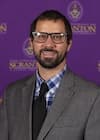 Michael Catalano, Ph.D., was named an assistant professor in the Political Science Department. He was most recently a lecturer in the Department of Political Science at Binghamton University, where he also had been a pre-law advising associate, pre-law advisor and an instructor of record. He earned a bachelor’s degree in political science and environmental studies at Gettysburg College and a master’s degree and Ph.D. in political science at Binghamton University (SUNY). He has an extensive publication history that includes peer-reviewed articles, book chapters, working papers, book reviews and conference presentations.
Michael Catalano, Ph.D., was named an assistant professor in the Political Science Department. He was most recently a lecturer in the Department of Political Science at Binghamton University, where he also had been a pre-law advising associate, pre-law advisor and an instructor of record. He earned a bachelor’s degree in political science and environmental studies at Gettysburg College and a master’s degree and Ph.D. in political science at Binghamton University (SUNY). He has an extensive publication history that includes peer-reviewed articles, book chapters, working papers, book reviews and conference presentations.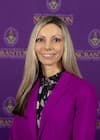 Kristina Dorkoski, DPT, was named a faculty specialist in the Physical Therapy Department. She is a board-certified neurologic clinical specialist (NCS) and a certified exercise expert for aging adults (CEEAA). She served as the senior physical therapist on the neurologic team at Allied Services. She earned a bachelor’s degree in health science and master’s degree in physical therapy at Misericordia University and a doctorate in physical therapy at Temple University, Philadelphia. She also earned an Advanced Vestibular Physical Therapist certificate at the University of Pittsburgh. She has been a panelist, speaker, facilitator and guest author in numerous community forums on topics ranging from Parkinson’s disease and multiple sclerosis to fall prevention and post-stroke recovery.
Kristina Dorkoski, DPT, was named a faculty specialist in the Physical Therapy Department. She is a board-certified neurologic clinical specialist (NCS) and a certified exercise expert for aging adults (CEEAA). She served as the senior physical therapist on the neurologic team at Allied Services. She earned a bachelor’s degree in health science and master’s degree in physical therapy at Misericordia University and a doctorate in physical therapy at Temple University, Philadelphia. She also earned an Advanced Vestibular Physical Therapist certificate at the University of Pittsburgh. She has been a panelist, speaker, facilitator and guest author in numerous community forums on topics ranging from Parkinson’s disease and multiple sclerosis to fall prevention and post-stroke recovery.Krisy Elrod, Ph.D., previously a University of Scranton lecturer, was named an assistant professor in the Counseling and Human Services Department. A licensed marriage and family therapist and registered play therapist-supervisor, Dr. Elrod has been an adjunct professor, a clinician in private practice, a subject matter expert for the California Board of Behavioral Sciences, a clinical supervisor, an advocate, a CACREP site visitor, a Red Cross disaster mental health counselor and a psychiatric social worker. She earned a master’s degree in professional counseling at Texas State University and a Ph.D. in counselor education and supervision at Oregon State University. She has a certificate in medical trauma counseling from Xavier University and a certificate in mindful self-awareness.
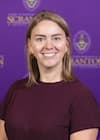 Anna Grippi, previously a University of Scranton lecturer, was named a faculty specialist in the Nursing Department. Prior to joining the University, she worked as health coordinator for the Scranton Lackawanna Human Development Agency. She has been a clinical navigator, nurse reviewer for Federal Hearings and Appeals, a team nurse in mental health for the Scranton Counseling Center and a registered nurse on the neurological/trauma floor for Geisinger Community Medical Center. She earned a Bachelor of Science degree in nursing at Marywood University and her Master of Science in nursing at Aspen University with a specialization in nursing education.
Anna Grippi, previously a University of Scranton lecturer, was named a faculty specialist in the Nursing Department. Prior to joining the University, she worked as health coordinator for the Scranton Lackawanna Human Development Agency. She has been a clinical navigator, nurse reviewer for Federal Hearings and Appeals, a team nurse in mental health for the Scranton Counseling Center and a registered nurse on the neurological/trauma floor for Geisinger Community Medical Center. She earned a Bachelor of Science degree in nursing at Marywood University and her Master of Science in nursing at Aspen University with a specialization in nursing education.Megan Heeder, Ph.D., was named an assistant professor in the Theology/Religious Studies Department. She earned her bachelor’s degree from the Program of Liberal Studies and her master’s degree in theology from the University of Notre Dame, a Master of Theological Studies degree from Boston College, and a Ph.D. in Religious Studies, Ethics/Systematics, from Marquette University. She also earned a certificate in Ignatian pedagogy at Marquette. She has a seven-plus-year publication and presentation history and has taught since 2015. She is fluent in Spanish and can read French, German and Latin.
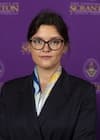 Anna Jaskiewicz, Ph.D., was named an assistant professor in the Economics, Finance and International Business Department. She most recently served as a teaching assistant and teaching associate at the University of California, Santa Barbara. She earned her bachelor’s degree in economics at New York University in Shanghai and her master’s and Ph.D. in economics at the University of California, Santa Barbara. Her fields of interest are applied microeconomics, demography and health and crime economics. Her research projects include work on anti-Black hate crimes and health outcomes, gunshot noise and birth outcomes and the effect of leaderboards on student study plans.
Anna Jaskiewicz, Ph.D., was named an assistant professor in the Economics, Finance and International Business Department. She most recently served as a teaching assistant and teaching associate at the University of California, Santa Barbara. She earned her bachelor’s degree in economics at New York University in Shanghai and her master’s and Ph.D. in economics at the University of California, Santa Barbara. Her fields of interest are applied microeconomics, demography and health and crime economics. Her research projects include work on anti-Black hate crimes and health outcomes, gunshot noise and birth outcomes and the effect of leaderboards on student study plans. Julieann Kane, DNP, was named an instructor in the Nursing Department. She was most recently a certified registered nurse practitioner in gastroenterology at Commonwealth Health Physician Network in Plains Township and had been a CRNP in endocrinology at Intermountain Medical Group, Kingston, a registered nurse in the Infectious Disease Clinic at the Wright Center for Primary Care in Scranton, and a cardiac intensive care nurse for the Lehigh Valley Health Network in Allentown. She also has worked in home health and hospice. She previously taught at Wilkes University. She earned both her Bachelor of Science and Master of Science degrees in nursing at The University of Scranton and her Doctor of Nursing Practice at Wilkes University. She is pursuing a Ph.D. in nursing at Barry University.
Julieann Kane, DNP, was named an instructor in the Nursing Department. She was most recently a certified registered nurse practitioner in gastroenterology at Commonwealth Health Physician Network in Plains Township and had been a CRNP in endocrinology at Intermountain Medical Group, Kingston, a registered nurse in the Infectious Disease Clinic at the Wright Center for Primary Care in Scranton, and a cardiac intensive care nurse for the Lehigh Valley Health Network in Allentown. She also has worked in home health and hospice. She previously taught at Wilkes University. She earned both her Bachelor of Science and Master of Science degrees in nursing at The University of Scranton and her Doctor of Nursing Practice at Wilkes University. She is pursuing a Ph.D. in nursing at Barry University.  Elyse Kay, OTD, was named a faculty specialist in the Occupational Therapy Department. She most recently taught at Binghamton University, prior to which she completed clinical details at Residential Home Health and Fox Rehabilitation. She earned her bachelor’s degree in sport and exercise science at DeSales University, her master’s degree in occupational therapy at Philadelphia University, and her doctorate in occupational therapy at Gannon University, where she was named Outstanding Post-Professional Occupational Therapy Doctorate Student. She has made numerous academic presentations and served as a reviewer for several conference proposals.
Elyse Kay, OTD, was named a faculty specialist in the Occupational Therapy Department. She most recently taught at Binghamton University, prior to which she completed clinical details at Residential Home Health and Fox Rehabilitation. She earned her bachelor’s degree in sport and exercise science at DeSales University, her master’s degree in occupational therapy at Philadelphia University, and her doctorate in occupational therapy at Gannon University, where she was named Outstanding Post-Professional Occupational Therapy Doctorate Student. She has made numerous academic presentations and served as a reviewer for several conference proposals.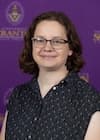 Margaret Lakomy, Ph.D., was named a visiting assistant professor in the Chemistry Department. She most recently taught chemistry at Pennsylvania State University, where she earned the Harold F. Martin Graduate Assistant Outstanding Teaching Award, and where she conducted research in the Giri Group on novel functionalization methods of organic compounds. Her notable community service record includes STEM programs for young women as well as raising and training future guide dogs for the blind. She earned her bachelor’s degree in chemistry at Ohio State University and her doctoral degree in chemistry at Pennsylvania State University.
Margaret Lakomy, Ph.D., was named a visiting assistant professor in the Chemistry Department. She most recently taught chemistry at Pennsylvania State University, where she earned the Harold F. Martin Graduate Assistant Outstanding Teaching Award, and where she conducted research in the Giri Group on novel functionalization methods of organic compounds. Her notable community service record includes STEM programs for young women as well as raising and training future guide dogs for the blind. She earned her bachelor’s degree in chemistry at Ohio State University and her doctoral degree in chemistry at Pennsylvania State University.Courtney Lancia, OTD, was named a faculty specialist in the Occupational Therapy Department, for which she had been an academic fieldwork coordinator since 2014 and an adjunct faculty member since 2012. She was employed for 10 years as a staff occupational therapist at Clarks Summit State Hospital. She also served as Capstone advisor in occupational therapy at Gannon University and as an adjunct faculty member in the Occupational Therapy Assistant Program at Lackawanna College. She earned her bachelor’s degree in health sciences and master’s degree in occupational therapy at The University of Scranton and her post-professional Occupational Therapy Doctorate at Gannon University.
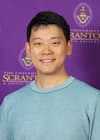 Chi Hou Lei, Ph.D., was named an assistant professor in the Physics and Engineering Department. He joined the faculty in January 2024, prior to which he had been an assistant professor of aerospace and mechanical engineering at St. Louis University. He also had been a post-doctoral research associate and instructor at the University of Washington in Seattle. He earned Excellence in Teaching Awards at both institutions. He earned bachelor’s degrees in mechanical engineering and mathematics at National Taiwan University, Taipei City, Taiwan, a master’s degree in mathematics at Michigan State University, and a Ph.D. in mechanical engineering at the University of Washington.
Chi Hou Lei, Ph.D., was named an assistant professor in the Physics and Engineering Department. He joined the faculty in January 2024, prior to which he had been an assistant professor of aerospace and mechanical engineering at St. Louis University. He also had been a post-doctoral research associate and instructor at the University of Washington in Seattle. He earned Excellence in Teaching Awards at both institutions. He earned bachelor’s degrees in mechanical engineering and mathematics at National Taiwan University, Taipei City, Taiwan, a master’s degree in mathematics at Michigan State University, and a Ph.D. in mechanical engineering at the University of Washington.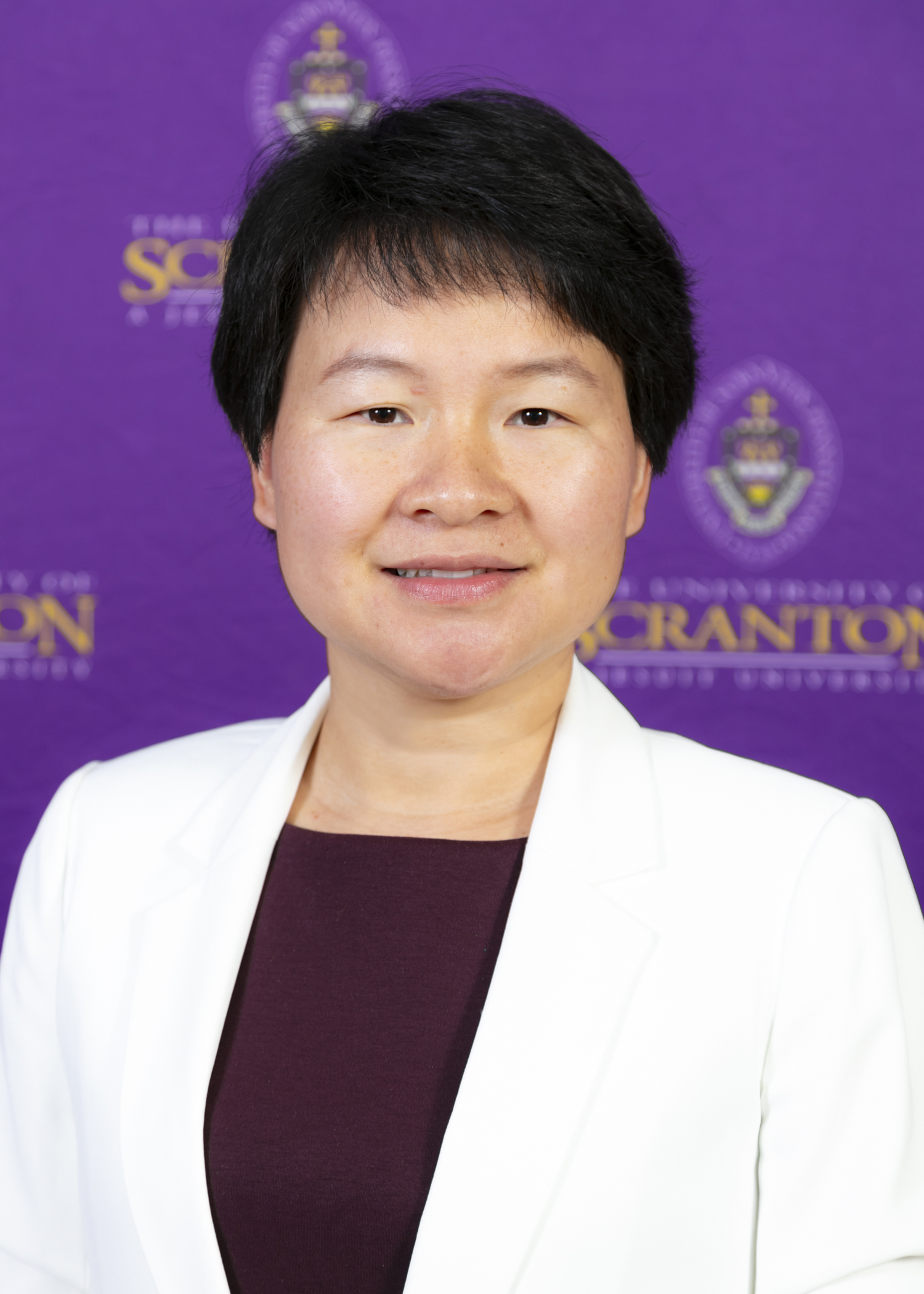 Jinqing Liu, Ph.D., was named an assistant professor in the Education Department. She was most recently a postdoctoral scholar in the School of Education for the University of California, Irvine, and a postdoctoral fellow for the University of New Hampshire. She previously was an instructor of record for The University of New Hampshire and The University of Indiana and had been a K-12 math teacher in China and Indiana. She earned her bachelor’s degree in mathematics and statistics at Zhanjiang Normal University in China, her master’s degree in higher education at the Tsinghua University in China, and her Ph.D. in curriculum and instruction at the University of Indiana, Bloomington.
Jinqing Liu, Ph.D., was named an assistant professor in the Education Department. She was most recently a postdoctoral scholar in the School of Education for the University of California, Irvine, and a postdoctoral fellow for the University of New Hampshire. She previously was an instructor of record for The University of New Hampshire and The University of Indiana and had been a K-12 math teacher in China and Indiana. She earned her bachelor’s degree in mathematics and statistics at Zhanjiang Normal University in China, her master’s degree in higher education at the Tsinghua University in China, and her Ph.D. in curriculum and instruction at the University of Indiana, Bloomington. David Mahalak, D.Eng., a faculty specialist for three years, was named an assistant professor in the Operations and Analytics Department. He previously had been a visiting assistant and adjunct professor at Wilkes University and an adjunct professor at Penn State University, Hazleton. He worked as a strategic business management consultant at Applied Logistics Integration Consulting LLC in Dallas and as a logistics analyst at Alion Science and Technology in Fort Lee, Virginia. He earned a bachelor’s degree in mathematics at Wilkes University, a master’s in operations research at Northeastern University in Boston, and a Doctor of Engineering in engineering management at The George Washington University. He has a master’s certificate in supply chain management from Michigan State University and a Lean Six Sigma Master Black Belt Certificate from Villanova University.
David Mahalak, D.Eng., a faculty specialist for three years, was named an assistant professor in the Operations and Analytics Department. He previously had been a visiting assistant and adjunct professor at Wilkes University and an adjunct professor at Penn State University, Hazleton. He worked as a strategic business management consultant at Applied Logistics Integration Consulting LLC in Dallas and as a logistics analyst at Alion Science and Technology in Fort Lee, Virginia. He earned a bachelor’s degree in mathematics at Wilkes University, a master’s in operations research at Northeastern University in Boston, and a Doctor of Engineering in engineering management at The George Washington University. He has a master’s certificate in supply chain management from Michigan State University and a Lean Six Sigma Master Black Belt Certificate from Villanova University.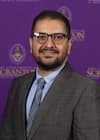 Ehsan Mahyari, Ph.D., was named an assistant professor in the Operations & Analytics Department. He earned a bachelor’s degree in industrial engineering at Sharif University of Technology, Golpayegan, Isfahan, a master’s degree in industrial engineering in logistics and supply chain at Amirkabir University of Technology, Tehran, Iran, and a doctorate in operations management at the University of Alabama, where he was honored as Outstanding Operations Management Ph.D. student and defended his dissertation on electric vehicle fleet charging management. As an intern at bp pulse, formerly AMPLY Power, his key project was Electric Vehicle Fleet Charge Scheduling Optimization. He is certified in International Hospital Management by the SDA Bocconi School of Management, Tehran, Iran.
Ehsan Mahyari, Ph.D., was named an assistant professor in the Operations & Analytics Department. He earned a bachelor’s degree in industrial engineering at Sharif University of Technology, Golpayegan, Isfahan, a master’s degree in industrial engineering in logistics and supply chain at Amirkabir University of Technology, Tehran, Iran, and a doctorate in operations management at the University of Alabama, where he was honored as Outstanding Operations Management Ph.D. student and defended his dissertation on electric vehicle fleet charging management. As an intern at bp pulse, formerly AMPLY Power, his key project was Electric Vehicle Fleet Charge Scheduling Optimization. He is certified in International Hospital Management by the SDA Bocconi School of Management, Tehran, Iran.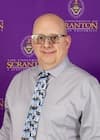 William Miller, Ph.D., previously a graduate and undergraduate faculty specialist for nine years, was named an assistant professor in the Health Administration and Human Resources Department. He earned a bachelor’s degree in health science at Lock Haven University of Pennsylvania, a master’s in health administration at The Pennsylvania State University, University Park, and a doctorate in human development-health promotion at Marywood University. He had previously been employed as a clinical assistant professor of family medicine at the Commonwealth Medical College, Scranton, a distance education compliance officer and graduate program coordinator in the School of Nursing at Wilkes University, and a graduate assistant in the School of Social Work and Administrative Studies at Marywood University.
William Miller, Ph.D., previously a graduate and undergraduate faculty specialist for nine years, was named an assistant professor in the Health Administration and Human Resources Department. He earned a bachelor’s degree in health science at Lock Haven University of Pennsylvania, a master’s in health administration at The Pennsylvania State University, University Park, and a doctorate in human development-health promotion at Marywood University. He had previously been employed as a clinical assistant professor of family medicine at the Commonwealth Medical College, Scranton, a distance education compliance officer and graduate program coordinator in the School of Nursing at Wilkes University, and a graduate assistant in the School of Social Work and Administrative Studies at Marywood University.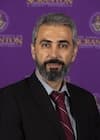 Hiva Samadian, Ph.D., was named an assistant professor in the Computing Sciences Department. He earned a bachelor’s degree in mathematics from Amir Kabir University, Tehran, Iran, an MSc in information technology from Tarbiat Modares University, Tehran, and a Ph.D. in computer science from the University of Puerto Rico. He was previously an assistant professor at King’s College, a visiting assistant professor at Colgate University, a lecturer, lab instructor and research assistant at the University of Puerto Rico and a teaching assistant at Ohio State University, Columbus, and the University of Puerto Rico. He also had been a teacher and mentor at Amir Kabir University and a research assistant at Tarbiat Modares University.
Hiva Samadian, Ph.D., was named an assistant professor in the Computing Sciences Department. He earned a bachelor’s degree in mathematics from Amir Kabir University, Tehran, Iran, an MSc in information technology from Tarbiat Modares University, Tehran, and a Ph.D. in computer science from the University of Puerto Rico. He was previously an assistant professor at King’s College, a visiting assistant professor at Colgate University, a lecturer, lab instructor and research assistant at the University of Puerto Rico and a teaching assistant at Ohio State University, Columbus, and the University of Puerto Rico. He also had been a teacher and mentor at Amir Kabir University and a research assistant at Tarbiat Modares University.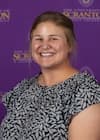 Mary Tabit, Psy.D., was named assistant professor in the Psychology Department at The University of Scranton. Prior to this appointment, Dr. Tabit served as the director of clinical training and assistant professor in the Clinical Psychology Doctoral Program at Immaculata University. Dr. Tabit has also taught at The Pennsylvania State University in Abington and James Madison University. Throughout her career, Dr. Tabit has worked to improve public health outcomes through diverse research and evaluation projects as a senior project director at Public Health Management Corporation in Philadelphia, and appointments at the Treatment Research Institute and Aaron T. Beck Psychopathology Research Center at the University of Pennsylvania. She earned a Bachelor of Science in psychology at Saint Joseph’s University, a Master of Science in Clinical Health and Counseling Psychology at Philadelphia College of Osteopathic Medicine, a post-baccalaureate certificate in marketing from The Wharton School at the University of Pennsylvania, and a Doctor of Psychology in Clinical and School Psychology at James Madison University.
Mary Tabit, Psy.D., was named assistant professor in the Psychology Department at The University of Scranton. Prior to this appointment, Dr. Tabit served as the director of clinical training and assistant professor in the Clinical Psychology Doctoral Program at Immaculata University. Dr. Tabit has also taught at The Pennsylvania State University in Abington and James Madison University. Throughout her career, Dr. Tabit has worked to improve public health outcomes through diverse research and evaluation projects as a senior project director at Public Health Management Corporation in Philadelphia, and appointments at the Treatment Research Institute and Aaron T. Beck Psychopathology Research Center at the University of Pennsylvania. She earned a Bachelor of Science in psychology at Saint Joseph’s University, a Master of Science in Clinical Health and Counseling Psychology at Philadelphia College of Osteopathic Medicine, a post-baccalaureate certificate in marketing from The Wharton School at the University of Pennsylvania, and a Doctor of Psychology in Clinical and School Psychology at James Madison University.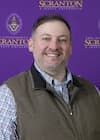 Paul Tierney, Ph.D., was named an assistant professor in the Counseling and Human Services Department. He earned a Master of Education in school counseling at the University of Montevallo and a Ph.D. in counselor education at Auburn University, both in Alabama. He was previously an adjunct instructor at the University of Alabama at Birmingham and a graduate teaching assistant at Auburn University. He worked in children’s health in Birmingham and for the University of Alabama Health Services Foundation as a counselor and clinical director for the substance abuse program. He is a licensed professional counselor and licensed professional counselor-supervisor.
Paul Tierney, Ph.D., was named an assistant professor in the Counseling and Human Services Department. He earned a Master of Education in school counseling at the University of Montevallo and a Ph.D. in counselor education at Auburn University, both in Alabama. He was previously an adjunct instructor at the University of Alabama at Birmingham and a graduate teaching assistant at Auburn University. He worked in children’s health in Birmingham and for the University of Alabama Health Services Foundation as a counselor and clinical director for the substance abuse program. He is a licensed professional counselor and licensed professional counselor-supervisor.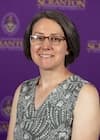 Jennifer Whittaker, Ph.D., was named an assistant professor in the Occupational Therapy Department. She earned her bachelor’s and master’s degrees in occupational therapy at The University of Scranton and her master’s degree in health studies and her Ph.D. in occupational therapy at Texas Woman’s University. She previously was an adjunct faculty member at The University of Scranton and a teaching fellow at Texas Woman’s University. She serves as an occupational therapist at Allied Services Skilled Nursing and Rehabilitation Center in Scranton and as a school-based occupational therapist for the Luzerne Intermediate Educational Unit.
Jennifer Whittaker, Ph.D., was named an assistant professor in the Occupational Therapy Department. She earned her bachelor’s and master’s degrees in occupational therapy at The University of Scranton and her master’s degree in health studies and her Ph.D. in occupational therapy at Texas Woman’s University. She previously was an adjunct faculty member at The University of Scranton and a teaching fellow at Texas Woman’s University. She serves as an occupational therapist at Allied Services Skilled Nursing and Rehabilitation Center in Scranton and as a school-based occupational therapist for the Luzerne Intermediate Educational Unit.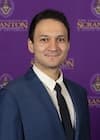 Mehmet Ali Yetim, Ph.D., was named an assistant professor in the Management, Marketing and Entrepreneurship Department. He earned a bachelor’s degree in public administration at Celal Bayar University, Manisa, Turkey, where he was valedictorian; a master’s degree in management and systems at New York University and a doctorate in management at Louisiana State University, Baton Rouge, where he was awarded the Bedeian Award for Excellence in Research. At Louisiana State University, Dr. Yetim was an instructor of record in the E.J. Ourso College of Business and there he was awarded the James Reddoch Graduate Student Award for Excellence in Teaching.
Mehmet Ali Yetim, Ph.D., was named an assistant professor in the Management, Marketing and Entrepreneurship Department. He earned a bachelor’s degree in public administration at Celal Bayar University, Manisa, Turkey, where he was valedictorian; a master’s degree in management and systems at New York University and a doctorate in management at Louisiana State University, Baton Rouge, where he was awarded the Bedeian Award for Excellence in Research. At Louisiana State University, Dr. Yetim was an instructor of record in the E.J. Ourso College of Business and there he was awarded the James Reddoch Graduate Student Award for Excellence in Teaching. Xinyu Zhou, Ph.D., was named an assistant professor in the Management, Marketing and Entrepreneurship Department. She earned a Bachelor of Business Administration in marketing at China University of Geosciences in Wuhan, China, a master’s in marketing at Zhongnan University of Economics and Law, China, and a doctorate in marketing at New Mexico State University. She has been an adjunct professor at Wuhan Vocational College of Software and Engineering and a graduate assistant and course instructor at New Mexico State University.
Xinyu Zhou, Ph.D., was named an assistant professor in the Management, Marketing and Entrepreneurship Department. She earned a Bachelor of Business Administration in marketing at China University of Geosciences in Wuhan, China, a master’s in marketing at Zhongnan University of Economics and Law, China, and a doctorate in marketing at New Mexico State University. She has been an adjunct professor at Wuhan Vocational College of Software and Engineering and a graduate assistant and course instructor at New Mexico State University.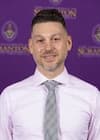 Aaron Ziegler, Ph.D., was named an assistant professor in the Health and Human Performance Department. He holds a Certificate of Clinical Competence in Speech Language Pathology (CCC-SLP). He has taught part time at The University of Scranton since August 2023 and is an academic support volunteer at the University of Ghana. Previously, he was an adjunct assistant professor at Pacific University and a clinical assistant professor at Portland State University. Dr. Ziegler also had been a postdoctoral fellow and speech-language pathologist at Oregon Health and Science University, a tenure-track acting assistant professor at the University of Hawaii at Manoa and an adjunct faculty member at Columbia College in Chicago. He earned a bachelor’s degree in Spanish (Latin American Studies) and a Bachelor of Fine Arts in Performance with an acting emphasis at the University of Michigan, a master’s degree in speech-language pathology at Northwestern University, and a doctorate in communication science and disorders at the University of Pittsburgh. He has professional voice and speech training and is the founder and president of Bjorn This Way, a Portland, Oregon, nonprofit; and the co-founder and co-owner of PhoRTE® Voice Therapy. He has been an assistant professor and speech-language pathologist at Oregon Health and Science University, an expert consultant in speech-language pathology at Tripler Army Medical Center, a speech-language pathologist at the University of Pittsburgh Medical Center, a clinical fellow in speech-language pathology at Emory University and a performing arts, singing and creative movement teacher in Hong Kong.
Aaron Ziegler, Ph.D., was named an assistant professor in the Health and Human Performance Department. He holds a Certificate of Clinical Competence in Speech Language Pathology (CCC-SLP). He has taught part time at The University of Scranton since August 2023 and is an academic support volunteer at the University of Ghana. Previously, he was an adjunct assistant professor at Pacific University and a clinical assistant professor at Portland State University. Dr. Ziegler also had been a postdoctoral fellow and speech-language pathologist at Oregon Health and Science University, a tenure-track acting assistant professor at the University of Hawaii at Manoa and an adjunct faculty member at Columbia College in Chicago. He earned a bachelor’s degree in Spanish (Latin American Studies) and a Bachelor of Fine Arts in Performance with an acting emphasis at the University of Michigan, a master’s degree in speech-language pathology at Northwestern University, and a doctorate in communication science and disorders at the University of Pittsburgh. He has professional voice and speech training and is the founder and president of Bjorn This Way, a Portland, Oregon, nonprofit; and the co-founder and co-owner of PhoRTE® Voice Therapy. He has been an assistant professor and speech-language pathologist at Oregon Health and Science University, an expert consultant in speech-language pathology at Tripler Army Medical Center, a speech-language pathologist at the University of Pittsburgh Medical Center, a clinical fellow in speech-language pathology at Emory University and a performing arts, singing and creative movement teacher in Hong Kong.University of Scranton Appoints New Faculty Members
-
09/25/2024
Yamile Silva, Ph.D., professor of world languages and cultures at The University of Scranton, was appointed general editor of the academic Journal of Gender and Sexuality Studies/ Revista de Estudio de Género y Sexualidades, which is published by Michigan State University Press. She will serve as general editor for five years, beginning in 2025.
In addition, a dossier she co-edited was selected as the best scholarly collaborative project by the international professional organization GEMELA (Grupo de Estudios de la Mujer en España y las Américas pre-1800). The dossier, “‘Yo llana estoy’: Jerarquías, transgresiones y despliegues de género en América hispana colonial (1492-1898),” was co-edited with Ana María Díaz Burgos, Ph.D., the Eric and Jane Nord Associate Professor of Hispanic Studies and chair of Hispanic Studies at Oberlin College. It included an introduction, five essays, and two academic interviews for a total of 50,000 words.
Dr. Silva’s research and publications focus in the areas of 17th and 20th century Spanish women writers, Spanish American literature (colonial and contemporary), women's studies, historical textualities and transatlantic studies. Her recent books include Agencia, Historia y Empoderamiento Femenino (2018) coedited with Diane Martin, Ph.D., and Eva Paris, Ph.D.; La sonrisa del paisaje. Diarios de Abigail Mejía (2020); the anthology Palabras: Dispatches from the Festival de la Palabra (2014), coedited with Hank Willenbrink, Ph.D., associate professor of English and theatre at The University of Scranton; the monograph issues Raza, género y diáspora en el Caribe (2017) and Las utopias en la literatura (2018), both co-edited with Daniel Torres, Ph.D. In addition to articles published in academic journals, she has published book chapters in Women's Negotiations and Textual Agency (2017), Gendering Citizenship and Globalization (2011) and La constitución de identidades subalternas en el discurso jurídico (2008).
Dr. Silva joined the faculty at Scranton in 2009. She serves as director of Latin American and Latinx studies at Scranton. She has been an associated faculty member of the Women Studies Program since 2010. She served as director of the University’s Intersession Study Abroad Program in Puebla, México (Universidad Iberoamericana) and the Summer Spain Program (Universidad de Navarra). Dr. Silva received the University’s Excellence in Advancing Global Learning Award in 2014.
Dr. Silva is a member of the Executive Council of the Colonial Section, Latin American Studies Association, the largest professional association in the world for individuals and institutions engaged in the study of Latin America.
Dr. Silva received a bachelor’s degree from Los Andes University, and a master’s degree and Ph.D. from the University of Massachusetts at Amherst.
Faculty Member Appointed General Editor
-
09/17/2024
Gretchen J. Van Dyke, Ph.D., associate professor in the Political Science Department at The University of Scranton, received the John L. Earl III Award for service to the University, the faculty and the wider community. The 2024 John L. Earl III Award was presented at the University’s annual Fall Convocation, which took place on campus on Sept. 6.
The award is given annually to a member of the University community who demonstrates the spirit of generosity and dedication that the late Dr. John Earl, a distinguished professor of history, exemplified during his years at Scranton from 1964 to 1996.
Stephen E. Whittaker, Ph.D., professor of English and theatre and the 2023 John L. Earl III Award recipient, read the citation for Dr. Van Dyke, which described her as “a person with and for others” who has “generously embraced her duties as a department member, faculty colleague and advisor to administrators and students.” In presenting the award to Dr. Van Dyke, he said that she “has fully engaged in the academic and social fabric of the greater University community since her first arrival on campus.”
$content.getChild('content').textValueAt Scranton, Dr. Van Dyke has served as the Truman Scholarship advisor, a faculty mentor in the University Honors Program and member of the Honors Council, and as a member of the University’s Fulbright committee and the First-Year Seminar program. She created the popular political science European Union simulation preparatory course, the students of which have participated since 1996 in the annual intercollegiate Mid-Atlantic European Simulation in Washington, DC. She has also developed and taught courses that address contemporary questions of war and peace, global justice and humanitarianism. Dr. Van Dyke received the University’s 2020 “Excellence in Advancing Global Learning Award,” which recognizes faculty members who have demonstrated remarkable academic leadership in integrating international issues and perspectives into the curriculum. In 2013, she was recognized with a University’s Provost Award for “Excellence in Integrating Mission and Justice into the Curriculum.”
Dr. Van Dyke has served as a vice-chair and grievance officer on the Faculty Affairs Council, a 15-year member of faculty handbook committee and a faculty marshal and member of the University’s Commencement Committee since 2004. In 2012, she became the first University faculty member to complete the 18-month Ignatian Colleagues Program of the Association of Jesuit Colleges and Universities. Since 2000, she has served as the University’s faculty representative to the Lilly Network of Church-Related Colleges and Universities. She currently is a member of both the Lilly Network National Board and the Friendship House Board of Directors here in Scranton.
Dr. Van Dyke joined the faculty at Scranton in 1994. She earned her bachelor’s degree from Trinity College in Washington, D.C., and her master’s degree and Ph.D. in foreign affairs at the University of Virginia.
At the Convocation, University President Rev. Joseph Marina, S.J., congratulated Dr. Van Dyke on her “well-deserved” award.
$content.getChild('content').textValueIn his State of the University address, Father Marina took inspiration from words engraved on a plaque he received from Providence University, a Catholic university in Taiwan that he visited last year. “‘Love your students, then teach them;’ six words so simple, yet so powerful and which help us to stay focused on why we came here and why we remain,” said Father Marina. He recalled multiple instances throughout the 2023-2024 academic year when he saw that simple mantra expressed at Scranton, including the commencement address of Shabana Basij-Rasikh, the co-founder and president of the School of Leadership Afghanistan, whom the University recognized with an honorary degree.
In the commencement address, which roused a standing ovation, Basij-Rasikh called Scranton’s class of 2024 graduates to “seek knowledge even to the ends of the earth.” Father Marina said, quoting from Basij-Rasikh remarks, that this call is to all of us “‘to be curious, to be fearless, to ask hard questions of others and yourselves, and with your knowledge, with compassion and with confidence be the actors who can finally create a better world.’ All of that, and so much more, should easily propel us forward with strength and community to ‘love our students and then teach them.’ This is who we are,” said Father Marina of The University of Scranton community.
Also speaking at the convocation were: David Marx, Ph.D., acting provost and senior vice president of academic affairs; Mary Elizabeth Moylan, faculty emeritus; Carolyn Barry, Ph.D., dean of the College of Arts and Sciences; Victoria Castellanos, Ph.D., dean of the Leahy College of Health Sciences; Murli Rajan, Ph.D., associate dean of the Kania School of Management; and George Aulisio, Ph.D., dean of the Weinberg Memorial Library.
Faculty who joined the University this academic year were also recognized at the event.
Gretchen J. Van Dyke, Ph.D., Receives Earl Award
-
09/16/2024
The Office of Community-Based Learning (CBL) announces the third cohort of its CBL Faculty Fellows Program. The purpose of the program is to recognize, reward and support exemplary faculty who are eager to fully integrate CBL as an intentional pedagogical strategy into their courses and/or curricular-based projects. CBL is an academic experience which involves students working with individuals, groups, or organizations in ways structured to meet community-defined needs. The Faculty Fellows program seeks to expand, strengthen and institutionalize CBL at the University as a demonstration of its commitment to Jesuit values and the common good.
The CBL Faculty Fellows Program began in the academic year of 2022-2023.
"This faculty cohort represents the potential for community partnerships which will engage a variety of students and faculty throughout the university in new and different ways. These faculty bring to life the University's vision to provide a superior, transformational learning experience, preparing students who, in the words of Jesuit founder St. Ignatius Loyola, will ‘set the world on fire’. Each year increasing the depth and breadth of CBL partnerships strengthens our commitment to the Scranton community and those it serves,” said Debra Fetherman, PhD, CBL Faculty Coordinator, Professor and Department Chair of the Health and Human Performance Department.
The 2024-2025 academic year CBL faculty fellows are listed below, including their department and what course or project they will focus on.
Dr. Laura R. Chapman, Communication Sciences & Disorders and Speech-Language Pathology
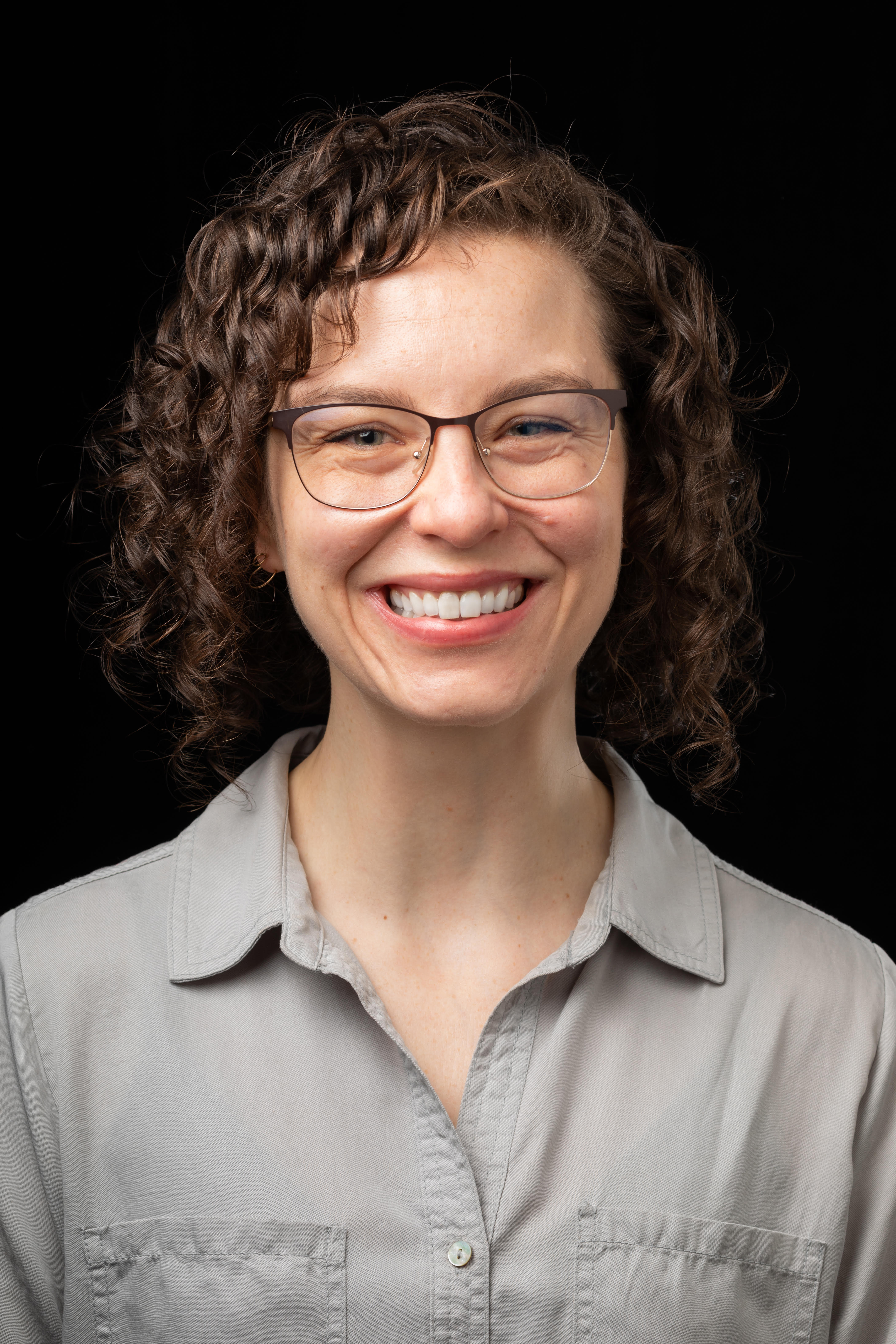 Laura R. Chapman, Ph.D. CCC-SLP, Assistant Professor of Communication Sciences & Disorders and Speech-Language Pathology, in the Department of Health and Human Performance, will focus on integrating CBL into the course CSD 403: Introduction to Speech and Language Disorders in Healthcare. She will work with a community partner to aid in the development and implementation of programming related to optimizing cognitive wellness for older adults in the community. She plans to engage her students in collaboration with the community partner to develop education, resources, and practices related to improving and maintaining cognitive wellness, with the hopes that it will foster a several-week workshop led by students that community members who are concerned about their cognitive wellness can participate in for free.
Laura R. Chapman, Ph.D. CCC-SLP, Assistant Professor of Communication Sciences & Disorders and Speech-Language Pathology, in the Department of Health and Human Performance, will focus on integrating CBL into the course CSD 403: Introduction to Speech and Language Disorders in Healthcare. She will work with a community partner to aid in the development and implementation of programming related to optimizing cognitive wellness for older adults in the community. She plans to engage her students in collaboration with the community partner to develop education, resources, and practices related to improving and maintaining cognitive wellness, with the hopes that it will foster a several-week workshop led by students that community members who are concerned about their cognitive wellness can participate in for free.Dr. Rita A. DiLeo, Health Administration
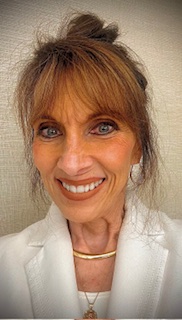 Rita A. DiLeo, DSc, MPA, RT(R)(ARRT), BSP, Assistant Professor of Health Administration, will lead a CBL project as part of the graduate course HAD 509: Administrative Issues. This course challenges graduate students to integrate business methodologies, apply core competencies, and exercise critical thinking to solve a complex problem faced by a healthcare organization. As part of this project, students will conduct a comprehensive needs assessment for a not-for-profit entity to thoroughly understand the issues at hand. Based on their findings and leveraging knowledge acquired throughout their graduate studies, students will cultivate a practical solution that equips the healthcare organization with a well-structured and actionable plan. Furthermore, tools produced by the students such as the educational and marketing materials can be used by the organization on an ongoing basis.
Rita A. DiLeo, DSc, MPA, RT(R)(ARRT), BSP, Assistant Professor of Health Administration, will lead a CBL project as part of the graduate course HAD 509: Administrative Issues. This course challenges graduate students to integrate business methodologies, apply core competencies, and exercise critical thinking to solve a complex problem faced by a healthcare organization. As part of this project, students will conduct a comprehensive needs assessment for a not-for-profit entity to thoroughly understand the issues at hand. Based on their findings and leveraging knowledge acquired throughout their graduate studies, students will cultivate a practical solution that equips the healthcare organization with a well-structured and actionable plan. Furthermore, tools produced by the students such as the educational and marketing materials can be used by the organization on an ongoing basis.Dr. Nathaniel A. Frissell, Physics and Engineering
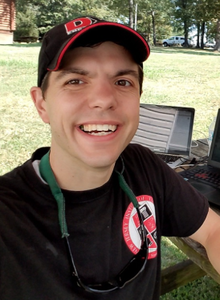 Nathaniel A. Frissell, Ph.D, Associate Professor of Physics and Engineering, will focus on a project entitled “Bringing the Amateur Radio Hobby to the Blind and Visually Impaired of Lackawanna County.” His inspiration for this project comes from how amateur (ham) radio is an accessible, well-suited hobby for blind and visually impaired people. He will collaborate with University of Scranton Electrical Engineering and Physics students, members of the University’s W3USR Amateur Radio Club, members of the Murgas Amateur Radio Club based in Wilkes-Barre, volunteer radio amateurs who are blind/visually impaired, and University of Scranton Occupational Therapy faculty and students, all to teach interested clients of the Lackawanna Blind Association the necessary skills to engage in the amateur radio community. This will include the knowledge required to pass the Technician Amateur Radio License exam and the skills needed to communicate with other amateurs from a home radio device.
Nathaniel A. Frissell, Ph.D, Associate Professor of Physics and Engineering, will focus on a project entitled “Bringing the Amateur Radio Hobby to the Blind and Visually Impaired of Lackawanna County.” His inspiration for this project comes from how amateur (ham) radio is an accessible, well-suited hobby for blind and visually impaired people. He will collaborate with University of Scranton Electrical Engineering and Physics students, members of the University’s W3USR Amateur Radio Club, members of the Murgas Amateur Radio Club based in Wilkes-Barre, volunteer radio amateurs who are blind/visually impaired, and University of Scranton Occupational Therapy faculty and students, all to teach interested clients of the Lackawanna Blind Association the necessary skills to engage in the amateur radio community. This will include the knowledge required to pass the Technician Amateur Radio License exam and the skills needed to communicate with other amateurs from a home radio device.Professor Christiane McDonald, Communication Sciences & Disorders and Speech-Language Pathology
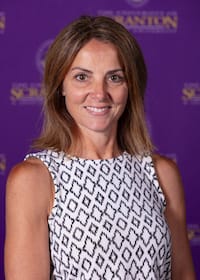 Christiane McDonald, M.S., CCC-SLP, Faculty Specialist of Communication Sciences & Disorders and Speech-Language Pathology, in the Department of Health and Human Performance, will focus on the project “Speech & Language Milestones, Development, and Differences” as a part of two of her courses, CSD 200: Foundations of Speech & Language Development, and CSD 203: Developmental Speech & Language Disorders. The two foundational CSD courses focus on understanding typical speech and language development, and the various developmental disorders which may affect an individual’s speech. The classes also include the study of language differences, and how they relate to culture, dialect, and bilingualism. Thus, the intended CBL project will focus on identifying local minority families and engaging CSD students in offering them support, which will include information about developmental speech and language milestones, recognizing signs and symptoms of delays, and recognizing language differences. She and her students will also provide information about how to enhance a child’s skills, guide parents if they need a referral, and promote and celebrate the benefits of bilingualism for children.
Christiane McDonald, M.S., CCC-SLP, Faculty Specialist of Communication Sciences & Disorders and Speech-Language Pathology, in the Department of Health and Human Performance, will focus on the project “Speech & Language Milestones, Development, and Differences” as a part of two of her courses, CSD 200: Foundations of Speech & Language Development, and CSD 203: Developmental Speech & Language Disorders. The two foundational CSD courses focus on understanding typical speech and language development, and the various developmental disorders which may affect an individual’s speech. The classes also include the study of language differences, and how they relate to culture, dialect, and bilingualism. Thus, the intended CBL project will focus on identifying local minority families and engaging CSD students in offering them support, which will include information about developmental speech and language milestones, recognizing signs and symptoms of delays, and recognizing language differences. She and her students will also provide information about how to enhance a child’s skills, guide parents if they need a referral, and promote and celebrate the benefits of bilingualism for children.Dr. Stacy M. Smulowitz, Communication and Media
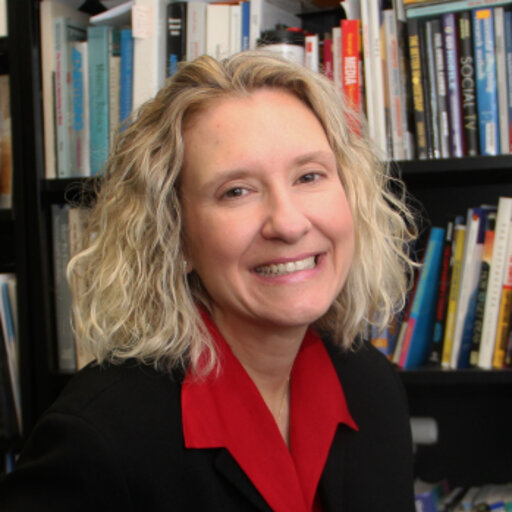 Stacy M. Smulowitz, Ph.D., ABC, Associate Professor and Chairperson of the Communication and Media Department, will focus on integrating a CBL component into the course COMM 330: Advertising Decision Making, as well as the University’s student-run Advertising Club. She will engage her students in a semester-long group project that is aimed at creating advertisement and marketing content for a local non-profit or small business. Each student group will operate as an ad agency competing for the business of
Stacy M. Smulowitz, Ph.D., ABC, Associate Professor and Chairperson of the Communication and Media Department, will focus on integrating a CBL component into the course COMM 330: Advertising Decision Making, as well as the University’s student-run Advertising Club. She will engage her students in a semester-long group project that is aimed at creating advertisement and marketing content for a local non-profit or small business. Each student group will operate as an ad agency competing for the business ofthe client. The client will visit frequently throughout the semester with the students to enable progress on their campaigns, and at the end of the semester, the students will pitch their materials to win their business. Each student team will provide the clients with a marketing communications-based advertising campaign that includes multimedia digital files that the client can use.
“Now in its third year, the CBL Faculty Fellow program is fostering a cohort of scholars who are engaged with community projects and issues. Each year it’s exciting to engage with the faculty group and help support their work with their students and community partners. We look forward to all that will be learned by our students through the faculty engagement and the positive impact CBL makes in the community,” said Julie Schumacher Cohen, Assistant Vice President for Community Engagement and Government Affairs and Chair of the CBL Board. For more information on CBL at the University visit www.scranton.edu/cbl
Office of Community-Based Learning Announces Faculty Fellows
-
08/26/2024
The University of Scranton granted promotions and/or tenure to 17 faculty members effective at the start of the 2024-25 academic year.
Six faculty members have been promoted to professor: Michael Azar, Ph.D., theology and religious studies; Michael Fennie, Ph.D., chemistry; Debra Fetherman, Ph.D., health and human performance; Jason Graham, Ph.D., mathematics; David Salerno, Ph.D., accounting; and Benjamin Willis, Ph.D., counseling and human services.
Five faculty members were named associate professor: Sinchul Back, Ph.D., cybercrime, criminal justice and sociology; Hope Baylow, D.A., health and human performance; Marleen Cloutier, library; Nathaniel Frissell, Ph.D., physics and electrical engineering; and Ian O’Hara, library.
Two faculty members were named associate professor and granted tenure: Colleen Farry, library; and Anne Royer, Ph.D., biology.
Four faculty members were granted tenure: Anthony Carusotto, D.P.T., physical therapy; Chris Haw, Ph.D., theology and religious studies; Jong-Hyun Son, Ph.D., biology; and Billie Tadros, Ph.D., English and theatre.
Dr. Azar received a bachelor’s degree from Colorado Christian University, a master’s degree from St. Vladimir’s Orthodox Theological Seminary. He also received a master’s degree and a doctoral degree from Fordham University. He has worked for the University since 2013.
Dr. Fennie received a bachelor’s degree from the Canisius University and a doctoral degree from the University of Pennsylvania. He has worked for the University since 2012.
Dr. Fetherman received a bachelor’s degree from Ohio University, a master’s degree from the University of Central Arkansas and a doctorate from Marywood University. She has worked for the University since 2005.
Dr. Graham received a bachelor’s degree from the University of Houston, master’s degrees from Southern Methodist University and the University of Iowa. He also received a doctoral degree from the University of Iowa. He has worked for the University since 2012.
Dr. Salerno received a bachelor’s degree and MBA from The University of Scranton and a doctoral degree from Kent State University. He has worked for the University since 2007.
Dr. Willis received a bachelor’s, master’s and doctoral degrees from the University of North Carolina. He has worked at the University since 2013.
Dr. Back received a bachelor’s degree from Northeastern University, a master’s degree from Hankuk University of Foreign Studies in South Korea, a master’s degree from Bridgewater State University, and a doctoral degree from Florida International University. He has worked at the University since 2019.
Dr. Baylow received a bachelor’s degree from Hofstra University, a master’s degree from Long Island University, and a doctoral degree from Adelphi University. She has worked at the University since 2020.
Prof. Cloutier received a bachelor’s degree from the Wentworth Institute of Technology, a master’s degree from Drexel University, and a master’s degree from The University of Scranton. She has worked at the University since 2019.
Dr. Frissell received bachelor’s degree from Montclair State University, and a master’s degree and a doctorate from Virginia Polytechnic Institute and State University. He has worked at the University since 2019.
Prof. O’Hara received a bachelor’s degree and a master’s degree from The University of Scranton, and a master’s degree from Clarion University of Pennsylvania. He has worked at the University since 2013.
Prof. Farry received a bachelor’s degree from Marywood University; two master’s degrees from Syracuse University; and a master’s degree from the University of Illinois. She has worked at the University since 2015.
Dr. Royer receive a bachelor’s degree from Oberlin College and a doctoral degree from Michigan State University. She has worked the University since 2017.
Dr. Carusotto receive a bachelor’s degree, a master’s degree and a doctoral degree from Misericordia University. He has worked at the University since 2018.
Dr. Haw received a bachelor’s degree from Eastern University, a master’s degree from Villanova University and a doctoral degree from the University of Notre Dame. He has worked at Scranton since 2018.
Dr. Son received a bachelor’s degree from Dankook University, a master’s degree from Western Illinois University, and a doctoral degree from Texas A and M University of the Health Sciences. He joined the faculty at Scranton in 2017.
Dr. Tadros received a bachelor’s degree from Susquehanna University, a master’s degree from Sarah Lawrence College, and a doctoral degree from the University of Louisiana. She joined the faculty at Scranton in 2018.
University Announces 2024-2025 Faculty Promotions
-
08/14/2024
Ten University of Scranton faculty members were honored with Faculty Enhancement awards for excellence in teaching, scholarship or service. The Office of the Provost and the Provost Advisory Group selected the recipients from a pool of candidates nominated by academic deans and department chairs. In addition, five faculty members who are retiring were also recognized at the event held recently on campus.
$content.getChild('content').textValueMichael Allison, Ph.D., received the Advancing Global Learning Award, which is presented to a faculty member who has demonstrated noteworthy academic leadership in integrating international issues/perspectives into the curriculum and through whose efforts, students have acquired the competencies, attributes and insights required to meaningfully and successfully participate in an increasingly interdependent world.
Dr. Allison, professor and chair of the Department of Political Science, joined the faculty at Scranton in 2006. He has served as department chair for a decade and served as coordinator of the University’s Ellacuría Initiative from 2011 to 2019. The courses he teaches at Scranton cover American government and international relations and include “Central and South America,” “United States-Latin American Relations,” “Human Rights,” “Comparative Civil Wars,” and “September 11th and Beyond.” His areas of research interests include the comparative study of civil war and civil war resolution, particularly as it relates to the transition of rebel groups to political parties in Central and South America.
Dr. Allison is a two-time recipient of Fulbright awards. In 1997 he received a Fulbright Student Scholarship to El Salvador and in 2013 he received a Fulbright Faculty Scholarship to Guatemala, where he researched the Guatemalan National Revolutionary Unit and its transition to political party as well as United States-Central American relations in the post-Cold War period. Dr. Allison has also been an active member of the University’s Fulbright Committee, assisting students with the competitive application process.
Dr. Allison is a member of the Jesuit Universities Humanitarian Action Network (JUHAN) and co-organized the JUHAN Student Leadership Conference held at Scranton to help provide our students with opportunities to develop global competencies. He has also led student groups to the Ignatian Family Teach-In for Justice which has a history of honoring the Salvadorian Martyrs from 1989.
Dr. Allison earned a bachelor’s degree from Fairfield University and a master’s degree and doctorate from Florida State University.
Mehmet F. Bastug, Ph.D., assistant professor in the Sociology, Criminal Justice and Criminology Department, received the Faculty Senate Excellence in Graduate Teaching Award, which recognizes a faculty member who demonstrates dedication to teaching graduate students in a manner that creates an encouraging and intellectually stimulating environment that promotes critical thinking and learning.
Dr. Bastug, who joined the faculty at Scranton in 2020, serves as director of the Cybercrime Investigation and Cybersecurity Master of Science Program. He teaches courses in cybersecurity and homeland security at the undergraduate and graduate levels. His research focuses on cybersecurity, cyberterrorism, online radicalization, and violent extremism. He has presented at conferences and has co-authored several peer-reviewed journal articles and book chapters.
In 2021, Dr. Bastug was named to the 100-member Certified Ethical Hacker Hall of Fame by the EC-Council, the International Council of E-Commerce Consultants. The Hall of Fame celebrates some of the most accomplished Certified Ethical Hackers (CEHs) around the world.
Dr. Bastug earned a bachelor’s degree from the Turkish National Police University in Ankara. He earned a master’s degree from Akdeniz University in Antalya, Turkey, and a master’s degree and doctorate from Rutgers University. He completed postdoctoral research at the University of Cincinnati and the University of Ontario Institute of Technology (UOIT).
Lori Bruch, Ed.D., associate professor and chair of the Counseling and Human Services Department and Satyajit Ghosh, Ph.D., professor in the Economics, Finance and International Business Department, received the Excellence for University Service and Leadership Award, which recognizes faculty who have contributed service to the University community, particularly those who demonstrate academic leadership by effectively mentoring their junior colleagues.
Dr. Bruch joined the University faculty full-time in 1995, having previously served as an adjunct professor at Scranton since 1989. She has served as chair of the Counseling and Human Services Department since 2015. She also served as co-chair of the University’s annual Conference on Disability for more than a decade.
Dr. Bruch’s research interests include the Americans with Disabilities Act, employment of individuals with disabilities, attitudes towards persons with disabilities, professional identity for rehabilitation counselors, rehabilitation counseling curriculum, supervision and accreditation, and lifespan development. She has published nearly 20 articles in academic journals and had presented at more than 40 conferences and meetings.
Dr. Bruch is a member of many national and regional organizations, having served as a board member and chair of the Council on Rehabilitation Education, president of the National Association of Rehabilitation Leadership and president of the Pennsylvania Rehabilitation Association, to name just a few.
Dr. Bruch earned a bachelor’s degree and a master’s degree from the Pennsylvania State University, a master’s degree from the University of Wisconsin, Stout, and a doctorate from George Washington University.
Dr. Ghosh joined the faculty at the University in 1986. During his tenure at Scranton, he has served on numerous committees, including AACSB accreditation steering committees, Presidential search committees, several terms on the Board of Rank and Tenure, the Faculty Senate and the Curriculum Committee of the Senate, the KSOM Assessment Committee, the Henry George Lecture Committee and many more. Since 2020, Dr. Ghosh has been an active member of the General Education Review Committee. He is currently serving as the General Education Assessment Coordinator. Dr. Ghosh was instrumental in setting up the Office of Educational Assessment and currently serves as its co-director and as a faculty fellow. He also served as chair of the Economics and Finance Department for 15 years.
Dr. Ghosh and Aram Balagyozyan, Ph.D, associate professor of economics, finance and international business, have researched and published multiple issues of the Brennan Barometer, which looks specifically at the economy of NEPA’s Wyoming Valley. The publication analyzes the Wyoming Valley’s job and housing market, as well as the cost-of-living impact inflation has had on household purchasing power in the region, among other factors. Dr. Ghosh is frequently quoted in local, regional and even national media outlets discussing the NEPA economy.
Dr. Ghosh earned a bachelor’s degree from Presidency College in India, a master’s degree from the University of Calcutta and a master’s and doctorate from State University of New York, Buffalo.
Gerard Dumancas, Ph.D., received the Scholarship of Teaching and Learning Award, which is presented to a faculty member who makes extraordinary efforts to enhance student learning and who practices teaching as a form of scholarship.
In 2023, Dr. Dumancas received the University’s Excellence in Integrating Diversity in Learning Award, which recognizes a faculty member whose efforts to integrate diversity in the curriculum have enriched the students’ learning experiences. Also in 2023, he was selected as a Visiting Faculty Fellow by the U.S. Department of Energy (DOE).
Dr. Dumancas, associate professor of chemistry, joined the faculty at Scranton in the spring of 2022. Over the course of his academic career, he has generated more than $2 million in external research funding from the NSF, Louisiana State University and the Louisiana Board of Regents. He has published nearly 100 research products in the form of journal articles, book chapters, books and intellectual property disclosures related to his research in the development and applications of chemometrics and spectroscopic techniques in food and biological applications. He is the recipient of a five-year, $1.158 million National Science Foundation funded Noyce Scholars grant to support future STEM high school teachers in high-need school districts.
At Scranton, Dr. Dumancas serves as a faculty fellow in the Office of Education Assessment and as a community-based learning faculty fellow, where he is collaborating with the Lackawanna River Conservation Association and is combining research and teaching by implementing novel analytical chemistry experiments for use in his lab classes.
In addition, Dr. Dumancas is serving as the faculty lead for a Louis Stokes Alliances for Minority Participation grant, which is a program that takes a comprehensive approach to student development and retention. Particular emphasis is placed on transforming undergraduate STEM education through innovative, evidence-based recruitment and retention strategies, and relevant educational experiences in support of racial and ethnic groups historically underrepresented in STEM disciplines.
Dr. Dumancas earned a bachelor’s degree in chemistry from the University of the Philippines and a doctorate from Oklahoma State University.
Madeline Gangnes, Ph.D., received the Sustainability Award, which recognizes the efforts of a faculty member who strives for excellence in teaching about sustainability and who makes extraordinary efforts to introduce that essential concept into the curriculum.
Dr. Gangnes joined the University faculty in 2020 as an assistant professor in the Department of English and Theatre. She serves as co-moderator of the University’s Mu Omicron Chapter of Sigma Tau Delta, the national English honor society. She is also a member of the University’s Ecological Education working group and the Cry for the Poor working group, both of which support the University’s Laudato Si’ initiative. At Scranton, she has developed two courses that support the newly revised environmental science major and the environmental and sustainability studies concentration: “Literature and the Environment” and “Climate Fiction.”
Her research interests include the intersections of 19th-century British literature and culture, visual studies, digital humanities and book history. She is particularly interested in the image textuality of Victorian periodicals, especially illustrated serialized fiction. Her scholarly work has been published in journals and collected volumes, including the Victorian Periodicals Review, the Journal of Graphic Novels and Comic, INKS: The Journal of the Comics Studies Society, Studies in Comics and Art and Science in Word and Image: Exploration and Discovery. She has served as the assistant editor of Studies in Comics and as the editor of Sequentials.
Dr. Gangnes earned a bachelor’s degree from the University of Puget Sound, a master’s degree from the University of Dundee in Scotland and a doctorate from the University of Florida.
Michael Landram., Ph.D., received the Community-Based Learning Award, which is presented to a faculty member who has demonstrated excellence in community-based learning (CBL) pedagogy as demonstrated by meaningful integration with course or program content that incorporates integration of theory with practice, direct engagement with community members, and personal and critical academic reflection.
Dr. Landram, associate professor in the Department of Health and Human Performance, joined the faculty at Scranton in 2015. His research interests include the measurement of the neurological and cardiovascular stresses associated with various training loads, competitive endeavors, and recovery in athletic and clinical populations.
At Scranton. Dr. Landram has developed an ongoing community partnership with the Jewish Community Center (JCC) in Scranton, through which, for nearly a decade, senior students in the kinesiology program engage in meaningful learning experiences while helping older adults meet their physical activity needs. During this Community-Based-Learning (CBL) experience, students are matched with a JCC participant to design an individualized physical activity program based on their fitness assessment, a needs-based analysis and their physical activity goals. Over the course of 12 weeks each semester, students, along with their faculty mentor, evaluate and monitor individual physical activity sessions and review and modify goals as appropriate. Dr. Landram also incorporated into the course meaningful opportunities for student and participant reflection.
Each year, this CBL project serves 50-60 of our students and 35-40 adult participants from the JCC, providing at least 1,000 contact hours per year.
Dr. Landram is a member of the American College of Sports Medicine and the American Physiological Society, and is a certified USA Olympic weightlifting coach.
Dr. Landram earned a bachelor’s degree from Truman State University, a master’s degree from Appalachian State University and a doctorate from University of Rome “Foro Italico” in Italy.
Prof. Ian O’Hara received the Excellence in Advancing Interdisciplinary Study Award, which recognizes a faculty member who demonstrates noteworthy academic leadership in promoting and strengthening cross-disciplinary or interdepartmental teaching and learning endeavors.
Prof. O’Hara, assistant professor and research and instruction librarian in the Weinberg Memorial Library, has created several research guides for the University, including the Ability, Disability, and Accessibility Resources Guide and the Race, Racism and Anti-Racism Resources Guide.
Prof. O’Hara serves on the Library’s Diversity, Equity, Inclusion, and Accessibility Committee, and has been influential in the establishment of several innovations in the library that make it a more equitable and welcoming environment. His research interests include critical information literacy, new and emerging technologies, principles and applications of software design and web application development, among other areas.
Prof. O’Hara joined the staff at Scranton as a serials/electronic resources clerk in 2013. He earned a bachelor’s degree from The University of Scranton and a master’s degree in software engineering from Scranton. He also earned a master’s degree in library science from Clarion University of Pennsylvania.
Kimberly Pavlick, Ph.D., received the Integrating Mission and Justice into the Curriculum Award, which recognizes a faculty member whose special efforts ensure that students have a keen understanding and appreciation of the realities of the world, including pressing justice issues in a local, national and global context.
Dr. Pavlick, assistant professor in the Department of Communication and Media, joined the faculty at Scranton in 2005. Her teaching and research focuses on effective writing for various media platforms, journalism and broadcasting. Well known with students for her boundless energy and exacting standards, Dr. Pavlick includes in her courses projects that simulate the realities of professional communication fields and stimulate the interest and motivation of the students. She ensures students have a keen understanding of the realities of the world including pressing justice issues in a local, national and global context. She integrates seminal issues of justice into her teaching as well, so that students possess the awareness, competence, skills and insights to critically reflect on prevailing social, political, economic and cultural issues, and be able and willing to take action on behalf of justice.
Most recently, Dr. Pavlick has established an ongoing relationship with the Gino Merli Center to record the stories of Scranton area veterans. Through the Community-Based-Learning (CBL) project, students meet with veterans and practice the skills that they have learned in her course by documenting and recording their experiences. Feedback on the project indicates that the veterans appreciate the opportunity to speak with young people, while the students learn of real-world events through the eyes of those who have experienced them.
At Scranton, Dr. Pavlick has served as the NCAA faculty athletics representative and as a faculty mentor for the field hockey team.
Dr. Pavlick earned a bachelor’s degree from West Virginia University, a master’s degree from The University of Scranton and a doctorate from Marywood University.
Hank Willenbrink, Ph.D., received the Excellence in Scholarly Publication Award, which is presented to a faculty member who has attained distinction in scholarship or creative activity.
An associate professor in the Department of English and Theatre at Scranton, Dr. Willenbrink’s most recent book, “Performing for the Don: Theatres of Faith on the Trump Era,” was published by Rutledge Press in 2023 and is the culmination of several years of scholarly work. His scholarly research focuses on religious performance and playwriting.
In addition to academic research, Dr. Willenbrink is a creative writer and performer. His play, “The Boat in the Tiger Suit” premiered at The Brick in New York City on 2013 and was published by Original Works Publishing in 2014. His play “18” won the Corwin Award for Best Short Play from the Kennedy Center American College Theater Festival. His monologues have been featured in Monologues for Men by Men, More Monologues for Men by Men, and Best Men’s Stage Monologues of 2014.
At Scranton, Dr. Willenbrink has developed and led three interdisciplinary, community-engaged projects featuring students: “Proprioception” in 2015; “The Porches Project” in 2019; and “1902” in 2023. In each project, student writers performed research on their community through historical documentation or via community story gatherings. The research collected was then used to create dramatic works, which were developed and performed.
Dr. Willenbrink joined the faculty at Scranton in 2004. He has served as director of the Theatre Program and director of First Year Seminar Development. He has served on numerous committees including the Slattery Center Faculty Executive Committee and Humanities Initiative, Honors Council: Community-based Learning Advisory Board and Laudato Si' Education for the Environment Working Group.
Dr. Willlenbrink earned a bachelor’s from Colgate University, a master’s degree from the University of Vermont, and a doctorate from Syracuse University.
$content.getChild('content').textValueAlso recognized at the award ceremony were five retiring faculty members, each of whom have served the University for decades: Brigid Curtin Frein, Ph.D., associate professor, in the Theology/Religious Studies Department, who joined the faculty at Scranton in 1988; Irene Goll, Ph.D., associate professor in the Management, Marketing and Entrepreneurship Department, who joined the faculty at Scranton in 1988; Edward M. Scahill, Ph.D., associate professor in the Economics, Finance and International Business Department, who joined the faculty at Scranton in 1989; Daniel J. West, Ph.D., professor in the Health Administration and Human Resources Department, who joined the faculty at Scranton in 1990; and Michael M. Costello, J.D., faculty specialist in the Health Administration and Human Resources Department, who joined the faculty at Scranton full-time in 2014, having previously served as an adjunct professor.
During her tenure at Scranton, Dr. Frein served as departmental chair; interim associate dean of the College of Arts and Sciences; and coordinator for freshman seminar for the College of Arts and Sciences, among other committees and positions. Her research interests specialize in the New Testament and she has published numerous articles on the Gospels. She is an active member of the Catholic Biblical Association. She earned a bachelor’s degree from Gonzaga University and a doctorate from Saint Louis University.
Dr. Goll was named as a Alperin Teaching Fellow and a Burkavage Fellow at Scranton. She has published numerous articles that examine corporate social responsibility as an important component of a firm’s culture, philosophy or ideology in prestigious management journals such as Organization Studies and Industrial Relations. Dr. Goll earned a bachelor’s degree from The Pennsylvania State University, a master’s degree from the University of Illinois and a doctorate from Temple University.
Dr. Scahill served as the director of the University’s Center for Economic Education for decades. He has published articles in numerous journals, including the Journal of Economics Teaching, Journal of Economics and Economic Education, Journal of Finance and Economics and the International Review of Economics Education. He has made contributions to “Principles of Microeconomics and Macroeconomics” (all eight editions), “Intermediate Macroeconomics” and “Money and Banking,” co-authored by R. Glenn Hubbard and Anthony Patrick O’Brien. He was also named as a regular contributor on microeconomics to The Wall Street Journal’s Weekly Review. Dr. Scahill received the University’s Alperin Teaching Fellowship and the Leavey Award for Excellence in Private Enterprise Education from the Freedoms Foundation for his program, “Teaching Economics by Teaching Baseball.” He earned a bachelor’s degree from St. Bonaventure University and a master’s degree and a doctorate from The State University of New York at Binghamton.
Dr. West served as the chair the Health Administration and Human Resources Department for two decades, in addition to serving a several University committees. During his tenure at Scranton, he planned and conducted dozens of study abroad tours for graduate students and faculty to countries as diverse as Bolivia, Slovakia, Haiti and China. A well-respected teacher and scholar with specialization in international health care, globalization, multiculturalism and diversity management, Dr. West holds a professor in public health appointment at Trnava University, as well as a visiting professor appointment at the University of Matej Bel, Slovakia and affiliated faculty at Tbilisi State Medical University, Georgia. In 2019, he was awarded an honorary doctorate degree from Trnava University, Slovakia. He was recognized as an International Fellow at Scranton and received the John L. Earl III Award for service to the University, the faculty and the wider community in 2021. Dr. West earned a bachelor’s degree, a master’s degree and a doctoral degree from the Pennsylvania State University.
Prof. Costello served as program director of the University’s Graduate MHA Online program. During his tenure at Scranton, he received the Faculty Service Award from Hanley College and the Provost’s part-time Faculty Award for Teaching Excellence, as well as the University’s Frank O’Hara Award for University service. He also served as president of the University of Scranton Alumni Society. His teaching and publishing interests are in the areas of health law and policy, health economics, international health care, long-term care administration, and clinical and administrative ethics. He holds an adjunct faculty appointment at The Commonwealth Medical College and the University of Central Florida. He also holds visiting professorships at Trnava and St. Elizabeth Universities in Slovakia and the University of Georgia in Tbilisi, Republic of Georgia. He is a fellow of the American College of Healthcare Executives. He earned a bachelor’s degree from The University of Scranton, a master’s degree from Ohio University, an MBA from The University of Scranton, and a juris doctorate from Southland University.
Faculty Members Recognized for Excellence
-
08/07/2024
The Management and Marketing Department at The University of Scranton Kania School of Management officially recognized Robert McKeage, Ph.D, '71 for 50 years of excellent teaching and services.
Dr. McKeage joined the University's management faculty in 1974. At KSOM he is the director of the Business Leadership Program, a prestigious two-year program with more than 200 elite graduates. Dr. McKeage has prepared a considerable group of graduates to obtain key positions in business organizations. Currently, he teaches principles of management, seminars in business leadership, group dynamics and organizational behavior to undergraduate and MBA students.
Previously, Dr. McKeage received an award for University Service. He played a key role in the development of Scranton’s Business Leadership Honors Program. Dr. McKeage has received several teaching accolades, including the Alpha Sigma Nu’s Edward Gannon, S.J., Award for Teaching, the Kania School of Management’s Student’s Choice Award for Teaching, and the Provost’s Enhancement Award for Excellence in the Scholarship of Teaching and Learning.
Management Faculty Recognized for 50 years of Excellent Teaching
-
08/06/2024
The University of Scranton awarded faculty development summer grants for 2024 to seven faculty members.
Anthony Carusotto, Ed.D., DPT, assistant professor of physical therapy, received a grant to research “Enhancing knowledge and formal training to improve cardiopulmonary curricular mapping within the Doctoral of Physical Therapy program at The University of Scranton.” He joined the faculty at the University in 2018. He earned a bachelor’s degree, master’s degree and a Doctor of Physical Therapy degree from Misericorida University, and a Ed.D. degree from Drexel University.
Michael Crowell, DPT, D.Sc., associate professor of physical therapy, received a grant to research “Exploring relationships between psychological readiness to return to play, neuromuscular asymmetries, graft type, and collegiate athletic skill level after ACL reconstruction.” He joined the faculty in 2023. He earned a bachelor’s degree at the United States Military Academy and a Doctor of Physical Therapy degree and a Doctor of Science degree from Baylor University.
Ashley Driver, Ph.D., assistant professor of biology, received a grant to research “Characterizing the role of Hsd17b7 on cellular survival and autophagy in mammalian cells.” She joined the University in 2020. She received a bachelor’s degree and a Ph.D. from the University of Wisconsin-Madison.
Colleen Farry, assistant professor and digital services librarian, Weinberg Memorial Library, received a grant to research “Integrating Artificial Intelligence in Archival Workflows.” She joined the University in 2015. She received a bachelor’s degree from Marywood University, a master’s degree from Syracuse University and a master’s degree in library science from the University of Illinois.
Bibi Rafeiza Khan, Ph.D., assistant professor of biology, received a grant to research “Identification of the Mutated Gene in Latrunculin B Resistant 2 (LBR2) Arabidopsis thaliana Seedlings by Map-based Cloning.” She joined the University in 2021. She received a bachelor’s degree from the University of Guyana, a master’s degree from the University of Arkansas-Fayetteville and a Ph.D. from the University of Missouri-St. Louis.
Riddhiman Medhi, Ph.D., assistant professor of chemistry, received a grant to research “Metal Oxide Nanowire Arrays for Photocatalytic Degradation of Water Pollutants.” He joined the University in 2021. He received a bachelor’s degree and a master’s degree from Gauhati University in Guwahati, India, and a Ph.D. from the University of Houston
Susan Poulson, Ph.D., professor of history, received a grant to research “Insanity: Murder and Madness in a Troubled America.” She joined the University in 1990. She received a bachelor’s degree from George Washington University and a master’s degree and Ph.D. from Georgetown University.
Summer 2024 Faculty Development Grants Awarded
-
07/15/2024
Ashley L. Stampone, Ph.D., ’10, G’11, PHD’22, assistant professor in the Accounting Department, was selected as one of just 25 educators/academic members worldwide to serve on the Institute of Management Accountants’ (IMA) Committee of Academic Relations for a two-year term. She was also elected to serve as vice president on the Pennsylvania Institute of Certified Public Accountants’ (PICPA) Board of Directors for a one-year term and will serve as the PICPA board representative on the Board of Directors for the Pennsylvania CPA Foundation.
“Dr. Stampone’s commitment to advancing the accounting profession and bringing that insight to our students in the classroom and through mentoring is genuinely inspiring,” said Douglas M. Boyle, D.B.A., professor and chair of the Accounting Department and director of the University’s Ph.D. program in accounting. “Her most recent appointments with the PICPA and IMA further demonstrate her commitment and contribution to the profession. We are proud to have her in our department.”
A three-time graduate of The University of Scranton, Dr. Stampone is a four-time recipient as the Kania School of Management Professor of the Year award, having garnered that honor in 2020, 2021, 2022 and 2024. She was named Accounting Department Teacher of the Year in 2023.
Additionally, Dr. Stampone has won numerous state and national awards and professional honors. In 2019, she was given the IMA’s Faculty Leadership Award, a national prize bestowed to an educator who has demonstrated significant leadership. Dr. Stampone received the Pennsylvania Institute of Certified Public Accountants Young Leaders Award in 2021. That same year, she also received IMA’s Ursel K. Albers IMA Campus Advocate of the Year Award, which recognizes a campus advocate/student chapter advisor who has made significant contributions to the IMA and student members in particular.
Dr. Stampone serves as the faculty advisor for the University’s Institute of Management Accountants (IMA) student chapter – a group repeatedly recognized as among the five most outstanding student chapters in the nation.
Dr. Stampone joined the faculty at the University is 2016. Before teaching, Dr. Stampone worked as an internal auditor for QVC, Inc., as a senior financial systems analyst for Bridon American Corporation, as an inventory accountant for International Salt Company and as a staff accountant for ParenteBeard, LLC.
Dr. Stampone earned her bachelor’s degree in accounting, her MBA and her Ph.D. from The University of Scranton.
Professor Takes Leadership Roles with Professional Accounting Organizations
-
07/15/2024
Michael Jenkins, Ph.D.’06, professor and chair of The University of Scranton’s Department of Criminal Justice, Cybersecurity and Sociology, received the Academy of Criminal Justice Sciences 2024 Police Section Outstanding Service. The annual award honors an individual who has provided significant service to the Police Section of the academy.
The Academy of Criminal Justice Sciences is an international association with 2,000 members that was established in 1963 to foster professional and scholarly activities in the field of criminal justice.
Dr. Jenkins’s service to the Police Section of the academy includes a tenure as editor of the Police Forum, where he led conversations to explore the development of a peer review Police Section publication and expanded readership and contributions of the publication. Dr. Jenkins has also served on the Police Section awards committee, and, in 2016, presented the late Dr. George Kelling with the O.W Wilson Award on behalf of the section.
Dr. Jenkins said that his “favorite contribution” to the Police Section has been mentoring “students and junior colleagues from a variety of academic backgrounds and institutions.”
A 2006 graduate of The University of Scranton, Dr. Jenkins has worked at the University since 2013. He is the founding executive director of the University’s Center for the Analysis and Prevention of Crime. He received the University’s 2017 Excellence in Scholarly Publication Award, which is presented to faculty members who have attained distinction in scholarship or creative activity. Also in 2017, he was awarded a Fulbright Scholarship to study with the London Metropolitan Police and the University College London. In addition to published research articles in academic journals, his books include “Police Leaders in the New Community Problem Solving Era” and “Policing the World: The Practice of International and Transnational Policing (2nd edition).”
Dr. Jenkins has written editorials and has been quoted in numerous news articles on diverse topics related to criminal justice that were published in national and international outlets, such as The New York Times, BBC, The Christian Science Monitor, The Washington Post and The Philadelphia Inquirer, in addition to multiple local news outlets.
In addition to his bachelor’s degree from Scranton, Dr. Jenkins earned his master’s degree and doctorate from the State University of New Jersey, Rutgers.
Criminal Justice Professor Wins Outstanding Service Award
-
07/01/2024
The Steinway piano that belonged to and was beloved by the late Professor Delia Sumrall, D.B.A., was purchased from her estate, fully restored, and donated to the University by her friend and colleague Satya Chattopadhyay, Ph.D., his wife Basundhara, and their two daughters Sudakshina and Kanak. The piano has been dedicated and placed in the University’s Madonna Della Strada Chapel and is serving the University community through its use at liturgies there.
Dr. Sumrall joined The University of Scranton faculty in 1992. After nearly 23 years of service as an associate professor of marketing in the Kania School of Management, she retired in 2015 as the chair of the Management, Marketing and Entrepreneurship Department. Her tenure as chair ushered in a time of significant growth for the department.
The dedication plaque on the piano reads, “This piano has been donated by the Chattopadhyay family in loving memory, honor and celebration of Professor Delia Sumrall, D.B.A. in recognition of her decades of service to The University of Scranton – Wherever we go, whatever we do, with each note of music, we carry sweet memories of you.” The Chattopadhyay family trust that the donation of the piano will carry on Dr. Sumrall’s legacy and continue leaving a positive impact on the University community for years to come as she did through her career.
A close friend of the Chattopadhyays, Cheryl Y. Boga, conductor and director of Performance Music at the University, facilitated the direction of the donation to the chapel.
Pictured below with Kanak (seated) and Sudakshina Chattopadhyay (far right,) accepting the donation on behalf of the Division of Mission and Ministry at the University, are Michael O’Malley, director of liturgy and music (far left) and Daniel Cosacchi, Ph.D., vice president for mission and ministry at Scranton.
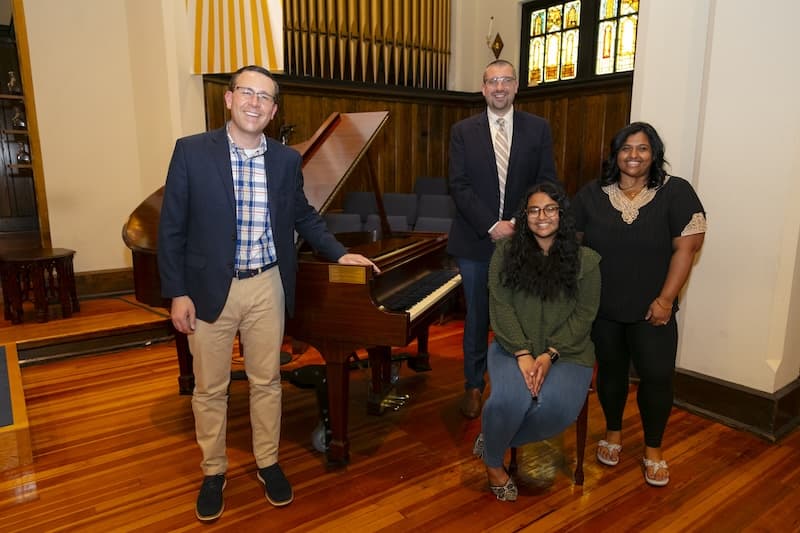
Piano Offered in Memory of Professor
-
06/17/2024
For the fourth time in five years, student members of The University of Scranton’s Business Club have named Ashley L. Stampone, Ph.D., ’10, G’11, PHD’22, assistant professor in the Accounting Department, as the Kania School of Management Professor of the Year.
A three-time graduate of The University of Scranton, Dr. Stampone previously won the business school’s top teaching award in 2022, 2021 and 2020. Last year, Dr. Stampone was named Accounting Department Teacher of the Year Award.
Dr. Stampone not only teaches, she serves as the faculty advisor for the University’s Institute of Management Accountants (IMA) student chapter – a group repeatedly recognized as among the five most outstanding student chapters in the nation.
Since joining the faculty in 2016, Dr. Stampone has garnered numerous state and national awards and professional honors. In 2019, she was given the IMA’s Faculty Leadership Award, a national prize bestowed to an educator who has demonstrated significant leadership. In 2021, she won IMA’s Ursel K. Albers IMA Campus Advocate of the Year Award, which recognizes a campus advocate/student chapter advisor who has made significant contributions to the IMA and student members in particular.
Dr. Stampone has also received the Pennsylvania Institute of Certified Public Accountants Young Leaders Award and was named among the “Top 20 Under 40” by the Northeast Pennsylvania Business Journal.
Before teaching, Dr. Stampone worked as an internal auditor for QVC, Inc., as a senior financial systems analyst for Bridon American Corporation, as an inventory accountant for International Salt Company and as a staff accountant for ParenteBeard, LLC.
Dr. Stampone, who resides in Old Forge, earned her bachelor’s degree in accounting, an MBA and her Ph.D. from the University.
In addition to Dr. Stampone, the business club students presented awards to several other faculty members for 2024.
Last year’s Professor of the Year, David Mahalak, D. Eng., a faculty specialist, was awarded the Department of Operations and Analytics 2024 Teacher of the Year Award. John A. Ruddy, DPS, CFA, CPA , an associate economics professor, was named the 2024 Department of Finance, Economics, and International Business Teacher of the Year. Daniel Mahoney, Ph. D. was named the 2024 Department of Accounting Teacher of the Year. And, Robert L. McKeage, Ph.D., associate professor and director of the University’s Business Leadership Honors Program, was named 2024 Teacher of the Year in the Department of Management, Marketing and Entrepreneurship.
Students Choose 2024 KSOM Professor of the Year
-
06/11/2024
Assistant Professor of Philosophy Christopher Fremaux, Ph.D., has earned the University of Scranton’s 2024 Gannon Award for Teaching, just four years after arriving on campus.
Dr. Fremaux was selected to receive the outstanding teacher of the year award by the University’s chapter of Alpha Sigma Nu, the national honor society for students in Jesuit colleges and universities.
He is the 55th faculty member recognized with the award, the oldest teaching award at the University, which is named in honor of Edward Gannon, S.J. Rev. Gannon also taught philosophy.
Since joining the faculty in 2020, Dr. Fremaux has worked to educate his students across numerous philosophical disciplines. In 2022, he was one of just 11 faculty members chosen to receive one of the University’s faculty development summer grants. Fremaux’s grant was awarded to him to research “Crusisu’s Guide to Living Rationally: A Translation Report.”
Before joining the University, Dr. Fremaux served as a graduate assistant and graduate teaching assistant at Stony Brook University. Prior to that, he was a visiting research fellow at Universität Trier in Germany and an adjunct instructor at St. Mary's University in San Antonio, Texas.
The 2024 honoree earned his bachelor’s degree in philosophy and theology from St. Mary’s University in San Antonio, Texas, a master’s degree in philosophy from Boston College and a Ph.D. in philosophy from the State University of New York, Stony Brook.
The Gannon Award for Teaching was established in 1969 to recognize outstanding efforts in educating students.
The Scranton chapter of Alpha Sigma Nu was founded in 1943 and is the oldest honor society at the University. Juniors, seniors and graduate students at the University who have distinguished themselves in scholarship, loyalty and service are eligible for membership.
Alpha Sigma Nu Students Name 2024 Teacher of the Year
-
06/05/2024
Dr. Peter Andersen, associate professor of marketing at The University of Scranton's Kania School of Management has recently published a research paper under the title “Math Anxiety Effects on Consumer Purchase Decisions: The Role of Framing” at Marketing Letters, one of the top journals in the field of marketing.
This paper explains the importance of mathematics anxiety in consumer behavior and how marketers can frame their price promotions to achieve the best sales results. Dr. Andersen’s co-authors include Dr. Fei Weisstein, associate professor of marketing at Bowling Green State University and Dr. Kent Monroe, a legend of marketing and professor emeritus at the University of Illinois-Urbana Champaign.
Read the article here.
Marketing Faculty Published In Top Marketing Journal
-
06/02/2024
The University of Scranton’s graduating class of 2024 has named Assistant Professor of Nursing Cristen M. Walker Ph.D., as teacher of the year. The University announced the award at Class Night on campus in May.
The annual teacher of the year award honors a faculty member found to maintain high standards of academic excellence and fairness and who inspires the interest of students in a field of education through enthusiasm and dedication to teaching. Now in its 28th year, the award was first instituted by the University’s Faculty Senate Academic Support Committee in 1996.
Dr. Walker, of Pittston, joined the University in 2020 and has been teaching undergraduate courses in pharmacology and physical health assessment, among other subjects. She is the undergraduate director of the nursing program and also serves as a medical-surgical clinical instructor for junior and senior students.
Dr. Walker, a former critical care and trauma nurse, is a certified family nurse practitioner by the American Nurses Credentialing Center. Her doctoral research examined the impact of a certified therapy dog intervention on nursing student test anxiety. Her professional nursing background is in nephrology, internal medicine and primary care. She is a nurse practitioner at Student Health Services and volunteers at the Edward Leahy Clinic for the Uninsured, as well as the Care and Concern Clinic in Pittston.
Prior to joining the University faculty, Dr. Walker was also a clinical instructor for the Wilkes-Barre Area Career and Technical Center’s School of Practical Nursing.
Dr. Walker earned her doctorate in nursing education from Indiana University of Pennsylvania and was selected as a 2019-2020 National League for Nursing Jonas Scholar. She received a master’s degree in nursing from the State University of New York at Binghamton and a bachelor’s degree in nursing from the University of Pittsburgh.
Dr. Walker is a member of Nurse Practitioners of Northeastern PA, the Pennsylvania Coalition of Nurse Practitioners and the Nursing Education Consortium of Northeast Pennsylvania. She is also a member of the Honor Society of Phi Kappa Phi and Sigma Theta Tau International Honor Society of Nursing.
Graduating Class of 2024 Names Teacher of the Year
-
05/15/2024
The University of Scranton Accounting Department and its faculty members have once again ranked among the world’s top publishers of education research published in peer-reviewed accounting journals.
The recently published 2023 Brigham Young University Accounting Rankings, which is considered to be the gold standard in accounting disciplines, ranked the University’s Accounting Department No. 11 (tied) in the world for accounting education research published in the most recent six-years.
The 2023 report also ranked Douglas M. Boyle, D.B.A., professor and chair of the Accounting Department and director of the Ph.D. program, No. 5 (tie) in the world for accounting education publication volume in top peer-reviewed accounting journals in the past six years. James F. Boyle, D.B.A., associate professor of accounting and director of the Master of Accountancy program, was ranked No. 25 (tie).
This is the fourth consecutive year that that the University’s Accounting Department was ranked among the top research publishers in the world in the prestigious Brigham Young University Accounting Rankings. The report ranks accounting programs and faculty throughout the world based on their success in publishing in top-tier, peer-reviewed accounting journals. The report is updated annually and includes ranks for specific categories of research and for specific time periods.
“The consistency for which The University of Scranton’s Accounting Department and individual faculty members have been recognized among the best in the world for education research illustrates their commitment to making relevant contributions to the body of knowledge concerning the accounting profession,” said Mark Higgins, Ph.D., dean of the University’s Kania School of Management and professor of accounting. “The Accounting Department, the Kania School of Management, and the University are committed to the pursuit of excellence in teaching, research, and service, and I am proud to say our faculty excel in all three areas.”
In 2020, the Accounting Department and the prolific research of its faculty were recognized by two academic journals including one which ranked it as No. 1 for the number of publications in the leading five accounting practitioner journals.
Accounting Dept. Research Among Most Productive in World
-
05/14/2024
Dr. Yamile Silva, Chair of the Department of Languages and Cultures and Director of Latin American and Latinx Studies, has been selected as winner for the best scholarly Collaborative Project by the international professional organization GEMELA, Grupo de Estudios de la Mujer en España y las Américas pre-1800, for her co-edited dossier “‘Yo llana estoy’: Jerarquías, transgresiones y despliegues de género en América hispana colonial (1492-1898),” published at Revista de Estudios de Género y Sexualidades 48.1. (2022).
This dossier was co-edited with Dr. Ana María Díaz Burgos, Oberlin College, and consisted of an introduction, five essays and two academic interviews for a total of 50,000 words. In the announcement, the jurors recognized the outstanding scholarship of this coedited dossier. The awards ceremony will be held in Puebla, Mexico, in September 2024.
Dr. Yamile Silva Earns International Award
-
04/09/2024
In a glass-walled, fifth floor ham-radio studio at The University of Scranton, a team of students led by a physics faculty member researched changes in the Earth’s Ionosphere during the total solar eclipse on April 8.
NASA, the National Science Foundation (NSF), and other grants awarded to Nathaniel Frissell, Ph.D., assistant professor physics and engineering at The University of Scranton, have supported the development of a international network of ham radio operators to collect and monitor changes in the ionosphere. In the fall of 2023, the University installed state-of-the-art ham radio equipment and antennas on the roof of The Loyola Science Center, supported by an Amateur Radio Digital Communications (ARDC) grant awarded to Dr. Frissell.
Dr. Frissell’s project for Ham radio operators to collect transmission data during the eclipse, coined the HamSCI Solar Eclipse QSO party, was one of just five projects selected by NASA for the study of the total solar eclipse.
$content.getChild('content').textValueAs the students viewed the eclipse from the fifth floor of the Loyola Science Center, they used the ham radios in the studio to connect with a network of ham radio operators in order to collect data of changes in the Earth’s electrically charged upper atmosphere that occur during the eclipse.
The project was covered in news broadcasts by the BBC globally, as well as by national news outlets in the United States, including USA Today, NASA Science, Scientific American, Science News Explores and Newsmax TV. University student Tom Pisano, an electrical engineering major from Staten Island, New York, was interviewed in a BBC article that was picked up at publications in Saudi Arabia and Kenya.
$content.getChild('content').textValue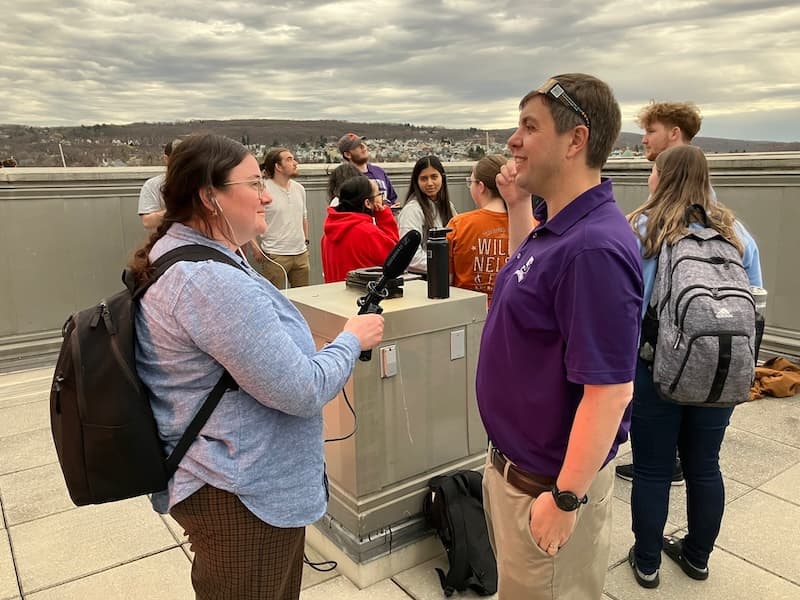
NEPA news outlets also covered the eclipse research project, including stories with interviews with Dr. Frissell and University students on WVIA, WNEP-TV, FOX-56, and WBRE/WYOU, which broadcasts a series of live interviews from the University’s campus throughout the afternoon of the eclipse.
$content.getChild('content').textValueAlso on April 8, the University’s Astronomy Club and the Department of Physics and Engineering hosted a presentation on eclipse by Dr. Frissell and University student Simal Sami, a NASA Partner Eclipse Ambassador. Sami is a senior information technology major at Scranton from Jessup. They also hosted an Eclipse Viewing for students, faculty and staff, complete with eclipse glasses and solar telescopes.
$content.getChild('content').textValueScranton Professor Leads NASA-Selected Eclipse Study
-
03/26/2024
An accounting professor at The University of Scranton won his second national award that annually recognizes one article “that focuses on the importance of ethics in business as a whole and finance and accounting in particular.”
Selected by the Institute of Management Accountants’ Committee on Ethics and Strategic Finance for the 2024 Curt Verschoor Ethics Feature of the Year Award, the article “The Fraud Prevention Pyramid” was written by Douglas M. Boyle, DBA, chair of The University of Scranton Accounting Department and director of the University’s Ph.D. in Accounting program, and Dana Hermanson, Ph.D., professor of accounting at Kennesaw State University and the Dinos Eminent Scholar of Private Enterprise. The article was published in Strategic Finance in March of 2024.
Accounting professors at Scranton have won this prestigious, national ethics award more than faculty at any other university in the nation. Dr. Boyle won the inaugural Curt Verschoor Ethics Feature of the Year Award in 2020 for an article written by him and Scranton accounting professors Amanda S. Marcy, Ph.D., James F. Boyle, DBA, and Daniel P. Mahoney, Ph.D. Dr. Marcy won the 2023 Curt Verschoor Ethics Feature of the Year Award for an article written with class of 2021 Scranton business doctoral student Ronald Douglas Parker, DBA, now an assistant professor of accounting at Western Carolina University.
In the article that won the 2024 Curt Verschoor Ethics Feature of the Year Award, Drs. Boyle and Hermanson introduce a five-stage Fraud Prevention Pyramid, which they write is “designed to assist financial professionals and others in building a career-long ability to shield themselves from fraud. It contains five increasingly advanced stages of anti-fraud preparation: developing fraud awareness and acumen; understanding fraud ingredients; avoiding common fraud pitfalls; mitigating dark triad traits and pressure; and mastering emotional intelligence.”
The article concludes with ways in which the Fraud Prevention Pyramid can be used to encourage ethical behavior by boards and executives and by organizations through continuing education programs, as well as by individuals for personal development.
Articles written by Dr. Boyle and doctoral students at Scranton and fellow professors have received numerous awards, including most recently a 2023 Institute of Management Accountants’ (IMA) Lybrand Silver Medal and Certificate of Merit.
With respect to authorships of individual accounting faculty in the area of accounting education, Dr. Boyle, was ranked No. 5 in the world for research publishing success by most-recent 2023 Brigham Young University Accounting Rankings, a listing considered to be the gold standard in accounting disciplines.
Dr. Boyle is a Certified Public Accountant and a Certified Management Accountant with more than 30 years of industry executive experience. He has served in executive roles in startup, middle market, and Fortune 500 companies, where he has held the positions of board chair, chief executive officer, president, chief operations officer and chief financial officer. An award-winning researcher and teacher, Dr. Boyle was selected as the IMA Research Foundation Distinguished Scholar in 2022, awarded the Outstanding Accounting Educator of the Year Award from the Pennsylvania Institute of Certified Public Accountants in 2015, and an Outstanding Lecturer Award from the Cultural Mission of the Royal Embassy of Saudi Arabia in 2012. At Scranton, Dr. Boyle earned Provost Excellence Awards for University Service and Leadership in 2021, the Scholarship of Teaching in 2014 and Scholarly Publication in 2012, and the Faculty Senate’s Excellence in Graduate Teaching Award in 2019. He was named the Kania School of Management’s (KSOM) Alperin Teaching Fellow for 2015 to 2018 and received the KSOM Advisory Board’s Award for Curriculum Innovation for 2017-2018. He received the KSOM Faculty Research Award for 2019 – 2020 and was twice recognized as the KSOM Teacher of the Year. He is the founder and director of the University’s Nonprofit Leadership Certificate Program.
Dr. Boyle earned a bachelor’s degree from The University of Scranton, an MBA from Columbia University and a doctorate from Kennesaw State University.
Professor Wins Second National Accounting Ethics Award
-
03/12/2024
By Hannah Grijincu, Director of the Language Learning Center
On March 5, the World Languages and Cultures Department welcomed to campus 100 high school students and teachers from all over northeastern Pennsylvania when The University of Scranton hosted its first World Language Day.
From learning how to sound like a German to ordering croissants in a French bakery, these high school students learned six languages from the World Languages and Cultures Department’s Fulbright Foreign Language Teaching Assistants (FLTAs) and visiting instructors. Students learned to distinguish Chinese tones and practiced reading Japanese hiragana, katakana and kanji through manga. They learned what Argentinians value (futbol, mate, and time with family and friends) and practiced finding Arabic letters in different parts of the word.Their studies expanded beyond the instructors’ languages: Students also had the chance to learn about the FLTAs and visiting instructors’ countries through interactive displays. Attendees explored cuisine and the beautiful décor of Tunisia, as well as traditions and festivals of Germany. They practiced Japanese calligraphy and watched a Ghibli movie. They guessed Chinese characters and learned about Taiwanese culture and geography. They explored France’s overseas territories and delicious cuisine and learned about iconic Argentinian people, landscapes and food.
World Language Day served to motivate and inspire students to continue in their language learning journeys by demonstrating how languages create opportunities for engagement with other cultures and communities around the world. Languages open doors to other people, other opportunities and ultimately, other worlds, and this event aimed to inspire students to continue learning languages and exploring other cultures.
100 High School Students Spend World Language Day on Campus
-
03/06/2024
Ethics Across the Curriculum, a new initiative that began at The University of Scranton this academic year, hosted a lecture on “The Role of Ethics and Ethics Committees in Healthcare,” presented by Karen Smith, Ph.D., director of clinical ethics at Banner Desert Medical Center.
Dr. Smith, the former chief ethicist for the Henry Ford Health System in Michigan, also facilitated a workshop for Scranton’s pre-health students on advanced directives. Dr. Smith has published numerous articles related to clinical ethics in the hospital setting, with a specialization in death and dying issues.
The University’s Ethic Across the Curriculum Initiative is inspired by the call for the formation of students’ moral characters as a key component of the 500-year-old Jesuit educational mission. Scranton’s initiative includes faculty development components and experiential learning and open dialog discussion opportunities for students, as well as lectures and workshops, such as those offered by Dr. Smith.
$content.getChild('content').textValueRole of Ethics in Healthcare Discussed at University
-
02/27/2024
Héloïse Vérissi, a French Fulbright Language Teaching Assistant, recently hosted a cultural event open to the Scranton community. At “Beyond Borders: A Journey Through Folktales from the French Speaking World” she invited students to discover new aspects of French-speaking cultures.
“The wealth of the Francophonie culture does not solely lie in the beauty of the French language, but in the diversity of the cultures that are speaking this language,” said Vérissi in reference to the event.
Through the tales, slideshows and activities, they were able to experience aspects of the cultures of Belgium, the Caribbean, Asia and Antarctica. The three tales reflected cultural values of the places where they evolved, demonstrating the diversity of the Francophonie. The night concluded successfully with each participant painting their coat of arms.
Event Showcases Beauty of French Language
-
01/11/2024
University of Scranton President Rev. Joseph G. Marina, S.J., announced the appointment of Carolyn McNamara Barry, Ph.D., as dean of its College of Arts and Sciences, effective July 15, 2024.
Since 2019, Dr. Barry has served as associate dean for Social Sciences and Graduate Programs at Loyola College of Arts and Sciences, Loyola University Maryland, where she also served as a professor, program director and chair of Loyola’s Department of Psychology. She joined the faculty at Loyola in 2001.
“Dr. Barry’s faculty and administrative leadership experience at a sister Jesuit university, in addition to her extensive academic research related to the psychosocial adjustment of emerging adults, and her work and training in DEI make her exceptionally qualified to work with our students and faculty,” said Father Marina in an announcement sent to the University community. “Dr. Barry embodies a deep understanding and appreciation of Catholic and Jesuit higher education.”
At Scranton, Dr. Barry will oversee the University’s 16 academic departments in the sciences and mathematics, engineering and computing sciences, humanities, theology and social sciences that make up its oldest and largest college. She will also oversee the University’s Special Jesuit Liberal Arts Honors Program, the Magis Honors Program in STEM and the Undergraduate Honors Program, as well as its pre-med and pre-law programs, in addition to other programs, centers and initiatives of the College of Arts and Sciences.
As associate dean for Social Sciences and Graduate Programs at Loyola University Maryland, Dr. Barry assisted with the visioning and strategic planning development for their division, departments and programs. She was responsible for supporting new initiatives and curricular management, which include faculty and staff hiring, development and evaluation, as well as program reviews and student learning program assessment, among other duties.
During her tenure as associate dean, Dr. Barry oversaw curricular revisions in Loyola’s undergraduate programs in sociology and psychology and in graduate programs in theological studies, emerging media, clinical professional counseling and clinical psychology. She also oversaw graduate enrollment as the master’s programs in forensic pattern analysis and biological forensics recently launched. In addition, she led ongoing efforts to strengthen internship experiences and research opportunities for undergraduate students. Among her efforts to grow the Pre-Law Program was the creation of an ongoing partnership with Maryland Legal Aid, for which Loyola received the Community Partner for Justice Award from Maryland Legal Aid’s Equal Justice Council.
In her role as chair of Loyola’s Department of Psychology, Dr. Barry led the Teaching Evaluation Task Force through an equity and inclusion lens that resulted in the creation of supplementary items for course evaluation to assess diversity content and support for inclusive classrooms, among other enhancements. She also created and launched a Diversity and Inclusion Committee to ensure ongoing improvement of departmental climate. In 2022, she earned a Diversity and Inclusion Certificate from Cornell University.
During her tenure at Loyola, she has served on numerous committees, including the Strategic Planning Committee, the Council of Academic Directors, the Graduate Enrollment Committee, the Graduate Curriculum Committee, and as chair, the Ignatian Senior Seminar Subcommittee and Diversity Subcommittee for the Undergraduate Curriculum Committee, among many others. She also served on the Executive Committee of Governance and as chair of the Faculty Affairs Committee and chair of the Academic Senate.
A prolific academic researcher, Dr. Barry has published more than 50 articles in academic journals, in addition to making more than 80 professional presentations regarding her research related to the social and self-development of emerging adults. In 2016, in an article published in Emerging Adulthood, she was noted as the “fifth most-published scholar in emerging adulthood” in a review of empirical studies on this age group. In addition, she has contributed to chapters and books on “religiousness in adolescence and emerging adulthood” in multiple editions of the Encyclopedia on Adolescence and “the role of religiousness and spirituality in emerging adults’ lives” in The Oxford Handbook on Emerging Adulthood.
Dr. Barry is an editorial board member for Adolescent Research Review, Emerging Adulthood and the Journal of Youth and Adolescence and has served as an invited reviewer for more than a dozen academic journals. She is a member and president-elect for Society for the Study of Emerging Adulthood and is a member of the Society for Research on Adolescence and the Council for Undergraduate Research.
During her career, Dr. Barry has received the Ursinus College Alumni Professional Achievement Award in 2023, the Strong Truths Well Lived Award Recipient from Loyola University Maryland in 2017 (in recognition for living out the Jesuit mission) and The Faculty Award for Excellence in Service-Learning and Engaged Scholarship from Loyola University Maryland in 2011, among other awards.
Dr. Barry earned her bachelor’s degree in psychology from Ursinus College and her Ph.D. in human development with a specialization in educational psychology from The University of Maryland, College Park.
Dean of Scranton’s College of Arts and Sciences Named
-
01/02/2024
The University of Scranton awarded 2024 faculty development intersession grants to six faculty members.
Shuhua Fan, Ph.D., professor of history, received a grant to research “Confucius Institutes in the Xi Jinping Era: From Peak to Demise in the United States.” Dr. Fan received the University’s 2015 Excellence in Advancing Global Learning Award, presented to faculty members who integrate international issues and perspectives into the curriculum. She earned her bachelor’s degree from Sichuan Normal University, her master’s degree from Jilin University, and her master’s and doctorate degrees from The University of North Carolina at Chapel Hill. She joined the faculty at the University in 2009.
Ozgur Isil, Ph.D., associate professor of operations and analytics, received a grant to research “Infusing ‘Ecological Education’ (Laudato Si’ Goal) into the Curriculum.” Dr. Isil received his bachelor’s degree from the University of Texas, Austin, and his MBA and doctorate from the University of Wisconsin. He joined the faculty at the University in 2009.
Matthew Meyer, Ph.D., professor of philosophy, received a grant to research “Neitzshe’s Thus Spoke Zarathustra.” He serves as the director of the University’s Pre-Law Advisory Program and Legal Studies Concentration and as faculty director for the Slattery Center for the Ignatian Humanities. He received his bachelor’s degree from the University of St. Thomas, his master’s degree from Harvard University and his doctorate from Boston University. He joined the faculty at the University in 2010.
Brian Snee, Ph.D., associate professor of communications and media, received a grant to research “Unfettered: The Rhetoric of John Fetterman’s 2022 U.S. Senate Campaign Chapter 4: ‘That’s what she said:’ Humor as Inoculative Incongruity in Gisele Fetterman’s Primary Acceptance Speech.” Dr. Snee earned his bachelor’s degree from The University of Scranton. He earned his master’s degree and Ph.D. in communication arts and science from Penn State University. He joined the faculty at Scranton in 2020.
Jong-Hyun Son, Ph.D., associate professor of biology, received a grant to research “Functional Characteristics of Oxygen in the Developing Dopaminergic Neurons of the Vertebrate Brain.” Dr. Son received his bachelor’s degree from Dankook University, his master’s degree from Western Illinois University, and his doctorate from Texas A and M University of the Health Sciences. He joined the faculty at Scranton in 2017.
Ziqian Song, Ph.D., assistant professor of operations and analytics, received a grant to research “Words That Move Markets: Investigating Predictive Textual Features during Corporate Events for Stock Analysis.” She earned her bachelor’s degree from Zhengzhou University in Zhengzhou, China, her master’s degree in media economics from Renmin University of China in Beijing, and her master’s degree and doctorate a in computer science and applications from Virginia Tech. She joined the faculty at Scranton in 2020.
Intersession Grants Awarded for January 2024
-
12/05/2023
Associate Professor of Chemistry Dr. Gerard G. Dumancas worked with The University of Scranton graduate students and published two original research articles in American Chemical Society (ACS) journals this year. The overarching goal of Dr. Dumancas’ laboratory is to develop novel, faster and inexpensive analytical methods to detect adulteration of a wide array of food commodities including honey, turmeric powder, coffee and egg whites. In doing so, his research group is utilizing a wide array of machine learning and spectroscopic tools to develop robust multivariate calibration models for predicting adulteration in food products and other types of biological systems.
In the first manuscript, MS in biochemistry graduate student Noemi Carreto worked on research titled “Chemometrics for Quantitative Determination of Terpenes Using Attenuated Total Reflectance–Fourier Transform Infrared Spectroscopy: A Pedagogical Laboratory Exercise for Undergraduate Instrumental Analysis Students” which was published in the Journal of Chemical Education.
The project entailed a computational exercise that exposed undergraduate students in an instrumental analysis laboratory course to the process of data acquisition using advanced equipment—specifically, attenuated total reflectance-Fourier transform infrared (ATR-FTIR) spectroscopy. After data collection, students analyzed these data using the partial least squares (PLS) chemometric technique. The overall goal of this project was to develop a pedagogical laboratory exercise to expose students in the area of chemometrics, a powerful technique that uses statistics and computer applications in analytical chemistry.
The exercise provided a systematic and step-by-step guide for students to follow in the instrumental analysis laboratory. Based on feedback from student surveys, it can be concluded that this cost-effective and convenient activity successfully introduced students to the application of chemometrics for quantitatively analyzing terpene compounds through ATR-FTIR. This easily implementable two-week activity can serve as a standalone module for instrumental analysis laboratory classes and can even be adapted for integration into advanced courses covering applied spectroscopy and chemometrics.In a second manuscript, MS in biochemistry graduate student Norwell Bautista published a research titled “Quantification of Lactobacillus reuteri ProTectis in MRS Broth Using Attenuated Total Reflectance–Fourier Transform Infrared (ATR-FTIR) Spectroscopy and Chemometrics” in the Journal of Agricultural and Food Chemistry. The overall goal of this research was to develop a faster and inexpensive analytical method for quantifying a pure culture of Lactobacillus reuteri (L. reuteri) ProTectis grown in deMan, Rogosa, and Sharpe (MRS) broth using ATR-FTIR and chemometrics. Findings from this study demonstrate the feasibility of employing a quantification technique utilizing ATR-FTIR, along with a principal component analysis–PLS chemometric model, to reliably predict viable plate count in a culture of L. reuteri ProTectis in MRS broth.
Dumancas came to The University of Scranton in the Spring of 2022 and has since then published nearly 30 manuscripts in high-impact factor journals, primarily with undergraduate and graduate students. In summer 2023, he was awarded a $50,000 research grant from the National Science Foundation (NSF) for his research involving the use of chemometrics and spectroscopy to test the purity of honey. His research efforts are presently supported by NSF Award 2327747, 2223970 and 2027402.
Chemistry Professor, Students Publish Original Research
-
11/28/2023
Robert Feenstra, Ph.D., the C. Bryan Cameron Distinguished Chair in International Economics at University of California (UC), Davis, presented The University of Scranton’s 37th Henry George Lecture in November on campus. Dr. Feenstra presented “The ‘China Shock’ After 22 Years,” detailing his assessment of the economic impact trade with China over the past few decades.
Considered the preeminent public lecture series on economics in Northeastern Pennsylvania, the Henry George Lecture Series is presented by the University’s Department of Economics, Finance and International Business and the campus chapter of Omicron Delta Epsilon, an international honor society for economics. Among the distinguished list of speakers who have spoken at previous lectures are eleven winners of the Nobel Prize in Economics: David Card (2021) Paul Romer (2018), Robert Shiller (2013), Tom Sargent (2011), Peter Diamond (2010), Paul Krugman (2008), Joseph Stiglitz (2001), George Akerlof (2001), Amartya Sen (1998), Robert Lucas (1995) and Robert Solow (1987). The lecture series is named in honor of the 19th century American economist and social reformer and is supported financially by a grant from the Robert Schalkenbach Foundation.
$content.getChild('content').textValueUniversity Hosts 37th Henry George Lecture
-
11/21/2023
The book, “Nurses making policy from bedside to boardroom (3rd ed.),” co-edited by Margarete L. Zalon, Ph.D., professor emerita in the Department of Nursing at The University of Scranton, received the Sigma Theta Tau 2023 Capstone International Nursing Book Award for Nursing Excellence.
Sigma Theta Tau (Sigma) is the International Honor Society of Nursing. Their International Awards for Nursing Excellence reflect the organization’s dedication to fostering high professional nursing standards, recognizing superior achievement, developing leadership and encouraging creative work. The awards were announced at Sigma’s 47th Biennial Convention, which was held November 11-15 in San Antonio, Texas.
In addition, Dr. Zalon received a 2022 American Journal of Nursing (AJN) Book of the Year Award for the book, which placed 2nd in the program’s Nursing Management and Leadership category. Dr. Zalon also received a 2019 AJN Book of the Year Award for the second edition of this book in 2019.
Earlier this year, Dr. Zalon was appointed as a consumer representative to the Pennsylvania e-Health Partnership Advisory Board.
Dr. Zalon, who retired in 2022, has been a member of Scranton’s faculty since 1988. She was inducted as an American Academy of Nursing Fellow in 2010 in part for her positive influence on health care policy and delivery. Her leadership legacy includes grassroots advocacy, progressive program design, execution and outcomes in state and national nursing organizations focused on establishing practice and education policy and building research funding capacity.
During her more than three decades of service at the University, Dr. Zalon has served on numerous committees, including in leadership roles on the Faculty Senate. When she served as director of the University’s online Master of Science in Health Informatics Program, she has played a pivotal role in the program’s success. In 2021, the graduate program received accreditation from the prestigious Commission on Accreditation for Health Informatics and Information Management Education (CAHIIM).
Dr. Zalon is a previous chair of the American Nurses Foundation, a former board member of the American Nurses Association and a past president of the Pennsylvania State Nurses Association. She currently serves as the president of the Nursing Foundation of Pennsylvania, the charitable arm of PSNA which focuses on providing scholarships to students enrolled in nursing programs.
Her research focuses on vulnerable elders. She has authored book chapters, as well as articles published in numerous scholarly journals and other professional publications. She has also made research and health policy presentations at the local, state, national and international levels.
In 2022, Dr. Zalon received the John L. Earl III Award for service to the University, the faculty and the wider community. She was also a recipient of the Duke University School of Nursing Distinguished Alumna Award, the PSNA Distinguished Nurse Award and a Leahy Fellowship at Scranton. She also received the University’s Excellence in Advancing Interdisciplinary Study Award in 2020.
Dr. Zalon earned her bachelor’s degree from Duke University and her master’s and Ph.D. degrees from New York University.
Professor Emerita Receives Excellence Award for Book
-
11/15/2023
Students learned about how Japanese history and politics are reflected in anime characters and storylines at a September event hosted by Japanese visiting instructor Naoko Omori. This introduction to anime, a popular form of entertainment in Japan and around the world, showed students more about anime and just how much they can learn about Japan by watching it.
Attendees also viewed cherry blossoms blooming in the anime and were offered an opportunity to sample cherry blossom tea, try Tamagoyaki, or Japanese omelets, eat Japanese candy and more. Professor Omori ended the event by teaching the students to play “Jan Ken Pon,” or rock-paper-scissors, a game played almost every day in Japan, and sharing her favorite anime for them to watch.
Professor Omori shared, “I was very happy that I was able to hold an event and not only had students who were taking Japanese language classes come, but also students who don't normally speak Japanese, and I was able to talk with teachers from local high schools.”Although people from all over the world watch anime, it is primarily created and focused on Japan and displays Japanese culture. On Sept. 27, Professor Omori introduced students, faculty, staff, and community members to the genre of anime. They watched a few clips of a popular anime called Ginatama, and Omori showed how anime is connected to Japan and Japanese culture.
According to Omori, “There are a lot of people who watch anime for fun, but from anime you can learn about Japanese culture, ways of thinking and the way of life that Japanese people take for granted. Since I am living in Scranton for a year and I’m from Japan, I wanted to share this with everyone from The University of Scranton.”Professor Omori can be found in the Language Learning Center, O’Hara 306, on Wednesdays from 1:30 to 2:30 p.m., for anyone interested in learning more about Japan or Anime.
How is Anime Connected to Japanese Culture?
-
11/15/2023
Professor Konstantin Lyavdansky says his initial desire for learning about other countries converted into willingness to share about his own.
"What better way to share about your own country than to teach the language and history and literature of that country?" said Prof. Lyavdansky, a University of Scranton adjunct faculty member in the World Languages and Cultures Department since 1993.
In his hometown of St. Petersburg, Russia, Lyavdansky, whose native language is Russian, first started learning English in elementary school. He said he became more serious about language once he entered St. Petersburg State University, where he majored in languages and philology.
"I wanted to know about other countries and how people live in different parts of the world. English seemed to be the most common at the time."
This semester, his courses include Intensive Russian, Introduction to Russian Literature, and Russian Culture and History.Prof. Lyavdansky offers advice to students attempting to learn a language, shares his favorite course to teach and explains his role as a global officer.
What has been one of your favorite experiences teaching at Scranton?
"Communicating with students has been my favorite. They are bright, full of great ideas, and genuinely interested in learning."
What advice would you give a student trying to learn another language?
"Be serious. Learn a little every day and try to communicate from the beginning. Also try to watch news, movies, in the target language, and be positive about it."
Which course has been your favorite to teach and why?
"I like intensive Russian because at the end of the course I can see the progress and how students who come in with little knowledge emerge with the ability to communicate.
"What has been the most rewarding aspect of work in the World Language Department?
"One of them is teaching the students and meeting the Fulbright Teaching Assistants from all over the world. I also like the flexibility of my schedule and hours which makes a great work life balance."
Do you have any projects you’re currently working on and/ or any future projects you wish to work on?
"I work with the Commonwealth of PA in “Project GO.” GO means global officer, where I teach an intensive crash course of Russian to ROTC students from all over the country at Bloomsburg University."Faculty Profile: A Conversation With Professor Konstantin Lyavdansky
-
11/07/2023
By Shannon Bunn, student correspondent
Two members of The University of Scranton faculty in the Panuska College of Professional Studies, Michael Crowell, PT, DSc and Mary L. (Doyle) Troy, Ph.D., NCC, LPC ’95 G’20 advocate for veterans through their academic research and classroom education.
"I think we owe it to our veterans to make sure they have the tools to live a healthy life. I’ve been involved with a veteran’s organization called Team RWB, whose mission is to enrich veterans' lives through physical fitness activities. This is something that I strongly believe in – the benefit of exercise, not just for physical health, but for mental health as well," said Dr. Crowell, an associate professor in the Department of Physical Therapy who teaches courses in Orthopedic Physical Therapy and Scientific Inquiry.
"In addition to my work as a clinician, educator and researcher, I was also involved in a health and wellness initiative at the Army Surgeon General’s Office that sought to utilize these same principles in active duty Army Soldiers."Dr. Troy, assistant professor in the Department of Counseling & Human Services Courses developed the course, Counseling with Veterans and Military.
"Professionally, I teach my students about the culture and needs of veterans. Personally, I am active in lobbying my government representatives for the needs of service members and veterans."She has also presented on veterans' issues during a Scranton Faculty Workshop Series.
"One of the key takeaways that I shared was how important it is for faculty to understand the different needs of veteran students (as compared to traditional students), as well as ways to help veteran students achieve success here at Scranton."Drs. Crowell and Troy talk with Royal News about their military service, their academic research and presentations and what inspired them to their roles as educators.
A Word with Michael Crowell, PT, DSc
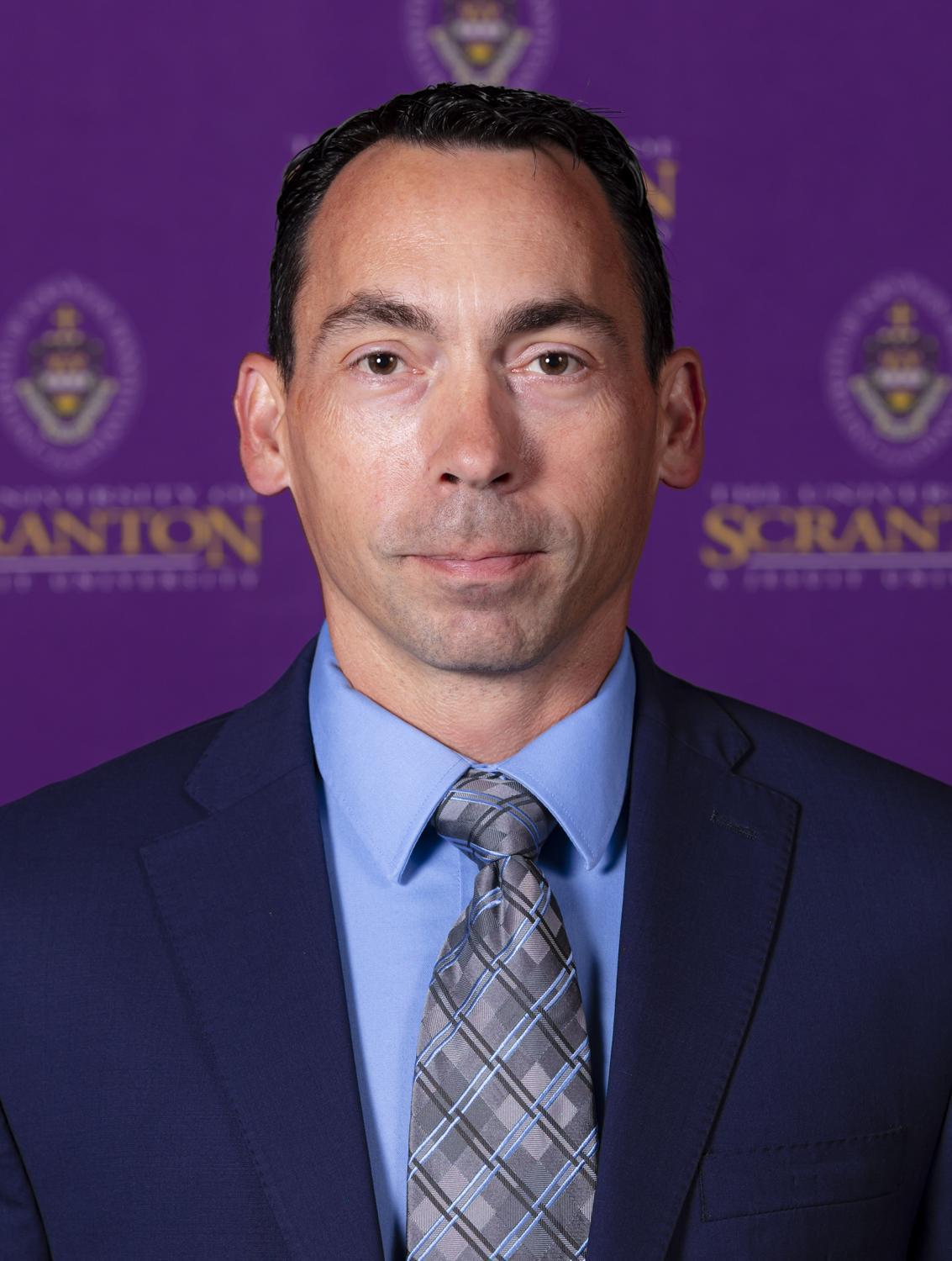
Q. What inspired you to pursue a career as an Orthopedic & Sports Physical Therapist after your time as a Field Artillery Officer with the U.S. Army?
"I have been an athlete for most of my life, playing lacrosse at West Point and continuing to compete in 5Ks and bike races after college. While I was interested in sports medicine and physical therapy during high school, an ACL injury at West Point solidified my interest. After four years as a Field Artillery officer stationed in Germany, I was lucky to be accepted to the Army-Baylor Doctoral Physical Therapy Program."Q. You spent nearly two decades dedicated to this medical discipline within the U.S. Army everywhere from Baghdad, Iraq to West Point, New York. What brought you the most fulfillment in this role?
"The best parts of being a PT were in seeing the results of individual patients that I’ve treated and seeing the professional growth of sports PT fellows that I taught and mentored."
Q. What motivated you to become an educator in this field of study?
"Most of my greatest mentors were educators in some way. That is really a hallmark of medical professions; passing on your knowledge and expertise. I really see this as a way to make your impact greater than anything you could have with just your own patients."
Q: I've read that some of your some of your recent published research is related to veterans' issues and treatments, such as "The Effectiveness of Battlefield Acupuncture in Addition to Standard Physical Therapy Treatment after Shoulder Surgery: A Protocol for a Randomized Clinical Trial," among other studies. What interested you most about these studies? How do you feel that your time spent in service to your country helped you facilitate the research?
"I think research on topics important to these populations, such as pain management, is extremely important to help them perform at their best. My research focus has always been on topics that allow Soldiers and Cadets to return to their military duties as quickly as possible, but at the same time safely. I am particularly interested in these topics because I have seen many Soldiers return to duty before they are ready, often resulting in subsequent injuries."
Q. What do you feel is your greatest accomplishment in your career?
"I think my greatest accomplishment was my time as the Fellowship Director for the West Point Sports Physical Therapy Fellowship. During my four years as the Director, there were 11 program graduates who are now providing leadership and mentorship to physical therapists throughout the Army. The program was awarded $976K in grant funds, published 14 papers in peer-reviewed journals and presented over 20 abstracts at national conferences."
Q. What specific talents do you bring to the Panuska College of Professional Studies?
"I think the main thing I bring to PCPS is my expertise in orthopedics and sports physical therapy. I’ve spent the last 10 years working in the West Point Sports PT Fellowship, which is a great position to continue to build skill and expertise. A unique element that I bring is leadership. I’ve led a 30+ person field artillery platoon as a young 2nd Lieutenant, served as a personnel officer for a 450+ person field artillery battalion, and have been in charge of physical therapy clinics ranging from 4 to 20+ people."
$content.getChild('content').textValueA Word with Mary L. (Doyle) Troy, Ph.D., NCC, LPC ’95 G’20

Q: Your time as a member of U.S. Naval Security Force during Operation Desert Storm U.S. Naval Reserves included work at a Fleet Hospital in Saudi Arabia during Operation Desert Storm. Thank you for your service. What stands out in your mind from that time? How did it motivate you to pursue a career as an educator?"Looking back, what stands out is the change of the public’s perception of the military. Due to the unpopularity of the Vietnam War, the public perception of the military (and service members) was quite poor. There was little respect for those who served in the military (apart from WWII veterans). Operation Desert Storm (the First Gulf War) helped changed that negative perception. The civilian population begin to understand you could protest military actions yet still support military service members. I believe this shift in public perception (and the support it has generated for service members and veterans) has helped greatly with service members’ and veterans’ mental health.
As an educator, I firmly believe that giving back and helping others is a vital part of my job. Serving in the military was a part of this foundational belief. My service in the military was a way to give back to a country where I have been given many opportunities. It was also a way to help protect and defend not only family and friends, but fellow citizens. As an educator, I now use my talents and voice to help protect and defend – by teaching students the skills they need to help others as well as using my voice to advocate for those marginalized in today’s world."
What inspired you to develop the course Counseling with Veterans and Military? What seems to resonate the most with students taking the course?
"The military is its own culture, with unique customs, traditions, ways of speaking and expectations. It is vital to understand this culture if you want to work with veterans. As a veteran and a counselor, I am privy to many of the unique mental health needs of today’s veterans. I was inspired to develop the Counseling With Veterans and Military course because of the great need for mental health services within the veteran population.
In a successful counseling therapeutic relationship, a key component is developing rapport. If the client doesn’t feel that the counselor understands them or their experiences, it is difficult to establish that rapport. This can often result in the client discontinuing counseling and therefore not receiving the help they need. My goal in developing the veterans course was to equip students with the background and knowledge to understand military culture and the unique mental health needs of those who have served, thereby expanding the number of counselors available to work with our veteran population."Q: You earned your undergraduate and Master’s degrees from The University of Scranton. What brought you back to the University as an educator?
"The University of Scranton is a special place. Since I stepped foot on campus as an undergraduate, I have felt at home. Part of the reason I feel at home is the supportive community we have here. My undergrad and grad professors were a large part of that supportive community while I was a student. My hope is that I am now a support for my students."
Q. Your current role at The University of Scranton is assistant professor with the Department of Counseling and Human Services and prior to that you were an adjunct professor for over 18 years. How do you feel your work aligns with the University’s Jesuit mission?"I often say my discipline (counseling) and the Jesuit mission of cura personalis (care for the whole person) go hand-in-hand, and so it is easy to align my work with Ignatian ideals. However, it goes deeper than that. As you walk around campus, you will notice almost every building has “AMDG” inscribed somewhere. This stands for “Ad maiorem Dei gloriam”, the Jesuit motto that means “For the greater glory of God”.
St. Ignatius states that everything we do should be for the greater glory of God. I feel I have been called to do this and am blessed that I get to work towards this goal in two ways with my career. As a counselor, I have the honor of walking alongside my clients as they work to overcome challenges and obstacles, heal from pain, and become the person they want to be. As a counselor educator in the Department of Counseling and Human Services, I have the privilege of helping my students learn and master the skills they need to help others, as well as understand the dignity and worth of all human beings."Q: You’ve presented internationally on “The psychological impact of parental PTSD on children of military veterans,” among other topics related to veterans’ issues. Please share a bit about your research. What was a specific instance that you realized your work was making an impact?
"When working with veterans, it’s important to understand that their mental health doesn’t only affect them, it affects their whole family. My research looked at how a (veteran) parent’s PTSD affects the mental health of children. Children’s mental health needs can often get overlooked, especially when a parent is in crisis. My presentation was focused on what types of mental health issues present in children when a parent has PTSD, as well as tools and techniques to help children manage these issues in healthy, positive ways.
Counseling is a field where it can take years to know the impact of your work. I think knowing spreading awareness for a population that was often overlooked is the first step in impacting positive change."
Q: What do you view as one of the greatest accomplishments in your career?
"My greatest accomplishments have come when a student reaches out to say they felt supported by me or that my classroom or office felt like a safe space where they could be their authentic selves. Sounds mushy, but it is the truth. 😊"
University Educators Advocate for Veterans
-
10/24/2023
Professor Franca Kelly, adjunct faculty in the World Languages Department, believes the best way to learn and become proficient in a language is by immersing oneself in that culture and language. Born in Italy, she speaks Italian, French, English and Spanish. Prof. Kelly joined The University of Scranton in 2019 and currently teaches Italian 101.
Her love for languages began when she traveled to England and worked in London. Interactions with people from various places sparked her interest and she soon began to study French and English at the University of Verona in Italy. Prof. Kelly spent a year studying at the Sorbonne University in Paris as an exchange student. She learned Spanish while attending the University of Texas at El Paso.
From a young age, Prof. Kelly had aspired to become a teacher. She graduated high school with a diploma in elementary school teaching. As an undergrad, she worked as a tutor for high school students and as a Girl Scout Leader for teenagers in Italy. As a graduate student, she began teaching Italian at West Virginia University.
Among Prof. Kelly's favorite aspects of teaching at Scranton have been the small class size and students who are very studious and engaged. As a member of the World Languages Department, she has most enjoyed meeting the Fulbright students from different countries.
Language is about communication, so talking to native people of that language is one of the best ways to improve speaking and comprehension skills. Prof. Kelly also strongly suggests finding opportunities for listening, speaking, watching movies and shows on TV, and reading in that language.
Prof. Franca Kelly Shares Love of Languages
-
10/18/2023
Vincent Farallo, Ph.D., assistant professor of biology, was awarded a $488,947 grant from the National Science Foundation (NSF) to research the physiology and chemical ecology of poison frogs. The funding for the three-year project will allow for the participation of 30 or more undergraduate students, who will learn cutting-edge respirometry techniques as they work with faculty members. The study will also allow for the development of a frog breeding colony, which can be used for this – as well as future – research projects.
“Amphibians are especially susceptible to climate change as their physiologies, specifically respiration and other aspects of metabolism, are dependent on specific temperature and moisture conditions,” said Dr. Farallo, explaining that Neotropical poison frogs in the family Dendrobatidae, which will be used for the study, “also have specialized physiologies that allow them to sequester dietary alkaloids to be used as chemical defenses.”
$content.getChild('content').textValue“Poison frogs, many of which are lethal in the wild, are no longer toxic in captivity,” said Dr. Farallo, explaining that their diet in the wild of ants and mites, enables their toxicity through a process called alkaloid sequestration. The frogs’ diet in captivity of fruit flies does not allow for them to maintain poisonous toxicity. The frogs do, however, retain their unique, bright coloring.
The study will allow for controlled levels of alkaloids to be reintroduced to the dendrobatid frogs and then measure how alkaloid sequestration by the frogs impacts ecologically relevant physiological processes, such as metabolism.
Dr. Farallo will train undergraduate students at Scranton to use sophisticated equipment to measure the frogs’ metabolism. They will collaborate with co-investigator Ralph Saporito, Ph.D., a chemical ecologist and professor of biology at John Carroll University, University Heights, Ohio, and undergraduate students at John Carroll for chemical analysis.
Both Scranton and its sister Jesuit university partners will share data gathered throughout this project and collaborate on research results.
Scranton students will also work to develop 10 breeding colonies of frogs.
“The breeding of colonies of frogs will provide long-term capacity and flexibility to enable future University students and faculty to conduct multiple research projects for years to come, long after this project has concluded,” said Dr. Farallo, who noted that the colonies will also allow for future community outreach programming with area schools and community groups.
“The charismatic nature of the frogs will also allow for outreach events, engaging the community to learn about ecophysiology and conservation,” said Dr. Farallo.
Dr. Farallo joined the faculty at Scranton in 2020. He has received several research grants, presented at numerous conferences and has co-authored several peer-reviewed journal articles. He held postdoctoral research positions at Yale University and Virginia Polytechnic Institute. He earned his bachelor’s degree from John Carroll University, his master’s degree from Texas State University-San Marco and his doctorate from Ohio University.
Professor Awarded Nearly Half-Million Dollar Grant
-
10/04/2023
This year the World Languages and Cultures Department is pleased to host four Fulbright Teaching Assistants from Argentina, France, Tunisia and Germany, a visiting instructor from Japan, and a returning visiting instructor from Taiwan. To learn more about these instructors, please read their biographies below and watch this short video.
The 2023-2024 Fulbright teaching assistants, graduate assistants and visiting instructors include:
Sheila Mignolet - Argentina (Spanish)
Rahma Baklouti - Tunisia (Arabic)
Naoko Omori - Japan (Japanese)
Joshua Hartmann - Germany (German)
Héloïse Vérissi - France (French)
Yun (Lily) Chiang - Taiwan (Chinese)
Ximena Jimenez - LLC (Spanish)
 Sheila Mignolet
Sheila Mignolet¡Hola a todos! My name is Sheila Mignolet and I was born in Cipolletti, Argentina. Cipolletti is a small city in the Rio Negro province, located at the top of the region called Patagonia. It is best known for its apple and pear exports, but you can find beautiful hidden places nearby such as Isla Jordan, Cueva del León, the riverbank, etcetera.
I was born and raised in Cipolletti, but I lived for five years in the city of General Roca, where I studied to become an English teacher. I graduated from the University of Comahue in 2017 and I have been working as an English teacher since then. I have also participated in research projects that dealt with technology and good practices in education.
This is the first time that I am teaching Spanish as a Second Language, but I am eager to accept the challenge. I love reading books, dancing and making different types of crafts. I also enjoy learning about new cultures through their music and films, so my playlists often feature a mixture of languages. I am keen on bringing my knowledge into the classroom and making the most of my time at Scranton. I hope my students and I can learn from each other during my time as part of the Fulbright Teaching Assistant Program. Rahma Baklouti
Rahma BakloutiHi everyone! My name is Rahma Baklouti, and I am the Arabic FLTA (Fulbright Language Teaching Assistant). I come from Tunisia. Tunisia is a small country in North Africa. Tunisian culture is highly diverse. Indeed, a significant number of Jews and Christians have lived among a Muslim majority for years. This diversity is also seen in the architecture of the capital, Tunis. The city blends ancient Arab Souks, Cathedrals, Mosques, and modern office buildings.
At the beginning of my studies, I was interested in the healthcare field so I majored in midwifery. My second major was in English. I hold a Bachelor in English language, literature, and civilization. Moreover, I hold an M.A. in American Studies from the Faculty of Human and Social Sciences of Tunis. Currently, I am a Ph.D. candidate at the Faculty of Arts and Humanities of Sousse, Tunisia.
For three years I worked as a teacher of foreign languages. I taught Arabic, French, and English in primary and secondary schools. Being a university teacher is my dream, therefore, I am here. I am jubilant and honored to teach at The University of Scranton, and I will do my best to help students learn about the Arabic culture and language. Naoko Omori
Naoko Omori こんにちは!
My name is Naoko Omori. I was born in Kobe, Japan. After I graduating from University, I went to Australia for one year, worked for a scent marketing company, and worked for a shared office company in Japan.
I like eating, traveling, Japanese calligraphy, wearing a kimono and reading. Please let me know your favorite restaurant in Scranton!! I am looking forward to spending this year with you! Joshua Hartmann
Joshua Hartmann Hallo! My name is Joshua Hartmann and I come from Radeburg, which is a very small but lovely town near Dresden, Germany. I´ve been studying English and geography for Secondary Education at the Technical University Dresden for four years now. (I would, by the way, deeply recommend visiting Dresden if you should ever have the chance to do so, it's a beautiful place!). I've been playing soccer since I was a kid and I enjoy any other kinds of sports and outdoor activities as well. I also have a passion for music and like to be creative with it.
Having the opportunity to be a Foreign Language Teaching Assistant, I am very happy and excited to share my culture with you and to guide and assist you on your journey of learning German, I hope to learn more about your culture as well! So, feel free to reach out to me anytime. I´m looking forward to it!
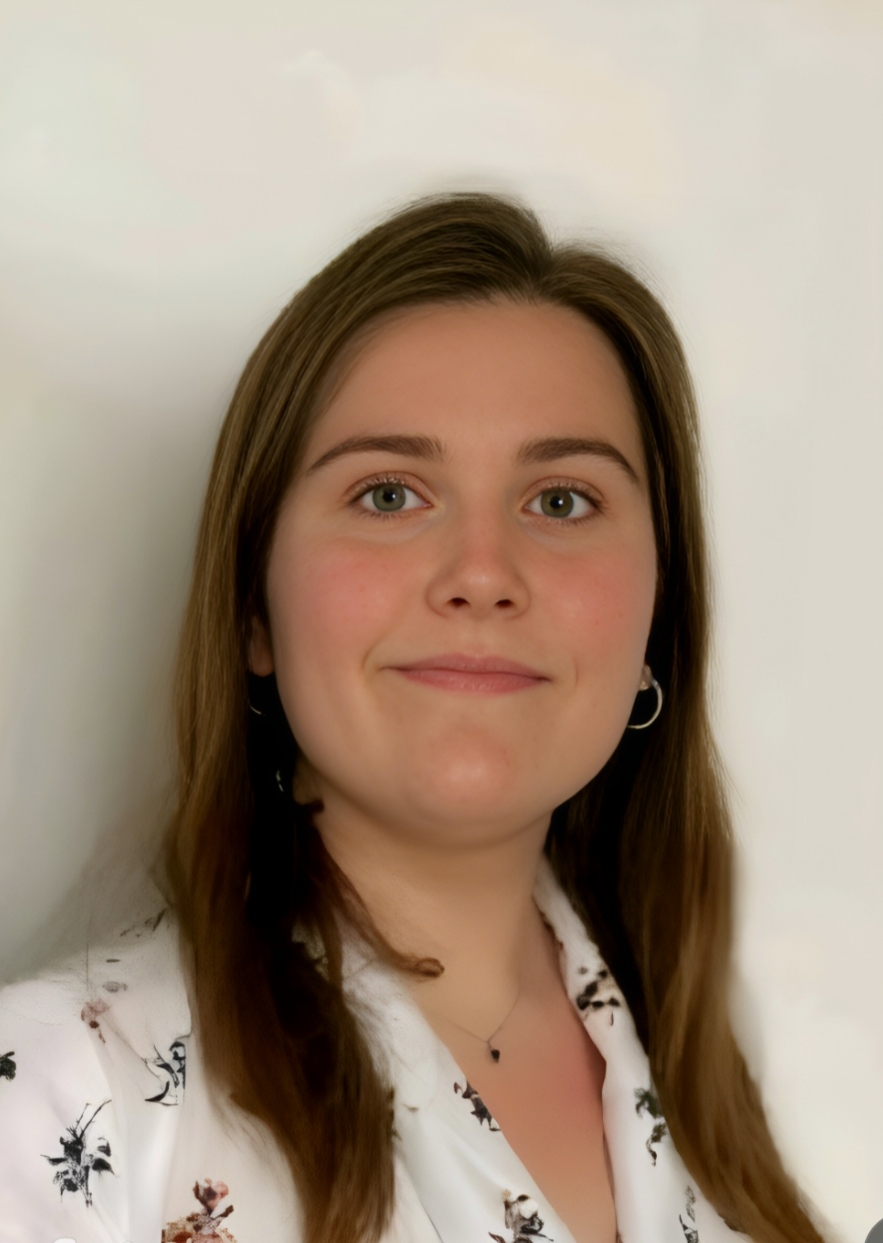 Héloïse Vérissi
Héloïse VérissiHi everyone! I am Héloïse Vérissi and I am from Paris, France. You may have heard of my city a couple of times. Between the beautiful architecture, great food, and a lot of cultural events, I do not think that it is possible to ever get bored in it! But France is a lot bigger than Paris and all our regions are so interesting and so unique.
If you like French cuisine, definitely check out the food from the South-West! I graduated from the University of Paris with a B.A. in English with a focus on English history and then I graduated from Université Paris Cité and University College Dublin last June with a M.A. in European history with a focus on Celtic history.
It is my very first time teaching and I am very excited to have been chosen to teach here for a year. I hope that I will be able to make my students as excited to speak about France and the French language as I am and I will be more than happy to answer any question you may have about my language or culture. Yun (Lily) Chiang
Yun (Lily) Chiang大家好! My name is Chiang Yun. You can just call me Yun, or my English name, Lily. I was born in Taipei, Taiwan. You may not know where Taiwan is. Taiwan is a little island between China and Japan. Taiwan is a multicultural island which from China, Japan and Southeast Asia. Taipei is the capital of Taiwan, with a lot of delicious food and motorcycles. Have you tried bubble tea and hot pot? Try it and you will love it!
I graduated from Zhong Yuan University with a bachelor's degree in teaching Chinese as second language. After graduation, I taught at international Chinese school in Korea for six years, so I can speak Korean and I also like watching Korean dramas. While I was working, I went to National Taiwan Normal University to gain my master’s degree in teaching Chinese as second language. It was hard work, but worth it.
I like Chinese, Chinese is a beautiful Language with a lot of culture and history, I also like to experience different cultures. I am honored to teach in Scranton. Wish I could bring my knowledge to students, I believe (教学相长) students can learn from me, and l can learn from them, too.
Introducing New Fulbright Language Teaching Assistants and Visiting Instructors
-
10/03/2023
The University of Scranton has appointed 22 new full-time faculty members for the 2023-2024 academic year.
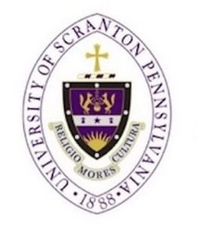 Holly Avella, Ph.D. cand., was appointed as a visiting assistant professor in the Communication and Media Department. She most recently worked in the Department of Communication and Department of Journalism and Media Studies at Rutgers University and has worked at Manhattanville College, Marist College and Dutchess Community College. She earned her Bachelor of Arts in psychology at State University of New York at New Paltz and her Master of Science in education/mental health counseling psychology at Long Island University. She is a Ph.D. candidate in communication, information and media studies at Rutgers University. She has published and presented extensively, most recently in the realms of mental health and social media.
Holly Avella, Ph.D. cand., was appointed as a visiting assistant professor in the Communication and Media Department. She most recently worked in the Department of Communication and Department of Journalism and Media Studies at Rutgers University and has worked at Manhattanville College, Marist College and Dutchess Community College. She earned her Bachelor of Arts in psychology at State University of New York at New Paltz and her Master of Science in education/mental health counseling psychology at Long Island University. She is a Ph.D. candidate in communication, information and media studies at Rutgers University. She has published and presented extensively, most recently in the realms of mental health and social media.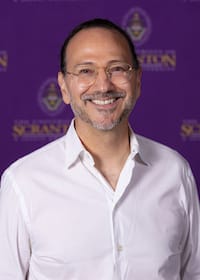 Patrick Beldio, Ph.D., was appointed as a visiting lecturer in the Theology/Religious Studies Department. He most recently was a professional lecturer in the Religion Department at George Washington University in Washington, D.C., and an adjunct professor in the Theology and Religious Studies Department at Marymount University in Arlington, Virginia. He earned his Bachelor of Arts in studio art and philosophy and Bachelor of Fine Arts in sculpture at the University of Notre Dame, his Master of Arts in systematic theology at The Washington Theological Union, his Master of Fine Arts in sculpture at The George Washington University, and his Ph.D. in religion and culture at The Catholic University of America. His first book on a contemporary Indian tradition called the “Integral Yoga of the Mother and Sri Aurobindo” is due out in 2024 with Lexington Press. He has operated personal businesses as a sacred visual artist and has a wide-ranging list of solo art projects, performances, exhibitions, peer-reviewed publications and academic presentations. He has been commissioned to create several artistic pieces for private collections and educational institutions.
Patrick Beldio, Ph.D., was appointed as a visiting lecturer in the Theology/Religious Studies Department. He most recently was a professional lecturer in the Religion Department at George Washington University in Washington, D.C., and an adjunct professor in the Theology and Religious Studies Department at Marymount University in Arlington, Virginia. He earned his Bachelor of Arts in studio art and philosophy and Bachelor of Fine Arts in sculpture at the University of Notre Dame, his Master of Arts in systematic theology at The Washington Theological Union, his Master of Fine Arts in sculpture at The George Washington University, and his Ph.D. in religion and culture at The Catholic University of America. His first book on a contemporary Indian tradition called the “Integral Yoga of the Mother and Sri Aurobindo” is due out in 2024 with Lexington Press. He has operated personal businesses as a sacred visual artist and has a wide-ranging list of solo art projects, performances, exhibitions, peer-reviewed publications and academic presentations. He has been commissioned to create several artistic pieces for private collections and educational institutions.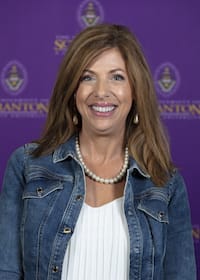
Michele Boland was appointed as a faculty specialist in the Nursing Department. She most recently worked as nursing faculty for the Practical Nursing Program at the Career Technology Center of Lackawanna County and has been an adjunct faculty member and clinical instructor at The University of Scranton. She earned her Bachelor of Science in nursing at the University of Delaware and a Master of Science in nursing education at the University of Phoenix. In addition, she has a long history of direct patient care provision in diverse settings, as well as various roles within health care administration.
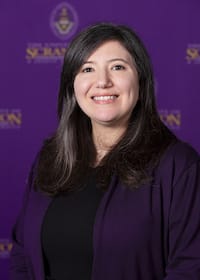 Melanie Caughey, Ph.D., was appointed as an assistant professor in the Education Department. She most recently taught at Cleveland State University as a visiting assistant professor and coordinator of the Gifted and Talented Learners program and previously taught at the University of Louisiana at Lafayette. She has also worked with Vanderbilt Programs for Talented Youth and the Renzulli Center for Creativity, Gifted Education, and Talent Development at the University of Connecticut. She earned her Bachelor of Arts in English and education at Bucknell University, a Master of Science in education at Duquesne University, and a Ph.D. in gifted education at the University of Virginia. She has published and presented numerous times on specialized topics involving gifted education.
Melanie Caughey, Ph.D., was appointed as an assistant professor in the Education Department. She most recently taught at Cleveland State University as a visiting assistant professor and coordinator of the Gifted and Talented Learners program and previously taught at the University of Louisiana at Lafayette. She has also worked with Vanderbilt Programs for Talented Youth and the Renzulli Center for Creativity, Gifted Education, and Talent Development at the University of Connecticut. She earned her Bachelor of Arts in English and education at Bucknell University, a Master of Science in education at Duquesne University, and a Ph.D. in gifted education at the University of Virginia. She has published and presented numerous times on specialized topics involving gifted education.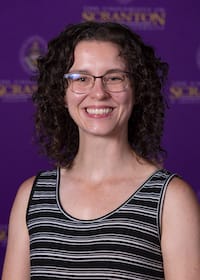 Laura Chapman, Ph.D., was appointed as an assistant professor in the Health and Human Performance Department. She was most recently an assistant professor in the Department of Rehabilitation Sciences at Appalachian State University. She earned her Bachelor of Arts in music and her Bachelor of Arts in communicative sciences and disorders at Michigan State University and her Master of Arts in speech-language pathology and Ph.D. in speech-language science at Ohio University. She has a lengthy publishing history and has presented both nationally and internationally. She resides in Clarks Summit.
Laura Chapman, Ph.D., was appointed as an assistant professor in the Health and Human Performance Department. She was most recently an assistant professor in the Department of Rehabilitation Sciences at Appalachian State University. She earned her Bachelor of Arts in music and her Bachelor of Arts in communicative sciences and disorders at Michigan State University and her Master of Arts in speech-language pathology and Ph.D. in speech-language science at Ohio University. She has a lengthy publishing history and has presented both nationally and internationally. She resides in Clarks Summit.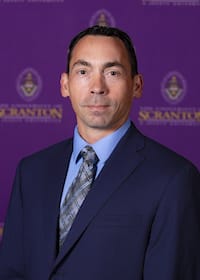 Michael Crowell, PT, D.Sc., was appointed as an associate professor in the Physical Therapy Department. He was most recently the program director for the Baylor University - Keller Amy Community Hospital Division 1 Sports Physical Therapy Fellowship at the United States Military Academy at West Point and an associate professor at Baylor University. He earned his Bachelor of Science in chemistry and life sciences at the United States Military Academy and his Doctor of Physical Therapy and Doctor of Science in orthopaedic physical therapy at Baylor University. He is a board-certified clinical specialist in orthopaedic physical therapy and sports physical therapy and a fellow of the American Academy of Orthopaedic Manual Physical Therapists.
Michael Crowell, PT, D.Sc., was appointed as an associate professor in the Physical Therapy Department. He was most recently the program director for the Baylor University - Keller Amy Community Hospital Division 1 Sports Physical Therapy Fellowship at the United States Military Academy at West Point and an associate professor at Baylor University. He earned his Bachelor of Science in chemistry and life sciences at the United States Military Academy and his Doctor of Physical Therapy and Doctor of Science in orthopaedic physical therapy at Baylor University. He is a board-certified clinical specialist in orthopaedic physical therapy and sports physical therapy and a fellow of the American Academy of Orthopaedic Manual Physical Therapists. 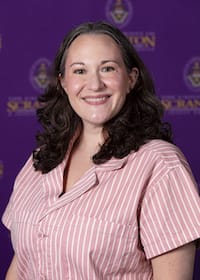 Kristeen Elrod, Ph.D., was appointed as a lecturer in the Counseling and Human Services Department. She is a licensed marriage and family therapist and registered play therapy supervisor. She was most recently a term faculty member at Oregon State University and worked in private telehealth practice for Ginger & Pixie LLC in California. She earned her Master of Arts in professional counseling at Texas State University and her Ph.D. in counselor education and supervision at Oregon State University. She is pursuing a medical trauma counseling certificate.
Kristeen Elrod, Ph.D., was appointed as a lecturer in the Counseling and Human Services Department. She is a licensed marriage and family therapist and registered play therapy supervisor. She was most recently a term faculty member at Oregon State University and worked in private telehealth practice for Ginger & Pixie LLC in California. She earned her Master of Arts in professional counseling at Texas State University and her Ph.D. in counselor education and supervision at Oregon State University. She is pursuing a medical trauma counseling certificate.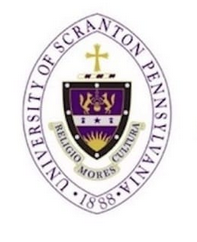 Mark Fenner, Ph.D., was appointed as an assistant professor in the Computing Sciences Department. A data and research scientist, developer and educator, Dr. Fenner, who operates Fenner Training and Consulting LLC in Forty Fort, earned his Bachelor of Science in computer science and psychology at Allegheny College. He earned his Master of Arts in mathematics and Master of Science and Ph.D. in computer science at the University of Pittsburgh. He has taught at King’s College in Wilkes-Barre, Norwich University in Vermont and the University of Pittsburgh.
Mark Fenner, Ph.D., was appointed as an assistant professor in the Computing Sciences Department. A data and research scientist, developer and educator, Dr. Fenner, who operates Fenner Training and Consulting LLC in Forty Fort, earned his Bachelor of Science in computer science and psychology at Allegheny College. He earned his Master of Arts in mathematics and Master of Science and Ph.D. in computer science at the University of Pittsburgh. He has taught at King’s College in Wilkes-Barre, Norwich University in Vermont and the University of Pittsburgh. 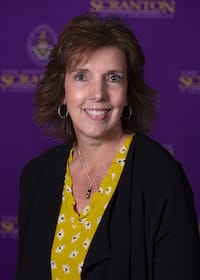 Kelly Filchner, Ph.D., was appointed as an assistant professor in the Nursing Department. She was most recently director of clinical operations at Fox Chase Cancer Center Partners in Rockledge. She earned her Bachelor of Science in nursing at East Stroudsburg University, her Master of Science in nursing at DeSales University and her Ph.D. in nursing at Duquesne University. Dr. Filchner is a member of the Honor Society of Phi Kappa Phi, the Sigma Theta Tau Nursing Honor Society, and has researched and published on several cancer-related topics.
Kelly Filchner, Ph.D., was appointed as an assistant professor in the Nursing Department. She was most recently director of clinical operations at Fox Chase Cancer Center Partners in Rockledge. She earned her Bachelor of Science in nursing at East Stroudsburg University, her Master of Science in nursing at DeSales University and her Ph.D. in nursing at Duquesne University. Dr. Filchner is a member of the Honor Society of Phi Kappa Phi, the Sigma Theta Tau Nursing Honor Society, and has researched and published on several cancer-related topics. 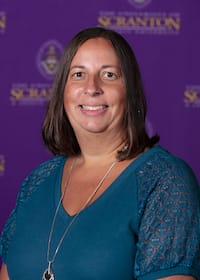 Carrie Griffiths, OTD, was appointed as a faculty specialist in the Occupational Therapy Department. She was most recently the Program Director for the Occupational Therapy Assistant program at Lackawanna College. She earned her Bachelor of Science in occupational therapy at Mount Aloysius College, a Master of Science in occupational therapy at The University of Scranton and a doctorate in occupational therapy at Gannon University. Dr. Griffiths has clinical experience in a variety of practice areas, including acute care, in-patient rehabilitation, outpatient, behavioral health, hospice, skilled nursing facilities and assisted living facilities. In addition, she is employed by Jukebox Health where she conducts home safety assessments.
Carrie Griffiths, OTD, was appointed as a faculty specialist in the Occupational Therapy Department. She was most recently the Program Director for the Occupational Therapy Assistant program at Lackawanna College. She earned her Bachelor of Science in occupational therapy at Mount Aloysius College, a Master of Science in occupational therapy at The University of Scranton and a doctorate in occupational therapy at Gannon University. Dr. Griffiths has clinical experience in a variety of practice areas, including acute care, in-patient rehabilitation, outpatient, behavioral health, hospice, skilled nursing facilities and assisted living facilities. In addition, she is employed by Jukebox Health where she conducts home safety assessments.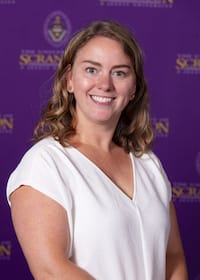 Anna Grippi was named a lecturer in the Nursing Department. She was previously a part-time faculty member in The University of Scranton Nursing Department, and prior to that appointment she worked as health coordinator for the Scranton Lackawanna Human Development Agency. She has been a clinical navigator, nurse reviewer for Federal Hearings and Appeals, a team nurse in mental health for the Scranton Counseling Center and a registered nurse on the neurological/trauma floor for Geisinger Community Medical Center. She earned her Bachelor of Science in nursing at Marywood University and her Master of Science in nursing at Aspen University with a specialization in nursing education. She resides in Dunmore.
Anna Grippi was named a lecturer in the Nursing Department. She was previously a part-time faculty member in The University of Scranton Nursing Department, and prior to that appointment she worked as health coordinator for the Scranton Lackawanna Human Development Agency. She has been a clinical navigator, nurse reviewer for Federal Hearings and Appeals, a team nurse in mental health for the Scranton Counseling Center and a registered nurse on the neurological/trauma floor for Geisinger Community Medical Center. She earned her Bachelor of Science in nursing at Marywood University and her Master of Science in nursing at Aspen University with a specialization in nursing education. She resides in Dunmore. 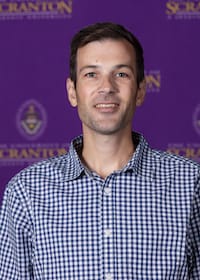 Michael Hague, Ph.D., was appointed as an assistant professor in the Biology Department. He was most recently a postdoctoral researcher at the University of Montana. He earned his Bachelor of Arts in biology and environmental studies at Whitman College, his Master of Science in ecology, evolution and conservation biology at San Francisco State University and his Ph.D. in biology at the University of Virginia. He has been a distinguished teaching fellow at the University of Virginia and an adjunct instructor at Everest College in Utah.
Michael Hague, Ph.D., was appointed as an assistant professor in the Biology Department. He was most recently a postdoctoral researcher at the University of Montana. He earned his Bachelor of Arts in biology and environmental studies at Whitman College, his Master of Science in ecology, evolution and conservation biology at San Francisco State University and his Ph.D. in biology at the University of Virginia. He has been a distinguished teaching fellow at the University of Virginia and an adjunct instructor at Everest College in Utah.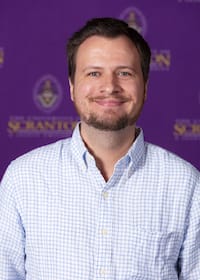 Matthew Hale, Ph.D., was appointed as a visiting assistant professor in the Theology/Religious Studies Department. He was most recently an adjunct professor at Abilene Christian University’s Graduate School of Theology. He earned his Bachelor of Arts in biblical text at Lubbock Christian University, his Master of Arts in history and theology at Abilene Christian University and his master of philosophy and Ph.D. in historical and systematic theology at The Catholic University of America. He has been a teaching fellow at The Catholic University of America’s School of Theology and Religious Studies and has been a preacher in Texas.
Matthew Hale, Ph.D., was appointed as a visiting assistant professor in the Theology/Religious Studies Department. He was most recently an adjunct professor at Abilene Christian University’s Graduate School of Theology. He earned his Bachelor of Arts in biblical text at Lubbock Christian University, his Master of Arts in history and theology at Abilene Christian University and his master of philosophy and Ph.D. in historical and systematic theology at The Catholic University of America. He has been a teaching fellow at The Catholic University of America’s School of Theology and Religious Studies and has been a preacher in Texas. 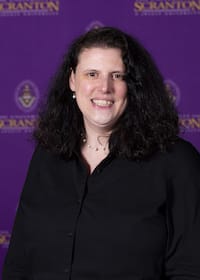 Samantha Herrick, Ph.D., was appointed as an associate professor in the Counseling & Human Services Department. She was most recently an associate professor in the Department of Psychiatric Rehabilitation and Counseling Professions at Rutgers University, where she received an Excellence in Teaching Award. She is also a mental health counselor with a private practice in Mahwah, New Jersey. She earned her Bachelor of Arts in communications at the University of Rhode Island, her Master of Science in rehabilitation counseling and disability studies at Springfield College and her Ph.D. in counselor education and supervision at the Pennsylvania State University. Her research, publication and presentation history on disability and specifically Autism is extensive. She is also a 2015 inductee into the New England Basketball Hall of Fame.
Samantha Herrick, Ph.D., was appointed as an associate professor in the Counseling & Human Services Department. She was most recently an associate professor in the Department of Psychiatric Rehabilitation and Counseling Professions at Rutgers University, where she received an Excellence in Teaching Award. She is also a mental health counselor with a private practice in Mahwah, New Jersey. She earned her Bachelor of Arts in communications at the University of Rhode Island, her Master of Science in rehabilitation counseling and disability studies at Springfield College and her Ph.D. in counselor education and supervision at the Pennsylvania State University. Her research, publication and presentation history on disability and specifically Autism is extensive. She is also a 2015 inductee into the New England Basketball Hall of Fame. 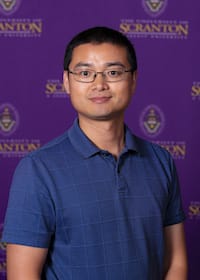 Geng Liu, Ph.D., was appointed as an assistant professor in the Physics/Engineering Department. He was most recently an assistant professor at King’s College in Wilkes-Barre. He earned his Bachelor of Science in mechanical engineering at the University of Science and Technology of China and his Ph.D. in mechanical engineering at the University of Chinese Academy of Sciences, Beijing. He has been a postdoctoral researcher at the University of Maine at Orono and the University of Virginia, where he also was a teaching fellow and guest lecturer. He resides in Clarks Summit.
Geng Liu, Ph.D., was appointed as an assistant professor in the Physics/Engineering Department. He was most recently an assistant professor at King’s College in Wilkes-Barre. He earned his Bachelor of Science in mechanical engineering at the University of Science and Technology of China and his Ph.D. in mechanical engineering at the University of Chinese Academy of Sciences, Beijing. He has been a postdoctoral researcher at the University of Maine at Orono and the University of Virginia, where he also was a teaching fellow and guest lecturer. He resides in Clarks Summit.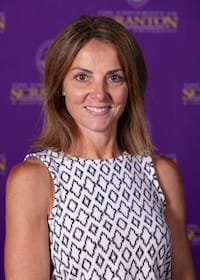 Christiane McDonald was appointed as a faculty specialist in the Health and Human Performance Department. She most recently worked as a speech-language pathologist with Presence/Ocean Springs School District, Mississippi. She was selected for specialized training in stuttering through the Palin PCI Eastern Workshop. She earned her Bachelor of Science in speech pathology and audiology at East Stroudsburg University and her Master of Science in speech-language pathology at Misericordia University.
Christiane McDonald was appointed as a faculty specialist in the Health and Human Performance Department. She most recently worked as a speech-language pathologist with Presence/Ocean Springs School District, Mississippi. She was selected for specialized training in stuttering through the Palin PCI Eastern Workshop. She earned her Bachelor of Science in speech pathology and audiology at East Stroudsburg University and her Master of Science in speech-language pathology at Misericordia University.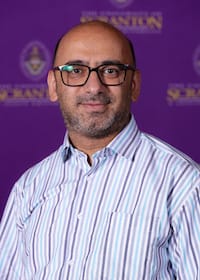 Farshad Merrikh-Bayat, Ph.D., was appointed as an assistant professor in the Physics/Engineering Department. He most recently worked as a senior mechatronics engineer at ASML/Cymer in San Diego, California. He earned his Bachelor of Science in electrical engineering at K.N. Toosi University of Technology in Tehran, Iran, and his Master of Science and Ph.D. in electrical engineering-controls at Sharif University of Technology, also in Tehran. He has been an assistant and associate professor at the University of Zanjan in Zanjan, Iran, where he was a technical consultant and was chief of the electrical engineering department.
Farshad Merrikh-Bayat, Ph.D., was appointed as an assistant professor in the Physics/Engineering Department. He most recently worked as a senior mechatronics engineer at ASML/Cymer in San Diego, California. He earned his Bachelor of Science in electrical engineering at K.N. Toosi University of Technology in Tehran, Iran, and his Master of Science and Ph.D. in electrical engineering-controls at Sharif University of Technology, also in Tehran. He has been an assistant and associate professor at the University of Zanjan in Zanjan, Iran, where he was a technical consultant and was chief of the electrical engineering department.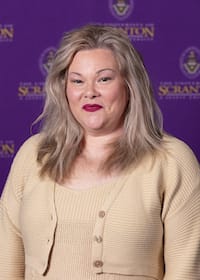 Katherine Stefanelli, Ph.D., was appointed as an assistant professor in the Counseling and Human Services Department. She most recently was coordinator of counseling and psychological services and a health and wellness educator at Penn State University Scranton Campus in Dunmore. She earned her Bachelor of Arts in psychology at the Pennsylvania State University, University Park, and her Master of Arts in clinical psychology, post-master’s certification in school counseling and Ph.D. in human development at Marywood University. She has been a licensed professional counselor in private practice in South Abington Township and has been an adjunct faculty member at Penn State Scranton and The University of Scranton.
Katherine Stefanelli, Ph.D., was appointed as an assistant professor in the Counseling and Human Services Department. She most recently was coordinator of counseling and psychological services and a health and wellness educator at Penn State University Scranton Campus in Dunmore. She earned her Bachelor of Arts in psychology at the Pennsylvania State University, University Park, and her Master of Arts in clinical psychology, post-master’s certification in school counseling and Ph.D. in human development at Marywood University. She has been a licensed professional counselor in private practice in South Abington Township and has been an adjunct faculty member at Penn State Scranton and The University of Scranton.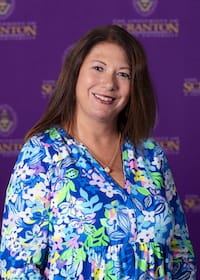 Amy Szydlowski was appointed as a faculty specialist in the Health Administration and Human Resources Department. She was district executive director of the Pennsylvania Department of Health for the Northeast Region for more than a decade. She earned her Bachelor of Science in communication disorders at Pennsylvania State University, University Park, and her Master of Public Administration with certification in gerontology and Master of Social Work at Marywood University. She has been an adjunct faculty member at The University of Scranton and has worked in pharmaceutical sales for Pfizer and Janssen. She resides in Moosic.
Amy Szydlowski was appointed as a faculty specialist in the Health Administration and Human Resources Department. She was district executive director of the Pennsylvania Department of Health for the Northeast Region for more than a decade. She earned her Bachelor of Science in communication disorders at Pennsylvania State University, University Park, and her Master of Public Administration with certification in gerontology and Master of Social Work at Marywood University. She has been an adjunct faculty member at The University of Scranton and has worked in pharmaceutical sales for Pfizer and Janssen. She resides in Moosic.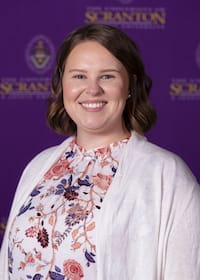 Megan Whitbeck, Ph.D., was appointed as an assistant professor in the Counseling and Human Services Department. She served as a psychosocial rehabilitation counselor at a community mental health outpatient program in Central Florida for clients with severe and persistent mental illness, and has expertise in counseling individuals, families, couples, and college student populations. She earned her Bachelor of Science in psychology at the State University of New York at Cortland, her Master of Arts in clinical mental health counseling at the University of Central Florida and her Ph.D. in counseling and counselor education at the University of North Carolina at Greensboro.
Megan Whitbeck, Ph.D., was appointed as an assistant professor in the Counseling and Human Services Department. She served as a psychosocial rehabilitation counselor at a community mental health outpatient program in Central Florida for clients with severe and persistent mental illness, and has expertise in counseling individuals, families, couples, and college student populations. She earned her Bachelor of Science in psychology at the State University of New York at Cortland, her Master of Arts in clinical mental health counseling at the University of Central Florida and her Ph.D. in counseling and counselor education at the University of North Carolina at Greensboro.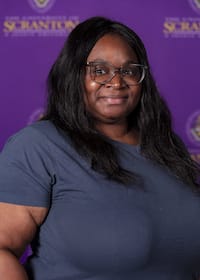 Katorah Williams, Ph.D., was appointed as an assistant professor in the Criminal Justice, Cybersecurity and Sociology Department. She earned her Bachelor of Science in neuroscience and psychology at Temple University, Philadelphia, her Master of Science in criminal justice at West Chester University of Pennsylvania and her Ph.D. in criminal justice at Temple University. As a research assistant at Temple University, she worked on projects related to adversarial decision-making, and social engineering education and experiential learning. Her current research explores conceptualizations of privacy and engagement in lateral surveillance. She has taught online courses in white collar crime and psychology and crime, and has been a teaching assistant for courses in criminal law, criminal courts and justice, criminal behavior and ethics, crime and justice.
Katorah Williams, Ph.D., was appointed as an assistant professor in the Criminal Justice, Cybersecurity and Sociology Department. She earned her Bachelor of Science in neuroscience and psychology at Temple University, Philadelphia, her Master of Science in criminal justice at West Chester University of Pennsylvania and her Ph.D. in criminal justice at Temple University. As a research assistant at Temple University, she worked on projects related to adversarial decision-making, and social engineering education and experiential learning. Her current research explores conceptualizations of privacy and engagement in lateral surveillance. She has taught online courses in white collar crime and psychology and crime, and has been a teaching assistant for courses in criminal law, criminal courts and justice, criminal behavior and ethics, crime and justice.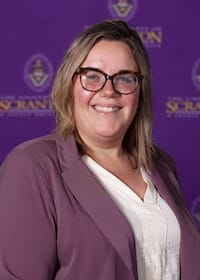 Elin Woods was appointed as an assistant professor in the Harry and Jeanette Weinberg Memorial Library. She was most recently a reference and interlibrary loan/adult programming librarian at Indiana Free Library in Indiana, Pennsylvania, and before that was a student success librarian at Indiana University of Pennsylvania. She earned her Bachelor of Arts in history at Indiana University of Pennsylvania and her Master of Science in library science at Clarion University of Pennsylvania. She is a co-author and co-editor of the book “Once Upon a Time in the Academic Library: Storytelling Skills for Librarians.”
Elin Woods was appointed as an assistant professor in the Harry and Jeanette Weinberg Memorial Library. She was most recently a reference and interlibrary loan/adult programming librarian at Indiana Free Library in Indiana, Pennsylvania, and before that was a student success librarian at Indiana University of Pennsylvania. She earned her Bachelor of Arts in history at Indiana University of Pennsylvania and her Master of Science in library science at Clarion University of Pennsylvania. She is a co-author and co-editor of the book “Once Upon a Time in the Academic Library: Storytelling Skills for Librarians.”University Appoints 22 New Faculty Members
-
09/26/2023
Fulbright Scholar Joshua Hartmann of Germany, a secondary education major specializing in English and geography at Technische Universität Dresden, will present the next in a series of Global Insights programs. Registration is required for the Oct. 12 program that begins at 11:30 a.m. in the Kane Forum, Edward Leahy Hall, Room 235.
Growing up in Radeburg, Germany, Hartmann played his favorite sport, fussball (German for football) which in the U.S. is known as soccer. “That was, and is, a big part of my life. I still play soccer. It is probably the most common activity and sport…in Germany. We have lot of leagues and a lot of teams. It is a great way to meet people.”
Hartmann describes the landscape in Germany near his hometown as “small towns, like islands of towns that are not connected. It is a rural area.” There, soccer connects people when they travel from town to town."The good thing about Berlin is when you are interested in visiting, you can see the historical side of it, but (today) it is also a lovely diverse, multicultural city with a lot of new aspects and influences to it, which is very interesting.”
 Germany holds many must-see sites of both historic significance and natural wonder. Once torn in two, Berlin has grown in many ways, Hartmann said.
Germany holds many must-see sites of both historic significance and natural wonder. Once torn in two, Berlin has grown in many ways, Hartmann said.“The good thing about Berlin is when you are interested in visiting, you can see the historical side of it, but (today) it is also a lovely diverse, multicultural city with a lot of new aspects and influences to it.”
He noted other areas of interest.
“I would definitely recommend going near the border to Austria where the Alps begin (Bavaria). There’s a beautiful landscape. You can go skiing and hiking. The most famous site there is the Castle of Neuschwanstein."
He referenced what is known as the castle of paradox, with creation and construction ordered by King Louis II (the Mad King) of Bavaria in 1864. Its historic, fortified, yet romantic design also offers modern creature comforts such as running hot water in the kitchen and baths, flushing toilets and central heating.
Hartmann will teach German at Scranton throughout the fall and spring semesters.
All faculty, staff and students are invited to attend the presentation and enjoy a cultural cuisine luncheon.
Register for Global Insights Germany.
This program is hosted by the Office of Global Education, the Cultural Centers, Residence Life and the Office of Equity and Diversity. For more information, please contact international@scranton.edu or 570-941-4841.Fulbright Scholar Joshua Hartmann Presents: 'Germany'
-
09/05/2023
Stephen E. Whittaker, Ph.D., professor of English and theatre, received the John L. Earl III Award for service to the University, the faculty and the wider community. The 2023 John L. Earl III Award was presented at the University’s annual Fall Convocation, which took place on campus on Aug. 31.
The award is given annually to a member of the University community who demonstrates the spirit of generosity and dedication that the late Dr. John Earl, a distinguished professor of history, exemplified during his years at Scranton from 1964 to 1996.
Margarete L. Zalon, Ph.D., professor emerita of nursing and the 2022 John L. Earl III Award recipient, announced Dr. Whittaker as the 2023 recipient at the Fall Convocation. Rev. Joseph Marina, S.J., president of The University of Scranton, and Michelle Maldonado, Ph.D., provost and senior vice president of academic affairs, along with Karen Earl Kolon, M.D. ’85, daughter of the late John Earl, presented the award to Dr. Whittaker.
Described as the quintessential Renaissance man by Dr. Zalon in announcing the award, Dr. Whittaker was also noted as “a highly-regarded speaker at faculty seminars,” and a faculty member frequently invited to speak at classes “across virtually all disciplines at the University.”
Known for his exacting standards, Dr. Whittaker teaches several of the University’s most-demanding – and most-rewarding – courses. He also serves as moderator for Esprit, the University’s journal of arts and letters.
In addition to his teaching and research, during his four decades of service at Scranton, Dr. Whittaker has served on numerous committees and boards, including the Faculty Senate, FAC and as the acting chair of the English and Theatre Department.
Dr. Whittaker received the University’s 2017 Excellence for University Service and Leadership Award, which recognizes faculty members who have contributed service to the University community, particularly those who demonstrate academic leadership by effectively mentoring their junior colleagues. He received the University’s 2020 Magis Award for Excellence in Adapting Classic Principles of Jesuit Pedagogy into the Curriculum. This award recognizes a faculty member who makes specific, sustained and creative efforts to adapt classic principles of Jesuit Pedagogy in his or her own courses.
Dr. Whittaker joined the University’s faculty in 1983. He earned his bachelor’s, master’s and Ph.D. degrees from the University of Texas.
$content.getChild('content').textValueStephen E. Whittaker, Ph.D., Receives Earl Award
-
08/28/2023
The University of Scranton granted promotions and/or tenure to 14 faculty members effective at the start of the 2023-24 academic year.
One faculty member has been promoted to professor: Ahmed Gomaa, Ph.D., operations and analytics.
Five faculty members were named associate professor: Peter Andersen, Ph.D., management, marketing and entrepreneurship; Chris Haw, Ph.D., theology and religious studies; Emily Hopkins, Ph.D., psychology; Jong-Hyun Son, Ph.D., biology; and Billie Tadros, Ph.D., English and theatre.
Three faculty members were named associate professor and granted tenure: JoyAnna Hopper, Ph.D., political science; Hengameh Hosseini, Ph.D., health administration and human resources; and John Kilker, communication and media.
Five faculty members were granted tenure: Tiffany Bordonada, Ph.D., counseling and human services; Deborah Budash, Ph.D., occupational therapy; Chris Howey, Ph.D., biology; Brian Snee, Ph.D., communication and media; and Lori Walton, Ph.D., physical therapy.
Dr. Gomaa received a bachelor’s degree and master’s degree from the University of Alexandria in Egypt, and a MBA and doctorate from Rutgers University. He joined faculty at the University in 2016.
Dr. Anderson received a bachelor’s degree and MBA from the University of Tehran, and a doctorate from the University of Malaya. He joined the faculty at Scranton in 2015 and serves as the chair of the University’s Department of Management, Marketing and Entrepreneurship.
Dr. Haw received a bachelor’s degree from Eastern University, a master’s degree from Villanova University and a doctorate from the University of Notre Dame. He joined the faculty as Scranton in 2018.
Dr. Hopkins received a bachelor’s degree from Brown University and a master’s degree and Ph.D. from the University of Virginia. She joined the faculty at Scranton in 2018.
Dr. Son received a bachelor’s degree from Dankook University, a master’s degree from Western Illinois University, and a doctorate from Texas A and M University of the Health Sciences. He joined the faculty at Scranton in 2017.
Dr. Tadros received a bachelor’s degree from Susquehanna University, a master’s degree from Sarah Lawrence College, and a doctorate from the University of Louisiana. She joined the faculty at Scranton in 2018.
Dr. Hopper received her bachelor’s degree from Eastern Illinois University and a master’s degree and Ph.D. from the University of Missouri. Dr. Hopper joined the faculty at Scranton in 2020 and serves as director of the University’s Center for Ethics and Excellence in Public Service.
Dr. Hosseini received a bachelor’s degree from the University of Tehran, a master’s degree from King’s College and a doctoral degree from Marywood University. She joined the faculty at the University in 2018.
Prof. Kilker received a bachelor’s degree from The University of Scranton, a master’s degree from Fairfield University, and a master of fine arts in film production from the University of Southern California. He joined the faculty at Scranton in 2017.
Dr. Bordonada received a bachelor’s degree from Fairmont State University, a master’s degrees from West Virginia University and a doctorate from the University of South Carolina. She joined the faculty at the University in 2017.
Dr. Budash received a bachelor’s degree from the University of Pittsburgh, a master’s degree from Indiana University of Pennsylvania, and a doctorate in education from Northcentral University. She joined the faculty at Scranton in 2019.
Dr. Howey received a bachelor’s degree from the University of Delaware, a master’s degree from the University of Central Arkansas, and a doctorate from Ohio University. He joined the faculty at the University in 2017.
Dr. Snee received a bachelor’s degree from The University of Scranton and a master’s degree and doctorate from Pennsylvania State University. He joined the faculty at Scranton in 2020.
Dr. Walton earned a bachelor’s and a master’s degree from Andrews University, a D.P.T. from Creighton University and a Ph.D. from Nova Southern University. She joined the faculty at Scranton in 2020
University Announces 2023-2024 Faculty Promotions
-
08/09/2023
Margarete L. Zalon, Ph.D., professor emerita in the Department of Nursing at The University of Scranton, was appointed as a consumer representative to the Pennsylvania e-Health Partnership Advisory Board. The appointment was made by Valerie A. Arkoosh, M.D., Secretary of Human Services, Commonwealth of Pennsylvania.
The Pennsylvania eHealth Partnership is responsible for the creation and maintenance of Pennsylvania's secure health information exchange, known as the PA Patient and Provider Network, or P3N.
Before retiring from Scranton in 2022, Dr. Zalon served as director of the University’s online Master of Science in Health Informatics Program and played a pivotal role in the program’s success. In 2021, the graduate program received accreditation from the prestigious Commission on Accreditation for Health Informatics and Information Management Education (CAHIIM).
Dr. Zalon has been a member of Scranton’s faculty since 1988. During her more than three decades of service at the University, Dr. Zalon has served on numerous committees, including in leadership roles on the Faculty Senate. Dr. Zalon’s research focuses on vulnerable elders. She has authored book chapters, as well as articles published in numerous scholarly journals and other professional publications. She received a 2022 American Journal of Nursing (AJN) Book of the Year Award for the third edition of her book “Nurses Making Policy: From Bedside to Boardroom.” The book placed 2nd in the program’s Nursing Management and Leadership category. Dr. Zalon also received a 2019 AJN Book of the Year Award for the second edition of this book in 2019.
Dr. Zalon was inducted as an American Academy of Nursing Fellow in 2010 in part for her positive influence on health care policy and delivery. Her leadership legacy includes grassroots advocacy, progressive program design, execution and outcomes in state and national nursing organizations focused on establishing practice and education policy and building research funding capacity.
A previous chair of the American Nurses Foundation, former board member of the American Nurses Association and a past president of the Pennsylvania State Nurses Association, Dr. Zalon has also made research and health policy presentations at the local, state, national and international levels. She currently serves as the president of the Nursing Foundation of Pennsylvania, the charitable arm of PSNA which focuses on providing scholarships to students enrolled in nursing programs.
In 2022, Dr. Zalon received the John L. Earl III Award for service to the University, the faculty and the wider community. She was also a recipient of the Duke University School of Nursing Distinguished Alumna Award, the PSNA Distinguished Nurse Award and a Leahy Fellowship at Scranton. She also received the University’s Excellence in Advancing Interdisciplinary Study Award in 2020.
Dr. Zalon earned her bachelor’s degree from Duke University and her master’s and Ph.D. degrees from New York University.
Professor Emerita Joins PA eHealth Advisory Board
-
08/03/2023
Published research articles by students and graduates of The University of Scranton’s doctoral program in accounting and Douglas M. Boyle, DBA, chair of the Accounting Department and director of the Ph.D. in Accounting program at Scranton, won a prestigious 2023 Institute of Management Accountants’ (IMA) Lybrand Silver Medal and two Certificates of Merit.
$content.getChild('content').textValueArticles selected for recognition in the Lybrand Competition are drawn from all manuscripts published from May 2022 through April 2023 in the Institute of Management Accountants’ (IMA) Strategic Finance and Management Accounting Quarterly journals, both of which are rated among the top five refereed practitioner journals.
The article “Creating a Data Analytics Mindset,” co-authored by Richard O’Hara, Lisa Haylon and Dr. Boyle, was recognized with the silver award. The article was published in Strategic Finance in February 2023. O’Hara, Scranton, and Haylon, Hamden, Connecticut, are current Ph.D. students at Scranton.
The article “SEC Targets Earnings Management through New EPS Initiative” by Laura B. Lamb, Ph.D., Jessie K. Wright, Ph.D., Stasia H. Morlino, Ph.D., and Dr. Boyle, won a Certificate of Merit. The article was published in Strategic Finance in May 2022. Dr. Lamb, Oswego, New York, earned her Ph.D. from The University of Scranton in 2023. She received the Doctor of Philosophy in Accounting Outstanding Student Award at commencement. Dr. Wright, Poland, Ohio, and Dr. Morlino, Moorestown, New Jersey, also earned their Ph.D. degrees from Scranton in 2023.
In addition, the article “SEC Enforcement and Remediation Efforts,” published in Strategic Finance in December of 2022 by Dr. Boyle and Jessica (Evanko) Hildebrand, DBA, won a Certificate of Merit. Dr. Hildebrand, an assistant professor of accounting at King’s College, graduated from Scranton’s DBA program in 2022.
Three of Scranton’s doctoral students have previously won Lybrand medals. Ronald Douglas Parker, DBA ’21, won the 2021 Lybrand Silver Medal, and Daniel J. Gaydon, DBA ’21, and Marcus Burke, DBA ’21, won 2020 Lybrand Silver and Bronze medals, respectively. In addition, Patrick O’Brian, DBA ’21, received a 2020 Lybrand certificate of merit and Amanda Marcy, ’10, G’11, DBA ’21, assistant professor of accounting at Scranton, received the inaugural IMA Curt Verschoor Ethics Feature of the Year award in 2020 and she won the award a second time in 2021 with Dr. Parker.
Scranton’s accounting faculty have been awarded more Lybrand Medals in the past decade than any other institution in the nation, having won a total eight Lybrand medals, including two gold medals, four silver medals and two bronze medals, as well as ten certificates of merit. They have also been ranked No. 4 in the world for publishing productivity in accounting education in 2020 and No. 5 in 2021 by Brigham Young University Accounting Rankings, which ranks accounting programs and faculty throughout the world based on their success in publishing in top-tier accounting academic journals.
With respect to authorships of individual accounting faculty in the area of accounting education, three Scranton faculty members were ranked internationally. Dr. Boyle was ranked No. 7. James F. Boyle, D.B.A., assistant professor of accounting and director of the MAcc program, and Brian W. Carpenter, Ph.D., professor emeritus in the Accounting Department, ranked No. 18 (tied).
Scranton’s doctoral program in accounting also received international recognition when the prestigious accrediting body, the Association to Advance Collegiate Schools of Business (AACSB), listed the program in 2019 among the “Innovations and Best Practices in Canada, Latin America and the United States.”
Dr. Boyle is a Certified Public Accountant and a Certified Management Accountant with more than 30 years of industry executive experience. He has served in executive roles in startup, middle market, and Fortune 500 companies, where he has held the positions of board chair, chief executive officer, president, chief operations officer and chief financial officer. An award-winning researcher and teacher, Dr. Boyle was selected as the IMA Research Foundation Distinguished Scholar in 2022, awarded the Outstanding Accounting Educator of the Year Award from the Pennsylvania Institute of Certified Public Accountants in 2015, and an Outstanding Lecturer Award from the Cultural Mission of the Royal Embassy of Saudi Arabia in 2012. At Scranton, Dr. Boyle earned Provost Excellence Awards for University Service and Leadership in 2021, the Scholarship of Teaching in 2014 and Scholarly Publication in 2012, and the Faculty Senate’s Excellence in Graduate Teaching Award in 2019. He was named the Kania School of Management’s (KSOM) Alperin Teaching Fellow for 2015 to 2018 and received the KSOM Advisory Board’s Award for Curriculum Innovation for 2017-2018. He received the KSOM Faculty Research Award for 2019 – 2020 and was twice recognized as the KSOM Teacher of the Year. He is the founder and director of the University’s Nonprofit Leadership Certificate Program.
Dr. Boyle’s research has been published in numerous academic and practitioner journals, such as The Journal of Accounting and Public Policy, Accounting Horizons, Issues in Accounting Education, Current Issues in Auditing, The Journal of Accounting Education, The Journal of Forensic Accounting Research, The Accounting Educators’ Journal, The Journal of Accountancy, Strategic Finance, Fraud Magazine, Internal Auditor, Management Accounting Quarterly, The CPA Journal, Internal Auditing, The Journal of Applied Business Research and The Journal of Business and Behavioral Sciences. Dr. Boyle earned a bachelor’s degree from The University of Scranton, an MBA from Columbia University and a doctorate from Kennesaw State University.
Published Research Articles Recognized by IMA
-
07/28/2023
The University of Scranton awarded faculty development summer grants for 2023 to nine faculty members.
Patrick Clark, Ph.D., professor of theology/religious studies, received a grant to research “Light From Darkness: The Role of Anti-Exemplars in Christian Ethics.” He joined the faculty at the University in 2010. He earned a bachelor’s degree from Duke University, a master’s degree from Boston College and a Ph.D. from the University of Notre Dame.
Ovidiu Cocieru, Ph.D., assistant professor of management, marketing and entrepreneurship, received a grant to research “The Impact of a Classroom as Organization on University-to-Work Transition and Early Career.” He joined the faculty at the University in 2019. He earned a bachelor’s degree from Alexandru Ioan Cuza University in Romania and a master’s degree and Ph.D. from the University of Massachusetts – Amherst.
Kate Cummings, assistant professor, Weinberg Memorial Library, received a grant to research “Professional Obsolescence? Librarians in a Changing World.” Prof. Cummings joined the faculty at the University in 2022. She earned a bachelor’s degree from the University of Maine, a MBA from Wilkes University and a master’s degree from the University of South Carolina.
Taewan Kim, Ph.D., associate professor of management, marketing and entrepreneurship, received a grant to research “Institutions and entrepreneurial growth aspiration.” He joined the faculty at the University in 2011. He earned a bachelor’s degree from Hannan University in South Korea and a master’s degree and Ph.D. from the University of Nebraska – Lincoln.
Christian Krokus, Ph.D., professor of theology/religious studies, received a grant to research “Spiritually Vulnerable: Christian de Cherge (1937-1996), Catholic-Muslim Dialogue, and Beyond.” He joined the faculty at the University in 2009. He earned a bachelor’s degree from Lafayette College and a master’s degree and Ph.D. from Boston College.
Andrew LaZella, Ph.D., professor of philosophy and co-director of the University’s Undergraduate Honors Program, received a grant to research “The Misalignment Problem: Artificial Intelligence, Machine Learning, and Human Values.” He joined the faculty at the University in 2010. He earned a bachelor’s degree from Hamline University and a master’s degree and Ph.D. from DePaul University.
Ann Pang-White, Ph.D., professor of philosophy and director of Asian Studies, received a grant to research “Care, Dependency, and the Ethics of Assistance: A Confucian Perspective.” She joined the faculty at the University in 1997. She earned a bachelor’s degree from Tung-Hai University, a master’s degree from University of South Carolina – Columbia and a Ph.D. from Marquette University.
Meghan Rich, Ph.D., professor in the Department of Criminal Justice, Cybersecurity and Sociology, criminal received a grant to research “Urbanization as a Social Problem.” She joined the faculty at the University in 2007. She earned a bachelor’s degree from the University of Maryland, a master’s degree from the University of Wisconsin and a Ph.D. from the University of Delaware.
Robert Shaffern, Ph.D., professor of history, received a grant to research “Sex Workers and Indulgences in Fourteenth-Century Viterbo.” He joined the faculty at the University in 1995. He earned a bachelor’s degree from DePaul University and a master’s degree and Ph.D. from the University of Notre Dame.
Summer 2023 Faculty Development Grants Awarded
-
07/26/2023
Ten University of Scranton faculty members were honored with Faculty Enhancement awards for excellence in teaching, scholarship or service. The Office of the Provost and the Provost Advisory Group selected the recipients from a pool of candidates nominated by academic deans and department chairs.
Sinchul Back, Ph.D., received the Advancing Global Learning Award, which is presented to a faculty member who has demonstrated noteworthy academic leadership in integrating international issues/perspectives into the curriculum and through whose efforts, students have acquired the competencies, attributes and insights required to meaningfully and successfully participate in an increasingly interdependent world.
Dr. Back, assistant professor in the Department of Sociology, Criminal Justice and Criminology, joined the University’s faculty in 2019. Dr. Back’s research interests include Artificial Intelligence, cybercriminal profiling, cybersecurity, digital forensics investigation, homeland security and counterterrorism. He helped lead a faculty-student study abroad course to South Korea this past summer where the students learned about a variety of special criminal justice programs.
Dr. Back earned his bachelor’s degree from Northeastern University, master’s degrees from Bridgewater State University and Hankuk University of Foreign Studies in South Korea, and his Ph.D. from Florida International University.
Jinghan Cai, Ph.D., received the Excellence in Scholarly Publication Award, which is presented to a faculty member who has attained distinction in scholarship or creative activity. Dr. Cai, associate professor in the Department of Economics, Finance, and International Business, joined the faculty at Scranton in 2014. His research has been published in top-tiered, global, academic journals including Review of Financial Studies, Global Financial Journal and Finance Research Letters. He is the co-author of a book entitled, “The Market Impact of Short Selling,” and has presented his work at numerous international conferences.
Dr. Cai earned his B.A. from Renmin University of China and Ph.D. degrees from City University of Hong Kong and Boston College.
Gerard Dumancas, Ph.D., received the Excellence in Integrating Diversity in Learning Award, which recognizes a faculty member whose efforts to integrate diversity in the curriculum have enriched the students’ learning experiences.
Dr. Dumancas, associate professor of chemistry, joined the faculty at Scranton in the spring of 2022. Over the course of his academic career, he has generated more than $2 million in external research funding from the NSF, Louisiana State University, and the Louisiana Board of Regents. He has published more than 70 research products in the form of journal articles, book chapters, books and intellectual property disclosures related to his research in the development and applications of chemometrics and spectroscopic techniques in food and biological applications. He is the recipient of a five-year, $1.158 million National Science Foundation funded Noyce Scholars grant to support future STEM high school teachers in high-need school districts.
In addition, Dr. Dumancas is serving as the faculty lead for a Louis Stokes Alliances for Minority Participation grant, which is a program that takes a comprehensive approach to student development and retention. Particular emphasis is placed on transforming undergraduate STEM education through innovative, evidence-based recruitment and retention strategies, and relevant educational experiences in support of racial and ethnic groups historically underrepresented in STEM disciplines.
Dr. Dumancas earned his bachelor’s degree in chemistry from the University of the Philippines and his Ph.D. in analytical chemistry from Oklahoma State University.
Collen Farry received the Excellence in Advancing Interdisciplinary Study Award, which recognizes a faculty member who demonstrates noteworthy academic leadership in promoting and strengthening cross-disciplinary or interdepartmental teaching and learning endeavors.
Prof. Farry, assistant professor and digital services librarian for Scranton’s Weinberg Memorial Library, joined the University in 2018. At Scranton, she manages the library’s digital collections and web archives and leads the development of workflows for preserving and delivering born-digital records and supports digital scholarship projects. Prof. Farry works closely with department chairpersons and program directors to ensure the acquisition and cataloging of student capstone projects, including honor’s and master’s theses, and doctoral dissertations.
Prof. Farry earned her B.F.A. from Marywood University, and two master’s degrees from Syracuse University, as well as a Master of Science in Library and Information Science from the University of Illinois at Urbana-Champaign.
Jean Harris, Ph.D., received the Excellence for University Service and Leadership Award, which recognizes a faculty member who has contributed service to the University community, particularly those who demonstrate academic leadership by effectively mentoring their junior colleagues.
Dr. Harris, professor of political science, joined the faculty at Scranton in 1987. She has served the University as the director of the Women’s Studies program, is a co-founder of the University’s Center for Ethics and Excellence in Public Service and the founding coordinator of the University’s Ready to Run Northeastern Pennsylvania program. Dr. Harris served Scranton in numerous leadership roles including as Faculty Affairs Council Chair, numerous terms on the Rank and Tenure Committee, a variety of search committees, and as both a peer and student mentor.
Dr. Harris earned her bachelor’s, master’s and Ph.D. degrees from Binghamton University.
Joyanna Hopper, Ph.D., received the Sustainability Award, which recognizes the efforts of a faculty member who strives for excellence in teaching about sustainability and who makes extraordinary efforts to introduce that essential concept into the curriculum.
Dr. Hopper, assistant professor in the Department of Political Science and director of the University’s Center for Ethics and Excellence in Public Service, joined the faculty at Scranton in 2020. She specializes in public policy and administration, with a scholarly focus on environmental enforcement in the states. She has published a book entitled, “Environmental Agencies in the United States: The Enduring Power of Organizational Design and State Politics,” and has authored numerous articles concerning environmental enforcement.
In addition, Dr. Hopper has developed a new course on environmental justice, which will explore the history of the environmental justice movement, environmental justice policies, and environmental injustices.
Dr. Hopper earned her bachelor’s degree from Eastern Illinois University and her master’s and Ph.D. degrees from the University of Missouri.
Adam Pratt, Ph.D., received the Integrating Mission and Justice into the Curriculum Award, which recognizes a faculty member whose special efforts ensure that students have a keen understanding and appreciation of the realities of the world, including pressing justice issues in a local, national and global context.
Dr. Pratt, associate professor of history, joined the University in 2013. His research interests and publications include the Jacksonian-era, Native American history and the Civil War and Reconstruction. His book, “Toward Cherokee Removal: Land, Violence, and the White Man’s Chance” was published in 2020. He has participated in numerous seminars and discussions on campus including a “Uncovering Scranton’s Native Past,” where he presented the history of the groups of Native people that lived in the northeastern Pennsylvania area and what happened to them; the steps toward creating a Native Land Acknowledgement Statement; and, what other actions should the University make toward addressing past injustices.
Dr. Pratt earned his bachelor’s degree from Clemson University and his master’s and doctoral degrees from Louisiana State University.
Amelia Randich, Ph.D., received the Magis Award for Excellence in Adapting Classic Principles of Jesuit Pedagogy into the Curriculum. This award is intended to recognize a faculty member who makes specific, sustained and creative efforts to adapt classic principles of Jesuit Pedagogy in his or her own courses.
Dr. Randich, assistant professor in the Department of Biology, joined the University in 2020. Her research focuses on the molecular evolution and diversity of bacterial cell shape. Since joining the faculty at the University, she has served as the research mentor for nearly a dozen students. Several of these students were awarded summer grants in support of their research with Dr. Randich, including the Research as a High Impact Practice award, STEM Program Summer Research Fellowships and the Royal Experience Program.
Dr. Randich earned her bachelor’s degree from Grinnell College and her Ph.D. from the University of Chicago.
Ann Royer, Ph.D., received the Excellence in the Scholarship of Teaching and Learning Award, which is presented to a faculty member who makes extraordinary efforts to enhance student learning and who practices teaching as a form of scholarship.
Dr. Royer, assistant professor in the Department of Biology, joined the University in 2017. The courses she teaches include General Biology, Tropical Biology travel course, Humans and Evolution in Action, Evolution and Biostatistics.
Dr. Royer incorporates state-of-the-art instructional techniques in her classroom, including the C.R.E.A.T.E (Consider, Read, Elucidate the hypotheses, Analyze and interpret the data, and Think of the next Experiment) method, which is a new teaching approach that uses intensive analysis of primary literature to demystify and humanize research science for undergraduates. She also uses Perusall, an online social annotation platform, intended to increase student engagement and collaboration.
Dr. Royer earned her bachelor’s degree from Oberlin College and her Ph.D. from Michigan State University.
Patricia Wisniewski, Ed.D., received the Community-Based Learning Award, which is presented to a faculty member who has demonstrated excellence in community-based learning (CBL) pedagogy as demonstrated by meaningful integration with course or program content that incorporates integration of theory with practice, direct engagement with community members, and personal and critical academic reflection.
A Community-based Learning Faculty Fellow at Scranton, Dr. Wisniewski designed three CBL projects involving local organizations. For a course project with The Recovery Bank, her students participated in a therapeutic healing group for adults in recovery from substance use disorders. She worked with Scranton Tomorrow for a course project where students completed a walkability study in the downtown section of Scranton. She also worked on a course project with United Neighborhood Centers of Northeastern Pennsylvania through which her occupational therapy students collected data for a high-traffic walkability study for safety and accessibility.
Dr. Wisniewski earned her bachelor’s and master’s degree from Misericordia University and her Ed.D. from the University of South Carolina.
$content.getChild('content').textValueTen Faculty Members Recognized for Excellence
-
07/05/2023
Honey may always taste sweet, but is it always pure?
University professors intend to develop a quick, reliable and cost-effective test using a smartphone application device to determine the purity of honey in less than two minutes and they received a $50,000 research grant from the National Science Foundation (NSF) to support this effort.
Gerard Dumancas, Ph.D., associate professor of chemistry at The University of Scranton, is the principal investigator of the project and will serve as the technical lead for the research team. Riddhiman Medhi, Ph.D., assistant professor of chemistry at Scranton, will serve as the entrepreneurial lead. Bryan R. Crable, Ph.D., former assistant professor of biology at Scranton and current managing director of North Country Bee Works and assistant professor of microbiology at Pennsylvania Western University, will serve as industry mentor for the project.
Honey has a wide array of uses and applications in food and beverages, cosmetics, and pharmaceuticals. It is also the third most adulterated food product in the U.S. according to research by Honey Authenticity Network, an international effort of individuals and organizations whose fundamental interest is to prevent honey fraud.
Dr. Dumancas noted that more than 60 percent of honey in the United States is imported and can be adulterated with hard to detect adulterants with the overall intent of selling the product at a lower price.
“There is presently no U.S. federal standard for the identification of pure honey,” said Dr. Dumancas. “Current methods for honey authentication are archaic, cumbersome and time consuming, with nearly all of the tests being conducted via third-party labs in Germany using expensive analytical equipment.”
Dr. Dumancas said their project will develop an accurate test that can be completed in less than two minutes.
“The proposed technology involves a smartphone application and a spectrometric system that can test the purity of honey by simultaneously determining the quantities of multiple adulterants as well as its floral and geographical origin in a time- and cost-efficient manner,” said Dr. Dumancas, who is the chief inventor of the technology identifying the mid-infrared spectroscopic method for adulterant testing and has conducted extensive studies across various types of honey to assess its purity.
“I’m pleased that The University of Scranton will receive a $50,000 NSF award for the development of a smartphone app intended to bolster consumer confidence in the products they use,” said U.S. Rep. Matt Cartwright. “As the Ranking Member of the Commerce Justice and Science Subcommittee, I will continue to do all that I can to help fund projects like this one through the National Science Foundation. Dr. Dumancas and his team are doing incredibly important work at The University of Scranton, and I look forward to the development of their latest innovative technology.”
Dr. Dumancas joined the faculty at Scranton in the spring of 2022. Over the course of his academic career, he has generated more than $2 million in external research funding from the NSF, Louisiana State University, and the Louisiana Board of Regents. He has published more than 70 research products in the form of journal articles, book chapters, books and intellectual property disclosures related to his research in the development and applications of chemometrics and spectroscopic techniques in food and biological applications. In the spring of 2023, he published a digital primer titled “Spectroscopic and Chemometric Techniques for Pharmaceutical Applications” through the American Chemical Society (ACS). The peer-reviewed and by invitation only ACS primer focuses on providing basic content about various spectroscopic and chemometric tools in pharmaceutical analyses.
Dr. Dumancas also won a research award that will allow him to work with some of the world’s leading scientists at the Lawrence Berkeley National Laboratory in Berkeley, California, as a Visiting Faculty Fellow by the U.S. Department of Energy (DOE).
Just last year, Dr. Dumancas received a five-year, $1.158 million National Science Foundation funded Noyce Scholars grant to support future STEM high school teachers in high-need school districts. The grant provides scholarships and educational training support to 21 STEM students with a major or minor in secondary education.
Dr. Dumancas earned his bachelor’s degree in chemistry from the University of the Philippines and his Ph.D. in analytical chemistry from Oklahoma State University.
Dr. Medhi joined the faculty at Scranton in 2022. A committed teacher and researcher, Dr. Medhi brings a broad background in applied materials chemistry. Under this NSF grant, Dr. Medhi is spearheading efforts to identify attributes of this spectroscopic invention for seamless technology transfer for industry-wide use. This invention could potentially revolutionize purity testing and tracing across the honey industry. He was previously a post-doctoral associate at Cornell University in Ithaca, New York, where he worked to develop anti-fouling surface coatings and anti-toxin fabrics. He has applied for two U.S. patents, has authored and co-authored studies that appeared in 12 peer-reviewed publications, in addition to multiple presentations made at national conferences.
Dr. Medhi is a member of the American Chemical Society. He earned both Bachelor of Science and Master of Science degrees in chemistry from Gauhati University in Guwahati, India, and a Ph.D. in chemistry from the University of Houston. At Houston, his research on optical nanomaterials earned him the Graduate Student Research Award, and the prestigious Dan E. Wells Outstanding Dissertation Award.
As managing director of North Country Bee Works, a family-owned apiary located in Western Pennsylvania, Dr. Crable is involved in the day-to-day operations of the business. He has extensive experience in the beekeeping and honey industry, and will guide the team in networking, understanding the supply chain, and commercial exploration of the relevant sectors.
Dr. Crable’s scientific research has been supported by the NSF, The Lake Lacawac Foundation, Oak Ridge National Laboratory and the Air Force Research Laboratory, among others. He has authored or co-authored articles in 12 peer-reviewed publications, which, together with his collaborators, have been cited over 1,000 times. He earned a bachelor’s degree from Saint Vincent College and a master’s degree from Duquesne University. He completed a doctorate in microbiology at the University of Oklahoma. He also earned his MBA degree from The University of Scranton.
Professors Win NSF Grant to Test Purity of Honey
-
06/05/2023
Student members of The University of Scranton’s Business Club selected David Mahalak, D. Eng., a faculty specialist in the Operations and Analytics Department, as the 2023 Kania School of Management Professor of the Year. The announcement was made a luncheon reception in the Rose Room of Brennan Hall on campus May 11.
“My favorite aspect of teaching is the connection with students,” said Dr. Mahalak in a Royal News article published in 2022. “I do my best to create an environment of mentorship where people can share wisdom to help others see opportunities.”
In the article, Dr. Mahalak said he focuses on connecting students with educational and professional opportunities throughout Northeastern Pennsylvania. In addition, he has worked personally with students on supply chain management and process improvement internships.
Dr. Mahalak also serves as advisor to the University’s Future Business Leaders of America (FBLA) chapter that recently earned the third place for state of chapter presentation and second place for the Gold Seal Award of Merit, which recognizes outstanding FBLA chapters in the state, at the 2023 Pennsylvania State Leadership Conference. Students also won individual awards at the conference and advanced to the national competition which will be held later in June.
Dr. Mahalak joined the faculty at Scranton in 2021. His areas of research interests include decision analysis, supply chain management, lean six sigma, process improvement, statistics and data analysis/management.
He received a Doctorate of Engineering in Engineering Management from The George Washington University, a Master of Science in Operations Research from Northeastern University, and a Bachelor of Arts in Mathematics with a minor in Secondary Education from Wilkes University. He has also completed master certificate programs at Michigan State University and Villanova University.
In addition to Dr. Mahalak, the business club students presented awards to several other faculty members. Ashley Stampone, assistant professor, received the Accounting Department Teacher of the Year Award. Aram Balagyozyan, Ph.D., assistant professor of economics, received the Economics and Finance Department Teacher of the Year Award. Greg O’Connell, J.D., faculty specialist, received the Management, Marketing, and Entrepreneurship Department Teacher of the Year Award. Vincent Rocco, faculty specialists, received the Operations and Analytics Department Teacher of the Year Award.
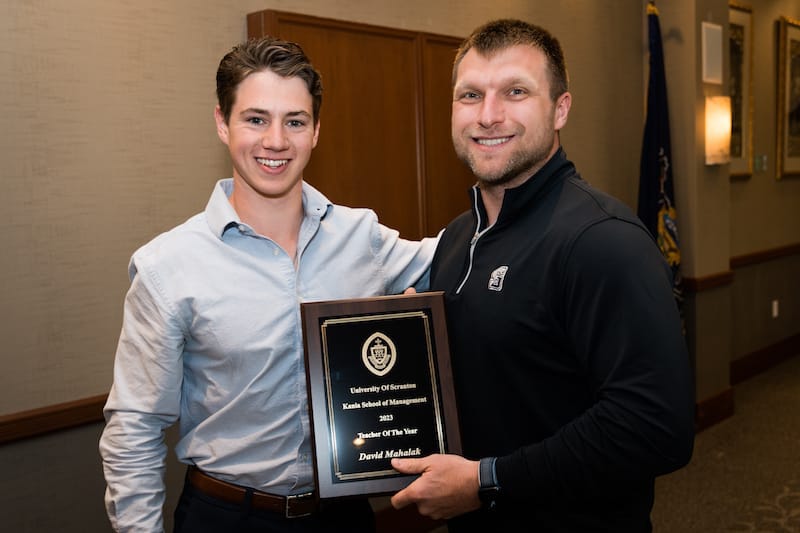
Students Pick 2023 KSOM Professor of the Year
-
05/23/2023
William Lambert, faculty specialist for occupational therapy, was named Teacher of the Year by The University of Scranton’s class of 2023. The award was presented at Class Night on May 19.
The award honors a faculty member who maintains high standards of academic excellence and fairness, and through enthusiasm and dedication, inspires the interest of students in a field of education. The University’s Faculty Senate Academic Support Committee instituted the award in 1996.
Prof. Lambert joined the faculty at Scranton in 2009 and has more than 22 years of experience working with children, adolescents and families in inpatient and community settings. At the University, he teaches the psychosocial-based courses and has conducted ongoing research on current preferred adolescent interests and occupations. He developed the Scranton Adolescent Interest Checklist © as a contemporary assessment tool for use with this population.
Prof. Lambert authored chapters on both children and adolescents in Cara and MacRae’s 2019 textbook “Psychosocial Occupational Therapy: An Evolving Process” and on posttraumatic stress disorder in Weiss, Morgan, and Kinnealey’s “A Practitioners Guide to Clinical Occupational Therapy,” published in 2012. Prof. Lambert was the lead author of the psychosocial chapters in the National Occupational Therapy Certification Exam Review and Study Guide, published in 2019, and the National OTA Certification Exam Review and Study Guide, both edited by Rita P. Fleming-Castaldy. He has presented numerous times at state and national occupational therapy conferences.
Prof. Lambert is on the editorial board of the journal Occupational Therapy in Healthcare. He is a member of the American Occupational Therapy Association and the World Federation of Occupational Therapists
Prof. Lambert earned a bachelor’s degree in English and psychology from King’s College, a bachelor’s in occupational therapy from Misericordia University and a master’s in occupational therapy from The University of Scranton.
A recording of the Class Night ceremony can be seen here.
Graduating Class of 2023 Names Teacher of the Year
-
05/15/2023
Kunihiko Matsui, adjunct faculty in the Department of World Languages and Cultures, began teaching Japanese at The University of Scranton last fall. Fluent in both Japanese and English, he prefers speaking Japanese because it allows him to communicate with his family.
The advice he offers for anyone interested in learning another language: Find an environment in which you will be pushed to use and think in the language you are studying.
Matsui's interest in learning another language began in grade school because he wanted to travel to the United States or England. He first learned English when he was five years old and became fluent by the time he was 18.
While attending Ball State University in Indiana for architecture, he was asked to teach at the University and decided to gave it a chance. Looking back, he said, he is glad he did as he enjoys it very much because he is learning his own language with the students.During the spring semester Matsui was teaching Elementary Japanese 102 and Intermediate Japanese 212.
When asked why he would encourage students to study a world language while at the University, Matsui said, “More foreign languages are showing up everywhere. It is not even about just speaking another language, but also being aware of other cultures. It allows you to look at your own culture from a different point of view.”Adjunct Faculty Spotlight: Kunihiko Matsui
-
05/11/2023
Christian S. Krokus, Ph.D., professor of theology/religious studies at The University of Scranton, was named the 2023 Alpha Sigma Nu Teacher of the Year.
The award, formally known as the Gannon Award for Teaching in honor of Edward Gannon, S.J., is the oldest teaching award at the University. Established in 1969 by the University’s chapter of Alpha Sigma Nu, the national honor society for students in Jesuit colleges and universities, the award recognizes outstanding teaching among faculty. Student members of Alpha Sigma Nu select the professor to be honored.
Dr. Krokus has published multiple articles in academic journals, and has presented at more than a dozen conferences. His areas of research interest include Christian-Muslim comparative theology; Islamic mysticism; Salesian, Ignatian and Carmelite Spiritualities; Louis Massignon; Bernard Lonergan, S.J.; and Francis de Sales. His book, “The Theology of Louis Massignon: Islam, Christ, and the Church,” was published by The Catholic University of America Press in 2017.
Dr. Krokus was the featured speaker at the 2019 McNulty Lecture at Niagara University’s Castellani Art Museum, and was among the esteemed presenters at the 2022 Islamic Studies Association, Delhi and the Jesuit Secretariat for Service of Faith in South Asia webinar series to celebrate Human Fraternity Day.
In addition, he coordinates the annual meeting for Jesuits and faculty members at Jesuit universities who work on interreligious dialogue.
Dr. Krokus, who joined the faculty at Scranton in 2009, received the University’s Intersession Research Grant, Diversity Initiatives Grant and Education for Justice Grant. He was also awarded the Carnegie Corporation Grant for Teaching about Islam and Middle Eastern Culture, the Ernest Fortin Memorial Research Grant at Boston College and the Badley Fellowship from Institute of Medieval Philosophy and Theology at Boston College.
Dr. Krokus earned his bachelor’s degree from Lafayette College and his master’s degree, with distinction, and his Ph.D. from Boston College.
The Scranton chapter of Alpha Sigma Nu was founded in 1943 and is the oldest honor society at the University. Juniors, seniors and graduate students at the University who have distinguished themselves in scholarship, loyalty and service are eligible for membership.
Alpha Sigma Nu Students Name Teacher of the Year
-
05/09/2023
Gerard Dumancas, Ph.D., associate professor of chemistry at The University of Scranton, published a digital primer titled “Spectroscopic and Chemometric Techniques for Pharmaceutical Applications” through the American Chemical Society (ACS), one of the largest scientific societies and the premier home of chemistry professionals with over 155,000 members worldwide. The peer-reviewed and by invitation only ACS primer focuses on providing basic content about various spectroscopic and chemometric tools in pharmaceutical analyses. In collaboration with five professors and scientists from throughout the world, the primer has been purchased by over 300 libraries worldwide to date and is also available for sale to individuals through Google Play.
According to Dr. Dumancas, chemometrics is a highly-specialized discipline that uses statistics and computer applications in analytical chemistry. The primary goal of chemometrics is to utilize various statistical, mathematical and software techniques to develop analytical methods that can interpret data in a more meaningful manner. In pharmaceutical industries, chemometrics is essentially used for quality control of laboratory results, drug development and synthesis, as well as toxicity classification and prediction of drug efficacy to name a few. Utilizing chemometrics reduces time of analysis and minimizes the use of chemicals, thereby providing industries with time and cost-saving resources to optimize results.
The digital primer provides chemists across all levels an overview on important chemometrics topics in just three to four hours.
“A nice introductory overview of the potential of chemometrics for pharmaceutical analysis, which couples a wide overview of the instrumental possibilities and, at the same time, of the possible applications. Good for people who don’t want to struggle much with the theory while focusing on the practical use of the techniques,” as noted by Federico Marini, Ph.D., of the University of Rome La Sapienza in Spain who also served as one of the chemometrician reviewers for the primer.
Dr. Dumancas joined the faculty of The University of Scranton in the spring of 2022 and has then generated 18 peer reviewed publications in high-impact factor journals. Over the course of his academic career, he has won seven international and one U.S. national awards for excellence in research from the American Chemical Society, American Oil Chemists’ Society and the Society for Laboratory Automation and Screening. In 2018, he was awarded by the former Philippine President Rodrigo Duterte with a Balik Scientist Award as one of the Outstanding Scientists of the Philippines.
In 2022, Dr. Dumancas, received a $1.158 million National Science Foundation funded Noyce Scholars grant to support future science, technology, engineering and mathematics (STEM) high school teachers in high-need school districts.
Dr. Dumancas earned his bachelor’s degree in chemistry from the University of the Philippines and his Ph.D. in analytical chemistry from Oklahoma State University.
Professor Publishes Primer on Chemometrics
-
04/17/2023
Several of The University of Scranton’s graduate programs placed among the nation’s best in the 2023-2024 Best Graduate Schools ranking by U.S. News & World Report.
U.S. News ranked Scranton’s MBA specialty programs in accounting No. 18 in the nation and business analytics No. 24 in the online ranking that published on Apr. 25.
In addition to the program specialty rankings, Scranton’s graduate program in rehabilitation counseling ranked No. 36 and its program in health care management ranked No. 41 nationally. U.S. News also ranked Scranton’s graduate program in nursing No. 123, its part-time MBA program No. 120 and its Doctor of Nursing Practice (DNP) No. 134 in America.
For the graduate school rankings, U.S. News uses data gathered by surveys of college faculty and administrators, and for nursing programs, from professionals working in health care, to assess the quality of programs. U.S. News also uses statistical data such as faculty student ratios and student test scores. The U.S. News ranking of the Best Graduate Schools Ranking by MBA Specialties is based solely on ratings by business school deans and directors of AACSB-accredited MBA programs.
The University’s graduate-level business programs include a Ph.D. in Accounting, Master of Accountancy (MAcc), Master of Science in Finance (MSF), Master of Science in Business Analytics (MS) and a Master of Business Administration (MBA) in general management or with a specialization in accounting, business analytics, enterprise resource planning, finance, healthcare management, human resources management, international business, management information systems, marketing and operations management. The University also offers combined/accelerated bachelor’s and master’s level programs including accounting BS/MBA, operations management BS/MBA, finance BS/MBA, management BS/MBA, and College of Arts and Sciences Bachelor’s/MBA, and other programs.
Graduate nursing degrees offered by Scranton include Doctor of Nursing Practice (DNP), Family Nurse Practitioner, MSN, and post-master’s certificate; Executive Nursing Leadership, M.S.N; and Nurse Anesthesia, DNP, and an accelerated MSN degree program. In addition to clinical rehabilitation counseling, the University also offers graduate degrees in applied behavior analysis, clinical mental health counseling and school counseling.
All of the University’s graduate programs hold the highest national accreditation within each discipline, including accreditation by The Association to Advance Collegiate Schools of Business (AACSB International) for business and accreditation by The Commission on Collegiate Nursing Education (CCNE) for nursing and Council on Accreditation of Nurse Anesthesia Educational Programs (COA) for nurse anesthesia. The Graduate Health Administration Program is accredited by the Commission on Accreditation of Healthcare Management Education (CAHME) and the Master of Science degree in Rehabilitation Counseling in accredited by the Council for Accreditation of Counseling and Related Educational Programs (CACREP).
Earlier this year, U.S. News’ “Best Online Programs” publication ranked the University’s online master’s degree programs in business (excluding MBA) at No. 54 and its online MBA program at No. 102 in the nation. U.S. News also ranked Scranton at No. 72 in the country for “Best Online MBA Programs for Veterans.”
In other rankings published by U.S. News, Scranton has been ranked among the top 10 “Best Regional Universities in the North” for 29 consecutive years. Scranton is ranked No. 5 in the 2023 edition of the guidebook. U.S. News also ranked Scranton No. 6 in its category for “Best Undergraduate Teaching.”
Graduate Programs Ranked Among Best by U.S. News
-
04/17/2023
Virginia Picchietti, Ph.D., faculty member in the World Languages and Cultures Department, teaches courses in Italian at The University of Scranton. She was interviewed recently regarding her experience as a professor and offered insight into the importance of learning a language.
Q: Which languages do you speak, and which would you say is your favorite?
"I speak Italian, English and French. I would choose French because I love the way it sounds."
Q: What inspired your interest in learning and studying languages?
"I learned English in grammar school here in the U.S. I decided to learn French in high school because I fell in love with it when I first heard it as a little girl. I continued my education in the language in college, earning a B.A. in French."
Q: What prompted your interest in teaching languages?
"I thought it would be a great way of helping people enter another culture in society and giving them another means of expressing themselves.
At the same time, through its literature and cinema, language helps people learn a different way of thinking and living, especially a different way of seeing the world and different possibilities for solving problems, including social problems."
Q: Where did you study prior to joining The University of Scranton?
"I got my B.A. in French and Italian at Rosary College in Illinois, now Dominican University. I got my master’s in Italian and my Ph.D. in Italian with a minor in film studies at Indiana University, Bloomington."
Q: When did you first start working at The University of Scranton and what has been one of your favorite aspects of teaching here?
"I started working here in 1995. My favorite thing about teaching here are the students because they are respectful, kind, and open to learning about other ways of being human. Also, my supportive and forward-thinking colleagues."
Q: Tell me more about the classes you are teaching this semester.
"I am teaching Beginning Italian 102 and Introduction to World Literature and Translation."
Q: What are your favorite courses to teach, and why?
"I love teaching the language courses because they help students learn Italian and be in conversation with another culture.
I love teaching Italian literature and cinema courses because we get to discuss issues such as social justice, class and gender from the perspective of Italians.
I also really love teaching Intro to World Literature because in this course students read texts that lend themselves to a discussion of social justice, race, gender and class."
Q: Tell me about your recent research projects.
"I just finished and submitted an article on the representation of the Italian Shoah in Roberto Benigni’s 'Life is Beautiful.' I am currently coediting a volume tentatively titled 'Grazia Deledda’s Painterly Aesthetic'. Grazia Deledda won the Nobel Prize for Literature in 1926."
Q: Why would you encourage a student to study world languages at the University?
"We are preparing students to be global citizens. To be a global citizen, you must be able to try to fully participate in the culture and society of the people with whom you have most contact. For example, if you have a job that brings you into contact with other people from a specific country, it is advantageous to be able to communicate as much as possible in their language or at least to understand it.In a Jesuit university, we know we cannot expect everyone else to move toward us and speak English; to show respect and integrate ourselves into the global community, we must try to communicate in their own idioms and at least to move toward understanding their cultures."
- Submitted by Ximena Jimenez, The University of Scranton, World Languages Department graduate assistant
Virginia Pichietti, Ph.D. Offers Insight Into the Importance of Learning a Language
-
04/11/2023
Rolling desert sands and glistening Persian Gulf beaches, a country rich in culture and world resources, Kuwait is a keystone in the Middle East.
Join Global Insights on Thursday, April 20 at 11:30 a.m., for a special presentation by visiting Fulbright scholar, Dr. Badoor Albuloushi, Ph.D., visiting faculty in world languages and cultures, currently teaching Arabic. Registration is required for this event.
This event is free and open to The University of Scranton students, faculty and staff.
Register for Global Insights: Kuwait.
Dr. Albuloushi says she misses the family gatherings that occur every weekend.“All extended family gather at my grandparents’ home for lunch on Friday. Lunch is the main meal. We have rice seasoned with saffron and cardamon, lamb, chicken and fish. It gets very crowded.”
As is traditional in Muslim culture, the men and women dine separately. “The women like to feel free to take their hijabs off.” After the meal, they enjoy conversation with sweet desserts and coffee with saffron.
Some family, especially the younger adults and teens, leave at sunset to go out. Some will stay through the weekend. “It is Arab hospitality that we do not ask anyone to leave.”
Albuloushi shared that she misses her mother’s cooking the most, and also family gatherings, camping in the winters, and her car, which she purchased shortly before she left.
Dr. Badoor Albuloushi earned her bachelor’s degree in English as a Second Language from Kuwait University, and her master’s and doctorate in special and gifted education from Arabian Gulf University, Bahrain. In addition to teaching Arabic at Scranton, she is taking courses in American Sign Language and public speaking. When asked about her time at Scranton she said, “I love it. It’s like my second home.”
This program is being offered by the Office of Global Education, the Cultural Centers, Residence Life and the Office of Equity and Diversity. For more information, please contact international@scranton.edu or 570-941-4841.Fulbright Scholar Presents Next Global Insights On Kuwait
-
04/06/2023
As part of The University of Scranton’s “Celebrating Women: 50th Anniversary of Coeducation” celebration and its Ellacuría Initiative, the University hosted a day-long teach-in on women’s and gender justice. Through a series of lectures and panel discussions, issues of gender injustice from various perspectives were explored. One session, titled “Wisdom Cries Aloud: Religious Women of Scranton,” featured a panel discussion of five local women leaders of different faiths.
In photo below are University of Scranton students who assisted with an information booth at “The Ellacuría Initiative Women’s and Gender Justice Teach-In." From left: Maria Stephen, a political science major from Huntingdon Valley; Shelby Traver, an international business major from Sweet Valley and recipient of the University’s full-tuition Presidential Scholarship; Mackenzie Longo, an occupational therapy major from Holbrook, New York; and Benjamin Burman, a nursing major from Clifford Township.
$content.getChild('content').textValueEllacuria Initiative Teach-In Held at University
-
04/05/2023
Gerard Dumancas, Ph.D., associate professor of chemistry at The University of Scranton, was selected as a Visiting Faculty Fellow by the U.S. Department of Energy (DOE).
Through this highly-competitive program, Dr. Dumancas will have the opportunity to work with some of the world’s leading scientists at the Lawrence Berkeley National Laboratory in Berkeley, California. He will research the development of a more convenient, easy-to-use and inexpensive techniques to estimate biomass components by using existing data bases.
According to Dr. Dumancas, biomass is a chemical mixture of three major chemical components, lignin, hemicellulose and cellulose, in addition to non-structural components.
“The determination of the mass fraction of these chemical components is very important since the amount of these chemical constituents influence thermochemical process functions. We will explore the utility of machine learning regression, deep learning and stacked regression to determine the masses of these biomass chemical components using publicly available datasets,” said Dr. Dumancas.
The DOE’s Visiting Faculty Program is designed to provide an opportunity for faculty members to enhance research capabilities and strengthen science, technology, engineering and mathematics (STEM) education and learning practices to develop talent to contribute to DOE research areas. The Visiting Faculty Program is sponsored and managed by the DOE Office of Science’s Office of Workforce Development for Teachers and Scientists in collaboration with the DOE national laboratories.
Just last year, Dr. Dumancas received a five-year, $1.158 million National Science Foundation funded Noyce Scholars grant to support future STEM high school teachers in high-need school districts. The grant provides scholarships and educational training support to 21 STEM students with a major or minor in secondary education.
During his career, Dr. Dumancas has generated more than $2 million in external research grants and has published more than 40 manuscripts in peer-reviewed academic journals.
Dr. Dumancas joined the faculty at Scranton in the spring of 2022. He earned his bachelor’s degree in chemistry from the University of the Philippines and his Ph.D. in analytical chemistry from Oklahoma State University.
Chemistry Professor Wins DOE Faculty Award
-
03/28/2023
A new amateur ham radio station in planned for The University of Scranton’s Amateur Radio Club through support from a nearly $200,000 Amateur Radio Digital Communications (ARDC) grant awarded to Nathaniel Frissell, Ph.D., assistant professor physics and engineering at The University of Scranton. The grant will support antenna systems and state-of-the-art equipment to allow HF, VHF, UHF and microwave operations including amateur satellite operations. The new station will be located in the glass-walled study room 596 on the fifth floor of the Loyola Science Center, with additional lab space on the same floor. The station will give students the chance to learn about amateur radio, radio engineering and radio science, in addition to allowing them to participate in Ham Radio Science Citizen Investigation (HamSCI) research.
“In addition to serving University students, this installation will benefit the larger community by being accessible through outreach programs for local high school students and community members and, because of the accessibility of back-up power in the Loyola Science Center, possibilities exist to work with Lackawanna and Luzerne County Emergency Communication Agencies,” said Dr. Frissell.
Dr. Frissell includes ham radio technology in his classes and research, as well as with the University’s Amateur Radio Club (W3USR), for which he serves as moderator.
In 2019, Dr. Frissell received a $1.3 million National Science Foundation (NSF) grant for the Ham Radio Science Citizen Investigation (HamSCI) research. The project seeks to harness the power of a worldwide network of licensed amateur radio operators to better understand and measure the effects of weather in the upper levels of Earth’s atmosphere. He received additional grants, including a $25,000 ARDC grant, to support an annual Ham Radio Science Citizen Investigation (HamSCI) Workshop, which just took place at The University of Scranton in March 17-18, as well as grants to further support his space research.
Equipment for the new amateur ham radio station has begun to arrive on campus, with members of the Amateur Radio Club hosting a box opening ceremony at their last meeting to reveal some of the technology to University community members. Construction for the station will continue through the summer with the completion date expected for the beginning of the fall semester.
Dr. Frissell noted that the timing of the opening of the station is particularly important this year in order to capture data for the upcoming annular solar eclipse on Oct. 14, 2023, and the total solar eclipse on Apr. 8, 2024.
“Both eclipses have paths that sweep across the continental United States and are the last solar eclipses to traverse this area until 2044, and are therefore important, time-sensitive, in- formation rich opportunities for running unique and “controlled” ionospheric experiments,” said Dr. Frissell.
For additional information about Scranton’s Amateur Radio Club or the Ham Radio Science Citizen Investigation (HamSCI), contact Dr. Frissell at nathaniel.frissell@scranton.edu.
Dr. Frissell talks about the Ham Radio Science Citizen Investigation (HamSCI) Workshop 2023 in this WVIA podcast.
Below, members of The University of Scranton’s Amateur Radio Club unwrap equipment arriving on campus for a new, state-of-the-art amateur ham radio station supported through a $196,241 Amateur Radio Digital Communications (ARDC) grant awarded to Nathaniel Frissell, Ph.D., assistant professor physics and engineering. From left: Dr. Frissell, who serves as moderator for the University’s Amateur Radio Club and Scranton students: Gerard Piccini, a sophomore electrical engineering major from Monroe Township, New Jersey; Veronica Romanek, a senior physics and Spanish double major from Hampton, New Jersey; Thomas Pisano, a sophomore electrical engineering major from Staten Island, New York; and James Fox, a sophomore computer science major from Hillsborough, New Jersey.
$content.getChild('content').textValueARDC Grant Supports University Ham Radio Station
-
03/24/2023
Margarete L. Zalon, Ph.D., professor emerita in the Department of Nursing at The University of Scranton, received a 2022 American Journal of Nursing (AJN) Book of the Year Award for the third edition of her book “Nurses Making Policy: From Bedside to Boardroom.” The book placed 2nd in the program’s Nursing Management and Leadership category. Dr. Zalon also received a 2019 AJN Book of the Year Award for the second edition of this book in 2019.
The AJN Book of the Year program is a prestigious competition in which the best in nursing publications are chosen by a panel of judges who are experienced and well-established in the nursing community. Awards are given for first, second, and third places in 20 categories.
Dr. Zalon’s book calls on nurses to take a more prominent advocacy role in promoting health and advancing the profession. The third edition includes many revisions and new tools, including updated material on COVID-19, diversity, social determinants of health and social justice.
Dr. Zalon, who retired in 2022, has been a member of Scranton’s faculty since 1988. She was inducted as an American Academy of Nursing Fellow in 2010 in part for her positive influence on health care policy and delivery. Her leadership legacy includes grassroots advocacy, progressive program design, execution and outcomes in state and national nursing organizations focused on establishing practice and education policy and building research funding capacity.
During her more than three decades of service at the University, Dr. Zalon has served on numerous committees, including in leadership roles on the Faculty Senate and FAC. When she served as director of the University’s online Master of Science in Health Informatics Program, she has played a pivotal role in the program’s success. In 2021, the graduate program received accreditation from the prestigious Commission on Accreditation for Health Informatics and Information Management Education (CAHIIM).
Dr. Zalon is a previous chair of the American Nurses Foundation, a former board member of the American Nurses Association and a past president of the Pennsylvania State Nurses Association.
Her research focuses on vulnerable elders. She has authored book chapters, as well as articles published in numerous scholarly journals and other professional publications. She has also made research and health policy presentations at the local, state, national and international levels.
In 2022, Dr. Zalon received the John L. Earl III Award for service to the University, the faculty and the wider community. She was also a recipient of the Duke University School of Nursing Distinguished Alumna Award, the PSNA Distinguished Nurse Award and a Leahy Fellowship at Scranton. She also received the University’s Excellence in Advancing Interdisciplinary Study Award in 2020.
Dr. Zalon earned her bachelor’s degree from Duke University and her master’s and doctoral degrees from New York University.
Book by Nursing Professor Wins Award
-
03/21/2023
An article written by University of Scranton Doctor of Business (DBA) graduates Amanda S. Marcy, ’10, G’11, DBA ’21, assistant professor of accounting at The University of Scranton, and Ronald Douglas Parker, DBA ’21, assistant professor of accounting at Western Carolina University, received the 2023 Curt Verschoor Ethics Feature of the Year Award from the Institute of Management Accountants’ Committee on Ethics and Strategic Finance.
This is the second-time Dr. Marcy received the Curt Verschoor Ethics Feature of the Year Award. She received the award in 2020 for an article co-written with Douglas M. Boyle, D.B.A., chair of the University’s Accounting Department; James F. Boyle, D.B.A., assistant professor of accounting; and Daniel P. Mahoney, Ph.D., professor of accounting.
Drs. Marcy and Parker received the 2023 award for their article “The Value of Civility,” which examined the impact incivility has on the finance and accounting profession, as well as strategies organizations can use to combat incivility in the workplace. Their research indicated that “supervisor incivility significantly correlated to an employee’s overall job satisfaction and their intent to seek new job opportunities.” They stated in the article: “Of those who have experienced supervisor incivility, 24% indicated that they plan to leave their current employer within one year compared to only 6% of those that had never experienced such incivility.”
According to the survey Drs. Marcy and Parker conducted as part of their study, the incivility respondents cited that they had experienced by supervisors was “paying little attention to their opinions/statements (62%); doubting their judgment over a matter for which they were responsible (56%); putting them down or acting condescending toward them (47%); and ignoring or excluding them from professional camaraderie (44%).”
A Certified Public Accountant, Dr. Marcy was named assistant professor of accounting at Scranton in 2018 and previously served as a faculty specialist in the department. Previously, she worked as an accountant for Baker Tilly Virchow Krause, LLP. She is a member of the American Institute of Certified Public Accountants, the Pennsylvania Institute of Certified Public Accountants, the American Accounting Association and the Healthcare Financial Management Association. Dr. Marcy earned her bachelor’s degree in accounting, her MBA specialized in accounting and her D.B.A. in accounting from The University of Scranton.
As a DBA student at Scranton, Dr. Parker and two of his accounting professors won a prestigious 2021 Institute of Management Accountants’ Lybrand Silver Medal for an article they co-authored. A resident of Franklin, North Carolina, Dr. Parker earned his bachelor’s and master’s degrees from Western Carolina University.
The annual award is named in memory of Curtis C. Verschoor, a longtime member of the IMA Committee on Ethics, editor of the Strategic Finance Ethics column for 20 years, and a significant contributor to the development and revisions of the IMA Statement of Ethical Professional Practice. Verschoor was a passionate, renowned thought leader on ethics in accounting, having earned a Lifetime Achievement Award from Trust Across America-Trust Around the World for his leadership in and advocacy for trustworthy business practices.
The University of Scranton doctoral business administration degree changed to a Ph.D. in Accounting degree beginning in the 2022-2023 academic year.
Professor Wins Second Accounting Ethics Award
-
03/14/2023
A few weeks before a global celebration of the environment, the University of Scranton Professor Emeritus John R. Conway III, Ph.D. will offer lifelong learners an insider perspective on some of the planet’s more unusual inhabitants.
The retired professor, who taught biology for 40 years at The University, will present an April 6 lecture at Fort Lewis College in Durango, Colorado on the captivating aspects of “The Incredible, Edible Honeypot Ant”.
He hopes to impart a broader message, which he described as “the diversity of species that evolved on earth and the increasing extinction of them due to human activity.” Dr. Conway will discuss the ecology and biology of the Myrmecocystus mexicanus, or honeypot ant, based on his comprehensive research in the Garden of the Gods, Colorado and the Southwestern Research Station in Arizona.
“Those of us who are biologists and naturalists realize that all forms of life on earth are interconnected and important for the health of the planet. In addition, they collectively are reservoirs of genetic diversity that often is beneficial to discoveries useful to humans,” said Dr. Conway.
“Our accelerating destruction of these forms of life threatens the existence of our planet and our species.”
That lesson is one that Dr. Conway presented to decades of students during his time at Scranton, through coursework and by leading numerous research trips to the Caribbean and Hawaii.
"One of the greatest aspects of leading tropical biology trips abroad with the University was that it allowed me to see students learning in a different light, outside the classroom. Every other year during intersession, we were in places such as Belize, Guatemala, Jamaica, Costa Rica and Panama. It was very rewarding," said Dr. Conway.

Red-eyed tree frog photographed during a University of Scranton tropical biology trip. Atlantica Lodge near Cahuita, Costa Rica, Jan. 13, 2007. Photo courtesy Dr. John R. Conway III
From high school physiology 'nerd' to sought-after Scientific authority
“As I reflect back ... I loved zoology in high school and even did time-consuming India ink drawings of animals in special classes before school. A friend and I were nerds and spent time at my house reviewing a physiology textbook during the summer. When I went to college at Ohio State University ... I first thought of being a pharmacist or veterinarian, but discovered I enjoyed and did well in the required biology courses....
I guess I finally decided that I should do what I most enjoyed, and that if I was successful, I could probably make a living. In my last year at Ohio State, I took summer field biology courses at the Stone Lab on an island in Lake Erie. I applied for a graduate school assistantship in biology at the University of Colorado in Boulder. I received word of acceptance while on the island.”
In 1975, Dr. Conway selected a doctoral thesis topic that retains relevance today -- honey ants -- whose workers live to eat, as much as possible, for the survival of the colony. Nearly 50 years later, he remains a sought-after authority on a type of self-sacrificing southwestern and Mexican honey ant.
In 2018, when he received a $30,000 grant to resume a study of the honey ant at The Garden of the Gods, he reflected on his choice in an interview with Royal News.
“I wanted something that was not only of academic interest, but also of popular interest. I was interested in photography and had National Geographic and other popular scientific magazines in mind. Fortunately, I have been able to achieve that,” said Dr. Conway at that time.
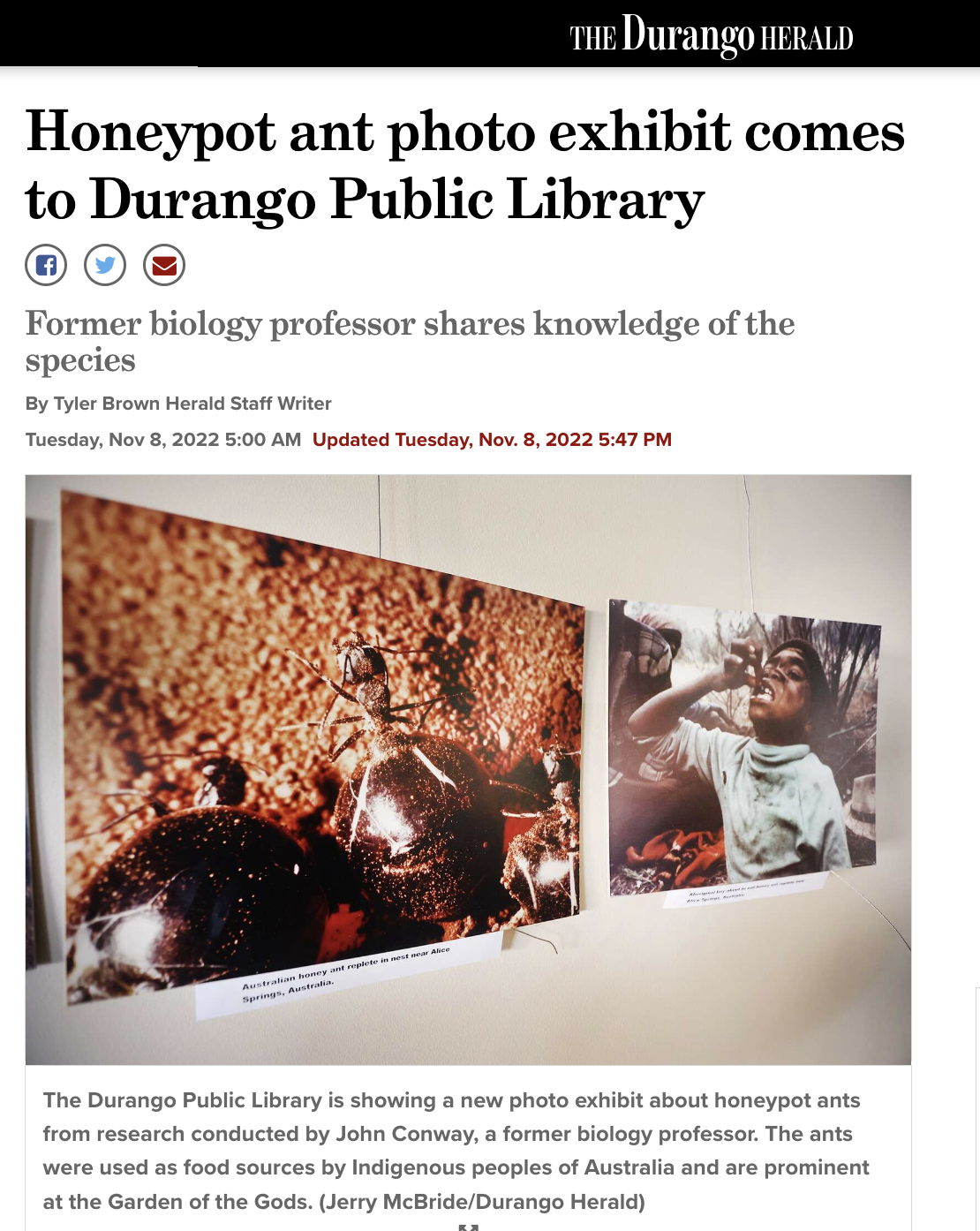
Excerpt from an article published Nov. 8, 2022 in The Durango Herald newspaper, Colorado. Herald Staff Writer Tyler Brown interviewed The University of Scranton Professor Emeritus John R. Conway III, Ph.D. (Photo: Jerry McBride/Durango Herald)
This past November, Dr. Conway's larger-than-life photo exhibit of honey ants at the Durango Public library garnered media attention from The Durango Herald, shown above.
Also in 2022, Dr. Conway received an invite to serve as a consultant for a PBS award-winning Deep Look nature series. He provided expert information and created diagrams for the KQED YouTube video feature by Gabriela Quiros, "Honeypot Ants Turn Their Biggest Sisters into Jugs of Nectar".
Honey ants: unusual, captivating and sweet
Dr. Conway describes four factors of honey ants that, over the years, he and his students have found most captivating about the unusual species:
- How unusual the honey ants are in lifestyle, appearance, and the uniqueness of their adaptation (formation of large repletes to store nectar).
- The fact that repletes sacrifice their lives to store food for the colony, hanging in complete darkness in underground special domed chambers their entire lives, and then die when they are depleted.
- The convergent evolution of the replete adaptation in two unrelated ants living in two widely separated areas of the world: Australia and North America.
- The convergent use of these sweet repletes by Australian Aborigines and early American Indians and the adoption of the honey ant as a totem by certain Australian tribes who developed songs, art, and cave paintings to depict them in their Dreamtime.
Up Next for University Professor Emeritus Dr. John R. Conway III?
Dr. Conway retired from the University in 2016, but not before leading research trips with students to the Caribbean and Hawaii and having traveled extensively throughout the world. Those experiences provide fodder for innumerable projects.
Climbing Kilimanjaro, hiking the Inca trail in Peru, and rafting the Futaleufu river in the Patagonia of Chile are among the adventures he plans to document and share. He shared a few that are planned for the near future, including lectures on past educational trips with University students and personal expeditions.* A lecture on his research on the western thatching ant, Formica obscuripes, which he has observed for years at his family cabin near the West Elk Wilderness in Colorado.
“I secured a Howard Hughes grant and took several University of Scranton students there one summer to conduct a detailed study.”
* A LECTURE on his travels, including two overland truck camping expeditions, and photographs over the years in Africa (South Africa, Namibia, Botswana, Zimbabwe, Uganda, Kenya, Tanzania, Swaziland, Zaire).
"It would include personal adventures, such as rafting the Zambezi, climbing Kilimanjaro, and finding mountain gorillas in the Virunga Mountains of Zaire."
I plan to develop a talk on my travels in South America to Chile, Argentina, Ecuador, and Peru. It would include hiking the Inca trail in Peru, hiking in Torres del Paine National Park in Chile, and rafting the Futaleufu river in the Patagonia of Chile."
*A lecture based on his experiences and photographs in rainforests and coral reefs during his Tropical Biology courses taught between 1981 and 2014 in the Caribbean, Central America, and Hawaii.

A white-faced capuchin monkey in Cahuita, Costa Rica, photographed during a University of Scranton tropical biology trip. Atlantica Lodge near Cahuita, Jan. 13, 2007. Photo courtesy Dr. John R. Conway III
One project remains at the forefront: A book on the biologists and naturalists who discovered the approximately 2 million known plant and animal species that constitute the Earth’s incredible biodiversity."I am conducting research to write a book and give lectures on the great naturalists of history. Currently, I have information on about 100 naturalists. At the moment, I am interested in the first expeditions and naturalists to visit the new lands in the Louisiana Purchase-Lewis and Clark, Zebulon Pike, the Stephen Long Expeditions."
Sought-After Scientific Authority: Professor Emeritus John R. Conway III, Ph.D.
- How unusual the honey ants are in lifestyle, appearance, and the uniqueness of their adaptation (formation of large repletes to store nectar).
-
03/07/2023
The recently released 2022 Brigham Young University Accounting Rankings have placed The University of Scranton Accounting Department and faculty among the best research institutions in the world.
The Accounting Department of The University of Scranton ranked No. 5 (tied) in the world for accounting education research published in the most recent six-years in a listing considered to be the gold standard in accounting disciplines. The 2022 Brigham Young University Accounting Rankings also recognized several accounting faculty members individually for their research publication success.
The Brigham Young University report ranks accounting programs and faculty throughout the world based on their success in publishing in top-tier, peer-reviewed accounting journals. The report is updated annually and includes ranks for specific categories of research and for specific time periods. The 2022 update ranks Scranton’s Accounting Department at as the fifth (tied) most prolific department in the world for accounting education research over the most recent six-year period, following Brigham Young University (first), Texas Tech University (second) and Kennesaw State University (third), Clemson University (fourth) and tied (fifth) with Indiana University and West Virginia University. The department was also ranked internationally for all methods, audit, managerial, experimental and archival accounting research.
With respect to authorships of individual accounting faculty in the area of accounting education, three Scranton faculty members were ranked internationally. Douglas M. Boyle, D.B.A., professor and chair of the Accounting Department and director of the Ph.D. program, was ranked No. 6. James F. Boyle, D.B.A., associate professor of accounting and director of the MAcc program, was ranked No. 19 and Brian W. Carpenter, Ph.D., professor emeritus of accounting, was ranked No. 37. Additionally, Dr. Douglas Boyle was ranked for all methods, auditing and experimental research; Dr. Carpenter was ranked for all methods; and Jeh-Hyun Cho, Ph.D., assistant professor of accounting, was ranked for managerial and archival.
“The University of Scranton’s listing near the top of the 2022 Brigham Young University Accounting Education Research rankings and the very high rankings of many of its individual faculty in a variety of sub-disciplines bear testimony to the Accounting Department’s commitment to excellence in both teaching and research. As an institution that is committed to teaching excellence, it is important that our faculty are committed to conducting research and disseminating it to our students in the classroom. These rankings show that our accounting faculty or engaged in high quality education research that impacts our students at the undergraduate, graduate and doctoral level,” said Mark Higgins, Ph.D., dean of the University’s Kania School of Management and professor of accounting.
This is the third consecutive year that the University’s Accounting Department was ranked in the top five in the world for research success in the prestigious Brigham Young University Accounting Rankings. The Accounting Department and the prolific research of its faculty have been recognized previously by two academic journals including one which ranked it as No. 1 for the number of publications in the leading five accounting practitioner journals.
Accounting Dept. Research Productivity in Top 5 in World
-
02/28/2023
Assistant Professor of Biology, Spencer Galen, Ph.D, instructs University students in the classroom, lab and field. In addition to his academic work, Dr. Galen participates in scientific research regarding ornithology, the study of birds, and parasitology, the study of parasites. Recently, DNA he sequenced helped solve a biological mystery. He explains how the collaboration identifies a "strange-looking bird" (spotted in Pennsylvania!) as a species unlike any known to science.
When he's not instructing Royals in General Biology I and II, General Physiology Laboratory, and Parasitology, he's guiding them toward forward-thinking facets of the field, including statistics and bioinformatics, which he describes as "powerful tools that scientists increasingly rely on to understand their data".
Today Dr. Galen discusses his contributions as co-author of "Genetic confirmation of a hybrid between two highly divergent cardinalid species: A rose-breasted grosbeak (Pheucticus ludovicianus) and a scarlet tanager (Piranga olivacea)," shown, below.
What inspired you to research this topic?
"The story behind my contribution to this study is actually quite an odd one, but one that speaks to the collaborative nature of science. As many people know the news or from popular media, DNA can be used to identify an unknown person of interest whether it may be a suspect in a criminal case or a long-lost relative. We can also use DNA to solve biological mysteries, such as identifying the parents of a hybrid organism.
Several years ago a strange-looking bird unlike any species known to science was seen right here in Pennsylvania, and a team of researchers sought to study its DNA to try to determine if it was a hybrid. Coincidentally, I had previously sequenced the DNA of a number of bird species from the eastern U.S.A., and my DNA data was used to solve the hybrid mystery – as it turned out, the bird was a hybrid of two very distantly related bird species (the rose-breasted grosbeak and scarlet tanager, believed to have last shared a common ancestor 10 million years ago)."What theory did your research team have as to how a hybrid formed under natural conditions in the wild? What techniques were used to solve the mystery of the bird’s origin?
"The research team that I was involved with used a combination of evidence from DNA, physical appearance, and song analysis to determine the parents of the hybrid bird. While the song of the bird was similar to one of the proposed parental species (scarlet tanager), both the physical appearance and the DNA of the bird appeared to be a perfect mix of the two parents. We really don’t understand the circumstances under which the hybrid formed, but with increasing forest fragmentation and declining songbird populations it may mean that birds are having a harder time finding a mate, possibly making hybridization more likely."
What is something that has surprised you in your research?"A parasite is any organism that lives in or on a host species and depends on that host species for energetic resources. Parasites are everywhere and are extremely diverse, which makes studying them very rewarding as there is a lot of room for discovery. I am particularly interested in what is called parasite biodiversity, which is broadly thought of as the number of species of parasite and their abundances throughout the world.
The general hypothesis that drives a lot of my research is that parasites are probably even more abundant and diverse than we have previously understood. Using more advanced DNA-based methods my research largely supports this idea, showing that there are likely thousands of undiscovered species of blood parasite that are in need of study."What do you recommend to someone interested in pursuing a career in your field?
"I probably wouldn’t have liked to hear this advice when I was an undergraduate, but it is advantageous to become skilled with both numbers and computers if you want to work in any biological field. I am referring specifically to the fields of statistics and bioinformatics, which are both powerful tools that scientists increasingly rely on to understand their data.
I don’t think someone interested in ecology and evolutionary biology needs to become an expert statistician or bioinformatician (I am certainly not), but having basic skills in these areas will make you a more versatile scientist who has the ability to transition to a variety of other fields. I recommend taking a least one introductory class in statistics (e.g. Biostatistics offered by the biology department) and computer science, to start building these skills."
What’s next for you in terms of research projects?
"I have many different projects going on that I am excited about! I have students working on projects related to blood parasites in birds from Alaska, blood parasites that infect birds of prey such as eagles and vultures, discovering new species of blood parasites in the eastern U.S., and identifying what animals insect vectors like mosquitoes are feeding on in northeastern PA, among several other projects. I have a talented group of students working on these studies and I have been thrilled to see them develop as scientists."
When did you decide to pursue a career as a researcher and educator?
"I don’t know exactly when I decided that I wanted to be a professor, but I suppose I was always destined to become one because I never considered pursuing a career that wouldn’t allow me to freely explore my interests in science and natural history. As a professor I get to do research with my students on any topic that strikes my interest, which is a special thing about this job that I greatly value.
It is hard to know when your work as an academic is truly making an impact, and so I try to focus on making sure my students are building long-lasting, positive associations with biology, whether it is in the lab or in the classroom. I think getting the next generation excited about biology is probably the most impactful thing that we can do as professors."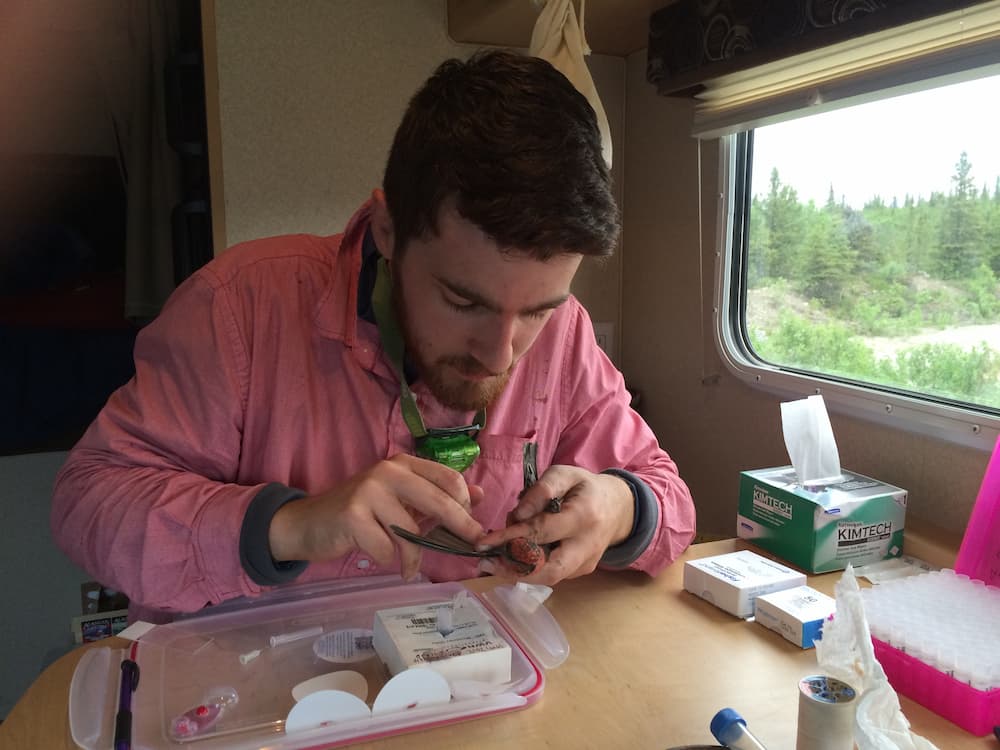
On a Lighter Note...
Dr. Spencer C. Galen earned a doctoral degree in Comparative Biology from the Richard Gilder Graduate School at the American Museum of Natural History in New York City, a Master's in Biology from the University of New Mexico and a Bachelor of Science from the University of Delaware.
Favorite birdsongs?
"Picking my favorite bird song is like trying to pick a favorite child, but I will throw out one that I am particularly fond of – the Veery is a thrush that spends its summers in Pennsylvania forests that has an eerily beautiful song. You can listen to it here: https://www.allaboutbirds.org/guide/Veery/sounds#."
Favorite location for bird watching?
"In the eastern U.S.A. I think that it is hard to beat Cape May, New Jersey for the best bird watching location. It is a small area packed with amazing bird watching spots that span the transition from forest to the ocean. Visit during Spring or Fall and birds are everywhere! It is also a charming little beach town if you need a different reason to visit."
Faculty Profile: A Conversation with Dr. Spencer Galen
-
02/14/2023
The National Science Foundation (NSF) awarded a nearly $50,000 grant to Nathaniel Frissell, Ph.D., assistant professor physics and electrical engineering at The University of Scranton, to support “The Ham Radio Science Citizen Investigation (HamSCI) Workshop 2023.” He also received a grant of just over $25,000 from Amateur Radio Digital Communications (ARDC) to support the workshop. The HamSCI Workshop 2023 will take place Mar. 17 and 18 at The University of Scranton and the historic Radisson at Lackawanna Station.
“The HamSCI Workshop plays a unique and important role in the development of both the amateur radio community and the scientific workforce,” said Dr. Frissell, who noted there are more than 770,000 licensed ham radio operators in the U. S. and about 3 million worldwide. “Each year, the workshop brings together many young student researchers and experienced scientists, engineers and amateur radio operators in an environment where they can share ideas and learn from each other.”
The HamSCI is a collective of professional researchers and licensed amateur radio operators (a.k.a. hams) with the objective to foster collaborations between the amateur and professional communities for the purposes of advancing scientific research and understanding, encouraging the development of new technologies to support this research, and to provide educational opportunities for the amateur radio community and the general public.
“Dr. Frissell is doing incredible work at The University of Scranton, performing cutting-edge scientific research while educating future scientists. The workshop funded by this grant will bring some of the brightest scientific minds to Scranton, and I am sure it will be a weekend of great collaboration and discussion. As the Ranking Member of the Commerce Justice and Science Subcommittee, I am proud to help fund projects like this one through the National Science Foundation, and I admire Dr. Frissell’s efforts to put Northeastern Pennsylvania on the map through his scientific endeavors,” said U.S. Rep. Matt Cartwright.
The workshop will include talks from prominent leaders in radio science, space science and space weather from both the professional and amateur communities, as well as research abstracts related to the latest developments related radio science and amateur radio, including those related to solar eclipse ionospheric effects, Sporadic E, traveling ionospheric disturbances (TIDs), and space and terrestrial weather impacts to radio propagation.
Dr. Frissell noted that the 2023 HamSCI Workshop is particularly important and timely for the HamSCI community in order to prepare for the upcoming annular solar eclipse on Oct. 14, 2023, and the total solar eclipse on Apr. 8, 2024. “Both eclipses have paths that sweep across the continental United States and are the last solar eclipses to traverse this area until 2044, and are therefore important, time-sensitive, in- formation rich opportunities for running unique and “controlled” ionospheric experiments,” said Dr. Frissell.
The workshop will serve as a team meeting for the HamSCI Personal Space Weather Station project, which is a $1.3 million NSF funded project previously awarded to Dr. Frissell. The project seeks to harness the power of a network of licensed amateur radio operators to better understand and measure the effects of weather in the upper levels of Earth’s atmosphere. In August 2021, Dr. Frissell received a six-figure grant through the NASA’s Space Weather Applications Operations 2 Research Program for the research project “Enabling Space Weather Research with Global Scale Amateur Radio Datasets.
Speakers for the HamSCI Workshop 2023 include a keynote presentation by Patricia Reiff, Ph.D., (W5TAR) professor in the Department of Physics and Astronomy at Rice University and founding director of the Rice Space Institute. She will discuss “Forging Amateur-Professional Bonds.” Joseph Huba, Ph.D., vice president of Syntek Technologies and former head of the Space Plasma Physics Section at the Naval Research Laboratory, will discuss “Modeling the Ionosphere with SAMI3.” (SAMI3 models the plasma and chemical evolution of seven ion species.) Also, Jesse Alexander (WB2IFS/3), a licensed amateur radio operator, will discuss his efforts to introduce young people to the wonder of the Electromagnetic Spectrum through hands-on ham radio based experiences.
In addition, the Murgas Amateur Radio club from NEPA will showcase old amateur radios in an “Amateur Radio Through the Ages” exhibit in the display cases on the second floor of Loyola Science Center.
Dr. Frissell talks about the workshop in this WVIA podcast.
Registration and additional information about the conference, which is offered in an in-person and virtual format, can be found on the HamSCI Workshop 2023 webpage.
NSF and ARDC Grants Support HamSCI Workshop
-
01/25/2023"Moonlight" will open a Black History Month Film Series on Wednesday, Feb. 1, at the DeNaples Center's Moskovitz Theater.
The series, presented by The Louis Stanley Brown Black Student Union and The University of Scranton's Weinberg Memorial Library, will be shown throughout February. Dr. Anthony Betancourt, assistant professor in the Psychology Department, and Dr. Melissa Anyiwo, associate professor in the History Department, will introduce and contextualize one film each Wednesday, beginning at 7 p.m.
“Black History Month is an important time for us to reflect on the experiences and contributions of Black people in American history. The Weinberg Memorial Library is proud to partner with the Louis Stanley Brown Black Student Union on this important initiative," said George Aulisio, dean of the Weinberg Memorial Library at the University.
"The Library is committed to promoting diversity, equity, inclusion, and accessibility, and being a welcoming place for our community. Furthermore, the Library’s longstanding expertise with Media Resources was an obvious avenue for us to promote understanding and play our part to help create a more equitable future."
The film schedule is as follows:
- February 1, "Moonlight"
- February 8, "Blackkklansman"
- Feburary 15, "Whose Streets"
- Feb. 22, "Black Power Mixtape 1967-1975"
- Feb. 28, "Sparkle"
Faculty to introduce and contextualize Black History Month Film Series
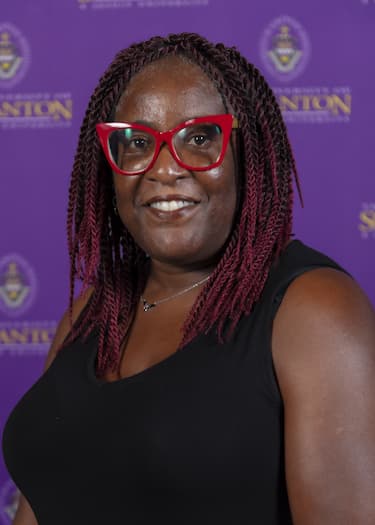 Dr. Anyiwo, who joined the University in 2022, is an award-winning teacher and researcher who specializes in using historical methods to explore racial and gender stereotypes. Most recently, Dr. Anyiwo was a faculty member at Curry College as a professor of politics and history, and prior to that the University of Tennessee at Chattanooga.
Dr. Anyiwo, who joined the University in 2022, is an award-winning teacher and researcher who specializes in using historical methods to explore racial and gender stereotypes. Most recently, Dr. Anyiwo was a faculty member at Curry College as a professor of politics and history, and prior to that the University of Tennessee at Chattanooga.
Dr. Anyiwo earned her bachelor’s degree in American studies and politics and her Ph.D. at the University of Wales Swansea, where her dissertation analyzed the dominant stereotypes of African-American women from the 16th century to present.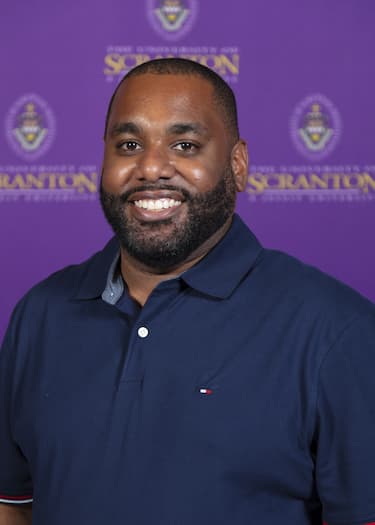 Dr. Betancourt, who joined the University in 2022, is the founder and chief executive officer of ABLE Research LLC in Lawrenceville, New Jersey. He brings to Scranton expertise in the subjects of bullying, scientific racism, learning disabilities and economic inequality. He has taught at the City College of New York and won a coveted fellowship at the City University of New York teaching undergraduate psychology.
Dr. Betancourt, who joined the University in 2022, is the founder and chief executive officer of ABLE Research LLC in Lawrenceville, New Jersey. He brings to Scranton expertise in the subjects of bullying, scientific racism, learning disabilities and economic inequality. He has taught at the City College of New York and won a coveted fellowship at the City University of New York teaching undergraduate psychology.
Dr. Betancourt earned his Bachelor of Science in psychology at The University of Scranton, his Master of Arts in general theoretical psychology at Fairleigh Dickinson University, and both his Master of Philosophy and his Ph.D. in educational psychology at the City University of New York.
The Black History Month Film Series is supported by a 2023 grant awarded by the Diversity Initiatives Review Board.'Moonlight' to Open Black History Month Film Series Feb. 1
-
12/14/2022
The University of Scranton awarded 2023 faculty development intersession grants to four faculty members.
Gerard Dumancas, Ph.D., associate professor of chemistry, received a grant to research “A facile, convenient, and affordable method to determine the authenticity of liquid chicken egg whites.” He earned a bachelor’s degree in chemistry from the University of the Philippines and a Ph.D. in analytical chemistry from Oklahoma State University. He joined the faculty at Scranton in 2021.
Christopher Hauser, Ph.D. , assistant professor of philosophy, received a grant to research “Aristotle’s Epistemology of Essence.” He earned a bachelor’s degree in philosophy and history from Dartmouth College and a doctorate in philosophy from Rutgers University. He joined the faculty at Scranton in 2020.
Adam Pratt, Ph.D., associate professor of history, received a grant to research “The Noble and Indefatigable Auxiliary of the Republican Party: The Wide-Awake in Pennsylvania.” He earned a bachelor’s degree from Clemson University and a master’s degree and Ph.D. from Louisiana State University. He joined the faculty at Scranton in 2013.
Brian Snee, Ph.D., associate professor of communications and media, received a grant to research “The Scene of the Crime: Rhetorical Silences in Fetterman’s Gun Violence.” Dr. Snee earned a bachelor’s degree in communication from The University of Scranton. He earned a master’s degree and Ph.D. in communication arts and science from Penn State University. He joined the faculty at Scranton in 2020.
Read more about faculty research and awards on the Royal News Faculty Webpage.
Intersession Grants Awarded for January 2023
-
12/13/2022
Understanding how structures interact at the microscopic and even molecular scales has been studied for decades, with applications developed for numerous products ranging from pharmaceuticals and medical treatments to dry cleaning. In researching nanostructure interactions, certain approximations of structural properties that could not be precisely measured were commonly used.
New research by John Deák, Ph.D., associate professor of chemistry at The University of Scranton, combined two existing techniques for the first-time to test the approximations used for reverse micelle structural properties, which are often applied in studying microscopic interactions. The research, published in October in the Journal of Molecular Liquids, shows that assumptions of the shape of the structure at a certain scale range were incorrect.
“The research finding means a lot of text books will have to be updated,” joked Dr. Deák of the significance of his research, which will actually lead to more precise calculations of nano-level interactions that can be applied to drug delivery systems and other life-saving, or life-changing, applications.
Dr. Deák explained that approximations used for the reverse micelle structure assumed a spherical shape, which his research confirmed is correct in certain scale ranges. However, his research showed that the structure changes to an ellipsoidal or egg-like shape at another range of the scale. He said the research explains variations found in data collected in numerous other studies conducted over decades.
“There was speculation about the assumed shape of the reverse micelle structures, because data collected in studies didn’t always fall in the expected range of calculations, but we didn’t have the ability to determine the shape,” said Dr. Deák, who worked on this project for five years. He combined two existing research techniques to examine various shape considerations for the first time which revealed a decades-long misunderstanding about the structure.
“This shows that we cannot assume shapes of nanostructures. We must determine the shapes and develop techniques to enable us to do this,” said Dr. Deák.
His study is titled “Volumetric determination of reverse micelle structural properties and the validity of commonplace approximations.”
Dr. Deák’s research interests include the molecular dynamics of condensed phases and interfaces, energy transfer mechanisms over self-assembled liquid boundaries, and permeation enhancement of biological tissue. His research has been published in dozens of academic journals, including the prestigious journal Science. He is an inventor on more than two dozen patents.
A faculty member at Scranton since 2002, Dr. Deák earned his bachelor’s degree from the University of Buffalo and his Ph.D. in chemistry from the University of Rochester. He completed post-doctoral studies at the University of Illinois, Champaign.
Read more about faculty research and awards on the Royal News Faculty Webpage.
Research Shows Shape Matters at Nano Level
-
12/12/2022
Marzia Caporale, Ph.D., Director of Women's & Gender Studies, is a faculty member in the World Languages and Cultures Department. Dr. Caporale, who joined the University in 2007, shares information about her background, and experience working as a professor at the University. This semester, her courses include intermediate Italian, intermediate French, and a hybrid class, Lit 330, Resistance and Resilience: Francophone Women Authors.
Which languages do you speak?"I speak French, Italian, English, and some Spanish."
What inspired your early interest with languages?
"In my elementary school, we started English in third grade.... I became fascinated knowing there was another language out there. In high school, on a study abroad program, I went to England, where we stayed with English families and explored the culture of the city. I did that for a couple of years. As I got older, I sought out more opportunities. During the summer there I worked as a nanny. I also traveled to France and did home stays with families."
What drew your interest in learning and studying other languages?
"I’ve always been interested in languages, mostly because I’ve wanted to travel. I wanted to talk to others in other countries. I started with English, then French, and continued learning Spanish at the University."
What interested you to teach languages?
"I was inspired by the people who taught me. I was fortunate to have amazing language teachers from early on... elementary school, middle school, and high school. At the university, my French professor was student centered and I loved his style."
Where did you study before you came to The University of Scranton?
"At the University of Florence, I earned my first degree, equivalent to a master’s. I then attended University of Nebraska - Lincoln for my Ph.D."
Which aspects of teaching at The University of Scranton and working in the World Languages Department do you most enjoy?
"What I love is getting students inspired to travel and to learn about the culture. Language serves as a gateway to the culture. This is not just about learning abstract concepts, it’s about learning something that is alive and that can be practiced.
"I love having colleagues from different parts of the world. It’s a constant learning experience since you are exposed to new cultures and new people. It’s always a dynamic process, never static."
What is your favorite course to teach, and why?
"Literature of Global Minorities is a course that the department revised recently. It's for the General Education curriculum, so it has a broad target. I love it because it allows me to use texts from different languages and cultures. It allows me to blend in my expertise into one course. The students have loved the course."
Please discuss your recent research projects.
"Dr. (Virginia A.) Picchietti, the other Italian professor, and I are in the process of translating the book "Born for You," from Italian to English. It tells the story of an Italian man, who as a single parent, adopted a child with a disability. It was the first case of single-parent adoption of a child, because laws in Italy don’t usually allow that."I am enjoying the translation of "Born for You," because it’s challenging. Even though I’ve taught courses in translation, I’ve never professionally translated. This book is very important because it talks about acceptance, civil rights and discrimination. It has so many aspects that we want people to learn about. It’s not just translating a novel, it’s a book that can spark a debate about acceptance and rights. Essentially, it’s a project with a purpose.
"I’m also working on a book project titled "Gender in French Banlieue Cinema," which is a collection of articles about the film genre relating to French suburbs."
Faculty Profile: A Conversation With Marzia Caporale
-
12/07/2022
Cyrus P. Olsen III, D.Phil., associate professor of theology and religious studies at The University of Scranton, is part of an inter-disciplinary team of professors from Brigham and Women’s Hospital and Harvard Medical School awarded a Templeton Foundation Grant. The multi-year grant in the amount of $500,000 funds research on how “social networks” among Ugandans includes one’s ancestors and may influence health-seeking behavior in the context of brain health.
The project (Buffering, Porosity and Brain Health in Uganda) is co-directed by Dr. Olsen and Ian Corbin, Ph.D., Harvard Medical School Faculty and co-director of the Human Network Initiative (HNI), an interdisciplinary research center housed in the Neurology Department of Brigham and Women’s Hospital. The third member of the U.S. research team is Amar Dhand, M.D., D.Phil., associate professor of neurology at Harvard Medical School and principal investigator at the Dhand Lab, a clinical neurology research center specializing in stroke health and social network analytics, where Drs. Olsen and Corbin are clinical observers.
“The research is focused on brain health of people in Kampala, Masaka and Bwindi/Buhoma, three key locations made possible by Scranton’s twenty years of immersive education, created by Robin and Charles Pinches, named the Scranton-Uganda Partnership,” said Dr. Olsen. “It is to Dr. Pinches and his close collaborators, Scott Kellermann, M.D., and Emmanuel Katongole, Ph.D., that the relationship between Uganda and Scranton remains central to the University’s commitment to global education. The present grant is an outgrowth of that relationship.”
Dr. Olsen explained that the Dhand Lab and its subsidiary, HNI, extend social network analytics into the regions of medical anthropology, philosophy, sociology and religion. They are collaborating with the Dhand Lab and HNI to understand how cultural and spiritual factors impact health-seeking behavior.
“Dr. Dhand’s international research reputation with the National Institute for Health, among other grant organizations, remains essential to the project,” said Dr. Olsen.
The research project, titled “Buffering, Porosity and Brain Health in Uganda,” is for the 2022-2025 period. Through the research study, they will collect and analyze empirical data on patient behavior and social connections of 50 participants in Uganda to determine the various ways that “social networks” impact treatment-seeking actions. They will also approach the data collected from a theoretical perspective to develop a theory of the benefits and dangers of viewing humans as “porous,” or readily influenced by outside forces and actors, in the context of healthcare.
“The applied potential of this theory is to support the design of culturally and contextually appropriate brain health interventions,” according to the research grant proposal. Such interventions must be evidence-based and are part of the future of the project after this initial funding period. Their Ugandan research council and collaborators throughout the country will guide the research and ensure local languages and customs are appropriately integrated into all design and project execution.
For this academic year, Dr. Olsen is on leave from Scranton, serving as the LoSchiavo Chair in Catholic Social Thought at the University of San Francisco and a visiting scholar at the Graduate Theological Union, Berkeley. He was named a fellow at the Lonergan Institute at Boston College for the summer of 2022.
At Scranton, he was named an inaugural fellow for the Gail and Francis Slattery Center for Ignatian Humanities for the spring 2021 semester. In 2017, Dr. Olsen received the University’s Excellence in Advancing Interdisciplinary Study Award, which honors faculty members who cross boundaries between disciplines and departments to create innovative pedagogies that enhance students’ learning and prepare them for real-world challenges.
A faculty member at Scranton since 2006, Dr. Olsen has served on numerous committees and led multiple projects during his tenure at Scranton. Most recently, he served as co-director, Health Humanities Concentration. He has published articles in peer-reviewed academic journals and has presented at more than a dozen professional conferences, meetings and workshops, many of which were also peer-reviewed. Additionally, he is a peer reviewer for the National Endowment for the Humanities and a research partner with the Bethany Land Institute for an Esri Geo-information Systems grant to map land use and reforestation in Luweero, Uganda.
Dr. Olsen, received his bachelor’s degree from the University of Washington and both his master’s and doctorate degrees from the University of Oxford.
Professors Study Impact of Social Network on Health
-
11/28/2022
By: Claire Sunday, '23, student correspondent
An experience as teaching assistant led Roxana Curiel, Ph.D. to a profession to which she has dedicated more than a decade, including three years at The University of Scranton. Originally from Mexico City, she graduated from the Universidad Nacional Autónoma de México and received a doctorate in Peninsular and Mexican Literature and Cultures from the University of California, Riverside. During her second year in that program, her scholarship required a teaching assistantship.
The assistant professor in the University's department of World Languages and Cultures described the moment when she entered the classroom, prepared to be a teaching assistant, but was informed she would be teaching the class solo.
“It felt like someone literally just threw me to the lion’s den,” Dr. Curiel said. “When I started making connections with my research and the things I was teaching…that’s when I realized…this is what I am supposed to do.”
Today, she designs courses reflective of those that she wishes would have been part of her formal education. The curriculum also mirrors input received from her students. “We are doing this together,” Dr. Curiel said, explaining her teaching methods.
She again brought her student to the forefront when asked about her proudest moment as an educator: “It was the moment that I realized I was making a difference with my students.”
Dr. Curiel believes in changing one mind at a time and described education as a powerful means through which that difference can be made.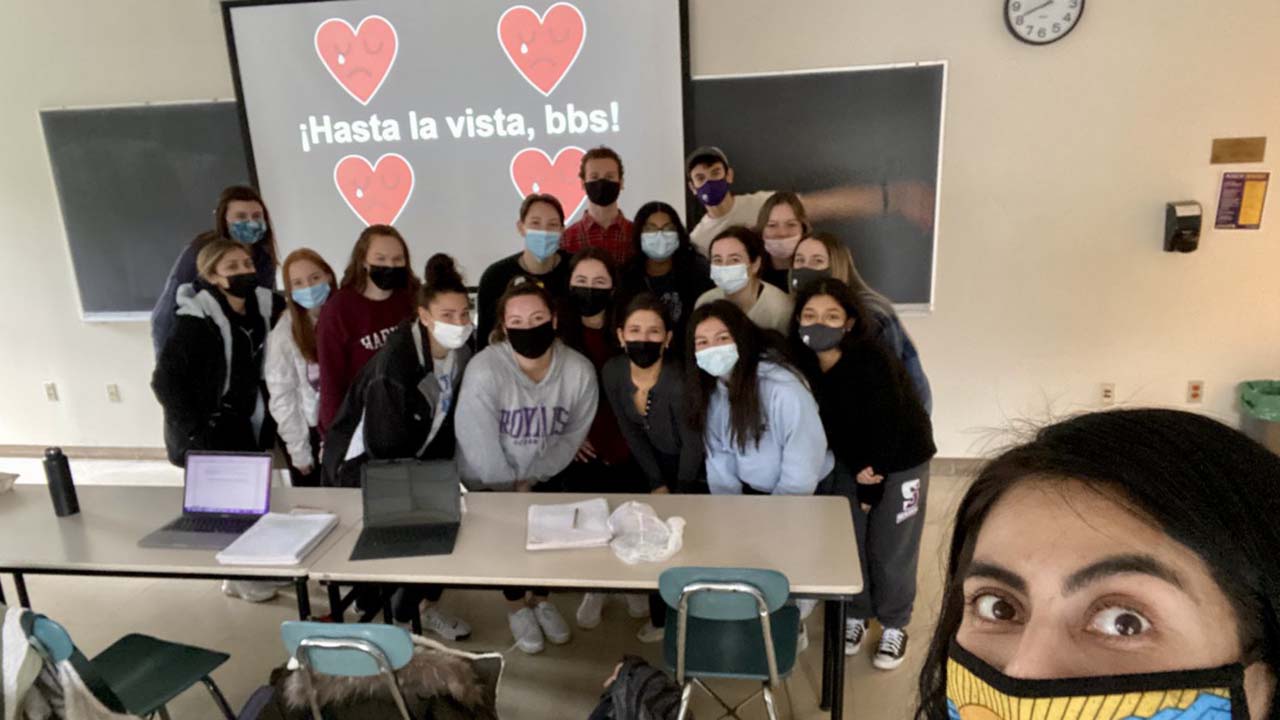
How Dr. Roxana Curiel educates and engages beyond the classroom
In spring 2022, Dr. Curiel completed a paper for the Faculty Success Program of the National Center for Faculty Development and Diversity (NCFDD). Her work, "De Roma a Juchitán: Intimacies and Colonial Gaze in Alfonso Cuarón's Roma and Graciela Iturbide's Photography," will be submitted to the Journal of Latin American Cultural Studies.
She also wrote a critique piece with her SPAN 315 “Migrations Across the Americas” students. They went to see the play "A Good Farmer" offered by the Academic Theatre Program/University Players and felt compelled to speak about it. Their piece unpacked the play's shortcomings and promoted an informed understanding of citizenship and the criminalization of Latinx migrants in the U.S.Last summer, Dr. Curiel was awarded The University of Scranton Faculty Development Grant for the project “De muxe a muxe: Meuxeidad and the Third Gender in Zapotec Culture.” She spent the summer performing an ethnography of two muxe artists, Elvis Guerra and Luka Avedaño, which is part of her book manuscript, "Machorras: Embodying Identity Against Mexicanidad." Dr. Curiel’s current research supports the book, which questions Mexican identity and the label of Latinidad, in general.
She also created “Robles,” a drag performance piece with fellow dragtivist Nancy Cázares and musician Gabriel Tepichín. They were invited to perform it at the Archivo de la Ciudad de México as part of the talk series, “Disidencia, resistencia y movilización. La diversidad sexual en la Ciudad de México a través de sus archivos.” In the performance, they told the story of Colonel Amelio Robles and their transition during the Mexican Revolution (1910), along with current stories of violencia machista against trans women in Latin America. The piece's success has led to several invitations to perform at festivals and LGBTQIA+ events.
Said Dr. Curiel of her research, “If... not tied to activism, it loses meaning.”In fall 2022, Dr. Curiel was invited to write a chapter on queer theory by scholars from Harvard University and the Universidad Autónoma de México, collaborating in an edited book, "Teoría Queer en México: Disidencias, Diversidades y Diferencias, under contract with Editorial Signos." Latinx students also invited her to be a faculty advisor in creating an ALPFA (Association of Latino Professionals for America) chapter at the University of Scranton.
During the celebration and commemoration of Hispanic/Latinx Heritage Month, Dr. Curiel took part in the panel discussion “Building DEI Partnerships for Students Leaning Inside and Outside the Classroom” at The University of Scranton Diversity Equity and Inclusion, or DEI, Faculty Workshop, "Creating a Welcoming and Inclusive Classroom." She also participated in a panel conversation organized by the Multicultural Center on the topic of Latino/x/e communities navigating labels, and their identity.
Before joining The University of Scranton faculty, Dr. Curiel worked at Pepperdine University, and Williams College where she was an Andrew W. Mellon Postdoctoral Fellow.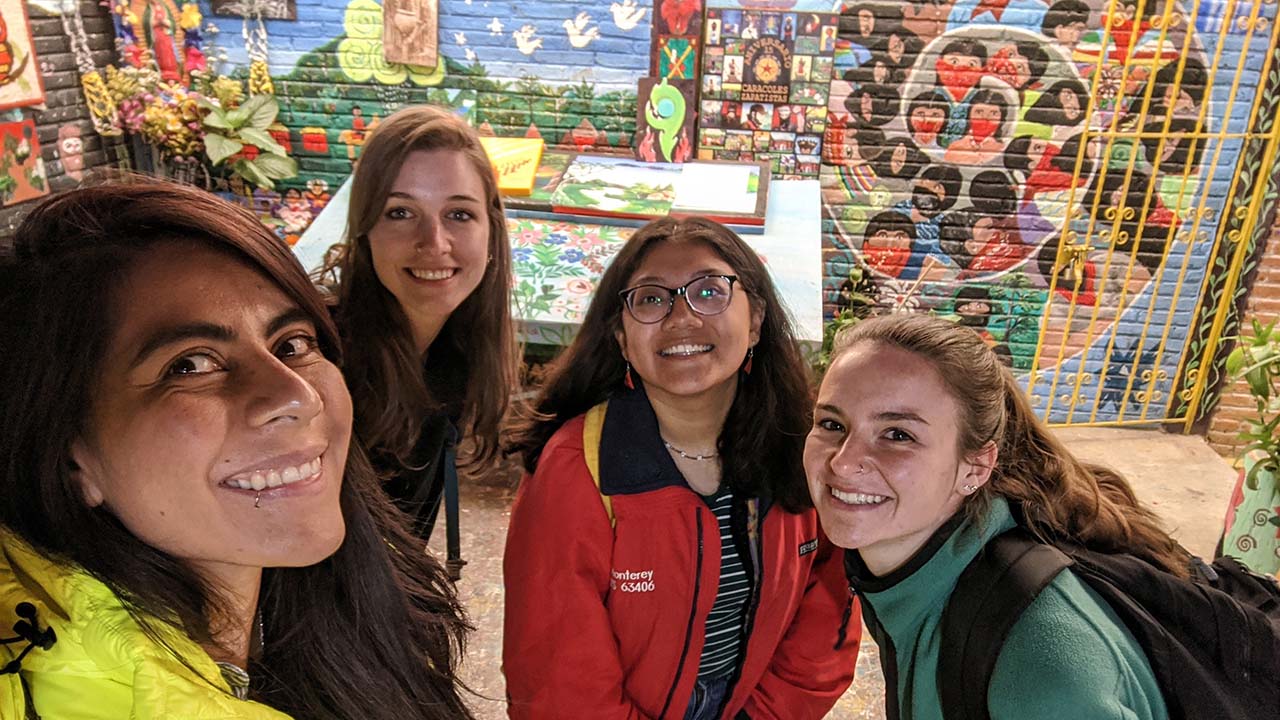
Faculty Profile: A Conversation With Dr. Roxana Curiel
-
11/28/2022
By: Kelly Nee '23, student correspondent
Using products patented by NASA, University of Scranton students put into practice the principles they learn in Dr. Peter Andersen’s marketing and consumer behavior courses.
Dr. Andersen said more than 100 of his students have participated in NASA's Technology Transfer University (T2U) since spring 2021 when Scranton became the second school in Pennsylvania to engage in the project. Prior to that Lehigh University took part and in 2022, the University of Pennsylvania joined.
“…most universities use it for engineering students, while we are among very few business schools engaged in the program,” said Andersen, assistant professor of marketing in the department of Management and Marketing.
NASA's Technology Transfer University (T2U) encourages students to review its extensive patent portfolio and identify potential real-world applications for the technologies. Students can perform market research and gather consumer behavior data to formulate viable economic models, utilizing NASA-developed technology as the basis for a sustainable business case, according to technology.nasa.gov.
In Dr. Andersen’s spring 2021 Consumer Behavior courses, students developed business cases centered on NASA's inventions with patents that ranged from Freeze-Resistant Hydration Systems to Ammonia Recycling Techniques and Manufacturing Robots.
“Each team has the opportunity to choose the patent they are interested in ... some specialize in aviation and aerospace while others engage in power generation, robotics, electronics, healthcare, and environmental sciences," said Dr. Andersen.
That semester, one student chose to explore the potential of using NASA's Portable Wireless Signal Booster as a means for improving wireless connection to those in regions with poor connectivity. They also considered a secondary market for outdoor recreation enthusiasts who enjoy remote outdoor activities such as hiking and fishing.
In fall 2021, Andersen incorporated the NASA project into the Introduction to Marketing course.
"In Consumer Behavior courses, the group project focuses on identifying consumer segments to which entrepreneurs may target the NASA patented products. Students practice the knowledge they gained during the course to analyze the characteristics of consumer segments and the strategies that marketers can apply to run a profitable and sustainable business.
“In Introduction to Marketing courses, the group project is a semester-long effort to prepare a marketing plan for a firm that decides to produce and market one of the NASA patented products. They must follow a detailed outline with specific sections on situation analysis, resource analysis, targeting, brand positioning, and marketing mix strategies.”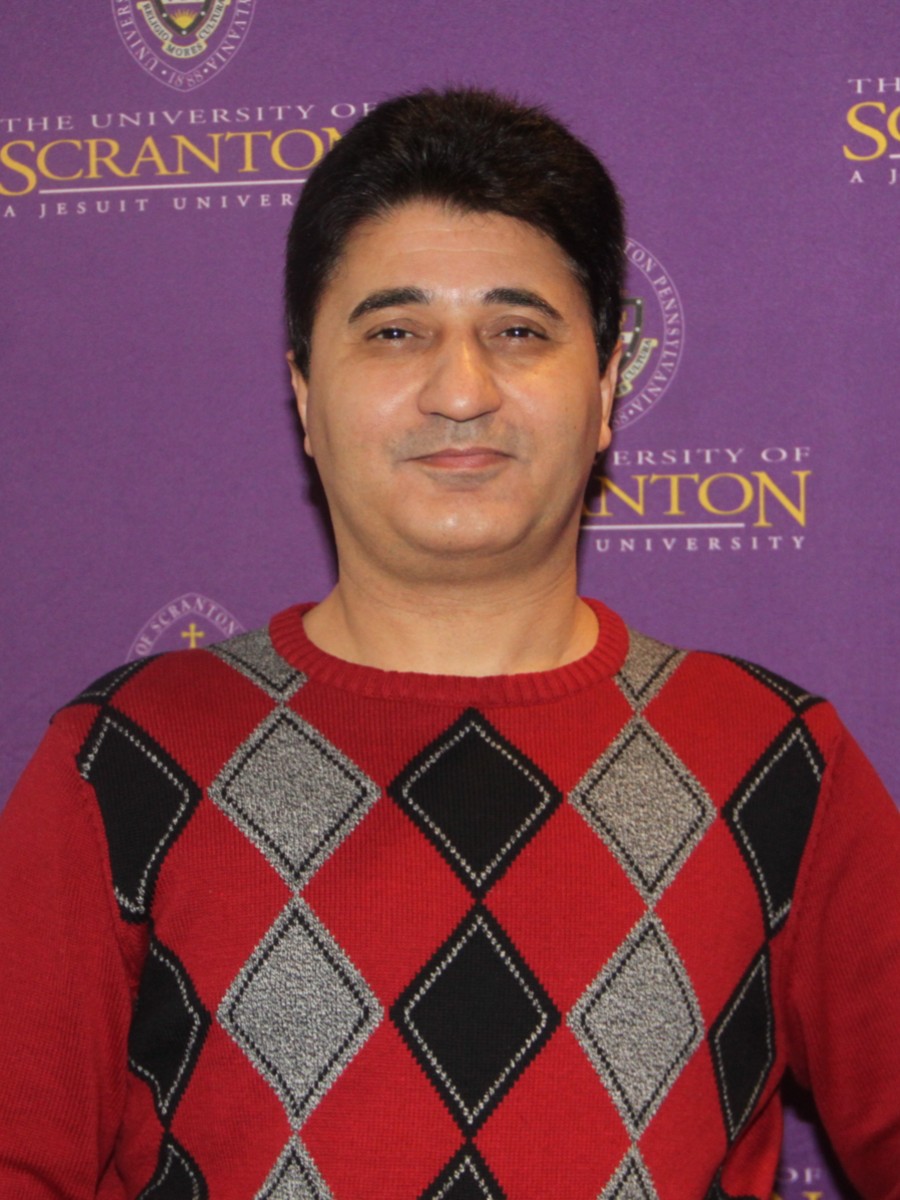 Dr. Andersen, shown, said that in spring 2022, students in each class began having Zoom meetings with NASA managers before starting their project to get the information they need, and after they submit their written project to present their main findings. Currently, 20 students in his Introduction to Marketing class are grouped into seven teams that each work on a separate patent.
Dr. Andersen, shown, said that in spring 2022, students in each class began having Zoom meetings with NASA managers before starting their project to get the information they need, and after they submit their written project to present their main findings. Currently, 20 students in his Introduction to Marketing class are grouped into seven teams that each work on a separate patent.
“The results of each group project are sent directly to NASA Technology Transfer Program managers who review them, analyze the progress and provide feedback or required changes, if needed. Students are not only graded for their team projects, but beginning in spring 2022, NASA began issuing certificates for each student who participated in the projects, making it more appealing,” said Dr. Andersen.
“This will be a great opportunity for students to build stronger resumes while joining job markets and sharing their experience with hiring managers during job interviews. NASA has also provided opportunities for virtual internships and support for patent applications to encourage students."
View a complete list of schools collaborating in NASA’s T2U program.
Dr. Andersen credited Dr. Satya P. Chattopadhyay, Ph.D., the department chair of Management and Marketing and the Dean’s Office of The Kania School of Management for their support during the project. He also expressed gratitude to Katrina Young and her NASA Technology Transfer Team at Langley Research Center in Virginia.
He’s already looking to the future:
"My goal is to engage more students and improve the quality of students’ work. ... I have already conducted some research on the aviation industry and customer satisfaction with airline services.”"After completing the first projects in two Consumer Behavior classes in spring 2021, NASA placed the name of our university among the universities that collaborate with NASA on the Technology to University project (T2U)."Business Students Discover Real-world Uses for NASA Tech
-
11/28/2022
The University of Scranton World Languages and Cultures Department is excited to introduce the Fulbright Teaching Assistants and Visiting Instructor for the 2022-2023 academic year:
* P. Magalí Ferrer, Argentinian Fulbright Teaching Assistant (FLTA) from San Rafael, Mendoza, Argentina
* Celine Victoria Seeger, German FLTA, from the northern Black Forest of Germany,
* Badoor Albuloushi, Arabic FLTA, from Kuwait,
* Audrey LeCerf, French FLTA, from the north of France near the city of Lille
* Chiang Yun, visiting instructor teaching Mandarin, from Taipei, Taiwan.
For anyone looking for advice on learning another language, these five educators offer helpful information. Learn why they chose The University of Scranton, what they enjoy most about teaching, why they believe learning a new language is important, and more.Meet them in this video!Meet World Languages Fulbright Teaching Assistants and Visiting Instructor
-
11/04/2022
The University of Scranton has appointed 21 new full-time faculty members for the 2022-2023 academic year.
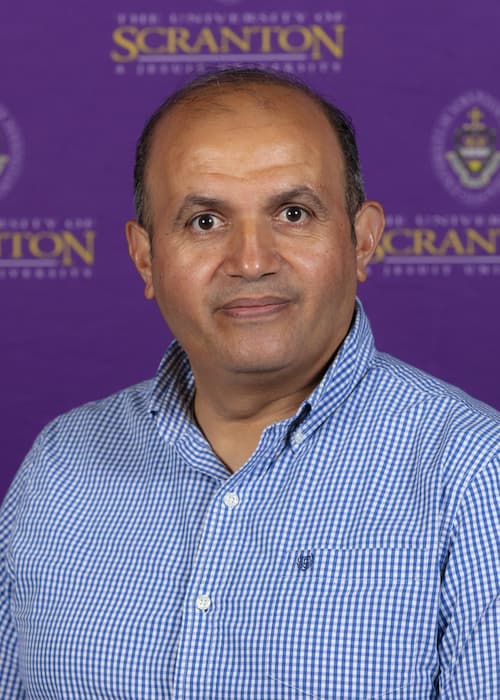 Wesam Alramadeen, Ph.D. cand., was named as an instructor in the Operations and Analytics Department. He joined the University faculty as a lecturer in 2021. Previously, he worked internationally for more than two decades as a business development and strategy partner, telecommunications commissioner, consultant and senior engineer, among other positions. He earned a bachelor’s degree in electronic engineering-telecommunication from Mutah University in Jordan, an MBA from German Jordanian University in Jordan, and is pursuing a Ph.D. in industrial and systems engineering at Binghamton University.
Wesam Alramadeen, Ph.D. cand., was named as an instructor in the Operations and Analytics Department. He joined the University faculty as a lecturer in 2021. Previously, he worked internationally for more than two decades as a business development and strategy partner, telecommunications commissioner, consultant and senior engineer, among other positions. He earned a bachelor’s degree in electronic engineering-telecommunication from Mutah University in Jordan, an MBA from German Jordanian University in Jordan, and is pursuing a Ph.D. in industrial and systems engineering at Binghamton University.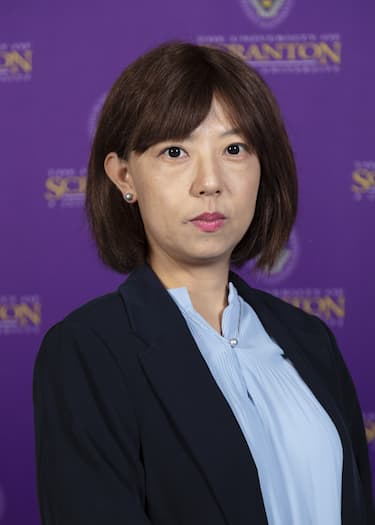 Ran An, Ph.D., was named assistant professor in the Health and Human Performance Department. She comes to Scranton from the University of Louisiana at Lafayette, where she was a course instructor of fluency and voice disorders. Previously, she was an associate and assistant professor at Dalian Ocean University in China, where she also was director of two English undergraduate programs and vice dean of the English Department. She also was an instructor at Dongbei University of Finance and has published extensively on the subject of stuttering as well as on several linguistics topics. She earned her bachelor’s degree in English and international business and her Master of Arts in foreign language studies and applied language studies at Dongbei University of Finance and Economics. She earned her Ph.D. at the University of Louisiana at Lafayette.
Ran An, Ph.D., was named assistant professor in the Health and Human Performance Department. She comes to Scranton from the University of Louisiana at Lafayette, where she was a course instructor of fluency and voice disorders. Previously, she was an associate and assistant professor at Dalian Ocean University in China, where she also was director of two English undergraduate programs and vice dean of the English Department. She also was an instructor at Dongbei University of Finance and has published extensively on the subject of stuttering as well as on several linguistics topics. She earned her bachelor’s degree in English and international business and her Master of Arts in foreign language studies and applied language studies at Dongbei University of Finance and Economics. She earned her Ph.D. at the University of Louisiana at Lafayette. Uzoamaka Anyiwo, Ph.D., was named associate professor in the History Department. Most recently a professor of politics and history at Curry College and before that the University of Tennessee at Chattanooga, she is an award-winning, innovative teacher and researcher who specializes in using historical methods to explore racial and gender stereotypes. Other research specialties include contemporary, Colonial and antebellum U.S. history, film history, the history of the vampire and popular culture/film. She has an extensive presentation and paper history on the subject of vampires, pop culture and black womanhood. She earned her bachelor’s degree in American studies and politics and her Ph.D. at the University of Wales Swansea, where her dissertation analyzed the dominant stereotypes of African-American women from the 16th century to present.
Uzoamaka Anyiwo, Ph.D., was named associate professor in the History Department. Most recently a professor of politics and history at Curry College and before that the University of Tennessee at Chattanooga, she is an award-winning, innovative teacher and researcher who specializes in using historical methods to explore racial and gender stereotypes. Other research specialties include contemporary, Colonial and antebellum U.S. history, film history, the history of the vampire and popular culture/film. She has an extensive presentation and paper history on the subject of vampires, pop culture and black womanhood. She earned her bachelor’s degree in American studies and politics and her Ph.D. at the University of Wales Swansea, where her dissertation analyzed the dominant stereotypes of African-American women from the 16th century to present. Anthony Betancourt, Ph.D., was named assistant professor in the Psychology Department. The founder and chief executive officer of ABLE Research LLC in Lawrenceville, New Jersey, Dr. Betancourt brings back to Scranton expertise in the subjects of bullying, scientific racism, learning disabilities and economic inequality. He has taught at the City College of New York and won a coveted fellowship at the City University of New York teaching undergraduate psychology. He conducted research on socio-emotional and motivational variables that influence students’ preparedness for higher education and/or the workplace. Dr. Betancourt earned his Bachelor of Science in psychology at The University of Scranton, his Master of Arts in general theoretical psychology at Fairleigh Dickinson University, and both his Master of Philosophy and his Ph.D. in educational psychology at the City University of New York.
Anthony Betancourt, Ph.D., was named assistant professor in the Psychology Department. The founder and chief executive officer of ABLE Research LLC in Lawrenceville, New Jersey, Dr. Betancourt brings back to Scranton expertise in the subjects of bullying, scientific racism, learning disabilities and economic inequality. He has taught at the City College of New York and won a coveted fellowship at the City University of New York teaching undergraduate psychology. He conducted research on socio-emotional and motivational variables that influence students’ preparedness for higher education and/or the workplace. Dr. Betancourt earned his Bachelor of Science in psychology at The University of Scranton, his Master of Arts in general theoretical psychology at Fairleigh Dickinson University, and both his Master of Philosophy and his Ph.D. in educational psychology at the City University of New York.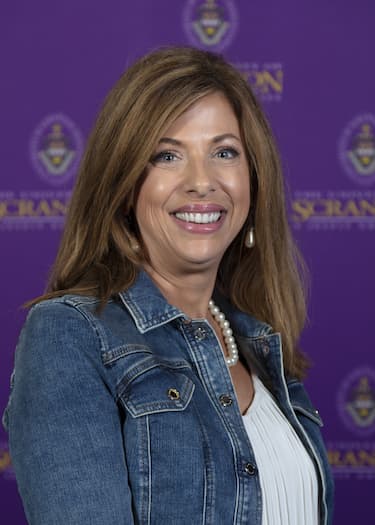 Michele Boland was named lecturer in the Nursing Department. She previously served on the nursing faculty for the for the Practical Nursing Program of the Career Technology Center of Lackawanna County and joins the University after serving as adjunct faculty and a clinical instructor. Boland has had a lengthy hospital career, including tenures as a registered home health care and hospice nurse, home hospice nurse, charge nurse in intensive care, clinical resource manager and nursing supervisor. Boland earned her Bachelor of Science degree in nursing from the University of Delaware and Master of Science degree in nursing education at the University of Phoenix. She is certified as a CPR instructor and in oncology/chemotherapy.
Michele Boland was named lecturer in the Nursing Department. She previously served on the nursing faculty for the for the Practical Nursing Program of the Career Technology Center of Lackawanna County and joins the University after serving as adjunct faculty and a clinical instructor. Boland has had a lengthy hospital career, including tenures as a registered home health care and hospice nurse, home hospice nurse, charge nurse in intensive care, clinical resource manager and nursing supervisor. Boland earned her Bachelor of Science degree in nursing from the University of Delaware and Master of Science degree in nursing education at the University of Phoenix. She is certified as a CPR instructor and in oncology/chemotherapy.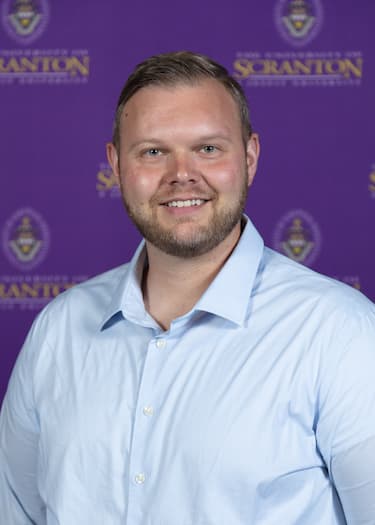 Joe Brague, Ph.D., was named assistant professor in the Biology Department. An accomplished researcher, writer and lecturer, he most recently studied dopamine-mediated synaptic plasticity in the context of Parkinson’s disease and has published prolific research on how hormones influence behavior in the Syrian hamster. He is currently pursuing how biological sex contributes to Parkinson’s Disease. Dr. Brague was most recently a post-doctoral scholar and adjunct professor in neuroscience at the University of Pittsburgh. He earned his Bachelor of Science degree in neuroscience and biology at The University of Scranton and his Ph.D. in integrative biology: neuroscience track, at Lehigh University.
Joe Brague, Ph.D., was named assistant professor in the Biology Department. An accomplished researcher, writer and lecturer, he most recently studied dopamine-mediated synaptic plasticity in the context of Parkinson’s disease and has published prolific research on how hormones influence behavior in the Syrian hamster. He is currently pursuing how biological sex contributes to Parkinson’s Disease. Dr. Brague was most recently a post-doctoral scholar and adjunct professor in neuroscience at the University of Pittsburgh. He earned his Bachelor of Science degree in neuroscience and biology at The University of Scranton and his Ph.D. in integrative biology: neuroscience track, at Lehigh University.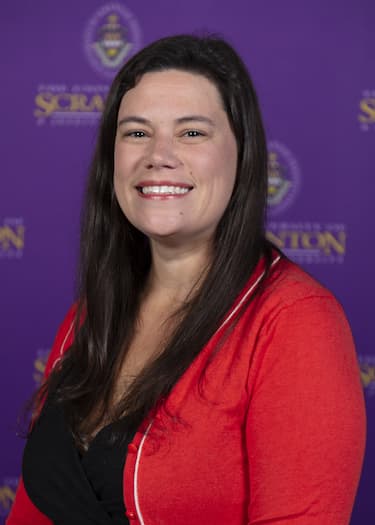 Laura Skoronski Chavez, Ph.D., was named assistant professor in the Nursing Department. Dr. Chavez brings to the University clinical expertise in emergency nursing and nurse education and educational expertise in nurse educator preparation, curriculum development, educational administration, simulation development, preparation and administration, nursing research and online course preparation. She was formerly on the nursing faculty at Wilkes University and an adjunct faculty member at the University. Chavez earned her Bachelor of Science degree in nursing at The University of Scranton, her master’s degree in nursing education at Georgetown University in Washington, D.C., and her Ph.D. in nursing at the University of Wisconsin-Milwaukee.
Laura Skoronski Chavez, Ph.D., was named assistant professor in the Nursing Department. Dr. Chavez brings to the University clinical expertise in emergency nursing and nurse education and educational expertise in nurse educator preparation, curriculum development, educational administration, simulation development, preparation and administration, nursing research and online course preparation. She was formerly on the nursing faculty at Wilkes University and an adjunct faculty member at the University. Chavez earned her Bachelor of Science degree in nursing at The University of Scranton, her master’s degree in nursing education at Georgetown University in Washington, D.C., and her Ph.D. in nursing at the University of Wisconsin-Milwaukee.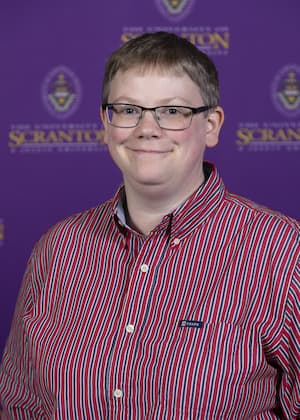 Kate Cummings was named assistant professor and research and instruction librarian for the Harry and Jeanette Weinberg Memorial Library. She was previously library director and an electronic resources librarian at Luzerne County Community College. She has held two elected positions on the board of directors of the Pennsylvania Library Association and is a member of the American Library Association. She is an accomplished presenter whose topics have included diversity, equity and inclusion in libraries, and outcomes and assessment. She earned a Bachelor of Science in business administration (accounting) at the University of Maine, a Master of Business Administration at Wilkes University and a Master of Library and Information Science at the University of South Carolina.
Kate Cummings was named assistant professor and research and instruction librarian for the Harry and Jeanette Weinberg Memorial Library. She was previously library director and an electronic resources librarian at Luzerne County Community College. She has held two elected positions on the board of directors of the Pennsylvania Library Association and is a member of the American Library Association. She is an accomplished presenter whose topics have included diversity, equity and inclusion in libraries, and outcomes and assessment. She earned a Bachelor of Science in business administration (accounting) at the University of Maine, a Master of Business Administration at Wilkes University and a Master of Library and Information Science at the University of South Carolina. 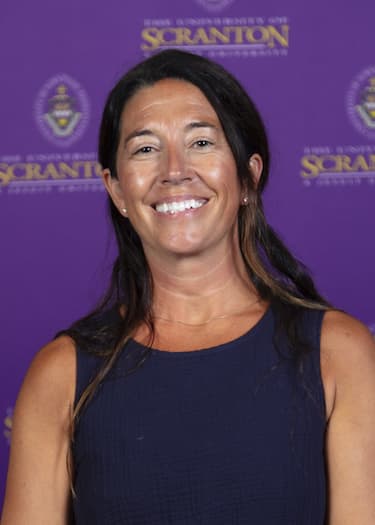 Stephanie DeNaples was named faculty specialist in the Occupational Therapy Department. She currently works with Neighborworks NEPA and previously served as an occupational therapist at Lehigh Valley Health Network and has been an adjunct instructor in occupational therapy at the University. She also served as an occupational therapist for Coordinated Health, Therapy Unlimited, the Geisinger Health System and St. Luke’s University Health System. She is the founder of We Ride NEPA, an organization that promotes occupational independence in leisure by modifying motorized ride-on vehicles for children. She earned her Bachelor of Arts in health sciences and Master of Science in occupational therapy at The University of Scranton. She is completing a post-professional clinical doctorate at Rocky Mountain University of Health Professions in Provo, Utah.
Stephanie DeNaples was named faculty specialist in the Occupational Therapy Department. She currently works with Neighborworks NEPA and previously served as an occupational therapist at Lehigh Valley Health Network and has been an adjunct instructor in occupational therapy at the University. She also served as an occupational therapist for Coordinated Health, Therapy Unlimited, the Geisinger Health System and St. Luke’s University Health System. She is the founder of We Ride NEPA, an organization that promotes occupational independence in leisure by modifying motorized ride-on vehicles for children. She earned her Bachelor of Arts in health sciences and Master of Science in occupational therapy at The University of Scranton. She is completing a post-professional clinical doctorate at Rocky Mountain University of Health Professions in Provo, Utah.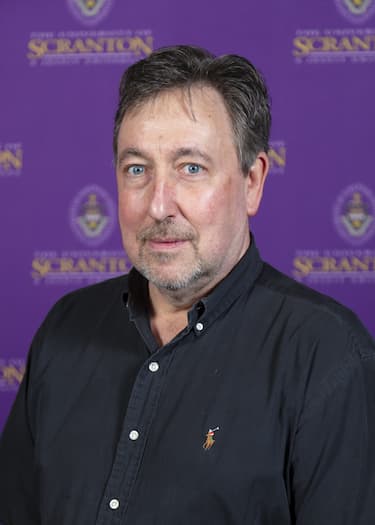 Kenneth Dudeck was named visiting assistant professor in the Physics and Engineering Department. He was previously an associate professor at Pennsylvania State University in Hazleton and works as an electrical engineering consultant for local manufacturing industries. An accomplished researcher with a notable publication history, he also spent 10 years as a consultant for the Naval Air Warfare Center at Patuxent River, Maryland., and has been a research fellow at the Naval Air Development Center in Warminster. His career also included the titles of microwave and controls engineer at Damaskos Inc. in Chadds Ford, electromagnetic interference and compatibility engineer at General Electric, and electrical engineer at Gould Ocean Systems Division in Cleveland, Ohio. He earned his Bachelor of Science in electrical engineering at Pennsylvania State University and his master’s degree in electrical engineering at Villanova University.
Kenneth Dudeck was named visiting assistant professor in the Physics and Engineering Department. He was previously an associate professor at Pennsylvania State University in Hazleton and works as an electrical engineering consultant for local manufacturing industries. An accomplished researcher with a notable publication history, he also spent 10 years as a consultant for the Naval Air Warfare Center at Patuxent River, Maryland., and has been a research fellow at the Naval Air Development Center in Warminster. His career also included the titles of microwave and controls engineer at Damaskos Inc. in Chadds Ford, electromagnetic interference and compatibility engineer at General Electric, and electrical engineer at Gould Ocean Systems Division in Cleveland, Ohio. He earned his Bachelor of Science in electrical engineering at Pennsylvania State University and his master’s degree in electrical engineering at Villanova University.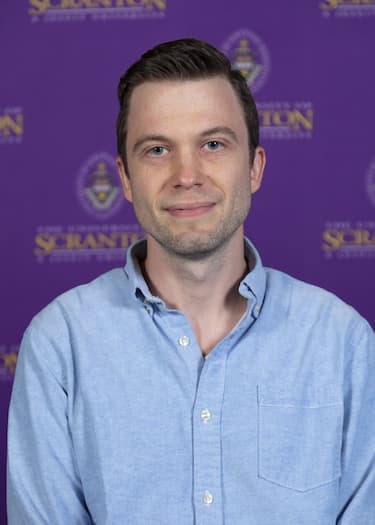 Daniel Jackowitz was named visiting assistant professor in the Computing Sciences Department. He comes to the University from SeatGeek in New York City, where he solved interesting data problems in the ticketing. Before that he was a senior software engineer for Datadog and Tumblr, both in New York City, and a software engineer for The New York Times. He has served as adjunct faculty in computing sciences at the University, where he designed and taught a graduate special topics course titled “Introduction to Big Data Platforms.” He was a teaching fellow in operating system engineering at Yale University. Jackowitz earned his Bachelor of Science in computer science and his Master of Science in software engineering at The University of Scranton and his Master of Science in computer science at Yale University.
Daniel Jackowitz was named visiting assistant professor in the Computing Sciences Department. He comes to the University from SeatGeek in New York City, where he solved interesting data problems in the ticketing. Before that he was a senior software engineer for Datadog and Tumblr, both in New York City, and a software engineer for The New York Times. He has served as adjunct faculty in computing sciences at the University, where he designed and taught a graduate special topics course titled “Introduction to Big Data Platforms.” He was a teaching fellow in operating system engineering at Yale University. Jackowitz earned his Bachelor of Science in computer science and his Master of Science in software engineering at The University of Scranton and his Master of Science in computer science at Yale University.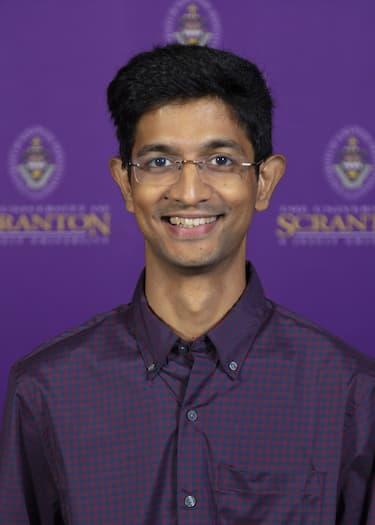 Riddhiman Medhi, Ph.D., was named assistant professor of inorganic chemistry in the Chemistry Department. A committed teacher and researcher as well as a collaborative scientist, Dr. Medhi brings a broad background in materials chemistry and joins the University after serving as a post-doctoral associate at Cornell University in Ithaca, New York, where he worked to develop anti-fouling surface coatings and anti-toxin fabrics. He has applied for two U.S. patents, has published and presented on numerous occasions, and is a member of the American Chemical Society. He earned both Bachelor of Science and Master of Science degrees in chemistry from Gauhati University in Guwahati, India, and a Ph.D. in chemistry from the University of Houston, where he was a graduate research assistant, and served as a teaching assistant. At Houston, his research on optical nanomaterials earned him the Graduate Student Research Award, and the prestigious Dan E. Wells Outstanding Dissertation Award.
Riddhiman Medhi, Ph.D., was named assistant professor of inorganic chemistry in the Chemistry Department. A committed teacher and researcher as well as a collaborative scientist, Dr. Medhi brings a broad background in materials chemistry and joins the University after serving as a post-doctoral associate at Cornell University in Ithaca, New York, where he worked to develop anti-fouling surface coatings and anti-toxin fabrics. He has applied for two U.S. patents, has published and presented on numerous occasions, and is a member of the American Chemical Society. He earned both Bachelor of Science and Master of Science degrees in chemistry from Gauhati University in Guwahati, India, and a Ph.D. in chemistry from the University of Houston, where he was a graduate research assistant, and served as a teaching assistant. At Houston, his research on optical nanomaterials earned him the Graduate Student Research Award, and the prestigious Dan E. Wells Outstanding Dissertation Award.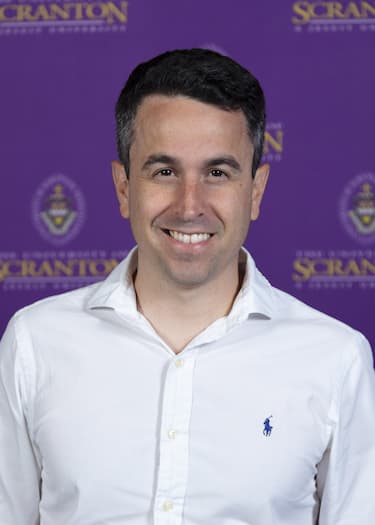 Pedro Monteiro, Ph.D., was named assistant professor in the Economics/Finance Department. A chartered financial analyst (C.F.A.) since 2018, he worked in the financial sector prior to pursuing Ph.D. studies. He served in a multitude of roles, including fixed income analyst, structurer of derivatives products, and private wealth manager. Dr. Monteiro has published and working papers covering different aspects of finance, including hedge funds, corporate short-termism, international markets and entrepreneurial finance. He has taught Principles of Financial Management, Financial Institutions and Advanced Managerial Finance courses at the College of Business at Florida Atlantic University, where he received the singular 2021 Excellence in Ph.D. Student Teaching Award. He earned his Bachelor of Arts degree in business at Pontifical Catholic University in Rio de Janeiro. He earned his Master of Science in finance and Ph.D. in finance at Florida Atlantic University.
Pedro Monteiro, Ph.D., was named assistant professor in the Economics/Finance Department. A chartered financial analyst (C.F.A.) since 2018, he worked in the financial sector prior to pursuing Ph.D. studies. He served in a multitude of roles, including fixed income analyst, structurer of derivatives products, and private wealth manager. Dr. Monteiro has published and working papers covering different aspects of finance, including hedge funds, corporate short-termism, international markets and entrepreneurial finance. He has taught Principles of Financial Management, Financial Institutions and Advanced Managerial Finance courses at the College of Business at Florida Atlantic University, where he received the singular 2021 Excellence in Ph.D. Student Teaching Award. He earned his Bachelor of Arts degree in business at Pontifical Catholic University in Rio de Janeiro. He earned his Master of Science in finance and Ph.D. in finance at Florida Atlantic University.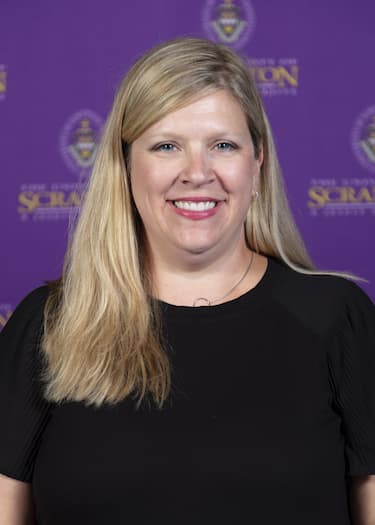 Julie Murphy, Ph.D., was named assistant professor in the Nursing Department. She previously served as an assistant professor at Wilkes University and assistant professor and director of the RN to BS in Nursing Program at King’s College. She also served on the faculty of the practical nursing program at the Wilkes-Barre Area Career and Technical Center, where she was the lead instructor for medical surgical courses. Dr. Murphy has been a registered nurse in the local area for many years and has presented at local and national conferences on heart failure, end-of-life care and advance care planning. She earned an Associate of Applied Science in nursing at Luzerne County Community College, a Bachelor of Science in nursing at Pennsylvania State University, a Master of Science in nursing at Misericordia University, a Master of Science in nursing with nurse educator and faculty roles specialization at Drexel University, and a Ph.D. in nursing at Pennsylvania State University. She has recently received a post-master’s degree certificate as a primary mental health care nurse practitioner at Wilkes University.
Julie Murphy, Ph.D., was named assistant professor in the Nursing Department. She previously served as an assistant professor at Wilkes University and assistant professor and director of the RN to BS in Nursing Program at King’s College. She also served on the faculty of the practical nursing program at the Wilkes-Barre Area Career and Technical Center, where she was the lead instructor for medical surgical courses. Dr. Murphy has been a registered nurse in the local area for many years and has presented at local and national conferences on heart failure, end-of-life care and advance care planning. She earned an Associate of Applied Science in nursing at Luzerne County Community College, a Bachelor of Science in nursing at Pennsylvania State University, a Master of Science in nursing at Misericordia University, a Master of Science in nursing with nurse educator and faculty roles specialization at Drexel University, and a Ph.D. in nursing at Pennsylvania State University. She has recently received a post-master’s degree certificate as a primary mental health care nurse practitioner at Wilkes University.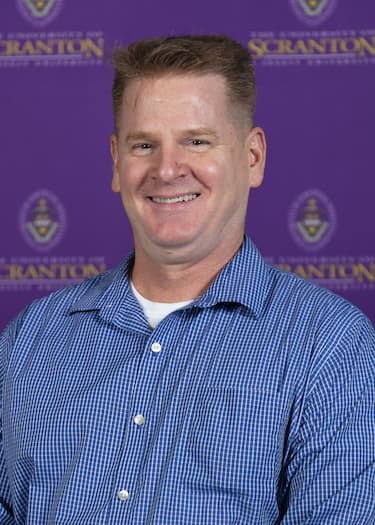 Michael Nytz, Ph.D., cand., was named lecturer in the Counseling and Human Services Department. A licensed professional counselor (L.P.C.), he was most recently a certified school guidance counselor at Lower Macungie Middle School and teaching assistant at the University of the Cumberlands in Williamsburg, Kentucky. Prior to that, he was a clinical case manager at Wordsworth Academy and a residential counselor at Woods School. Nytz also was a military officer for 13 years and served three years on active duty. He earned a bachelor’s degree in psychology at Warner Southern College in Lake Wales, Florida, a master’s degree in counseling at Trenton State College in Trenton, New Jersey., and is a Ph.D. candidate in counselor education at the University of the Cumberlands. He also earned an elementary guidance certificate at Kutztown University, a cognitive behavioral therapy certificate from the Philadelphia College of Osteopathic Medicine and a trauma certificate of advanced graduate studies at Chestnut Hill College. He has a secondary guidance certificate from the University.
Michael Nytz, Ph.D., cand., was named lecturer in the Counseling and Human Services Department. A licensed professional counselor (L.P.C.), he was most recently a certified school guidance counselor at Lower Macungie Middle School and teaching assistant at the University of the Cumberlands in Williamsburg, Kentucky. Prior to that, he was a clinical case manager at Wordsworth Academy and a residential counselor at Woods School. Nytz also was a military officer for 13 years and served three years on active duty. He earned a bachelor’s degree in psychology at Warner Southern College in Lake Wales, Florida, a master’s degree in counseling at Trenton State College in Trenton, New Jersey., and is a Ph.D. candidate in counselor education at the University of the Cumberlands. He also earned an elementary guidance certificate at Kutztown University, a cognitive behavioral therapy certificate from the Philadelphia College of Osteopathic Medicine and a trauma certificate of advanced graduate studies at Chestnut Hill College. He has a secondary guidance certificate from the University.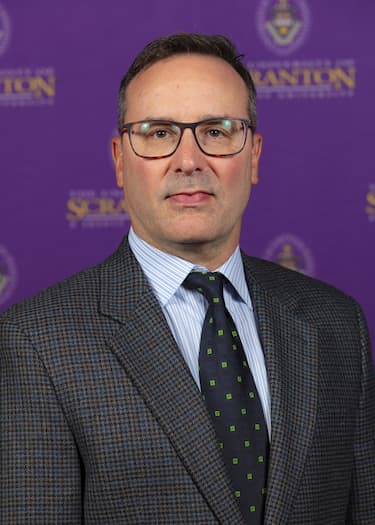 Jason Phillips was named faculty specialist in the Nursing Department. He was most recently a certified registered nurse practitioner at Penn Presbyterian Medical Center in Philadelphia and previously worked for the Einstein Healthcare Network, Thomas Jefferson University Hospital, the University Medical Center of Princeton at Plainsboro and Geisinger Wyoming Valley Medical Center. He earned a Bachelor of Arts degree in international studies at Wright State University in Dayton, then an Associate’s of Applied Science in nursing at Luzerne County Community College, a Bachelor of Science in nursing at Pennsylvania State University Worthington Scranton, and Master of Science in nursing in the Adult Gerontology Acute Care Nurse Practitioner program at Thomas Jefferson University in Philadelphia.
Jason Phillips was named faculty specialist in the Nursing Department. He was most recently a certified registered nurse practitioner at Penn Presbyterian Medical Center in Philadelphia and previously worked for the Einstein Healthcare Network, Thomas Jefferson University Hospital, the University Medical Center of Princeton at Plainsboro and Geisinger Wyoming Valley Medical Center. He earned a Bachelor of Arts degree in international studies at Wright State University in Dayton, then an Associate’s of Applied Science in nursing at Luzerne County Community College, a Bachelor of Science in nursing at Pennsylvania State University Worthington Scranton, and Master of Science in nursing in the Adult Gerontology Acute Care Nurse Practitioner program at Thomas Jefferson University in Philadelphia.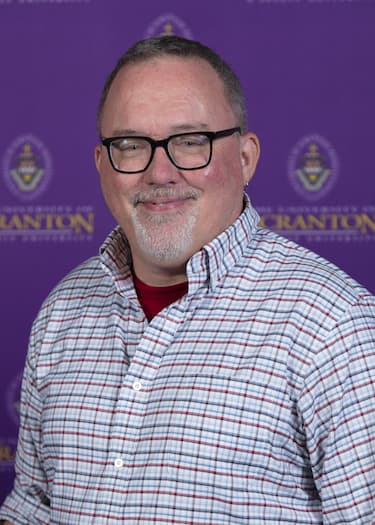 Timothy Powers was named lecturer in the Counseling and Human Services Department. He has been an adjunct instructor of social sciences at the State University of New York at Orange and at Mount St. Mary College in Newburgh, New York. He also worked as a private-practice mental health counselor in Middletown and New York, New York, taught religious studies at Xavier High School in New York, New York., and served in assignments in the Bronx, Wilmington, Delaware, and Silver Spring, Maryland, while a Franciscan Friar. He also was director of campus ministries at John S. Burke Catholic High School in Goshen, New York. He earned a Bachelor of Arts in history and religious studies and Master of Science in counseling at The University of Scranton, a graduate certificate in theological studies at Washington Theological Union in Washington, D.C., and a Master of Social Work at New York University.
Timothy Powers was named lecturer in the Counseling and Human Services Department. He has been an adjunct instructor of social sciences at the State University of New York at Orange and at Mount St. Mary College in Newburgh, New York. He also worked as a private-practice mental health counselor in Middletown and New York, New York, taught religious studies at Xavier High School in New York, New York., and served in assignments in the Bronx, Wilmington, Delaware, and Silver Spring, Maryland, while a Franciscan Friar. He also was director of campus ministries at John S. Burke Catholic High School in Goshen, New York. He earned a Bachelor of Arts in history and religious studies and Master of Science in counseling at The University of Scranton, a graduate certificate in theological studies at Washington Theological Union in Washington, D.C., and a Master of Social Work at New York University.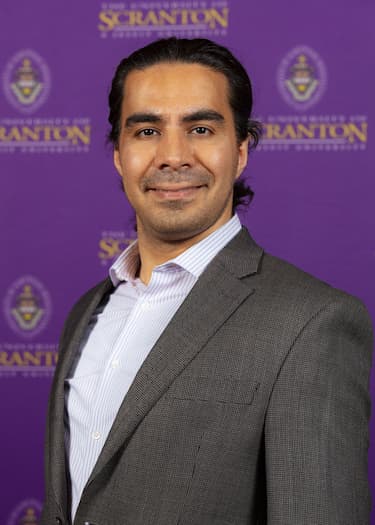 Mojib Saei, Ph.D., was named assistant professor in the Physics and Engineering Department. He comes to the University from the Rose-Hulman Institute of Technology, where he was a visiting professor in the Department of Mechanical Engineering. He also has been a faculty member at Ivy Tech Community College. He served as a researcher in the Scalable Micro Nano Manufacturing Laboratory as well as the Center for Materials Processing and Tribology at Purdue University in West Lafayette, Indiana. He has published several peer-reviewed journal articles about nanomaterials, multi-layer composites, 3D printing, laser processing and flexible electronics, amassing a total of 23 journal publications and filing one U.S. patent. He earned dual Bachelor of Science degrees, one in materials engineering and another one in industrial engineering, a master’s degree in materials engineering and a Ph.D. in industrial engineering-manufacturing at Purdue University.
Mojib Saei, Ph.D., was named assistant professor in the Physics and Engineering Department. He comes to the University from the Rose-Hulman Institute of Technology, where he was a visiting professor in the Department of Mechanical Engineering. He also has been a faculty member at Ivy Tech Community College. He served as a researcher in the Scalable Micro Nano Manufacturing Laboratory as well as the Center for Materials Processing and Tribology at Purdue University in West Lafayette, Indiana. He has published several peer-reviewed journal articles about nanomaterials, multi-layer composites, 3D printing, laser processing and flexible electronics, amassing a total of 23 journal publications and filing one U.S. patent. He earned dual Bachelor of Science degrees, one in materials engineering and another one in industrial engineering, a master’s degree in materials engineering and a Ph.D. in industrial engineering-manufacturing at Purdue University.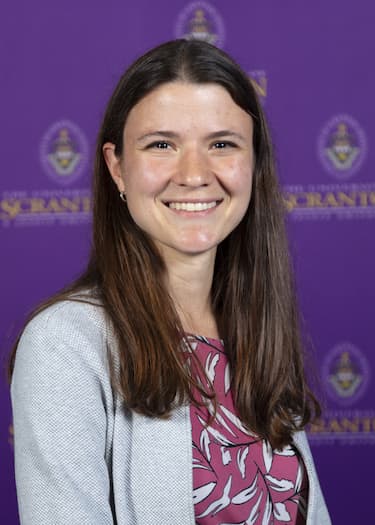 Rebecca Sullivan, Ph.D. cand., was named lecturer in the Education Department. She was most recently adjunct faculty in philosophy at Fordham University and has been a course assistant at the Steinhardt School of Education at New York University and a teaching assistant at both Barnard College and Teachers College of Columbia University. She also has been adjunct faculty at the State University of New York at New Paltz and Queens College of the City University of New York. Sullivan has numerous publication and presentation credits and worked as an academic publishing associate and editor at EdLab, Teachers College Record, at Columbia University, was a writing coach, and worked as an educational program leader for the Brox Educational Foundation. She earned a bachelor’s degree in philosophy and English literature and a master’s degree in philosophy and education at the University of Notre Dame and a master’s in philosophy and education at Columbia University, where she is a Ph.D. candidate.
Rebecca Sullivan, Ph.D. cand., was named lecturer in the Education Department. She was most recently adjunct faculty in philosophy at Fordham University and has been a course assistant at the Steinhardt School of Education at New York University and a teaching assistant at both Barnard College and Teachers College of Columbia University. She also has been adjunct faculty at the State University of New York at New Paltz and Queens College of the City University of New York. Sullivan has numerous publication and presentation credits and worked as an academic publishing associate and editor at EdLab, Teachers College Record, at Columbia University, was a writing coach, and worked as an educational program leader for the Brox Educational Foundation. She earned a bachelor’s degree in philosophy and English literature and a master’s degree in philosophy and education at the University of Notre Dame and a master’s in philosophy and education at Columbia University, where she is a Ph.D. candidate.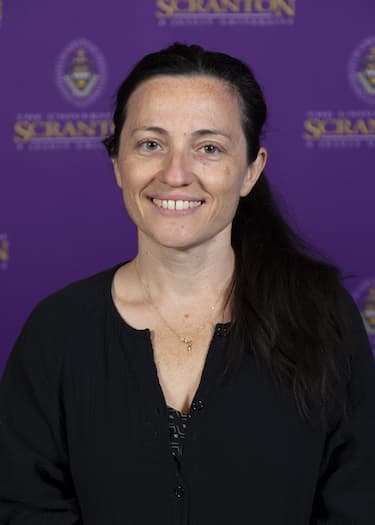 Elizabeth Vento, Ph.D., was named visiting assistant professor in the Psychology Department. She has provided clinical care in hospital and community-based clinics and has also provided clinical research support for SAMHSA's national epidemiology studies of psychological disorders. Before starting her Ph.D. studies, she was a public-school teacher in Brooklyn, New York. Dr. Vento earned a Bachelor of Arts dual degree in literature and creative writing at the State University of New York, Purchase College; a Master of Arts in clinical psychology at St. John's University; a post-baccalaureate certificate in psychology at Columbia University; and a Master of Science in education at the College of New Rochelle. She earned her Ph.D. in Clinical Psychology at St. John’s University.
Elizabeth Vento, Ph.D., was named visiting assistant professor in the Psychology Department. She has provided clinical care in hospital and community-based clinics and has also provided clinical research support for SAMHSA's national epidemiology studies of psychological disorders. Before starting her Ph.D. studies, she was a public-school teacher in Brooklyn, New York. Dr. Vento earned a Bachelor of Arts dual degree in literature and creative writing at the State University of New York, Purchase College; a Master of Arts in clinical psychology at St. John's University; a post-baccalaureate certificate in psychology at Columbia University; and a Master of Science in education at the College of New Rochelle. She earned her Ph.D. in Clinical Psychology at St. John’s University.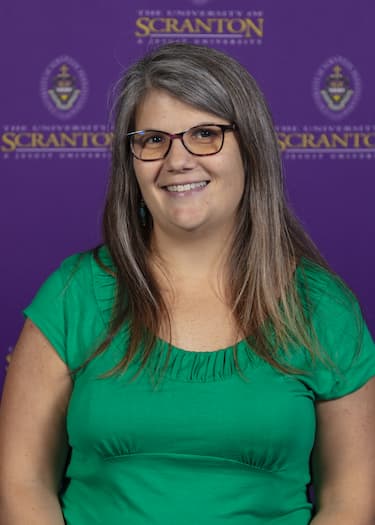 Laura Zagacki, D.H.S. cand., was named assistant professor in the Occupational Therapy Department. She was most recently therapy manager at Good Shepherd Specialty Hospital in Bethlehem, where she previously worked as a pediatric occupational therapist. She has been a pediatrics occupational therapist, an early intervention occupational therapist, and a school occupational therapist in the Hatboro-Horsham and Wissahickon school districts. She held occupational therapist positions at Moss Rehabilitation Hospital in Philadelphia and Elkins Park and served on the Research Committee Task Force in the Good Shepherd Rehabilitation Hospital Network. She has an extensive teaching, research, publications and presentation background. She earned a Bachelor of Science degree in behavioral neuroscience at Lafayette College, where she was a Phi Beta Kappa Society member, and a Master of Science in occupational therapy at Thomas Jefferson University. She is a candidate for a Doctorate of Health Sciences in rehabilitation sciences at Drexel University.
Laura Zagacki, D.H.S. cand., was named assistant professor in the Occupational Therapy Department. She was most recently therapy manager at Good Shepherd Specialty Hospital in Bethlehem, where she previously worked as a pediatric occupational therapist. She has been a pediatrics occupational therapist, an early intervention occupational therapist, and a school occupational therapist in the Hatboro-Horsham and Wissahickon school districts. She held occupational therapist positions at Moss Rehabilitation Hospital in Philadelphia and Elkins Park and served on the Research Committee Task Force in the Good Shepherd Rehabilitation Hospital Network. She has an extensive teaching, research, publications and presentation background. She earned a Bachelor of Science degree in behavioral neuroscience at Lafayette College, where she was a Phi Beta Kappa Society member, and a Master of Science in occupational therapy at Thomas Jefferson University. She is a candidate for a Doctorate of Health Sciences in rehabilitation sciences at Drexel University.University of Scranton Appoints New Faculty Members
-
11/02/2022
By: Kelly Nee '23, student correspondent
Professor John Wiercinski, MHA, FACHE, is a full-time Faculty Specialist in the graduate and undergraduate programs for Health Administration and Human Resources in the J. A. Panuska College of Professional Studies. Wiercinski '83 earned a Master of Hospital and Health Administration from Xavier University in Cincinnati, Ohio, and Bachelor of Science at The University of Scranton. Prior to joining the University full time in 2016, Wiercinski worked as a healthcare administrator for more than 30 years.
Here, he discusses the importance of a degree in healthcare administration, what it means to receive a Jesuit education, and the benefits of the accredited healthcare administration program here at the university.
How do you think the university's Jesuit mission has impacted your time as a professor?
"I am a product of a Jesuit high school and Jesuit universities for both for my undergrad and graduate degrees, so I clearly believe in the Jesuit focus on education and making a difference in the lives of others. I believe that a Jesuit education comes with a unique identity in focusing on a transformative educational experience. The focus of the Ignatian tradition is essential to developing individuals who are committed to the betterment of humanity.
In our pursuit of educational excellence, we hope to reinforce the characteristics of truth, ethics, and that decency toward others is not mutually exclusive of our selected professional work. A Jesuit education brings with it a responsibility of helping students connect with a commitment to a higher power through being servant leaders and having a positive impact on the world in which we live."
What is your favorite comment ever received on a course evaluation?
"I appreciate all the comments but one that stuck with me was: "Your course was life changing, not only for what I learned, but also for how I should embrace life."
Why should students consider a major in HEalthcare administration?
"Healthcare affects everyone, and it should be viewed as a basic right for everyone. I feel that our program teaches the importance of providing high-quality, cost-effective healthcare through managing the delivery of the continuum of services that we call the healthcare system. Throughout society, healthcare is at the core of a healthy, productive, and progressive population.
The program at The University of Scranton is one of the most recognized in the country, CAHME accredited, and staffed by a group of professors and adjuncts who have dedicated their lives to making a difference in the delivery of these services. A degree in healthcare administration exposes students to managerial principles, varied delivery platforms, medical ethics, financial analysis, human resources, strategic planning, healthcare law, marketing, and most importantly, being involved in a career that positively affects the lives of others."
What do you specifically bring to your department?
"Probably a question better answered by my students and colleagues. Having a fair amount of experience over a 30-plus year career as a healthcare administrator, I feel that I bring a level of expertise and understanding to the classroom through my teaching style."
How would you describe your personal teaching philosophy?
"My teaching philosophy involves so much more than the course content and what students find in their assigned textbooks. I also believe in teaching life lessons. I like to let students know (through my personal experience) that at times the world will not be perfect, and that one bad experience or chapter in their life does not necessarily represent the rest of the book.
I like to teach students that we can't control everything, but we can control how we respond to those situations. It's more important how we mend ourselves during those times of brokenness that matter. I am blessed to be able to pass on my healthcare expertise as well as the trial, tribulations, and survival of the human spirit. In essence, the Japanese definition of Kintsugi: That we can be more beautiful for having been broken."
What has been the biggest accomplishment of your career?
"I never accept sole credit for any accomplishments I achieved as a hospital administrator. Employees never worked for me, they worked with me. It was that collective approach in providing healthcare services to communities, improving the viability of financially-stressed healthcare facilities, and providing much needed healthcare services to underserved communities that were accomplishments. With that said, I think my biggest accomplishment is now, through the ability to connect with my students. As an instructor, I believe that my responsibility does not end in the classroom. Being present for others is an accomplishment."
Meet Professor John Wiercinski
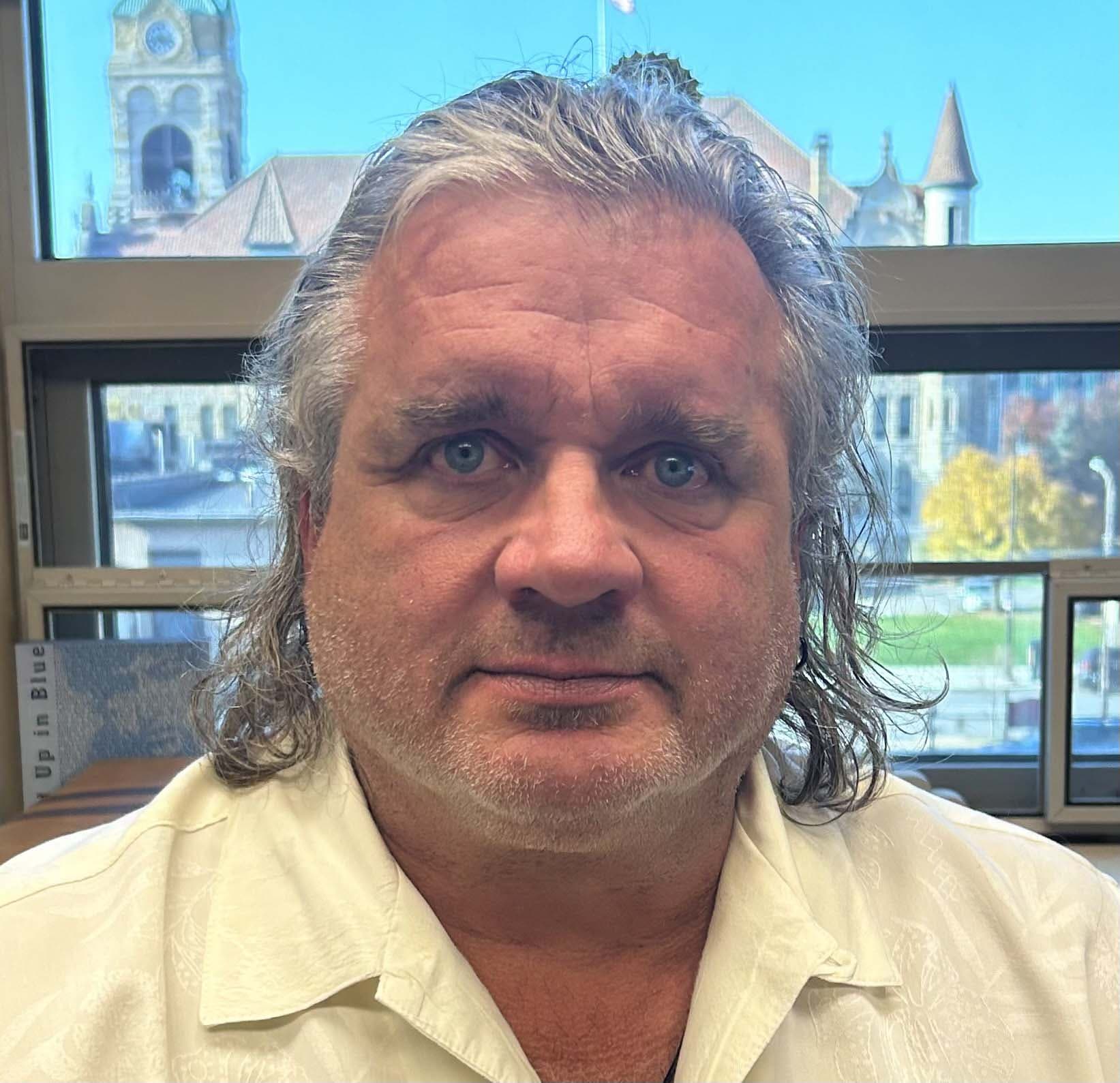 A fellow of the American College of Healthcare Executives, John Wiercinski also was past Regional Pennsylvania Delegate to the American Hospital Association. Currently he serves on the boards of the St. Joseph Center Foundation, Lackawanna/Susquehanna Behavioral Health Intellectual Disabilities Early Intervention Program, and The Greater Scranton Chamber of Commerce. He was past board chairperson for both The Greater Scranton Chamber of Commerce and Lackawanna College.
A fellow of the American College of Healthcare Executives, John Wiercinski also was past Regional Pennsylvania Delegate to the American Hospital Association. Currently he serves on the boards of the St. Joseph Center Foundation, Lackawanna/Susquehanna Behavioral Health Intellectual Disabilities Early Intervention Program, and The Greater Scranton Chamber of Commerce. He was past board chairperson for both The Greater Scranton Chamber of Commerce and Lackawanna College.
Prior to joining the University full time in 2016, Wiercinski worked as a healthcare administrator for more than 30 years, most recently as Regional Vice President for Geisinger Northeast. Previously, he was President/CEO for Shamokin Area Community Hospital, and COO for Bradford Regional Medical Center.
Wiercinski also served as Director of the Bureau of Health Planning for Governor Robert Casey, and as an Assistant Administrator/Captain at U.S. Air Force Hospital, Dover, Delaware.On the Lighter Side
Wiercinski was recently asked to be the Faculty Mentor to the University's women's volleyball team. He described this role as "an incredibly rewarding experience."
Who is your favorite musician?
"Bob Dylan. An individual whose lyrics and writings influenced so many in this world, that he was awarded the Noble Prize in literature. His contribution to music, moral issues, and conscience is unparalleled in history. The poet of a generation."
FACULTY PROFILE: A Conversation with Professor John Wiercinski
-
10/27/2022
As Faculty Specialist in the Operations & Analytics Department at The University of Scranton, David Mahalak, Ph.D., aims to provide immersive learning opportunities for students.
“My favorite aspect of teaching is the connection with students,” said Dr. Mahalak. “I do my best to create an environment of mentorship where people can share wisdom to help others see opportunities.”
At the Kania School of Management he focuses on connecting students with educational and professional opportunities throughout Northeastern Pennsylvania. In addition, he has worked personally with students on supply chain management and process improvement internships.
Dr. Mahalak earned a Doctorate of Engineering in Engineering Management from The George Washington University, where his doctoral research focused on using decision support systems to conduct an analysis of alternatives for the Department of Defense acquisition programs.
Here Dr. Mahalak discusses an experience that helped define who he is today, a linear programming class that changed the course of his career and the best advice he ever received from a professor.What has been the biggest accomplishment of your career?
"My greatest accomplishment as a professional was working as a government contractor on the Joint Light Tactical Vehicles and Automated Convoy Operations programs. It was a privilege to work alongside active and retired military personnel. The work that we did extended beyond concepts of revenue and return on investments, and into more meaningful metrics, such as saving lives. It was an extremely rewarding experience to be part of those programs and it helped shaped me into the person I am today."
What is your favorite comment from a student course evaluation?
"A student that said they were challenged in my course, but thankful because it enabled them to do more than they thought they were capable of. As an educator, this is one of my main objectives. I want to provide a challenging, but supportive environment so students can build their self confidence to accomplish their personal, professional and academic goals."
How would you describe the culture of your department?
"The Operations & Analytics Department is very welcoming and open-minded. We are continually discussing the latest industry trends and how we can integrate these concepts into our current and future curriculum. It is great to be part of a department that is adapting to the needs of our students and industry."
How do you think the university's Jesuit mission has impacted your time as a professor?
“There are many talented young people in challenging financial and social situations. I want to give them hope and direction for changing their lives, and show them they also have support within their communities to guide them.”
Best advice you’ve ever received?
"The best advice that I ever received was during my junior year of undergraduate studies. My professor recommended that I take a linear programming class, which ultimately changed the direction of my life. In this course, I found my passion for applied mathematics, specifically within the business domain. After this class, I decided to pursue my master’s degree in operations research, which lead to employment in the government, doctoral research and several professional opportunities.
Looking back, I am thankful that I broadened myself and took that class, because if I didn’t, it is possible that I could have been on a different path. I always encourage students to challenge themselves, explore new opportunities, and have faith that the decisions and work they put in now will lead to amazing experiences in the future!"How are you an advocate for the use of technology in the teaching and learning process?
"Technology is a huge component of the statistics and data analytics classes that I teach. I also share my personal recommendations and encourage students to build skills in computer programming, especially in Python.This is a growing need in industry and will open up more employment opportunities for our students upon graduation."
Why should students consider a major in the Kania School of Management?
"KSOM is an excellent program that is nationally recognized and most importantly, invested in our student’s future. Our faculty includes highly-distinguished researchers, and many of us come from professional backgrounds that enable us to integrate real-world experiences into our courses."
MEET DR. David Mahalak
David Mahalak, Ph.D., is a Faculty Specialist in the Operations & Analytics Department. A native of Wilkes-Barre, who now resides in Dallas, Pennsylvania, he received his Doctorate of Engineering in Engineering Management from The George Washington University. Prior to that he earned a Master of Science in Operations Research from Northeastern University, and a Bachelor of Arts in Mathematics with a minor in Secondary Education from Wilkes University.
Dr. Mahalak has completed master certificate programs at Michigan State University and Villanova University.Inspirational Thoughts?
"My favorite quote is by Aristotle, 'We are what we repeatedly do. Excellence, then, is not an act, but a habit.' I try to model myself upon this principle. Regular actions completed to the best of your abilities will enable you to accomplish your personal, professional, and academic goals."
Is there an event or tradition on campus that you look forward to every year?
"Casino Night is our semester-end Operations and Analytics club event that enables students to relax and have fun before finals, but also raises nonperishable food donations for the CSSJ!"
favorite sports team?
"Philadelphia Eagles, Fly Eagles Fly!!!"
Side pursuits:
"I enjoy playing chess, weight lifting, and volunteer coaching for my children’s’ youth sports teams."
In the news:
* Learn more about Dr. Mahalak's recent participation in a community fundraiser here.
* Read an in-depth profile about his commitment to Northeastern Pennsylvania here.Faculty Profile: A Conversation with David Mahalak, Ph.D.
-
10/26/2022
By: Kelly Nee '23, student correspondent
As assistant professor in The University of Scranton biology department since 2018, Cara A. Krieg, Ph.D., uses a local population of wild songbirds to understand social behavior and communication.
Dr. Krieg is originally from Woodstock, Illinois. She received her B.A. from Grinnell College, and Ph.D. from Michigan State University, with a dual degree in Zoology and Ecology, and Evolutionary Biology and Behavior.""I am one of a handful of field biologists in the department. This means that I do most of my research work outside rather than in a laboratory. Students in my lab get hands-on experience with wild animals living in their natural environment," said Dr. Krieg.
She discusses what she brings to the biology department, the University's Jesuit mission, and her current research in the field of bird behavior."I am a behavioral ecologist who uses many techniques from population ecology. This means I spend a lot time watching the behavior of wild birds, and I know a lot about each individual bird in my population. From a teaching perspective, I bring an expertise in animal behavior, animal communication, and evolutionary theory."
What are your current research interests?
"I am broadly interested in how ecological and evolutionary forces shape social behavior in wild animals. My lab works with a wild population of house wrens (a native songbird) nesting at Lackawanna State Park. My work is currently focused on two behaviors that have historically been understudied in female animals: female-female aggression and female bird song.
Some work of the past couple summers has focused on (1) whether more aggressive females face longer term costs to survival or health, (2) whether males adjust their reproductive effort when they are mated to a more competitive, aggressive female, (3) how females use their song during naturally occurring territorial conflicts, and (4) how female physiology influences female song production and how this differs from what happens in males."
How do you think the university's Jesuit mission has impacted your time as a professor?
"The culture of ‘cura personalis’ has definitely impacted my lived experience in this job. I care about my students’ success, both in the classroom and then as humans. It’s refreshing to be at an institution where this type of work is valued and encouraged versus being in a competitive environment where people are focused on tearing each other down.
I also think the University’s Jesuit focus probably impacts the type of student I have in my classroom. I’ve found that students here tend to be more motivated by social justice issues than they have at other institutions where I’ve taught. It’s much easier to teach about aspects of environmental science that impact human society when I know I’m not speaking to deaf ears."
What location on campus brings you inspiration?
"I’m a big fan of Loyola Science Center. I love how the windows are such a big part of the design. I enjoy being able to look out my office window and see the plants and birds, even if I am still working inside."
How would you describe the culture of your department?
"Collaborative. My colleagues are always willing to lend lab equipment, teaching materials, or expertise when someone asks. Although we might disagree on the exact solutions, I think we all agree on what is most important. I think this makes for a healthy department."
What IS your strength as an instructor?
"I'm a big proponent of active learning. Students in my lecture courses can often be found having discussions or working on activities in addition to listening to lectures. My hope is that this makes the science easier to learn and more accessible to those who might find a science course intimidating. At my heart, I’m a big science nerd. I think that enthusiasm is infectious. I try to project that enthusiasm when I’m teaching my courses. My hope is that students leave a little more excited about the biology than when they arrived."
What is your favorite comment from a student that you’ve ever received on a course evaluation?
"Dr. Krieg was an awesome professor from start to finish and made me feel excited about and engaged in science material for the first time in my academic career at any level. She was passionate about her subject matter and did an excellent job of communicating content and expectations with students. I would recommend her and any of her classes to any student at the U.”
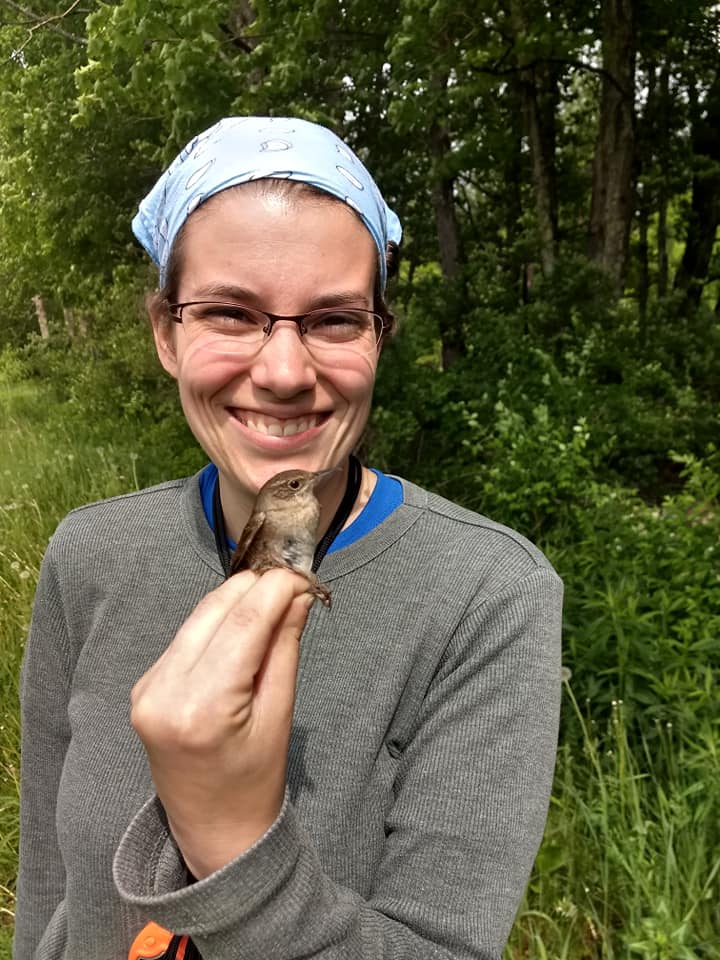
Get to Know Dr. Cara A. Krieg
"The Office is my go-to show when I’ve had a stressful day. (This was true even before I took a job in Scranton, PA!)"
"I grew up in a very musical family, so my music tastes are quite eclectic. Here’s a random smattering of things I enjoy: Cake, Iron and Wine, Jain, Sarah Jarosz. I’ve also sung with choirs for most of my life, so I enjoy a good choral arrangement. Eric Whitacre is one of my favorite composers. It’s probably not a coincidence that I now research bird songs!"
FACULTY PROFILE: A Conversation with Dr. Cara Krieg
-
10/25/2022$content.getChild('content').textValue
By: Claire Sunday '23, student correspondent
As the Director of Clinical Education in the department of Physical Therapy at the Panuska College of Professional Studies, Janette Scardillo '05, G'06, DPT'09, reminds her students of a goal that should fuel their studies. The skills and knowledge they gain today will enable them to help others as they move forward in their careers.“Cura Personalis,” she said, “is very important in our profession.”
The Latin phrase that translates as “care of the whole person,” aptly describes how physical therapists should view anyone in their care -- not just as a patient, but as a whole person, she said.
National Physical Therapy Month each October provides an opportunity for patients to better understand the care that is available to them, and for physical therapists to advocate for their profession, she added.Dr. Scardillo, of Whiting, New Jersey, was named faculty specialist at The University of Scranton in 2017, returning to her alma mater as an educator with a breadth of experience.
After earning a doctorate in physical therapy in 2009, she worked as assistant professor and co-director of clinical education at Thomas Jefferson University, Philadelphia, and as a traumatic brain injury and patient therapist at the Walter Reed National Military Medical Center, Bethesda, Maryland.Dr. Scardillo recalled many career-affirming moments from her time there, and said those experiences inspired a commitment to service.
$content.getChild('content').textValueSharing her passion for service
While at the University, Dr. Scardillo has participated in domestic and international service trips. She has traveled to aid the community in Guatemala twice with the department of physical therapy.
“Being able to serve the community as a faculty member with my students has been really rewarding,” Dr. Scardillo said.
Locally, she serves on the board of directors of Cinderella's Closet, and volunteers with the Junior League of Scranton and Friends of the Poor, among other organizations.Opportunities for students have evolved post-pandemic, and Dr. Scardillo said the department of physical therapy has integrated skills into their program to prepare students for those changes.
Dr. Scardillo incorporates a high-fidelity mannequin into patient simulations for students in the department to learn skills appropriate for the inpatient physical therapy settings. Formal simulations have been added into the Advanced Patient Management and Cardiovascular and Pulmonary Physical Therapy courses within the DPT curriculum, she said.
"I'm not afraid to challenge them, which is one of the best ways for them to learn."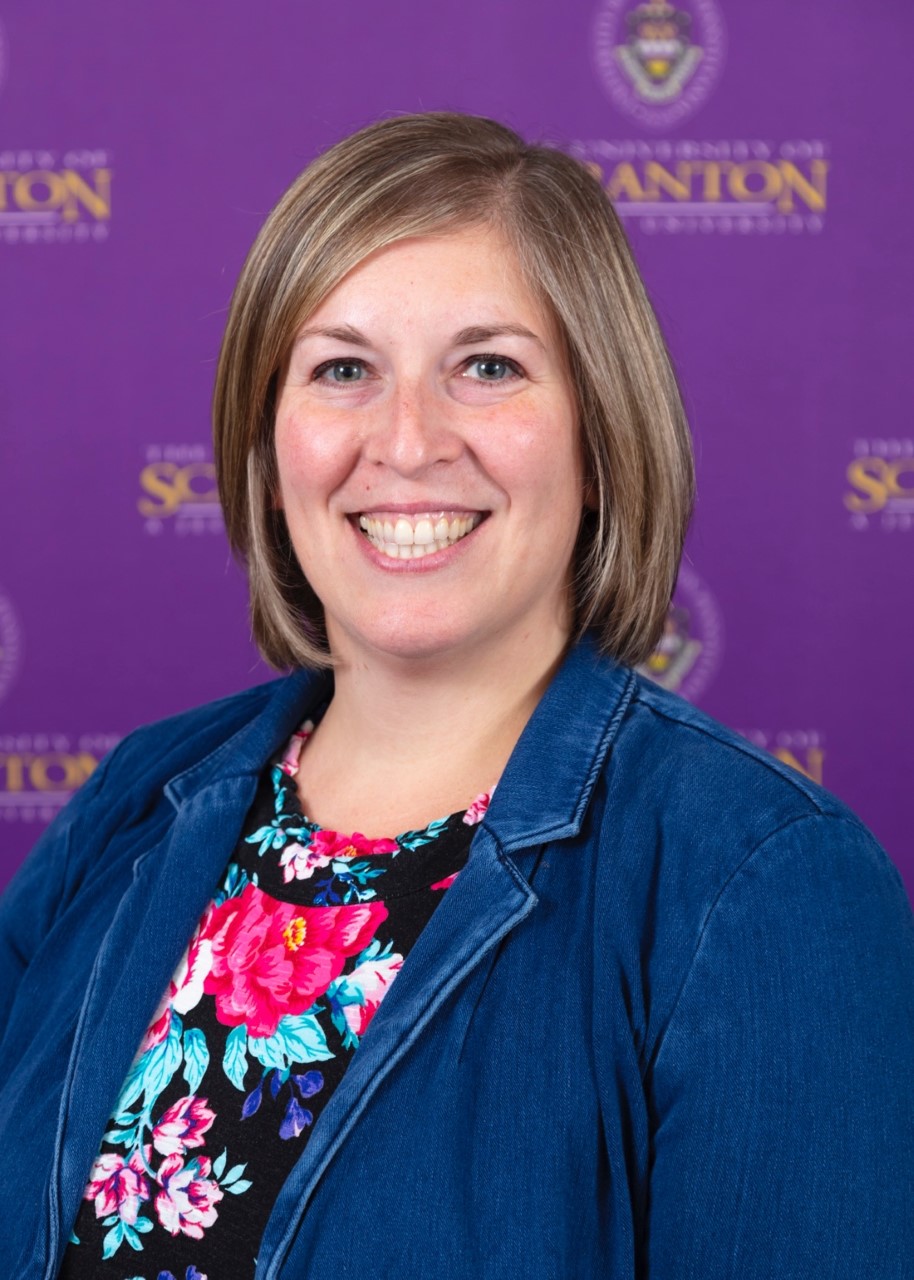 MEET DR. JANETTE SCARDILLO
MEET DR. JANETTE SCARDILLODr. Janette Scardillo, of Whiting, New Jersey, earned doctorate and master's degrees in physical therapy in 2009 and 2006, respectively, and a bachelor's degree in health science in 2005, all from The University of Scranton.
Before joining the faculty at the University, she worked as an assistant professor and co-director of clinical education at Thomas Jefferson University. Prior to her time as an educator, Dr. Scardillo worked as a physical therapist in New Jersey, Washington, D.C., and Maryland.Which location at The University of Scranton brings you Inspiration?
"The University's Chapman Lake Retreat Center holds many fond memories."
Faculty Profile: A Conversation with Janette Scardillo '05, G'06, DPT'09
-
10/19/2022
On Wednesday, Oct. 26, the University of Scranton community is invited to “Celebrate Argentina”. This Spanish cultural event is being led by Magali Ferrer, Fulbright scholar and graduate teaching assistant in the World Languages Department at the University for the 2022-2023 academic year.
The event will take place in Leahy Hall 235, the Kane Forum, from 4 to 5 p.m. Various cultural activities will take place, including preparing traditional Argentinian drinks, playing games, and participating in trivia. Everyone is encouraged to attend and experience a celebration of Argentina.
Ferrer, who is from San Rafael, Mendoza, a city located in the western central part of Argentina, said that Argentinian culture is very family focused.
Ferrer explained: “Family and friends get together to celebrate anything happening, even small things." She said that because of the family-centered culture “You will never, ever be alone.”
"I am really excited about being part of the Scranton community, and I hope to meet many of you while I am here!" said Ferrer.
Last month, Ferrer opened the University's Global Insights program for 2022-23 with a presentation on her home country.Fulbright Scholar Will Lead 'Celebrate Argentina' Event Oct. 26
-
10/05/2022
The University of Scranton Strategic Plan 2020 highlights diversity and inclusion as one of the five main goals: “Diversity & Inclusion - A Welcoming and Supportive Community: Reflect and understand the diversity of the world by demanding that diversity be a priority as we build an inclusive community and campus culture, develop and deliver our education and shape our student experience.”
The Diversity Initiatives Review Board is accepting applications for grants to support creative, educational programs that promote diversity, provide opportunity for inter-cultural engagement and expand opportunities for multicultural experiences for our community.
With the strategic plan goal in mind, we have committed to “expand both required and in-time orientation, training and leadership programming and resources for students, faculty, and staff that promote inclusion and cultural understanding, furthering our collective ability to be a more welcoming and respectful campus community.”
Some of the campus initiatives that have been made possible by this grant are:- TA Talks featuring the teaching assistants in the World Languages and Cultures department;
- Safe Zone Training through the Cultural Centers;
- Festival of Nations hosted by the Multicultural Center;
- Holi Festival of Colors through the Asia Club and Asian Studies department;
- Justice on Tour through Office of Community Outreach;
- the Annual disAbilites Conference keynote speakers including RJ Mitte, through the Panuska College;
- Safe Zone training;
- the Weinberg Library International Film Festival;
- Hope Horn Gallery exhibitions and lectures;
- art exhibits, multicultural music events and many more.
The Diversity Initiatives Fund is available to students, faculty and staff, campus groups, departments or individuals seeking to promote a greater understanding of diversity through inclusive pedagogies, educational opportunities, multicultural activities and community outreach programs. The grant is intended to launch new, innovative, or educational opportunities for the University community. Recurring projects may apply for funding as well.
Please visit the Diversity Initiatives webpage for a full list of recent award winners, and to access the guidelines and application.
Applications will be accepted, reviewed and approved on a rolling basis. Semester deadlines for applications are November 30 and April 30. Questions on the application process may be sent to Jennifer.pennington@scranton.edu.Diversity Initiatives Review Board Now Accepting Applications
- TA Talks featuring the teaching assistants in the World Languages and Cultures department;
-
10/04/2022$content.getChild('content').textValue
By: Claire Sunday '23, student correspondent
Professor Michele Boland joins The University of Scranton as a new faculty member in the Department of Nursing at the Panuska College of Professional Studies.Her breadth of experience includes work in clinical and hospice care in large, inner-city hospitals and more insular community facilities. At the Hospital of the University of Pennsylvania, Philadelphia, her roles encompassed administration and critical care nursing. At the Presbyterian Hospital in Philadelphia, she worked in administrative and supervisory roles.
“Each facet of nursing within which I have worked has provided me with a diverse skill set and a broad knowledge base that I am able to share with my students,” Prof. Boland said.
WHAT are two takeaways students can gain from Professor Boland's Experiences?
1. Nursing offers a broad range of professional opportunities.
Prof. Boland brings 15 years of nursing education experience to the university. Her professionial background demonstrates the range of opportunities available to students. Previously, she served as a faculty member at the Career Technology Center Practical Nursing Program in Scranton and the Delaware County Practical Nursing program in Philadelphia.
2. Impactful moments in patient care can change the course of a career.When asked to share a career-affirming moment, Prof. Boland recalled her work as a young hospice nurse. Her first patient, a terminally ill man, was a devoted Philadelphia Phillies fan. To put him at ease and create an environment of comfort, she would review game statistics and news about the team in advance of her visits. The two established a bond. After his passing, his wife shared with Boland that he had viewed her as one of his best friends.
Prof. Boland said she has never forgotten this conversation and wants her students to understand that these impactful moments are part of the nursing profession. Through the profession of nursing, Prof. Boland said she has found love, passion, and joy.
WHAT DO YOU RECOMMEND TO SOMEONE INTERESTED IN PURSUING A CAREER IN YOUR FIELD?
Prof. Boland reminds her students to explore the diverse fields in nursing. Students have opportunities to work as advanced practitioners, administrators in hospitals and healthcare systems, specialists in end-of-life case management, and educators.
“The one-on-one nurse-patient relationship will always serve as the basis of our profession, however, the present and future of nursing affords graduates with many more opportunities than might first come to mind,” Prof. Boland said.
MEET PROFESSOR Michele Boland
Professor Michele Boland earned a master's degree in nursing education from the University of Phoenix and graduated from the University of Delaware with a bachelor's degree in nursing. She is currently pursuing a certification in nursing education and is a member of Sigma Theta Tau. In 2022, she was hired as a lecturer in The University of Scranton department of Nursing. To the department, Prof. Boland brings 15 years of nursing education experience.
ON THE LIGHTER SIDE
As the mother to three, Amanda, Brian, and Paige, Prof. Boland said that her nursing skills are also put to use at home. When finds the opportunity to relax, it's with her family and with music, television, or books. Her favorite music artist is Coldplay, and her most recent binge-worthy Netflix show is "Outlander". She also has just read "Where the Crawdads Sing," and would recommend it.
FACULTY PROFILES: A CONVERSATION WITH Professor Michele Boland
-
09/20/2022
Meet the Fulbright Teaching Assistants and visiting instructor from the World Languages and Cultures Department. They are sharing knowledge of their native languages and cultures with the community. Read below to find out more, including their teaching assistant hours.
P. Magalí Ferrer, ArgentinA (Spanish)
“Hola! My name is P. Magalí Ferrer and I am the Argentinian Fulbright Teaching Assistant for the academic year of 2022/23. Therefore, I will be teaching Spanish. I am from San Rafael, Mendoza, a city located in the western central part of Argentina. It is home to the highest mountain in America (Mount Aconcagua) and it is also the center of the Argentinian wine industry, which is recognized worldwide. I earned a BA in the teaching of English as a Foreign Language and I am currently working on a Specialization in the Teaching of Spanish as a Foreign Language, as well as on a postgraduate degree in TEFL. Apart from teaching, I absolutely love meeting new people and learning about their languages and cultures. Besides, I enjoy hanging out with friends, walking, getting to know new places, among other things. Finally, I am really excited about being part of the Scranton community, and I hope to meet many of you while I am here!”
Professor Ferrer will be teaching Spanish, and her teaching assistant hours are on Thursdays from 2:30 p.m. to 3:30 p.m.
Celine Victoria Seeger, Germany (German)“Hallo! My name is Celine Victoria Seeger and I will be this year’s German Fulbright FLTA. This fall, I will be teaching the beginner and elementary German courses. I am from the south of Germany and am currently pursuing my Master’s program at University of Scranton in Education with English and history as my majors. I am a big fan of literature and spend a good deal of my free time reading; but I am also a lover of the outdoors and love hiking and running. I am originally from the northern Black Forest, so in summer I go for a couple of hikes there, it’s the most beautiful place! Furthermore, I like traveling and getting to know new cultures a lot and lived in Australia for half a year and taught German at a community school in the southeast of Ireland. I am very much looking forward to getting to know you, taking some classes in American history here in Scranton and sharing my language and culture with you! If you have any questions about me or my German language courses, please reach out and do not hesitate to contact me!”
Professor Seeger will be teaching German and her teaching assistant hours are on Thursdays from 2:30 p.m. to 3:30.p.m.Badoor Albuloushi, Kuwait (Arabic)
“My name is Badoor Albuloushi. I’ll be teaching Arabic this year. I was born in Kuwait. I studied teaching English as a second language at Kuwait University. I have my master’s and Ph.D. in Special Education, Gifted Education at Arabian Gulf University in Bahrain. I am the head of the English department at Al Rajaa School for Girls, Special Education. I taught English as a second language to primary school, middle school, high school up to university level. I also taught American sign language to Arabic deaf and hard of hearing students for four years. In my free time I love to paint in my art studio, visit the art gallery, or hang out with friends. I love teaching and I enjoy it. I am really excited to teach Arabic this year.”
Dr. Albuloushi will be teaching Arabic and her teaching assistant hours are on Fridays from 12 p.m. to 1 p.m.
Audrey LeCerf - France (French)“Bonjour tout le monde! My name is Audrey, and I am the French Fulbright Teaching Assistant for the academic year 2022-2023. I come from the North of France near the city of Lille, and have always lived there. I studied foreign languages – namely English and Mandarin, business, and political science. I love traveling and meeting people from all around the world. I went on a student exchange to Taiwan before for a semester and loved it, so I am really looking forward to spending this year in Scranton and to discovering more about American culture! I love discovering new languages as I find it so rewarding, and I hope I can help you all feel that rewarding feeling with the French language. Hoping to meet you soon!”
Professor LeCerf will be teaching French and her teaching assistant hours are on Wednesdays from 10 a.m. to 11 a.m.
Chiang Yun, Taiwan (Chinese)
“大家好!My name is Chiang Yun. You can just call me Yun, or my English name, Lily. I was born in Taipei, Taiwan. You may not know where Taiwan is. Taiwan is a little island between China and Japan. Taiwan is a multicultural island. Taipei is the capital of Taiwan, with a lot of delicious food and motorcycles. Have you tried bubble tea and hot pot? Try it and you will love it! I graduated from Zhong Yuan University with a bachelor’s degree in teaching Chinese as second language. After graduation, I taught at an international Chinese school in Korea for six years, so I can speak Korean and I also like watching Korean dramas. While I was working, I went to the National Taiwan Normal University to gain my master’s degree in teaching Chinese as second language. It was hard work, but worth it. I like Chinese since it’s a beautiful language with a lot of culture and history. I also like to experience different cultures. I am honored to teach in Scranton. I wish to bring my knowledge to the students because I believe (教学相长) students can learn from me and I can learn from them too.”
Professor Chiang is a visiting instructor and will be teaching Mandarin here at the University.
Fulbright Teaching Assistants, Visiting Instructor Share Cultures
-
09/20/2022
The Office of the Provost, the Faculty Development Subcommittee of the Council for Diversity and Inclusion, and the Office of Equity and Diversity invite all faculty to the inaugural faculty development day, to take place Friday, Sep. 23. 2022 in Brennan Hall.
Registration is required for the keynote luncheon. R.S.V.P. here.
All faculty are invited to participate in any or all workshops during the all-day event.
The schedule of events is as follows:
9:30-9:50 a.m. - Sign-In, Location: Brennan Hall 5th floor lobby
9:50 a.m. – Welcome: Dr. Michelle Maldonado, Location:The Rose Room, 509
10:00 - 10:50 a.m.
- PILLAR Program
Presenters: Ayana McCalla, Dr. Madeline Gangnes, Dr. Amelia Randich, Dr. Billie Tadros, Elisa Westhafter, and Jennifer Whittaker, MS, OTR/L, CHE, Location: Casey Conference Rm, 502
- “Isms”
Presenter: Dr. Paul Datti, Location: The PNC Board Room, 500
- Student Mental Health Awareness: Recognition and Response
Presenters: Dr. Robert Liskowicz and Lauren Rivera, J.D, M.Ed., Location: The Rose Room, 509
11:00 - 11:50a.m.
- Building DEI Partnerships for Student Leaning Inside and Outside the Classroom
Presenters: Dr. Ovidiu Cocieru, Dr. Roxana Curiel, Dr. Ann Pang-White, and José Sanchez, Location:The Rose Room, 509
- Navigating DEI in the Classroom: Faculty Insights
Presenters: Dr. Jessica Nolan and Dr. Jack Strain, Location: The PNC Board Room, 500
12:00 - 1:30 p.m. Keynote Luncheon: From Access to Success: Supporting and Empowering First Generation, Lower-Income Students in Diversifying Institutions
Presenter: Dr. Khristina F. Gonzalez, Associate Dean of the College, and Bob Peck ’88 Director of the Emma Bloomberg Center for Access and Opportunity at Princeton University, Location: The Rose Room, 509
Registration required by Wednesday, Sept. 21 by noon for luncheon. RSVP here.
1:30 - 3:45 p.m.
- Race and Ethnicity Awareness Training
Presenters: Dr. Tara Hamilton-Fay and Elizabeth Garcia, B.A, J.D., Location: The Pearn Auditorium, Brennan 228
- Safe Zone Training
Presenters: Shannon Murphy-Fennie, B.A, MS and Dr. Billie Tadros, Location: The Casey Conference Room, Brennan 502
Sponsored by the Office of the Provost, the Council for Diversity and Inclusion’s Faculty Development Subcommittee, and the Office of Equity and Diversity.
Contact diversity@scranton.edu for more information.
Faculty Development Day: Creating a Welcoming and Inclusive Classroom
-
09/19/2022
By: Kelly Nee '23, student correspondent
Dr. Brian Snee is an Associate Professor in the Communication and Media Department who is native to the Northeastern Pennsylvania area. He has worked for The University of Scranton since 2020 and is the author or co-author of several books, book chapters and journal articles. In 2017, he led a TEDx Talk titled "How the Virtue of Eloquence Became a Vice."
Here, he discusses his emphasis on teaching "practical, marketable skills," the connectivity of Community-Based Learning, and an event on campus he looks forward to every year.
What do you recommend to someone interested in pursuing a career in your field?
"I always tell my students to think about their dream job. Professional athlete? Movie star? Famous musician? Fashion designer? Social media influencer? President of the United States? Whatever you are interested in, communication and media is a way to make that field central to your professional life. You may not make it to the NFL, but you can make it to ESPN. You may not become president, but you can work for CNN or Fox News. You make not become a recording artist, but you can make documentaries about the music you love."
Why should students consider a major in the communication and media department?
"Most people work at a job they do not truly enjoy, and then in their free time they consume media content. We get to combine the two, getting paid to read and write and think and talk and create that which is genuinely interesting to us. That’s not a bad way to make a living."
What has been the biggest accomplishment of your career?
"My family is the biggest accomplishment of my life. But as for my professional life? Probably finishing my Ph.D. at Penn State. Had I not crossed that goal line, the jobs I’ve had and the books I’ve published and the students I’ve taught never would have become the wonderful world in which I get to live and work."
How do you think the university's Jesuit mission has impacted your time as a professor?
"I have fully embraced the university’s commitment to Community-Based Learning. Giving my students the opportunity to work with and for important non-profits and small family businesses in NEPA is the most Ignatian aspect of my teaching."
"I hope that my deep dive into Community-Based Learning is one of the ways in which I contribute to Communication and Media. In fact, this year I’m excited to serve as a C-BL Fellow, working with the C-BL office to make community connectivity and commitment central to the experience that I offer in my classes."What are your current research interests?
"I’m currently working on several projects about the PA Senate race between [Democratic Lt. Gov. John John] Fetterman and [Dr. Mehmet] Oz. It’s absolutely fascinating. I’ve never seen anything quite like it."
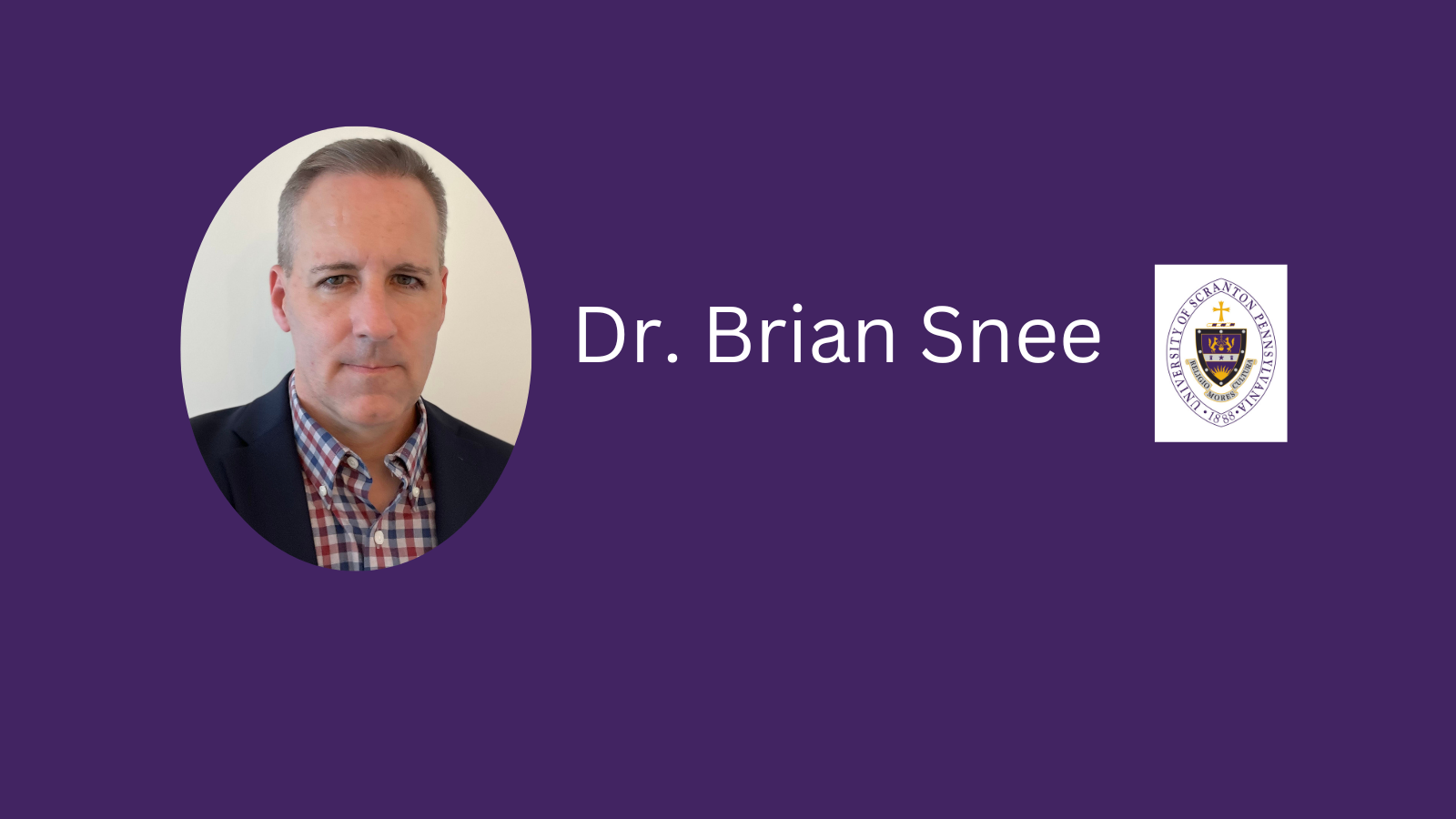
How would you describe the culture of your department?
"It’s a tightly-knit community. Perhaps because we are somewhat isolated in the Comm's Wing of St. Thomas, we interact on a daily basis, and not just in class or in faculty meetings. Everyone knows everyone."
What IS your strength as an instructor?
"I’d like to think it’s my focus on the development of practical, marketable skills that are built of a solid foundation of liberal arts education in the Jesuit tradition. Even when I fall short, that is always my goal. I also try to be the kind of instructor who takes the work seriously, but not himself. We can learn and have fun at the same time."
MEET Dr. Brian Snee
Dr. Brian Snee earned a doctorate amd master's degree in communication arts and science from Penn State University; and a bachelor's degree in communication from The University of Scranton. Throughout his distinguished career, Dr. Snee received several grants and awards, and in the area of curriculum development, he created a Digital Media Production B.A. degree program at Manhattanville College.
ON THE LIGHTER SIDE
"On Saturdays, I root for Notre Dame and Penn State football. In the car, I listen to podcasts more than music (I have a four-hour round trip commute…). And Netflix has yet to replace 'Ozark' or 'Better Call Saul' with anything nearly as good."
Is there an event or tradition on campus that you look forward to every year?
"There is nothing more exciting than the first week of fall classes. Although it means back to school and back to work, it also means the campus comes alive again with students, faculty and staff, all of whom are excited about another year at the U."
FACULTY PROFILE: A Conversation with Dr. Brian Snee
-
09/14/2022
Margarete L. Zalon, Ph.D., professor of nursing, received the John L. Earl III Award for service to the University, the faculty and the wider community. The 2022 John L. Earl III Award was presented at the University’s annual Fall Convocation, which took place on campus on Sept. 2.
The award is given annually to a member of the University community who demonstrates the spirit of generosity and dedication that the late Dr. John Earl, a distinguished professor of history, exemplified during his years at Scranton from 1964 to 1996.
Daniel J. West Jr., Ph.D., professor and chair the Health Administration and Human Resources Department at The University of Scranton and the 2021 John L. Earl III Award recipient, announced Dr. Zalon as the 2022 recipient at the Convocation. Rev. Joseph Marina, S.J., president of The University of Scranton, presented the award to Dr. Zalon.
During her more than three decades of service at the University, Dr. Zalon has served on numerous committees, including in leadership roles on the Faculty Senate and FAC. As director of the University’s online Master of Science in Health Informatics Program, Dr. Zalon has played a pivotal role in the program’s success. In 2021, the graduate program received accreditation from the prestigious Commission on Accreditation for Health Informatics and Information Management Education (CAHIIM).
Dr. Zalon, who has been a member of Scranton’s faculty since 1988, was inducted as an American Academy of Nursing Fellow in 2010 in part for her positive influence on health care policy and delivery. Her leadership legacy includes grassroots advocacy, progressive program design, execution and outcomes in state and national nursing organizations focused on establishing practice and education policy, and building research funding capacity.
Dr. Zalon is a past chair of the American Nurses Foundation, a former board member of the American Nurses Association and a past president of the Pennsylvania State Nurses Association.
Dr. Zalon’s research focuses on vulnerable elders. She has authored book chapters, as well as articles published in numerous scholarly journals and other professional publications. She has also made research and health policy presentations at the local, state, national and international levels. She is the co-author of the book “Nurses Making Policy: From Bedside to Boardroom” with Rebecca M. Patton, MSN and Ruth Ludwick, Ph.D.
Dr. Zalon is a recipient of the Duke University School of Nursing Distinguished Alumna Award, the PSNA Distinguished Nurse Award and a Leahy Fellowship at The University of Scranton. She also received the University’s Excellence in Advancing Interdisciplinary Study Award in 2020.
Dr. Zalon earned her bachelor’s degree from Duke University and her master’s and Ph.D. degrees from New York University.
Margarete L. Zalon, Ph.D., Receives Earl Award
-
09/13/2022$content.getChild('content').textValue
By: Claire Sunday ’23, student correspondent
Nicole Hoskins, Ph.D., is an assistant professor in the theology department at the University of Scranton who became a full-time faculty member in the 2021-2022 academic year.
Dr. Nicole Hoskins brings classes on Black theology and African American Christian history to the theology department at The University of Scranton. In these classes, she helps her students to grow in their faiths. She also challenges their thinking so that they might come to “see themselves as active participants in their education.”
Dr. Hoskins’ courses focus on those who have been marginalized in our communities, and it is through this perspective that she incorporates the Jesuit mission into her classroom.
“Being people for others,” she said, “means something more when you realize how marginalized people have been othered. Caring for the whole person means something more when you realize that because of enslavement, Black people were considered non-human and later ¾ of a person.”
She does not shy away from the truths of our history’s racist past, but she also does not let our history place her students in despair. For example, she confronts with her students the Black enslavement by the Jesuits, but with hopes that “we let it inform us [on] how to build a more just path forward.” Students in her classroom are encouraged to contend verbally with new knowledge being presented to them and to grow in understanding with their peers. They are inspired to turn their feelings into a passion for justice so that they may help to create a fairer and more equitable world.
Dr. Hoskins seeks to continue her efforts for students at The University of Scranton by working with two new Black faculty members to create the school’s first Black Studies concentration. Together, they are aspiring for Black Studies to be offered one day as a major for Scranton students. Additionally, she hopes that the University will continue to take measures to improve the diversity on campus; she hopes that “the University continues to hire diverse faculty members and staff whose goal is to confront anti-Black racism and…that the University does more targeted outreach in the city of Scranton. The city of Scranton is more diverse than the University of Scranton. The good news is that we don’t have to look far to find more diverse students.”
Current research interests are leading Dr. Hoskins to think critically about discussions between Black studies and Native American studies. She believes these conversations can have an impact on how environmental ethics and eco-theology are considered: “We’ve been talking about the making of the category of the human and the making of the land as land in relation to Blackness and indigeneity.”
Currently, the professor is teaching a Black Spiritual Feminism class, as well as a Theology II class, and some students have elected to take multiple classes offered. This speaks to her impact on students, which may mirror the impact that someone once had on Dr. Hoskins: “It wasn’t advice…it was seeing. They said to me, ‘You are enough.’.” This is how she hopes students feel in her classes. More importantly, it is how she calls her students to view others.
MEET NICOLE HOSKINS, PH.D.:
Dr. Nicole Hoskins graduated from Spelman College with a bachelor’s degree in religious studies before graduating from Harvard Divinity School with her Masters of Divinity. At Drew University, Dr. Hoskins received her Ph.D. in religion and society. There, she was the recipient of the Charlotte W. Newcombe Fellowship, Louisville Institute Fellowship, and the Forum for Theological Education Fellowship.
Faculty Profiles: A Conversation with Nicole Hoskins, Ph.D.
-
09/13/2022
Professor Sylvia M. Orner, Collections and Resource Management Librarian at the University of Scranton Weinberg Memorial Library has been elected as the First Vice-President/President Elect for the Pennsylvania Library Association (PaLA). She is an assistant professor in the Weinberg Memorial Library.
As First Vice President for 2023, Professor Orner will lead the organization's legislative efforts and advocate for fair funding of libraries in Pennsylvania. In 2024, she will serve as President of the Association. As President, she will preside over board meetings, run the annual membership business meeting, make appointments to committees, and advise on the operations of the organization.
Professor Orner has been a member of PaLA since 2010 and has served in various leadership positions, including Conference Committee Chair in 2020 and Chair of the Leadership Development Committee from 2017-2018. She joined the University of Scranton Weinberg Memorial Library in 2020. She began her journey to librarianship at a young age as an after-school page at the West Pittston Library. Upon completion of her MLIS, she served in various technical service roles at the Osterhout Free Library, Wilkes-Barre, PA and the Scranton Public Library, Scranton, PA.
Professor Orner earned her Bachelor of Arts in Philosophy from Gettysburg College and her Master of Science in Library and Information Science from Syracuse University.
State association elects University Librarian as First VP/President Elect
-
09/12/2022
By: Kelly Nee ' 23, student correspondent
Professor Vincent Rocco is a Faculty Specialist in the Operations and Analytics Department in the Kania School of Management (KSOM) who became a full-time faculty member in 2015.
Here, he discusses his time as an educator in the Operations and Analytics Department at the University of Scranton, his role as manager of the Alperin Financial Center, his teaching style, and the university's Jesuit mission."[As manager of the Alperin Financial Center] I was originally hired to train students on the Bloomberg Terminals. It has evolved to teaching classes in Excel, Tableau and Finance, as well. Bloomberg software is used throughout investment banks (Goldman Sachs, JP Morgan, UBS, Morgan Stanley) and we are lucky to have 12 terminals in the Alperin Center. Not every school can say the same."
Professor Rocco explained that the Kania School of Management integrates the Bloomberg Terminals into the Bus140 – First Year Seminar course. Students are assigned companies and required to research current events, financials, and supply chain information, then present the material as part of a final project. Those students who have completed internships previously have gained some familiarity with the terminals, and are using them on the job.
To help improve the overall student experience, he continually seeks new technologies in analytics that can translate well into the classroom.
"Education, and how we learn is always evolving. This offers a great opportunity for us as a University to evolve as well. I think of myself as a resource for students. My door is always open to students who have any questions on college experience, career advice, what major to choose, and networking," he said.
What do you recommend to someone interested in pursuing a career in your field?"In any field, you need to be humble, but not timid, and show an eagerness to learn more. You are not expected to know everything in your chosen field, but eagerness, along with good communication skills, can go a long way. Landing a job is a process that requires as many conversations as possible with people in the field. This includes alumni, professors, family and friends, among others. Do not be discouraged by rejection from a job. Use it as an opportunity to learn, grow, and find the right position."
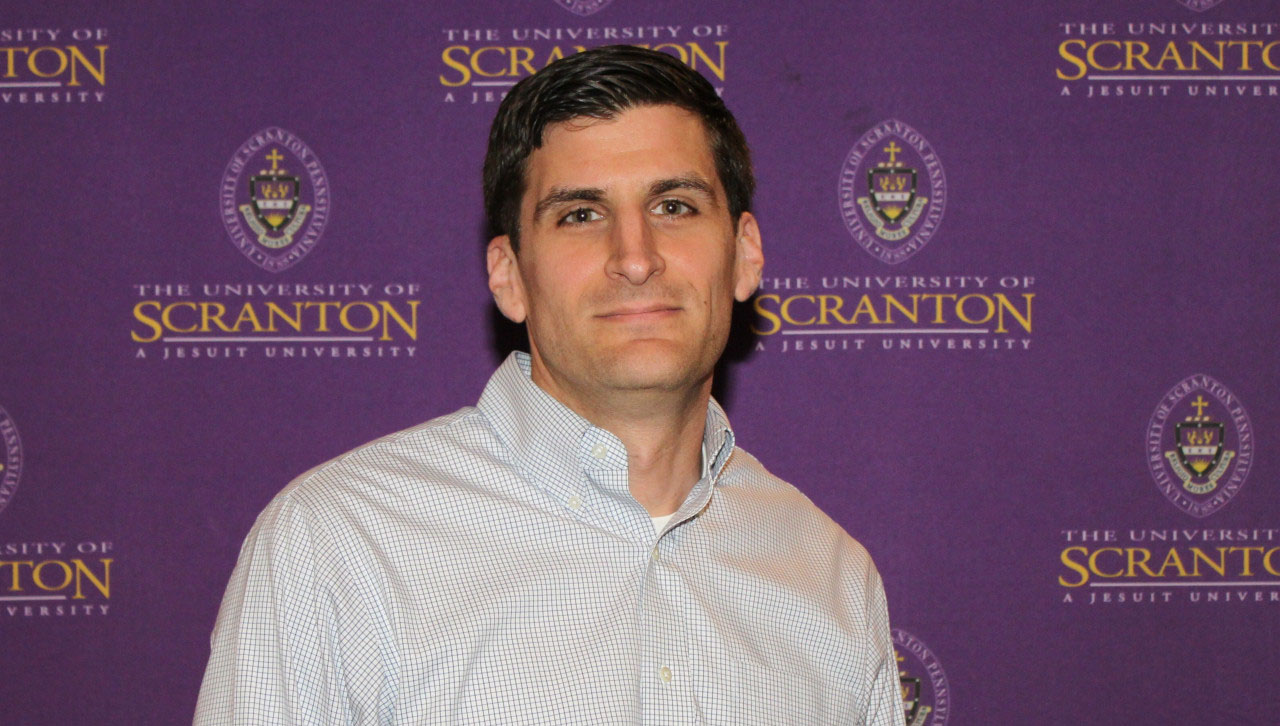
How do you think the university's Jesuit mission has impacted your time as a professor?
"I attended Jesuit high school and college, and now find myself teaching at a Jesuit University. I never thought I would be in a teaching role. I believe that the Jesuit mission of becoming your best self, with continuous education and improvement, has impacted me greatly. I am extremely grateful to the University of Scranton for giving me that opportunity and I now believe it is my mission in helping students do the same."
What haVE been the biggest accomplishmentS of your career?
"Professionally, working as an equity trader in New York during some volatile economic times. Academically, finishing the Chartered Financial Analyst Certification in February of 2022."
MEET Professor Vincent ROCCOProfessor Vince Rocco received his bachelor's from Saint Joseph's University and his MBA from Wilkes University. Prior to joining the University, he worked at Wells Fargo as a private banker and a proprietary equity trader with the Royal Bank of Canada/AMR Capital. In 2019, he was honored with the Kania School of Management (KSOM) "Professor of the Year" award by the University's Business Club.
On the Lighter side
Professor Rocco says his favorite sports team is New York Mets. "This is one of my biggest stresses in life," he joked.
On his playlist you'll find everything from Johnny Cash to Nirvana. "There are so many bands that I love. I grew up in the '90s when Nirvana and Pearl Jam were huge, so I still love that era and listen to that music. But, I also love classic rock like The Grateful Dead, Led Zeppelin, The Allman Brothers Band, Johnny Cash."
FACULTY PROFILES: A CONVERSATION WITH Vincent Rocco
-
09/06/2022
The Office of Equity and Diversity relies on the dedication and service of employees to assist with certain processes under the University’s Sexual Harassment and Sexual Harassment Policy and federal Title IX regulations. They are seeking volunteers to be trained in the following University process roles:
-
Advisors to the Parties
-
Decision-Making Panelists
-
Appeal Panelists
-
Informal Resolution Facilitators
-
Investigators
Office of Equity and Diversity is looking for faculty and staff members willing to serve in these volunteer roles to assist in the process and resolve these matters.
Anyone interested must attend a brief training session. At the end of training, attendees are invited to indicate role(s) in which they would like to participate.
Training will be held via Zoom
-
Sep. 21, 2:30 - 4:30 p.m.
-
Sep. 27, 9 -11:00 a.m.
As the regulations require, training is necessary for employees who have previously served in some or all of these roles. Anyone who has served previously and wishes to continue participation, should register for training.
Interested employees, please register here. With any questions, contact OED at 570-941-6645 or diversity@scranton.edu.Volunteers Needed for University Title IX Process
-
-
08/30/2022
The University of Scranton granted promotions and/or tenure to 11 faculty members effective at the start of the 2022-23 academic year.
Three faculty members have been promoted to professor: Michael Jenkins, Ph.D., sociology, criminal justice and criminology; Marc Seid, Ph.D., biology; and Maria Squire, Ph.D., biology.
Three faculty members were named associate professor: Tiffany Bordonada, Ph.D., counseling and human services; Chris Howey, Ph.D., biology; and Brian Snee, Ph.D., communication and media.
Five faculty members were granted tenure: Julie Nastasi, O.T.D., Sc.D., associate professor of occupational therapy; Ismail Onat, Ph.D., associate professor of sociology, criminal justice and criminology; John Ruddy, D.P.S., associate professor of economics and finance; Alexander Rudniy, Ph.D., assistant professor computer science; and Andrew Venezia, Ph.D., associate professor of health and human performance.
Dr. Jenkins, chair of the Department of Sociology, Criminal Justice and Criminology; received his bachelor’s degree from The University of Scranton, and his master’s degree and doctorate from the State University of New Jersey, Rutgers. He has worked at the University since 2013.
Dr. Seid received his bachelor’s degrees and master’s degree from Brigham Young University. He received his doctorate from Boston University. He has worked at the University since 2010.
Dr. Squire, who is currently serving as the University’s interim associate dean of the College of Arts and Sciences, received her bachelor’s degree from The University of Scranton and her master’s degree and doctorate from Stony Brook University. She has worked for the University since 2005.
Dr. Bordonada received her bachelor’s degree from Fairmont State University and her master’s degrees from West Virginia University. She received her doctorate from the University of South Carolina. She has worked for the University since 2017.
Dr. Howey received his bachelor’s degree from the University of Delaware and his master’s degree the University of Central Arkansas. He received his doctorate from Ohio University. He has worked for the University since 2017.
Dr. Snee received his bachelor’s degree from The University of Scranton and his master’s degree and doctorate from Pennsylvaina State University. He has worked for the University since 2020.
Dr. Nastasi, director of low vision therapy for the Leahy Community Health and Family Center, received her bachelor’s degree from The University of Scranton, her master’s degree from Tufts University and doctorate degrees from the Boston University and Towson University. She has worked at the University since 2011.
Dr. Onat, chief analyst for the Center for the Analysis and Prevention of Crime, received his bachelor’s degree from the Turkish National Police Academy and his master’s degree and doctorate from the State University of New Jersey, Rutgers. He has worked at the University since 2016.
Dr. Ruddy received his bachelor’s degree from The University of Scranton, his master’s degree from George Washington University and his doctorate from Pace University. He has worked at the University since 2013.
Dr. Rudniy received his bachelor’s and master’s degrees from Kharkiv National University of Radioelectronics in Ukraine. He received his doctorate from the New Jersey Institute of Technology. He has worked for the University since 2018.
Dr. Venezia received his bachelor’s degree and master’s degree from Bloomsburg University and his doctorate from the University of Maryland. He has worked at the University since 2016.University Announces Faculty Promotions
-
08/22/2022
Meet Nathaniel Frissell, Ph.D., a professor in the Physics & Electrical Engineering Department. Here, he talks about his work alongside students to study the upper atmosphere and its connection to space.
Read related stories about Dr. Frissell:
August 15, 2022: Students Present Space Physics Research
August 3, 2022: Physics and Engineering Faculty Host Radio Blasters Summer Camp
August 2, 2022 : Professor Awarded Six-Figure NSF Grant
March 28, 2022: Tuning in to the upper atmosphere - Skywatch 16Video: Faculty Spotlight: Nathaniel Frissell, Ph.D
-
08/08/2022
Eleven University of Scranton faculty members were honored with Faculty Enhancement awards for excellence in teaching, scholarship or service. The Office of the Provost and the Provost Advisory Group selected the recipients from a pool of candidates nominated by academic deans and department chairs.
Darla Germeroth, Ph.D., and Margarete Lieb Zalon, Ph.D., received the Excellence for University Service and Leadership Award, which recognizes faculty members who have contributed service to the University community, particularly those who demonstrate academic leadership by effectively mentoring their junior colleagues. Dr. Germeroth, professor of communication and media, joined the faculty at Scranton in 1989. She earned her bachelor’s and master’s degrees from Kansas State University and her Ph.D. from the University of Denver. A member of Scranton’s faculty since 1988, Dr. Zalon, professor of nursing and director of the online Master of Science in Health Informatics Program, earned her bachelor’s degree from Duke University and her master’s and Ph.D. degrees from New York University.
Renee Hakim, Ph.D., and Roberrt McKeage, Ph.D., received the Faculty Senate Excellence in Graduate Teaching Award, which recognizes a faculty member who demonstrates dedication to teaching graduate students in a manner that creates an encouraging and intellectually stimulating environment that promotes critical thinking and learning. Dr. Hakim, professor and chair of the Department of Physical Therapy, joined the faculty at Scranton in 1996. She earned her bachelor’s degree from The University of Scranton, her master’s degree from the University of Pittsburgh and her Ph.D. from Temple University. Dr. McKeage, associate professor of management, marketing and entrepreneurship and director of the Business Leadership Honors Program, joined the faculty at Scranton in 1974. He earned his bachelor’s and MBA degrees from The University of Scranton, his master’s degree from Lehigh University and his Ph.D. from Temple University.
Jennifer Kaschak, Ph.D., received the Excellence in Advancing Interdisciplinary Study Award, which recognizes a faculty member who demonstrates noteworthy academic leadership in promoting and strengthening cross-disciplinary or interdepartmental teaching and learning endeavors. Dr. Kaschak, associate professor of education, joined Scranton’s faculty in 2010. She earned her bachelor’s degree from Illinois Wesleyan University, her master’s degree from the University of Wisconsin and her Ph.D. from Columbia University.
Bonnie Markowski received the Excellence in the Scholarship of Teaching and Learning Award, presented to faculty members who make extraordinary efforts to enhance student learning and who practice teaching as a form of scholarship. Professor Markowski, a faculty specialist in the English and Theatre Department, joined the faculty at Scranton in 2007. She earned her bachelor’s degree from the University of Maryland and her master’s degree from The University of Scranton.
Jessica Nolan, Ph.D., received the Excellence in Integrating Diversity in Learning Award, which recognizes a faculty member whose efforts to integrate diversity in the curriculum have enriched the students’ learning experiences. Dr. Nolan, professor of psychology and director of the environmental studies concentration, joined the faculty at Scranton in 2008. She earned her bachelor’s degree from Cornell University, her master’s degree from California State University and her Ph.D. from the University of Arkansas.
Ismail Onat, Ph.D., received the Excellence in Scholarly Publication Award, presented to faculty members who have attained distinction in scholarship or creative activity. Dr. Onat, assistant professor of sociology, criminal justice and criminology, joined the faculty at Scranton in 2016. He earned his bachelor’s degree from the Turkish National Police Academy and his master’s degree and Ph.D. from Rutgers University.
Matthew Reavy, Ph.D., posthumously received the Magis Award for Excellence in Adapting Classic Principles of Jesuit Pedagogy into the Curriculum. This award is intended to recognize a faculty member who makes specific, sustained, and creative efforts to adapt classic principles of Jesuit Pedagogy in his or her own courses. Dr. Reavy, associate professor in the Department of Communication and Media, who passed away Feb. 2 of this year, joined the faculty at the University in 1998. During his nearly 25-year tenure at Scranton, he served on numerous committees and governance bodies, as department chair and as the faculty adviser to The Aquinas. He earned his bachelor’s and master’s degrees from The University of Scranton and his Ph.D. from the University of Missouri.
In addition, Barbara Bossi, adjunct professor of health administration, and Eric Hosie, adjunct professor of marketing, management and entrepreneurship, were honored with the Part-Time Faculty Award for Excellence in Teaching. Professor Bossi, senior director of network management and development at UPMC Health Plan, has taught as an adjunct professor in the Panuska College of Professional Studies since 2016. A Fellow of American College of Healthcare Executives, she earned her bachelor’s degree from Marywood University and her master’s degree from The University of Scranton. Professor Hosie, a certified financial planner and vice president at M and T Securities, Inc., has taught as an adjunct faculty member in the Kania School of Management since 2008. A graduate of The University of Scranton, he earned his bachelor’s degree in 1988 and his MBA in 1993 from Scranton.
University Faculty Recognized for Excellence
-
08/03/2022
For a second summer, area high school students arrive on campus with an interest in physics and leave knowing how to create and use a radio.
Ten rising sophomores, juniors and seniors attending The University of Scranton Radio Blaster Physics Summer Camp July 27 - 29 culminated the “learning by doing” experience by making radio contacts outdoors in the campus Rose Garden at the corner of Linden Street and Monroe Avenue.Members of the Physics and Engineering department hosted the event, including Dr. Declan Mulhall, Dr. Nathaniel Frissell, and Professor Rachel Frissell. Assisting were current undergraduate students: Veronica Romanek, Simal Sami, Shaaf Sarwar, Cuong Nguyen, and software engineering graduate students Devin Diehl, Franics Tholley, and Nisha Yadav. West Scranton High School Physics teacher Scott Dustman also participated at the camp.
Each day from 8:30 a.m. to 4:30 p.m., attendees learned topics in physics associated with electricity, magnetism, light and radio waves. At the Loyola Science Center, students gained insight on the following common curriculum topics:
* Geometric optics and telescopes
* Wave optics and diffraction
* Basic electronics
* Using an oscilloscope to measure voltages
* Faraday’s law, how to make an electric current with a magnet
* "Looking" at sound waves with a signal generator and an oscilloscope
* Radio waves
* Making and using a radioPhysics and Engineering Faculty host Radio Blasters Summer Camp
-
08/02/2022
Nathaniel Frissell, Ph.D., assistant professor of physics and electrical engineering at The University of Scranton, will lead a $399,211 National Science Foundation (NSF) grant-supported collaborative research project entitled “Measuring Daily Ionospheric Variability and the 2023 and 2024 Solar Eclipse Ionospheric Impacts Using HamSCI HF Doppler Shift Receivers.” As the lead principal investigator, Dr. Frissell will work with students at the University of Scranton, collaborators at Case Western Reserve University, and volunteers across the nation to study how dawn, dusk, and solar eclipses affect the electrified portion of the upper atmosphere known as the ionosphere. This will be done using a network of Global Navigation Satellite System (GNSS) stabilized/synchronized high frequency (HF) receivers (known as Grapes), which were developed as part of the $1.3 million NSF-funded HamSCI Personal Space Weather Station (PSWS) project he was awarded in 2019.
An annular solar eclipse will take place on Oct. 14, 2023 and a total solar eclipse will take place on April 8, 2024.
“These are the last solar eclipses to traverse the continental United States until 2044, and are therefore important, time-sensitive, information rich opportunities for running unique and ‘controlled’ ionospheric experiments,” said Dr. Frissell. “This project takes advantage of the unprecedented opportunity to study the ionospheric impacts of the 2023 and 2024 solar eclipses and the daily ionospheric variability associated with dawn/dusk transitions.”
A better understanding of the impact of ionospheric disturbances is imperative, because these changes can affect crucial navigation and communications systems.
According to Dr. Frissell, this new NSF grant will fund an additional 30 Grape receivers that will be deployed throughout North America. Volunteers from the HamSCI amateur radio community will be able to fund and field additional stations. All stations will run continuously from deployment through at least the end of the project in 2025, and will capture the 2023 and 2024 eclipses. The grant will also support master’s and Ph.D. level student participation in the research data collection and analysis.
“This project will also establish a new network of measurement instruments that, due to its low- cost and operation by volunteers, has the potential to provide measurements for years to come,” said Dr. Frissell, who also noted that results of the project “will be shared widely with the amateur radio community through presentations at amateur radio conventions, local clubs, and publication in amateur radio magazines and journals.”
In a news release announcing NSF funding received by The University of Scranton and Marywood University, U.S. Representative Matt Cartwright said, “(t)he bright and talented STEM students trained by Marywood today become the Dr. Frissells of tomorrow, conducting cutting edge scientific research, but whether in the classroom or in the field, scientists and professors need funding to do their important work. As the chair of the Commerce-Justice-Science subcommittee that funds the National Science Foundation, I am proud to support this essential investment in education and research.”
In addition, Dr. Frissell was awarded a highly-competitive, five-year $616,054 NSF CAREER grant in 2020 to apply sophisticated, physics-based atmospheric/ionospheric models to extensive data sets collected through the international network of ham radio operators.
Dr. Frissell joined the faculty at Scranton in the fall of 2019. He earned a doctorate and a master’s degree in electrical and computer engineering from Virginia Tech in Blacksburg, and a bachelor’s degree in physics and music education from Montclair State University in New Jersey. He is the founder and lead organizer of the international citizen science space physics research collective known as the Ham Radio Science Citizen Investigation (HamSCI.org). HamSCI is recognized as an official NASA Citizen Science Project.
Professor Awarded Six-figure NSF Grant
-
07/05/2022
Michael Bermudez, Ed.D., assistant professor of occupational therapy at The University of Scranton, received the prestigious Fulbright U.S. Scholar Program teaching and research award to Uganda for 2022-2023. Dr. Bermudez will spend six months working with faculty of the Special Needs and Rehabilitation Department at Kyambogo University, Kampala, Uganda, teaching undergraduate students studying in the occupational therapy and educational technology fields, as he researches “Educational Technology for Inclusive Learning in Uganda.”
Dr. Bermudez will study perceptions of college students regarding the use of educational technology before and after introducing student learning experiences with 3-D Printer and simple circuit technologies.
“I am hoping this research project will lead to a better understanding of ways to overcome barriers regarding the use and application of educational technologies that can open the doors for women and minority student populations and lead to the creation and application of education technology tools that will improve learning for people with disabilities in Uganda and other countries,” said Dr. Bermudez, who explained that many women and minority students in the US tend to be more hesitant in using technology. “Overcoming barriers of perception can release untapped potential for new applications that can then improve the lives and learning of so many others. The impact can be exponential.”
Dr. Bermudez is optimistic about the potential based on a pilot study he completed last Spring of 2022 at Scranton, through which occupational therapy students participated in small groups to use circuit boards to create their own adaptive educational tools for people with disabilities, such as communication boards.
Dr. Bermudez said some of the students at Scranton were at first apprehensive about using the technology, but their perceptions and enthusiasm towards its use changed after their classroom experience. He is hopeful he will see similar results with undergraduate students in Uganda. He will also let these students design assistive devices for children with disabilities to be produced in a 3D printer which he will bring to Uganda,
In addition to his teaching and research, Dr. Bermudez will serve in Ugandan communities to help assess the abilities of children with disabilities to participate in more inclusive education..
“Children everywhere deserve the ability to play and learn. Occupational therapy and educational technology can help them better achieve these basic human needs,” said Dr. Bermudez. “I hope to help develop ‘occupational justice’ mindsets; that is, to help ensure a person’s right to engage in activities—including participation in school or participating in activities of daily living.”
Dr. Bermudez, who joined the faculty at Scranton in 2019 after practicing in the field for nearly 20 years, said he is grateful for the support he received from the University throughout the competitive Fulbright application process.
“Despite the arduous process, I would encourage faculty to apply to this program. The Provost’s Office, the Panuska College of Professional Studies Dean’s Office, fellow faculty, staff members and my students – everyone at Scranton was helpful and encouraging throughout the process,” said Dr. Bermudez, who credits his students for recommending he look at Uganda as a location for his research.
“Some of my students knew of my interest to expand my research in educational technology beyond the United States, and suggested I consider Uganda after they returned from a service trip there,” said Dr. Bermudez.
At Kyambogo University, Dr. Bermudez will work with Eli Katunguka Rwakishaya, Ph.D., vice-chancellor; Lawrence Eron, Ph.D., dean of the Department of Special Needs and Rehabilitation; Stackus Okwaput, Ph.D. research fellow and head of the Department of Special Needs; and James Bulenzibuto, head of International Relations.
Dr. Bermudez earned his bachelor’s degrees from the University of Santo Tomas in the Philippines and the University of Texas Health Science Center in San Antonio, and his master’s degree and doctorate from New Jersey City University.
Widely considered to be the premier international educational exchange program sponsored by the U.S. government, the Fulbright program awards grants to faculty and professionals as well as to student scholars. Since 1972, a total of 127 University students have been awarded Fulbrights.
Professor Uses Fulbright to Promote Occupational Justice
-
06/14/2022
The University of Scranton awarded faculty development summer grants for 2022 to 11 faculty members.
Roxana A. Curiel, Ph.D., assistant professor of world languages and cultures, received a grant to research “De muxe a muxe: Mueidad and the Third Gender in Zapotec Culture.” She earned a Bachelor of Arts degree (2012) from the Universidad Nacional Autónoma de México and a Ph.D. (2016) in Peninsular and Mexican Literature and Cultures from the University of California, Riverside. Dr. Curiel has worked for the University since 2020.
Roy Domenico, Ph.D., professor and chair of the History Department, received a grant to research “Two Worlds: Italo-American Cultural Relations and the Cold War.” He earned a bachelor’s degree from the University of Wisconsin-Milwaukee, a master’s degree from the University of Connecticut and a Ph.D. from Rutgers University. Dr. Domenico has worked for the University since 1997.
Christopher Fremaux, Ph.D., assistant professor of philosophy, received a grant to research “Crusisu’s Guide to Living Rationally: A Translation Report.” He earned a bachelor’s degree from St. Mary’s University in San Antonio, Texas, a master’s degree from Boston College and a Ph.D. from the State University of New York, Stony Brook. Dr. Fremaux has worked for the University since 2020.
Madeline B. Gangnes, Ph.D., assistant professor of English and theatre, received a grant to research “Young Folks and Victorian Illustrated Periodicals.” She earned a bachelor’s degree from the University of Puget Sound, a master’s degree from the University of Dundee in Scotland and a Ph.D. from the University of Florida. Dr. Gangnes has worked for the University since 2020.
Emily Hopkins, Ph.D., assistant professor of psychology, received a grant to research “Shared storybook reading as an educational tool in early childhood.” She earned a bachelor’s degree from Brown University and a master’s degree and Ph.D. from the University of Virginia. Dr. Hopkins has worked for the University since 2018.
JoyAnna S. Hopper, Ph.D., assistant professor of political science and co-director of the University’s Center for Ethics and Excellence in Public Service, received a grant to research “Environmental Condition and State Environmental Agency Approval.” She earned a bachelor’s degree from Eastern Illinois University and a master’s degree and Ph.D. from the University of Missouri. Dr. Hopper has worked for the University since 2020.
David Ingber, Ph.D., faculty specialist in the Biology Department, received a grant to research “Effects of Corn Herbivory-Induced Plant Volatiles (HIPVs) on Fall Armyworm (Spodoptera frugpiderda Smith) Oviposition Choice.” He earned a a bachelor’s degree from the State University of New York, Oswego, a master’s degree in entomology from Iowa State University and a Ph.D. from the University of Delaware. Dr. Ingber has worked for the University since 2019.
Michael Knies, professor, Weinberg Memorial Library, received a grant to research “The Impact of Linotype Technology on the British Typefounding Industry, 1896-1910. ‘The lino is killing us.’” He earned a bachelor’s degree and a master’s degree from the Pennsylvania State University and a master’s degree from Rutgers University. He has worked for the University since 1996.
Declan Mulhall, Ph.D., professor of physics and engineering, received a grant to research “NMR Detector with electronic frequency control.” He earned a bachelor’s degree from Trinity College in Dublin, Ireland, and a master’s degree and Ph.D. from Michigan State University. Dr. Mulhall has worked for the University since 2004.
Paul Sampson, Ph.D., assistant professor of history, received a grant to research “Ventilating the Empire: Environmental Machines in Britain 1700-1850.” He received a bachelor’s degree from the University of Dallas, a master’s degree from Marquette University, and his Ph.D., from Rutgers University. Dr. Sampson has worked for the University since 2020.
Matthew Shea, Ph.D., assistant professor of philosophy, received a grant to research “God and Happiness.” He received a bachelor’s degree from Boston College and a Ph.D. from Boston College. Dr. Shea has worked for the University since 2020.
Summer Faculty Development Grants Awarded
-
05/24/2022
Billie R. Tadros, Ph.D., assistant professor in the English and Theatre Department, was named Teacher of the Year by The University of Scranton’s class of 2022. The award was presented at the Class Night event on May 20.
The award honors a faculty member who maintains high standards of academic excellence and fairness, and through enthusiasm and dedication, inspires the interest of students in a field of education. The University’s Faculty Senate Academic Support Committee instituted the award in 1996.
Dr. Tadros joined the faculty at Scranton in 2018. She serves as the faculty moderator for Scranton’s Mu Omicron chapter of Sigma Tau Delta, the international English honor society. She is also an associate faculty member in the Women’s and Gender Studies Program. She directs the Health Humanities Concentration. The courses she teaches include Introduction to Poetry, Contemporary American Poetry, Perspectives in Literature about Illness, “Bodybuilding” Narratives of Health and Ability, Composition and Poetry Writing.
Dr. Tadros is the author of three books of poems, “Graft Fixation” (Gold Wake Press, 2020), “Was Body” (Indolent Books, 2020) and “The Tree We Planted and Buried You In” (Otis Books, 2018). She also authored three chapbooks, “Am/Are I” (Francis House, 2020), “inter: burial places” (Porkbelly Press, 2016) and “Containers” (Dancing Girl Press, 2014). Her poems have appeared in numerous journals including, Bone Bouquet, Black Warrior Review, Crab Fat Magazine, Entropy, Lavender Review and Tupelo Quarterly, and in anthologies including, “The Queer South” and “Women Write Resistance: Poets Resist Gender Violence.” She is currently working on a narrative research project exploring the gendered implications of traumatic injuries to self-identified women runners.
Dr. Tadros also serves as a poetry editor for the journal Gigantic Sequins and as an assistant poetry editor for the journal Fairy Tale Review.
Dr. Tadros earned her bachelor’s degrees in creative writing and music from Susquehanna University and a master’s in creative writing from Sarah Lawrence College. She earned her doctorate in English and creative writing from the University of Louisiana at Lafayette.
Graduating Class of 2022 Names Teacher of the Year
-
05/18/2022
Scranton students refuse to limit education to the classroom. Likewise, professors encourage and embrace research to broaden and deepen students' educational experience.
Julia Guzman, Ed.D., taught previously at the University as a professor of occupational therapy. She talks here about how she involved students in her research and the testing of a handwriting instrument that she designed for children.
VIDEO: Faculty Involving Students in Research
-
05/11/2022
For the third year in a row, student members of The University of Scranton’s Business Club selected Ashley L. Stampone ’10, G’11, DBA’22, assistant professor in the Accounting Department as the Kania School of Management Professor of the Year. The announcement was made at a virtual event on May 10. Prof. Stampone, who will graduate with her third degree from Scranton – a Doctor of Business Administration – next week, was also selected as KSOM Professor of the Year in 2020 and 2021.
In addition to Prof. Stampone, the business club students presented awards to several other faculty members. Aram Balagyozyan, Ph.D., assistant professor of economics, received the Economics and Finance Department Teacher of the Year Award. Greg O’Connell, J.D., faculty specialist, received the Management, Marketing, and Entrepreneurship Department Teacher of the Year Award. Richard O’Hara, faculty specialist, received the Accounting Department Teacher of the Year Award. Vincent Rocco, faculty specialists, received the Operations and Analytics Department Teacher of the Year Award.
An award-winning teacher, Prof. Stampone became a faculty member at her alma mater in 2016. In 2019, she was also honored with the Faculty Leadership Award from the Institute of Management Accountants (IMA). The national award recognizes one faculty member annually who has demonstrated significant leadership activities at the national, regional, and/or local levels of IMA and has made additional contributions to IMA. In 2021, she won IMA’s Ursel K. Albers IMA Campus Advocate of the Year Award, which recognizes a campus advocate/student chapter advisor who has made significant contributions to the IMA overall and the IMA student members in particular. Prof. Stampone serves as the faculty advisor for the University’s IMA student chapter, which has been recognized as one of IMA five Outstanding Student Chapters in the nation for the past three consecutive years.
Also in 2021, Prof. Stampone received the Pennsylvania Institute of Certified Public Accountants (PICPA) Young Leaders Award, which recognizes members under the age of 40 who demonstrate a commitment to the accounting profession through active PICPA or community volunteer activities. She was also recognized by Northeast Pennsylvania Business Journal in her selection to the area’s Top 20 Under 40, which is NEPA Business Journal’s “salute to the best and brightest young business stars in the region.”
Earlier in her career, Prof. Stampone worked as an internal auditor for QVC, Inc., as a senior financial systems analyst for Bridon American Corporation, as an inventory accountant for International Salt Company and as a staff accountant for ParenteBeard, LLC.
A resident of Old Forge, Prof. Stampone received a bachelor’s degree in accounting and an MBA from The University of Scranton. She will graduate with a Doctor of Business Administration (DBA) from Scranton at the 2022 graduate commencement ceremony on May 21.
Dr. Balagyozyan joined the faculty at Scranton in 2011. He received a bachelor’s degree in economics from Yerevan State University, Yerevan, Armenia, and a doctorate in financial economics from the City University of New York.
Atty. O’Connell became a faculty specialist at Scranton in 2019. He previously served as an adjunct faculty member at the University since 1992. He received a bachelor’s degree in history from the University of Pennsylvania and juris doctorate from John Marshall Law School in Chicago.
Prof. O’Hara, also became a faculty specialist at Scranton in 2019. He received a bachelor’s degree in accounting from Pennsylvania State University and an MBA in finance from the Stern School of Business at New York University.
Prof. Rocco became a faculty specialist at Scranton in 2016. He also previously served as an adjunct instructor in the University’s Kania School of Management. He received a bachelor’s degree in finance and marketing from Saint Joseph’s University and an MBA from Wilkes University.
Students Pick 2022 KSOM Professor of the Year
-
04/19/2022
Fourth-generation Ukrainian-American Amelia Randich, Ph.D., an assistant professor of biology, recently led two Pysanky workshops on campus to raise money for World Central Kitchen.
“Pysanky have always been prayers for peace and prosperity in both pre-Christian and Christian times. It is said that as long as pysanky are being written somewhere in the world, the balance between good and evil is maintained. This Lent they are particularly evocative as Ukraine faces atrocities from Russian forces.” said Dr. Randich in a previous Royal News article.
To learn more about Dr. Randich and her work creating and teaching the art of pysanka, please click here.
Read about the workshop on WVIA here.
Read more in Our Sunday Visitor, here.
Professor Makes News for Pysanky Workshops Benefiting Ukraine
-
04/14/2022
Douglas M. Boyle, D.B.A., professor and chair of The University of Scranton’s Accounting Department and director of its nationally recognized DBA program, was selected as the 2022 Institute of Management Accountants (IMA) Research Foundation Distinguished Scholar.
The prestigious national award, based on peer recommendations, recognizes the recipient’s body of research and its relevance to the mission of IMA Research Foundation, as well as the awardee’s contribution to the management accounting body of knowledge and demonstrated practical value to accounting and financial professionals. The IMA Distinguished Scholar Award, which will be formally presented at the American Accounting Association’s annual meeting in San Diego in August, was previously known as the IMA Research Foundation Siegel Lifetime Achievement Award.
Dr. Boyle has received numerous accolades for his research. The Brigham Young University Accounting Rankings, which internationally recognizes and ranks accounting faculty members based on their research publication success in top-tier, peer-reviewed accounting journals, placed Dr. Boyle No. 7 in the world in 2021 and 2020 reports for accounting education research. An article published by Dr. Boyle and Scranton accounting professors James Boyle, D.B.A., and Daniel Mahoney, Ph.D., won the IMA’s Lybrand Gold Medal as the “outstanding article of the year” for 2019; and an article published by Dr. Boyle, Dr. Mahoney and University Accounting Professor Brian Carpenter, Ph.D., received the 2016 Lybrand Gold Medal. His articles with Scranton professors and DBA students also won Lybrand Silver Medals in 2021, 2020, and 2015 and Lybrand Bronze Medals in 2020 and 2014, in addition to other awards.
Dr. Boyle’s research has been published in numerous academic and refereed journals, such as The Journal of Accounting and Public Policy (JAPP), Accounting Horizons, Current Issues in Auditing, The Journal of Accounting Education, The Accounting Educators’ Journal, The Journal of Accountancy, Strategic Finance, Fraud Magazine, Internal Auditor, Management Accounting Quarterly, The CPA Journal, Internal Auditing, The Journal of Applied Business Research and The Journal of Business and Behavioral Sciences.
A Certified Public Accountant as well as a Certified Management Accountant, Dr. Boyle has more than 30 years of industry experience. He has served in executive roles in startup, middle market and Fortune 500 companies where he has held the positions of chief executive officer, president, chief operations officer and chief financial officer.
An award-winning teacher, Dr. Boyle was profiled for the past three years as one of just six “Professors to Know in Business Programs Based in the Northeast” selected by Bschools.org, an online resource for entrepreneurs.
At Scranton, Dr. Boyle was named the Kania School of Management’s (KSOM) Alperin Teaching Fellow for 2015 to 2018 and received the KSOM Advisory Board’s Award for Curriculum Innovation for 2017-2018. He has twice earned the KSOM Teacher of the Year award and earned the Provost Excellence Awards for the Scholarship of Teaching in 2014 and for Scholarly Publication in 2012 and the Faculty Senate’s Excellence in Graduate Teaching Award in 2019. He was awarded the Outstanding Accounting Educator of the Year Award from the Pennsylvania Institute of Certified Public Accountants in 2015 and an Outstanding Lecturer Award from the Cultural Mission of the Royal Embassy of Saudi Arabia in 2012. He is also the founder and director of the University’s Nonprofit Leadership Certificate Program.
Scranton’s DBA program has received international recognition when the prestigious accrediting body, the Association to Advance Collegiate Schools of Business (AACSB), listed the program in 2019 among the “Innovations and Best Practices in Canada, Latin America and the United States.” Two DBA students have received the prestigious Institute of Internal Auditors (IIA) Michael J. Barrett Doctoral Dissertation Award.
Dr. Boyle earned a bachelor’s degree from The University of Scranton, an MBA from Columbia University and a doctorate from Kennesaw State University.
Accounting Professor Named Distinguished Scholar
-
04/12/2022
Gerard Dumancas, Ph.D., associate professor of chemistry at The University of Scranton, received a $1.158 million National Science Foundation funded Noyce Scholars grant that will support future science, technology, engineering and mathematics (STEM) high school teachers in high-need school districts.
The grant, which will be allocated over a five-year period beginning (this summer) (in the 2022-2023 academic year), will provide a scholarships and educational training support to 21 STEM students with a major or minor in secondary education.
“There are many areas in the United States that are in need of great high school science and mathematics teachers in Pennsylvania – really across the country. We have advanced technologies in the U.S., yet many of our students lag behind those in other countries, especially with skills related to the sciences and mathematics. As educators, we are trying to train and build the workforce of the future, and their high school exposure to the sciences and math is a key element to their – and our – future,” said Dr. Dumancas, a widely published analytical chemist, who considers himself to be “a teacher first.”
Dr. Dumancas’s research on the development and application of novel spectroscopic and computational tools applied to chemical analysis of food and biomedical products has been published in multiple top-tier, peer-reviewed academic journals. Since coming to The University of Scranton, he has published four research articles and submitted four book chapters.
“It takes a great deal of support to make a good science or mathematics teacher,” said Dr. Dumancas.
The NSF grant provides a financial stipend to participants selected to become Noyce Scholars, in addition to affording them early field teaching experience and mentoring opportunities with practicing teachers in partner schools. Noyce Scholars will also participate in special courses to expose them to computational science methods, among other educational opportunities in the sciences.
“The grant is geared to provide documented support to students to make them successful as high school STEM teachers,” said Dr. Dumancas, who said the success of the scholars is monitored and is part of the research collected through the grant. Programs that prove to be successful can receive additional support in the future.
Mid Valley School District and Luzerne County Community College (LCCC) are partner schools for the grant. Students at these schools will have the opportunity to participate in special programming in the STEM fields at the University supported by the University faculty and Noyce Scholars.
University students in their senior or junior year of studies, majoring or minoring in secondary education in the STEM field and meeting other academic and program requirements can apply to become a Noyce Scholar for the fall 2022 semester. LCCC students continuing their education at Scranton who meet the program requirements can also apply to the program for their junior and senior years. Students selected to the program are required to teach in a high-need school district anywhere in the United States for two years for each year of their participation as a Noyce Scholar.
Applications for the program will become available in the coming weeks, but anyone interested could contact Dr. Dumancas by email at gerard.dumancas@scranton.edu.
Dr. Dumancas joined the faculty at Scranton in the spring of 2022. He earned his bachelor’s degree in chemistry from the University of the Philippines and his Ph.D. in analytical chemistry from Oklahoma State University. During his career, Dr. Dumancas has generated more than $2 million in external research grants and has published more than 40 manuscripts in peer-reviewed academic journals.
Professor NSF Grant Supports Future STEM Teachers
-
03/23/2022
Meet Ashley Stampone, CPA, an assistant professor of accounting and alumnus of the University. Here, she talks about her blockchain research and how important faculty support was to her as a student, which has come full circle now that she is a faculty member.
VIDEO: Faculty Spotlight: Ashley Stampone, CPA
-
03/15/2022
A book translated by Ann Pang-White, Ph. D., professor of philosophy and director of the Asian Studies Program at The University of Scranton, was selected to be featured in a philosophy digital campaign for Oxford University Press called “Philosophy in Focus.”
Dr. Pang-White’s translation of the book “The Confucian Four Books for Women: A New Translation of the Nü Sishu and the Commentary of Wang Xiang” is included in the recommended reading section of the Oxford University Press campaign’s website and in its social media for March, which focused on the theme of feminism in recognition of Women History Month and International Women’s Day (March 8).
The philosophy digital campaign by Oxford University Press hosts a selection of “high-quality, thought provoking free content around a particular theme” each month with aim of expanding the reach, engagement and awareness of featured books within in the philosophy community.
“The Confucian Four Books for Women,” published by Oxford University Press in 2018 and translated with introductions, annotations and notes by Dr. Pang-White, is the first complete English translation of the Nü Shishu and the commentary of Wang Xiang. The 16th century book is a female counterpart to the Sishu (Four Books) compiled by Zhu Xi. It includes four books by five women authors over a span of 1,600 years and provides a look at the history and evolution of Chinese women’s writing, education, identity and philosophical discourse.
Dr. Pang-White joined the faculty at Scranton in 1997. She received the University’s 2010 and 2017 Provost Award for Excellence in Advancing Global Learning. In 2011, she guided the Asian Studies Program in receiving the Bringing the World to Pennsylvania: K-16 Collaborative Award from the Pennsylvania Department of Education’s Council for International Education.
Dr. Pang-White’s has published numerous articles in scholarly journals related to her research interests in interdisciplinary aspects of Chinese philosophy and Western theories on metaphysics, ethics, political philosophy and women. Her book “The Bloomsbury Research Handbook of Chinese Philosophy and Gender” was published in 2016.
Dr. Pang-White earned her bachelor’s degree from Tung-Hai University in Taiwan, her master’s degree from the University of South Carolina–Columbia and her doctorate from Marquette University.
Professor Book Featured by Oxford University Press
-
03/02/2022
Gretchen J. Van Dyke, Ph.D., associate professor and acting chair of the Political Science Department at The University of Scranton, was recently selected to serve as a member on both the Lilly Fellows Program National Network Board and the Friendship House Board of Directors.
Dr. Van Dyke will undertake her second four-year term on the Lilly Fellows Program National Network Board beginning this April. The organization seeks to enhance the character of church-related institutions of learning through the promotion of Christian leadership, teaching, scholarship, and interaction with similar institutions. The University of Scranton first became a member of the Lilly Network in 1996, and Dr. Van Dyke has served as the University’s faculty representative to the Lilly Fellows Program since 2000. The University also hosted the Lilly Fellows Program National Conference in 2013, at which Dr. Van Dyke served as the conference chair. From 2016-2019, she served as a mentor for the 9th cohort of the Lilly’s Graduate Fellows Program.
Dr. Van Dyke began her three-year term on the Friendship House Board of Directors in January 2021. Founded by a local group of women in 1871, the organization originally sought to care for the poor and “friendless” women and children of Scranton. It has since expanded, now serving adults with mental illness and/or developmental disabilities, as well as families and their children with autism, emotional difficulties, behavioral difficulties, and/or trauma. As a board member, Dr. Van Dyke will apply her knowledge in the areas of social justice and humanitarianism to assist those with such needs within the Scranton and surrounding communities.
Dr. Van Dyke also recently received a Provost award from the University. Her award, the “Excellence in Advancing Global Learning Award,” recognizes faculty members who have demonstrated remarkable academic leadership in integrating international issues and perspectives into the curriculum. In 2013 she was recognized with a Provost Award for “Excellence in Integrating Mission and Justice into the Curriculum.”
Dr. Van Dyke joined the political science faculty at Scranton in 1994. In addition to teaching courses related to international relations and American government, she has also taught and developed courses that address contemporary questions of war and peace, social justice and humanitarianism.
Dr. Van Dyke earned her bachelor’s degree from Trinity College in Washington D.C. Later, following three years of work in the House of Representatives on Capitol Hill, she completed her master’s degree and Ph.D. in foreign affairs at the University of Virginia.
Professor Named Member of Two Boards
-
03/02/2022
Join the World Languages and Cultures Department at the 2022 TA Talks. These events feature the department’s Fulbright Foreign Language Teaching Assistants and Visiting Instructors from around the world who come to the University of Scranton to teach their languages. This is an opportunity to hear their unique perspectives on their home countries and cultures.
These events will take place in Brennan 509 and meals will be provided. Registration is required for each. Open to students, faculty, and staff.
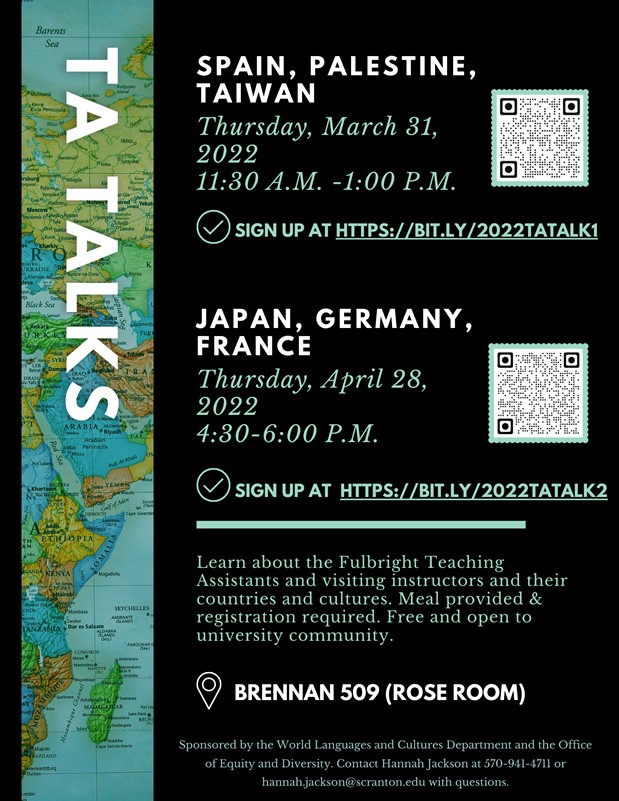 Spain, Palestine, and Taiwan
Spain, Palestine, and Taiwan
Thursday, Mar. 31
11:30 A.M. - 1:00 P.M.
Register here.
Featuring Julia Illarramendi, Spanish Fulbright Teaching Assistant from Pamplona, Spain, Belal Elkurd, Arabic Fulbright Teaching Assistant from Gaza, Palestine, and Chun-Sheng (Peter) Su, Chinese visiting instructor from Taiwan
Japan, Germany, and France
Thursday, Apr. 28
4:30-6:00 P.M.
Register here.
Featuring Kentaro Fukube, Japanese visiting instructor from Osaka, Japan, Fabian Postert, German Fulbright Teaching Assistant from Goettingen, Germany, and Nawel Kahouaji, French Fulbright Teaching Assistant from Brest, France
If you have questions or suggestions for the program, please contact Hannah Jackson at hannah.jackson@scranton.edu. We look forward to seeing you there.This program is sponsored by the World Languages and Cultures Department and a Diversity Initiatives Grant from the Office of Equity and Diversity. Contact Hannah Jackson at 570-941-4711 or hannah.jackson@scranton.edu with questions.
TA Talks Spring 2022
-
02/23/2022
In honor of the Ignatian year the Jesuit Center and the College of Arts and Sciences will be hosting Fr. James L. Heft, Alton M. Brooks Professor of Religion and founding president of the Institute for the Advancement of Catholic Studies at the University of Southern California. Fr. Heft is the author of the recent book The Future of Catholic Higher Education: The Open Circle.
His University presentation “The Future of Catholic Education: Challenges and Opportunities” is on Thursday, March 3, at 4:30 p.m. in the Moskovitz Theater. A cocktail reception for faculty and staff will follow his talk.
Fr. Heft joined the Marianists in 1961 and was ordained a priest in 1973. He earned his undergraduate degree in philosophy and education at the University of Dayton in Ohio and was a graduate student in philosophy at Georgetown University. In 1977, Fr. Heft earned a Ph.D. in history and theology from the University of Toronto in Canada. He then began a 30-year teaching career at the University of Dayton, serving six years as chair of the theology department, eight as provost and 10 as chancellor. A former chair of the Association of Catholic Colleges and Universities, Fr. Heft has written and edited over 12 books and nearly 200 book chapters and articles. In 2011, he was honored with the Theodore Hesburgh Award for long and distinguished service to Catholic higher education.
In The Future of Catholic Higher Education, Fr. Heft draws from his extensive experience to discuss the current state of Catholic higher education and what needs to be done to ensure that Catholicism isn't fazed out of the educational system. He analyzes the foundational intellectual principles of Catholic Higher Education, and both the strengths and weaknesses of the present-day system in order to look at possibilities for its future.
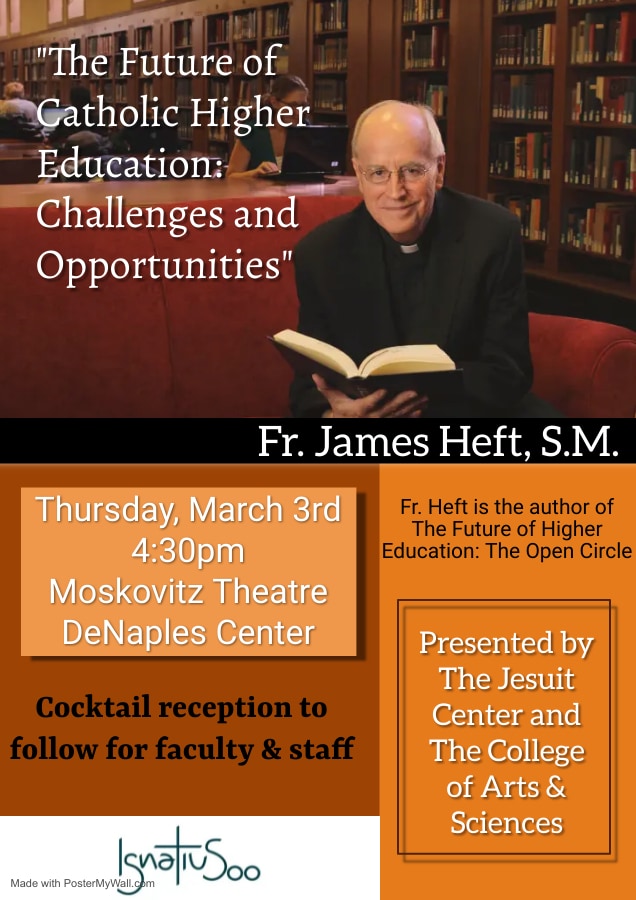
Faculty and Staff Invited: Fr. James L. Heft: The Future of Catholic Education: Challenges and Opportunities
-
02/15/2022
Recommendations for the 2022-2023 Peter S. Graybar Memorial Scholarship are being solicited. The scholarship will provide assistance for students entering their junior social year next fall.
The Peter S. Graybar Memorial Scholarship was created by the class of 1993 to honor a beloved friend and classmate. The Scholarship will be awarded to a student who is active in extracurricular and community service activities and demonstrates personal impact on fellow students.
For more Information visit scranton.edu/financialaid. Click on 'Scholarships and Grants; Additional Scholarship Opportunities.'
The deadline for submission is Friday, Mar. 11, 2022.
2022-2023 Peter S. Graybar Memorial Scholarship
-
02/15/2022
The Accounting Department of The University of Scranton ranked No. 4 in the world for accounting education research published in the most recent six-years in a listing considered to be the gold standard in accounting disciplines. The recently released 2021 Brigham Young University Accounting Rankings also recognized several accounting faculty members individually for their research publication success.
The Brigham Young University report ranks accounting programs and faculty throughout the world based on their success in publishing in 12 top-tier, peer-reviewed accounting journals. The report is updated annually and includes ranks for specific categories of research and for specific time periods. The 2021 update ranks Scranton’s Accounting Department at as the fourth most prolific department in the world for accounting education research over the most recent six-year period, following Brigham Young University (first), Texas Tech University (second) and Kennesaw State University (third), and preceding Indiana University – Indianapolis (fifth). The department was also ranked internationally for all methods, audit, managerial, experimental and archival accounting research.
With respect to authorships of individual accounting faculty in the area of accounting education, three Scranton faculty members were ranked internationally. Douglas M. Boyle, D.B.A., associate professor and chair of the Accounting Department and director of the DBA program, was ranked No. 7. James F. Boyle, D.B.A., assistant professor of accounting and director of the MAcc program, and Brian W. Carpenter, Ph.D., professor of accounting, ranked No. 18 (tied). Additionally, Dr. Douglas Boyle was ranked for all methods, auditing and experimental research; Dr. Carpenter was ranked for all methods; and Jeh-Hyun Cho, Ph.D., assistant professor of accounting, was ranked for all methods, managerial and archival.
“The University of Scranton’s listing near the top of the 2021 Brigham Young University Accounting Education Research rankings and the very high rankings of many of its individual faculty in a variety of sub-disciplines bear testimony to the Accounting department’s commitment to excellence in both teaching and research. I am very proud of the faculty’s research productivity and their skillful use of scholarship to inform and nourish teaching. This greatly benefits students in our many outstanding programs, but especially in our ground-breaking, research-focused DBA program,” said Michael Mensah, Ph.D., interim dean of the University’s Kania School of Management and professor of accounting.
This is the second consecutive year that the University’s Accounting Department was ranked No. 4 in the world for research success in the prestigious Brigham Young University Accounting Rankings. The Accounting Department and the prolific research of its faculty were also recognized by two academic journals in 2019 and 2020, including an article in Issues in Accounting Education that ranked Scranton No. 1 in the nation for accounting programs and faculty based on the number of publications in the leading five accounting practitioner journals.
Accounting Dept./Faculty Top Research Productivity List
-
01/28/2022
The University of Scranton awarded faculty development intersession grants for 2022 to eight faculty members.
Hope Baylow, D.A., assistant professor of health and human performance, received a grant to research “Voice Problems and Quality of Life in Individuals with Marfan Syndrome.” She earned her bachelor’s degree from Hofstra University, her master’s degree from Long Island University and her doctoral degree from Adelphia University. She has worked for the University since 2020.
Hengameh Hosseini, Ph.D., assistant professor of health administration and human resources, received a grant to research the “Development of a new Undergraduate Minor in Public Health.” She earned her bachelor’s degree from the University of Tehran, her master’s degree from King’s College and her doctoral degree from Marywood University. She has worked for the University since 2018.
Joseph Pellegrino, Ph.D., assistant professor of health and human performance, received a grant to research the “Quantification of the Physical Load and Physiological Strain on Division III Women’s Basketball Players.” He earned his bachelor’s degree from Cook College, his master’s degree from the University of Montana and his doctoral degree from Rutgers University. He has worked for the University since 2019.
Abhijit Roy, D.B.A., professor of management, marketing and entrepreneurship, received a grant to research “A Hierarchical Model of Social Justice Initiatives by the Jesuits: Embeddedness of Social Entrepreneurship and Social Innovation.” He earned his bachelor’s degree from the University of Allahabad, his master’s and M.B.A. degrees from the University of Arizona and his doctoral degree from Boston University. He has worked for the University since 2006.
Janette Scardillo, D.P.T., faculty specialist for the Physical Therapy Department, received a grant to research “Utilizing Best Practice to Implement Simulation-based Experiences in the DPT Curriculum.” She earned her bachelor’s, master’s and doctoral degrees from The University of Scranton. She has worked for the University since 2017.
Yamile Silva Gualteros, Ph.D., professor and chair of the Department of World Languages and Cultures, received a grant to research “A Critical Edition of Dominican Writer Abigail Meja’s Transatlantic Journalism.” She earned her bachelor’s degree from Los Andes University, and her master’s degree and doctoral degree from the University of Massachusetts, Amherst. She has worked for the University since 2009.
Brian Snee, Ph.D., assistant professor of communication and media, received a grant to research “Columbus Uncancelled: Reflective Rhetoric in the Third and Fourth Personae.” He earned his bachelor’s degree from The University of Scranton, and his master’s degree and doctoral degree from the Pennsylvania State University. He has worked for the University since 2020.
Hank Willenbrink, Ph.D., associate professor of English and theatre, received a grant to research “The Wyoming Option: Will Arbery, Rod Dreher and Conservative Catholicism.” He earned his bachelor’s degree from the University of Tulsa, and his master’s degree and doctoral degree from the University of California, Santa Barbara. He has worked for the University since 2009.
Intersession Grants Awarded to Faculty
-
01/14/2022
David Dzurec, Ph.D., was appointed associate dean for The University of Scranton’s College of Arts and Sciences, effective January 1, 2022.
Dr. Dzurec joined the faculty of the University’s History Department in 2008. During his time at Scranton, he has served as interim associate dean for the College of Arts and Sciences, interim executive director of the Slattery Center for the Ignatian Humanities, and was chair of the History Department from 2015 to 2021. He also served as vice president of the Faculty Senate, co-chair of the Faculty Senate Curriculum Committee, chair of the Conference Committee on Curriculum, faculty advisor, and held several leadership positions within the Faculty Affairs Council Executive Committee, including chair. He served as the University’s faculty athletics representative to the NCAA and as the faculty mentor for the University’s cross-country and track teams. In 2018, he received The University of Scranton Provost’s Award for Service and Leadership.
In the announcement of his appointment as associate dean, Jeff Gingerich, Ph.D., provost and senior vice president of academic affairs at the University, wrote that Dr. Dzurec brings “experience to the role, as well as his extensive Committee work, scholarship, and teaching.” He also noted “Dr. Dzurec has been a strong advocate for our Jesuit and Catholic identity, serving on the Jesuit Center Advisory Board” and that Dr. Dzurec “designed the First-year Faculty Seminar which he now co-facilitates with the Jesuit Center. This program, which focuses on Jesuit educational principles, emphasizes our Catholic and Jesuit mission and its flourishing within our community, both intellectually and personally.”
Dr. Dzurec’s research and teaching interests focus on the early United States, American Foreign Relations, and the history of the Jesuits in the United States. His publications include a book, “Our Suffering Brethren: Foreign Captivity and Nationalism in the Early United States,” and numerous articles in scholarly publications that include The Historian, War in History, The Journal of New York History, Catholic Historical Review, and The Journal of the Early Republic. In 2015, he served as a Fulbright Core Scholar, teaching American history and politics at Trnava University in Slovakia.
Dr. Dzurec earned his bachelor’s degree from Fairfield University, his master’s degree from the University of Connecticut and his Ph.D. from The Ohio State University.
David Dzurec, Ph.D., Named Associate Dean for CAS
-
01/05/2022
The National Science Foundation (NSF) awarded a grant of nearly $50,000 to Nathaniel Frissell, Ph.D., assistant professor of physics and electrical engineering at The University of Scranton. The grant will support “The Ham Radio Science Citizen Investigation (HamSCI) 2022 Workshop,” which will take place March 18 and 19 at The U.S. Space and Rocket Center in Huntsville, Alabama. The conference, which will take place in-person, also has a virtual format option.
The Ham Radio Science Citizen Investigation (HamSCI) is a collective of professional researchers and licensed amateur radio operators (a.k.a. hams) with the objective to foster collaborations between the amateur and professional communities for the purposes of advancing scientific research and understanding, encouraging the development of new technologies to support this research, and to provide educational opportunities for the amateur radio community and the general public.
The workshop will serve as a team meeting for the HamSCI Personal Space Weather Station project, which is a $1.3 million NSF funded project previously awarded to Dr. Frissell. The project seeks to harness the power of a network of licensed amateur radio operators to better understand and measure the effects of weather in the upper levels of Earth’s atmosphere.
The theme for the two-day HamSCI workshop is “The Weather Connection.” The fifth annual workshop will feature prominent leaders in space weather, atmospheric weather and the connection between them.
Speakers include a keynote presentation by Chen-Pang Yeang, Sc.D., Ph.D., associate professor at the Institute for the History and Philosophy of Science and Technology, University of Toronto and author of “Probing the Sky with Radio Waves: From Wireless Technology to the Development of Atmospheric Science.” He will discuss “Ham Radio and the Discovery of the Ionosphere.” Tamitha Skov, Ph.D., research scientist in the Physical Sciences Laboratory Aerospace Corporation, will discuss the ionospheric impacts of space weather. Dr. Skov is well-known to the amateur radio community as “The Space Weather Woman” through her innovative YouTube space weather forecasts. Jim Bacon, a well-known retired meteorologist from the United Kingdom and active developer of the PropQuest website, will provide an amateur radio tutorial on the influences of terrestrial weather on radio propagation and the ionosphere.
“The workshop series has led to cutting-edge work in the fields of space physics, citizen science, and the use of crowd-sourced ionospheric data,” said Dr. Frissell. “To maximize the potential of the ham radio-professional researcher relationship, meetings are needed to bring these groups together to learn about each other’s communities, vocabularies, share ideas, and participate in activities that advance both the scientific field and the radio hobby.”
Dr. Frissell’s research focuses on the ionosphere, which is an atmospheric region that extends from about 50 to 600 miles above the earth’s surface. According to Dr. Frissell, changes in the ionosphere alter the behavior of radio wave propagation and greatly affect the radio communications and global navigation satellite systems. Understanding ionospheric structures and processes will lead to an increased understanding and prediction of these effects.
In August 2021, Dr. Frissell received a six-figure grant through the NASA’s Space Weather Applications Operations 2 Research Program for the research project “Enabling Space Weather Research with Global Scale Amateur Radio Datasets.”
The location of the 2022 conference near the NASA Marshal Space Flight Center.
Registration for the HamSCI Workshop 2022 will open soon. Registration and additional information about the conference can be found on the HamSCI Workshop 2022 webpage.
Physics Professor Awarded NSF Grant for Workshop
-
12/09/2021
This article was originally published in AJCU's Connections. This is an excerpt.
A travel course meant to engage students in the present-day lives of Christians living in the Holy Land has led to a new perspective regarding the ancient religious texts researched by The University of Scranton Theology Associate Professor Michael G. Azar, Ph.D. Here, he shares how his course, Christianity in the Middle East, deepened his theological scholarship in unexpected ways.
“The focus of my scholarly work has mostly been the Biblical and patristic periods, but I started this travel course because I was also interested in current Jewish-Christian relations in the Holy Land,” Dr. Azar said. “Now, the contemporary experience informs my scholarship in ways I didn’t really expect. The book I am currently writing on Orthodox Christianity and Jewish-Christian relations focuses not just on ancient theological sources, but also incorporates contemporary Christian-Jewish interaction in the Holy Land.” He never thought he’d be doing both in the same project.
Dr. Azar’s early research focused on the New Testament and the way Christians and Jews interacted with one another in the first few centuries after Jesus.
His first book, “Exegeting the Jews: The Early Reception of the Johannine ‘Jews’” (Brill, 2016), examined Greek patristic readings of the “Jews” of St. John’s Gospel.
Through his research, Dr. Azar began to realize that much scholarly work has focused on Jewish-Christian relations from Western perspectives. What he found missing was the interaction that has existed in the Holy Land for the past 1,500 years.Continue reading in Connections.
Travel Course to Less Known Places in the Holy Land Influences Theology Professor's Research
-
11/22/2021
This is an excerpt from an article published in Conversations magazine. Read the entire story via the link at the end of this page.
It's been nearly a decade since the University of Scranton’s Loyola Science Center opened its doors at the heart of our campus, significantly upgrading the University’s STEM teaching and research capabilities and symbolically connecting to St. Thomas Hall, where many humanities programs reside.
Still, I clearly recall the theme of the dedication program: “Science as a Human Endeavor.” On the surface, this theme alludes to the collaborative nature of research projects in the sciences, many of which require a team or a community of researchers to make substantive progress. But a more appropriate and potentially energizing interpretation of this theme aligns the Loyola Science Center with Scranton’s Jesuit mission.
Science is a human endeavor because it is a way for us to know about and serve our world. In concert with the arts, humanities, and social sciences, the scientific disciplines can help form students into well-rounded leaders committed to the service of, and justice for, others. Therefore, education in the sciences in a Jesuit context ideally facilitates the understanding of topics integral to a commitment to justice and prepares students to serve in an array of globally important fields.
It’s true that the theme of justice seamlessly weaves into the disciplines of theology, philosophy, or economics and that, for many, this connection is less obvious in fields like chemistry or physics. But if the mission of a Jesuit institution is to prepare students to go into our world and advance justice — to ensure that every discipline cultivates in students a “moral concern about how people ought to live together,” as the former Jesuit General Superior Peter Hans Kolvenbach, once put it — these institutions must be ready to do so competently in areas impacted by the sciences.
Continue reading in Conversations on Jesuit Education.
STEM and the Mission: Science is a Human Endeavor
-
11/22/2021
The University of Scranton World Languages and Cultures Department is proud to introduce five new Fulbright Teaching Assistants and Visiting Instructors from Spain, France, Germany, Japan and Taiwan for the 2021-2022 school year.
Get to know more about them in this video.
Meet the New Fulbright Teaching Assistants and Visiting Instructors
-
11/15/2021
Yamile Silva, Ph.D., professor and chair of the Department of World Languages and Cultures at The University of Scranton, has been accepted to the National Endowment for the Humanities (NEH) and the United Kingdom’s Arts and Humanities Research Council (AHRC) Spanish Paleography and Digital Humanities Institute. The NEH/AHRC joint initiatives seek to advance digital scholarship.
Participation in the institute, which runs from Nov. 1 to Dec. 17, will benefit Dr. Silva’s research and teaching on 16 to 18 century manuscripts in Spanish. The six-week, on-line institute will provide her with specialized training from digital humanities practitioners from the University of Texas at Austin (LLILAS Benson Latin American Studies and Collections) and Lancaster University on several open-source tools that can be used to facilitate collaborative research and to visualize data in colonial texts. She can also include these digital tools in the courses she teaches at the University.
Dr. Silva is a member of the Executive Council of the Colonial Section, Latin American Studies Association, the largest professional association in the world for individuals and institutions engaged in the study of Latin America. She also serves as former president of the academic organization Association of Gender and Sexuality Studies and has served on the Curator Council of the Festival de la Palabra, San Juan, Puerto Rico, since 2013.
Dr. Silva joined the faculty at The University of Scranton in 2009. She received the University’s Excellence in Advancing Global Learning Award in 2014. At Scranton, Dr. Silva served as director of the Latin American Studies Program from 2013-2018 and has been an associated faculty member of the Women Studies Program since 2010. She also serves as director of the Intersession Study Abroad Program in Puebla, México (Universidad Iberoamericana) and the Summer Spain Program (Universidad de Navarra).
Dr. Silva’s recent books include Agencia, Historia y Empoderamiento Femenino (2018) coedited with Diane Martin, Ph.D., and Eva Paris, Ph.D.; La sonrisa del paisaje. Diarios de Abigail Mejía (2020); the anthology Palabras: Dispatches from the Festival de la Palabra (2014), coedited with Hank Willenbrink, Ph.D., associate professor of English and theatre at The University of Scranton; the monograph issues Raza, género y diáspora en el Caribe (2017) and Las utopias en la literatura (2018), both co-edited with Daniel Torres, Ph.D.
Dr. Silva earned her Ph.D. and master’s degrees in Hispanic literatures and cultures from the University of Massachusetts and her bachelor’s degree in modern languages and linguistics from Los Andes University in Bogota, Colombia.
Professor Named to Digital Humanities Institute
-
11/09/2021
“The Devil and the Dolce Vita. Catholic Attempts to Save Italy’s Soul, 1948-1974,” a book by Roy Domenico, Ph.D., professor and interim chair of the History Department at The University of Scranton, examines the secularization that occurred during Italy’s economic expansion after World War II and the Church’s efforts to preserve the country’s traditional Catholic culture and values.
“Between Church and politics, faith and hedonism, ‘The Devil and the Dolce Vita’ is an accurate and compelling portrait of the Italian Catholic world at the time of the great secularization,” wrote Eliana Versace, Istituto Paolo VI, Italy, in her review of the book published in 2021 by The Catholic University of America Press.
“Domenico masterfully weaves together broad narrative threads of post-war Italian history with detailed analysis of lesser-known sources that tell us much that we did not know about Catholic attempts to influence cultural practices and social mores. This engagingly written book will greatly enrich our understanding of the often caricatured and polemicized place of Catholicism in Italian politics and civil society,” wrote Robert A. Ventresca of King’s University College at Western University in his review of the book.
A member of The University of Scranton’s faculty since 1997, Dr. Domenico’s major field of study is 19th and 20th century Europe, with emphasis on Italy and Catholic nations. His many publications include the “Encyclopedia of Modern Christian Politics, 1789-present,” edited with Mark Hanley (Greenwood Press, 2006); “Sex, Scandal and Catholic Politics during Italy’s Dolce Vita” in Scandal! An Interdisciplinary Approach to the Consequences, Outcomes, and Significance of Political Scandals edited by Alison Dagnes and Mark Sachleben (Bloomsbury Press, 2014); and “Italian Fascists on Trial, 1943-1948” (University of North Carolina Press, 1991), which won the 1992 Helen and Howard R. Marraro Prize from the Society for Italian Historical Studies.
Dr. Domenico received a Fulbright Senior Research Award for Italy in the spring of 2005 semester to research Italian-Catholic political culture during the Cold War. He served as president and currently serves as secretary-treasurer of the Society for Italian Historical Studies, which is affiliated with the American Historical Association, the largest organization of historians in the United States.
A resident of Clarks Green, Dr. Domenico earned a bachelor’s degree from the University of Wisconsin – Milwaukee, a master’s degree from the University of Connecticut, and a doctorate from Rutgers University.
History Professor Publishes Book
-
11/03/2021
The search process requires intentionality. The purpose of this Tool Kit is to assist search committees and hiring managers to expand and diversify the candidate pool in the hiring process. It contains resources to help guide and support recruitment and hiring more diverse employees. This Tool Kit is intended to provide interested search committees and hiring managers with information only. It in no way replaces the Recruitment, Selection and Record Keeping Requirements for Faculty Search Committees, Hiring Managers and Department Chairs document on the Provost’s website or the Electronic On-Line process in Human Resources. Access toolkit and learn more.
NEW Updated Toolkit for Inclusionary Recruitment
-
11/03/2021
Bryan Crable, Ph.D., assistant professor of biology at The University of Scranton, was awarded a $198,265 National Science Foundation (NSF) grant for a two-year study of the impact of plastic debris on the physiology of freshwater microorganisms in Lake Lacawac. In addition to Dr. Crable’s role as principal investigator, the research project will involve and train approximately eight undergraduate students in field, laboratory and computer simulated investigations.
According to Dr. Crable, microplastics are plastic particles less than 5 millimeters in size that are a common pollutant that have seen widespread accumulation in the environment since World War II.
“This type of research is important because we really don’t have a good understanding of how plastics influence ecosystems,” said Dr. Crable. “For the longest time, we thought that microplastics didn’t really impact the local ecosystem. Over the last five to ten years, we have begun to get a better understanding of their impact. In the last few years, researchers have discovered there are microbes that degrade plastics and, although that can be beneficial, the overall impact has to be studied much more.”
According to Dr. Crable, comparatively, there has been lots of research on the effects of plastic debris in marine environments, but there has been very little research in freshwater environments.
“Lake Lacawac is only about 30 minutes away from campus and is a near pristine freshwater watershed. The lake was privately owned for a few hundred years. There has been essentially no development on the lake and there is no known microplastic intrusion,” said Dr. Crable. “Our experiment will use water from the lake in microcosms that we establish in a lake side field lab. In the first year, we will look at microbial communities which colonize plastics versus natural debris such as leaf litter. In the second year of the study, we will analyze the impacts of different types of plastics on microbial communities.”
The project will provide full-time summer research opportunities to two to three students each summer for two years. Dr. Crable noted that students will gain experience using state-of-the-art software programs for analyzing microbial communities as well as learn critical programming languages used for statistical analyses.
“One of the great things about the University is that undergraduates are doing actual research projects,” said Dr. Crable.
“The benefit undergraduates get out of research, especially working on larger projects in a faculty member’s labs, is that they get to take ownership over some part of a project. The students are able to take the seeds of an idea and move it forward – to design the necessary experiments, carry them out and analyze the results to answer a question,” said Dr. Crable, who noted that students also have the possibility to present their studies at conferences, with some undergraduates having their research published in an academic journal.
Through the research project, Dr. Crable will also develop an advanced undergraduate curriculum on microplastics, which will be integrated into the Special Topics in Biology – Environmental Microbiology course.
Dr. Crable joined the faculty at Scranton in 2018. His research focuses on the fields of microbial physiology, environmental microbiology and microbial biotechnology. He earned his bachelor’s degree from Saint Vincent College, his master’s degree from Duquesne University and his Ph.D. in microbiology from the University of Oklahoma. In 2010, Dr. Crable was awarded a Fulbright Fellowship by the Institute for International Education to conduct research at the University of Wageningen in The Netherlands.
Scranton Professor Awarded Six-figure NSF Grant
-
10/27/2021
Michael Fennie, Ph.D., Arthur Catino, Ph.D., and Nicholas Sizemore, Ph.D., all associate professors of chemistry at The University of Scranton, were awarded a $362,773 National Science Foundation (NSF) Major Research Instrumentation grant. The grant will allow the University to purchase a Bruker 400 MHz nuclear magnetic resonance (NMR) spectrometer, which will be used by undergraduates, graduate students and faculty at Scranton in both chemistry courses and research projects. Professors from local colleges and researchers from area companies will also have access to the state-of-the-art equipment, as will area high school students through an outreach program included as part of the NSF funded proposal.
“NMR spectroscopy is central to modern chemistry research. This instrument uses a strong magnetic field and radio waves to determine the structures of molecules, giving us information about their physical properties and reactivity,” said Dr. Fennie, the principal investigator on the grant. “We need to train our students to be competent scientists once they enter graduate school, or start a career in industry or at a lab. Having hands-on research experience using real-world instrumentation at Scranton is what makes a difference in our outcomes.”
NMR spectroscopy shares the same theoretical principles as magnetic resonance imaging (MRI) used in healthcare – only for molecules, explained Dr. Fennie, which he said also provides a good conceptual foundation for pre-med students. The new NMR equipment, with much-improved detection and throughput capabilities, will increase the productivity of faculty research and enhance the research-training of undergraduate and master’s students as they prepare for STEM careers in academia or industry.
NMR spectroscopy, using older equipment, is already included in more than half a dozen chemistry courses at Scranton, including organic chemistry labs II and III, Instrumental Analysis Lab, Forensic Chemistry Lab, and Advanced Inorganic Lab. The new equipment will enhance the students’ exposure in courses as well as supplement their research projects.
“Our current instrument allows for only a single sample to be loaded at a time for analysis, and each analysis takes a long time to complete, making it impractical to obtain individual NMR data for each student in larger lab courses, such as sophomore-level organic chemistry. The new equipment allows for auto-loading of multiple samples at a time, and the time required for each analysis is much shorter, enabling students in these labs to prepare their own samples, submit them to the NMR queue, and then receive their own data, which is getting closer to what it is like in an actual research setting,” said Dr. Fennie. “Getting that training early on is only going to be more helpful to our students’ development as scientists.”
The technology can also be used for broad research areas ranging from medicinal chemistry, such as studies pertaining to peptide folding and natural products, to experiments for the synthesis of molecules that can be used in OLED displays.
“I couldn’t be more proud of Dr. Michael Fennie and his colleagues at The University of Scranton, and this investment in our students and promise it has to bridge the classroom to the work room,” said Rep. Matt Cartwright. “Giving industry partners access to this tool will serve as an enticement for them to stay in the region and grow our STEM-related job market. I also applaud the collaboration among our higher learning institutions and secondary schools, I look forward to what new research, new ideas and new scientists may come from it.”
The new equipment will be used for collaborative and independent research projects with faculty members at area colleges, such as King's College, Penn State Scranton and Keystone College, as well as for studies at area businesses, such as Schott Glass, The Azek Company and Process Technologies and Packaging.
Dr. Fennie is especially interested in how the new equipment can be used discover new reactions and better understand how these reactions actually work.
“The NMR will allow us to collect data on how fast a reaction proceeds and the intermediates the reaction might go through. That is important for developing new chemical processes, and optimizing reactions so that we can use less resources in our experiments. In other words, making the chemistry more sustainable,” said Dr. Fennie.
In addition, the University will work with teachers at Scranton High School, West Scranton High School, Honesdale High School, Mid Valley Secondary Center and MMI Preparatory School to bring their students to campus to learn more about the scientific uses of NMR spectroscopy.
The NMR spectrometer will be installed during the University’s winter break and intersession. Faculty, and then students, would be trained in the use of the new equipment in late January and during the spring semester.
Dr. Fennie joined the faculty at Scranton in 2012. He earned his bachelor’s degree in chemistry from Canisius College and his doctorate in organic chemistry from the University of Pennsylvania. Dr. Catino joined the faculty at Scranton in 2013. He earned his bachelor’s degree in chemistry from Franklin and Marshall College and his doctorate in organic chemistry from the University of Maryland. Dr. Sizemore joined the faculty at Scranton in 2015. He earned his bachelor’s degree in chemistry from Case Western Reserve University and his doctorate in organic chemistry from the University of California, Irvine.
Professors Awarded NSF Grant for Research Equipment
-
10/06/2021
The Office of Research and Sponsored Programs (ORSP) has a monthly raffle during the academic year for members of the University who submit external grant proposals. ORSP will randomly select a name from all faculty and staff members who have applied for an external grant during that time period. September's winner is Dr. Hank Willenbrink.
Office of Research and Sponsored Programs Raffle Winner
-
09/30/2021
The University of Scranton has appointed 16 new full-time faculty members for the 2021-2022 academic year.
 Wesam Alramadeen, was named lecturer in the Operations and Analytics Department. Previously, he has worked internationally for more than two decades as a business development and strategy advisor, consultant and senior engineer, among other positions. He earned a bachelor’s degree in electronic engineering-telecommunication from Mutah University in Jordan, a MBA from German Jordanian University in Jordan, and is currently pursuing a Ph.D. in industrial and systems engineering at Binghamton University.
Wesam Alramadeen, was named lecturer in the Operations and Analytics Department. Previously, he has worked internationally for more than two decades as a business development and strategy advisor, consultant and senior engineer, among other positions. He earned a bachelor’s degree in electronic engineering-telecommunication from Mutah University in Jordan, a MBA from German Jordanian University in Jordan, and is currently pursuing a Ph.D. in industrial and systems engineering at Binghamton University.Hossein Banitabaei, Ph.D., Vancouver, was named assistant professor in the Physics and Engineering Department. Dr. Banitabaei’s research expertise is in fluid dynamics and interfacial phenomena utilizing experimental techniques and numerical simulation methods. He has published several articles in reputable journals including a Featured Article in Physics of Fluids. Dr. Banitabaei earned his bachelor’s degrees in mechanical engineering and industrial engineering (systems analysis and planning), as well as a master’s degree in mechanical engineering from Amirkabir University of Technology in Iran. He received his Ph.D. in mechanical engineering from York University in Toronto. Dr. Banitabaei was awarded a joint postdoctoral fellowship with BC Research Inc. in Vancouver and the University of British Columbia through which he worked on a project to develop a gel used for oil containment in large oil spill incidents.
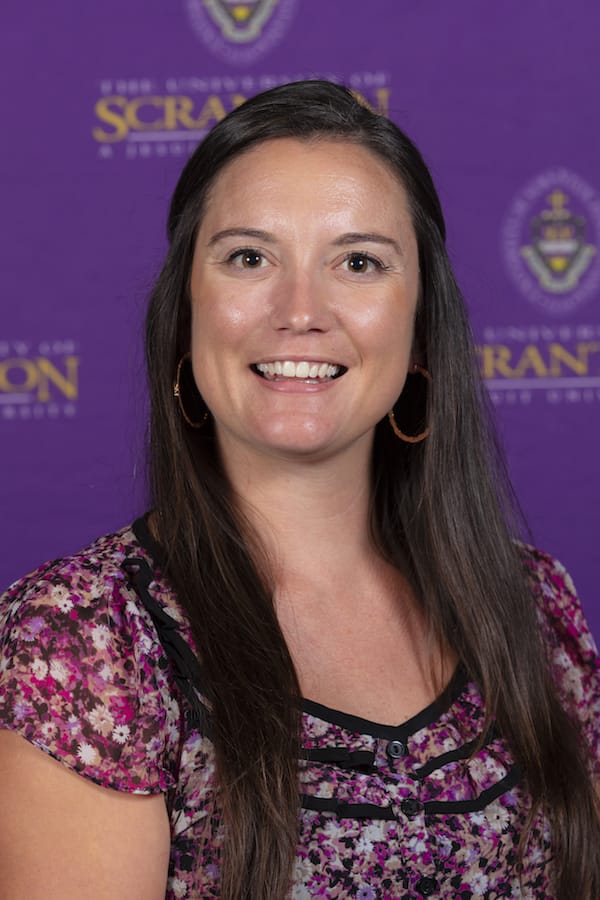 Dana Brookover, Ph.D., NCC, Scranton, was named assistant professor in the Counseling and Human Services Department. A licensed school counselor and national certified counselor, Dr. Brookover worked as a professional school counselor in Virginia. She was an instructor at DePaul University, Villanova University and Virginia Commonwealth University prior to beginning at The University of Scranton. She has published over a dozen articles in refereed academic journals on topics that include the social health needs of college students and factors that influence the preparedness of first-generation college students. Dr. Brookover earned her bachelor’s degree in psychology from Christopher Newport University and her master’s degree in school counseling from the College of William and Mary. She graduated with her doctoral degree in counselor education and supervision from the Virginia Commonwealth University in December 2020.
Dana Brookover, Ph.D., NCC, Scranton, was named assistant professor in the Counseling and Human Services Department. A licensed school counselor and national certified counselor, Dr. Brookover worked as a professional school counselor in Virginia. She was an instructor at DePaul University, Villanova University and Virginia Commonwealth University prior to beginning at The University of Scranton. She has published over a dozen articles in refereed academic journals on topics that include the social health needs of college students and factors that influence the preparedness of first-generation college students. Dr. Brookover earned her bachelor’s degree in psychology from Christopher Newport University and her master’s degree in school counseling from the College of William and Mary. She graduated with her doctoral degree in counselor education and supervision from the Virginia Commonwealth University in December 2020. Gerard Dumancas, Ph.D., Iloilo City, Philippines, was named associate professor in the Chemistry Department. Previously, he served as an associate professor of chemistry at Louisiana State University at Alexandria. His core research interests involve the development of novel spectroscopic and computational tools with a wide array of applications in edible oils, food science and biomedical research. During his career, Dr. Dumancas has generated more than $2 million in external research grants and has published more than a dozen articles in peer-reviewed academic journals. He earned his bachelor’s degree in chemistry from the University of the Philippines and his Ph.D. in analytical chemistry from Oklahoma State University.
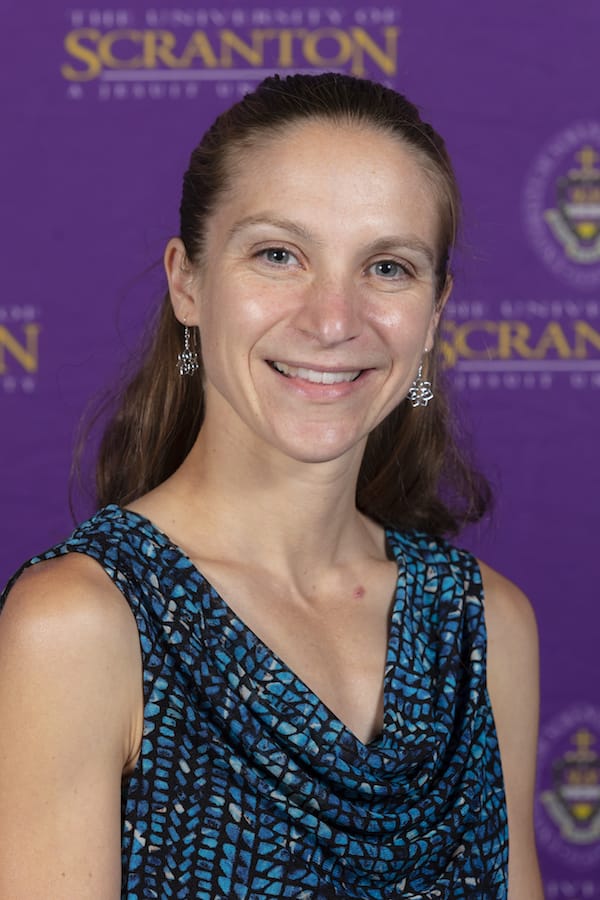 Rachel Frissell, Spring Brook Township, was named faculty specialist in the Physics and Engineering Department. She worked as a process engineer at SRI International in Princeton, New Jersey, serving as the primary engineer on physical vapor deposition tools. She also worked in the Center for Solar-Terrestrial Research at the New Jersey Institute of Technology. She studied geomagnetic field observations from Antarctica and presented her work at various conferences. Professor Frissell earned her bachelor’s degree in physics from the Robert E. Cook Honors College at Indiana University of Pennsylvania; her master’s degree in materials science and engineering from Virginia Tech; and her master’s in applied physics from the New Jersey Institute of Technology.
Rachel Frissell, Spring Brook Township, was named faculty specialist in the Physics and Engineering Department. She worked as a process engineer at SRI International in Princeton, New Jersey, serving as the primary engineer on physical vapor deposition tools. She also worked in the Center for Solar-Terrestrial Research at the New Jersey Institute of Technology. She studied geomagnetic field observations from Antarctica and presented her work at various conferences. Professor Frissell earned her bachelor’s degree in physics from the Robert E. Cook Honors College at Indiana University of Pennsylvania; her master’s degree in materials science and engineering from Virginia Tech; and her master’s in applied physics from the New Jersey Institute of Technology.Dana Gadaire, Psy.D., Gainesville, Florida, was named visiting assistant professor in the psychology department. Last academic year, she taught in Scranton’s Counseling and Human Services Department. She is a licensed psychologist, social worker and board-certified behavior analyst who has established community-based clinical services in local primary care clinics where she works with physicians and nurses to promote access to behavioral health screening and treatment among underserved populations in our area. Dr. Gadaire has published extensively on empirically-supported practices to promote pediatric behavioral health including functional assessment, token-based interventions and activity schedules. She is particularly interested in the dissemination of community-based supports to address behavioral health disparities among underserved populations. Dr. Gadaire earned her bachelor’s degree in psychology from the University of Florida, her master’s degree in social work from the University of Georgia, her master’s degree in clinical and community psychology from Georgia State University and her Doctor of Psychology in school psychology from the University of Southern Maine.
Natalie Gilboy, Clarks Summit, was named faculty specialist in the Nursing Department. She currently serves as a nurse practitioner with Pediatric Associates in Kingston. She earned certification in Pediatric Primary Care Mental Health Specialist through the Pediatric Nursing Board in 2018. Gilboy is also active in her community through participation with the Abington Heights High School Student Aid fund and the PTA and as a volunteer coach for school and sports teams. She earned her bachelor’s degree in nursing and her Family Nurse Practitioner master’s degree in nursing from The University of Scranton.
Alicia Hatcher, Ph.D., was named assistant professor in the English and Theatre Department. Dr. Hatcher has served as an instructor and adjunct instructor at Fayetteville Technical Community College in North Carolina, and as an adjunct instructor at North Carolina Central University and Campbell University, also in North Carolina. Dr. Hatcher serves as a mentor for The Coalition of Feminist Scholars in the History of Rhetoric and Composition’s online mentoring program (2021-2022) and as co-editor of The Journal of Multimodal Rhetorics – Comics/Visual Rhetorics, Decoloniality, and Liberatory Futures special issue, which is slated for publication in the spring of 2022. Her research focuses on embodied, spatial and cultural rhetorics, specifically the ways bodies and spaces are used as rhetorical and symbolic tools in the fight against systemic oppression.
Dr. Hatcher earned her bachelor’s degree in English from the University of North Carolina at Greensboro, her master’s degree in English from North Carolina Central University and her Ph.D. in rhetoric, writing and professional communication from East Carolina University.
Nicole Hoskins, Ph.D., Chicago, Illinois, was named assistant professor in the Theology and Religious Studies Department. Dr. Hoskins received the Charlette W. Newcombe Fellowship, Louisville Institute Fellowship, and the Forum for Theological Education Fellowship to support her graduate research. She is also a member of the Society for the Study of Black Religion. Her current research project examines the religious and ecological practices of black women in Chicago’s Altgeld Gardens, an area sociologists identify as one of the most egregious cases of environmental racism in the U.S. Dr. Hoskins earned her bachelor’s degree in religious studies from Spelman College, her Master of Divinity from Harvard Divinity School, and her Ph.D. in religion and society from Drew University.
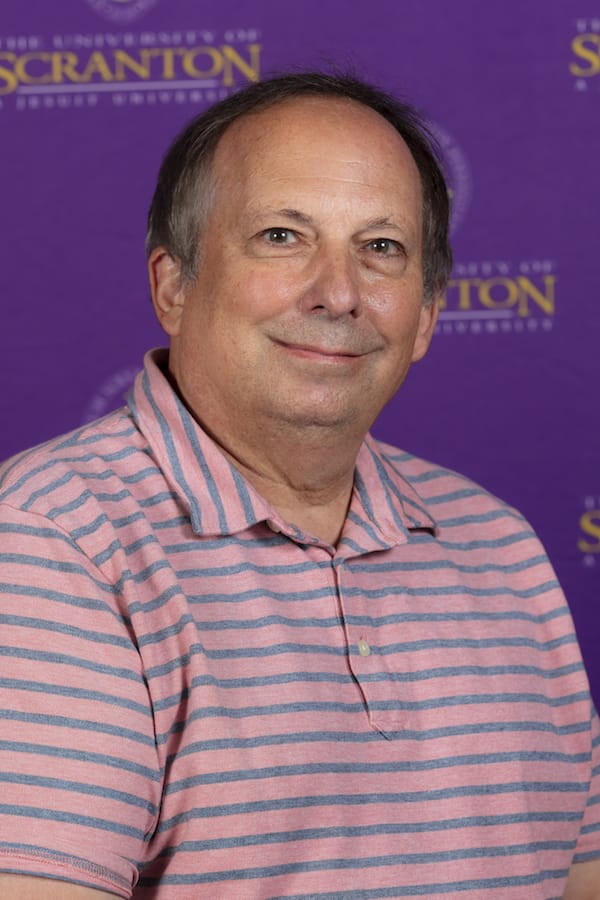 John Kaufman, Lehigh Valley, was named faculty specialist in the Computing Science Department. Professor Kaufman worked at IBM for 41 years in Endicott, Glendale, Fishkill and Poughkeepsie, New York as an advisory engineer on Unix Operating Systems and Networking. During his career at IBM, he received multiple recognition and leadership awards. Professor Kaufman earned his bachelor’s degree in computer science from The University of Scranton and his master’s degree in telecommunication from Syracuse University. He is also an SAP Advisory Architect, trained by SAP America, and a graduate of LongRidge Writers Group.
John Kaufman, Lehigh Valley, was named faculty specialist in the Computing Science Department. Professor Kaufman worked at IBM for 41 years in Endicott, Glendale, Fishkill and Poughkeepsie, New York as an advisory engineer on Unix Operating Systems and Networking. During his career at IBM, he received multiple recognition and leadership awards. Professor Kaufman earned his bachelor’s degree in computer science from The University of Scranton and his master’s degree in telecommunication from Syracuse University. He is also an SAP Advisory Architect, trained by SAP America, and a graduate of LongRidge Writers Group.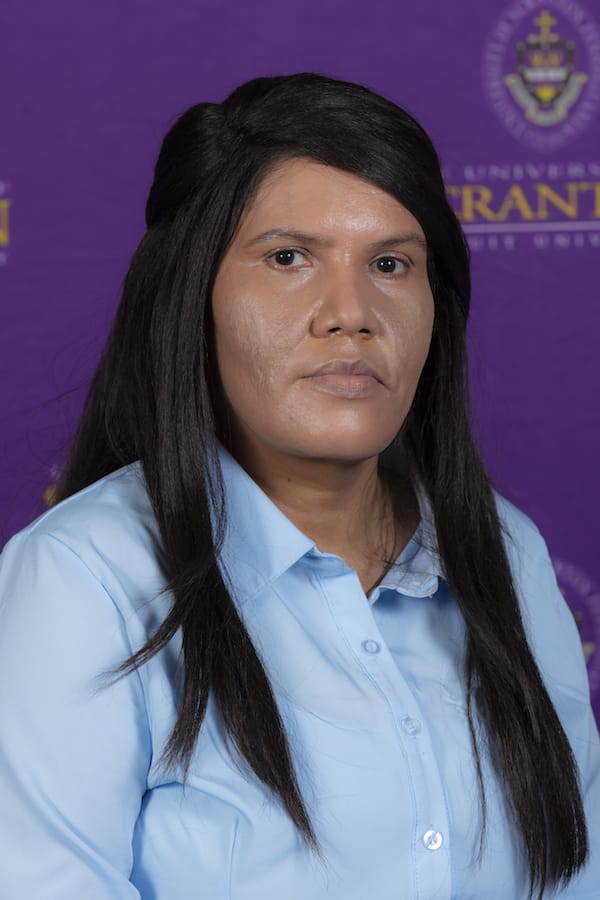 Bibi Khan, Ph.D., was named assistant professor in the Biology Department. She was a post-doctoral fellow at the Noble Research Institute in Ardmore, Oklahoma, and served as a lecturer at the University of Guyana. Dr. Khan’s research interests include plant molecular biology, plant cell biology, plant biotechnology and plant genetics. She has authored or co-authored nearly a dozen research studies that have been published in peer-reviewed academic journals. In 2004, she received a Fulbright scholarship to pursue graduate studies in the United States. Dr. Khan earned her bachelor’s degree in biology and chemistry from the University of Guyana. She earned her master’s degree in molecular plant pathology from the University of Arkansas-Fayetteville and her Ph.D. in cell and molecular biology from the University of Missouri-St. Louis.
Bibi Khan, Ph.D., was named assistant professor in the Biology Department. She was a post-doctoral fellow at the Noble Research Institute in Ardmore, Oklahoma, and served as a lecturer at the University of Guyana. Dr. Khan’s research interests include plant molecular biology, plant cell biology, plant biotechnology and plant genetics. She has authored or co-authored nearly a dozen research studies that have been published in peer-reviewed academic journals. In 2004, she received a Fulbright scholarship to pursue graduate studies in the United States. Dr. Khan earned her bachelor’s degree in biology and chemistry from the University of Guyana. She earned her master’s degree in molecular plant pathology from the University of Arkansas-Fayetteville and her Ph.D. in cell and molecular biology from the University of Missouri-St. Louis.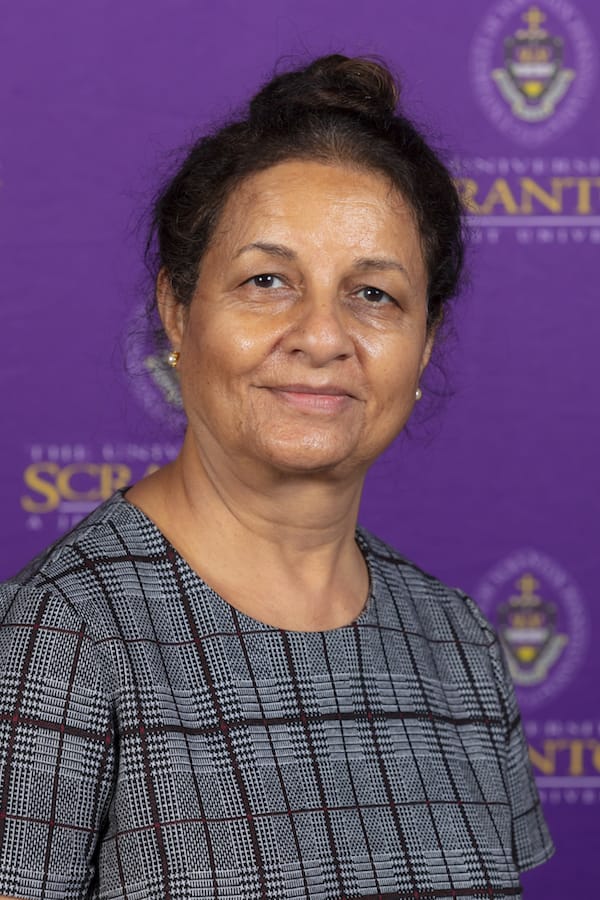 Neelam Lahankar, Ph.D., Brooklyn, New York, was named faculty specialist in the Chemistry Department. She was an adjunct professor at CUNY New York City, Bergen County Community College in New Jersey and at New Jersey City University. She taught chemistry to 11th and 12th-grade students in Pune and Mumbai India. She is also certified in effective college instruction and teaching online. Dr. Lahankar earned her bachelor’s degree in science and mathematics from Pune University in India and her Ph.D. in chemistry from Seton Hall University, where she was awarded the Robert De Simone Graduate Fellowship.
Neelam Lahankar, Ph.D., Brooklyn, New York, was named faculty specialist in the Chemistry Department. She was an adjunct professor at CUNY New York City, Bergen County Community College in New Jersey and at New Jersey City University. She taught chemistry to 11th and 12th-grade students in Pune and Mumbai India. She is also certified in effective college instruction and teaching online. Dr. Lahankar earned her bachelor’s degree in science and mathematics from Pune University in India and her Ph.D. in chemistry from Seton Hall University, where she was awarded the Robert De Simone Graduate Fellowship.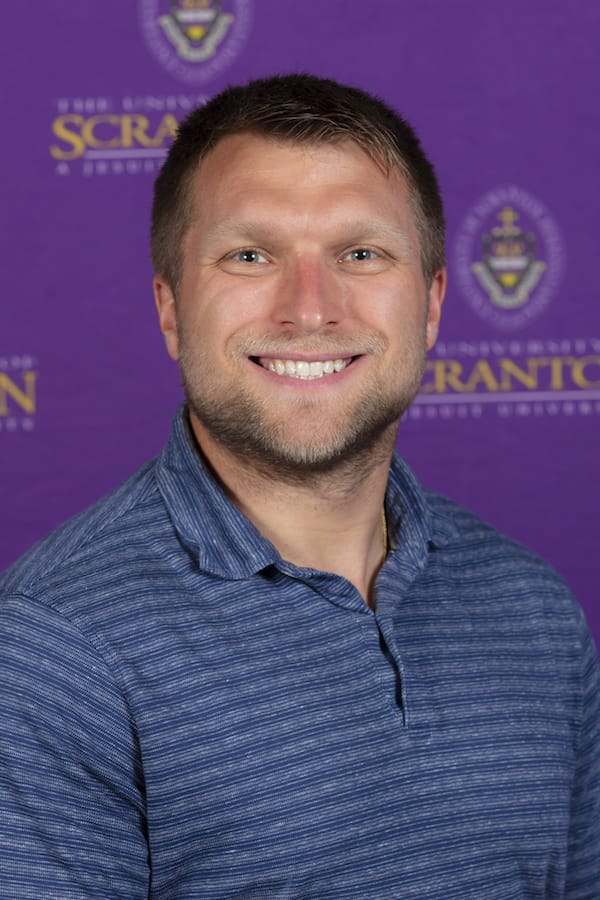 David Mahalak, D.Eng., Dallas, was named faculty specialist in the Operations and Analytics Department. He has worked as a strategic business management consultant at Applied Logistics Integration Consulting, LLC. He was an adjunct professor at Wilkes University and Penn State University – Hazleton. Dr. Mahalak earned his bachelor’s degree in mathematics from Wilkes University, his master’s degree in operations research from Northeastern University and his Doctorate of Engineering in engineering management from George Washington University. He also completed a master certificate program in supply chain management and operations at Michigan State University and a Lean Six Sigma Master Black Belt Certificate at Villanova University.
David Mahalak, D.Eng., Dallas, was named faculty specialist in the Operations and Analytics Department. He has worked as a strategic business management consultant at Applied Logistics Integration Consulting, LLC. He was an adjunct professor at Wilkes University and Penn State University – Hazleton. Dr. Mahalak earned his bachelor’s degree in mathematics from Wilkes University, his master’s degree in operations research from Northeastern University and his Doctorate of Engineering in engineering management from George Washington University. He also completed a master certificate program in supply chain management and operations at Michigan State University and a Lean Six Sigma Master Black Belt Certificate at Villanova University.Joseph Morrissey, Ph.D., was named lecturer in the Psychology Department. He was an instructor at Binghamton University for more than 15 years, and was also a lecturer at the University of Massachusetts in Boston and at Boston University. He served as an adjunct professor at Boston College and Regis College, as well as at several other colleges. He has developed pedagogical resources in his field. He earned his bachelor’s degree in psychology from Rutgers University and his Ph.D. in brain, behavior and cognition from Boston University.
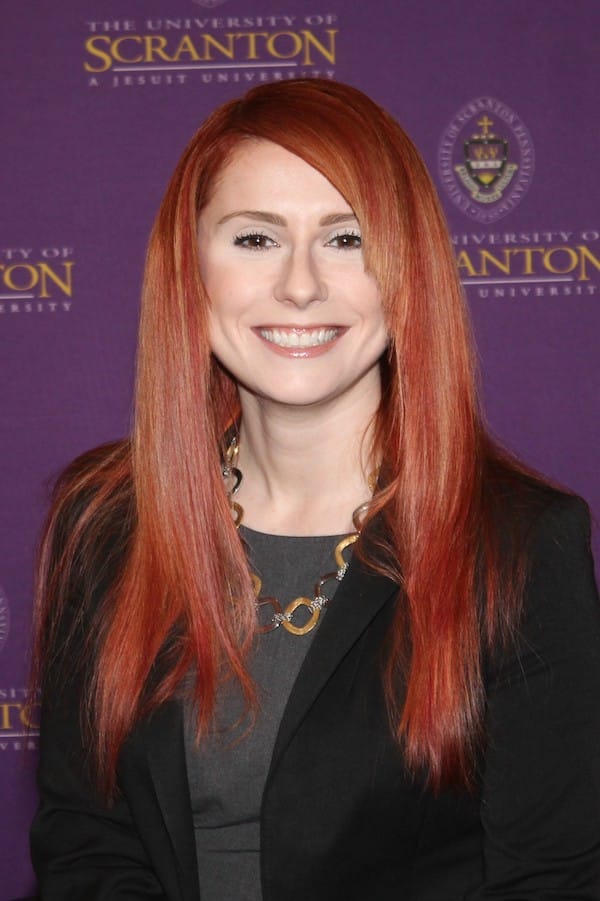 Ashley Stampone, A.B.D., Old Forge, was named assistant professor in the Accounting Department. She joined the faculty at Scranton as a faculty specialist in 2016 and has received University and national accolades for her work. She was twice named Kania School of Management Professor of the Year. In 2019, she was honored with the Faculty Leadership Award from the Institute of Management Accountants (IMA) and in 2021 received IMA’s Ursel K. Albers IMA Campus Advocate of the Year Award. She also received the Pennsylvania Institute of Certified Public Accountants (PICPA) Young Leaders Award for 2021. Professor Stampone earned her bachelor’s degree in accounting and her MBA from The University of Scranton. She is currently pursuing a Doctor of Business Administration (DBA) at Scranton.
Ashley Stampone, A.B.D., Old Forge, was named assistant professor in the Accounting Department. She joined the faculty at Scranton as a faculty specialist in 2016 and has received University and national accolades for her work. She was twice named Kania School of Management Professor of the Year. In 2019, she was honored with the Faculty Leadership Award from the Institute of Management Accountants (IMA) and in 2021 received IMA’s Ursel K. Albers IMA Campus Advocate of the Year Award. She also received the Pennsylvania Institute of Certified Public Accountants (PICPA) Young Leaders Award for 2021. Professor Stampone earned her bachelor’s degree in accounting and her MBA from The University of Scranton. She is currently pursuing a Doctor of Business Administration (DBA) at Scranton.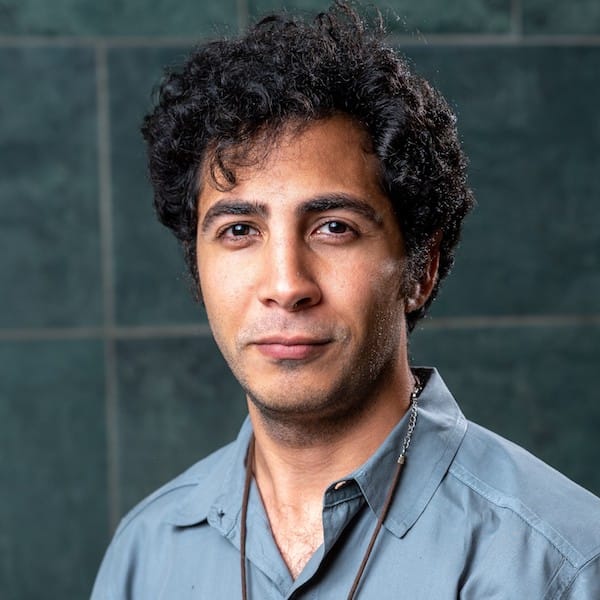 Ash Zareian, Ph.D., was named faculty specialist in the Management, Marketing and Entrepreneurship Department. He was a lecturer at the University of Texas Rio Grande Valley, where he also worked as a data analyst. He earned his bachelor’s degree in English from the University of Texas Pan American and his MBA and Ph.D. in marketing from the University of Texas Rio Grande Valley.
Ash Zareian, Ph.D., was named faculty specialist in the Management, Marketing and Entrepreneurship Department. He was a lecturer at the University of Texas Rio Grande Valley, where he also worked as a data analyst. He earned his bachelor’s degree in English from the University of Texas Pan American and his MBA and Ph.D. in marketing from the University of Texas Rio Grande Valley. The University of Scranton Appoints New Faculty Members
-
09/14/2021
Jessica Nolan, Ph.D., professor of psychology and director of the Environmental Studies Concentration at The University of Scranton, received a 2021 Women in Conservation Award from PennFuture, an independent, nonpartisan environmental advocacy organization. Dr. Nolan received the award for Woman of Environmental Education.
Dr. Nolan joined the faculty at Scranton in 2008. She teaches Environmental and Conservation Psychology and Social Psychology, among other courses, and runs the Conservation Psychology Lab at the University. The Conservation Psychology Lab studies the human impact on the environment and uses the tools and methods of psychology to understand and solve environmental problems. Her research focuses on the application of psychological tools and principles to understand and solve environmental problems. She has studied the effects of normative social influence on various environmental behaviors, including energy conservation and household recycling. Dr. Nolan has published more than a dozen articles on environmental behavior in peer-reviewed scientific journals and has presented her research at numerous professional conferences.
In her role as director of the Environmental Studies Concentration, Dr. Nolan has partnered with local environmental groups such as Friends of Lackawanna, Eastern Pennsylvania Coalition for Abandoned Mine Reclamation and the Lackawanna River Conservation Association to sponsor more than a dozen co-curricular events for students and the local community.
In 2018, Dr. Nolan received the University’s Excellence in Integrating Sustainability into the Curriculum Award. This award is given to a faculty member who strives for excellence in teaching about sustainability and makes extraordinary efforts to introduce concepts of sustainability into the curriculum.
Dr. Nolan is also the founder of Green Drinks Scranton, an informal networking group that provides a forum for area residents interested in environmental issues to connect and learn from one another.
Dr. Nolan earned her bachelor’s degree at Cornell University, her master’s degree at California State University and her Ph.D. at the University of Arkansas.
Psychology Professor Receives Conservation Award
-
09/08/2021
After a successful pilot in the spring 2021 semester, the Student Success Attendance and Early Alert system has been implemented during the fall 2021 semester as a means to support student success. While the system will be primarily used by course instructors teaching first-year courses with General Education attributes FYS, FYW, FYOC, and FYDT, the system can be accessed by any instructor on campus teaching in the regular and/or special terms. The system will replace all notice of academic difficulty forms.
The easy-to-use system allows an instructor to submit an early alert related to academic performance, attendance, tardiness, and/or minor engagement issues as early as week two of the semester when the system opens. Early alerts are sent to the student’s advisor on record for processing and early intervention. The system will remain open until the midpoint of the semester.
The “Student Attendance and Early Alert Application” is intended to have the following student outcomes:▪ Increase student class attendance and participation.
▪ Improve student engagement with professors and academic advisors.
▪ Prompt students to share responsibility for their academic success by maximizing use of campus resources.Documents – including instructions and guidance – for course instructors and advisors can be found here on the website of the Office of Student Retention and Completion. There is also a system demonstration video on that website.
Any questions about the system can be directed to Nicholas Truncale, Director of Student Retention and Completion, at nicholas.truncale@scranton.edu.
Faculty and Staff: Student Attendance and Early Alert Application Announcement
-
09/08/2021
Daniel J. West Jr., Ph.D., professor and chair the Health Administration and Human Resources Department at The University of Scranton, received the John L. Earl III Award for service to the University, the faculty and the wider community. The 2021 John L. Earl III Award was presented at the University’s annual Fall Convocation, which took place on campus on Sept. 3.
The award is given annually to a member of the University community who demonstrates the spirit of generosity and dedication that the late Dr. John Earl, a distinguished professor of history, exemplified during his years at Scranton from 1964 to 1996.
A well-respected teacher and scholar with specialization in international health care, globalization, multiculturalism and diversity management, Dr. West holds a professor in public health appointment at Trnava University, as well as a visiting professor appointment at the University of Matej Bel, Slovakia and affiliated faculty at Tbilisi State Medical University, Georgia. He previously served as a CEO for a hospital, medical practice and several health care businesses. He joined the faculty at Scranton in 1990.
Leonard G. Gougeon, Ph.D., Distinguished Professor of English and Theatre at the University and the 2020 John L. Earl III Award recipient, in presenting the award to Dr. West, referred to him as a “quiet overachiever,” as he listed the impressive accomplishments and service Dr. West has generously given to the University over the past three decades.
“For nearly two decades, he has served as the chairperson of his department, overseeing two undergraduate and three graduate programs of study. He has planned and conducted dozens of study abroad tours for graduate students and faculty to countries as diverse as Bolivia, Slovakia, Haiti and China. He has served as faculty senator, but his most under-appreciated contributions have been made, in the spirit of Jack Earl, through his commitment to the Faculty Affairs Council,” said Dr. Gougeon.
Dr. West maintains a fellowship with the American College of Healthcare Executives, American College of Medical Practice Executives, American Academy of Medical Administrators, American College of Health Care Administrators, American Academy of Behavioral Medicine and Association of Behavioral Healthcare Management. He serves on the Board of Directors for the Health Care Management Forum of Northeastern Pennsylvania and the Regents Advisory Council for Northeast Pennsylvania. His other board memberships include the Healthy Northeast Pennsylvania Initiative, Scranton Temple Residency Program, Medical Advisory Board of the International Brain Trauma Association, Scranton Temple Residency Program IRB and the Behavioral Health Research Institute.
A resident of Covington Township, Dr. West received his bachelor’s, master’s and doctoral degrees from the Pennsylvania State University. In 2019, he was awarded an honorary doctorate degree from Trnava University, Slovakia.
$content.getChild('content').textValueProfessor Dan West, Ph.D., Receives Earl Award
-
09/01/2021
The Office of Research and Sponsored Programs (ORSP) has a monthly raffle during the academic year (once during the summer) for members of the University who submit external grant proposals. ORSP will randomly select a name from all faculty and staff members who have applied for an external grant during that time period. The winner will receive a $25 Gift Card.
The summer 2021 winner is Dr. Jason Graham, Faculty, Math Department.
ORSP Raffle Winner: Jason Graham, Ph.D.
-
08/30/2021
The University of Scranton granted promotions and/or tenure to 19 faculty members effective at the start of the 2021-22 academic year.
Nine faculty members have been promoted to professor: Doug Boyle, D.B.A., accounting; Bryan Burnham, Ph.D., psychology; Patrick Clark, Ph.D., theology and religious studies; Paul Cutrufello, Ph.D., health and human performance; Christian Krokus, Ph.D., theology and religious studies; Andrew LaZella, Ph.D., philosophy; Matthew Meyer, Ph.D., philosophy; Murli Rajan, Ph.D., economics and finance; and Yamile Silva, Ph.D. world languages and cultures.
Michael Landram, Ph.D., health and human performance, was named associate professor and granted tenure.
Six faculty members were named associate professor: Hamza Adeinat, Ph.D., operations and analytics; Julie Nastasi, O.T.D., Sc.D., occupational therapy; Ismail Onat, Ph.D., sociology, criminal justice and criminology; John Ruddy, D.P.S., economics and finance; Stacy Smulowitz, Ph.D., communication and media; and Andrew Venezia, Ph.D., health and human performance.
Three professors were granted tenure: Peter Andersen, Ph.D., management, marketing and entrepreneurship; Wendy Manetti, Ph.D., nursing; and Katherine Stumpo, Ph.D., chemistry.
Dr. Boyle, chair of the Accounting Department and director of the Doctor of Business Administration Program, received his bachelor’s degree from The University of Scranton, his master’s degree from Columbia University and his doctorate from Kennesaw State University. He has worked for the University since 2009.
Dr. Burnham received his bachelor’s degree from Utica College of Syracuse University, and his master’s degree and doctorate from the State University of New York at Albany. He has worked at the University since 2007.
Dr. Clark received his bachelor’s degree from Duke University, his master’s degree from Boston College and his doctorate from the University of Notre Dame. He has worked for the University since 2010.
Dr. Cutrufello, chair of the Department of Health and Human Performance, received his bachelor’s degree from The Pennsylvania State University, his master’s degree from Bloomsburg University and his doctorate from Marywood University. He has worked for the University since 2008.
Dr. Krokus received his bachelor’s degree from Lafayette College, and his master’s degree and doctorate from Boston College. He has worked at the University since 2009.
Dr. LaZella, co-director of the undergraduate Honors Program, received his bachelor’s degree from Hamline University, and his master’s degree and doctorate from DePaul University. He has worked at the University since 2010.
Dr. Meyer, faculty director for the Slattery Center for the Ignatian Humanities and pre-law advisor, received his bachelor’s degree from the University of St. Thomas, his master’s degree from Harvard University and his doctorate from Boston University. He has worked for the University since 2010.
Dr. Rajan, associate dean of the Kania School of Management, received his bachelor’s degree from the Victoria University, his master’s degrees from the Delhi School of Economics of the University of Delhi and The University of Scranton, and his doctorate from Temple University. He has worked for the University since 1989.
Dr. Silva, chair of the Department of World Languages and Cultures, received her bachelor’s degree from Los Andes University, and her master’s degree and doctorate from the University of Massachusetts at Amherst. She has worked at the University since 2009.
Dr. Landram received his bachelor’s degree from Truman State University, his master’s degree from Appalachian State University and his doctorate from the University of Roma. He has worked for the University since 2015.
Dr. Adeinat received his bachelor’s degree from the University of Jordan, his master’s degree from the University of Houston and his doctorate from The Pennsylvania State University. He has worked for the University since 2016.
Dr. Nastasi, director of low vision therapy for the Edward R. Leahy Jr. Center Clinic for the Uninsured, received her bachelor’s degree from The University of Scranton, her master’s degree from Tufts University and doctorate degrees from the Boston University and Towson University. She has worked at the University since 2011.
Dr. Onat, chief analyst for the Center for the Analysis and Prevention of Crime, received his bachelor’s degree from the Turkish National Police Academy, and his master’s degree and doctorate from the State University of New Jersey, Rutgers. He has worked at the University since 2016.
Dr. Ruddy received his bachelor’s degree from The University of Scranton, his master’s degree from George Washington University and his doctorate from Pace University. He has worked at the University since 2013.
Dr. Smulowitz received her bachelor’s degree from Wilkes University, her master’s degree from Ithaca College Park School of Communication and her doctorate degree from Rutgers University School of Communication. She has worked at the University since 2009.
Dr. Venezia received his bachelor’s degree and master’s degree from Bloomsburg University and his doctorate from the University of Maryland. He has worked at the University since 2016.
Dr. Andersen received his bachelor’s degree and master’s degree from the University of Tehran and doctorate degrees from the University of Malaya and the University of Texas, Pan American. He has worked at the University since 2015.
Dr. Manetti received her bachelor’s degree and master’s degree from The University of Scranton, and her doctorate from Widener University. She has worked at the University since 2011.
Dr. Stumpo received her bachelor’s degree from the University of Northern Iowa and her doctorate from Texas A and M University. She has worked at the University since 2015.
University Announces Faculty Promotions
-
08/17/2021
Ashley L. Stampone ’10, G’11, faculty specialist in the Accounting Department of The University of Scranton, received the Institute of Management Accountants (IMA) Ursel K. Albers IMA Campus Advocate of the Year Award and the Pennsylvania Institute of Certified Public Accountants (PICPA) Young Leaders Award for 2021.
The IMA Campus Advocate of the Year Award recognizes a campus advocate/student chapter advisor who has made significant contributions to the IMA overall and the IMA student members in particular. Prof. Stampone serves as the faculty advisor for the University’s IMA student chapter, which has been recognized as one of IMA five Outstanding Student Chapters in the nation for the past three consecutive years. Through the chapter, University students have participated in numerous educational and professional development events, including IMA’s student case competition and its student manuscript competition, as well as IMA’s student leadership conference.
The PICPA Young Leaders Award recognizes members under the age of 40 who demonstrate a commitment to the accounting profession through active PICPA or community volunteer activities.
Prof. Stampone has received several awards recognizing her for leadership and dedication to the accounting field, as well as for teaching and service. She received the University’s the Kania School of Management Professor of the Year twice, in 2021 and 2020. Student members of the University’s Business Club select a faculty member for the annual award.
In 2019, Prof. Stampone was also honored with the IMA’s Faculty Leadership Award. The national award recognizes one faculty member annually who has demonstrated significant leadership activities at the national, regional, and/or local levels of IMA and has made additional contributions to IMA.
Prof. Stampone joined the faculty at Scranton in 2016. Previously, she worked as an internal auditor for QVC, Inc., as a senior financial systems analyst for Bridon American Corporation, as an inventory accountant for International Salt Company and a staff accountant for ParenteBeard, LLC.
A resident of Old Forge, Prof. Stampone received a bachelor’s degree in accounting and an MBA from The University of Scranton. She is currently pursuing a Doctor of Business Administration (DBA) at Scranton.
Faculty Member Ashley Stampone Nationally Feted
-
08/10/2021
Nathaniel Frissell, Ph.D., assistant professor in The University of Scranton’s Physics and Engineering Department, was awarded a $481,260 grant through the NASA’s Space Weather Applications Operations 2 Research Program. He will serve as the principal investigator for the research project entitled, “Enabling Space Weather Research with Global Scale Amateur Radio Datasets,” with collaborators at the Massachusetts Institute of Technology Haystack Observatory and The University of Alabama.
According to Dr. Frissell, the grant will fund “the development of an empirical model for the prediction of traveling ionospheric disturbances (TIDs) in high frequency radio communications while investigating the geophysical drivers of these disturbances.” The grant funds will be disbursed over a two-year period.
“This grant includes significant funding for participation of Scranton undergraduate students in this research, as well as support for new computation resources,” said Dr. Frissell.
Dr. Frissell explained that the predictive, empirical TID models the research project will develop will use data collected by automated, Global-scale radio communication observation networks that are voluntarily operated by the amateur radio community. Undergraduate students will help the faculty researchers create algorithms used for the model development. This new NASA award complements the five-year, $616,054 NSF CAREER grant Dr. Frissell received in 2020, which aims to understand the source of the TIDs observed in both the amateur radio data and other scientific datasets.
In 2019, Dr. Frissell received a $1.3 million National Science Foundation (NSF) grant to fund a three-year initiative to measure modulations produced in the Earth’s upper atmosphere. The grant supports a collaborative team to develop a modular, multi-instrument, ground-based space science observation platform known as the HamSCI Personal Space Weather Station that will be used to study variability in the coupled geospace system and better understand high frequency radio propagation.
This is the second research project for which Dr. Frissell has received funding from NASA. A space physicist, Dr. Frissell is among the researchers working on a NASA Living With a Star project entitled, “Wave-Driven Asymmetries in the Ionosphere-Thermosphere due to Asymmetries in the Northern and Southern Polar Vortices.” That project is being led by Richard Collins, Ph.D., principal investigator, of the University of Alaska Fairbanks Geophysical Institute.
Dr. Frissell joined the faculty at Scranton in the fall of 2019. He earned his bachelor’s degree from Montclair State University and his master’s degree and Ph.D. from the Virginia Polytechnic Institute and State University. He is the founder and lead organizer of the international citizen science space physics research collective known as the Ham Radio Science Citizen Investigation (HamSCI.org). Dr. Frissell also serves as advisor to the student W3USR University of Scranton Amateur Radio Club.
Physics Professor Awarded $481,260 NASA Research Grant
-
08/04/2021
Several faculty members received awards recently. Read about them here.
UNIVERSITY FACULTY RECOGNIZED FOR EXCELLENCE
Nine University of Scranton faculty members were honored with Provost Faculty Enhancement awards for excellence in teaching, scholarship or service. The Office of the Provost and the Provost Advisory Group selected the recipients from a pool of candidates nominated by academic deans and department chairs.
Read about them here.
PROFESSOR NAMED AMONG ELITE GLOBAL ETHICAL HACKERS
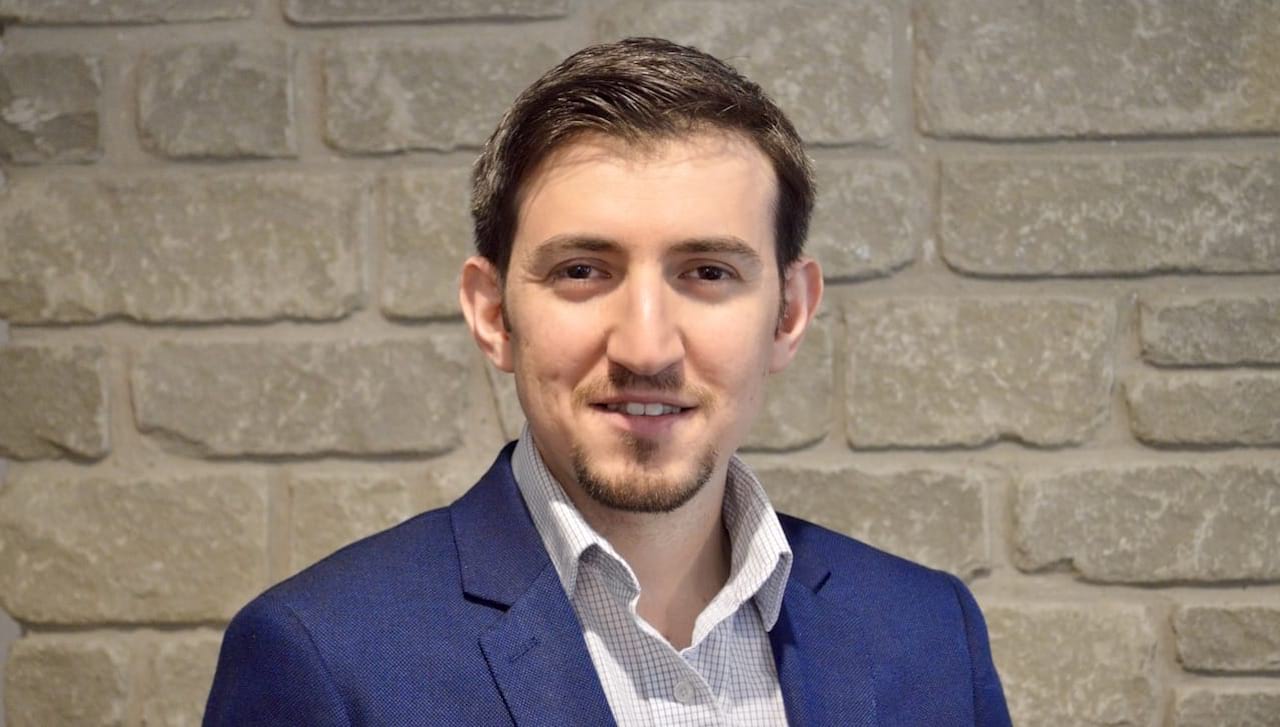
Mehmet F. Bastug, Ph.D., assistant professor in The University of Scranton’s Sociology, Criminal Justice and Criminology Department, was named to the 100-member Certified Ethical Hacker Hall of Fame by the EC-Council, the International Council of E-Commerce Consultants. The 2021 Hall of Fame celebrates some of the most accomplished Certified Ethical Hackers (CEHs) around the world.
The Hall of Fame recognizes EC-Council members who earned their Certified Ethical Hacking certification with a score of 90 percent or better, who were chosen by the council’s selection committee based on their accomplishments regarding their contribution to society and their role in the organization where they are employed, among other factors.
Dr. Bastug, who joined the faculty at Scranton in 2020, has conducted research and presented at several conferences. He has also co-authored several peer-reviewed journal articles and book chapters. His areas of expertise include counter-terrorism, cybercrime and cyber forensics.
Read on, here.
Recent Faculty Awards
-
08/04/2021
Mehmet F. Bastug, Ph.D., assistant professor in The University of Scranton’s Sociology, Criminal Justice and Criminology Department, was named to the 100-member Certified Ethical Hacker Hall of Fame by the EC-Council, the International Council of E-Commerce Consultants. The 2021 Hall of Fame celebrates some of the most accomplished Certified Ethical Hackers (CEHs) around the world.
The Hall of Fame recognizes EC-Council members who earned their Certified Ethical Hacking certification with a score of 90 percent or better, who were chosen by the council’s selection committee based on their accomplishments regarding their contribution to society and their role in the organization where they are employed, among other factors.
Dr. Bastug, who joined the faculty at Scranton in 2020, has conducted research and presented at several conferences. He has also co-authored several peer-reviewed journal articles and book chapters. His areas of expertise include counter-terrorism, cybercrime and cyber forensics.
Dr. Bastug previously was an adjunct professor in the Criminology Program at Lakehead University in Orillia, Ontario; an adjunct professor in the Faculty of Social Science and Humanities at Ontario Tech University in Oshawa; and online video conferencing instructor in the Cybersecurity Governance and Operations Certificate Program at Montclair State University in New Jersey. He earned a doctorate and master’s degree in global affairs from Rutgers University; a master’s degree in international relations from Akdeniz University in Antalya, Turkey; and a bachelor’s degree in security studies and criminal justice from the Turkish National Police University in Ankara.
Founded in 2001, the EC-Council is the world’s leading global cybersecurity certification body, employing over 400 people worldwide with 10 global offices in the USA, Canada, U.K., Malaysia, Singapore, India, and Indonesia.
The University of Scranton began offering a major in the much-in-demand field of cybercrime and homeland security in the fall of 2020.
Professor Named Among Elite Global Ethical Hackers
-
07/15/2021
Nine University of Scranton faculty members were honored with Provost Faculty Enhancement awards for excellence in teaching, scholarship or service. The Office of the Provost and the Provost Advisory Group selected the recipients from a pool of candidates nominated by academic deans and department chairs.
Douglas Boyle, D.B.A., received the Excellence for University Service and Leadership Award, which recognizes faculty members who have contributed service to the University community, particularly those who demonstrate academic leadership by effectively mentoring their junior colleagues. Dr. Boyle, chair of the Accounting Department and director of the DBA program at Scranton, joined the faculty at Scranton in 2009. He is the founder and director of the University’s Nonprofit Leadership Certificate Program. He earned his bachelor’s degree from The University of Scranton, his master’s degree from Columbia University and his doctorate from Kennesaw State University.
Paul Datti, Ph.D., received the Excellence in Integrating Diversity in Learning Award, which recognizes a faculty member whose efforts to integrate diversity in the curriculum have enriched the students’ learning experiences. Dr. Datti, professor of counseling and human services, joined the faculty at Scranton in 2009. He earned his bachelor’s degree and doctorate from the Pennsylvania State University, and his master’s degree from The University of Scranton.
LeeAnn Eschbach, Ph.D., received the Faculty Senate Excellence in Graduate Teaching Award, which recognizes a faculty member who demonstrates dedication to teaching graduate students in a manner that creates an encouraging and intellectually stimulating environment that promotes critical thinking and learning. Dr. Eschbach, associate professor of counseling and human services, joined the faculty at Scranton in 1986. She earned her bachelor’s, master’s and Ph.D. degrees from Washington State University.
Virginia Picchietti, Ph.D., received the Excellence in Advancing Global Learning Award, which recognizes faculty members who have demonstrated noteworthy academic leadership in integrating international issues/perspectives into the curriculum and through whose efforts, students have acquired the competencies, attributes and insights required to meaningfully and successfully participate in an increasingly interdependent world. Dr. Picchietti, professor of world languages and cultures, joined the faculty at Scranton in 1995. She earned her bachelor’s degree from Rosary College and her master’s and Ph.D. degrees from the Indiana University.
Charles Pinches, Ph.D., received the Excellence in Advancing Interdisciplinary Study Award, which recognizes a faculty member who demonstrates noteworthy academic leadership in promoting and strengthening cross-disciplinary or interdepartmental teaching and learning endeavors. Dr. Pinches, professor of theology ad religions studies, joined Scranton’s faculty in 1990. He earned his bachelor’s degree from Wheaton College and his master’s and Ph.D. degrees from the University of Notre Dame.
Rose Sebastinelli, Ph.D., received the Excellence in Integrating Sustainability into the Curriculum Award, which recognizes the efforts of faculty who make extraordinary efforts to introduce that sustainability into the curriculum. Dr. Sebastinelli, professor of operations and information management and Alperin Professor of Business Administration, joined the faculty at Scranton in 1988. She earned her bachelor’s degree from Indiana University of Pennsylvania and her master’s and Ph.D. degrees from the Pennsylvania State University.
Lori Walton, Ph.D., D.P.T., received the Excellence in Integrating Mission and Justice into the Curriculum Award. This award honors a faculty members whose special efforts ensure that students have a keen understanding and appreciation of the realities of the world, including pressing justice issues in a local, national and global context. Dr. Walton, professor of physical therapy, joined the faculty at Scranton in 2020. She earned her bachelor’s and master’s degrees from Andrews University, her D.P.T. from Creighton University and her Ph.D. from Nova Southern University.
Jill Warker, Ph.D., received the Excellence in the Scholarship of Teaching and Learning Award, presented to faculty members who make extraordinary efforts to enhance student learning and who practice teaching as a form of scholarship. Dr. Warker, associate professor of psychology, joined the faculty at Scranton in 2011. She earned her bachelor’s degree from the Bucknell University and her master’s and Ph.D. degrees from the University of Illinois.
Patricia Wright, Ph.D., received the Excellence in Scholarly Publication Award, presented to faculty members who have attained distinction in scholarship or creative activity. Dr. Wright, professor of nursing, joined the faculty at Scranton in 2007. She earned her bachelor’s and master’s degrees from College Mistericordia and her Ph.D. from Loyola University of Chicago.
University Faculty Recognized for Excellence
-
06/02/2021
Yaodong Bi, Ph.D., professor of computing sciences, was named Teacher of the Year by The University of Scranton’s class of 2021. The award was presented at a virtual Class Night event on May 21.
The award honors a faculty member who maintains high standards of academic excellence and fairness, and through enthusiasm and dedication, inspires the interest of students in a field of education. The University’s Faculty Senate Academic Support Committee instituted the award in 1996.
Dr. Bi joined the faculty at Scranton in 1991. For nearly 25 years, he has served as the director of the University’s master’s program in software engineering. The courses he teaches at the University include Computer and Information Literacy, Database Systems, Mobile Application Development, Special Topics: Real-Time Systems, Principles and Applications of Software Design, and Engineering of Software Systems, among others.
Dr. Bi’s research interests include software engineering, real-time systems, database systems, operating systems, mobile application development and software design. He has presented research at professional conferences and has published articles in peer-reviewed academic journals. He is a member of the computer society of the Institute of Electrical and Electronics Engineers.
Dr. Bi earned a bachelor’s degree and master’s degree from the Northeast University of Technology Shenyang, People’s Republic of China, and a Ph.D. from the University of Illinois.
Graduating Class of 2021 Names Teacher of the Year
-
06/01/2021
For the second year in a row, student members of The University of Scranton’s Business Club selected Ashley L. Stampone ’10, G’11, faculty specialist in the Accounting Department as the Kania School of Management Professor of the Year. The virtual announcement was made May 19. Prof. Stampone was also selected for this honor in May or 2020.
A graduate of The University of Scranton, Prof. Stampone became a faculty member at her alma mater in 2016. In 2019, she was also honored with the Faculty Leadership Award from the Institute of Management Accountants (IMA). The national award recognizes one faculty member annually who has demonstrated significant leadership activities at the national, regional, and/or local levels of IMA and has made additional contributions to IMA.
At Scranton, Prof. Stampone serves as the moderator of the University’s IMA student chapter, through which University students participated in IMA’s student case competition and its student manuscript competition, as well as IMA’s student leadership conference. IMA selected Scranton’s student chapter as one of just five Outstanding Student Chapters in the nation for the 2018-2019 academic year.
Previously, Prof. Stampone worked as an internal auditor for QVC, Inc., as a senior financial systems analyst for Bridon American Corporation, as an inventory accountant for International Salt Company and a staff accountant for ParenteBeard, LLC.
A resident of Old Forge, Prof. Stampone received a bachelor’s degree in accounting and an MBA from The University of Scranton. She is currently pursuing a Doctor of Business Administration (DBA) at the University.
Ashley Stampone Named KSOM Professor of the Year
-
05/26/2021
A member of The University of Scranton’s first graduating class of its Doctor of Business Administration (DBA) Program, Ronald Douglas Parker, DBA ’21 and two of his accounting professors won a prestigious 2021 Institute of Management Accountants’ Lybrand Silver Medal for an article they co-authored. The article, “Dark Triad Personality Types and Fraud Behavior,” was co-authored with Dr. Parker by Douglas M. Boyle, DBA, chair of the Accounting Department and director of the DBA program at Scranton, and Brian W. Carpenter, Ph.D., professor of accounting.
Articles selected for award in the Lybrand Competition are drawn from all manuscripts published during the year in the Institute of Management Accountants’ (IMA) Strategic Finance and Management Accounting Quarterly journals, both of which are rated among the top five refereed practitioner journals.
Dr. Parker is the third member of Scranton’s DBA class of 2021 cohort to win a Lybrand medal, joining classmates Daniel J. Gaydon, DBA ’21, and Marcus Burke, DBA ’21, who won 2020 Lybrand Silver and Bronze medals, respectively, for articles co-authored with Dr. Boyle and Daniel P. Mahoney, Ph.D., professor of accounting. In addition, Patrick O’Brian, DBA ’21, received a 2020 Lybrand certificate of merit and Amanda Marcy, ’10, G’11, DBA ’21, faculty specialist, received the inaugural IMA Curt Verschoor Ethics Feature of the Year award in 2020.
Scranton’s accounting faculty have been awarded more Lybrand Medals in the past decade than any other institution in the nation, previously winning six Lybrand medals, including two gold medals, two silver medals and two bronze medals, as well as five certificates of merit. They have also been internationally recognized for their research and publishing efficiency in the 2020 Brigham Young University Accounting Rankings, which ranks accounting programs and faculty throughout the world based on their success in publishing in top-tier accounting journals. The report, which is updated annually and includes ranks for specific categories of research and for specific time periods, ranks the Accounting Department at Scranton as the fourth most prolific department in the world for accounting education research (excluding cases) over the most recent six-year period. The department was also ranked internationally for all methods, audit and experimental accounting research.
With respect to authorships of individual accounting faculty in the area of accounting education, Dr. Boyle was ranked No. 7, and Dr. Carpenter was ranked No. 22 (tied). Additionally, Dr. Boyle was ranked for all methods, auditing, and experimental research and Dr. Carpenter was ranked for all methods.
Scranton’s DBA program also received international recognition when the prestigious accrediting body, the Association to Advance Collegiate Schools of Business (AACSB), listed the program in 2019 among the “Innovations and Best Practices in Canada, Latin America and the United States.” Scranton’s DBA was recognized for providing a non-traditional research DBA in accounting that “promotes diversity and practice relevance by providing a flexible path for experienced practitioners to gain the knowledge and credentials required to succeed in tenure-track positions at AACSB-accredited institutions.”
Dr. Parker’s dissertation is “A Bright Side of the Dark: The Effects of Machiavellian Personality Trait and Fraud Risk Indicators on Auditors’ Skeptical Judgments.” A resident of Franklin, North Carolina, Dr. Parker is a tenure-track assistant professor of accounting at Western Carolina University, which is where he earned his bachelor’s and master’s degrees.
A Certified Public Accountant as well as a Certified Management Accountant, Dr. Boyle has more than 25 years of industry executive experience. An award-winning teacher, Dr. Boyle was profiled in 2020 and 2019 as one of just six “Professors to Know in Business Programs Based in the Northeast” selected by Bschools.org, an online resource for entrepreneurs. He was awarded the University Service and Leadership Award from the Provost in 2021, the Award in Excellence in Graduate Teaching Award from the Faculty Senate at Scranton in 2019 and has won numerous other awards for teaching and research. He is the founder and director of the University’s Nonprofit Leadership Certificate Program.
Dr. Boyle’s research has been published in numerous academic and practitioner journals, such as The Journal of Accounting and Public Policy, Accounting Horizons, Issues in Accounting Education, Current Issues in Auditing, The Journal of Accounting Education, The Accounting Educators’ Journal, The Journal of Accountancy, Strategic Finance, Fraud Magazine, Internal Auditor, Management Accounting Quarterly, The CPA Journal, Internal Auditing, The Journal of Applied Business Research and The Journal of Business and Behavioral Sciences. Dr. Boyle earned a bachelor’s degree from The University of Scranton, an MBA from Columbia University and a doctorate from Kennesaw State University.
Dr. Carpenter, who was named the University’s inaugural PwC (PricewaterhouseCoopers) LLP Accounting Research Chair, also received numerous teaching awards throughout his distinguished career. In 1990, he was named as The University of Scranton’s Alpha Sigma Nu Professor of the Year. In 1997, he was selected as Pennsylvania’s Accounting Professor of the Year by the Pennsylvania Institute of Certified Public Accountants. In 2002, he was selected as Scranton’s CASE Professor of the Year. In 2008, he was a recipient of the university’s Provost Excellence Award for the Scholarship of Teaching.
Dr. Carpenter co-authored two textbooks and published more than 50 articles in numerous professional and academic journals, including Accounting Organizations and Society, Accounting Horizons, The CPA Journal, Strategic Finance, Management Accounting Quarterly, The Internal Auditor, Internal Auditing, the Journal of Accounting Education, the Pennsylvania CPA Journal, the Journal of Applied Business Research and the Journal of Business and Economics Research. He holds an MBA from The University of Scranton as well as a bachelor’s degree and doctorate in accounting from the Pennsylvania State University.
DBA Graduate and Professors Win Silver Medal
-
05/19/2021
Faculty specialist David Ingber, Ph.D. wrote about the coming of the cicada in a recent Discover NEPA article.
"Right now, an entomological phenomenon nearly two decades in the making is poised to explode!" he wrote in the article. "You may have heard the buzz (pun 100% intended) surrounding this year’s 'Brood X' cicada, emerging from underground for the first time in 17 years."
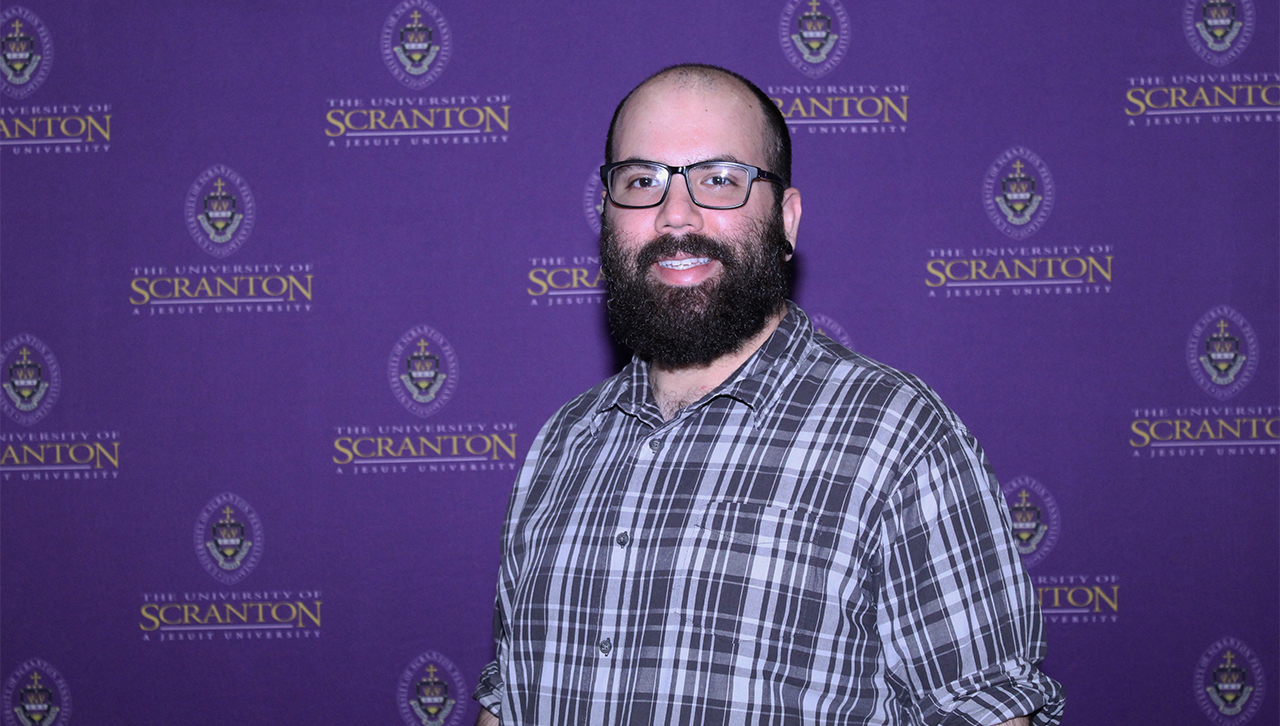
Dr. Ingber is the coordinator of the General Biology Laboratories (BIOL 141L/142L) and an instructor of General Biology (BIOL 141/142). Dr. Ingber has studied the evolution of Bt (Bacillus thuringiensis) resistance in species of insect pests of corn as a response to transgenic corn hybrids. His research interests are in the fields of entomology, integrated pest management (IPM), insect resistance management (IRM), invertebrate zoology, ecology, and evolution.
Find out what you need to know about the coming of the "periodical" cicada, here.
The Cicada are Coming!
-
04/28/2021
This note was sent by Father Herb Keller, S.J., rector, Jesuit Community, to faculty and staff.
Each year the Scranton Jesuit Community recognizes a member of the graduating class who has exemplified the Ignatian ideal of being “a man or woman for and with others.”
The Jesuit Community Award for Outstanding Service is given to the graduate who has rendered extraordinary volunteer service to those in need in the Scranton area and elsewhere. The widest possible definition of this service is used, but ordinarily, it would occur outside the University. The service could have been rendered as part of a group effort or as an individual; through an agency or informally. It should be verifiable in some way. Ordinary club activity is not included, unless it involves a substantial service component.
With this message, I invite you to submit nominations for this award to the Director of Campus Ministries’ Center for Service and Social Justice, Pat Vaccaro. Pat’s e-mail address is patricia.vaccaro@scranton.edu. Pat will forward the names to the Jesuit Community. Please include all relevant information (an outline of service, resume, vitae, etc.) and send the e-mail recommendation by Friday, April 30 at noon. If you wish to send a written nomination, you are welcome to do so.Faculty and Staff: Jesuit Community Award Nominations
-
04/27/2021
Leonard G. Gougeon, Ph.D., Distinguished Professor of English and Theatre at The University of Scranton, received the John L. Earl III Award for service to the University, the faculty and the wider community. The 2020 John L. Earl III Award was presented at a virtual faculty award ceremony on campus that took place in April 2021.
The award is given annually to a member of the University community who demonstrates the spirit of generosity and dedication that the late Dr. John Earl, a distinguished professor of history, exemplified during his years at Scranton from 1964 to 1996.
An internationally recognized scholar on Ralph Waldo Emerson, Dr. Gougeon has taught at the University for nearly fifty years. He joined the faculty at Scranton in 1974. A past-president of the Ralph Waldo Emerson Society, Dr. Gougeon received the society’s Distinguished Achievement Award in 2008. He has presented on Emerson and the British at Oxford University, and, in 2003, was one of a small group of invited scholars who spoke at Harvard University and the Massachusetts Historical Society as part of the Emerson Bicentennial celebration.
Dr. Gougeon is the author of Virtue’s Hero: Emerson, Antislavery, and Reform; Emerson and Eros: The Making of a Cultural Hero; and Emerson’s Truth, Emerson’s Wisdom: Transcendental Advice for Everyday Life. He is the coeditor of Emerson’s Antislavery Writings. He has published numerous scholarly articles on major figures of the American antebellum period in such journals as The New England Quarterly, American Literature, Walt Whitman Quarterly Review, Studies in the American Renaissance, Modern Language Studies and others. His essays appear in a number of collections including The Oxford Handbook to Transcendentalism, Emerson Bicentennial Essays, The Cambridge Companion to Henry David Thoreau, Thoreau at 200: Essays and Reassessments, A Political Companion to Ralph Waldo Emerson, Emerson in Context, Teaching Emerson and others. In 2015, he received the University’s Excellence in Scholarly Publication Award.
During his distinguished career at Scranton, Dr. Gougeon served as a member of the Faulty Senate for 31 years, including as a member of the Senate Committee on Shared Governance and Leadership. He also served as chair of the University Senate and as a member of the Faculty Affairs Council, where he served on its Board on Rank and Tenure and its Handbook Committee.
Dr. Gougeon earned his bachelor’s degree from St. Mary’s University Halifax, and his master’s degree and Ph.D. from the University of Massachusetts at Amherst.
English and Theatre Professor Receives Earl Award
-
04/20/2021
A book by Stacy Smulowitz, Ph.D., associate professor of communication and media at The University of Scranton, was published recently by Rowman and Littlefield Publishers. The book, “The Communication Solution: Leading Successful Change in Higher Education,” provides a practical and theoretical guide based on preexisting and original research data to issues surrounding planned organizational change strategies, core competencies and other aspects of the change process needed for effective leadership in higher education.
Dr. Smulowitz’s research focuses on theory and strategy for assessing and promoting excellence in organizational leadership. Her work has been featured in Leadership and Organization Development Journal, Journal of Intercultural Communication Studies, Measuring Business Excellence, Change Management: An International Journal, The International Encyclopedia of Communication Research Methods and in several books, book chapters and training manuals.
At the University, Dr. Smulowitz teaches courses in advertising, leadership and organizational communication. She often includes community-based learning projects for students in her classes, which include developing and pitching marketing-based, integrated advertising campaigns to area organizations. She also serves as moderator for the University’s Advertising Club.
In March of 2021, Dr. Smulowitz received the American Advertising Federation of NEPA Silver Medal Award.
An Accredited Business Communicator (A.B.C.), Dr. Smulowitz is president of Smulowitz Communications, a strategic communication and leadership consulting firm. She also serves as executive director of the Eastern Communication Association and education chair of Boost Business NEPA.
A resident of Shavertown, Dr. Smulowitz earned a bachelor’s degree from Wilkes University, a master’s degree from Ithaca College and a Ph.D. from Rutgers University.
Professor Publishes Book on Leadership
-
04/12/2021
A book written by University of Scranton English and Theatre Professor Joe Kraus, Ph.D., was a finalist for the inaugural Union League Club of Chicago’s Outstanding Book on the History of Chicago Award 2021, which was presented in a virtual format on April 7. His book, “The Kosher Capones: A History of Chicago’s Jewish Gangsters,” was one of 10 finalists. The 2021 award was presented to “Occupied Territory” by Simon Balto.
In 2019, Dr. Kraus’s book, “The Kosher Capone,” won the 2019 bronze Indie Award in the category of history (adult non-fiction).
“The Kosher Capones,” published by Northern Illinois University Press, tells the story of Chicago’s Jewish gangsters from the end of the 19th century into the 1980s. Dr. Kraus’s grandfather and great-uncles were part of the notorious Miller Brothers of the Jewish West Side, who were among Chicago’s early Jewish gangsters. Dr. Kraus spent thirty years collecting details from newspapers, archives, photo collections and other sources. The book traces the changing political, demographic, and economic pressures that transformed the opportunistic gamblers and bootleggers of Maxwell Street and Lawndale into some of the under-the-radar architects of the Chicago Syndicate that grew out of the gang made famous under Al Capone’s leadership.
Dr. Kraus is chair of the Department of English and Theatre at Scranton. He joined the faculty at the University in 2004. From 2015 to April of 2021, he served as president of the Society for the Study of Multi-Ethnic Literature of the United States (MELUS).
A resident of Shavertown, Dr. Kraus earned his bachelor’s degree from the University of Michigan, his master’s degree from Columbia University and his doctorate from Northwestern University.
“The Kosher Capones” is available in hardcover, paper, audio and as an e-book. For more information about the book, visit www.thekoshercapones.com.
Book by English Professor is Award Finalist
-
04/07/2021
University of Scranton professor Michael E. Kelley, Ph.D., will be a guest on WVIA’s Call the Doctor, where he will talk about autism. The segment will air April 7 at 7:30 p.m.; April 8 at 10 p.m.; and April 11 at 4 p.m.
Watch the preview, here.
The full segment can also be seen on WVIA’s website, here.
WVIA Call the Doctor Features University Professor
-
03/23/2021
The Center for Teaching and Learning Excellence, through a Strategic Initiatives Grant awarded to the Office of Equity and Diversity, will host two inclusion pedagogy workshops for faculty featuring Dr. Milagros Castillo-Montoya, Ed.D. Both workshops will focus on antiracist teaching. The first will be held on Thursday, April 15, 11:30 a.m.-1:00 p.m., and will introduce key cross-disciplinary elements of antiracist teaching, engage in practicing one of these elements, and consider how those elements align with Catholic and Jesuit values. In the second workshop to be held the following Thursday, April 22, 11:30 a.m.-1:00 p.m., faculty will apply one element of antiracist teaching to their own teaching and work in disciplinary-related teams to improve an element of their teaching to advance antiracist teaching.
“Milagros Castillo-Montoya is a first-generation scholar. She is an Assistant Professor of Higher Education and Student Affairs in the Educational Leadership Department at the Neag School of Education in the University of Connecticut. She also serves as a Faculty Fellow at the Office for Diversity and Inclusion, Assistant Director of Faculty Development at the Center for Excellence in Teaching and Learning (CETL), and as an Affiliate Faculty with El Instituto and with the Sustainable Global Cities Initiative. Her research focuses on educational equity for first-generation college students, as well as racially minoritized students. Dr. Castillo-Montoya studies teaching and learning in racially and ethnically diverse college classrooms, particularly culturally relevant teaching in higher education. Dr. Castillo-Montoya’s scholarly work led her to be selected as an ACPA Emerging Scholar.
Dr. Castillo-Montoya has published in the Journal of Higher Education, Review of Educational Research, Review of Higher Education, Teaching in Higher Education, Harvard Educational Review, among other outlets. Dr. Castillo-Montoya has 20 years of professional experience in various areas of higher education including faculty work, higher education policy, academic affairs, and student affairs. She began her career as an educational opportunity fund program advisor (a Trio program for first-generation low-income college students) at Rutgers, The State University of New Jersey. She is a mom of two children and loves being in nature.1
Registration is required: Click here to register. It is highly recommended that faculty attend both sessions. Questions, contact: amy.simolo@scranton.edu or 570-941-7498. This program is sponsored by a Strategic Initiatives Grant awarded to the Office of Equity & Diversity.
1.Source: https://education.uconn.edu/person/milagros-castillo-montoya/ -biography
REVISED DATES: Inclusion Pedagogy Workshops for Faculty: Antiracist Teaching
-
03/23/2021
Staff Senate Communications Committee and Human Resources invite staff and faculty to attend this semester's Communications Symposium, The Strategic Plan’s Influence on Future Academic, Finance, and Operation Initiatives on Tuesday, April 13, 2021, 12:00 p.m. - 1:00 p.m. via Zoom.
Our panelists for this semester's symposium include Gerald Zaboski, Vice President for Enrollment Management & External Affairs, Jeff Gingerich, Acting President/Provost/Senior Vice President of Academic Affairs, Ed Steinmetz, Senior Vice President for Finance & Administration, and Kate Yerkes, Assistant Provost for Planning and Institutional Effectiveness. The Symposium will be moderated by Mark Murphy.
Please register for our event at the link here:
Register by Friday, April 9, 2021.
Communications Symposium for Faculty, Staff, April 13
-
03/17/2021
The American Advertising Federation of NEPA recognized Stacy Smulowitz, Ph.D., associate professor of communication and media at The University of Scranton, with the Silver Medal Award at a virtual ceremony on Mar. 12.
An Accredited Business Communicator (A.B.C.), Dr. Smulowitz is president of Smulowitz Communications, a strategic communication and leadership consulting firm. She also serves as executive director of the Eastern Communication Association and education chair of Boost Business NEPA.
At the University, Dr. Smulowitz teaches courses in advertising, leadership and organizational communication. She often includes community-based learning projects for students in her classes, which include developing and pitching marketing-based, integrated advertising campaigns to area organizations. Past clients for the classes have included Scranton Tomorrow, Cedar Bike & Paddle, East Scranton Business Association, Anthracite Heritage Museum and others. In addition, through her academic courses, University students also participate in the American Advertising Federation’s National Student Advertising Competition.
Dr. Smulowitz also serves as moderator for the University’s Advertising Club, through which students also work with area businesses to gain real-world experiences. Clients the student club has previously worked with include Sno Mountain, Café Sveda, Duffy’s Accessories, Coconut Summer, Stinky’s Chili and Anthracite Bicycle Coalition.
Dr. Smulowitz’s research focus is on theory and strategy for assessing and promoting excellence in organizational leadership. Her most recent book, The communication solution: Leading successful change in higher education, was published in 2021. Her work has also been featured in Leadership and Organization Development Journal, Journal of Intercultural Communication Studies, Measuring Business Excellence, Change Management: An International Journal, The International Encyclopedia of Communication Research Methods and in several books, book chapters and training manuals.
Dr. Smulowitz also volunteers with the Girl Scouts in the Heart of Pennsylvania and serves as a troop leader.
A resident of Shavertown, Dr. Smulowitz earned a bachelor’s degree from Wilkes University, a master’s degree from Ithaca College and a Ph.D. from Rutgers University.
Community Group Awards Faculty Member
-
02/16/2021
University faculty and staff are invited to a special meeting of the Clavius Seminar Open Revolution on Monday, Feb. 22 from 12-1 p.m. that will feature a presentation by guest speaker Jasmine Roberts, titled “Open Education at the Center and Margins of Social Justice.”
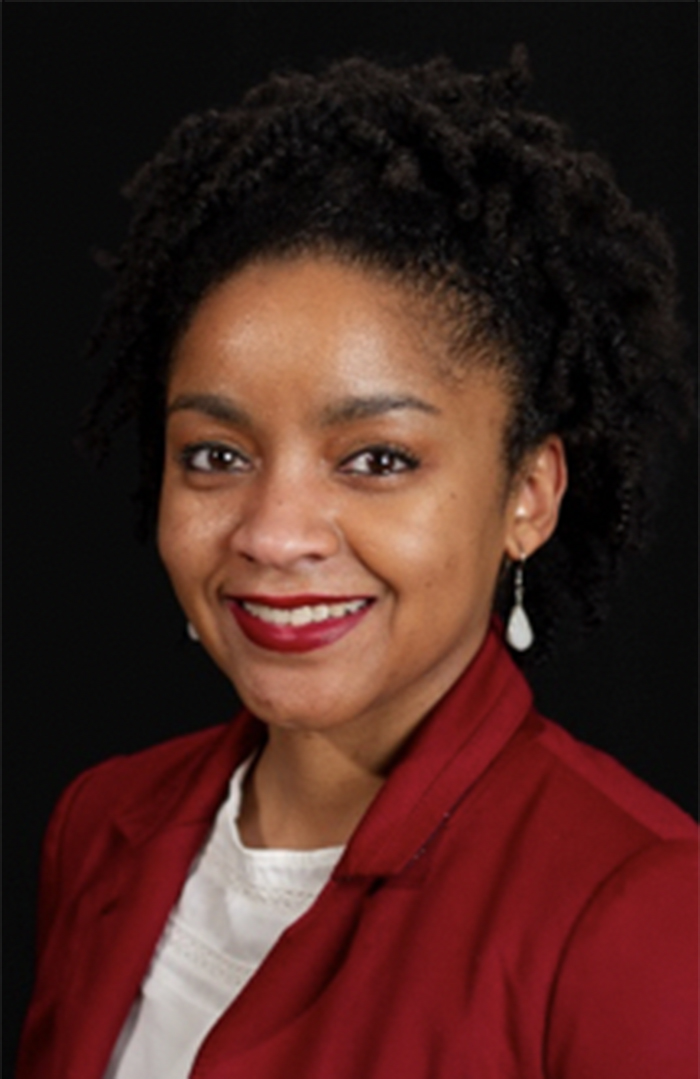 Open education is commonly known for the advocacy of OERs (open educational resources), consequently framing the discourse as a textbook issue. However, there is an increasing need to consider the intersections between social justice, inclusion, equity, and open education. Roberts’ talk will address the urgency of centering social justice approaches in open educational practices and the challenges of this process, and provide recommendations for attendees to apply to their context.
Open education is commonly known for the advocacy of OERs (open educational resources), consequently framing the discourse as a textbook issue. However, there is an increasing need to consider the intersections between social justice, inclusion, equity, and open education. Roberts’ talk will address the urgency of centering social justice approaches in open educational practices and the challenges of this process, and provide recommendations for attendees to apply to their context.Jasmine Roberts is a lecturer in the School of Communication at the Ohio State University, where she teaches in the areas of public relations writing, digital activism and campaign strategy. Roberts’ advocacy work centers on the experiences of people of color, women and queer communities. Along with her communication expertise, Roberts is also a renowned open education leader. She has delivered numerous keynote presentations across the country on the topics of inclusion in open education. She is the author of the highly-rated, openly-licensed book "Writing for Strategic Communication Industries".
Faculty and staff can register here.
This event is part of the 2020-2021 Clavius Seminar Open Revolution hosted by
Kelly Banyas, Assistant Professor, Research & Instruction Librarian
Marleen Cloutier, Assistant Professor, Cataloging & Metadata Librarian
Colleen Farry, Assistant Professor, Digital Services LibrarianStaff and Faculty Event: Clavius Seminar Open Revolution Meeting
-
02/10/2021
The recently released 2020 Brigham Young University Accounting Rankings have placed The University of Scranton Accounting Department and faculty among the best in the world.
The BYU report ranks accounting programs and faculty throughout the world based on their success in publishing in top-tier accounting journals. The report is updated annually and includes ranks for specific categories of research and for specific time periods. The recently released BYU update ranks the Accounting Department at The University of Scranton as the fourth most prolific department in the world for accounting education research (excluding cases) over the most recent six-year period. The department was also ranked internationally for all methods, audit and experimental accounting research.
With respect to authorships of individual accounting faculty in the area of accounting education, three Scranton faculty members were ranked internationally. Douglas M. Boyle, D.B.A., associate professor, chair of the Accounting Department, and director of the DBA program was ranked No. 7. James F. Boyle, D.B.A., assistant professor and director of the MAcc program, and Brian W. Carpenter, Ph.D., professor, ranked No. 22 (tied). Additionally, Dr. Douglas Boyle was ranked for all methods, auditing, and experimental research and Dr. Carpenter was ranked for all methods.
The Association to Advance Collegiate Schools (AACSB) estimates that there are more than 13,000 business schools in the world. Since 1990, only 664 of those 13,000 schools had any publications in any of the top-tier journals used in the BYU rankings, and only 336 of these schools had any publications in the top-tier accounting education journals used in the BYU rankings.
The University of Scranton’s Accounting Departmental fourth place ranking is a continuation of research accolades received by the department, faculty, and students. Last year, the department was ranked No. 1 in the nation in “The Intersection of Academia and Practice: Publishing in Leading U.S. Accounting Organizations’ Journals” (Issues in Accounting Education, May 2020), for the number of publications in the leading refereed accounting practitioner journals, over the most recent five-year period. Four Scranton accounting faculty received individual national rankings: Dr. Douglas Boyle ranked No. 1, Dr. Carpenter ranked No. 2 (tied); Daniel P. Mahoney, Ph.D., professor, was ranked No. 3 (tied), and Dr. James Boyle was ranked No. 7 (tied).
“We are very proud of the scholarly accomplishments of our Accounting department faculty and especially glad to see their commitment to publishing with students. This student-centered approach to scholarship is integral to our Jesuit mission and tradition,” said Jeff Gingerich, Ph.D., provost and senior vice president for academic affairs.
Additionally, last year articles co-authored by accounting faculty and Doctor of Business Administration program (DBA) students were recognized in the most recent international Institute of Management Accountants (IMA) Lybrand competition. Lybrand awards are given annually to the top three articles published by the IMA whose journals reach more than 120,000 subscribers. Dr. Douglas Boyle and DBA student Daniel Gaydon received the Lybrand silver medal for an article titled “SEC Whistleblower Program Expands,” published in Strategic Finance. Dr. Douglas Boyle and Dr. Mahoney and DBA student Marcus Burke received the Lybrand bronze medal for an article titled “Goodwill Accounting: The Matter of Serial Non-Impairment,” published in Management Accounting Quarterly. Dr. Douglas Boyle and DBA student Patrick O’Brian received a Lybrand certificate of merit for an article titled “Do You Have Emotional Intelligence?” published in Strategic Finance. Drs. Douglas Boyle, James Boyle, and Mahoney and DBA student Amanda Marcy received the IMA inaugural Curt Verschoor Ethics Feature of the Year for an article titled “The Value of Trust to Financial Professionals and Their Organizations,” published in Strategic Finance.
With these most recent recognitions, Scranton’s Accounting Department has received more Lybrand awards than any other program in the world over the past ten years with six Lybrand medals (two gold, two silver and two bronze) and five certificates of merit (“An Analysis of IMA’s Lybrand Awards: 2010-2019,” Management Accounting Quarterly, 2020). Four Scranton faculty received individual rankings: Dr. Douglas Boyle ranked No. 1; Dr. Carpenter ranked No. 3; Dr. Mahoney ranked No. 4 (tied); and Dr. James Boyle ranked No. 6 (tied).
Accounting Faculty Research Ranked Among the Top in World
-
01/26/2021
The Office of Research and Sponsored Programs (ORSP) has a monthly and once during the summer raffle for members of the University who submit external grant proposals. This month the winner is Charles Pinches, Ph.D., Theology Department. ORSP will randomly select a name from all faculty and staff members who have applied for an external grant during that time period. The winner receives a $25.00 gift card.
ORSP December Raffle Winner - Dr. Charles Pinches
-
01/26/2021
Faculty members, did you publish a book in 2020-21? We want to hear about it!
Email the title and synopsis of your book and how it relates to your discipline to scrantonjournal@scranton.edu and we will feature your work in the upcoming Scranton Journal's Focus on Faculty section.
Faculty: We Want to Feature Your Scholarship
-
01/05/2021
The following is a note to the University community from the Provost's Office.
Dear Members of the University Community,
I am saddened to inform you of the passing of Professor Emeritus Frank P. Corcione, Ph.D. He died Dec. 30, 2020, at the age of 80.
Dr. Corcione taught in the Department of Economics/Finance of the Kania School of Management for nearly 30 years before retiring in 2009. His specialty was in the area of labor relations. During his career, he served on a national panel of just 19 experts that evaluated the Federal Job Training Partnership Act of 1982 and helped to negotiate labor contracts for more than 20 labor unions and local governments.
A native of Bethlehem, Dr. Corcione earned a bachelor’s degree from Moravian College. He earned a master’s degree and Ph.D. from Lehigh University. He served in the U.S Marine Corps from 1958 to 1962.
Dr. Corcione is survived by his wife, Sandra, his two sons, Christopher and Matthew, and his grandson, Michael.
His obituary can be seen here.
Sincerely,
Jeff Gingerich, Ph.D.Death of Professor Emeritus Frank P. Corcione, Ph.D.
-
01/05/2021
Research on how people succeed with their resolutions and behavior change by University of Scranton Distinguished Professor John C. Norcross, Ph.D. is often cited in the new year. Here are some highlights from the news that quoted Dr. Norcross or cited his research recently.
On Impact of Pandemic
“Particularly in the United States, resolutions are invariably cast as an individually oriented deprivation task, and this may be exactly the worst time to put that onto yourself,” Washington Post
On Scaling Back
"Most of us are preoccupied with pandemic concerns," Norcross says. "We can't bring the same commitment, motivation, or prioritization to our resolutions as we could in other years. Think of it like trying to drive while distracted." - Newsweek
On Nature's Power
"We call it ‘vitamin N." - WebMD News
On Meeting Goals
"Norcross says that contrary to public opinion, a considerable proportion of New Year resolvers do meet their goals. About 40% to 44% of people who set New Year’s resolutions will be successful at six months, he says." - Washington Times
On Finding Support
"There’s hundreds of studies in the health psychology literature suggesting in fact that social support does in fact make a difference," he says. - CBS Baltimore
On Mulligans or Cheat Day
[Excerpt from CNN]
Slipups happen. So factor them in. Rather than trying to meditate every day, your goal could be to meditate five out of seven days per week.
That's one way to avoid what behavior change researchers call the Abstinence Violation Effect, in which you say "screw it" after missing a day of routine and let it slide even more. So use your slips as an opportunity to learn.
"Don't let a slip become a fall," said John Norcross, distinguished professor and chair of psychology at the University of Scranton in Pennsylvania and author of the book "Changeology: 5 Steps to Realizing Your Goals and Resolutions." - CNN
On Success
(Excerpt from The Atlantic)
The four habits associated with successful resolutions are mostly positive: practicing self-liberation (that is, strengthening willpower by reinforcing the belief that one can change); rewarding oneself for ongoing success; avoiding situations of temptation; and engaging in positive thinking (envisioning success). Resolution failure is associated with negative thinking, such as focusing on the harm from the old behavior; berating oneself for slipping up; wishing that the challenge didn’t exist in the first place; and minimizing the threat (denying the importance of the resolution). In sum, the key to success is positive motivation. The Atlantic
On Timing
“My resolutions will begin in June, when enough of the vaccines are out to get something done,’” he says. - Yahoo Life
Dr. Norcross' Research Cited Again in New Year
-
12/17/2020
Nathaniel Frissell, Ph.D., assistant professor of physics and electrical engineering at The University of Scranton, was awarded a highly-competitive National Science Foundation (NSF) CAREER grant that integrates original research on the effects of lower and middle atmospheric waves on ionospheric disturbances with course instruction and undergraduate and graduate research and education. The five-year $616,054 NSF CAREER grant is a special funding program that is only available only to early-career, tenure track faculty members and must include tightly integrated research and education components.
In a press release, U.S. Representative Matt Cartwright applauded the NSF’s $616,054 federal grant awarded to Dr. Frissell.
“America’s leadership in technology is due in large part to the work that goes on in places like the University of Scranton,” said Rep. Cartwright, a member of the House Appropriations Committee. “This kind of research not only moves us forward on innovation, the students who take part in it can then become part of a highly skilled workforce that attracts space and technology businesses to our area. I applaud Dr. Frissell and The University of Scranton for their pioneering work. In Congress, I will continue to support National Science Foundation initiatives that lift up Northeastern Pennsylvania’s best minds.”
Dr. Frissell’s NSF CAREER proposal builds on his previously awarded $1.3 million NSF grant to develop modular, ground-based space science observation equipment and software that will be used to collect and analyze data from an international network of amateur (ham) radio users, which includes a newly formed a student radio club at Scranton.
“Space weather significantly impacts important modern technological systems, and the effective operation of such systems is dependent on the state of the ionosphere. Understanding the connection between traveling ionospheric disturbances and atmospheric gravity wave sources in the lower atmospheric regions could improve the ability to predict the ionospheric state and thus its impact on navigation and communications systems,” said Dr. Frissell in the introduction of his grant proposal.
Through the NSF CAREER grant, Dr. Frissell will apply sophisticated, physics-based atmospheric/ionospheric models to extensive new data collected through in international collaboration of ham radio operators using “Personal Space Weather Stations” that he helped to develop in order to better understand the connection between ionospheric disturbances and atmospheric gravity wave sources. The new funding supports two graduate master of science in software engineering research assistants at Scranton who will conduct data analysis, and run models and code implementation using a new Linux-based analysis server that this proposal will also fund.
“The master’s theses software engineering students will include both a software engineering component and a science component,” said Dr. Frissell. “These interdisciplinary theses will maximize the students’ options after graduation. In addition to being well prepared to work as a software engineer, they will have experience for jobs in any of the science fields related to this project.”
In addition, Dr. Frissell will introduce physics and engineering students to space physics research and develop the skills needed to conduct this research through an introductory physics course for first-year students and, at a more sophisticated level, through an upper-level undergraduate Introduction to Space Science and the Atmosphere course he teaches. The grant also funds a summer undergraduate research assistant and encourages other opportunities for student research.
“Research opportunities will be made available to any interested student, with priority given to students majoring in physics, electrical engineering, computer science, or a related field,” said Dr. Frissell. “It is expected that this research will generate multiple peer-reviewed articles that will be published in journals such as Geophysical Research Letters, Journal of Geophysical Research: Space Physics, Space Weather, and Radio Science, with some articles authored or co-authored by a master’s or undergraduate student.”
Under the grant proposal, Scranton’s amateur radio club W3USR will also play a role in disseminating the information about the research on campus and to the broader community.
Dr. Frissell joined the faculty at Scranton in the fall of 2019. He earned a doctorate and a master’s degree in electrical and computer engineering from Virginia Tech in Blacksburg, and a bachelor’s degree in physics and music education from Montclair State University in New Jersey. He is the founder and lead organizer of the international citizen science space physics research collective known as the Ham Radio Science Citizen Investigation (HamSCI.org).
Professor Awarded Six-figure NSF CAREER Grant
-
12/08/2020
Biology faculty members Ashley Driver, Ph.D., David Ingber, Ph.D., and Tara Fay had to rethink how they ran their lab classes during the fall semester to safely meet the health restrictions caused by the pandemic.
Dr. Driver, who taught the lab for her Cellular Biology course (Bio 350) and Dr. Ingber, who taught the lab sections for General Biology courses (Bio 141 and 142), both used technology in different ways to introduce a technique or experiment, which is normally done during the lab, in order to optimize the students’ time spent in the lab.
Dr. Driver used virtual simulations to introduce the particular technique that the students then practiced in the lab.
“What this allowed me to do was to navigate the issue of having fewer students able to be in the lab at a given time because of social distancing requirements and having to shorten the lab activities to be able to rotate students through, while still giving them enough knowledge so they are able to get something out of that technique,” said Dr. Driver. “The real goal of a cellular biology lab is to have students experience and apply techniques that are common in cell and molecular biology. I have the students complete online simulations followed by shortened in-lab experiments where use one of these techniques to gain data and then interpret the data to draw conclusions.”
For his General Biology labs, Dr. Ingber used Panopto to create video demonstrations of the experiment his students would then complete in a lab session.
“The demonstration video shows the students what they will be doing in that lab. The video shows a top down view where you see my hands as I do the experiment, in addition to multi-camera views where it shows me and a white board or the screen of my laptop if we are using a specific program. The goal is to have the students know exactly what they have to do when they get into the lab,” said Dr. Ingber, who also had to rotate students through the lab periods in order to meet the social distancing constraints of the space.
Dr. Ingber also customized pre-lab lessons using an online tool (Lt by ADInstruments) that included graphs, questions, downloadable items and pop-ups with videos and vocabulary to help the students understand the significance of the procedure they would be performing. He moved the instructional time online in order to have in-classroom time strictly focused on data collection. Following the lab, the students then used the data they collected to complete their analysis and write their lab reports.
In addition to the social distancing requirements that limit the number of students in lab spaces, the Human Anatomy and Physiology course labs (Bio 110) taught by Prof. Fay use painted models and bones that would not tolerate the disinfecting cleaners required for students to safely handle them. These factors led Prof. Fay to teach the labs remotely.
“As a way to try to offset the loss of the hands-on component of the lab, the students used an oil-based modeling clay that remains its pliable for months to make models of a long bone, a portion of the spinal cord and some human muscles,” said Prof. Fay. “We used the clay models in about half the labs during the semester and since the clay doesn’t dry out, the students can then refer to the models they created to study for the course.”
For dissection labs, Prof. Fay used a program called Visible Body that “is basically a human anatomy atlas. The images are interactive where you can add muscles, or take away muscles, add skin or take skin away, which allowed the students to do a virtual dissection,” said Prof. Fay. She said the program also allows students to watch videos of the muscle in action.
“When a particular muscle contracts it performs an action to move a part of your body in a specific way. The students had the ability to watch muscles working,” said Prof. Fay.
Dr. Ingber created videos demonstrations for experiments his student would then complete in his General Biology course labs during the fall semester.Faculty Creatively Adapt Biology Labs for Semester
-
11/24/2020
University of Scranton Associate Professor Yibai Li, Ph.D., is always looking for unique ways for students in his Data Mining course to apply their knowledge in an actual professional context.
In the spring of 2018, he found one such opportunity – working with Lititz, Pennsylvania-based R.W. Sauder, one of the country’s biggest egg wholesalers.
Students in the course spent the entire semester attempting to find out whether data mining could predict egg prices six weeks ahead of time. That would allow R.W. Sauder to better manage its inventory, reduce its costs and increase its profits.
By the end of the project, the class had developed a model that could predict egg prices six weeks out -- at an accuracy rate of 92.8 percent when the confidence level was above 0.57, according to Dr. Li.
“I was pleased with the students' performance, considering data mining is a difficult topic,” said Dr. Li, a member of the Operations and Information Management Department. “Typically, it requires many years of learning, sometimes a Ph.D., before someone can complete a project like this. We did it within one semester. The students learned data mining from scratch and were able to complete a real-world project by the end of the semester.”
Various Algorithms Used
To start the project, Dr. Li divided the class into five groups, with each working independently, yet comparing their results to improve each other's models. Besides gathering Sauder’s 10-year sales numbers and egg prices, the students collected some other useful information, including Avian flu incidents, severe weather incidents and temperature over the same decade.
“I think the project was done very rigorously,” Dr. Li said. “The students followed the data mining methodology they learned in the course and tried many different cutting edge algorithms and optimized the results accurately.”
The students presented their results to R.W. Sauder's President and CEO, Mark Sauder, and other company representatives. The executives found the results useful and commended the students for their efforts.
Mutually Beneficial Results
Besides providing a significant service to R.W. Sauder, the students made themselves more marketable in the process.
“This project gave me great exposure to not only polishing my data mining skills, but also in working on my presentation skills, which continues to help me immensely in my current role,” said Hurr Hamdani, a securitized products analyst at JPMorgan Chase & Co. He received his MBA from the University in 2018.
Meanwhile, Hamdani's classmates have landed positions at other top-flight companies, including Goldman Sachs.
“The students,” Dr. Li said, “got real-world project experience that they could put on their resumes.”
Data Mining Class Gives Students Real-World Experience
-
11/23/2020

Adam Pratt, Ph.D., a professor in the History Department, discusses the Trail of Tears and Cherokee removal on the Alarmist, a podcast that "scrutinizes history’s greatest disasters to figure out what went wrong, and most importantly, who’s to blame," according to the show's website.
His book, which focuses on how the state of Georgia used violence to acquire Cherokee territory, is titled Toward Cherokee Removal: Land, Violence and the White Man’s Chance was published on Nov. 1.
"We don't know for certain how many native people died on the Trail of Tears. We estimate that for the Cherokees it's between 2,000 and 4,000, but there were roughly 16,000 Cherokees at the time so we're talking a quarter of the population died," he said in the interview. "It's a brutal process. It's a process that happens because of a lot of political and bureaucratic reasons that make it worse than it needed to be if it needed to happen at all."
Dr. Pratt teaches courses in 19th-century United States history, including upper-level courses on the Age of Andrew Jackson, Native American history and the Civil War and Reconstruction.
Listen to the podcast, here.
History Professor Discusses Trail of Tears and Cherokee Removal on Podcast
-
11/18/2020
Research on mass spectrometry imaging by Katherine Stumpo, Ph.D., associate professor of chemistry, and two of her students, now graduates, was published in an academic journal. They also have a patent pending on their imaging technique.
Dr. Stumpo, who leads a research group of 12 undergraduate and 10 graduate students at the University, focuses their research on mass spectrometry (MS), which is an analytical technique that essentially “weighs” molecules.
“MS research extends from instrument development to applications in chemistry, geology, forensics, biological sciences, and more,” said Dr. Stumpo. “Our project focus of late has been on mass spectrometry imaging (MSI), which is an incredibly powerful technique that can determine qualitative and quantitative information of hundreds of compounds in a tissue section in one experiment. We have published on this recently, as a proof-of-concept that we can detect these compounds of interest.”
Dr. Stumpo’s ongoing research is a continuation of that work.
Dr. Stumpo and then University of Scranton students Nolan McLaughlin ’20, Moscow, and Tyler Bielinski ’18, ’G20, Dunmore; along with colleagues Caitlin Tressler, Ph.D.; Eric Barton; and Kristine Glunde, Ph.D.; published an article titled “Pneumatically Sprayed Gold Nanoparticles for Mass Spectrometry Imaging of Neurotransmitters,” in the Journal of the American Society for Mass Spectrometry. They demonstrated a simple citrate-capped gold nanoparticles (AuNPs) approach for the for the ionization of neurotransmitters that enhances laser desorption ionization mass spectrometry and “provides a fast, high-spatial resolution method for simultaneous detection of a class of molecules that typically evade comprehensive detection with traditional matrixes.”
Dr. Stumpo, McLaughlin, Bielinski, Dr. Glunde, and Dr. Tressler have a patent pending for their “Method of Comprehensive Neurotransmitter Detection using Citrate-Capped AuNPs for Imaging Mass Spectrometry.”
Dr. Stumpo also published a chapter titled “Mass Spectrometry Imaging of Neurotransmitters,” in Mass Spectrometry, edited by Goran Mitulovic, in InTechOpen in 2020. The chapter explored previous and up-and-coming techniques for maximizing the detection of neurotransmitters in mass spectrometry imaging.
McLaughlin is pursuing a Ph.D. at Washington University in St. Louis and Bielinski is applying for admission to medical school.
Dr. Stumpo joined the faculty at Scranton in 2015. She earned a bachelor’s degree from the University of Northern Iowa and a Ph.D. from Texas A and M University.
Professor Works with Students to Publish Research
-
11/17/2020
The Office of Research and Sponsored Programs (ORSP) has a monthly and once during the summer raffle for members of the University who submit external grant proposals.
This month the winner is Sinchul Back, Ph.D., Sociology, Criminal Justice & Sociology Department. ORSP will randomly select a name from all faculty and staff members who have applied for an external grant during that time period.
The winner receives a $25.00 gift card.
Sinchul Back, Ph.D., Wins ORSP Raffle
-
11/10/2020
How do faculty know what is working and, more importantly – what’s not, when teaching a class? They observe student reactions during class; review results of assignments, tests and quizzes; and even survey students regarding their opinions about the way the course material is being presented. At least these are some of the methods applied by Nicholas Sizemore, Ph.D., associate professor of chemistry, and Nathaniel Frissell, Ph.D., assistant professor of physics and engineering, for their curriculum during this unprecedented fall semester.
Dr. Sizemore is teaching Introductory Chemistry I (Chem 110) and Organic Chemistry I (Chem 232) remotely this semester. In the spring, the pandemic obliged him to adjust courses to a virtual format midway through the semester. At the semester’s end, he used a survey that allowed students to anonymously provide feedback about the course and then used their input to inform his approach to the material for the fall semester.
Dr. Sizemore relies on a combination of recorded lectures and slides for problem-sets that he can complete as he goes through the material. The students watch the pre-recorded lectures prior to attending class. The class time is then used as a discussion session, giving students the opportunity to ask questions about material covered in the lecture. In addition, he will also offer online discussion sessions if warranted.
Dr. Sizemore essentially “flipped” his class. “I reorganized the way we cover material,” said Dr. Sizemore. “We spend a lot of class time solving problem sets. The students watch the lectures on their own time. That’s a better use of class time than having the students struggle through a problem set on their own, then sit in my class for a lecture.”
Dr. Sizemore also surveys students at mid-term, allowing them to anonymously tell him which aspects of the class and resources offered are most useful, as well as which are not.
“Some items mentioned in the feedback can be adjusted easily during the semester, some cannot. The students have been pretty understanding of that,” said Sizemore, who has done mid-term surveys of his students since he began teaching at Scranton five years ago. “The main thing is to be willing to be as accommodating as possible.”
Dr. Frissell also tries to be as flexible as possible to accommodate students.
“I am trying to add a sense of normalcy to class instruction during these unusual times. At beginning and end of class, I chat with students about how they are doing,” said Dr. Frissell, who is teaching Digital Signal Processing (EE 346) and Intro to Astrophysics (Phys 360) courses in-person, while incorporating Zoom for students who cannot make it to class. The Zoom option is also maintained so he can move seamlessly to an online format as needed during the semester.

Dr. Frissell is leveraging technology for instruction. He uses Zoom Share to allow remote students to ask questions in real time and has integrated his iPad into Zoom to allow him to solve problems live during class sessions, a demonstration he found his students prefer.
“I also download notes prior to class so students can review and follow along during the class. The students can also refer to the notes over time,” said Dr. Frissell.
Dr. Frissell views the video feed of students on his computer during class, so he can “see their reactions to the material while I’m also watching the students in the classroom, too. That gives me a general impression – do they like the format – do they like the way I am teaching – as well as do they seem to understand the material? After I explain something, I give the students time to respond with questions.” Dr. Frissell uses homework assignments for students to demonstrate their understanding of the material covered. In addition, prior to reviewing material in class, he uses a real-life application of a concept to motivate the students about the topic.
For the physics and engineering courses taught by Dr. Frissell, learning some kind of computer programming language is important.
“How do you take these concepts and actually put them into the computer?” said Dr. Frissell. “What’s beautiful now is that there are free and open-source tools available to students that will let them use the computations we learn in class. I use those tools a lot in the class. I can teach the code and input the digital signals into the computer, then students can do the processing and use that to help solve homework or exam problems. I am trying to give students the same level of experience they would get in the classroom remotely and vice-versa.”
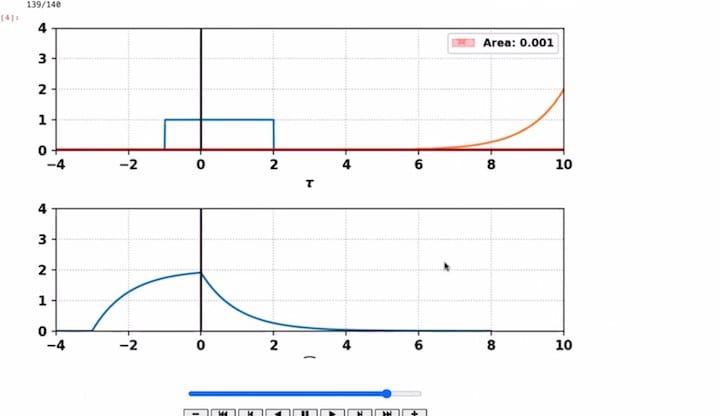
In physics and engineering courses taught by professor Nathaniel Frissell, Ph.D., students learn computer coding and input the digital signals to solve homework or exam problems.
Faculty Adjust Method of Instruction for Fall
-
11/03/2020
University of Scranton students and political science faculty members were interviewed by journalists representing multiple international publications as part their news coverage of the U.S. Presidential Election. Faculty members and students were also quoted in national, state and local news stories about the election.
Professor and Political Science Department Chair Michael Allison, Ph.D., spoke to Voice of America and Spain’s ETB, Basque Public TV. JoyAnna Hopper, Ph.D., assistant professor of political science, was interviewed by Poland’s Polsat News. Political Science Professor Jean Harris, Ph.D., and University students were interviewed for a segment on Pennsylvania voters for France 24 TV.
In national news coverage of the election, Dr. Harris and Gretchen Van Dyke, Ph.D., associate professor of political science, were interviewed for CBS news stories. University students participated in a Fox News focus group following the first Presidential Debate.
Dr. Harris and University of Scranton students participated in Pennsylvania Cable Network’s (PCN) Election College Panel. Julie Cohen, adjunct professor of political science, was interviewed for a story by Pennsylvania Capital Star. Iordanis Petsas, Ph.D., professor and chair of the Economics and Finance Department, was interviewed by the Philadelphia Inquirer for a story about the candidates’ trade policies.
Dr. Allison, Dr. Harris and Dr. Hopper were also interviewed for numerous local news stories on the election, the presidential debates and the frequent visits by the candidates and their running mates to the Scranton area.
Scranton Part of International Election News
-
10/28/2020
Gretchen Van Dyke, Ph.D. is the latest professor to weigh in on the election, specifically related to Scranton as a battleground.
Read what the political science professor at Scranton had to say in CBS News, here.
You can also get the perspective of other faculty and staff on the election -- and the role Scranton has played -- through the below links.
Iordanis Petsas, Ph.D., chair of the Economic and Finance Department, was recently interviewed by the Philadelphia Inquirer on trade policies and agreements that have been supported by Joe Biden on their effects on Pennsylvania and specifically the city of Scranton. Read the article here.
Mike Allison, Ph.D., University political science professor, said that President Donald Trump is focused on winning Biden’s state. Read the article on ABC 27 News here. He also appeared on WNEP TV to discuss teaching political science during this election cycle, which you can read here.
A July article in The Washington Post, which details past and present candidates’ connection to Scranton, called it “the best-known small city in America” because of the national attention it has garnered during the election season. Meghan Rich, Ph.D. a professor in the Sociology and Criminal Justice Department, said that for a small city, it has “a large presence in people’s imaginations.” Read The Washington Post article here.
Julie Schumacher Cohen, assistant vice president of University Community Engagement and Government Affairs, said the NEPA region remains important in the election because there has been “movement and change as far as political party registration and in voting patterns” since 2016. Read more in Pennsylvania Capital-Star, here. She also weighed in on the city of Scranton’s “story” in another Pennsylvania Capital-Star article here.
Political science professor Jean Harris, Ph.D. said that voters are being more critical than they were four years ago. Read Harris’ comments in The Philadelphia Inquirer and The Wyoming County Press Examiner. She also commented in two CBS News articles about the election here and here.
JoyAnna Hopper, Ph.D., a political science professor, talked about the local reaction to the vice presidential debate on Fox56.
Pennsylvania Cable Network’s (PCN) Election College Panel program, recorded via Zoom at The University of Scranton, aired on Constitution Day, Sept. 17 on PCN’s cable channel and streaming services.
Read more here.
Van Dyke and Others Weigh in on Scranton Area as Election Battleground
-
10/28/2020
Although we recognize first-years and transfer students as new to campus, we don't often think about another group that is just settling in: newly hired faculty.
Spencer Galen, Ph.D. is one of those new professors. He teaches General Biology and General Physiology Lab at Scranton. This is his first full-time job as a professor.
“It has been a dream of mine to become a professor for many years,” Dr. Galen said. “It is thrilling to finally be living that reality.”
This semester, Dr. Galen is teaching both of his classes with a hybrid method of some in-person meetings and some online. Dr. Galen said he wanted to have some in-person interaction while also reducing the risk of COVID-19 transmission for both his students and himself.
“My thought was that hybrid teaching would be a good balance between these two goals, though it has not been without challenges,” he said.
The current situation has made Dr. Galen more aware of his students’ varying needs. Dr. Galen said the current stressful times are affecting people at all different levels.
“Some people have been affected more than others by the pandemic,” Dr. Galen said, “I have tried to keep that in mind this semester.”
Dr. Galen’s hybrid schedule allows him to interact with and meet some of his students and colleagues. Dr. Galen said his brilliant students and colleagues are his favorite part about teaching at Scranton.
“It’s exciting going to work every day in such an intellectually stimulating environment,” he said.
Dr. Galen spends a lot of time prepping for his class periods, especially because it is his first time teaching these classes. Dr. Galen said he never understood how much time when into class preparation as a student.
“Even if you are an expert in the subject, preparing for a single class period takes far longer than you can ever imagine,” Dr. Galen said, “As a student, I never understood just how much time goes into one class period.”
Dr. Galen earned his bachelor’s degree from the University of Delaware, his master’s degree from the University of New Mexico and his doctoral degree from the Richard Gilder Graduate School in New York City. In addition to his academic work, Dr. Galen also participates in scientific research regarding ornithology, the study of birds, and parasitology, the study of parasites.
“I study birds and parasites in the scope of how organisms interact with each other and their environment and evolutionary biology,” he said.
Apart from his teaching and his research, Dr. Galen enjoys hiking, bird watching and taking photos of wildlife.
Meet Spencer Galen, New Professor
-
10/21/2020
In today’s global economy, a little more social justice could go a long way.
With that in mind, the Operations and Information Management (OIM) Department is making this main tenet of the Jesuit philosophy a significant part of its curriculum.
Thanks to the results of a research project by three professors, it appears that integrating social justice themes into undergraduate business courses is making a difference. These professors, all from the OIM department, infused social justice into statistics, management science, operations management and business information management core courses.
The intention is to mold business graduates who possess a firm understanding and commitment to ethics, justice and good works on behalf of underserved populations.
Professor Rose Sebastianelli, Ph.D., Alperin Endowed Chair in Business Administration, Associate Professor Yibai Li, Ph.D., and Assistant Professor Ozgur Isil, Ph.D., began their work in 2017.
They spent four semesters incorporating social justice elements into their courses. Using a rigorous pre-test post-test research design with control groups, they set out to determine if students’ beliefs, attitudes and intentions regarding social justice could be changed for the better.
The results were encouraging.
“We found these efforts made a difference in attitude and perceptions of social norms surrounding social justice,” Sebastianelli said
A Sense of Purpose for Faculty
The seeds of the project were planted several years ago, when Dr. Sebastianelli participated in the national Ignatian Colleagues Program for Jesuit university administrators and faculty seeking a deeper appreciation for the religious order’s core values.
It included online workshops, reflection papers, seminars and an immersion trip to the United States-Mexico border through the KINO Border Initiative. The program concluded with a capstone experience in which participants plan projects for advancing mission on their own campuses.
“It really gave me a renewed sense of purpose in my work here – it’s so incumbent upon us to try to live our mission,” Dr. Sebastianelli said. “It made me think, ‘What more can I do to help students and faculty become instilled with these values?’”
As her capstone project, Dr. Sebastianelli organized a Business Education for Justice seminar for Kania School faculty. Drs. Li and Isil were among the participants, and its focus on issues like environmental sustainability, ethics and corporate social responsibility paved the way for the research project.
Social Justice a Timely Topic
Dr. Sebastianelli is confident social justice can be seamlessly integrated into the curriculum, considering the many issues now at play in the international business community – be it child labor laws or environmental regulations.
Even a highly analytical course like statistics, which Dr. Sebastianelli teaches, can be infused with social justice via examples that revolve around societal problems like gender and racial discrimination, she said.
Dr. Li plans to use assignments and case studies to weave social justice into his Business Information Management course.
“A lot of new technologies such as cloud computing, big data, business intelligence and blockchain, terms that people didn’t hear about 10 years ago, now have been widely applied in the business world,” Dr. Li said. “Things happen so quickly that the legal, ethical, social justice and privacy implications of these technologies have not been fully understood by the industry.”
Dr. Isil will specifically focus on incorporating environmental sustainability into the OIM courses.
“Environmental sustainability issues often have implications on social justice. For example, environmental degradation in the developed world can negatively impact less developed countries, such as through increased flooding in developing countries due to worsening climate change caused by emissions from developed countries,” he said. “How should the scientific consensus on worsening environmental degradation inform business, which causes much of the environmental degradation?”
Impacting the Future
The professors have presented their research at several conferences, and have written a manuscript that was published in the September 2020 issue of the Decision Sciences Journal of Innovative Education. They hope the concept will eventually spread to other business schools.
“This is something that, to me, has meaning and could have an impact on the future,” Dr. Sebastianelli said. “Maybe if we can get students to think this way now, they might consider the consequences and ramifications of their actions once they’re in their careers.”
“In the future, when they are in managerial positions, I hope they will recall what they learned in my course,” Dr. Li added. “And I hope they will make thoughtful decisions that will benefit not only their business but also all of society.”
Faculty Show Social Justice Can Be Taught
-
10/13/2020
Ahmed Gomaa, Ph.D., entrepreneurship director and associate professor of operations and information management at The University of Scranton, received a $50,000 National Science Foundation (NSF) grant for a project that seeks to improve shared access to and security of individual health information.
The project seeks to identify and find solutions to problems concerning information capturing, managing and sharing of individual health records, while meeting compliance requirements of the Health Insurance Portability and Accountability Act (HIPAA) for the U.S. and the General Data Protection Requirements (GDPR), required by the European Union.
Through the project, Dr. Gomaa, principal investigator and industry mentor, is working with colleagues Matt Hope, M.D. candidate, and Evan Porter, M.D., from Geisinger Commonwealth School of Medicine who co-founded Summa, a new healthcare technology company. They have already interviewed more than 100 stakeholders in the pharmaceutical and healthcare industries. Their survey of stakeholders confirmed the need to address the information “silos” challenge among the different parties, such as specialized and primary health care providers, hospitals and health information collected by pharmaceutical companies through clinical trials, as well as personal health data collected by various wellness wearable devices, and applications. Their research also revealed stockholders concerns about shared data governance and information bias from the various sources, in addition to health information security requirements.
“An objective of the NSF is to help researchers transform their inventions into impact. The NSF wants to make sure that the scientists are speaking with those in the industry to ensure that the technologies they are developing meet actual industry needs,” said Dr. Gomaa.
Their research will focus on developing an information system that meets the validated industry needs, such as capturing, managing and sharing individual health information, while still maintaining HIPAA and GDPR requirements.
Eventually, Dr. Gomaa envisions being able to better forecast individual health risks, while ensuring transparent data governance using blockchain, Artificial Intelligence and predictive analytics.
Dr. Gomaa’s research focuses on developing practical applications that harness data to solve existing problems or improve business functions that have the potential to be commercialized in three to seven years. He has published research articles in the areas of entrepreneurship, health informatics, business analytics, blockchain, sentiment analysis and security. His work is cited in patents granted to companies including IBM, British Telecom, Deloitte, Intel, Microsoft and SAP, to name a few. Prior to becoming a professor, Dr. Gomaa founded iMediaStreams, a technology company that uses sentiment analysis for online marketing.
Dr. Gomaa earned his bachelor’s and master’s degrees from the University of Alexandria in Egypt, and his MBA and doctorate from Rutgers University.
Professor Receives NSF Grant
-
09/22/2020
Dr. Debra Pellegrino, dean of The University of Scranton’s Panuska College of Professional Studies (PCPS), served as a panelist for the virtual NEPA Learning Conference that was held on Thursday, Sept. 17. Dean Pellegrino’s presentation was titled “Collaborative Philanthropy in Action” as she presented the work of The University of Scranton and the Autism Collaborative Center of Excellence (ACCE) alongside five other panelists.
“It was a wonderful opportunity to explain the story of ACCE with the positive aspects of collaboration as well as its peaks and valleys,” Dean Pellegrino said. “Collaboratives are messy but so worthwhile especially when you are serving individuals with autism in the 13 county region of Northeastern and North Central Pennsylvania. The key with any collaborative is come to the table with your ideas and stay at the table.”
The 19 projects of ACCE will now be presented at the 19th annual U.S. Conference on disABILITY presented by PCPS and The Edward R. Leahy, Jr. Endowment. Due to the ongoing COVID-19 pandemic, the conference will be held virtually on Tuesday, Oct. 6. This marks the second consecutive year that the conference will focus on exploring Autism across the Spectrum and building inclusive communities.
“The ACCE conversations began in 2017 after examining the census data research. In the 13 county region, one in 68 individuals are diagnosed with ASD (autism spectrum disorder),” said Dean Pellegrino.
Registration for the 19th annual U.S. Conference on disABILITY is now open and can be completed by clicking here.
Dean Pellegrino Presents at NEPA Learning Conference
-
09/16/2020
Several University faculty and staff have weighed in on the 2020 presidential election over the past several months. They offered their expertise in local and national news outlets about Pennsylvania as a battleground state and, in particular, the city of Scranton as a focus of national attention during the election.
Iordanis Petsas, Ph.D., chair of the Economic and Finance Department, was recently interviewed by the Philadelphia Inquirer on trade policies and agreements that have been supported by Joe Biden on their effects on Pennsylvania and specifically the city of Scranton. Read the article here.
Mike Allison, Ph.D., University political science professor, said that President Donald Trump is focused on winning Biden’s state. Read the article in ABC 27 News here. He also appeared on WNEP TV to discuss teaching political science during this election cycle, which you can read here.
A July article in The Washington Post, which details past and present candidates’ connection to Scranton, called it “the best-known small city in America” because of the national attention it has garnered during the election season. Meghan Rich, Ph.D. a professor in the Sociology and Criminal Justice Department, said that for a small city, it has “a large presence in people’s imaginations.”
Read The Washington Post article here.
Julie Schumacher Cohen, assistant vice president of University Community Engagement and Government Affairs, said the NEPA region remains important in the election because there has been “movement and change as far as political party registration and in voting patterns” since 2016.
Read more in Pennsylvania Capital-Star, here. She also weighed in on the city of Scranton’s “story” in another Pennsylvania Capital-Star article here.
Political science professor Jean Harris, Ph.D. said that voters are being more critical than they were four years ago. Read Harris’ comments in The Philadelphia Inquirer and The Wyoming County Press Examiner.
Pennsylvania Cable Network’s (PCN) Election College Panel program, recorded via Zoom at The University of Scranton, will air on Constitution Day, Thursday, Sept. 17, at 7 p.m. on PCN’s cable channel and streaming services. Read more here.
Are you a faculty member who was also quoted in the local or national news about the election? Email us at royalnews@scranton.edu.
Faculty and Staff Weigh in on Election Topics
-
09/16/2020
Mary Jane Hanson, Ph.D., professor of nursing and director of the Department of Nursing’s graduate and doctor of nursing practice (DNP) programs at The University of Scranton, was named as a Fellow of the American Academy of Nursing (FAAN). Through a competitive application process, Academy Fellows are selected for induction into the organization for their extraordinary contributions to improve health locally and globally.
Dr. Hanson, and other 2020 Fellow inductees, will be recognized for their significant contributions to health and health care at the Academy’s annual Transforming Health, Driving Policy Conference, which will take place virtually Oct. 29-31.
Dr. Hanson joins University of Scranton Nursing Professor Margarete Zalon, Ph.D., among the American Academy of Nursing’s approximately 2,700 Fellows, who are recognized nursing leaders in education, management, practice and research.
Dr. Hanson holds certifications as an Adult Clinical Nurse Specialist, Adult Nurse Practitioner and Family Nurse Practitioner and maintains a current part-time family nurse practitioner practice. She also maintains numerous professional memberships and serves as chair of the board for the Commission on Collegiate Nursing Education (CCNE).
Dr. Hanson has published more than 30 papers in national and international peer-reviewed journals including Nursing Research, Western Journal of Nursing Research, The Journal for Nurse Practitioners, Nursing Education Perspectives, Journal of Health Management and Public Health, The Journal of the American Academy of Nurse Practitioners, American Journal of Critical Care, The American Journal for Nurse Practitioners, American Journal of Nursing, and Nursing Management. Her research interests include cigarette smoking, women’s health, cross-cultural study, adolescents’ risk behaviors and primary health care.
In addition, Dr. Hanson has been very successful at securing grant funding and has successfully authored federal grants for the graduate nursing program totaling more than three million dollars.
Dr. Hanson earned her bachelor’s degree from Cedar Crest College and her master’s and doctoral degrees from the University of Pennsylvania. She joined the faculty at University in 1996.
American Academy of Nursing Fellow Named
-
09/08/2020
The Jesuit Center Invites You to Consider Participating in a Truly Transformative Spiritual Experience
The Spiritual Exercises of St. Ignatius Loyola in Everyday Life The Jesuit Center is happy to offer faculty and staff the opportunity to pray the Spiritual Exercises of St. Ignatius beginning in the fall of 2020.
A Brief History of St. Ignatius and his Spiritual Exercises
Throughout much of the world, the Jesuits are best known for their colleges, universities, and high schools. But in a time when many are searching for greater meaning, another aspect of Jesuit life is attracting wide interest. And that is the unique spirituality introduced nearly 500 years ago by St. Ignatius Loyola, founder of the Jesuits.
Ignatius was a Spanish soldier and aristocrat who discerned his calling after suffering nearly fatal wounds on the battlefield. He established the Society of Jesus in 1540, instructing the early Jesuits to go out and "find God in all things." That is the signature spirituality of the Jesuits.
Ignatian spirituality is grounded in the conviction that God is active in our world. As the great Jesuit paleontologist Pierre Teilhard de Chardin wrote: "God is not remote from us. He is at the point of my pen, my pick, my paintbrush, my needle — and my heart and my thoughts." The spiritual path laid out by Ignatius is a way of discerning God's presence in our everyday lives.
The Jesuits have a handbook for this search which is called The Spiritual Exercises. This work, composed by the saint before he was even a priest, is often described as Ignatius' greatest gift to the world for these exercises unfold a dynamic process of prayer, meditation, and self-awareness for each exercitant. The basic thrust is to make us more attentive to God's activity in our world and therefore more responsive to what God is calling us to do.
The Spiritual Exercises in Daily Life:
The Jesuit Center’s approach to giving the Spiritual Exercises will be one that Ignatius himself proposed for busy people – a way to make a prayerful and potentially transformative retreat in everyday life. Over the course of eight months through daily prayer with Scripture, journaling, and regular conversation with a spiritual guide, one can experience the same graced movements and discoveries that a privileged few get to make in 30 days of secluded silence.
Those who do embark on this retreat will need to commit to the following beginning in early October and ending in early May
❇ One uninterrupted hour of daily prayer and journaling
❇ Weekly, hour-long meetings with your spiritual guide
❇ Monthly hour-long group sessions with all those participating in the Exercises (optional)
The long retreat is undeniably a commitment of time and resolve – one that may or may not be right for everyone or perhaps not right at this time. It is something of a spiritual marathon! Experience shows that work, family, travel and health commitments should be weighed carefully before considering to engage in doing The Retreat in Everyday Life. Know, however, that this treasure of Christian spirituality is not going away and that The Jesuit Center is committed to offering many different types of Ignatian prayer opportunities during the course of the year for faculty and staff. So keep your eyes peeled or stop by the Jesuit Center at any time to talk to us about opportunities for spiritual engagement.
For more information, or to speak to a member of the retreat team, please contact any member of the Jesuit Center staff for more information.
Faculty and Staff: The Spiritual Exercises of St. Ignatius Loyola
-
09/08/2020
The Office of Research and Sponsored Programs (ORSP) has a monthly raffle during the academic year (once during the summer) for members of the University who submit external grant proposals. ORSP will randomly select a name from all faculty and staff members who have applied for an external grant during that time period. The winner receives a $25.00 gift card.
ORSP Summer Raffle Winner, Dr. Christie Karpiak
-
09/03/2020
Yamile Silva, Ph.D., associate professor and chair of the Department of World Languages and Cultures at The University of Scranton, was elected as a member of the Executive Council of the Colonial Section, Latin American Studies Association (LASA).
LASA is the largest professional association in the world for individuals and institutions engaged in the study of Latin America. With over 13,000 members, more than 60 percent of whom reside outside the United States, LASA brings together experts on Latin America from all disciplines.
Dr. Silva will serve on LASA’s Executive Council for five years (2020-2025). She also serves as former president of the academic organization Association of Gender and Sexuality Studies and has served on the Curator Council of the Festival de la Palabra (San Juan, PR) since 2013.
Dr. Silva joined the faculty at The University of Scranton in 2009. At Scranton, she served as director of the Latin American Studies Program from 2013-2018 and has been an associated faculty member of the Women Studies Program since 2010. She also serves as director of the Intersession Study Abroad Program in Puebla, México (Universidad Iberoamericana) and the Summer Spain Program (Universidad de Navarra). Dr. Silva received the University’s Excellence in Advancing Global Learning Award in 2014.
Dr. Silva’s research and publications focus in the areas of 17th and 20th century Spanish women writers, Spanish American literature (colonial and contemporary), women's studies, historical textualities and transatlantic studies. Her recent books include Agencia, Historia y Empoderamiento Femenino (2018) coedited with Diane Martin, Ph.D., and Eva Paris, Ph.D.; La sonrisa del paisaje. Diarios de Abigail Mejía (2020); the anthology Palabras: Dispatches from the Festival de la Palabra (2014), coedited with Hank Willenbrink, Ph.D., associate professor of English and theatre at The University of Scranton; the monograph issues Raza, género y diáspora en el Caribe (2017) and Las utopias en la literatura (2018), both co-edited with Daniel Torres, Ph.D. In addition to articles published in academic journals, she has published book chapters in Women's Negotiations and Textual Agency (2017), Gendering Citizenship and Globalization (2011) and La constitución de identidades subalternas en el discurso jurídico (2008).
Dr. Silva earned her Ph.D. and master’s degrees in Hispanic literatures and cultures from the University of Massachusetts and her bachelor’s degree in modern languages and linguistics from Los Andes University in Bogota, Colombia.
Faculty Member Named to LASA Executive Council
-
09/02/2020
The Cross Cultural Centers started hosting over the summer a dialogue series via Zoom with students of color focusing on conversations around racial healing and identity. This series seeks to create a space for conversations of support and empowerment for folks of color while also engaging in learning about the culture and history of Black, Indigenous, and People of Color through discussion of short articles and videos. As we start the Fall semester, we will be looking to continue this dialogue series next week on Wednesday, Sept. at 8 p.m. via Zoom. Our next conversation will focus on Cultural Identity and Your Name, and Mental Health and Discrimination.
If you are interested in attending our next conversation and/or be an active participant in our dialogue series, please email Jose Sanchez at jose.sanchez@scranton.edu.Faculty and Staff: Participate in Dialogues on Racial Healing and Identity
-
09/02/2020
The University has appointed 24 new full-time faculty members for the 2020-2021 academic year.
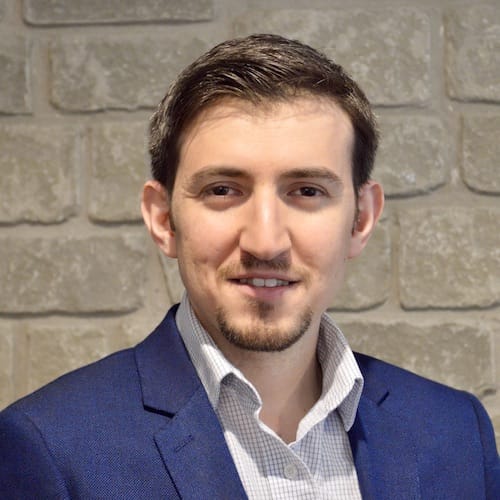 Mehmet F. Bastug, Ph.D., of Ontario, Canada, was named assistant professor in the Sociology, Criminal Justice & Criminology Department. He previously was an adjunct professor in the Criminology Program at Lakehead University in Orillia, Ontario; adjunct professor in the Faculty of Social Science and Humanities at Ontario Tech University in Oshawa; and online video conferencing instructor in the Cybersecurity Governance and Operations Certificate Program at Montclair State University in New Jersey. Dr. Bastug, who has conducted research and presented at several conferences, has co-authored several peer-reviewed journal articles and book chapters. He earned a doctorate and master's degree in global affairs from Rutgers, the State University of New Jersey in New Brunswick; a master's degree in international relations from Akdeniz University in Antalya, Turkey; and a bachelor's degree in security studies and criminal justice from the Turkish National Police University in Ankara.
Mehmet F. Bastug, Ph.D., of Ontario, Canada, was named assistant professor in the Sociology, Criminal Justice & Criminology Department. He previously was an adjunct professor in the Criminology Program at Lakehead University in Orillia, Ontario; adjunct professor in the Faculty of Social Science and Humanities at Ontario Tech University in Oshawa; and online video conferencing instructor in the Cybersecurity Governance and Operations Certificate Program at Montclair State University in New Jersey. Dr. Bastug, who has conducted research and presented at several conferences, has co-authored several peer-reviewed journal articles and book chapters. He earned a doctorate and master's degree in global affairs from Rutgers, the State University of New Jersey in New Brunswick; a master's degree in international relations from Akdeniz University in Antalya, Turkey; and a bachelor's degree in security studies and criminal justice from the Turkish National Police University in Ankara.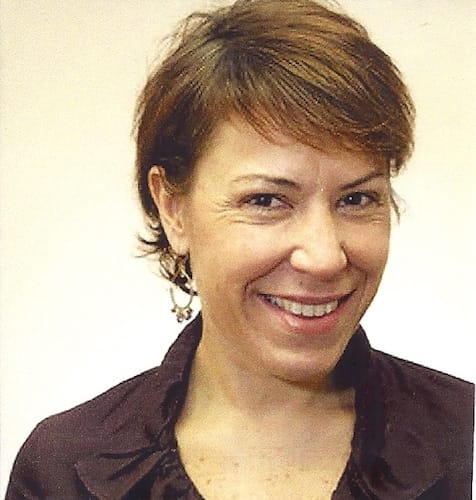
Hope E. Baylow, D.A., CCC-SLP, TSHH, BCS-S, of Long Beach, New York, was named assistant professor in the Exercise Science and Sport Department. Her many professional positions held in the broad field of speech and language pathology since 1993 include working recently as a voice and swallowing specialist at ENT Associates of Nassau County in Levittown, New York; the administrative director of rehabilitative medicine at the Richmond University Medical Center in Staten Island, New York; and a graduate program director and special assistant professor of speech-language-hearing science at Hofstra University in Hempstead, New York. Dr. Baylow, who has received several research grants, has presented at numerous regional, national, and international conferences and has co-authored several peer-reviewed journal articles. She earned a doctor of arts (D.A.) in communication sciences and disorders from Adelphi University in Garden City, New York; a master's degree in speech-language pathology from Long Island University-CW Post in Brookville, New York; and a bachelor's degree in teacher of the speech and hearing handicapped (TSHH) from Hofstra University. She holds a Certificate of Clinical Competence for Speech-Language Pathologists (CCC-SLP), and she is a Board-Certified Specialist in Swallowing and Swallowing Disorders (BCS-S).
Jeh-Hyun Cho, Ph.D., of Old Forge, was named assistant professor in the Accounting Department. Previously, he was an accounting instructor at Arizona State University in Tempe and a teaching assistant at Seoul National University. He also held nonacademic positions in accounting and finance in South Korea. Dr. Cho's experience includes research, publication and conference participation. He received a doctorate in accountancy from Arizona State University, a master's degree in business administration from Seoul National University, and a bachelor's degree in accountancy from the University of Illinois at Urbana-Champaign.
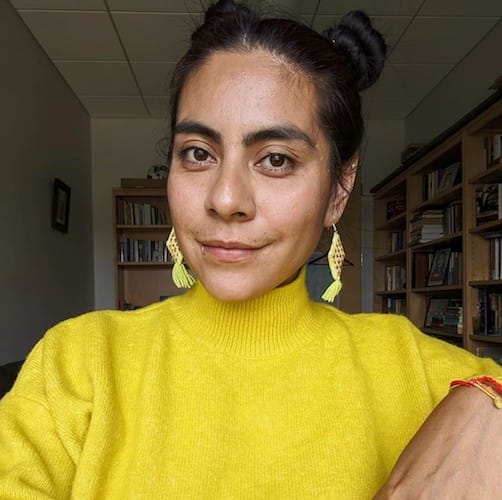 Roxana Ariadne Curiel, Ph.D., was named assistant professor in the World Languages and Cultures Department. She was a visiting professor at Pepperdine University (2016-2018) and an Andrew W. Mellon Postdoctoral Fellow (2018-2020) in Mexican Literature and Cultural Production at Williams College. As an interdisciplinary scholar, her work analyzes representations of bodies that challenge normative notions of citizenship, gender and race in Mexico, Central America, and the Latinx diaspora in the U.S. Her teaching interests encompass pedagogies for language-minoritized students, racialized communities, abolition as a transnational project, and migrations across the Americas. She earned her Bachelor of Arts degree (2012) from the Universidad Nacional Autónoma de Mexico and her Ph.D. (2016) in Peninsular and Mexican Literature and Cultures from the University of California, Riverside.
Roxana Ariadne Curiel, Ph.D., was named assistant professor in the World Languages and Cultures Department. She was a visiting professor at Pepperdine University (2016-2018) and an Andrew W. Mellon Postdoctoral Fellow (2018-2020) in Mexican Literature and Cultural Production at Williams College. As an interdisciplinary scholar, her work analyzes representations of bodies that challenge normative notions of citizenship, gender and race in Mexico, Central America, and the Latinx diaspora in the U.S. Her teaching interests encompass pedagogies for language-minoritized students, racialized communities, abolition as a transnational project, and migrations across the Americas. She earned her Bachelor of Arts degree (2012) from the Universidad Nacional Autónoma de Mexico and her Ph.D. (2016) in Peninsular and Mexican Literature and Cultures from the University of California, Riverside.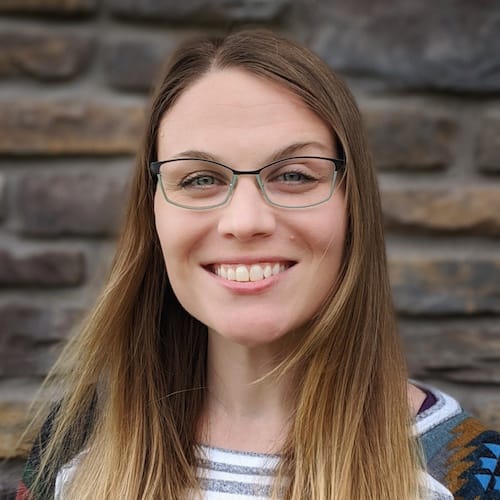 Ashley M. Driver, Ph.D., of Kunkletown, was named assistant professor in the Biology Department. Previously, she was an assistant professor of biology at the University of Wisconsin-Stevens Point; a visiting faculty of biology at the University of Miami-Hamilton Campus in Ohio; and a postdoctoral fellow at the Cincinnati Children's Hospital Medical Center. Dr. Driver, who has received several research grants, has presented at numerous conferences and has co-authored several peer-reviewed journal articles and book chapters. She received a doctorate in dairy science and a bachelor's degree in animal science from the University of Wisconsin-Madison.
Ashley M. Driver, Ph.D., of Kunkletown, was named assistant professor in the Biology Department. Previously, she was an assistant professor of biology at the University of Wisconsin-Stevens Point; a visiting faculty of biology at the University of Miami-Hamilton Campus in Ohio; and a postdoctoral fellow at the Cincinnati Children's Hospital Medical Center. Dr. Driver, who has received several research grants, has presented at numerous conferences and has co-authored several peer-reviewed journal articles and book chapters. She received a doctorate in dairy science and a bachelor's degree in animal science from the University of Wisconsin-Madison.Vincent R. Farallo, Ph.D., was named assistant professor in the Biology Department. He recently held postdoctoral research positions at Yale University, New Haven, Connecticut; and Virginia Polytechnic Institute in Blacksburg. Previously, Dr. Farallo was a teaching assistant at Ohio University in Athens and Texas State University-San Marcos. He has received several research grants, presented at numerous conferences and has co-authored several peer-reviewed journal articles. Dr. Farallo earned a doctorate of philosophy, ecology and evolutionary biology from Ohio University; a master's degree in population and conservation biology from Texas State University-San Marcos; and a bachelor's degree from John Carroll University in University Heights, Ohio.
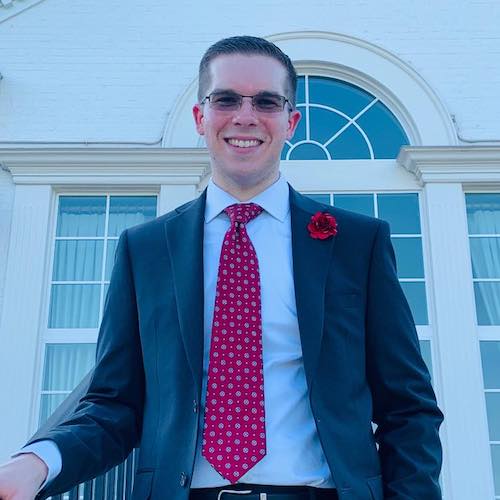 Christopher E. Fremaux, Ph.D., was named assistant professor in the Philosophy Department. Before coming to the University, he served as a graduate assistant and graduate teaching assistant at Stony Brook University (SUNY); a visiting research fellow at Universität Trier in Germany; and an adjunct instructor at St. Mary's University in San Antonio, Texas. Dr. Fremaux has conducted research, published and made conference presentations. He received a doctorate of philosophy from Stony Brook University; a master's degree in philosophy from Boston College in Massachusetts; and a bachelor's degree in philosophy and theology from St. Mary's University in San Antonio, Texas.
Christopher E. Fremaux, Ph.D., was named assistant professor in the Philosophy Department. Before coming to the University, he served as a graduate assistant and graduate teaching assistant at Stony Brook University (SUNY); a visiting research fellow at Universität Trier in Germany; and an adjunct instructor at St. Mary's University in San Antonio, Texas. Dr. Fremaux has conducted research, published and made conference presentations. He received a doctorate of philosophy from Stony Brook University; a master's degree in philosophy from Boston College in Massachusetts; and a bachelor's degree in philosophy and theology from St. Mary's University in San Antonio, Texas.Spencer C. Galen, Ph.D., of Clarks Summit, was named assistant professor in the Biology Department. Recently, he was a National Science Foundation postdoctoral fellow in the Biological Collections Program at the Academy of Natural Sciences of Drexel University in Philadelphia; and a doctoral fellow at the Richard Gilder Graduate School of the American Museum of Natural History in New York City. Previously, he was a teaching assistant at the University of New Mexico in Albuquerque and the University of Delaware in Newark. Dr. Galen has conducted research, published and presented at professional conferences. He received a Ph.D. in comparative biology from the Richard Gilder Graduate School, a master's degree from the University of New Mexico and a bachelor's degree from University of Delaware.
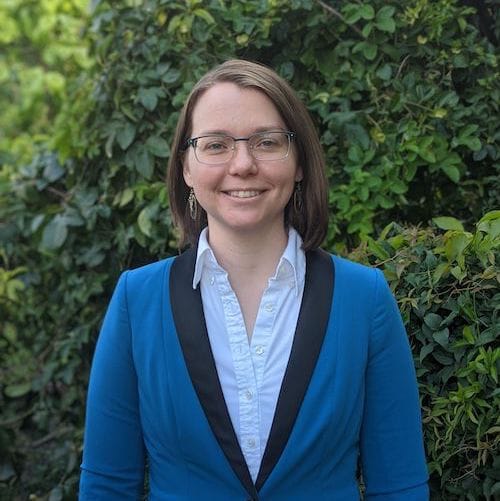 Madeline B. Gangnes, Ph.D., was named assistant professor in the English and Theatre Department. A former instructor at the University of Florida in Gainesville, Dr. Gangnes teaches courses in Romantic and Victorian literature, as well as more general English courses. She has received grants, conducted research, authored refereed journal articles and made conference presentations. Dr. Gangnes received a doctorate in English from the University of Florida; a master's degree in Comics Studies from the University of Dundee in Scotland; and a bachelor's degree in English from the University of Puget Sound in Tacoma, Washington.
Madeline B. Gangnes, Ph.D., was named assistant professor in the English and Theatre Department. A former instructor at the University of Florida in Gainesville, Dr. Gangnes teaches courses in Romantic and Victorian literature, as well as more general English courses. She has received grants, conducted research, authored refereed journal articles and made conference presentations. Dr. Gangnes received a doctorate in English from the University of Florida; a master's degree in Comics Studies from the University of Dundee in Scotland; and a bachelor's degree in English from the University of Puget Sound in Tacoma, Washington.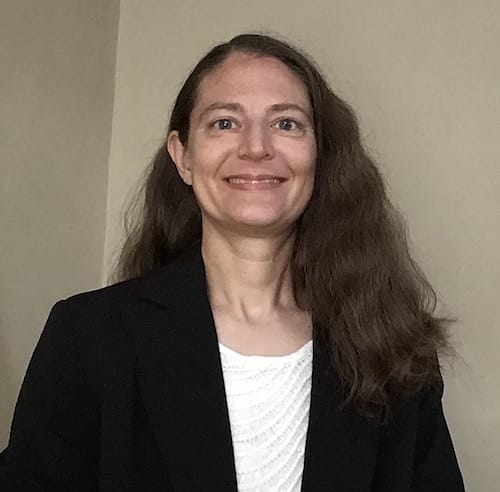 Emily Gerstle, Ph.D., was named assistant professor in the Exercise and Sport Department. Before coming to the University, she was an ad hoc professor and teaching assistant at the University of Wisconsin-Milwaukee and a high school science teacher in Jackson, Michigan. Throughout her teaching career, she guided students of all ages in building environmental and outdoor awareness skills. She has co-authored journal articles and delivered conference presentations. She received master's degree in kinesiology from the University of Wisconsin-Milwaukee, where she also earned her Ph.D. She received a bachelor's degree from Denison University in Granville, Ohio.
Emily Gerstle, Ph.D., was named assistant professor in the Exercise and Sport Department. Before coming to the University, she was an ad hoc professor and teaching assistant at the University of Wisconsin-Milwaukee and a high school science teacher in Jackson, Michigan. Throughout her teaching career, she guided students of all ages in building environmental and outdoor awareness skills. She has co-authored journal articles and delivered conference presentations. She received master's degree in kinesiology from the University of Wisconsin-Milwaukee, where she also earned her Ph.D. She received a bachelor's degree from Denison University in Granville, Ohio.Christopher Hauser, Ph.D., of Clarks Summit, was named assistant professor in the Philosophy Department. As a graduate student at Rutgers University in New Brunswick, New Jersey, from 2016 to 2020, he taught philosophy courses as both an assistant and sole instructor, and received the Rutgers School of Arts and Sciences Award for Distinguished Contribution to Undergraduate Education. Dr. Hauser also mentored in the Graduate-Undergraduate Mentorship Program for Rutgers’ Philosophy Department. He participated in Catholic Intellectual Tradition Summer Seminars for Graduate Students and is a member of the Mellon Philosophy as a Way of Life Network. Dr. Hauser has published articles in Faith and Philosophy and Metaphysics. A frequent presenter at conferences, he received a doctorate in philosophy from Rutgers University and a bachelor’s degree in philosophy and history from Dartmouth College in Hanover, New Hampshire.
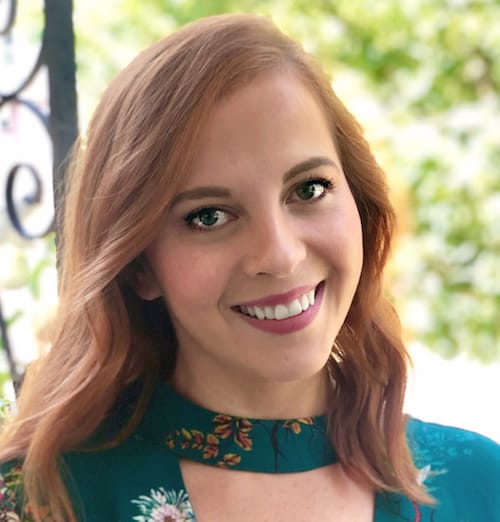 JoyAnna S. Hopper, Ph.D., of Scranton, was named assistant professor in the Political Science Department. She taught courses at Sewanee: The University of the South in Sewanee, Tennessee, and at the University of Missouri in Columbia. She earned fellowships, grants and academic awards at both institutions; and authored peer reviewed journal articles and presented at professional conferences. Dr. Hopper received a doctorate and a master’s degree in political science from the University of Missouri; and a bachelor’s degree from Eastern Illinois University in Charleston.
JoyAnna S. Hopper, Ph.D., of Scranton, was named assistant professor in the Political Science Department. She taught courses at Sewanee: The University of the South in Sewanee, Tennessee, and at the University of Missouri in Columbia. She earned fellowships, grants and academic awards at both institutions; and authored peer reviewed journal articles and presented at professional conferences. Dr. Hopper received a doctorate and a master’s degree in political science from the University of Missouri; and a bachelor’s degree from Eastern Illinois University in Charleston.Joseph J. Klobusicky, Ph.D., was named assistant professor in the Mathematics Department. Previously, he was a National Research Council postdoctoral fellow in the Applied and Computational Mathematics Division at the National Institute of Standards and Technology in Gaithersburg, Maryland. Previously, he was a postdoctoral research fellow at Rensselaer Polytechnic Institute in Troy, New York; a lecturer at Bucknell University in Lewisburg; a data scientist and applied mathematician at Geisinger Medical Center in Danville; and a teaching assistant at Brown University in Providence, Rhode Island. Dr. Klobusicky has co-authored several journal articles and made several conference presentations. He received a doctorate and a master’s degree in applied mathematics from Brown University; and a master’s degree and a bachelor’s degree in mathematics from Carnegie Mellon University in Pittsburgh.
Sylvia Orner of Old Forge was named assistant professor in the Weinberg Memorial Library. Before coming to the University, she was head of technical services and head cataloger at the Scranton Public Library. Previously she was a technical services librarian at the Osterhout Free Library in Wilkes-Barre and manager of the library’s Plains Township Branch. She has held leadership and service roles with the Scranton Public Library, the Pennsylvania Integrated Library System and the Pennsylvania Library Association. Ms. Orner has made presentations at several professional conferences and has received awards for her leadership and service. She received a master’s degree in library and information services from Syracuse University in New York and a bachelor’s degree from Gettysburg College.
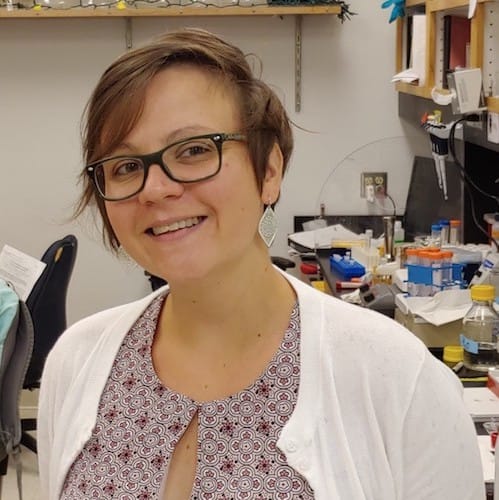 Amelia Randich, Ph.D., was named assistant professor in the Biology Department. Previously, she was a guest instructor at Stephens College and a postdoctoral researcher at the University of Missouri in Columbia, Missouri; an instructor, guest lecturer, and postdoctoral researcher at Indiana University in Bloomington; a teaching assistant at the University of Chicago; and a teaching assistant at Grinnell College in Iowa. She has conducted and mentored research, co-authored journal articles and presented at professional conferences. Dr. Randich received a doctorate from the Department of Biochemistry and Molecular Biology from the University of Chicago and a bachelor’s degree in biological chemistry and English from Grinnell College. Her research at The University of Scranton will focus on the molecular evolution and diversity of bacterial cell shape.
Amelia Randich, Ph.D., was named assistant professor in the Biology Department. Previously, she was a guest instructor at Stephens College and a postdoctoral researcher at the University of Missouri in Columbia, Missouri; an instructor, guest lecturer, and postdoctoral researcher at Indiana University in Bloomington; a teaching assistant at the University of Chicago; and a teaching assistant at Grinnell College in Iowa. She has conducted and mentored research, co-authored journal articles and presented at professional conferences. Dr. Randich received a doctorate from the Department of Biochemistry and Molecular Biology from the University of Chicago and a bachelor’s degree in biological chemistry and English from Grinnell College. Her research at The University of Scranton will focus on the molecular evolution and diversity of bacterial cell shape.Joshua J. Reynolds, Ph.D., was named assistant professor in the Psychology Department. Previously he taught courses in psychology and criminal justice at Stockton University in Galloway, New Jersey; he was a teacher, lab instructor and teaching assistant at the University of Wyoming in Laramie; and he was a lab instructor and teaching assistant at the University of North Dakota in Grand Forks. Dr. Reynolds was a mentor and performed academic service at these institutions. The recipient of honors and awards in his field, he authored several journal publications and book chapters, and he presented at professional conferences. He received a doctorate of philosophy in experimental psychology from the University of Wyoming; a master’s degree in forensic psychology from the University of North Dakota; and a bachelor’s degree in psychology and criminology from Southern Oregon University in Ashland.
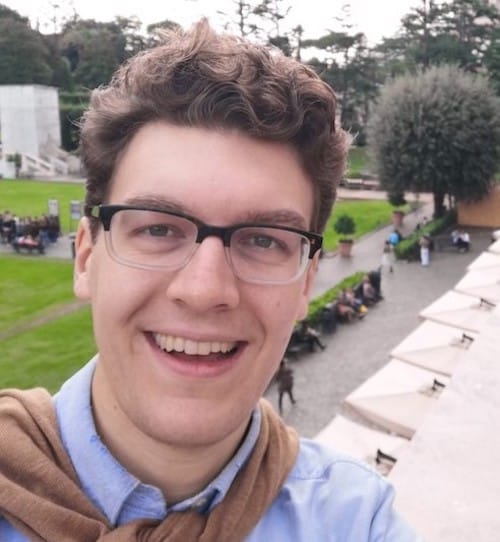 Paul E. Sampson, Ph.D., was named assistant professor in the History Department. Before coming to the University, he was a teaching assistant at Rutgers, the State University of New Jersey in New Brunswick; and Marquette University in Milwaukee, Wisconsin. A presenter at several professional conferences, Dr. Sampson has performed academic and community service as an undergraduate and graduate student. He received a doctorate in history at Rutgers University; a master’s degree in history at Marquette University; and a bachelor’s degree in history and teaching certification at the University of Dallas in Irving, Texas.
Paul E. Sampson, Ph.D., was named assistant professor in the History Department. Before coming to the University, he was a teaching assistant at Rutgers, the State University of New Jersey in New Brunswick; and Marquette University in Milwaukee, Wisconsin. A presenter at several professional conferences, Dr. Sampson has performed academic and community service as an undergraduate and graduate student. He received a doctorate in history at Rutgers University; a master’s degree in history at Marquette University; and a bachelor’s degree in history and teaching certification at the University of Dallas in Irving, Texas.Matthew F. Shea, Ph.D., of Dunmore, was named assistant professor in the Philosophy Department. His areas of specialization include moral philosophy and biomedical ethics. Previously, he was a Clinical Ethics Fellow at UCLA Health System; a part-time faculty member at the Bioethics Institute at Loyola Marymount University; a lecturer in the David Geffen School of Medicine, the School of Nursing, and the Fielding School of Public Health at UCLA; an instructor in the Philosophy Department at Saint Louis University; and a teacher at Saint Sebastian’s School in Massachusetts. His publications have appeared in The Journal of Medicine and Philosophy, The Kennedy Institute of Ethics Journal, American Catholic Philosophical Quarterly and Religious Studies. His professional service includes journal editing, conference organizing and serving as the co-chair of the Philosophy of Medicine Affinity Group at the American Society for Bioethics and Humanities. Dr. Shea received a doctorate in philosophy from Saint Louis University and a bachelor’s degree in philosophy from Boston College.
 Brian J. Snee, Ph.D., was named assistant professor in the Communications and Media Department. Before joining the University faculty, he was a professor and chair of the Communication & Media Department at Manhattanville College in Harrison, New York. He held positions of assistant and associate professor at the State University of New York-Potsdam; Bellarmine University in Louisville, Kentucky; and Rochester Institute of Technology in New York. Throughout his distinguished career, Dr. Snee received several grants and awards, and in the area of curriculum development, he created a Digital Media Production B.A. degree program at Manhattanville College. He was the author or co-author of several books, book chapters and journal articles, and he presented at numerous professional and academic conferences. Dr. Snee was active in the area of professional, academic and community service at every institution where he taught. In 2017, he led a TEDx Talk titled “How the Virtue of Eloquence Became a Vice.” Dr. Snee earned a doctorate and master’s degree in communication arts and science from Penn State University; and a bachelor’s degree in communication from The University of Scranton.
Brian J. Snee, Ph.D., was named assistant professor in the Communications and Media Department. Before joining the University faculty, he was a professor and chair of the Communication & Media Department at Manhattanville College in Harrison, New York. He held positions of assistant and associate professor at the State University of New York-Potsdam; Bellarmine University in Louisville, Kentucky; and Rochester Institute of Technology in New York. Throughout his distinguished career, Dr. Snee received several grants and awards, and in the area of curriculum development, he created a Digital Media Production B.A. degree program at Manhattanville College. He was the author or co-author of several books, book chapters and journal articles, and he presented at numerous professional and academic conferences. Dr. Snee was active in the area of professional, academic and community service at every institution where he taught. In 2017, he led a TEDx Talk titled “How the Virtue of Eloquence Became a Vice.” Dr. Snee earned a doctorate and master’s degree in communication arts and science from Penn State University; and a bachelor’s degree in communication from The University of Scranton.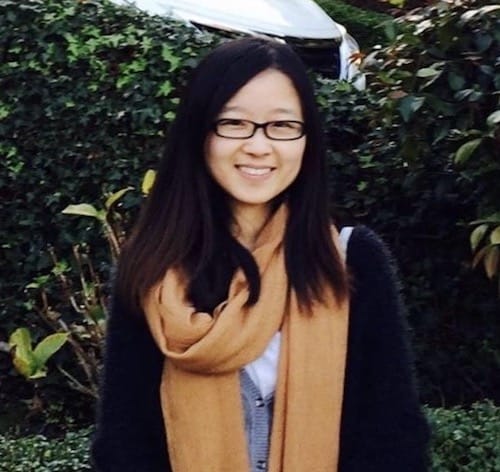 Ziqian Song, Ph.D., of Scranton, was named assistant professor in the Operations & Information Management Department. She was an instructor, a teaching assistant, a lab instructor and a mentor for both graduate and undergraduate courses at Virginia Tech in Blacksburg; and a graduate research assistant for three projects funded by the National Science Foundation. She has been conducting interdisciplinary research to uncover new insights for business decisions through the application of Machine Learning/ AI in Business. She co-authored several journal articles and conference papers. She earned a doctorate and a master’s degree in Computer Science and Applications from Virginia Tech, a master’s degree in Media Economics from Renmin University of China in Beijing, and a dual bachelor’s degree in Advertisement and Business Administration from Zhengzhou University in Zhengzhou, China.
Ziqian Song, Ph.D., of Scranton, was named assistant professor in the Operations & Information Management Department. She was an instructor, a teaching assistant, a lab instructor and a mentor for both graduate and undergraduate courses at Virginia Tech in Blacksburg; and a graduate research assistant for three projects funded by the National Science Foundation. She has been conducting interdisciplinary research to uncover new insights for business decisions through the application of Machine Learning/ AI in Business. She co-authored several journal articles and conference papers. She earned a doctorate and a master’s degree in Computer Science and Applications from Virginia Tech, a master’s degree in Media Economics from Renmin University of China in Beijing, and a dual bachelor’s degree in Advertisement and Business Administration from Zhengzhou University in Zhengzhou, China. 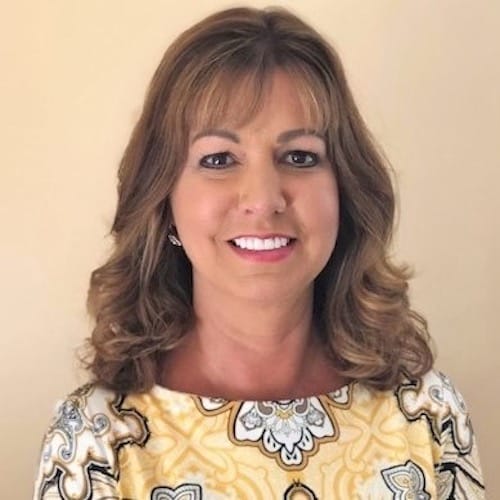 Cristen M. Walker, Ph.D., MSN, CRNP, CCRN, of Pittston, was named assistant professor in the Nursing Department. Previously, she was a clinical instructor for the Wilkes-Barre Area Career and Technical Center’s School of Practical Nursing, a certified family nurse practitioner for two medical practices, and a staff nurse at several hospitals. Currently, she volunteers as a family nurse practitioner at the Edward Leahy Clinic for the Uninsured in Scranton, as well as the Care and Concern Clinic in Pittston and will be joining Student Health Services as a provider. Dr. Walker, a Certified Critical Care Registered Nurse and a Certified Nephrology Nurse, has a broad background in critical care nursing. She recently completed doctoral studies with a focus in nursing education at Indiana University of Pennsylvania and was selected as a 2019-2020 National League for Nursing Jonas Scholar. Her doctoral research examined the impact of a certified therapy dog intervention on nursing student test anxiety. She received a master’s degree in nursing from the State University of New York at Binghamton and a bachelor’s degree in nursing from the University of Pittsburgh.
Cristen M. Walker, Ph.D., MSN, CRNP, CCRN, of Pittston, was named assistant professor in the Nursing Department. Previously, she was a clinical instructor for the Wilkes-Barre Area Career and Technical Center’s School of Practical Nursing, a certified family nurse practitioner for two medical practices, and a staff nurse at several hospitals. Currently, she volunteers as a family nurse practitioner at the Edward Leahy Clinic for the Uninsured in Scranton, as well as the Care and Concern Clinic in Pittston and will be joining Student Health Services as a provider. Dr. Walker, a Certified Critical Care Registered Nurse and a Certified Nephrology Nurse, has a broad background in critical care nursing. She recently completed doctoral studies with a focus in nursing education at Indiana University of Pennsylvania and was selected as a 2019-2020 National League for Nursing Jonas Scholar. Her doctoral research examined the impact of a certified therapy dog intervention on nursing student test anxiety. She received a master’s degree in nursing from the State University of New York at Binghamton and a bachelor’s degree in nursing from the University of Pittsburgh.Lori Maria Walton, Ph.D., DPT, was named professor in the Physical Therapy Department. A licensed physical therapist, she has worked as a professor in academia, both undergraduate and graduate programs since 2005 and practiced as a clinical physical therapist, with emphasis in women’s health and neurologic PT since 1995. She has served as an associate professor of physiotherapy, director of research and statistics, and chair of physical therapy programs. In clinical practice, Dr. Walton has held various positions in both hospital and private setting and including four years as the CEO and owner of Private Practice Women’s Health Therapies in Topeka, Kansas. Her research is focused on the effects of trauma on health outcomes for vulnerable populations of women and children living in South Asia and MENA countries. She has authored and co-authored numerous peer-reviewed journal articles and three books, as well as numerous peer-reviewed scientific and professional presentations. Dr. Walton had contributed pro bono services to many underserved communities both domestic and abroad, and during her career, she has provided organizational, research and administrative services to many academic institutions. She received her Ph.D. from Nova Southeastern University in Ft. Lauderdale, Florida; a DPT from Creighton University in Omaha, Nebraska; and a master’s degree in physiotherapy and a bachelor’s degree in biology from Andrews University in Berrien Springs, Michigan. She is completing her master’s degree in public health with an emphasis in Global Health at Johns Hopkins Bloomberg School of Public Health in Baltimore, Maryland.
Murong Xu, Ph.D., was named assistant professor in the Mathematics Department. Before coming to the University, she was an assistant professor in the Mathematics Department at the Ohio State University in Marion; a graduate teaching assistant at West Virginia University in Morgantown; and an information management analyst at HSBC Electronic Data Processing Limited in Guangzhou, Guangdong, China. Dr. Xu, who has received several research grants, has presented at several conferences and has co-authored several peer-refereed journal articles. She has been active in service to her academic institutions and the surrounding communities. She received a doctorate in mathematics and a master’s degree in statistics from West Virginia University in Morgantown; and a master’s degree in applied mathematics and a bachelor’s degree in information and computing science from Jinan University in Guangzhou, Guangdong, China.
Amir Zamanian, Ph.D., was named assistant professor in the Physics and Engineering Department. He was previously a lecturer, research, and teaching assistant at the Bobby B. Lyle School of Engineering at Southern Methodist University (SMU) in Dallas, Texas, and at Amirkabir University of Technology in Tehran, Iran. He held several positions in his field. He developed an expert application for vehicle gearbox health monitoring combining artificial intelligence techniques and vibration signal processing. He received the best paper award in the 4th Condition Monitoring and Fault Diagnosis Conference at Sharif University of Technology in 2010. He has co-authored several articles for professional journals and conferences. His current research interests include vibration, modal analysis, dynamics, control, soft robotics, condition monitoring, soft-computing, artificial intelligence, signal processing, finite element modeling and numerical computing. He is the author of a technical drawing textbook and is a member of the American Society of Mechanical Engineers and the American Institute of Aeronautics and Astronautics. He has served as a peer reviewer for academic journals including IEEE/ASME Transactions of Mechatronics, Mechanism and Machine Theory, Advances in Systems Science and Applications, Frontiers of Computer Science, Journal of Optimization, and more. He received his Ph.D. from SMU, Dallas, Texas; his Master of Science degree from Amirkabir University of Technology in Tehran, Iran; and his bachelor’s degree from Bu-Ali Sina University in Hamedan, Iran, all in Mechanical Engineering.
University of Scranton Appoints New Faculty Members
-
09/01/2020
"…we must do more and do better to create a community where all can feel welcome and safe always.” - Rev. Scott R. Pilarz, SJ
The Office of Equity and Diversity, in collaboration with the Cross Cultural Centers, the Counseling and Human Services Department, and the Staff Senate are pleased to offer a new format for the Diversity and Inclusion Lunch/Learn Series for Fall 2020. You are encouraged to participate in each segment to get the full experience.
The three-part program will begin with the launch of the SafeColleges course “Implicit Bias and Microaggression Awareness.” All faculty and staff will receive this suggested training in their scranton.edu email on August 3, 2020.
After completing the 24-minute course, you may register for Part 2 - the Panel Discussion, which will be held Friday, Sept. 18 @ 12:00 p.m. Please use this link for registration: Panel Discussion Registration. At the end of your registration, contained in the confirmation screen, you will have the option to submit questions via the Anonymous Questions Submission Form link. Your identifying information will not be associated with the questions you submit.
Part 3 - Small Group Discussions will be scheduled post-panel according to the availability of the persons who are interested in participating.
We encourage all faculty and staff to view the SafeColleges course even if they are not interested in participating in the Lunch and Learn Series.
Questions regarding the program may be sent to Elizabeth.garcia2@scranton.edu. Questions regarding the registration and forms may be sent to Jennifer.pennington@scranton.edu.
We look forward to sharing this important experience with you and to working to make our campus more inclusive for everyone.
Fall Diversity and Inclusion Program for Faculty and Staff
-
08/26/2020
Starting on Thursday, August 27, Information Technology will deploy GlobalProtect to all faculty and staff Windows 10 computers. GlobalProtect is the University’s Virtual Private Network (VPN) solution for access to on-campus network resources when you are off campus.
Some of the benefits include:
- Off-Campus access to your G: and H: drives
- Allows communication between Microsoft Windows and Office to renew licenses
- Continues monthly Windows and Office updates, as well as anti-virus software updates
- Some instructional software must communicate with a server on-campus to check out a license to verify your right to use
To get the instructions for installation, read the post in IT Matters by Information Technology here.
GlobalProtect to be Deployed to Faculty, Staff Windows 10 Computers
-
08/26/2020
The University of Scranton granted promotions and/or tenure to 20 faculty members effective at the start of the 2020-21 academic year.
Eleven faculty members have been promoted to professor: George Aulisio, library; Sean Brennan, Ph.D., history; Will Cohen, Ph.D., theology and religious studies; Paul Datti, Ph.D., counseling and human services; Michael Knies, library; Nathan Lefler, Ph.D., theology and religious studies; Sufyan Mohammed, Ph.D., communication; Jessica Nolan, Ph.D., psychology; Iordanis Petsas, Ph.D., economics and finance; Donna Witek, library; and Habib Zanzana, Ph.D., world languages and cultures.
Howard Fisher, Ph.D., communication, and Wendy Manetti, Ph.D., nursing, were named associate professors.
Six faculty members were named associate professor and granted tenure: Jinghan Cai, Ph.D., economics and finance; Ozgur Isil, Ph.D., operations and information management; Jo Ann Nicoteri, Ph.D., nursing; Patrick Orr, Ph.D., psychology; Juan Serna, Ph.D., physics and electrical engineering; and Nicholas Sizemore, Ph.D., chemistry.
Ahmed Gomaa, Ph.D., operations and information management, was granted tenure.
Prof. Aulisio, chair of the library, received his bachelor’s degree from Bloomsburg University and his master’s degrees from Drexel University and the University of Pennsylvania. He has worked for the University since 2009.
Dr. Brennan received his bachelor’s degree from Rockhurst University, his master’s degree from the Villanova University and his doctorate from the University of Notre Dame. He has worked for the University since 2009.
Dr. Cai received his bachelor’s degree from Renmin University of China, his doctorate degrees from the City University of Hong Kong and Boston College. He has worked for the University since 2014.
Dr. Cohen received his bachelor’s degree from Brown University, his master’s degree from St. Vladmir’s Orthodox Theological Seminary and his doctorate from the Catholic University of America. He has worked for the University since 2009.
Dr. Datti received his bachelor’s degree from the Pennsylvania State University, his master’s degree from The University of Scranton and his doctorate from the Pennsylvania State University. He has worked for the University since 2009.
Dr. Fisher, chair of the Department of Communication and Media, received his bachelor’s degree from the Minnisota State University, his master’s degree from Texas Tech University and his doctorate from Ohio University. He has worked for the University since 2009.
Dr. Gomaa received his bachelor’s degree and master’s degree from the University of Alexandria in Egypt, and a MBA and doctorate from Rutgers University. He has worked for the University since 2016.
Dr. Isil received his bachelor’s degree from the University of Texas, Austin, and his MBA and doctorate from the University of Wisconsin. He has worked for the University since 2009.
Prof. Knies received his bachelor’s and master’s degrees from the Pennsylvania State University and his master’s degree from Rutgers University. He has worked for the University since 1996.
Dr. Lefler received his bachelor’s degree from the University of Chicago, his master’s degree from Yale Divinity School and his doctorate from the Catholic University of America. He has worked for the University since 2008.
Dr. Manetti, received her bachelor’s and master’s degrees from The University of Scranton and her doctorate from the Widener University. She has worked for the University since 2011.
Dr. Mohammed received his bachelor’s degree from Jai Hind College, his MBA degrees from Rizvi Institute of Management Studies and Research and the Rochester Institute of Technology, and his doctorate from Texas Tech University. He has worked for the University since 2008.
Dr. Nicoteri received her bachelor’s degree from the University of Pennsylvania, her master’s degree from the State University of New York at Binghamton and her doctorate from the University of Maryland. She has worked for the University since 1985.
Dr. Nolan received her bachelor’s degree from Cornell University, her master’s degree from California State University and her doctorate from the University of Arkansas. She has worked for the University since 2008.
Dr. Orr received his bachelor’s degree from The University of Scranton, and his master’s degrees and his doctorate from Yale University. He has worked for the University since 2015.
Dr. Petsas, chair of the Economics and Finance Department, received his bachelor’s degree from the University of Thessaloniki and his MBA degree and his doctorate from Indiana University. He has worked for the University since 2002.
Dr. Serna received his bachelor’s degree from Universidad de Antioquia and his master’s degree and his doctorate from the University of Arkansas. He has worked for the University since 2015.
Dr. Sizemore received his bachelor’s degree from Case Western Reserve University and his doctorate from the University of California. He has worked for the University since 2015.
Prof. Witek received her bachelor’s degree from the Tisch School of the Arts and her master’s degree from Long Island University. She has worked for the University since 2008.
Dr. Zanzana received his bachelor’s degree, master’s degree and his doctorate from Indiana University. He has worked for the University since 1995.
University Announces Faculty Promotions
-
08/17/2020
George W. Krull, Jr., Ph.D., CPA, CGMA, global strategic advisor for The University of Scranton’s doctor of business administration (DBA) program, was presented a 2020 Lifetime Service Award from the American Accounting Association (AAA) at its annual meeting, which took place virtually earlier this week.
The Lifetime Service Award recognizes service contributions to accounting education made over a sustained period of time through service to the AAA, service with the education efforts in the profession through involvement with the American Institute of Certified Public Accountants (AICPA), the Institute of Management Accountants (IMA), and other accounting professional organizations, and service with the education efforts of public accounting firms, corporations, and not-for-profit organizations.
“I am honored to receive the AAA’s Lifetime Service Award for 2020 along with Beatrice Sanders and the late William F. (Bill) Ezzell, Jr., who have both contributed so much to advance education in the field of accounting. To be honored alongside such distinguished colleagues is truly a humbling experience,” said Dr. Krull.
Dr. Krull served as a Partner in the Executive Office of Grant Thornton LLP and was the firm’s chief learning officer. Since retiring, he has remained active with the academic and professional accounting communities. He has served as an executive-in-residence and professor of accounting at Bradley University where he was awarded emeritus status in 2011. He has served as interim chair at the University of North Texas, Saint Louis University, and Oklahoma State University. He joined The University of Scranton as a global strategic advisor for the DBA program in 2017.
“On behalf of the University and the Kania School of Management, we congratulate Dr. Krull on receiving one of the highest honors awarded in the accounting field and we are privileged to have him participating in our DBA Program, mentoring our doctoral students and collaborating with our faculty on scholarship,” said Sam Beldona, Ph.D., dean of the Kania School of Management.
“We are most honored and proud to have George providing strategic insights to our program. His global perspective, knowledge, integrity and professionalism are invaluable. He is one of the most respected and trusted leaders in the accounting profession and academia. I view him as a true mentor and friend and congratulate him on this well-deserved recognition,” said Douglas M. Boyle, D.B.A., chair of the Accounting Department, director of the DBA Program and founder and director of the Nonprofit Leadership Certificate Program at Scranton.
During his distinguished career, Dr. Krull has served with the AAA, the Association to Advance Collegiate Schools of Business (AACSB) International, the AICPA and the Pathways Commission. He was a member of the AACSB International’s Blue Ribbon Committee on Accreditation Quality, has served four terms on the AACSB’s Accounting Accreditation Committee and continues doing business and accounting accreditation peer reviews.
In 2014, Dr. Krull was recognized as one of one hundred distinguished graduates of the Spears School at Oklahoma State during its centennial anniversary celebration, and in 2015 he was inducted into the Spears School Hall of Fame. In 2016, he received the AAA’s Outstanding Service Award and, in 2017, Dr. Krull received the AICPA’s Gold Medal Award of Distinction. Dr. Krull received his undergraduate, master’s, and doctoral degrees from Ohio State University, Oklahoma State University, and Michigan State University, respectively, and he is an honorary alumnus from Northern Illinois University.
Scranton’s DBA program received international recognition when the prestigious accrediting body, the Association to Advance Collegiate Schools of Business (AACSB), recognized the program in 2019 among the “Innovations and Best Practices in Canada, Latin America and the United States.” Scranton’s DBA was recognized for providing a non-traditional research DBA in accounting that “promotes diversity and practice relevance by providing a flexible path for experienced practitioners to gain the knowledge and credentials required to succeed in tenure-track positions at AACSB-accredited institutions.”
For information about Scranton’s DBA program, visit scranton.edu/dbaprogram.
DBA Program Advisor Awarded Lifetime Service Award
-
08/14/2020
Julie A. Cerrito, Ph.D., associate professor and director of the School Counseling Program at The University of Scranton, was one of just eleven counselor educators nationwide to be selected to participate in the Counselor Educator Academy held at the National Career Development Association Global Conference in Houston, Texas. Dr. Cerrito also received the University’s Faculty Senate Excellence in Graduate Teaching Award for 2020, which recognizes a faculty member at Scranton who demonstrates dedication to teaching graduate students in a manner that creates an encouraging and intellectually stimulating environment that promotes critical thinking and learning.
Dr. Cerrito was selected to the Counselor Educator Academy based on her role as a professor of career counseling graduate courses to focus on the growth and development of the intersection of counselor education and career counseling.
The purpose of the Academy is to support those counselor educators who work teaching future counselors about their role in career counseling. The goal of the Academy is to provide information, experiences, and tools that counselor educators can use in their work to enhance the practice of teaching career counseling across the profession. This Academy aims to facilitate determining best practices in the field of career counselor education and to provide leadership/research opportunities to academics.
As part of the 2019-20 Counselor Educator Academy cohort, Dr. Cerrito has been working with a group of fellow counselor educators on a year-long research and development project focused on the intersections of career counseling and counselor education. The cohort will then present their findings and recommendations at the 2021 National Career Development Global Conference in Atlanta, Georgia.
Dr. Cerrito is a National Certified Counselor and a National Certified School Counselor.
Dr. Cerrito joined the faculty at the University in 2013. She earned her bachelor’s degree from Bloomsburg University, her master’s degree from The University of Scranton and her Ph.D. from The Pennsylvania State University.
Professor Selected to National Academy
-
08/11/2020
“The Kosher Capones: A History of Chicago’s Jewish Gangsters,” by University of Scranton English and Theatre Professor Joe Kraus, Ph.D., was awarded the 2019 bronze Indie Award in the category of history (adult non-fiction). The award recognizes the best books published in 2019 from small, indie, and university presses, as well by self-published authors.
“The Kosher Capones,” published by Northern Illinois University Press, tells the story of Chicago’s Jewish gangsters from the end of the 19th century into the 1980s. Dr. Kraus’s grandfather and great-uncles were part of the notorious Miller Brothers of the Jewish West Side, who were among Chicago’s early Jewish gangsters. Dr. Kraus spent thirty years collecting details from newspapers, archives, photo collections and other sources. The book traces the changing political, demographic, and economic pressures that transformed the opportunistic gamblers and bootleggers of Maxwell Street and Lawndale into some of the under-the-radar architects of the Chicago Syndicate that grew out of the gang made famous under Al Capone’s leadership.
“This is an academic book, but I wanted it to be something fun to read, too,” said Dr. Kraus. “I appreciate this award as it says to me that people have enjoyed it.”
Dr. Kraus, Shavertown, is chair of the Department of English and Theatre at the University. He joined the faculty at Scranton in 2004. He earned his bachelor’s degree from the University of Michigan, his master’s degree from Columbia University and his doctorate from Northwestern University.
The Kosher Capones is available in hardcover, paper, audio and as an e-book. For more information about the book, visit www.thekoshercapones.com.
Book by Faculty Member Wins Indie Award
-
07/29/2020
The Office of CBL, Community Relations and Center for Service and Social Justice are providing a series of opportunities to discuss, brainstorm and help to arrange remote Community-Based Learning options for your fall semester course(s).
Please consider joining us for a Drop-in Information Session on: Friday, July 31, 1-1:30 p.m. or Tuesday, Aug. 4, 9-9:30 a.m. In addition, you can also request an Individual Zoom Meeting.
Email Carolyn Bonacci, Community and Civic Engagement Coordinator, at Carolyn.bonacci@scranton.edu for drop-in session zoom info or to schedule a meeting (please indicate your course and potential topic areas and/or community agency types).
Visit the CBL website for remote CBL project ideas, here.Remote CBL: Info-Sessions and Resources
-
07/21/2020
Stacy Smulowitz, Ph.D., assistant professor of communication and media at The University of Scranton, was named executive director for the Eastern Communication Association, the oldest professional communication association in the United States.
A faculty member at Scranton since 2009, Dr. Smulowitz teaches courses in advertising, healthcare planning and marketing, and small group, organizational and leadership communication. She also advises the Ad Club and the AAF National Student Advertising Competition team at Scranton. Her research interests focus on theory and strategy for promoting excellence in organizational, women’s and girls’ leadership.
An Accredited Business Communicator (A.B.C.), Dr. Smulowitz is also president of Smulowitz Communications, a strategic communication and leadership consulting firm.
A resident of Shavertown, Dr. Smulowitz earned a bachelor’s degree from Wilkes University, a master’s degree from Ithaca College and a Ph.D. from Rutgers University.
Faculty Member Named as ECA Executive Director
-
07/17/2020
The University of Scranton awarded eight professors 2020 Faculty Development Summer Grants, which are intended to promote scholarship and curriculum development efforts by faculty members.
Michael Azar, Ph.D., associate professor of theology and religious studies, will research “The Role of Scripture in Jewish-Christian Dialogue: An Orthodox Perspective.” A faculty member at Scranton since 2013, Dr. Azar earned a bachelor’s degree from Colorado Christian University, a master’s degree from St. Vladimir’s Orthodox Theological Seminary, and a master’s degree and Ph.D. from Fordham University.
John Deák, Ph.D., associate professor of chemistry, will research “Measuring Reorganization Within and Organized Molecular Interface Using Microscopic Volume Changes.” He joined the faculty at the University in 2002. He earned a bachelor’s degree from the University of Buffalo, a Ph.D. from the University of Rochester and completed post-doctoral studies at the University of Illinois, Champaign.
Josephine Dunn, Ph.D., professor of art history, will research “Hidden Histories: Women Making History in Northeastern Pennsylvania.” Dr. Dunn joined the faculty at Scranton in 1988. She earned a bachelor’s degree from the University of Houston and a master’s degree and Ph.D. from the University of Pennsylvania.
Colleen Farry, assistant professor and digital services librarian, will research “Iterative Experimentation with Crowdsourcing Technologies.” She joined the University community in 2015. She earned a bachelor’s degree from Marywood University, and master’s degrees from Syracuse University and the University of Illinois at Urbana-Champaign.
Matthew Meyer, Ph.D., associate professor of philosophy, director of the pre-law advisory program and faculty director of the Gail and Francis Slattery Center for Humanities, will research “Nietzsche’s ‘Thus Spoke Zarathustra.’” He earned a bachelor’s degree from the University of St. Thomas, a master’s degree from Harvard University and a Ph.D. from Boston University. He joined the University faculty in 2010.
Stacy Smulowitz, Ph.D., assistant professor of communication and media, will research “Leading Change in Higher Education.” A faculty member at Scranton since 2009, she earned a bachelor’s degree from Wilkes University, a master’s degree from Ithaca College and a Ph.D. from Rutgers University.
Patricia Moyle Wright, Ph.D., professor of nursing, will research “Older Parent’s Experiences of Losing an Adult Child.” Dr. Wright received a bachelor’s degree and a master’s degree from College Misericordia. She earned her Ph.D. from Loyola University Chicago. She joined the faculty at Scranton in 2007.
Habib Zanzana, Ph.D., professor of world languages and cultures, will research “The Representation of Disability in World Literature and Cinema: A Socio-economic and Healthcare Perspective.” Dr. Zanzana joined the faculty at Scranton in 1995. He earned his bachelor’s, master’s and Ph.D. degrees from Indiana University.
Faculty Awarded Summer Development Grants
-
07/06/2020
Five University of Scranton faculty members received Interdisciplinary Seminar Fund, or Clavius Fund, support from the University to pursue an interdisciplinary approach to a subject. The University’s Clavius Fund is designed to promote interdisciplinary engagement and to foster a greater sense of colleagueship across departmental lines by creating settings whereby diverse faculty can explore a topic of mutual interest from divergent perspectives.
The following projects were awarded Clavius Funds for 2020-2021:
Kelly Banyas, Marleen Cloutier and Colleen Farry for “Open Revolution.”
Charles Pinches, Ph.D., and Joel Kemp, Ph.D., for “Hungering for the Library Arts: Historical African-American Perspectives.”
Banyas joined the faculty at Scranton in 2017 as an assistant professor in the library. She earned a bachelor’s degree from Boston University and a master’s degree from the University of Maryland.
Cloutier, assistant professor and cataloging and metadata librarian, joined the University in 2019. She earned a bachelor’s degree from the Wentworth Institute of Technology and a master’s degree from Drexel University. She is currently pursuing a master’s degree in human resources management at The University of Scranton.
Farry, assistant professor and digital services librarian, joined the University in 2015 as a library metadata specialist for the Helen Gallagher McHugh Special Collections. She earned a bachelor’s degree from Marywood University, and master’s degrees from Syracuse University and the University of Illinois at Urbana-Champaign.
Dr. Kemp, assistant professor of theology/religious studies, joined the faculty at Scranton in 2017. He earned a bachelor's degree from Harvard College, a juris doctorate from Harvard Law School, a Master of Divinity degree from Andover Newton Theological School and a Ph.D. from Boston College.
Dr. Pinches, professor of theology/religious studies, joined the faculty at Scranton in 1990. He earned a bachelor’s degree from Wheaton College and a master’s degree and Ph.D. from the University of Notre Dame.
Faculty Awarded University Calvius Fund Support
-
06/30/2020
Nine University of Scranton faculty members were honored with Provost Faculty Enhancement awards for excellence in teaching, scholarship or service. The Office of the Provost and the Provost Advisory Group selected the recipients from a pool of candidates nominated by academic deans and department chairs.
Tara Nicole Fay received the Excellence in the Scholarship of Teaching and Learning Award, presented to faculty members who make extraordinary efforts to enhance student learning and who practice teaching as a form of scholarship. Fay, faculty specialist in the Biology Department, joined the faculty at Scranton in 2008. She earned her bachelor’s degree from the University of Massachusetts and her master’s degree from the University of Colorado.
Jason M. Graham, Ph.D., and Margarete Lieb Zalon, Ph.D., received the Excellence in Advancing Interdisciplinary Study Award, which recognizes a faculty member who demonstrates noteworthy academic leadership in promoting and strengthening cross-disciplinary or interdepartmental teaching and learning endeavors. Dr. Graham, associate professor of mathematics, joined Scranton’s faculty in 2012. He earned a bachelor’s degree from the University of Houston and master’s degrees from Southern Methodist University and the University of Iowa. He earned a Ph.D. from the University of Iowa as well. A member of Scranton’s faculty since 1988, Dr. Zalon, professor of nursing, earned her bachelor’s degree from Duke University and her master’s and Ph.D. degrees from New York University.
Jean Wahl Harris, Ph.D., received the Excellence in Integrating Mission and Justice into the Curriculum Award. This award honors a faculty members whose special efforts ensure that students have a keen understanding and appreciation of the realities of the world, including pressing justice issues in a local, national and global context. Dr. Harris, professor of political science, joined the faculty at Scranton in 1987. She earned her bachelor’s master’s and Ph.D. degrees from the Binghamton University.
Iordanis Petsas, Ph.D., and Narda Tafuri received the Excellence for University Service and Leadership Award, which recognizes faculty members who have contributed service to the University community, particularly those who demonstrate academic leadership by effectively mentoring their junior colleagues. Dr. Petsas, professor and chair of the University’s Department of Economics and Finance, joined Scranton’s faculty in 2002. He earned his bachelor’s degree from the University of Thessaloniki and his master’s and Ph.D. degrees from the University of Florida. Tafuri, associate professor in the Library has worked at the University since 1994. She earned her bachelor’s degree from the State University of New York, Oneonta; and her master’s degrees from New York University and the State University of New York, Albany.
Nabil A. Tamimi, Ph.D., received the Excellence in Scholarly Publication Award, presented to faculty members who have attained distinction in scholarship or creative activity. Dr. Tamini is a professor and chair of the Operations and Information Management Department at the University. He joined the faculty at Scranton in 1993. He earned his bachelor’s degree from the Pennsylvania State University, his MBA from The University of Scranton and his Ph.D. from Temple University.
Gretchen Van Dyke, Ph.D., received the Excellence in Advancing Global Learning Award, which recognizes faculty members who have demonstrated noteworthy academic leadership in integrating international issues/perspectives into the curriculum and through whose efforts, students have acquired the competencies, attributes and insights required to meaningfully and successfully participate in an increasingly interdependent world. Dr. Van Dyke, associate professor of political science, joined the faculty at Scranton in 1994. She earned her bachelor’s degree from Trinity College and her master’s and Ph.D. degrees from the University of Virginia.
Stephen E. Whittaker, Ph.D., received the Magis Award for Excellence in Adapting Classic Principles of Jesuit Pedagogy into the Curriculum. This award is intended to recognize a faculty member who makes specific, sustained, and creative efforts to adapt classic principles of Jesuit Pedagogy in his or her own courses. Dr. Whittaker, professor of English and theatre, joined the faculty at Scranton in 1983. He earned his bachelor’s, master’s and Ph.D. degrees from the University of Texas.
Faculty Recognized for Excellence
-
06/22/2020
The Center for Teaching and Learning Excellence along with the Office of Equity and Diversity are excited to continue our Inclusive Pedagogy Workshop Series for faculty. The series, Examining Pedagogy Through an Inclusive Lens, will highlight strategies and best practices to foster an inclusive classroom environment for a diverse student population. Topics include racial diversity, gender expression/identity, disability accommodations, and working with veteran students.
Join us on Tuesday, July 14, 2020, at 11:30 a.m. for Accommodations and Beyond: Inclusive Strategies for Online and Classroom Teaching presented by Dr. Rebecca Spirito Dalgin, Ph.D., CRC, CPRP, Professor in the Department of Counseling and Human Services and the Rehabilitation Counseling Masters Degree program director.
Students of all abilities and backgrounds want classes that are inclusive and convey respect. For faculty and students with disabilities, the classroom and online education settings may present certain challenges that need accommodation and consideration. This workshop will focus on inclusive practices faculty can employ for students with disabilities. Topics such as classroom accommodations, disability inclusive language, confidentiality/disclosure and stigma, universal design, and available resources will be discussed.
Dr. Dalgin received her M.S. and Ph.D. in Rehabilitation Counseling from Syracuse University. Rebecca has been working with individuals with disabilities as a rehabilitation service provider, researcher, and professor for nearly 30 years. She has been a co-facilitator of the Annual Northeastern U.S. Conference on disABILITY here at the University of Scranton since 2005. Her research interests and clinical work have focused on individuals living with chronic mental illnesses, psychiatric rehabilitation programs, rehabilitation education, and the intersection of disability and employment.
Registration is required. To Register: my.scranton.edu > ‘EMPLOYEES’ tab on the left > Events & Facilities > CTLE Event Registration > select Faculty Development Events.
For more information, please contact Amy Simolo, CTLE faculty development specialist, at amy.simolo@scranton.edu or call 570-941-7498.
We are seeking speakers/topics for the 20-21 fall and spring semester to facilitate more diversity and inclusion programs. If you are interested or have suggestions, please contact elizabeth.garcia2@scranton.edu.
Diversity programming funding is available from a grant through OED. for more information, please click here.
Inclusive Pedagogy Workshop: Accommodations and Beyond
-
05/29/2020
University of Scranton theology and religious studies professors Christian Krokus, Ph.D., and Will Cohen, Ph.D., had planned a travel course for over a year. With the aid of a University provost grant they made a preparatory trip to meet with Fr. Mikolaj Martinjak, S.J., from the Jesuit Faculty of Philosophy and Religious Studies of the University of Zagreb. With him and through their own contacts, they developed an exciting itinerary and syllabus on “Religious Diversity, Conflict, and Reconciliation in Southeast Europe.” The course was a spring semester course with a travel component whose itinerary included travel to Serbia, Croatia and Bosnia. Just as they were finalizing plans for a May 21 departure, the Covid-19 pandemic caused the cancellation of all study abroad trips.
Drs. Krokus and Cohen, known for their flexibility and creativity, quickly adjusted the course to include a virtual travel component. Using Zoom they brought together 12 students from The University of Scranton and nine students from the University of Zagreb. In addition to Fr. Martinjak, who spoke on the history of the Jesuits in Southeast Europe, guest speakers from Serbia, Bosnia and Croatia included: Boris Erg, who discussed the Jewish experience in Serbia; Nermin Botonjić, who discussed Islam in Croatia; Dr. Petra Belković Taylor, who discussed conflict through the lens of literature; and others. Students from both schools participated actively in the discussions after presentations by both professors and guest speakers. Those discussions were also carried on virtually through posts on the course’s discussion board with each Scranton student having a Zagreb discussion partner.
Amra Pandžo, a self-identified feminist Muslim and director of a NGO dedicated to peace and reconciliation in Sarajevo said, “in war, all the systems that you have depended upon to live and survive, stop. What is left is your inner self which they cannot take away from you and that is what you need to develop. Who are you and what kind of person do you want to be? How should we treat each other?”
Alen Kristić with Fr. Ivan Nujić, OFM from Bosnia and Jelena Jorgačević Kisić with Prof. Andrej Jeftić from Serbia helped the participants to understand the depth of atrocities that happened in the civil war of the 1990s and the failure of people and faith leaders to admit their complicity in those atrocities. As Jorgačević Kisić explained, one of the ways that complicity is rationalized is through competing narratives of victimization. Each of the ethnic groups magnify their own suffering while dismissing or diminishing the other’s suffering. And one student participant from Zagreb added, “there can be no reconciliation without truth and nobody wants to know the truth.”
The University of Scranton students came to understand that these topics are not just academic issues but that they are very real and intense experiences for their Zagreb counterparts. As Ivan Matijevać from Zagreb wrote, “the discussion board for the students has been a great help for students to exchange different types of experiences. … We as students from this area can facilitate the Scranton students coming to really appreciate these topics because we are de facto, living them. And they help us understand how others outside of our area are looking at Southeastern Europe.”
Scranton student Kate O’Connor ’22 supported Matijevać’s position. She wrote, “although, of course, it’s not the same as being there, Drs. Cohen and Krokus have gone above and beyond when it comes to providing a substitute for our cancelled trip. The online discussion board we’ve been using has been a great way to interact with the students from the University of Zagreb outside of class. I believe that hearing their perspectives both in and outside of class is an integral part of this course, and I'm glad we can still get that aspect of it despite the long-distance restriction.”
Drs. Cohen and Krokus even managed to incorporate a service component virtually. Jelena Djurdjević described her work in the “Pedro Arrupe Integration House” in Belgrade, Serbia. This Jesuit Refugee Service home ministers to unaccompanied refugee minors. The present residents range in age from nine to 18 years old. Most of them are from Syria and Afghanistan. This house itself is an exciting microcosm of the very topic of the course. It is supported by the Roman Catholic Jesuit Refugee Service, staffed by primarily Serbian Orthodox and with residents who are almost exclusively Muslims.
Virtual Travel Class Includes International Dialog
-
05/27/2020
Terrence Sweeney, Ph.D., professor and physiology program director, weighs in on the undergraduate physiology boom in The American Physiological Society's May issue of The Physiologist Magazine.
“A lot of prospective students say, 'I want to be a doctor’. It’s my responsibility to show them what they can do with a physiology major," said Dr. Sweeney in the article.
Scranton’s program welcomed its first majors in 2017. The program, now with a total enrollment of 75, conferred its first degrees this spring. Read about our spring 2020 graduates here.
“The program is growing quite rapidly,” he said.
Read the article, here: The Undergraduate Physiology Boom
Professor Terrence Sweeney Weighs in on Undergrad Physiology Boom
-
05/26/2020
Accounting and finance professionals who show higher emotional intelligence are more likely to obtain higher organizational positions according to research discussed in a Institute of Management Accountants (IMA) podcast by Douglas M. Boyle, D.B.A., chair of the Accounting Department and director of the University’s internationally recognized DBA program.
In the episode 62 IMA’s “Count Me In” podcast, which aired nationally on April 27, Dr. Boyle discusses the four major components of emotional intelligence: self-awareness, self-management; social awareness; and relationship management. He also discusses training to develop skills in each of these areas, and explains in more detail the traits of each of these components that are valued throughout your career, as well as specific traits that are advantageous at different levels of advancement, such as at the supervisory, managerial or executive career levels.
At Scranton, Dr. Boyle also serves as director of the University’s Nonprofit Leadership Certificate Program. He, along with accounting faculty members James Boyle, D.B.A., and Daniel Mahoney, Ph.D., led the University’s effort to establish a Business High School Scholars Program.
A Certified Public Accountant as well as a Certified Management Accountant, Dr. Boyle has more than 25 years of industry executive experience. He has served in executive roles in startup, middle market and Fortune 500 companies where he has held the positions of chief executive officer, president, chief operations officer and chief financial officer.
An award-winning researcher and teacher, Dr. Boyle was profiled in 2018 as one of just six “Professors to Know in Business Programs Based in the Northeast” selected by Bschools.org, an online resource for entrepreneurs. The professors, who teach at business schools in the Northeast with online MBA programs, were selected based on their professional experience and knowledge.
Dr. Boyle, who joined the faculty at Scranton in 2009, was awarded the Faculty Senate Excellence in Graduate Teaching Award for 2019; the Kania School of Management’s (KSOM) Alperin Teaching Fellow for 2015 to 2018; and the KSOM Advisory Board’s Award for Curriculum Innovation for 2017-2018. In addition, he has twice earned the KSOM Teacher of the Year award and earned the Provost Excellence Awards for the Scholarship of Teaching in 2014 and for Scholarly Publication in 2012. He was awarded the Outstanding Accounting Educator of the Year Award from the Pennsylvania Institute of Certified Public Accountants in 2015. Also, four research papers he has authored with fellow KSOM faculty members have received the IMA’s Lybrand Medals for “outstanding papers.”
Dr. Boyle earned his bachelor’s degree from The University of Scranton, a MBA from Columbia University and a doctorate from Kennesaw State University.
IMA is one of the largest and most-respected associations focused exclusively on advancing the management accounting profession. In 2017, the University’s undergraduate accounting program earned endorsement by IMA, which recognizes select programs across the county that meet rigorous educational standards, enabling students to pursue and earn the Certified Management Accountant (CMA®) credential. IMA also recognized Scranton’s student chapter as one of just five Outstanding Student Chapters in the nation for the 2018-2019 academic year.
Emotional Intelligence Discussed in Podcast
-
05/20/2020
A note from Sondra Myers, director of the Schemel Forum. The Forum will feature several faculty members this fall.
It’s been a while since we’ve experienced the joy of learning together! The pandemic has changed our lives for these many months—living under a dark cloud, performing our civic responsibility by staying home and avoiding proximity with others. While this would not under normal circumstances be considered civic activism, it turns out that the persistence and deadliness of the coronavirus and the lack of a vaccine to date, makes it the best bet.
Meantime looking forward, Father Pilarz has announced that the University will open in the fall. The Schemel Forum is getting ready!! We know that there will be constraints at the U, carefully wrought, but we don’t know just what they will be. And so we are designing an exciting fall semester for Schemel that we plan to conduct in the flesh and-or remotely.
Here’s a glimpse at the courses we’ll be offering:
- Matt Meyer on Covid-19 from a philosophical perspective
- Yamile Silva on great stories from Latin America
- Sean Brennan on Berlin in the 20th Century
And save the date, September 30 for the return of Dr. Richard Kogan, this year performing and lecturing on Beethoven.
Stay tuned for the brochure with specific information on the courses, the world affairs speakers, collaborative programs and the bus trip.
Stay well!!
Best, Sondra
For any questions please email Alicen Morrison alicen.morrison@scranton.edu
Schemel Forum Update, Faculty to Speak
-
05/19/2020
Ashley L. Stampone ’10, G’11, faculty specialist in the Accounting Department at The University of Scranton, was selected by the University’s Business Club as the Kania School of Management Professor of the Year. The announcement was made during a Zoom session of the club on May 7.
Prof. Stampone joined the faculty at Scranton in 2016. She received the 2019 Faculty Leadership Award from the Institute of Management Accountants (IMA). The national award recognizes one faculty member annually who has demonstrated significant leadership activities at the national, regional, and/or local levels of IMA and has made additional contributions to IMA. Prof. Stampone serves as the moderator of the University’s IMA student chapter, through which University students participated in IMA’s student case competition and its student manuscript competition, as well as IMA’s student leadership conference. IMA selected Scranton’s student chapter as one of just five Outstanding Student Chapters in the nation for the 2018-2019 academic year.
Previously, Prof. Stampone previously worked as an internal auditor for QVC, Inc., and as a senior financial systems analyst for Bridon American Corporation. Prior to that, she was an inventory accountant for International Salt Company and a staff accountant for ParenteBeard, LLC.
A resident of Old Forge, professor Stampone received a bachelor’s degree in accounting and an MBA from The University of Scranton. She is currently pursuing a D.B.A. at the University.
KSOM Professor of the Year Named
-
05/11/2020
What words or phrases may enter the vernacular following the COVID-19 pandemic? What financial advice might be prudent during the pandemic? What has been the impact of the coronavirus on the region’s unemployment?
Recent news stories related to these topics and others quoted University of Scranton faculty members.
Stephen Whittaker, Ph.D., professor of English and Theatre, discussed “zoombomb” and other words, phrases and jargon that may become commonly used following the pandemic in a Scranton Times-Tribune story May 10.
Iordanis Petsas, Ph.D., chair of the Department of Economics and Finance, offered tips for investors to consider during the volatile markets created by the worldwide pandemic for a news story on Fox-56 on May 5. Last month, Dr. Petsas discussed the the economic effects of the government’s Coronavirus economic stimulus payments sent to taxpayers in a WBRE-WYOU news story.
Satyajit Ghosh, Ph.D., professor of economics, discussed the impact of the corona virus on the banking industry in a Times-Tribune news story that also appeared in the Citizens’ Voice in Wilkes-Barre on May 3. A few days earlier, Dr. Ghosh discussed regional unemployment, also impacted by the pandemic, in a Times-Tribune article.
Other news stores related to COVID-19 that published in April and March quoted Bryan R. Crable Ph.D., assistant professor of biology, in Fox-56 and Mary Jane Hanson, Ph.D., professor of nursing and director of graduate and doctor of nursing practice programs, was quoted in several articles in the Scranton Times-Tribune. In addition, Debra Pelligrino, dean of the Panuska College of Professional Studies, wrote an editorial published in the Scranton Time-Tribune about Autism in the COVID-19 Era. University of Scranton President Rev. Scott R. Pilarz, S.J., was featured in an article in The Chronicle of Higher Education entitled “Ritual, Rhythm, Community: Everything Higher Ed Does Best, the Coronavirus Attacks.”
Faculty in the News
-
05/08/2020
An article by John C. Norcross , Ph.D., distinguished professor of psychology at The University of Scranton, and Scranton alumna Colleen M. Phillips ’97, titled “Psychologist Self-Care During the Pandemic: Now More Than Ever,” was published online by the Journal of Health Service Psychology. The article offers “nine research-supported, practitioner-friendly methods of self-care to manage anxiety” among psychologists – and humans – during the pandemic.
Among the nine tips is “Practice Daily Gratitude,” for which a classic three good things in life intervention is suggested that recommends “writing a brief daily note about positive things about the last day, making a daily entry of good things in a gratitude diary, or identifying those things as one falls asleep.”
According to the authors, “moments of happiness and other positive emotions occur every day even during a pandemic, but we often fail to absorb and internalize them. We also fail to record them to remind ourselves of them later. Making note, both in mind and in writing, helps the positive emotions stick.”
Other tips include: limiting media intake of COVID-19 coverage; maintaining a schedule or routine; and refocusing on your mission and privilege of practicing psychology; among other interventions. The authors say these “techniques must be embedded within broader self-care regimens and resilience strategies.” The full article can be seen here.
An internationally recognized expert on behavior change and psychotherapy, Dr. Norcross is the author of “Changeology,” in addition to more than 400 scholarly publications and 25 books that he has co-written or edited. A Fellow of 10 professional associations, he has been honored with APA’s Distinguished Career Contributions to Education and Training Award, the Pennsylvania Professor of the Year from the Carnegie Foundation, the Rosalee Weiss Award from the American Psychological Foundation, and election to the National Academies of Practice. Dr. Norcross joined the University faculty in 1985. He earned his bachelor’s degree from Rutgers University and his master’s and Ph.D. from the University of Rhode Island. A board-certified clinical psychologist, he performed his clinical internship at Brown University School of Medicine.
Phillips serves as a mental health court coordinator for Lackawanna County. She earned her bachelor’s degree in psychology from The University of Scranton and her master’s in psychology from Iowa State University.
Article Lists Self-Care Tips for the Pandemic
-
05/05/2020
“Addiction, Attachment, Trauma, and Recovery: The Power of Connection,” a book by University of Scranton Professor Oliver Morgan, Ph.D., won a 2020 Independent Press Award in the category of Addiction and Recovery.
The prestigious international competition is judged by experts from different aspects of the book industry, including publishers, writers, editors, book cover designers and professional copywriters. Selected award winners and distinguished favorites are based on overall excellence.
“We are thrilled to announce the winners and distinguished favorites in our annual 2020 Independent Press Award. This year included a myriad of excellent independently published books. It is clear that independents are prospering in every corner of the earth. We are so proud to be highlighting key titles representing global independent publishing,” said awards sponsor Gabrielle Olczak.
In “Addiction, Attachment, Trauma, and Recovery: The Power of Connection,” the latest installment in the Norton Series on Interpersonal Neurobiology, Dr. Morgan provides a fresh take on addiction and recovery by presenting a more inclusive framework than traditional understandings. Cutting-edge work in attachment, interpersonal neurobiology and trauma is integrated with ecological-systems thinking to provide a consilient and comprehensive picture of addiction.
According to Dr. Morgan, professor of counseling and human services at Scranton, humans require connected and nourishing relationships for healthy living. Early and lifetime adversities, however, bring fragmentation and disconnection, and create the conditions for ill health. They create vulnerabilities. In order to cope, individuals can turn to alternatives, or “substitute relationships,” that ease the pain of disconnection. These can become addictions.
Dr. Morton’s book, “Addiction, Attachment, Trauma, and Recovery,” calls for change in the established ways we think and behave about addiction and recovery. It reorients understanding and clinical practice for mental health and addiction counselors, psychologists, and social workers, as well as for addicts and those who love them.
Dr. Morgan joined the faculty at Scranton in 1990. He has authored or co-authored ten book chapters and proceedings, covering topics that include addiction, pastoral care, spirituality and clinical practice. He has also co-edited five books and published more than twenty peer-reviewed articles in his field. He has received numerous awards during his tenure at Scranton, including the Magis Award for Excellence in Adapting Classic Principles of Jesuit Pedagogy into the Curriculum; being named a Leahy Faculty Fellow in the Panuska College of Professional Studies in 2002 and being named the University’s CASE Professor Nominee in 2008.
Dr. Morgan is a National Certified Counselor, a licensed Marriage and Family Therapist in Pennsylvania and a Master Addiction Counselor.
Dr. Morgan earned his bachelor’s degree from Fordham University, his master’s degree from Hahnemann Medical University and his Master of Divinity degree from Weston School of Theology, and his Ph.D. from Boston University.
In 2020, the Independent Press Award had entries worldwide. Participating authors and publishers reside in countries such as Australia, Brazil, Cambodia, Canada, India, Ireland, Portugal, Sweden and others.
For more information about the Independent Press Award, visit independentpressaward.com; and to see this year’s list of winners visit
https://www.independentpressaward.com/2020winners, or to see the list of 2020 Distinguished Favorites visit: https://www.independentpressaward.com/2020distinguishedfavorites.
Professor’s Book Wins International Award
-
05/05/2020
Every year for over a decade, The University of Scranton has hosted a TA Talks event featuring Fulbright Language Teaching Assistants from all over the world. This year, the event was canceled due to the COVID-19 outbreak, so instead of holding a live event, this year’s six TAs recorded videos of themselves sharing information and pictures about their countries: Italy, Colombia, France, Egypt, Germany and Taiwan.
University of Scranton World Languages and Cultures Department's Chinese GA Hsiang-Ling Wang shares about her home country of Taiwan.
University of Scranton World Languages and Cultures Department's German FLTA Lukas Rackow shares about his home country of Germany.
University of Scranton World Languages and Cultures Department's Italian TA Alessandra Abate shares about her home country of Italy.
University of Scranton World Languages and Cultures Department's Arabic FLTA Khadiga AboBakr shares about her home country of Egypt.
University of Scranton World Languages and Cultures Department's Spanish FLTA Sarha Romero Avella shares about her home country of Colombia.
Virtual TA Talks Feature Fulbright Language Teaching Assistants
-
05/05/2020
The Center for Health Education & Wellness-Employee Wellness Program invites you to Coffee & Conversation on Thursday, May 7 at 12:30 pm.
"Show us Your Mug!" Every mug has a story! Grab your favorite mug and connect with your colleagues for some lunchtime conversation.
Open to staff and faculty.
Join the conversation by emailing chew@scranton.edu for the Zoom invitation.
Hope to see you there!Coffee and Conversation for Staff and Faculty
-
05/01/2020
University of Scranton Chemistry Professor David Rusak, Ph.D., applied a high-tech chemical analysis procedure to help solve a 2008 Bucks County murder investigation. The case, including an interview with Dr. Rusak, was featured in a recent Forensic Files II episode.
Mary Jane Fonder was convicted of first-degree murder and related crimes in the Jan. 23, 2008, murder of Rhonda Smith, who was shot inside the church office of Trinity Evangelical Lutheran Church in Springfield Township.
A break in the case a came a few months after the incident, when an 8-year-old boy fishing with his father at Lake Nockamixon found a pistol. Authorities said the gun, owned by Fonder, matched a bullet found in the church office and bullet fragments recovered from Smith’s body. Fonder claimed that she threw the gun in Lake Nockamixon more than a decade ago.
Dr. Rusak was asked to determine the maximum length of time which the gun could have been exposed to the water. Dr. Rusak, along with David Marx, Ph.D., associate professor of chemistry, used a high-speed chemical analysis process called laser-induced breakdown spectroscopy (LIBS) to answer that question. The gun in question had a blued steel finish, which is a protective coating that gave the gun its black color. The LIBS analysis showed that the bluing on this gun was unusually thin. If the gun had been in the water for 14 years as Fonder claimed, it would have shown much more corrosion.
“There’s no way that gun laid in the bottom of a lake for 14 years,” said Dr. Rusak in an interview for the Forensic Files II broadcast. The 13th episode of the new show, tilted “Church Lady,” is scheduled to air again in the U.S. on the HLN channel on Thursday, May 7, and Saturday, May 8. Episodes of Forensic Files II will also be available to stream on Hulu for Hulu Live subscribers.
The University of Scranton offers a major in forensic chemistry, which takes an interdisciplinary approach to the field with criminal justice course work supplementing primary courses in chemistry. The 132.5 credit major in forensic chemistry was developed to closely follow the standards set by the National Institute of Justice for professionals in the field. The curriculum is consistent with the requirements of the Forensic Education Program Accreditation Committee (FEPAC), and many students completing the program receive a minor in criminal justice.
Dr. Rusak joined the faculty at Scranton in 2000. He received his bachelor’s degree from the University of North Carolina and his Ph.D. from the University of Florida.
Faculty Member Applies Chemistry in Murder Case
-
04/30/2020
The University of Scranton has hired Michael E. Kelley, Ph.D., BCBA-D, as a faculty member in the Counseling and Human Services Department. He holds a Board-Certified Behavior Analyst-Doctoral (BCBA-D) degree, which is doctoral designation for Board Certified Behavior Analysts with doctoral training in behavior analysis.
The University of Scranton serves as the executive hub for the Autism Collaborative Centers of Excellence (ACCE), which is part of a multi-year, multi-million dollar regional initiative led by the AllOne Foundation intended to significantly enhance the service delivery system for individuals with Autism Spectrum Disorder (ASD) and their families living in 13 counties in Northeastern and North Central Pennsylvania.
Dr. Kelley will take a leadership role with University’s ACCE executive hub, housed in the Panuska College of Professional Studies, to establish educational and scientific efforts to develop and deploy empirically-based information for improving care to those with ASD in the local community. Over time, Dr. Kelley hopes to develop a National Model of Excellence for clinical service, training and research in Autism and related developmental disabilities.
Dr. Kelley will also teach in the University’s post-graduate Applied Behavior Analysis Certificate of Advanced Graduate Study, which the University began to offer in the fall of 2019. The 18-credit program for professionals working in psychology, education, child care, occupational therapy, speech and language disorders, and counseling will prepare students to meet the requirements needed to take the Behavior Analysis Certification Board examination.
Dr. Kelley most recently served as the executive director of the Scott Center for Autism Treatment at Florida Institute of Technology, in addition to being a professor there. He previously served as an assistant professor at University of Nebraska Medical Center and as director of the Medical Center’s Severe Behavior Program, Center for Autism Spectrum Disorders. Earlier in his career, Dr. Kelley taught as assistant research professor at University of Southern Maine and as an assistant professor in the Department of Pediatrics at Emory University School of Medicine.
Dr. Kelley’s research has appeared in 50 peer-reviewed publications and he has received grants from National Institutes of Health and the Department of Defense, among others. He serves as a member of the Board of Directors for the Society for the Experimental Analysis of Behavior, and has previously served on the Board of Editors for the Journal of the Experimental Analysis of Behavior and for the Journal of Applied Behavior Analysis.
Dr. Kelley earned his bachelor’s degree from St. Joseph’s University, his master’s degree and Ph.D. from Louisiana State University. He was a pre-doctoral intern and post-doctoral fellow at Marcus Institute and Emory University School of Medicine. He is a Licensed Psychologist in Florida.
Behavior Analysis Faculty Member Hired
-
04/29/2020
Finding and Forging Brave Spaces: The Theory and Practice of Co-creating Inclusive and Equitable Learning Opportunities through Pedagogical Partnership
This two-hour workshop will be divided into four parts. First, I will introduce the idea of pedagogical partnership and offer an overview of outcomes of partnership work in particular relation to equity and inclusion. Second, we will divide into divisional groups to discuss short excerpts from essays written by faculty and students from across the disciplines regarding how they have pursued greater equity and inclusivity through pedagogical partnership. Third, we will draw on your experiences, expertise, and hopes those you bring with you or those you generate in the first two parts of the workshop regarding creating inclusive and equitable learning opportunities, and we will consider how to pursue those through pedagogical partnership. Finally, we will articulate takeaways and applications and strategies to implement in your own practice.
Registration is required. To Register: my.scranton.edu > `EMPLOYEES? tab on the left > Events & Facilities > CTLE Event Registration > select Faculty Development Events.
Dr. Alison Cook-Sather is Mary Katharine Woodworth Professor of Education at Bryn Mawr College and Director of the Teaching and Learning Institute at Bryn Mawr and Haverford Colleges. Supported by grants from the Ford Foundation, The Arthur Vining Davis Foundations, and The Andrew W. Mellon Foundation, Dr. Cook-Sather has developed internationally recognized programs that position students as pedagogical consultants to prospective secondary teachers and to practicing college faculty members. She has published over 100 articles and book chapters and given as many keynote addresses, other invited presentations, and papers at refereed conferences in Aotearoa New Zealand, Australia, Brazil, Canada, England, Ireland, Israel, Italy, Grenada, Japan, Scotland, Spain, Swede n, and throughout the United States. She has authored or co-authored eight books including Building Courage, Confidence, and Capacity in Learning and Teaching through Student-Faculty Partnership: Stories from across Contexts and Arenas of Practice (co-edited with Chanelle Wilson, Lexington Books, forthcoming); Pedagogical Partnerships: A How-To Guide for Faculty, Students, and Academic Developers in Higher Education (with Melanie Bahti and Anita Ntem, Elon University Center for Engaged Learning Open Access Series, 2019), and Engaging Students as Partners in Learning & Teaching: A Guide for Faculty (with Catherine Bovill and Peter Felten, Jossey-Bass, 2014). She is also founding editor of Teaching and Learning Together in Higher Education and founding co-editor of International Journal for Students as Partners. From 2010-2015, she was the Jean Rudduck Visiting Scholar at the University of Cambridge in England, where she ran summer institutes on student voice for groups of scholars, teachers, policymakers,and students from around the world.Faculty Workshop: Pedagogical Partnership
-
04/29/2020
The Center for Teaching and Learning Excellence along with the Office of Equity and Diversity are excited to offer four pedagogy development workshops for faculty. The series, Examining Pedagogy Through an Inclusive Lens, will highlight strategies and best practices to foster an inclusive classroom environment for a diverse student population. Topics include racial diversity, gender expression/identity, disability accommodations, and working with veteran students.
On Friday, May 1, Dr. Mary Troy will present Veteran Student Issues. Dr. Troy is an assistant professor in the Counseling and Human Services department. Dr. Troy will discuss veteran student challenges in starting and finishing college, and strategies for veteran student retention and success.
Registration is required. To Register: my.scranton.edu > `EMPLOYEES? tab on the left > Events & Facilities > CTLE Event Registration > select Faculty Development Events.
For more information, please contact Amy Simolo, CTLE faculty development specialist, at amy.simolo@scranton.edu or call 570-941-7498.Faculty Pedagogy Workshop on Veteran Students
-
04/22/2020
“Post-pandemic clinical nursing education: The value of academic-practice partnerships,” an article written by three University of Scranton professors of nursing, was published in April by American Nurse. In the article, authors Mary Jane K. DiMattio, Ph.D., professor of nursing and director for the University’s Office of Educational Assessment; Sharon S. Hudacek, Ed.D., professor of nursing, and Catherine P. Lovecchio, Ph.D., associate professor of nursing, underscored the benefits of academic-practice partnerships in nursing as seen during the COVID-19 pandemic.
The University has had Clinical Liaison Nurse Academic Practice Partnership with Regional Hospital of Scranton, Moses Taylor Hospital and Geisinger Community Medical Center.
Through this partnership model, the University was able to offer support to its clinical partners coping with the COVID-19 pandemic in several ways, including the donation of Personal Protective Equipment (PPE) supplies from student practical laboratories to partner hospitals and the lending of three ventilators from the University’s nurse anesthetist laboratories. The University’s Nursing Department also produced a video of support and thanks from current students and faculty to Clinical Liaison Nurse partners.
In addition, the article states that “on March 26, 2020, a group of major nursing organizations in the United States endorsed a policy brief to encourage academic-practice partnerships during the COVID-19 pandemic. The brief noted that these models can be both innovative and valuable at this time in history and emphasized the need for safety and alignment of student and nurse skills and competencies.”
The article also noted: “Amidst the seemingly overnight critical demands facing the nursing profession resulting from COVID-19, the Clinical Liaison Nurse (CLN) model may serve as a template for others. The model ensures that nursing students have challenging and complex clinical experiences overseen by both expert staff nurses (CLNs) and academic faculty collaborating at the bedside to prepare new nurses for the adversity they will soon face in the hospital setting.”
The University’s Clinical Liaison Nurse model, a community-based, academic-practice partnership that began in 2009, pairs expert staff nurses with academic faculty to create an improved learning environment for undergraduate student nurses and an added level of safety for patients.
Post-pandemic Clinical Nursing Education
-
04/17/2020
Finding and Forging Brave Spaces: The Theory and Practice of Co-creating Inclusive and Equitable Learning Opportunities through Pedagogical Partnership
Friday, May 8, 2020, from 1:00-3:00 p.m. by Zoom meeting.Registration is required for this event. To Register: my.scranton.edu > ‘EMPLOYEES’ tab on the left > Events & Facilities > CTLE Event
Registration > select Faculty Development Events. Questions: contact amy.simolo@scranton.edu.
This two-hour workshop will be divided into four parts. First, I will introduce the idea of pedagogical partnership and offer an overview of outcomes of partnership work in particular relation to equity and inclusion. Second, we will divide into divisional groups to discuss short excerpts from essays written by faculty and students from across the disciplines regarding how they have pursued greater equity and inclusivity through pedagogical partnership. Third, we will draw on your experiences, expertise, and hopes — those you bring with you or those you generate in the first two parts of the workshop — regarding creating inclusive and equitable learning opportunities, and we will consider how to pursue those through pedagogical partnership. Finally, we will articulate takeaways and applications — strategies to implement in your own practice.
Dr. Alison Cook-Sather is Mary Katharine Woodworth Professor of Education at Bryn Mawr College and Director of the Teaching and Learning Institute at Bryn Mawr and Haverford Colleges. Supported by grants from the Ford Foundation, The Arthur Vining Davis Foundations, and The Andrew W. Mellon Foundation, Dr. Cook-Sather has developed internationally recognized programs that position students as pedagogical consultants to prospective secondary teachers and to practicing college faculty members. She has published over 100 articles and book chapters and given as many keynote addresses, other invited presentations, and papers at refereed conferences in Aotearoa New Zealand, Australia, Brazil, Canada, England, Ireland, Israel, Italy, Grenada, Japan, Scotland, Spain, Sweden, and throughout the United States.She has authored or co-authored eight books including Building Courage, Confidence, and Capacity in Learning and Teaching through Student-Faculty Partnership: Stories from across Contexts and Arenas of Practice (co-edited with Chanelle Wilson, Lexington Books, forthcoming); Pedagogical Partnerships: A How-To Guide for Faculty, Students, and Academic Developers in Higher Education (with Melanie Bahti and Anita Ntem, Elon University Center for Engaged Learning Open Access Series, 2019), and Engaging Students as Partners in Learning & Teaching: A Guide for Faculty (with Catherine Bovill and Peter Felten, Jossey-Bass, 2014). She is also founding editor of Teaching and Learning Together in Higher Education and founding co-editor of International Journal for Students as Partners. From 2010-2015, she was the Jean Rudduck Visiting Scholar at the University of Cambridge in England, where she ran summer institutes on student voice for groups of scholars, teachers, policymakers and students from around the world.
If you have any questions, please contact amy.simolo@scranton.edu.Special Faculty Pedagogy Workshop Event May 8
-
04/15/2020
When World Languages and Cultures Professor Emerita Linda Ledford-Miller, Ph.D., began sewing at the age of 9, she never imagined that one day she would be home-bound, making masks to be used by healthcare workers and others responding to a worldwide pandemic.
Yet, that is what the recipient of four Fulbright fellowships finds herself doing almost on a daily basis.
“To date I have finished 150 masks, and I have another 33 ready for the pressing and pleating and stitching that I'll probably finish today,” said Dr. Ledford-Miller. She first began making masks on Mar. 21 in response to a Facebook post by a complete stranger calling for cloth masks. She found a pattern for masks on the website of Deaconess Hospital in Evansville, Indiana, and went to work. Initially, she made about 6 masks per day, but then refined her approach to more of a “production model” she said – prepping materials one day, then pinning them for sewing, etc. on another. “So somedays I make none, then have 25 finished the next day,” said Dr. Ledford-Miller.
Dr. Ledford-Miller has sent her masks to a number of organizations and places, including Friends of the Poor, the Mulberry Street Fire Station and Masked Bandits, which is a combined effort of the Luzerne and Lackawanna Medical Societies to collect donated cloth masks. She has also sent masks to friends and family members and even to the daughter of a faculty member who is serving as nurse at Vanderbilt University Medical Center in Tennessee.
Dr. Ledford-Miller recalls her first sewing project, at the age of 9, was “a ‘broom skirt’ – a piece of fabric with a hem and elastic waist. My next project was a suit – a matching skirt and blouse with scotties on it. My mother said it was too advanced for me, but I was stubborn and made it anyway.”
Today, health professionals and others affected by the Covid-19 pandemic are benefiting from her hobby – and her tenacity.
Professor Puts Hobby to Good Use
-
04/15/2020
An article written by four University of Scranton accounting professors was awarded the inaugural Curt Verschoor Ethics Feature of the Year from the Institute of Management Accountants’ Committee on Ethics and Strategic Finance. The article, titled “The Value of Trust,” was written by Amanda S. Marcy, assistant professor of accounting; Douglas M. Boyle, D.B.A., chair of the University’s Accounting Department; James F. Boyle, D.B.A., assistant professor of accounting; and Daniel P. Mahoney, Ph.D., professor of accounting. The award highlights an article that focuses on the importance of ethics in business as a whole and finance and accounting in particular.
The new annual award is named in memory of Curtis C. Verschoor, a longtime member of the IMA Committee on Ethics, editor of the Strategic Finance Ethics column for 20 years, and a significant contributor to the development and revisions of the IMA Statement of Ethical Professional Practice. Verschoor was a passionate, renowned thought leader on ethics in accounting, having earned a Lifetime Achievement Award from Trust Across America-Trust Around the World for his leadership in and advocacy for trustworthy business practices.
Professor Marcy was named assistant professor of accounting at Scranton in 2018 and previously served as a faculty specialist in the department. She worked as an accountant for Baker Tilly Virchow Krause, LLP. She is a Certified Public Accountant and member of the American Institute of Certified Public Accountants, the Pennsylvania Institute of Certified Public Accountants, the American Accounting Association and the Healthcare Financial Management Association. Professor Marcy earned both a bachelor’s degree in accounting and an MBA specialized in accounting from The University of Scranton, and is currently pursuing her doctorate of business administration in accounting at the University.
Dr. Douglas Boyle serves as director of the University’s internationally recognized DBA program and the founder and director of the University’s Nonprofit Leadership Certificate Program.
In addition, he, along with Dr. James Boyle and Dr. Mahoney, led the University’s effort to establish a Business High School Scholars Program. Articles written by these three professors have also won four Institute of Management Accountants’ “outstanding article of the year” medals, including two gold medals.
A Certified Public Accountant as well as a Certified Management Accountant, Dr. Douglas Boyle has more than 25 years of industry executive experience. An award-winning teacher, he was profiled in 2019 as one of just six “Professors to Know in Business Programs Based in the Northeast” selected by Bschools.org, an online resource for entrepreneurs.
Dr. Douglas Boyle’s research has been published in numerous academic and practitioner journals, such as The Journal of Accounting and Public Policy (JAPP), Accounting Horizons, Issues in Accounting Education, Current Issues in Auditing, The Journal of Accounting Education, The Accounting Educators’ Journal, The Journal of Accountancy, Strategic Finance, Fraud Magazine, Internal Auditor, Management Accounting Quarterly, The CPA Journal, Internal Auditing, The Journal of Applied Business Research and The Journal of Business and Behavioral Sciences. He earned a bachelor’s degree from The University of Scranton, an MBA from Columbia University and a doctorate from Kennesaw State University.
Dr. James Boyle has taught part-time at the University since 2009 and full-time since 2012 and also served as an internal auditor for the University for more than a decade. He has published articles in multiple academic journals, including The CPA Journal, Strategic Finance, The Journal of Forensic and Investigative Accounting and Internal Auditing. He holds a bachelor’s and MBA from The University of Scranton and a DBA from Kennesaw State University.
An award-winning teacher and scholar, Dr. Mahoney’s research has been published in numerous professional journals, such as The CPA Journal, Internal Auditor, Management Accounting Quarterly and Journal of Business and Economics Research, Accounting and Financial Management. A Certified Public Accountant, he was named Kania School of Management’s Professor of the Year five times and has won numerous other awards for teaching. He earned a bachelor’s degree and an MBA from The University of Scranton as well as a doctorate in accounting from Syracuse University.
Accounting Faculty Article Wins National Award
-
03/23/2020
The University of Scranton faculty members are hard at work adjusting their normally in-person classes to online and remote learning formats. Bryan Crable, Ph.D., a professor in the University's Biology Department, has produced a series of videos on epidemiology for his students that he also made available to the public.
Follow his YouTube channel below to learn more about COVID-19 and epidemiology.
Watch the first video in the series below.
Bryan R. Crable, Ph.D. is an assistant professor of biology. He previously worked as a research scientist at the Air Force Research Laboratory in Dayton, Ohio, and as a postdoctoral fellow at the Oak Ridge National Laboratory, Oak Ridge, Tennessee.
Dr. Crable was awarded a Fulbright Fellowship by the Institute for International Education to conduct research at the University of Wageningen in The Netherlands from 2010-2011. He earned a bachelor's degree in biology from Saint Vincent College and a master's in biology from Duquesne University. He completed a doctorate in microbiology at the University of Oklahoma. Dr. Crable is active in research with a program that focuses on the physiology of anaerobic bacteria. He is an author or co-author of 12 scholarly publications and, together with his collaborators, he has received nearly 500 citations.
Professor Produces Lectures about Epidemiology during COVID 19
-
03/16/2020
In support of the ongoing campus efforts to transition to online learning and instruction, Information technology has launched a Remote Technology Tools website and is offering training sessions during the next two weeks.
The Remote Technology Tools website gathers information on all of our current technology tools. It is available through the my.scranton portal and at scranton.edu/remotetechnologytools. We will continuously be updating this page.
In light of the current measures, we will be holding the following training sessions in small groups. As such, registration is required. You will receive an email confirmation when your seat has been assigned (from julie.brackeva-phillips@scranton.edu). All the sessions will be held in Hyland 402.
Navigating O365: The University subscribes to Office 365 (Outlook, Word, Excel, PowerPoint, OneNote, Publisher and Access) for all students, faculty and staff on a computer or in the cloud. Learn how to navigate these resources in the cloud during this 30-minutes session.
§ Monday, March 16 at 11 a.m.
§ Tuesday, March 17 at 9 a.m.
§ Tuesday, March 17 at 11 a.m.
§ Thursday, March 19 at 1 p.m.
§ Tuesday, March 24 at 3 p.m.
§ Friday, March 27 at 9 a.m.
Moving your files to OneDrive/SharePoint: Learn how to download the OneDrive client to migrate your files easily to OneDrive/SharePoint. We will also review basic online OneDrive navigation. This session will be 45 minutes.
§ Tuesday, March 17 at 10 a.m.
§ Tuesday, March 17 at 3 p.m.
§ Thursday, March 19 at 2 p.m.
§ Monday, March 23 at 10 a.m.
§ Wednesday, March 25 at 3 p.m.
§ Friday, March 27 at 10 a.m.
Zoom is a reliable cloud platform for video and audio conferencing, chat and webinar. Learn more about how to use this tool. This session will be 45 minutes.
Please note: We have contracted with Zoom to provide video and audio conferencing for all of our students, faculty and staff. This service will be available next week. An update on this process will be forthcoming.§ Tuesday, March 17 at 2 p.m.
§ Wednesday, March 18 at 10 a.m.
§ Monday, March 23 at 11 a.m.
§ Thursday, March 26 at 3 p.m.
§ Friday, March 27 at 1:30 p.m.
Telephone Services: Learn how to use the features on your office phone, such as call forwarding, retrieving voicemail remotely, setup an alternate greeting, and more. This session will be 30 minutes.
§ Wednesday, March 18 at 9 a.m.
§ Friday, March 20 at 2 p.m.
§ Tuesday, March 24 at 10 a.m.
§ Wednesday, March 25 at 1 p.m.
Click here to register for these sessions. We will schedule additional sessions as need.
We hope these resources and sessions will be helpful to you. If you have any questions, please contact the Technology Support Center at 570-941-4357 or techsupport@scranton.edu.
Remote Technology Tools and Training Sessions
-
03/05/2020
The Office of Equity and Diversity is pleased to announce the continuation of the Formula for Success: D+I= A Better U! series for faculty and staff. We have two sessions planned for this spring semester beginning next week.
· WEDNESDAY, MARCH 11 @ 12PM DeNaples 405
Business Case for Diversity & Inclusion in the Workplace presented by Dr. Abhijit Roy
o Why businesses should focus on diverse characteristics in their employees
o How businesses should attract diversity in consumers
o Leveraging diverse business processes to attract a broader segment of the market
· TUESDAY, APRIL 7 @ 12PM DeNaples 407A
Intercultural Dialogue in a Diverse World presented by Dr. Tiffany Bordonado
o Understand the purpose of intercultural communication
o Discuss the challenges and benefits of engaging in dialogue across cultures
o Provide strategies to enhance intercultural dialogue and celebrate diversity through communication
A light lunch will be served. Registration is required. Please click here to register.

Faculty Present at Diversity + Inclusion Lunch and Learn Series
-
02/26/2020
Yamile Silva, Ph.D., chair of the Department of World Languages and Cultures, has been invited as the keynote speaker by the International Book Festival of Santo Domingo organized by the Culture Ministry (Dominican Republic).
Santo Domingo’s longstanding celebration of literature is the largest and most important book fair in the Caribbean. This year's event includes Honduras as a guest of honor and celebrates the work of two domestic writers Abigail Mejía and Camila Henriquez Ureña.
Dr. Silva's book on Abigail Mejia will be released at this event.
Professor to Speak at International Book Festival
-
02/21/2020
For several years, on my annual review, one of my long-term goals was to participate in a University-led service trip. However, as a full-time professor, wife, mother of three pre-teen and teenage children, along with a dog at home, I had reservations about the commitment such a trip would entail. Finally, in October 2018, I applied for and was selected to serve as a chaperone for the Kino Border Initiative, (KBI) trip. I began to learn about the required responsibilities that started with a “kick-off” retreat at Chapman Lake, the first weekend of the spring 2019 semester. This set into motion an increased knowledge of Catholic Social Teachings and a broadened awareness of the good works these service trips offer. The spring 2019 semester was filled with chaperone meetings, KBI group meetings, the great ball roll down the commons, along with an amazing Family Day that welcomed all of the chaperone and student family members who learned about the ten ISP trips offered through Campus Ministries and the journeys we would embark upon. The final gathering of students and chaperones was the commissioning Mass and Prayer Service, dedicated to our safety and good works. The spring semester was a time committed to growing closer to those with whom we would share the ISP experience and was instrumental in learning and preparing us for our unique trips.
KBI is a part of the Society of Jesus with a Jesuit house located in Nogales, Arizona, along with a comedor (communal dining hall) located in Nogales, Sonora, Mexico. Our daily interactions were with Fr. Pete Neeley, S.J., Joanna Williams and Katie Sharar, all of whom have distinct roles in the daily operations of KBI. In short, the primary role of KBI is to provide humanitarian support to migrants that include two hot meals daily; breakfast and dinner, along with basic medical supplies, clothing, legal counsel and asylum support. A separate women and children’s shelter provides safe housing for those in need without a spouse or partner.
Our experience was filled with daily walks across the border from the Jesuit house in Nogales, Arizona, to the comedor, located right on the other side of the border. As we arrived each morning, migrants: women, children and men, were lined along the fence, on the sidewalk, in the hot sun, patiently waiting for the comedor doors to open. As we entered the comedor, we were greeted by a hard-working and compassionate staff who included: Fr. Sam Lozano, S.J. and Srs. Engracia, Cecilia and Alicia, along with many others who worked tirelessly in preparing the meals for the migrants. Before each meal, a communal prayer was said, and it was moving to watch the migrants bow their heads in prayer, often with tears streaming down their faces, and pray in thanksgiving for their blessings. As Father Pete said, “You are witnessing the Gospel in action right here, as we are feeding the hungry and clothing the poor.” Our experience at the comedor consisted of helping the staff prepare the meals, setting the tables with about110 place settings for one meal, with two rounds of migrants served at each meal, for a total of about 420 meals served daily. We welcomed the migrants into the dining hall, served them food, drinks and dessert and together we washed the dishes and cleaned the hall for the next meal. At times, it was exhausting but our sense of satisfaction was great for having had this awesome opportunity.
Other experiences included a simulated desert walk through the high Arizona desert. This trek is taken by hundreds of migrants each year who desperately try to cross from Mexico to Arizona. Migrants pay cash to “coyotes”, who are part of the Mexican cartel, with the intent that they will be escorted safely through the desert. This was a profound experience as we witnessed many personal items dropped by the migrants, which included: backpacks, water bottles, clothing, children’s toys and stuffed animals and even women’s undergarments hung on trees, as many are assaulted on this trek, with the undergarments displayed as coyote’s trophies. Needless to say, this was an intense experience.
In order to gain an understanding of the complexity of the immigration issue, we learned about the different views and perspectives. For example, we spent an afternoon with a rancher and his wife who have more than 50,000 acres of land at the border and they shared their experience of migrants crossing the border onto their property with essentially no barrier, simply a flimsy, wire-fence, one could easily crawl underneath. Migrants have died on their land and cowboys who graze their land have been shot by the Mexican cartel who keep watch high in the mountains. This couple, who is in their eighties, fears for their safety in their home each night as they have loaded shotguns positioned at each door for protection. They are in favor of legal immigration and are strong proponents of a border wall.
We then spent a morning with the U.S. Border Patrol and learned about the challenges that face these men and women each day. The border agent who gave us the tour is a Mexican-American that moved to America illegally with his family as a young child. He became a legal citizen during his senior year in high school and is now married with children. He has a unique perspective, having been an illegal immigrant as a child. Although he is sympathetic to the migrants, his position as a border patrol agent for the past twelve years is to enforce the law in a humane and compassionate way.
We also spent an afternoon visiting the women and children’s center, located in a quiet residential neighborhood, several miles from the comedor. The shelter is a home tucked away from the street and tightly secured. We spent time there with ~ 6 young women and ~ 10 children. The women worked together in the meal preparation and watching the children play was heartwarming. A few of the women shared their experiences, one of whom with her infant daughter, walked with “the caravan” in March, as she felt safe due to a large number of migrants walking together. Another mother, cried and spoke of her heartache, as she remembered her 5-year old son she left behind in Guatemala with her mother. All of these women have the same hope of asylum with the KBI staff, their sole support and voice of freedom.
Another afternoon was spent in the Tucson federal courthouse and we watched court proceedings of dozens of migrants who were captured at the Nogales border and brought sixty miles north to Tucson to be deported back to Mexico. It was a chilling experience as all of the migrants, mostly young men and fewer women, had their hands and feet chained and shackled. As they walked into the courtroom in a single-file manner, the sound of the shackles and chains was heard throughout the courthouse chamber as they walked to their seats and then stood and listened with earphones for language translation, with an attorney at their side, while the judge read them their crime of illegal entry to which they all agreed was committed. Some were repeat offenders who were immediately sent to jail for 30-120 days, while others were immediately deported back across the border. Again, this experience was at times overwhelming as we watched so many young persons who had dreams of a better life shattered due to their illegal entry.
Overall, this experience was filled with dichotomous views and increased our awareness of the complexity of immigration, a polarized political issue. As a group, we were most impacted with our work in the comedor, spending time breaking bread with the migrants we met: infants, children, mothers, fathers, sons, daughters, all of whom are hoping for a better life. One of the sweetest experiences was an afternoon spent at the park across from the comedor where a soccer match was had between The University of Scranton students and any migrant families who chose to attend. It was awesome, language barriers were broken down and the sport took over that resulted in great joy for all who participated both in the game itself, as well as those cheering along on the sidelines. In the end, our human connection was profound, and our hope is that we will not lose sight of our humanity and fight for justice as St. Ignatius teaches us, in particular when policies are written with the intent to make all of our lives better.
To learn more about Immigration, the Kino Border Initiative and how you can make a difference, attend the Immigration Simulation on Thursday, March 5, in the McIlhenney Ballroom from 5 p.m-8 p.m. Faculty, staff and students are encouraged to participate for a minimum of 20 minutes. Volunteers are needed and should contact catherine.seymour@scranton.edu.

Breaking Bread with Immigrants
-
02/20/2020
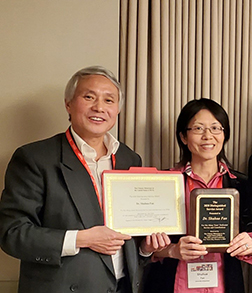 Shuhua Fan, Ph.D., an associate professor in the History Department at Scranton, is the winner of the 2020 Distinguished Service Award from the Chinese Historians in the United States (CHUS) at the 2020 American Historical Association Annual Conference in New York City.
Shuhua Fan, Ph.D., an associate professor in the History Department at Scranton, is the winner of the 2020 Distinguished Service Award from the Chinese Historians in the United States (CHUS) at the 2020 American Historical Association Annual Conference in New York City. CHUS, founded in 1987, is a vibrant association of more than one hundred professional historians, both Chinese and American, in the American and Chinese academia. Dr. Fan is currently serving on the Board of Directors of The Historical Society for Twentieth-Century China (HSTCC), a premier international professional organization founded in 1983 for modern China studies.
Dr. Fan joined the University of Scranton's History Department in 2009. She earned her B.A. from Sichuan Normal University, her M.A. from Jilin University and her M.A. and Ph.D. from The University of North Carolina at Chapel Hill.
Shuhua Fan Wins 2020 Distinguished Service Award
-
02/20/2020
The Library invites University of Scranton faculty to join us Thursday, March 5, at 10:00 a.m. during Open Education Week (March 2-6) for coffee and a light breakfast in the Weinberg Memorial Library room 305 to discuss implementing Open Educational Resources (OER) in the classroom. The Library defines OER as any freely accessible or appropriately licensed, rigorous academic material that is a suitable replacement for expensive textbooks, readings, and other types of required course materials.
Discussion will include an introduction to OER, how to locate OER resources within the Library's collection and online, and suggestions for how you can replace costly textbooks and other resources with OER. Librarians will also answer questions about OER and the Open Educational Resources Grant, available to full-time faculty and accepting applications until April 17.
Click here to register by Friday, Feb. 28:Celebrate Open Education Week! Join us for Coffee
-
02/18/2020
The Center for Teaching and Learning Excellence along with the Office of Equity and Diversity are excited to offer four pedagogy development workshops for faculty. The series, Examining Pedagogy Through an Inclusive Lens, will highlight strategies and best practices to foster an inclusive classroom environment for a diverse student population. Topics include racial diversity, gender expression/identity, disability accommodations, and working with veteran students.
On Friday, Feb. 21, Dr. Tiffany Bordonada will present Racial Diversity. Dr. Bordonada is an assistant professor in the Department of Counseling and Human Services and co-director of the Clinical Mental Health Counseling graduate program. Dr. Bordonada will expand on the importance of a productive and equal learning environment for all. She will also speak about teaching strategies and reflective student assignments that celebrate diversity and increase racial awareness.
On Thursday, Feb. 27, Dr. Paul Datti will present All About Gender. Dr. Datti is an associate professor at the University of Scranton where he directs the Counseling and Human Services program. Dr. Datti will discuss the terms related to gender identity, reducing sexism and cisgenderism, adopting inclusive language and actions, and reducing bias and avoiding misgendering.
On Thursday, March 26, Dr. Rebecca Dalgin will present Accommodations & Beyond: Inclusive Strategies in the Classroom. Dr. Dalgin is a professor in the Department of Counseling and Human Services and the Rehabilitation Counseling Masters Degree program director. Dr. Dalgin will discuss classroom accommodations for students with disabilities, disability-inclusive language, eliminating stigma, confidentiality, universal design, and available resources.
On Friday, May 1, Dr. Mary Troy will present Veteran Student Issues. Dr. Troy is an assistant professor in the Counseling and Human Services department. Dr. Troy will discuss veteran student challenges in starting and finishing college, and strategies for veteran student retention and success.
All workshops will be held in the DeNaples Center, room 406. Registration is required. Please click here to register. Light fare will be served at each session.
For more information, please contact Amy Simolo, CTLE faculty development specialist, at amy.simolo@scranton.edu or call 570-941-7498.
Spring Workshop Series for Faculty
-
02/18/2020
The Office of Research and Sponsored Programs (ORSP) has a monthly raffle during the academic year (once during the summer) for members of the University who submit external grant proposals. ORSP will randomly select a name from all faculty and staff members who have applied for an external grant during that time period. the winner receives a $25.00 gift card.
The January winner was Dr. Ahmed Gomaa.
ORSP January Raffle Winner: Ahmed Gomaa
-
02/14/2020
In the 200 years since Florence Nightingale was born, the practice of nursing has evolved. As the largest group of health care professionals in the United States, nurses and midwives are the backbone of health care services.
The World Health Organization has designated 2020 as the Year of the Nurse and Midwife, in honor of the tireless contribution of nurses and midwives to health care. The aim of the designation is to highlight the challenges nurses face and the urgent need for governments to increase investment in the profession as well as advance nurses’ vital position in transforming health care around the world.
“(Nurses) work at all levels of health care, from primary health care services within the communities through to most specialized levels of hospital care. In the hospital setting, nurses are with patients 24/7,” said Dr. Mary Jane Hanson, director of graduate and Doctor of Nursing Practice programs in the University’s Nursing Department.
Evolving over many decades, health care is now delivered in a variety of settings. Dr. Mary Jane K. DiMattio, points out that “a lot of care is now being delivered outside of the hospital which is a very good thing. However, those who are left in hospitals are sicker and more vulnerable than ever. That’s one of the settings where we are having the most difficulty keeping well-educated nurses. Part of that is because of the production model of the hospital setting is not conducive to the kind of care that we want to give and turnover occurs. We have to have more of a voice in the business aspects of health care that is delivered in more traditional settings like hospitals.”
Dr. Marian Farrell, states “the big difference between Florence Nightingale and our nurses today is our education. I think we have to really invest in our education. It’s important that people in the community recognize that it is not just a nurse. It is the nurse”.
It is estimated that there will be a shortage of 9 million nurses in the world by 2030.
“We’ve been in a shortage for a long time,” said Dr. Kim Subasic, the interim department chairperson. “However, it’s a matter of how severe the shortage is. With the aging population and aging nursing faculty, we won’t have the number of nursing faculty to educate the number of new nurses needed. “
It is also important to note we are going into an era with increasing climate change. Dr. Margarete Zalon, adds that “this will be very disruptive to populations and their health. This is another area where nurses can make a contribution to society and to populations around the world. I think we are going to see a lot of movement and therefore that is going to create a need for health services. We certainly see it in our own country with the number of disasters and the need for people to respond. When you look at the growth of health care, professions in nursing are growing, but there are very few years when we are not in a nursing shortage.”
Faculty Weigh in on the Year of the Nurse and Midwife
-
02/14/2020
Edward M. Scahill, Ph.D., associate professor of economics at The University of Scranton, has been named as a regular contributor on microeconomics to The Wall Street Journal’s Weekly Review, which is an academic resource for faculty to integrate into their courses current news articles from The Wall Street Journal in 16 disciples.
Dr. Scahill joined the University faculty in 1989 and served as the director of the University’s Center for Economic Education for decades. He has been actively involved in leading efforts to teach economics and finance to area elementary and high school students and received a grant from the National Science Foundation to train high school teachers to teach advanced placement economics courses.
Dr. Scahill has published articles in numerous journals, including: Journal of Economics Teaching, Journal of Economics and Economic Education, Journal of Finance and Economics and the International Review of Economics Education. He has made contributions to “Principles of Microeconomics and Macroeconomics” (all eight editions), “Intermediate Macroeconomics” and “Money and Banking,” co-authored by R. Glenn Hubbard and Anthony Patrick O’Brien.
An award-winning teacher, Dr. Scahill received the Alperin Teaching Fellowship, which is given by the Kania School of Management in recognition of achievement and exceptional teaching. He also received the Leavey Award for Excellence in Private Enterprise Education from the Freedoms Foundation for his program, “Teaching Economics by Teaching Baseball,” which was designed to show how examples from the world of professional baseball can be used to teach fundamental economics concepts.
Dr. Scahill earned a bachelor’s degree in economics from St. Bonaventure University and a master’s degree and Ph.D. in economics from The State University of New York at Binghamton.
Professor to Write for WSJ Weekly Review
-
02/12/2020
Dr. Andrew Venezia, an assistant professor in the Department of Exercise Science, is a neuroscientist and exercise physiologist. He joined the Scranton faculty in 2016 after earning his Ph.D. in neuroscience and cognitive science from the University of Maryland. Prior to his doctoral studies, he earned his bachelor’s and master’s degrees in Exercise Science from Bloomsburg University of Pennsylvania.
Dr. Venezia studies the influence of physical activity on cognitive function and is specifically focused on understanding the mechanisms that underlie beneficial changes to brain function in response to physical activity and exercise. Dr. Venezia began investigating the impact of long-term exercise on cognitive function in older adults. He later transitioned into investigating cellular and molecular adaptions in the rodent brain following chronic exercise, acute exercise, and in utero exercise exposures. Most of his research has focused on the hippocampus, a brain region that is uniquely sensitive to the effects of physical activity and is important for learning, memory, and emotion.
Currently, Dr. Venezia is primarily interested in the immediate and delayed effects of acute high-intensity exercise on hippocampal plasticity, memory, and mood. Research in humans suggests that acute exercise has small but positive effects on memory; however, the optimal intensity, mode, and timing of exercise relative to the learning experience remain undetermined. Dr. Venezia’s research in rodents suggests that the mechanisms of hippocampal plasticity are initiated immediately after a single bout of exercise. Interestingly, the mice in these investigations displayed anxiety-like behavior immediately after acute exercise and were unwilling to complete tasks designed to test memory. Although he is hesitant to consider this behavior “anxiety," new research by Dr. Venezia and students at Scranton suggests that college students display higher levels of anger, restlessness and depression when they complete a cognitive task after exercise compared to the same task performed after rest. Preliminary data from two student-led projects suggest that this effect is observed following both resistance training and cycling exercise.
These data were presented by two University of Scranton undergraduate students at the annual meeting of the Mid-Atlantic Regional Chapter of the American College of Sports Medicine in November 2019. Dr. Venezia has four ongoing projects at Scranton as well as one active collaboration with researchers at the University of Maryland. Two of these projects are being led by students from the honors program and one project is funded by an Internal Research Grant. These studies will further our understanding of how acute high-intensity exercise affects cognitive function and mood. Since joining Scranton in the fall of 2016, Dr. Venezia has published four peer-reviewed articles. In addition, Dr. Venezia was the lead author of a chapter in the recently published Routledge Handbook of Sport and Exercise Systems Genetics. This chapter detailed the ethical considerations of using genetic testing for talent identification, another of Dr. Venezia’s long-standing research interests.
Research Spotlight: Andrew Venezia, Ph.D.
-
02/05/2020
The Spring 2020 Faculty Research Seminar Series Kicks off on Friday with Christopher Haw, Ph.D.
The Research Seminar Series was established to meet the need for a time and place for faculty and staff research information exchange. It began with our first research presentation on February 4, 2005. In its essence, the series is intended to build community and collegiality by setting the venue for you to communicate to others just what you do. It's casual and fun: a great way to relax, meet faculty from various disciplines and get a good feel for the University community at its best. We hope you'll join us!

Faculty Research Seminar Series Kicks off on Friday
-
02/05/2020
The second edition of “Nurses Making Policy: From Bedside to Boardroom,” edited by Margarete Lieb Zalon, Ph.D., R.N., A.C.N.S.-B.C., F.A.A.N., professor of nursing and director of the University’s online master of science in health informatics program, Rebecca M. Patton, D.N.P., R.N., C.N.O.R., F.A.A.N., and Ruth Ludwick, Ph.D., R.N.-B.C., A.P.R.N.-C.N.S., F.A.A.N., won second place in the History and Public Policy category of the 2019 American Journal of Nursing Book of the Year Awards.
The American Journal of Nursing Book of the Year Awards is an esteemed and prestigious competition in which the best in nursing publishing are chosen by a panel of judges who are experienced and well-established in the healthcare community. Awards are given for first, second, and third places across 20 categories. 2019 marked the 50th year of the awards.
The second edition of “Nurses Making Policy” explores the nurse’s integral role in facilitating health policy change and advocating for the patient, both in the hospital and in the larger political system. The editors have donated all their royalties from both editions of the book to the Washington Fellowship Fund at the American Nurses Foundation, which is the philanthropic entity of American Nurses Association. The Washington Fellowships Fund is focused on getting nurses a seat at the highest-policy making tables and maximizing nurses’ participation on Capitol Hill committees.
Dr. Zalon, who has been a member of Scranton’s faculty since 1988, was inducted as an American Academy of Nursing Fellow in 2010 in part for her positive influence on health care policy and delivery. Her leadership legacy includes grassroots advocacy, progressive program design, execution and outcomes in state and national nursing organizations focused on establishing practice and education policy, and building research funding capacity.
Dr. Zalon has authored book chapters, as well as articles published in numerous scholarly journals and other professional publications. She has also made research and health policy presentations at the local, state, national and international levels. Her research has been funded by the National Institutes of Health.
Dr. Zalon serves on the American Academy of Nursing’s Acute and Critical Care Expert Panel, and is the president of the Nursing Foundation of Pennsylvania. She is a past chair of the American Nurses Foundation, a former board member of the American Nurses Association, past vice-president of the American Nurses Credentialing Center, and a past president of the Pennsylvania State Nurses Association.
Dr. Zalon is a recipient of the Duke University School of Nursing Distinguished Alumna Award, the PSNA Distinguished Nurse Award and a Leahy Fellowship at The University of Scranton. She also received the University’s Excellence in Graduate Teaching Faculty Senate Award in 2017.
Dr. Zalon received her bachelor’s degree from Duke University and her master’s and Ph.D. in nursing from New York University.
Nursing Professor Wins Book of the Year Award
-
01/28/2020
Oliver Morgan, Ph.D., a professor in the Counseling & Human Services, discussed his addiction and recovery research on a recent podcast, "The Thoughtful Counselor."
He talks about his path from graduate school to his interest in interpersonal neurobiology as a result of studying trauma.
Hear what he has to say about "evidence-based interventions that address family and community involvement in the treatment and recovery process" in the podcast, here.
Dr. Morgan, who joined the University in 1990, is co-editor of five books, covering topics in addiction studies, Catholic intellectual thought and counseling and spirituality. He has authored or co-authored 10 book chapters and proceedings, covering topics including addiction, pastoral care, spirituality and clinical practice and has published more than 20 peer-reviewed articles in the same range of topics and subject-matter.
Professor Offers Contemporary Thoughts on Addiction and Recovery
-
01/22/2020
Two prestigious academic journals have ranked the Accounting Department of The University of Scranton in the top six in the nation for its scholarship in the areas of teaching/learning and applied practice. A 2019 edition of The Accounting Educators’ Journal and a 2019 online preprint (to be published in 2020) edition of Issues in Accounting Education published articles on the scholarship productivity of faculty in accounting programs across the nation.
The article in The Accounting Educators’ Journal titled, “Accounting Programs Ranked by Accounting-Education Publications: Controlling for Journal Quality, Authors’ Doctoral Time and the Number of Ph.D./DBA Faculty,” ranked accounting programs based on their faculty members’ publications in top accounting education journals. This article ranked Scranton’s Accounting Program No. 6 in the nation for article counts for 25 years standardized by each journal’s quality rating, the time since each author received their Ph.D. or D.B.A. and the number of accounting-education authors on faculty.
The article in Issues in Accounting Education titled, “The Intersection of Academia and Practice: Publishing in Leading U.S. Accounting Organizations’ Journals,” ranked accounting programs and faculty based on the number of publications in the leading five accounting practitioner journals. This article ranked Scranton No. 1 in the nation. The article, authored by faculty at Kennesaw State University and The University of Scranton, noted “two institutions (The University of Scranton, 25 articles; DePaul University, 20 articles) lead the group by a substantial margin.”
With respect to authorships of individual accounting faculty across the nation, four Scranton faculty members were recognized: Douglas Boyle, D.B.A., chair of the Accounting Department at Scranton, director of the University’s internationally recognized DBA program and the founder and director of the University’s Nonprofit Leadership Certificate Program; James Boyle, D.B.A., assistant professor of accounting; Brian Carpenter, Ph.D., professor of accounting; and Daniel Mahoney, Ph.D., professor of accounting. The article noted, “Douglas Boyle at The University of Scranton is the overall leader with 19 articles, followed by Brian Carpenter, also at The University of Scranton with 13 articles. Other major contributors at the University of Scranton are Daniel Mahoney (11 articles) and James Boyle (seven articles). Overall, three of the top four authors are at The University of Scranton, and four of the top nine are University of Scranton faculty.” The article further identified Dr. Douglas Boyle and Dr. Carpenter as among only three authors in the nation for having a wide breath of publishing with articles in four of the five journals and among only seven authors in the nation for being ranked nationally for traditional all methods academic research, accounting education research, and practice research.
The University’s Kania School of Management, of which the Accounting Department is a part, is accredited by AACSB International, whose stated mission is “to foster engagement, accelerate innovation, and amplify impact in business education.” As part of its AACSB accreditation, the Kania School has identified teaching and learning scholarship and applied or integration/application scholarship (i.e., impact on practice) as high areas of emphasis for its AACSB accreditation Business Unit Research Activities, thus underscoring the significance of the two studies’ findings.
“Our accounting programs – bachelor’s, master’s, and doctoral – have made incredible strides in recent years, and now both the quantity and quality of our scholarship are nationally recognized. I am proud to be part of this ever-growing landscape,” said Dr. Mahoney.
Articles by Drs. Douglas and James Boyle, Dr. Mahoney and Dr. Carpenter have received the Institute of Management Accountants’ Lybrand Medals for “outstanding papers.”
Faculty Research Productivity Noted Nationally
-
01/22/2020
Nathan Lefler, Ph.D., associate professor of Theology/Religious Studies, spoke with us recently about studying Flannery O'Connor's “The Displaced Person" during intersession.
What do you enjoy about teaching theology/religious studies at Scranton?
I am grateful to be asked this question. I think what I enjoy most is the opportunity to try to convey effectively -- to teach -- something true to my students each year -- something true and real. Thomas Aquinas says you can only teach what you know perfectly, which sounds very daunting, probably because one hears it and thinks, "So, I have to know everything to be able to teach anything!" But that's not what he says: only that what you teach, you have to know. So, I can teach my 10- and 12-year-olds the rudiments of arithmetic and algebra without really understanding much at all about higher math.
And so, I try each semester to teach the college theological equivalent of the basic arithmetic operations: First, that God really is Love - not just that he loves us, but that he is Love, in his nature, which means love through and through and nothing else but love. Second, that we human beings are made, by Him, in His image, which means that we are like Him in our created nature -- which means that we are made not merely with the ability to love when we feel like it, but that we are made lovers by nature -- lovers of everything and especially of everyone. Love is relationship. So the real foundation of our being lovers by nature is that the God who made us like Himself is a personal relationship, between three perfect lovers, and so we, by our deepest nature, are made for, and yearn for, and are capable of, loving others and being loved by them. I also get to talk a lot about Jesus in my theology classes, whose story fills out - literally embodies (or incarnates) the two points above. So "that's it," in a nutshell.
What are your goals for the use of your intersession grant?
To write and publish a paper on the connections between the thought of the great late-20th century literary theorist and anthropologist, Rene Girard, and the work of Flannery O'Connor, focusing on one of her longer short stories, "The Displaced Person."
What drew you to study Flannery O'Connor's “The Displaced Person"?
This is one of O'Connor's great masterpieces. On the surface, it's about a Polish refugee brought with his family to the American South shortly after the end of the Second World War. Mr. Guizac, the so-called "Displaced Person" (an official designation by the U.S. government. Truman signed the first Displaced Persons Act on June 25, 1948.), arrives for work on Mrs. McIntyre's small struggling dairy farm and proves immediately to be a highly skilled worker, which generates tensions with longstanding employees. Soon, and somewhat mysteriously, he falls out of favor with Mrs. McIntyre as well, who begins to speak of him as "extra." Mrs. McIntyre cannot afford what is extra, and so, the story comes to a tragic end, on a certain level, with the not quite accidental death of Mr. Guizac. But the story has many levels. In the penultimate scene, Mrs. McIntyre almost simultaneously recognizes her collusion in Mr. Guizac's death, and that she herself is somehow a profoundly displaced person. Jesus, too, was a displaced person, and so, Flannery O'Connor insists, are all of us, and if only we can see that in time, we may discover the possibility of stepping out of the endless cycles of mimetic rivalry and violence that constantly threaten to consume and even annihilate us. Girard's elaborately articulated mimetic theory serves to elucidate O'Connor's spiritual and theological insights in several ways, and the story, in turn, helps to verify aspects of Girard's theoretical edifice. There are ways, too, that Aquinas's theology of nature and grace, skillfully deployed by O'Connor, cries out for a more deliberate engagement by mimetic theory than has been mounted heretofore by more than a very few theologians.
What do you hope to gain as a result of this research?
This project is helping me to deepen my engagement with and understanding of both Flannery O'Connor and Rene Girard, each a significant 20th-century Catholic thinker in his/her own right, but also to further the small body of scholarly research directly concerned with the obvious resonances between their work. The timing of the project is fortuitous, falling midway between a conference I designed and ran last spring on our campus (under the auspices of our Catholic Studies Program), on Catholic higher education in Girardian perspective, and an updated and expanded version of that conference that is scheduled to take place at Notre Dame University, again under my direction, this Oct. 1-3.
Professor is Teaching Something 'True and Real'
-
01/14/2020
The Office of Research and Sponsored programs (ORSP) has a monthly raffle during the academic year (once during the summer) for members of the University who submit external grant proposals. ORSP will randomly select a name from all faculty and staff members who have applied for an external grant during that time period. The winner receives a $25.00 gift card. Dr. Bryan Crable, Faculty, Biology Department, is our December winner.
Dr. Bryan Crable, ORSP December Raffle Winner
-
01/09/2020
University of Scranton accounting professor Douglas M. Boyle, D.B.A., was recently re-elected to serve as chair of the Allied Services Foundation Board of Directors. Allied Services is the leading provider of post-acute healthcare and human services for northeastern and central Pennsylvanians with disabilities and chronic illness. Dr. Boyle has served on the Foundation Board since 2010 and also serves as chair of its Skilled Nursing Center, Personal Care, and Continuing Care Retirement Community Boards.
Dr. Boyle is chair of the University’s Accounting Department, director of the University’s Doctor of Business Administration (DBA) Program and the founder and director of the University’s Nonprofit Leadership Certificate Program.
A Certified Public Accountant as well as a Certified Management Accountant, Dr. Boyle has more than 25 years of industry executive experience. He has served in executive roles in startup, middle market and Fortune 500 companies where he has held the positions of chief executive officer, president, chief operations officer and chief financial officer.
An award-winning researcher and teacher, Dr. Boyle was profiled in 2018 as one of just six “Professors to Know in Business Programs Based in the Northeast” selected by Bschools.org, an online resource for entrepreneurs. The professors, who teach at business schools in the Northeast with online MBA programs, were selected based on their professional experience and knowledge.
At Scranton, Dr. Boyle was awarded the Faculty Senate Excellence in Graduate Teaching Award for 2019. He was named the Kania School of Management’s (KSOM) Alperin Teaching Fellow for 2015 to 2018 and received the KSOM Advisory Board’s Award for Curriculum Innovation for 2017-2018. He has twice earned the KSOM Teacher of the Year award and earned the Provost Excellence Awards for the Scholarship of Teaching in 2014 and for Scholarly Publication in 2012. He was awarded the Outstanding Accounting Educator of the Year Award from the Pennsylvania Institute of Certified Public Accountants in 2015. In addition, four research papers he has authored with fellow KSOM faculty members have received the Institute of Management Accountants’ Lybrand Medals for “outstanding papers.”
Dr. Boyle earned his bachelor’s degree from The University of Scranton, a MBA from Columbia University and a doctorate from Kennesaw State University.
Professor Named Chair of Allied Services Foundation Board
-
01/07/2020
University of Scranton President Rev. Scott R. Pilarz, S.J., announced the appointment of Michelle Gonzalez Maldonado, Ph.D., as dean of the University’s College of Arts and Sciences effective July 1, 2020.
Since 2014, Dr. Maldonado has served as assistant provost of undergraduate education at the University of Miami, where she has also served since 2016 as the executive director of the Office of Academic Enhancement and as a professor of religious studies. She joined the faculty at the University of Miami in 2006.
“Dr. Maldonado’s leadership experience in working with academic deans, faculty, students and professional advisors, complemented by her dedication and care of historically underrepresented and first-generation college students, will make her a great asset at Scranton,” said Father Pilarz in an announcement sent to the University community. “Additionally, her education and career display a deep appreciation for the Catholic and Jesuit mission that is central to our work together.”
At Scranton, Dr. Maldonado will oversee the University’s academic departments in the sciences and mathematics, engineering and computing sciences, humanities, theology and social sciences, as well as the Special Jesuit Liberal Arts Honors Program, the Magis Honors Program in STEM and the University’s undergraduate Honors Program and the pre-med and pre-law programs.
As assistant provost of undergraduate education at Miami, Dr. Maldonado’s areas of responsibilities include managing an undergraduate advisor consortium of professional academic advisors representing Miami’s nine schools and colleges, as well as collaborating with the academic deans of each school and college. In that role, she also implemented substantial revisions to Miami’s general education requirements and worked with their Enrollment Management division on recruitment strategies with an emphasis on historically underrepresented and first-generation students, among other duties.
As executive director of the Office of Academic Enhancement, she supports underrepresented, first-generation and high-achieving students, a role that includes overseeing the Prestigious Award and Fellowship Division, The Foote Fellow Honors Program, the Programs of Academic Excellence and the Residential College Advising program. She also created the Division for First Generation Students.
In addition, she served on a number of committees at Miami, including the Curriculum Committee, the International Student Task Force, and the Civic Engagement Task Force, among others.
As a scholar of religious studies, Dr. Maldonado’s areas of specialization include Latino/a and Latin American theology; Afro-Caribbean and Latino/a studies; U.S. minority, Third World and feminist theologies; and constructive and cultural theologies. She is the editor, co-author or author of 10 books and has published more than 40 articles in academic journals and book chapters. She has also presented at 85 academic conferences and meetings and contributed more than a dozen book reviews. She has also written a number of articles for the National Catholic Reporter.
Dr. Maldonado has received multiple honors and awards during her career, including the Alumni of the Year award from the Graduate Theological Union, the 2008 Catholic Press Association Book Award for Second Place in Gender Issues for her book “Created in God’s Image,” and a 2004 Catholic Press Association Book Award and a 2004 Hispanic Theological Initiative Book Prize for her first book “Sor Juana: Beauty and Justice in the Americas.” At the University of Miami, she was named a Gabelli Scholar (2012-2014) and a Civic Engagement Fellow (2012-2013).
Dr. Maldonado is a member of the American Academy of Religion, where she currently serves on its American Lectures in the History of Religion Committee; the Academy of Catholic Hispanic Theologians in the United States, where she served as president for 2009-2010; and the Catholic Theological Society of America.
Previously, Dr. Maldonado served as a theologian-in-residence at San Lucas Toliman Mission in Guatemala from 2004-2006, and as an assistant professor of theological studies at Loyola Marymount University from 2001-2005.
Dr. Maldonado earned her bachelor’s degree from Georgetown University; her master’s degree from the Union Theology Seminary and her Ph.D. from the Graduate Theological Union.
University Names New Dean of CAS
-
01/07/2020
The University of Scranton awarded faculty development intersession grants for 2020 to seven faculty members.
Debra Fetherman, Ph.D., associate professor of exercise science and sport, will receive a grant to research a “Minor in Health Promotion.” Dr. Fetherman received her bachelor’s degree from Ohio University, her master’s degree from the University of Central Arkansas and her doctoral degree from Marywood University. She has worked for the University since 2005.
Nathan Lefler, Ph.D., associate professor of theology/religious studies, will receive a grant to study “Can Satan Cast Out Satan? Flannery O’Connor’s ‘The Displaced Person.’” Dr. Lefler received his bachelor’s degree from the University of Chicago, his master’s degree from Yale Divinity School and his doctoral degree from Catholic University of America. He has worked for the University since 2008.
Aiala Levy, Ph.D., assistant professor of history, will receive a grant to research a “Sao Paulo’s Celso Garcia Hall and the Creation of a Laboring Public.” Dr. Levy received her bachelor’s degree from Princeton University and her master’s and doctoral degrees from the University of Chicago. She has worked for the University since 2016.
Mohammad Maktoomi, Ph.D., assistant professor of physics/electrical engineering, will receive a grant to research “High Sensitivity Fully Linear Resistive Transducer Bridge Amplifier.” Dr. Maktoomi received his bachelor’s degree from Aligarh Muslim University and his master’s and doctoral degrees from Indraprastha Institute of Information Technology. He began working for the University in 2018.
Sufyan Mohammed, Ph.D., associate professor of communication, will receive a grant for to study “Crisis Communication 2.0: Evaluating Corporate Crisis Communication strategies and Media Choices in the Digital Age.” Dr. Mohammed received his bachelor’s degree from Jai Hind College, his master’s degrees from Rizvi Institute of Management Studies and Research and Rochester Institute of Technology and his doctorate from Texas Tech University. He has worked for the University since 2008.
Susan Poulson, Ph.D., professor of history, will receive a grant to research a “Murder, Gender and the Insanity Defense after the Civil War.” Dr. Poulson received her bachelor’s degree from George Washington University and her master’s and doctoral degrees from Georgetown University. She has worked for the University since 1990.
Ana Ugarte, Ph.D., instructor for world languages and cultures, will receive a grant to research a “Island Laboratories: Literary Monsters, Disease and Pharmacopeias in the Hispanic Caribbean.” Dr. Ugarte received her bachelor’s degree from Universate Stendhal Grenoble III, a bachelor’s and master’s degree from Universidad Complutense de Madrid and her doctoral degree from Duke University. She has worked for the University since 2018.
Faculty Members Receive 2020 Intersession Grants
-
01/03/2020
Nathaniel Frissell, Ph.D. recently appeared on NPR's Short Wave to discuss an Antarctic Christmas Carol tradition and his work on shortwave radio for community science.
You can hear the show, "A Shortwave Christmas Carol," here.
Dr. Frissell is a space physicist and electrical engineer who came to Scranton from the New Jersey Institute of Technology Center for Solar-Terrestrial Research (NJIT CSTR). Dr. Frissell has a passion for radio science and remote sensing of the ionosphere, the electrically charged layer of the upper atmosphere that extends from ~50 to 600 km above the Earth’s surface. The ionosphere is responsible for long-distance radio propagation on the high frequency (HF, 3 - 30 MHz) bands, errors in Global Positioning System (GPS) and Global Navigation Satellite Systems (GNSS) measurements, and drag on low Earth-orbiting satellites.
Professor Discusses Shortwave Radio for Community Science
-
12/09/2019
Five University of Scranton faculty presented at the National Taiwan University-Scranton Philosophy Symposium at the National Taiwan University. The symposium is a collaborative effort between the two schools. The first symposium, which focused on the theme “Language and Reality,” took place earlier this year in Taiwan. The theme of the next symposium is “Self and Others” and will take place in October 2020 in Scranton.
Faculty members who presented in Taiwan were: George Aulisio, associate professor, department chair and research and scholarly services coordinator, Weinberg Memorial Library; Harold Baillie, Ph.D., professor of philosophy; Andrew LaZella, Ph.D., associate professor of philosophy and co-director of the University’s honors program; Matthew Meyer, Ph.D., associate professor of philosophy, pre-law advisor and faculty director for the Slattery Center for the Humanities; and Ann Pang-White, Ph.D., professor of philosophy and director of the Asian Studies Program at the University.
Aulisio presented “Language, the Mental Lexicon, and Reality.” He received his bachelor’s degree from Bloomsburg University of Pennsylvania, his Master of Science from Drexel University and his Master of Arts in Liberal Studies from the University of Pennsylvania. He joined the faculty at Scranton in 2009.
Dr. Baillie presented “Language, Recklessness and Reality in Zhuangzi and Plato.” He received his bachelor’s degree from Yale University and his master’s and doctoral degrees from Boston College. He joined the faculty at Scranton in 1978.
Dr. LaZella presented “Flatus Vocis: Language and Reality in Medieval Nominalism.” He received his bachelor’s degree from Hamline University and his master’s and doctoral degrees from DePaul University. He joined the faculty at the University in 2010.
Dr. Meyer presented “The Problem of Opposites as a Fundamental Philosophy.” He received his bachelor’s degree from the University of St. Thomas, his master’s degree from Harvard University and his doctorate from Boston University. He joined the faculty at the University in 2010.
Dr. Pang-White presented “The Logic of the Ineffable: A Comparative Study of the Plotinian One and the Daoist Dao.” She received her bachelor’s degree from Tung-Hai University, her master’s degree from the University of South Carolina at Columbia and her doctorate from Marquette University. She joined the faculty at the University in 1997.
Scranton Faculty Present at Symposium in Taiwan
-
12/03/2019
This article originally appeared in Challenges, the newsletter from the Panuska College of Professional Studies.
PCPS faculty are leaders in a number of arenas. The faculty are not only members of their professional associations but have taken on leadership roles within those organizations. Being an active member and a leader provides opportunities for networking, enhances your professional growth, and enables you to work with colleagues in advancing the profession and serving others.
Networking is one of the most valuable aspects of association membership. It provides the opportunity to connect with colleagues in your community, regionally, nationally and globally. Association colleagues are a source of new friends, provide mentorship and often guide members in seeking new opportunities. These lifelong professional relationships not only provide opportunities for personal growth, but opportunities to contribute to society.
One benefit of association membership is keeping you in touch with the latest developments in your discipline through continuing education, publications and conferences. Opportunities are provided to influence policy to not only strengthen your profession but to improve society. The early development of the professions is replete with stories of leaders who single-handedly influenced the development of their disciplines. However, in an increasingly interdependent society, working together to achieve professional goals is now the norm and a necessity. Changes in legislation and policy occur as a collaborative effort. While we might not always agree with an organization’s stance, being a member provides a powerful means of influencing its direction, positions, policies, and spheres of influence. Connecting with others who have chosen the same career path allows you to gain new perspectives, share common experiences and collaborate in addressing issues within the profession and beyond. You can easily become a well-informed member of the profession.
In my career, I have not only accrued these personal benefits, but when I have been privileged to serve in an organization by volunteering, or holding appointed and/or elected office, I have brought back what I have learned to my workplace — in this instance, the classroom. Likewise, each of us brings a unique set of experiences to an organization that helps achieve its mission. Being an active member and leader helped me to pave the way for my students by working to improve the practice environment and the communities we serve. Connecting with colleagues across the country has enabled me to gain new insights on contemporary solutions to practice challenges. Active participation is a means of not only enhancing one’s credibility as a leader but also providing visibility for your organization beyond the local community. Having a ringside seat to the deliberations of association leaders as they address complex issues has allowed me to articulate the rationale for the decisions made and collaborate more effectively in developing solutions for the future.
Joining a professional association provides you with a built-in opportunity for professional growth. Associations are always looking for new members. While opportunities for leadership and advancement may be limited in some workplaces, setting your sights on leadership opportunities in an association can provide you with valuable experiences as you seek to advance your own career and prepare for new roles within your workplace. It can boost your confidence in taking risks as you assume more responsibility. Professional growth also means taking others.
Read more in Challenges, here.
Why Belong to a Professional Association?
-
11/25/2019
Ismail Onat, Ph.D., assistant professor of sociology, criminal justice and criminology at The University of Scranton, has received the 2019 Rutgers Center on Public Security (RCPS) Kaleidoscope Award.
RCPS specializes in applying geospatial technologies to scholarly research and addressing crime, terrorism and other threats to public security. It presents the Kaleidoscope Award each year to a recipient who has demonstrated innovative applications of Risk Terrain Modeling, which diagnoses environmental conditions that lead to crime, that advance research and practice for the public good.
Dr. Onat has advanced Risk Terrain Modeling through innovative applications to terrorism, drugs and crime analysis from an international perspective, as well as demonstrating a unique ability to help practitioners maximize local resources and expertise to solve problems. In his participation with the University’s Center for the Analysis and Prevention of Crime, he has enhanced the technological and analytical capabilities of students, police officers and other criminal justice agencies in the community.
Dr. Onat received his bachelor’s degree at the Turkish National Police Academy and his master’s and doctoral degrees at The State University of New Jersey – Rutgers. He joined the faculty at Scranton in 2016.
Professor Receives Public Security Award
-
11/22/2019
When having something shipped to you on campus via FedEx, UPS or Amazon, you must use your physical office location, not 800 LInden Street. A list of addresses for campus buildings is located here.
Thank you!
Mailing ServicesCampus Addresses for FedEx, UPS and Amazon Delivery
-
11/14/2019
Although most students have the privilege of going home for the Thanksgiving break to celebrate and spend time with family, international students typically stay in Scranton.
“These students stay around Scranton to either catch up with school work, do some short distance travel, do some Black Friday shopping, sleep in and chill and hang out with friends,” Director of Global Education, Huey Shi Chew, said.
Some international students get invited to homes by their friends to Thanksgiving meals, and if they do not, the Office of Global Education tries to match students with host families.
“Since last year, the Office of Global Education tries to match the international students who are NOT traveling, with host families, during the holidays. The Office sees this as a win-win situation for the international students and the host family. The international students get to experience an important American holiday and the host family in return, gets to experience and learn from the international guest about his/her culture,” Shi Chew said.
Because campus is closed over Christmas, many international students who do not go back to their home country have to find a place to stay.
"For Christmas, it has been a challenge finding families that will host our international students," said Shi Chew.
Would you like to bring an international student/scholar home this Thanksgiving or Christmas? Sign up to host and experience a different Thanksgiving and Christmas this year, here.
Questions ? Contact : Office of Global Education X 4841 or X 7575Holiday Hosting Program for Staff and Faculty
-
11/12/2019
Mary Jane Hanson, Ph.D., professor of nursing and director of the Department of Nursing’s graduate and doctor of nursing practice (DNP) programs at The University of Scranton, was re-elected as chair of the board for the Commission on Collegiate Nursing Education (CCNE) for 2020. This will be her second term.
CCNE is an autonomous accrediting agency that ensures the quality and integrity of baccalaureate and graduate nursing education programs and nurse residency and fellowship programs. The University’s nursing programs hold CCNE accreditation.
Dr. Hanson holds certifications as an Adult Clinical Nurse Specialist, Adult Nurse Practitioner and Family Nurse Practitioner and maintains a current part-time family nurse practitioner practice. She also maintains numerous professional memberships.
Dr. Hanson has published more than 30 papers in national and international peer-reviewed journals including Nursing Research, Western Journal of Nursing Research, The Journal for Nurse Practitioners, Nursing Education Perspectives, Journal of Health Management and Public Health, The Journal of the American Academy of Nurse Practitioners, American Journal of Critical Care, The American Journal for Nurse Practitioners, American Journal of Nursing, and Nursing Management. Her research interests include cigarette smoking, women’s health, cross-cultural study, adolescents’ risk behaviors and primary health care.
In addition, Dr. Hanson has been very successful at securing grant funding and has successfully authored federal grants for the graduate nursing program totaling more than three million dollars.
Dr. Hanson earned her bachelor’s degree from Cedar Crest College and her master’s and doctoral degrees from the University of Pennsylvania. She joined the faculty at University in 1996.
Nursing Faculty Member Re-elected as CCNE Chair
-
11/05/2019
A $1.3 million National Science Foundation (NSF) grant awarded to University of Scranton physics and electrical engineering professor Nathaniel Frissell, Ph.D., seeks to harness the power of a network of licensed amateur radio operators to better understand and measure the effects of weather in the upper levels of Earth’s atmosphere.
The highly-competitive grant awarded by NSF’s Aeronomy Program for the project titled Distributed Arrays of Small Instruments (DASI) will be implemented over a three-year period. As principal investigator, Dr. Frissell, a space physicist, will lead a collaborative team that will develop modular, multi-instrument, ground-based space science observation equipment and data collection and analysis software. He will also recruit multiple universities and ham radio users to operate the network of “Personal Space Weather Stations” developed.
The space weather equipment will be developed at two levels of sophistication: one at a low-cost, easy-to-use level for the ham radio operators; and one that is more complex for university partners that will allow for the collection of additional data.
“The equipment and network allows us to measure and characterize ionospheric and geomagnetic short-term, small scale variability on a large geographic scale in order to understand the response of the ionosphere to sources from above (space weather) and below (atmospheric forcing),” said Dr. Frissell in the grant project proposal. “By designing Personal Space Weather Stations variants at multiple price points, open sourcing the hardware and software, and directly engaging with the ham radio community, this project maximizes the chances of widespread adoption of this system.”
In the U.S., there are more than 730,000 licensed amateur radio operators and nearly 3 million worldwide. For this initiative, Dr. Frissell will target the ham radio community through the Ham Radio Science Citizen Investigation collective, which he leads, and the TAPR (Tucson Amateur Packet Radio) amateur radio engineering organization.
According to Dr. Frissell, measuring and better understanding modulations in the upper atmosphere – specifically the ionosphere – is important because these changes can affect radio transmissions as well as satellites, which then can affect the internet, cellphones, GPS systems and more. He also explained that radio remains a very important communication tool because it is a way of communicating worldwide that doesn’t rely on infrastructure. Radio communications can bounce (refract) off the ionosphere and return to earth. This process can repeat multiple times – for example, allowing people in the U.S. to communication with people in Australia – without the use of expensive satellites.
Already published research by Dr. Frissell using data collected by existing Ham radio users shows the sensitivity of the existing technology and the capacity of network of licensed radio enthusiasts to measure modulations produced in the ionosphere. In the study “Modeling Amateur Radio Soundings of the Ionospheric Response to the 2017 Great American Eclipse,” published in Geophysical Research Letters, Dr. Frissell measured changes in the ionosphere during the solar eclipse. The data he used was collected by hundreds of licensed ham radio operators in the U.S. who participated in a contest he ran that allowed him to collect the data he needed for the analysis. The new initiative expands this model and provides additional equipment to add to the data to be collected and analyzed.
Collaborators in the NSF funded DASI project with Dr. Frissell include: William Engelke and Travis Atkison, Ph.D., of the University of Alabama; David Kazdan, Ph.D., and Soumyajit Mandal, Ph.D., of Case Western University; Hyomin Kim, Ph.D., of the New Jersey Institute of Technology; Phil Erickson, Ph.D., of MIT’s Haystack Observatory; and Scotty Cowling of TAPR and Zephyr Engineering; among others.
Dr. Frissell joined the faculty at Scranton in the fall of 2019. He earned a doctorate and a master’s degree in electrical and computer engineering from Virginia Polytechnic Institute and State University in Blacksburg, and a bachelor’s degree in physics and music education from Montclair State University in New Jersey. He is the founder and lead organizer of the international citizen science space physics research collective known as the Ham Radio Science Citizen Investigation (HamSCI.org).
Professor Awarded $1.3 Million NSF Grant
-
11/01/2019
Three Accounting Department faculty members at The University of Scranton, Amanda Marcy ’10, G’11, Ashley Stampone ’10, G’11, and David Salerno, Ph.D. ’97, G’06, and Economics and Finance Department faculty member, John Ruddy, D.P.S. ’91, recently had their research featured by a professional organization and cited in a Texas Supreme Court decisions. All are University of Scranton graduates.
Marcy and Stampone’s work, titled “Emerging Technologies Will Impact More Than Office Duties” and set to be published in the Pennsylvania CPA Journal this fall, was featured in an article by the Pennsylvania Institute of Certified Public Accountants concerning how technological advancements will bring changes to CPA licensing and the CPA Exam. Marcy, assistant professor of accounting, received her bachelor’s and master’s degrees from The University of Scranton, where she is currently pursuing her D.B.A. She joined the accounting faculty at the University in 2015 and is a certified public accountant. Stampone, faculty specialist in accounting, received her bachelor’s and master’s degrees from The University of Scranton. She is also pursuing her D.B.A. at the University. A certified public accountant, she has taught at Scranton since 2016.
Dr. Salerno and Dr. Ruddy’s work, titled “Defining and Quantifying Pension Liabilities of Government Entities in the United States” and published in the Journal of Corporate Accounting and Finance, was cited by the Supreme Court of Texas in rendering a government employee pension decision involving the Dallas Police and Fire Pension System. Dr. Salerno, associate professor of accounting received his bachelor’s and master’s degrees from The University of Scranton and his doctoral degree from Kent State University. A certified public accountant, he joined the University faculty full-time in 2007. Dr. Ruddy, assistant professor of economics and finance, received his bachelor’s degree from The University of Scranton, his master’s degree from George Washington University and his doctoral degree from Pace University. A certified public accountant and a chartered financial analyst, he joined the faculty at Scranton full-time in 2013.
KSOM Alumni Faculty Research Cited
-
11/01/2019
The Office of Research and Sponsored Programs (ORSP) has a monthly raffle during the academic year (once during the summer) for members of the University who submit external grant proposals. This month the winner is Nathaniel Frissell, Ph.D., faculty member, Physics - Electrical Engineering Department. ORSP will randomly select a name from all faculty and staff members who have applied for an external grant during that time period. The winner receives a $25.00 gift Card.
ORSP October Raffle Winner: Dr. Nathaniel Frissell
-
10/30/2019
This article originally appeared in the fall 2019 issue of the Latin American and Women's Studies newsletter, which you can read here.
What do we learn about cities when we bring together architects and the humanists? This question is at the heart of the Princeton Mellon Initiative in Architecture, Urbanism, and the Humanities, one of many such initiatives supported by the Andrew W. Mellon Foundation. The question is also an urgent one; today, more than half of the world’s population lives in urban areas and cities disproportionately affect global economic systems, political trends, and intellectual and creative production. How, then, does our understanding of cities change when we consider carefully the built environment, that is, the subject of architects, but from the perspective of multiple disciplines?
During the 2018-2019 academic year, I joined faculty and students in pursuing these questions at the Princeton Mellon Initiative. As a visiting fellow, my primary responsibility was to advance research projects relevant to the Initiative’s aims. In my case, this meant transforming my University of Chicago dissertation into a publishable book, Making the Metropolis: Theaters and the Urban Public in São Paulo, Brazil, 1854-1924. The book examines how, in rapidly urbanizing São Paulo, a wide range of residents used theaters to claim their place within a nascent mass society. At Princeton, I amassed (and read) books from the library’s impressive collection, sampled digitized periodicals, and marked up, deleted, and rewrote a substantial part of the original manuscript.
Along the way, I received feedback on chapter drafts at departmental workshops, published a few findings in the Spring 2019 issue of Latin American Theatre Review (available for download through the Weinberg Memorial Library), and presented other conclusions as part of the Princeton Mellon Initiative’s research forum, whose Fall 2019 theme was “Gender, Justice, Urbanism.” The forum presentation led me down the path of a second project, Afro-Paulistano Cartographies. With a grant from Princeton’s Center for Digital Humanities, I hired a team of undergraduates to read São Paulo’s “black press” and compile a database of public spaces accessible to Paulistanos of African descent in the decades following emancipation (Brazil fully abolished slavery in 1888).
I hope to continue to work with students on this project while at Scranton. I also hope, more broadly, to share with students the joy and significance of thinking with the built environment. Co-teaching an interdisciplinary architectural studio with architect Mario Gandelsonas reminded me how invigorating architecture can be –– especially when experienced firsthand as part of a Fall Break course trip to São Paulo!
Whether studying Latin American history or gender, space, like time, is a variable we cannot ignore.
Bridging Architecture and the Humanities at Princeton
-
10/24/2019
Books by Oliver Morgan, Ph.D., professor of counseling and human services; Susan Poulson, Ph.D., professor of history; and Margarete Zalon, Ph.D., professor of nursing, were published recently. In addition, a chapter to a book was published by Michael Jenkins, Ph.D., associate professor of sociology, criminal justice and criminology.
Dr. Morgan authored “Addiction, Attachment, Trauma, and Recovery: The Power of Connection,” which suggests a new model of addiction that incorporates neurobiology, social relationships and ecological systems and calls for a change in the established ways we think and behave about addiction and recovery. Dr. Morgan received his bachelor’s degree from Fordham University, his master’s degrees from Hahnemann Medical University and Weston School of Theology and his doctorate from Boston University. He has worked for the University since 1990.
Dr. Poulson authored “Suffrage: The Epic Struggle for Women’s Right to Vote,” a nuanced explanation of how women overcame resistance from traditionalists, religious leaders and the political establishment to earn suffrage. Dr. Poulson received her bachelor’s degree from George Washington University and her master’s and doctoral degrees from Georgetown University. She has also worked for the University since 1990.
Dr. Zalon co-edited “Nurses Making Policy: From Bedside to Boardroom,” second edition. The book is a practical guide written to help advanced students and nurse leaders develop health policy competencies to advocate for patients from the bedside to the larger political arena. Dr. Zalon received her bachelor’s degree from Duke University and her master’s and doctoral degrees from New York University. She has worked for the University since 1988.
Dr. Jenkins authored the chapter “International Policing and Peacekeeping” in “The Handbook of Social Control,” which offers a comprehensive review of the concepts of social control in today’s environment and focuses on the most relevant theories associated with social control. Dr. Jenkins received his bachelor’s degree at The University of Scranton and his master’s and doctoral degrees at Rutgers University. He has worked for the University since 2013.
University Faculty Publish Books in Disciplines
-
10/22/2019
The Diversity Initiatives Review Board is accepting applications for grants funding educational programs on campus that promote initiatives that energize the commitment to diversity, provide opportunity for inter-cultural engagement as well as expand opportunities for multicultural experiences for our community.
The Diversity Initiatives Fund is available to campus groups, departments or individuals seeking to promote a greater understanding of diversity through inclusive pedagogies, educational opportunities, multicultural activities and community outreach programs. The grant is intended to launch new, innovative, or educational opportunities for the University community. Recurring projects may apply for funding as well.
Student applicants and part-time employees are required to have a full-time staff or full-time faculty sponsor. Student Clubs are required to have approval of the club moderator and the Coordinator of Student Clubs and Organizations. Individual staff members and non-full-time faculty must obtain approval from their Supervisor or Department Chair, respectively. Sponsorship or approval must be obtained prior to applying for the grant.
For the grant guidelines and application, please click here.Deadline for Diversity Grant Applications, Oct. 31
-
10/22/2019
The Library invites University of Scranton faculty to join us Friday, Oct. 25, at 2:00 p.m. during Open Access Week (Oct. 21-25) for a coffee break in the Weinberg Memorial Library, room 305, to discuss implementing Open Educational Resources (OER) in the classroom.
Discussion will include an introduction to OER, available resources located in and collected by the Library, and steps to support replacing costly textbooks and other resources with OER. Librarians will also answer questions about OER and the Open Educational Resources Grant, accepting applications until Nov. 15.
Click here to register by Wednesday, Oct. 23.
Open Educational Resources Coffee Break
-
10/21/2019
Place your $2 donation to the United Way of Lackawanna and Wayne Counties in the envelope provided to each department to wear your fan favorite garb to work this Wednesday, October 23! Show off your teams by posting pictures on Bboard and sending them to denise.gurz@scranton.edu.
Please consider making your payroll deductible donation today at scranton.edu/uway. Deductions start after Jan. 1. A few dollars a week goes a long way to support families in need in our community!Fan Day this Wednesday, Oct. 23
-
10/16/2019
Understanding Implicit Bias: Please join us Wednesday, Oct. 23 at 12 p.m. in DeNaples Ballroom A, as we explore the mechanisms of implicit bias in part 4 of the Formula for Success: D+I= A Better U! series.
This program will be moderated by Christine Black with featured presenters Dr. Jessica Nolan, Psychology, Maria Marinucci and Jose Sanchez, directors, Cross Cultural Centers. Explore the origins of our beliefs and learn to embrace our differences as well as enjoying lunch and fellowship with colleagues. Registration is required. Use this link to register.Faculty and Staff Diversity + Inclusion Lunch and Learn Part 4
-
10/08/2019
The University of Scranton’s World Languages and Cultures Department offers multiple programs and opportunities to help students become proficient in a language, literature and culture other than English and American. This gives them the power to lead productive lives as global citizens.
Every year, the University of Scranton hosts Fulbright Language Teaching Assistants and Graduate Assistants from all over the world who teach world language classes, offer educational events to the community and share their cultures with the university.
- Hsiang-Ling (Charlize) Wang - Taiwan (Chinese)
- Vianey Florentino Perez - Mexico (Spanish)
- Sarah Romero Avella - Colombia (Spanish)
- Clara Fabbri - France (French)
- Khadiga AboBakr - Egypt (Arabic)
- Minori Koga - Japan (Japanese)
- Lukas Rackow - Germany (German)
- Alessandra Abate - Italy (Italian)
This year, the department was able to welcome one new instructor and five Fulbright Language Teaching Assistants from Germany, Colombia, Taiwan, France, Egypt and Italy. Hear what they have to say about teaching at Scranton and get to know them:
World Languages and Cultures Department Welcomes Fulbright Language TAs
-
10/08/2019
Seven projects that focus on supporting and improving the student experience received 2019-2020 Strategic Initiatives Funding awards from The University of Scranton. Projects funded range from initiatives to offer students multidisciplinary STEM research experience to resilience training to support for the use of Open Educational Resources as replacements for commercial textbooks. Projects also offer support for first generation students, diversity and inclusion training, academic support to students and training to facilitate discussions between those with different perspectives.
To date, more than $500,000 has been awarded through the University’s Strategic Initiatives Fund to support innovative projects that advance the goals of the Strategic Plan: Engaged, Integrated and Global Student Experience.
Funding is open to University students, faculty and staff, and collaborative projects are encouraged. For those projects that may span multiple years, awards provide “seed money” for the first year of the initiative. Several projects initially funded through the University’s Strategic Initiatives Fund have continued, including a Student Leadership Capstone Experience, the Humanities Initiative, STEAM (science, technology, engineering, arts and math) Activities for School/Community Groups and a Community-Based Learning Office to support and develop academic experiences for students to work with individuals, groups or organizations in ways structured to meet community-defined needs.
Strategic Initiatives Funding for 2019-20 was awarded to the following projects:
“Thinking Outside the Academic Box: Student Focused, Multidisciplinary Research in Neuroscience,” Timothy Foley, Ph.D., professor of chemistry, primary author;
“RISE Student Success Program,” Christina Lenway, reading specialists and Gonzaga Program director, Center for Teaching and Learning Excellence, primary author;
“Open Educational Resources Development,” George Aulisio, associate professor and research and scholarly services coordinator, Weinberg Memorial Library, primary author;
“First Generation Student Support Initiative,” Shannon Murphy Fennie, assistant dean of students, primary author;
“Inclusion and Diversity Pedagogy Initiative, “Christine Black, J.D., assistant director of the Office of Equity and Diversity and deputy Title IX coordinator, primary author;
“Resilience Training and Development Programming,” Lauren Rivera, J.D., assistant vice president for student life and dean of students, primary author;
“Dialogue Across Differences Initiative,” Teresa Grettano, Ph.D., associate professor of English and theatre; Jessica Nolan, Ph.D., associate professor of psychology; Julie Schumacher Cohen, director of community and government relations; and the Dialogue Across Differences Campus Working Group; primary authors.
2019-2020 Strategic Initiatives Funds Awarded
-
10/08/2019
The Office of Research and Sponsored Programs (ORSP) has a monthly and once during the summer raffle for members of the University who submit external grant proposals. This month the winner is Andrea Mantione, Ph.D., Director of the Leahy Health and Family Center. ORSP will randomly select a name from all faculty and staff members who have applied for an external grant during that time period. The winner receives a $25.00 gift card.
ORSP Faculty September Raffle Winner!
-
09/26/2019
The University of Scranton has appointed 22 new full-time faculty members for the 2019-2020 academic year.
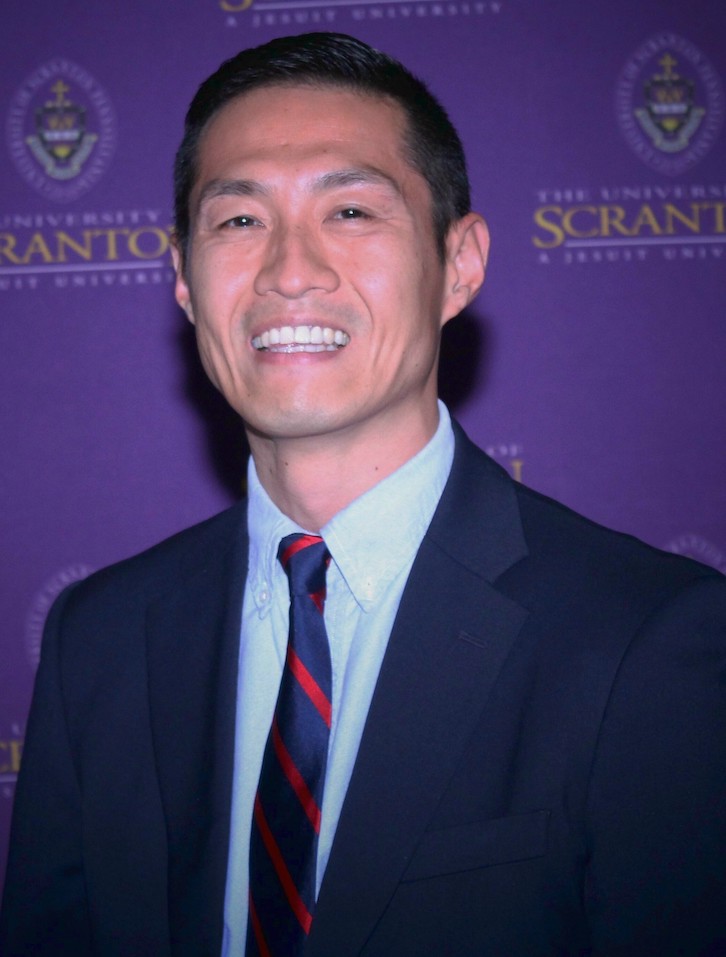
Sinchul Back, Ph.D. cand., of South Korea, was named instructor in the Criminal Justice Department. He previously was an instructor of criminology and criminal justice at Florida International University in Miami. He was a researcher at the Center for Cybercrime and Cybersecurity at Boston University; the Colombian National Police Academy of Information Technology in Bogota, Columbia; and the Cybercrime and Investigation Research Center at Far East University in South Korea. He is a Ph.D. candidate in international crime and justice at Florida International University. He earned a master’s degree in criminal justice from Bridgewater State University in Massachusetts, a master’s degree in political science from Hankuk University of Foreign Studies in South Korea, and a bachelor’s degree in leadership from Northeastern University in Boston.
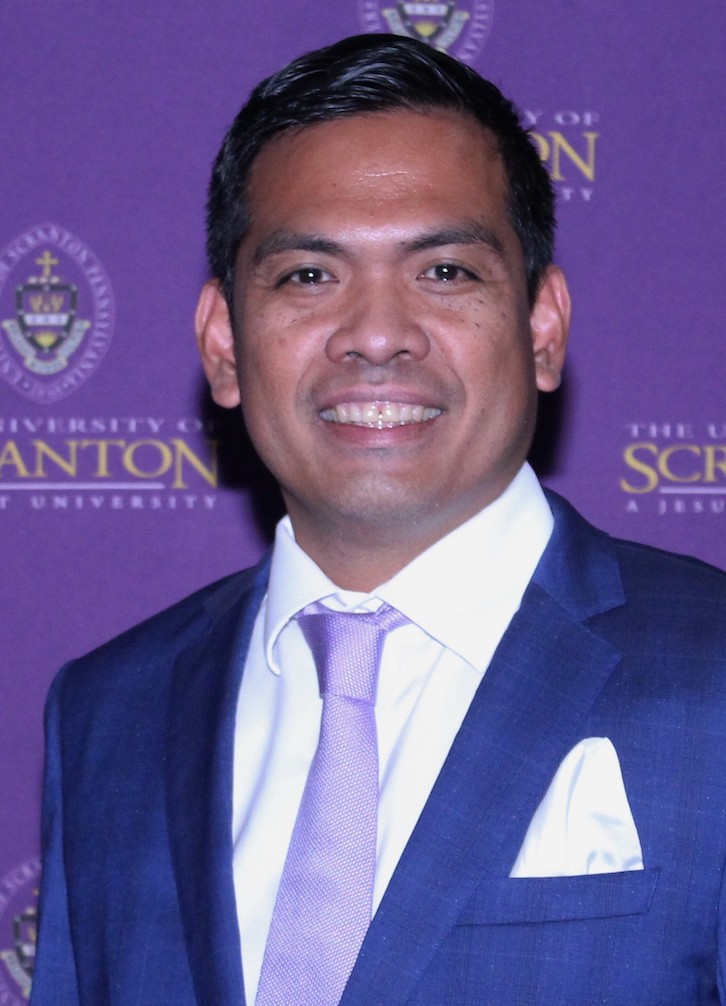
Michael Bermudez, Ed.D., was named assistant professor in the Occupational Therapy Department. He has worked as an occupational therapist in New York and New Jersey since 2000. Dr. Bermudez earned his doctorate in educational technology leadership from New Jersey City University, a master’s degree in educational technology from New Jersey City University, a bachelor’s degree in occupational therapy from the University of Texas Health Science Center in San Antonio and a bachelor’s degree in biology from the University of Santo Tomas in the Philippines.
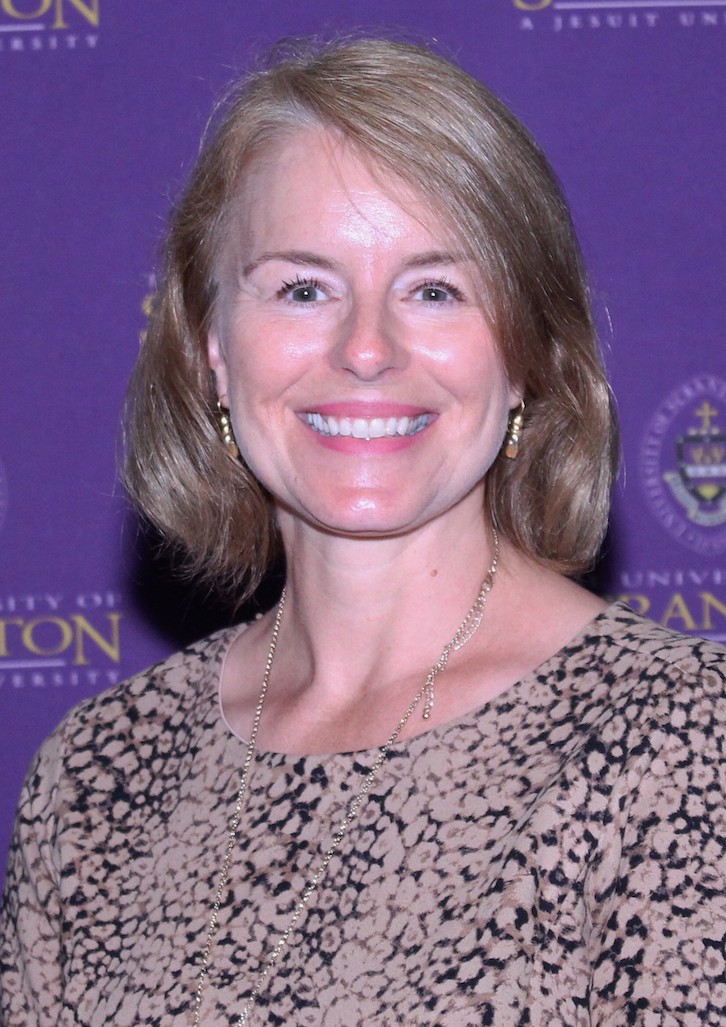
Deborah E. Budash, Ph.D., of Clarks Summit, was named assistant professor in the Occupational Therapy Department. She chaired the Master of Medical Science (MMS) Program and the Master of Health Science (MHS) Program at St. Francis University in Loretto, from 2014 to 2019, where she also served as program director of the MMS and MHS and as a tenured associate professor. She has authored several articles and reviews, as well as a book titled “Achieving Persistence in Online Programs: Reflections of Graduate Learners and Faculty.” Dr. Budash earned a doctorate in education from Northcentral University in Scottsdale, Arizona, a master’s degree in adult and community education from Indiana University of Pennsylvania, and bachelor’s degree in occupational therapy from the University of Pittsburgh.
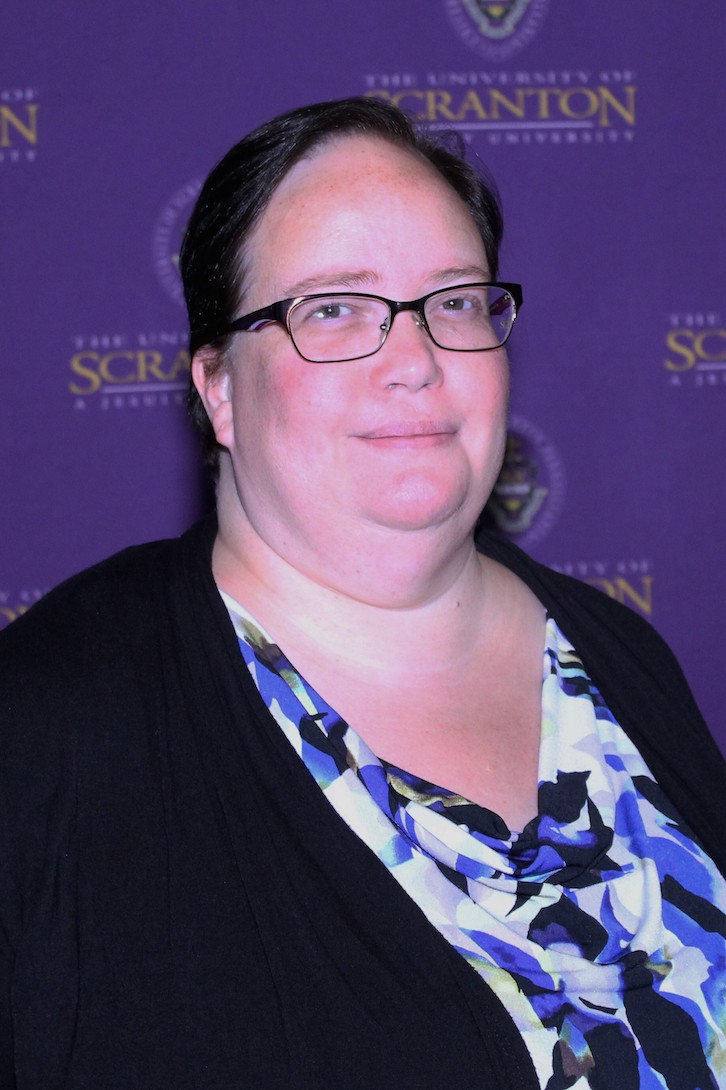
Marleen Cloutier was named assistant professor and cataloging and metadata librarian in the Weinberg Memorial Library. She previously worked for Backstage Library Works on-site at the Peabody Essex Museum Phillips Library in Peabody, Massachusetts. She has a Master of Science in Library and Information Science from Drexel University with a concentration in digital libraries and a Bachelor of Architecture from the Wentworth Institute of Technology. She is currently pursuing a master’s degree in human resources management at The University of Scranton.
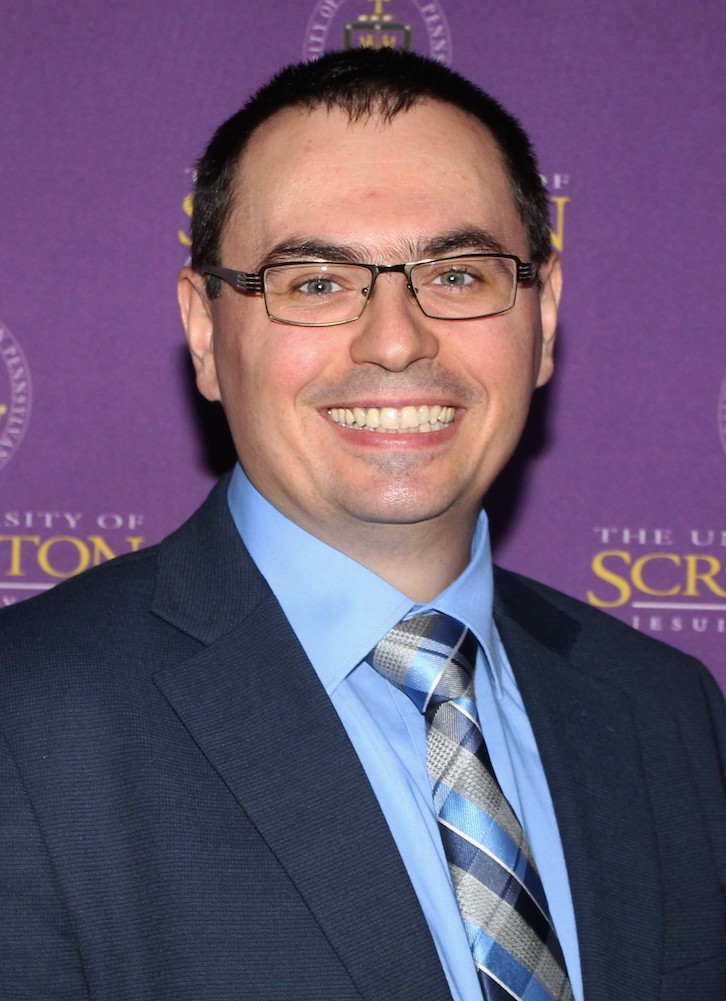
Ovidiu C. Cocieru, Ph.D., of South Abington Township, was named assistant professor in the Management, Marketing and Entrepreneurship Department. He has taught at the University of Massachusetts Amherst and has held marketing and management positions in Romania. Dr. Cocieru has co-authored two journal articles and conducted/co-conducted several peer-reviewed presentations. He earned a doctorate in management from the University of Massachusetts at Amherst, a master’s degree in sport management from the University of Massachusetts at Amherst and a bachelor’s degree in marketing from Alexandru Ioan Cuza University in Romania.
Nicole Ferentino, D.C., of Pittston, was named lecturer in the Biology Department. She is president and doctor of chiropractic at the Advanced Chiropractic Clinic in Pittston. Dr. Ferentino has taught as an adjunct professor at Scranton since 2017. She earned a doctor of chiropractic from New York Chiropractic College in Seneca Falls, New York, and a bachelor’s degree from The University of Scranton.
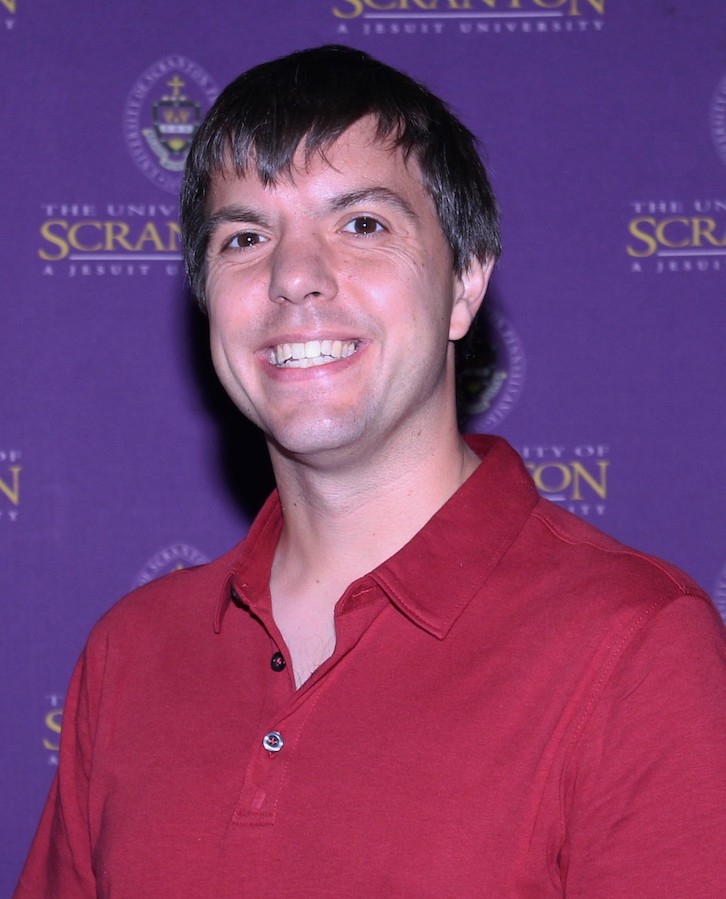
Nathaniel A. Frissell, Ph.D., was named assistant professor in the Physics and Electrical Engineering Department. He earned a doctorate and a master’s degree in electrical and computer engineering from Virginia Polytechnic Institute and State University in Blacksburg, where he also served as an adjunct instructor. He earned a bachelor’s degree in physics and music education from Montclair State University in New Jersey. Dr. Frissell has co-authored refereed journal publications and co-conducted many presentations. He leads an international citizen science space physics research collective known as the Ham Radio Science Citizen Investigation.
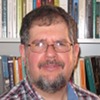 Paul E. Granahan was named lecturer in the Philosophy Department. Since 1984, he has taught philosophy courses as an adjunct faculty member at the University and at Keystone College. He earned a master’s degree with distinction in philosophy from Boston College and bachelor’s degrees in philosophy and theology, summa cum laude, from The University of Scranton.
Paul E. Granahan was named lecturer in the Philosophy Department. Since 1984, he has taught philosophy courses as an adjunct faculty member at the University and at Keystone College. He earned a master’s degree with distinction in philosophy from Boston College and bachelor’s degrees in philosophy and theology, summa cum laude, from The University of Scranton.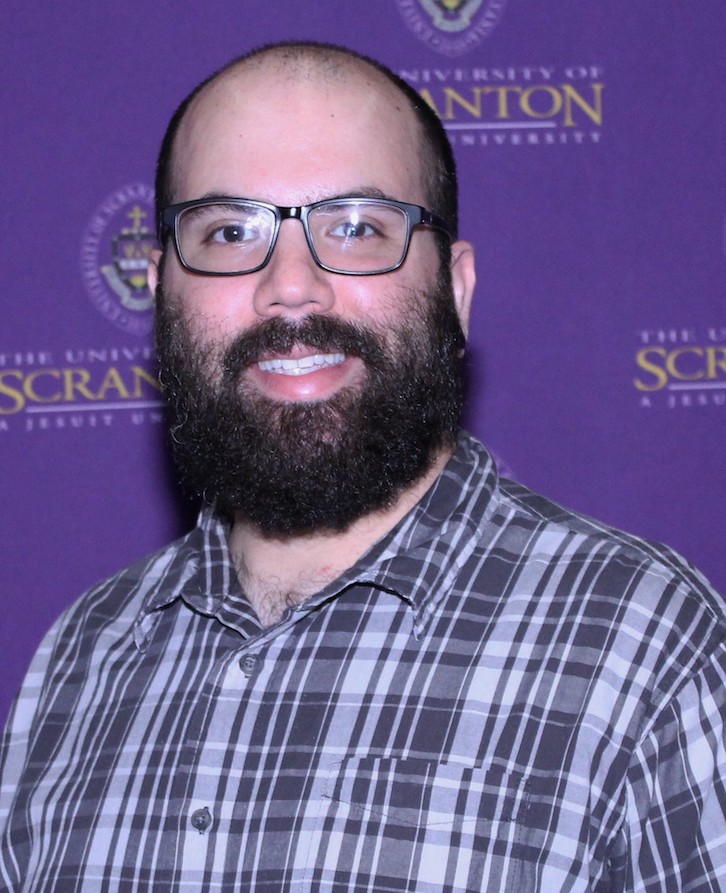
David Ingber, Ph.D., was named faculty specialist in the Biology Department. He previously was a post-doctoral researcher at the University of Delaware. Dr. Ingber has conducted presentations at a variety of venues and co-authored several journal publications. He earned a doctorate in entomology and wildlife ecology from the University of Delaware, a master’s degree in entomology from Iowa State University in Ames, and a bachelor’s degree in zoology from SUNY Oswego.
Gail N. (King) Kemp, Ph.D., of Scranton was named assistant professor in the Psychology Department. She has worked as a visiting assistant professor and an adjunct faculty in the Psychology Department at the University. Dr. Kemp has co-authored several journal publications and has conducted and co-conducted several presentations. She earned a doctorate and a master’s degree in clinical psychology from Boston University, a master’s degree in maternal and child health from the Boston University School of Public Health, and a bachelor’s degree in African-American Studies from Harvard College.
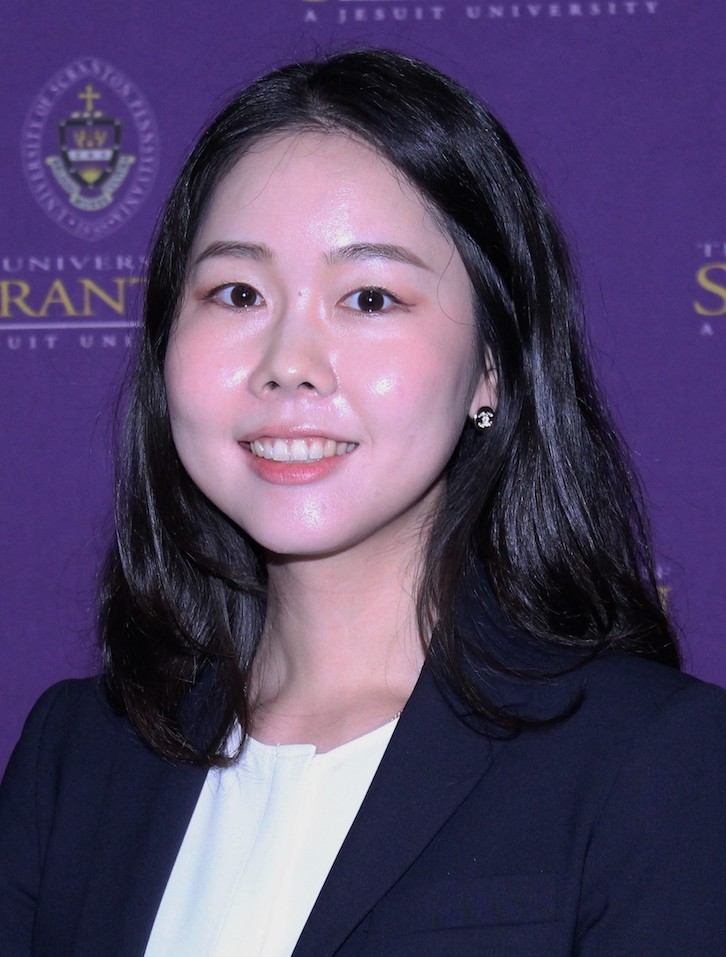 Kaeun Kim, Ph.D., of Scranton, was named assistant professor in the Management, Marketing and Entrepreneurship Department. She has co-authored several journal publications and co-conducted presentations. She earned a doctorate in marketing from the University of Massachusetts, Amherst; and a master’s degree in cognitive science and management and a bachelor’s degree in economics from Yonsei University in South Korea.
Kaeun Kim, Ph.D., of Scranton, was named assistant professor in the Management, Marketing and Entrepreneurship Department. She has co-authored several journal publications and co-conducted presentations. She earned a doctorate in marketing from the University of Massachusetts, Amherst; and a master’s degree in cognitive science and management and a bachelor’s degree in economics from Yonsei University in South Korea.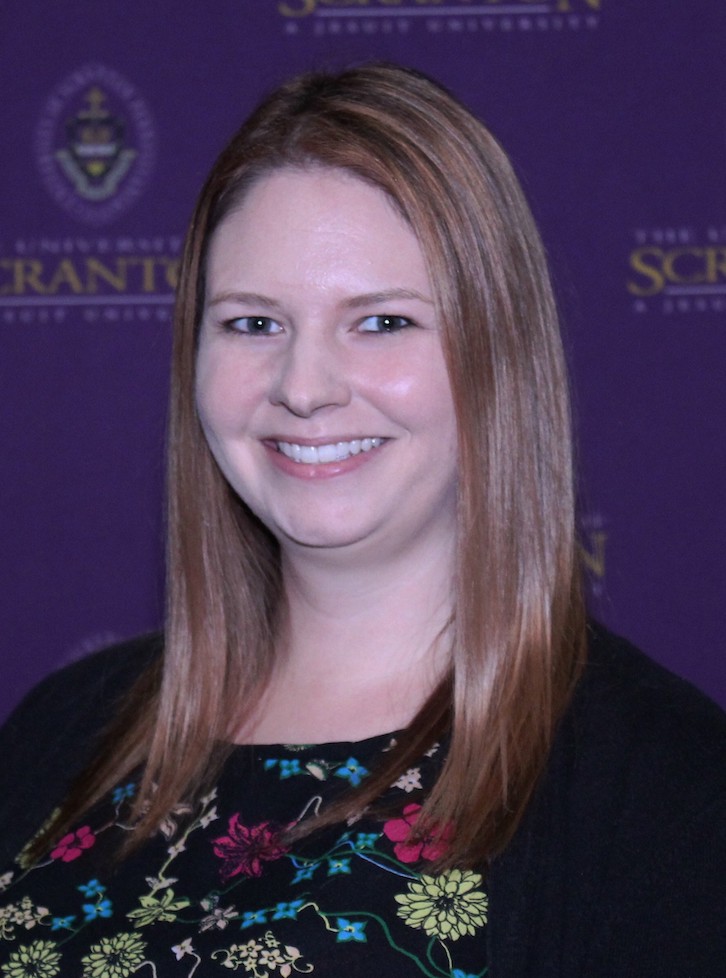
Sonja K. Lund, Ph.D., of Norfolk, Virginia, was named assistant professor in the Counseling and Human Services Department. She earned a doctorate in counselor education, a master’s degree in education and a bachelor’s degree in psychology from Old Dominion University in Norfolk, where she held counseling and teaching positions in various departments. Dr. Lund conducted several presentations and workshops and took active roles on several committees and initiatives.
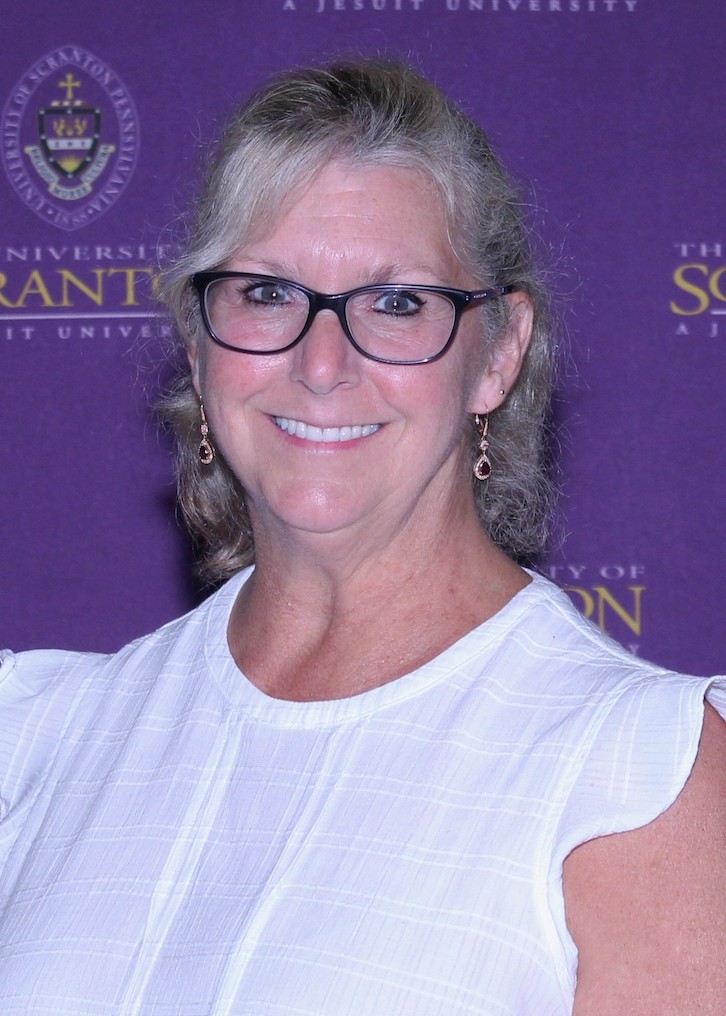
Tracy L. Murray, J.D., CRNA, of Mountain Top, was named faculty specialist in the Nursing Department. She has held several positions with healthcare organizations in northeastern Pennsylvania since 2000, including Moses Taylor Hospital in Scranton and Mercy Hospital in Wilkes-Barre, as well as in western Pennsylvania from 1986 to 2000. Dr. Murray has co-authored two publications and delivered several lectures, almost exclusively in the area of anesthesia. She earned a doctorate from Widener University Commonwealth Law School in Harrisburg, a master’s degree in nursing and nurse practitioner certification at the University of Pittsburgh, nurse anesthetist certification at the University Health Center of Pittsburgh School of Anesthesia for Nurses, and a bachelor’s degree in nursing at the University of Pittsburgh.
Gregory B. O’Connell, J.D., of Waverly, was named faculty specialist in the Management, Marketing and Entrepreneurship Department. He has served as an adjunct faculty member at the University since 1992, teaching undergraduate and online MBA courses. Since earning a juris doctorate at John Marshall Law School in Chicago in 1981, he has held several legal positions in the public and private sectors, including his own practice. Professor O’Connell earned a bachelor’s degree in history from the University of Pennsylvania.
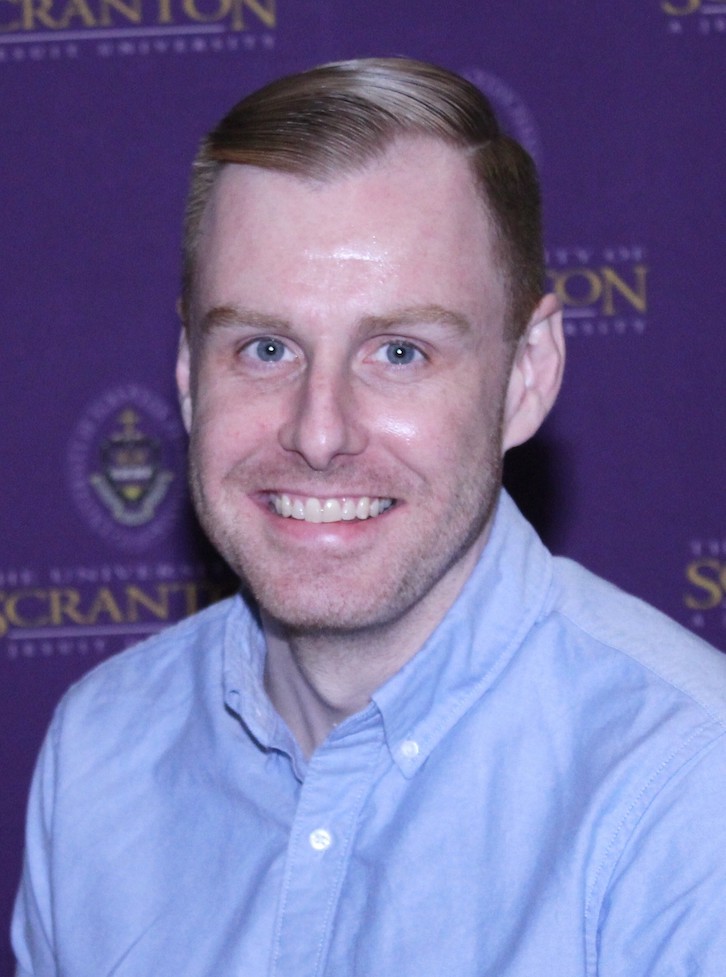
Ian O’Hara of Scranton was named assistant professor in the Weinberg Memorial Library, where he has been a serials/electronic resources clerk since 2013. He previously was a library assistant at Geisinger Commonwealth Medical College. Currently working on a master’s degree in software engineering from The University of Scranton, he earned a master’s degree in library science from Clarion University of Pennsylvania and a bachelor’s degree in elementary education from The University of Scranton.

Richard C. O’Hara, was named faculty specialist in the Accounting Department. A chartered financial analyst, he brings more than 20 years of experience in data analysis for a variety of companies based in the Chicago area. He earned an MBA in finance from the Stern School of Business at New York University and a bachelor’s degree in accounting from Pennsylvania State University.
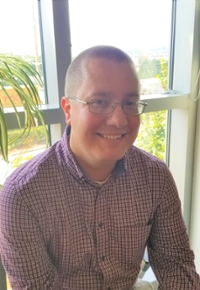 Paul H. Pearson Jr. of Honesdale was named faculty specialist in the Physics and Electrical Engineering Department. He has worked as an adjunct faculty member at the University and a physics and mathematics teacher at the Scranton Preparatory School. He earned a master’s degree in secondary education and a bachelor’s degree in physics at The University of Scranton.
Paul H. Pearson Jr. of Honesdale was named faculty specialist in the Physics and Electrical Engineering Department. He has worked as an adjunct faculty member at the University and a physics and mathematics teacher at the Scranton Preparatory School. He earned a master’s degree in secondary education and a bachelor’s degree in physics at The University of Scranton.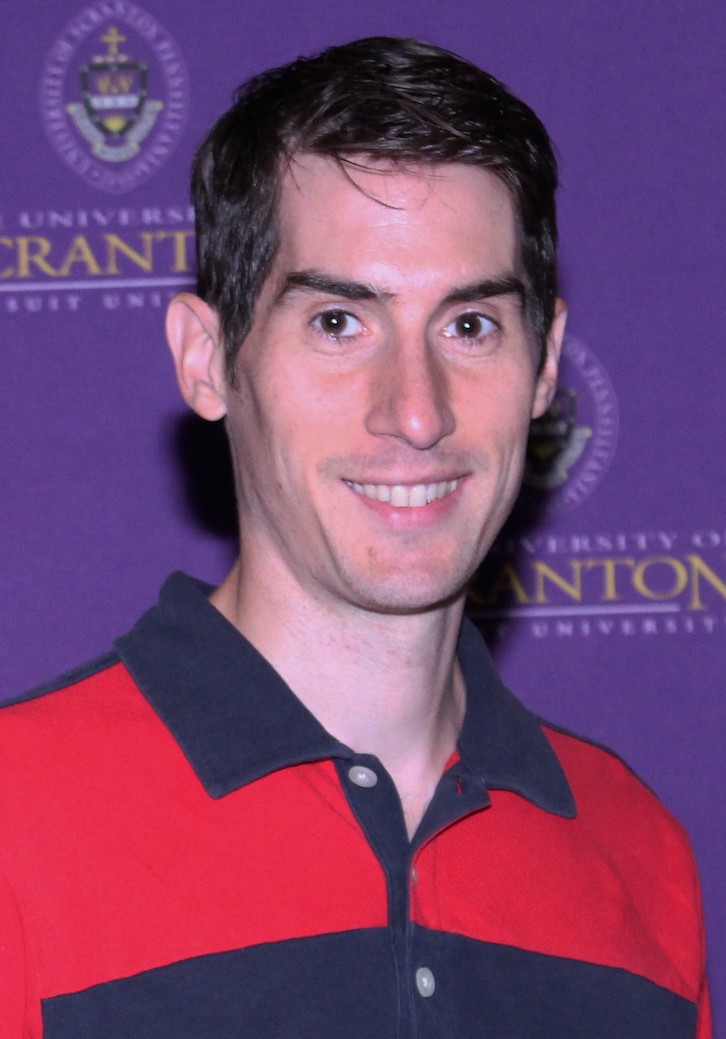
Joseph K. Pellegrino, Ph.D., was named assistant professor in the Exercise Science Department. Before coming to the University, he held instructing positions at Rutgers University and the University of Montana. He has co-authored numerous scholarly articles in exercise science and nutrition publications. Dr. Pellegrino earned his doctorate in physiology and biochemistry of nutrition at Rutgers University; a master’s degree in exercise physiology and health and human performance from the University of Montana in Missoula; and a bachelor’s degree in biology and exercise science from Rutgers University.
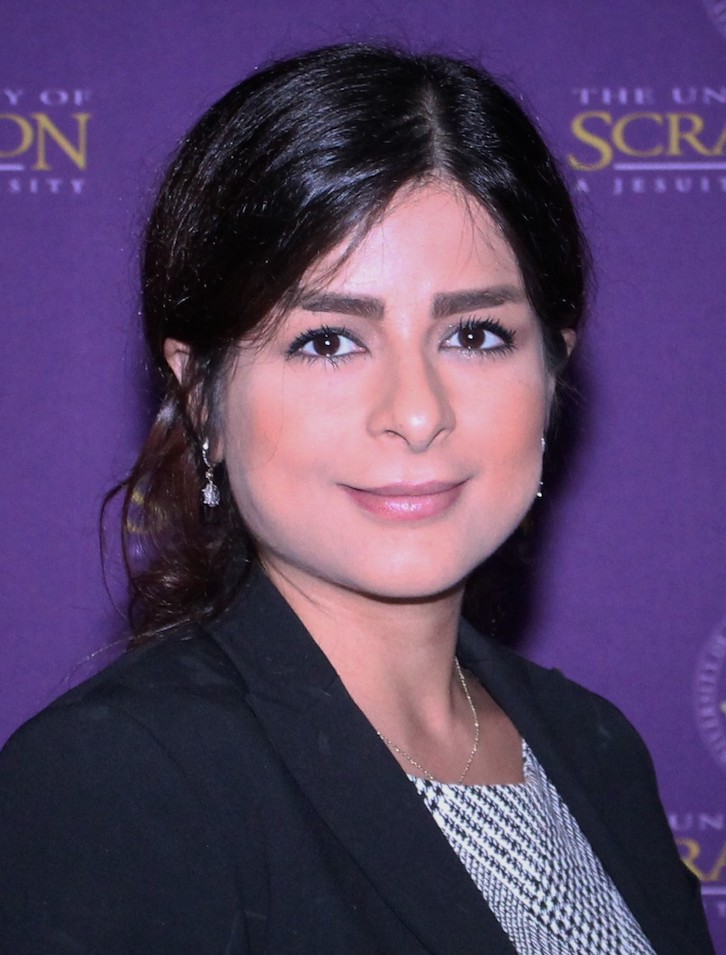
Leila Soleimani, Ph.D. cand., was named assistant professor in the Management, Marketing and Entrepreneurship Department. She previously worked as a marketing specialist, a research and development supervisor, and a research and project manager at various companies in Tehran, Iran. A Ph.D. candidate in strategy and entrepreneurship at the Haskayne School of Business at the University of Calgary, she earned an MBA from Malek Ashtar University of Technology in Tehran and a bachelor’s degree in industrial engineering from the K. N. Toosi University of Technology in Tehran.
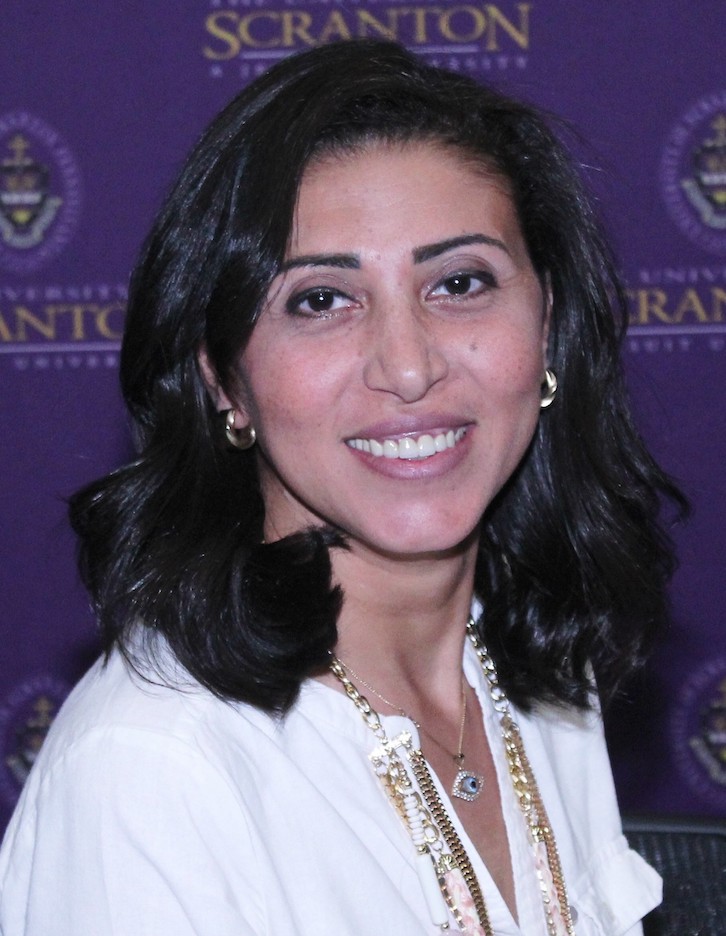
Manar Sanad Soliman, Ph.D., was named lecturer in the Biology Department. She previously worked as an assistant professor in the Zoology Department of Cairo University, as an adjunct professor in the Natural Sciences Department of Middlesex Community College in New Jersey and was a visiting scholar at the Center for Vector Biology, Rutgers University in New Jersey. She also holds certification as a professional trainer from the University of Missouri and has led training sessions for the Faculty Leadership Development Center at Cairo University. Dr. Soliman earned a Ph.D. in mosquito biological control from Cairo University, where she also earned a master’s and bachelor’s degree.
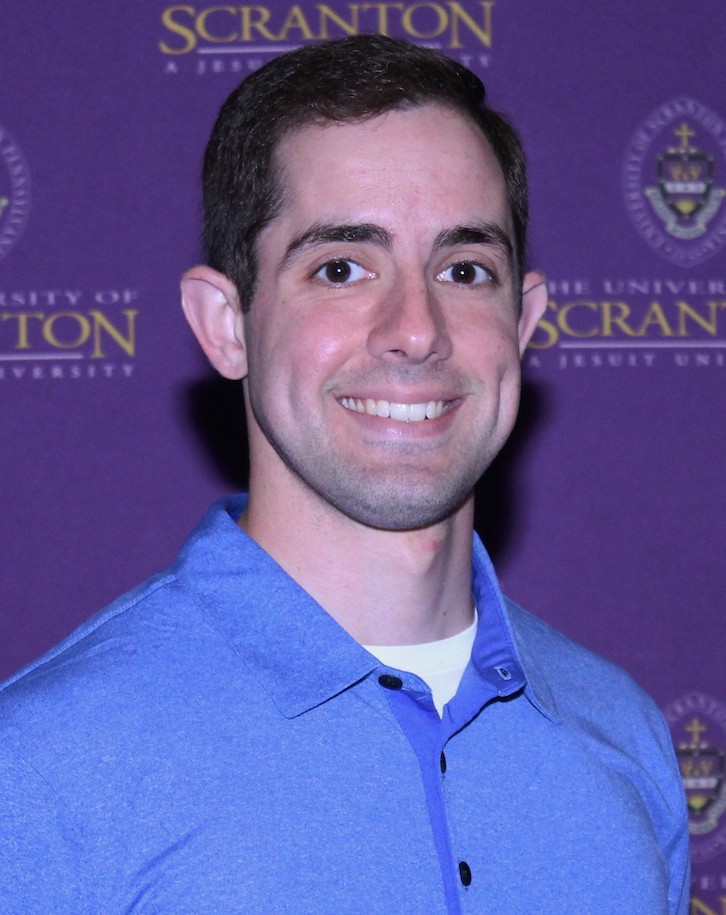
Andrew M. Stranieri, of Scranton, was named lecturer in the Exercise Science Department. He was a graduate teaching assistant and a graduate research assistant at the University of Rhode Island, where he earned a master’s degree in kinesiology. He was a research assistant at the College of New Jersey in Ewing, where he earned a bachelor’s degree in health and exercise science.
David A. White, Ph.D., of Clarks Summit was named faculty specialist in the Philosophy Department. He has been an adjunct professor at The University of Scranton and Marywood University since 1998 and worked as an editor in the field of online career education. He earned a doctorate in philosophy from Marquette University; an MBA in international business and accounting from The University of Scranton; a master’s degree in history from Trinity International University in Deerfield, Illinois; and a bachelor’s degree in history from Bryan College in Dayton, Tennessee.
University of Scranton Appoints New Faculty Members
-
09/25/2019
The Office of Equity & Diversity is pleased to offer special opportunities for you to engage in conversation on diversity, inclusion and Title IX, and also obtain funding for diversity education programs for the campus community.
This week:
Wednesday, Sept. 25: Diversity + Inclusion Lunch & Learn Part 3
Raising awareness of the nature and negative impact of microaggressions in the workplace is an important part of creating an inclusive environment. Learn how to implement change and enhance cultural sensitivity in your department by joining us for part 3 of our Formula for Success: D+I = A Better U! lunch and learn from 12:00-1:00 p.m. in DeNaples Ballroom A. Registration is required. Click here to register.
Thursday, Sept. 26: Title IX Refresher: Required Reporting
Pop in for a quick refresher and Q&A on reporting incidents that may fall under your Title IX obligation , from 10:00-10:30 a.m. in the Pearn Auditorium, Brennan Hall, Rm. 228. No registration required.
October
Wednesday, Oct. 23: Diversity + Inclusion Lunch & Learn Part 4
In Part 4 of our Formula for Success: D+I = A Better U! series, we will explore the origins of our beliefs, recognize how they are at the root of implicit bias, and learn to embrace difference. Please join us Wednesday, Oct. 23, 2019, from 12:00-1:00 p.m. in DeNaples Ballroom A. Registration is required. Click here to register.
Wednesday, Oct. 30: Title IX Refresher: Required Reporting
Pearn Auditorium, Brennan Hall 228 from 12:00-12:30 p.m. No registration required.
Thursday, Oct. 31: Fall Deadline for Diversity Initiatives Grant Applications
The Diversity Initiatives Review Board is accepting applications for grants funding educational programs on campus that promote initiatives that energize the commitment to diversity, provide opportunity for inter-cultural engagement as well as expand opportunities for multicultural experiences for our community.
The Diversity Initiatives Fund is available to campus groups, departments or individuals seeking to promote a greater understanding of diversity through inclusive pedagogies, educational opportunities, multicultural activities and community outreach programs. The grant is intended to launch new, innovative, or educational opportunities for the University community. Recurring projects may apply for funding as well.
Student applicants and part-time employees are required to have a full-time staff or full-time faculty sponsor. Student clubs are required to have the approval of the club moderator and the Coordinator of Student Clubs and Organizations. Individual staff members and non-full-time faculty must obtain approval from their supervisor or department chair, respectively. Sponsorship or approval must be obtained prior to applying for the grant.
For the grant guidelines and application, please visit: https://www.scranton.edu/equity-diversity/diversity-initiative.shtml
November
Monday, Nov. 25: Title IX Refresher: Required Reporting
Pearn Auditorium, Brennan Hall 228 from 11:30 a.m.-12:00 p.m. No registration required.
Check our website for more campus diversity events! https://www.scranton.edu/equity-diversity/events.shtml
Please feel free to contact Jen Pennington at Jennifer.pennington@scranton.edu or call x6645 for more information.
Upcoming Events & Grant Opportunities from OED
-
09/24/2019
The Office of Community Relations, in cooperation with The Office of the Provost, The Office of Human Resources, & Scranton Tomorrow, invites you to a Faculty and Staff Downtown Tour and Reception on Friday, Oct. 4, 2019! The tour will depart at 4:00 p.m. from Brennan Hall Lobby and will conclude with a reception at 5:30 p.m. at Terra Preta Prime.
Whether you are new to the area or want to discover new city venues, this tour will provide faculty and staff a unique opportunity to experience and explore downtown Scranton. Guides from our partner organization, Scranton Tomorrow, will lead participants throughout the downtown, visiting dozens of shops and eateries.
This event is part of an ongoing Downtown Engagement initiative to familiarize students, faculty and staff with downtown venues and increase University-downtown collaboration. It will provide 25 wellness participation points. Visit scranton.edu/employeewellness for more information.
Space is limited to 50 persons and will be granted on a first-come, first-served basis. Spouses are welcome. RSVP to community@scranton.edu or 570-941-4419 by Sept. 27.Faculty and Staff Downtown Tour and Reception
-
09/17/2019
The University of Scranton’s Friends of the Weinberg Memorial Library has selected Madeline Miller to receive the 2019 Royden B. Davis, S.J. Distinguished Author Award. Though early in her literary career, the author is on a meteoric rise and has received major recognition for her two novels. Her first novel, The Song of Achilles, a New York Times bestseller, was awarded the 2012 Orange Prize for fiction and received recognition from the American Library Association as a Stonewall Honor Book for its representation of LGBTQ characters. Her most recent novel, 2018’s Circe, is a No. 1 New York Times bestseller, has received the American Library Association’s Red Tentacle Award for an adult book of special interest to teen readers, the 2018 Elle Big Book Award, and is recognized on a wide variety of must-read lists.
In addition to being a bestselling author, Madeline Miller has bachelor’s and master’s degrees in classics from Brown University, and she has taught Latin, Greek and Shakespeare to students for the past 20 years. Her mastery of Greek mythology is apparent throughout her works. Her novels draw from Greek mythology and its textual sources and represent incredible attention to detail. Her books are page-turners, and readers quickly become invested in her characters.
In her first book, The Song of Achilles, the author utilizes characters from Homer’s Iliad to expand on the Greek mythological hero Patroclus and his relationship with Achilles. Though Patroclus is universally recognized as a Greek hero, he is mainly a secondary figure in the Iliad and is primarily remembered for his strong bond with Achilles, one of the most famous Greek heroes. Miller’s story elevates Patroclus to the narrator and main protagonist and allows his story to thrive while explaining the bond between Patroclus and Achilles. The author does not merely retell the Iliad; she draws from various mythological sources, including Euripides’ Iphigenia at Aulis, Vergil’s Aeneid, Aeschylus’ Oresteia, as well as other works of classical reference and commentary, to fully develop the story and characters.
In her second novel, Circe, the author focuses on the minor Greek goddess Circe, who is most well-known from Homer’s Odyssey. Unlike Circe’s portrayal in the Odyssey, however, Circe is a sympathetic character, one who is misunderstood, mistreated and scorned. As an immortal, Circe’s journey is longer than a human’s, and, in turn, her psychological development is rich and expansive. As a young goddess, she is used by others for her magic and outcast to an island because of her actions. On her island, she must defend herself against the predatory advances of Odysseus’ men. She grapples with motherhood and with being abandoned by Odysseus. Circe is a strong character, however, and eventually finds her way through the world. Miller focuses on the psychological development of her protagonist, and the result is a fully developed character that the Odyssey does not capture. Once again, Miller has an uncanny ability to take a lesser character and expand upon their story and inner life through insightful, creative writing and impeccable attention to detail to Greek myth. In Circe, the author draws from many sources, including Ovid’s Metamorphoses and Apollonius of Rhodes’ Argonautica, and I’m sure many others.
The Friends of the Weinberg Memorial Library are very pleased to be presenting the 2019 Distinguished Author Award to Madeline Miller. The Distinguished Author event, which will be held on Oct. 5, 2019, in the DeNaples Center Ballroom, includes a book signing that is free and open to the public. The award presentation is a ticketed event that includes cocktails, hors d’oeuvres, dinner and dessert, followed by the presentation of the Royden B. Davis Distinguished Author Award. During the ceremony, the author will give remarks on her works, which will surely be insightful and interesting.
Please consider honoring Madeline Miller’s literary achievements and supporting the Friends of the Weinberg Memorial Library by attending. For event pricing and additional information, visit: scranton.edu/authaward.
Professor Recommends Distinguished Author's Greek Myth Retellings
-
09/17/2019
David Black, Ph.D., professor of philosophy, received the John L. Earl III Award for service to The University of Scranton, the faculty and the wider community.
The award is given annually to a member of the University community who demonstrates the spirit of generosity and dedication that the late Dr. John Earl, a distinguished professor of history, exemplified during his years at Scranton from 1964 to 1996.
In his remarks at the award presentation, previous Earl award recipient Rev. Ronald McKinney, S.J., professor of philosophy, said that although Dr. Black was an “unapologetic individualist,” the “inner music he hears has drawn him steadily to the work and the pressures of service to the students, the University, and especially to his faculty colleagues.”
Dr. Black joined the faculty of the University in 1984. During his tenure at Scranton, he served for 15 years as an officer of the University’s faculty union, including eight years as its chair. He serves as a member of the University’s Fulbright Committee and has served on the University’s Handbook Committee, as well as other committees.
Dr. Black, who also teaches in the University’s Special Jesuit Liberal Arts Honors Program, received the Edward Gannon, S.J., Award for Teaching in 2003. The annual award, presented by the University’s chapter of Alpha Sigma Nu honor society, recognizes outstanding teaching among faculty.
During his distinguished career, Dr. Black has published a book, “Vico and Moral Perception,” as well as articles in the fields of aesthetics, ethics and the philosophy of culture. His philosophical interests include: philosophy of culture, Vico, Chinese philosophy, philosophy of rhetoric and theories of conscience.
Dr. Black earned his bachelor’s degree from Northern Illinois University and master’s and Ph.D. from Pennsylvania State University.
Philosophy Professor Receives Earl Award
-
09/09/2019
Stephanie Saldaña will be the Ignatian Values in Action Lecture keynote speaker on Sept. 19. Here, Michael Azar, Ph.D., theology professor, speaks with her about her work.
Azar: Why did you choose to write The Bread of Angels? What is it about your personal story that you most wanted to share with others?
Saldaña: I’m pretty shy, and so I can only have the courage to write a book by pretending that no one is ever going to read it. In many ways, I wrote The Bread of Angels in order to make sense for myself of what I lived in Syria. It was a remarkable year. I was an American on a Fulbright in Syria during the American invasion of neighboring Iraq, and tensions between our countries were high. The American ambassador was even removed during my time there. At the same time, I experienced this extraordinary hospitality from the Syrians themselves, who loved me and welcomed me. The time I spent as a Christian studying Islam with a female sheikh and teaching in a Quranic school for girls would have been remarkable under any circumstances.
And yet despite the extraordinary circumstances of the book, I think that it is really a very universal story, a story about my search for faith, about finding God and falling in love. I hope that it’s a story anyone can relate to.
Azar: Most would probably say that a year in Syria and falling in love with a novice monk in the desert are fairly unique events, but what do you hope college students at a place like The University of Scranton might learn from these events in your life?
Saldaña: I was so thrilled to learn that students at The University of Scranton would be reading The Bread of Angels, because they are really my ideal readers. The book is a coming-of-age story about accepting who we are, about learning to heal from the wounds of our pasts, and about having the courage to say “yes” to what we feel called to in life. It is a book about the risk of falling in love, with God and with another person. It is also a book infused with Jesuit spirituality. The four sections of the book correspond to the four weeks of the Spiritual Exercises of St. Ignatius of Loyola, and the heart of the book is my experience of making the Spiritual Exercises in the desert. The book is really about how all of life changes when we begin to see God in all things, and about the transformative power of relationships.
Azar: Has the way that you see and understand that year in Syria changed at all since you wrote the book? What lessons have you learned since that perhaps have caused you to see that year differently?
Saldaña:I had no idea when I was writing The Bread of Angels that the world I was describing was on the verge of disappearing. The book was published in 2010, and the Syrian civil war started a year later. It was devastating—for me personally, but above all for all of the characters in the book. I’ve heard stories of Syrians reading the book and crying through it, because so much of what I describe was destroyed in the war—especially the personal relationships. One major character in the book was kidnapped and remains missing, others were forced to flee the country.
Now I understand, in a way that I could not then, that to be a writer in the Middle East is to be a chronicler of all that is vanishing. So much is disappearing so quickly: languages, religious communities, archeological sites, stories, relationships between people. W.S. Merwin wrote that “What is remembered is saved,” and now I have a renewed sense of the obligation not only to record, but to remember. I’ve also discovered that remembering is an act of hope.
Azar: Can you tell us a little about your work since you published this book?
Saldaña: The Bread of Angels was published in 2010, and so a lot has happened since then! Today I live in Jerusalem with my husband and three children at the Tantur Ecumenical Institute, where I’ve had the joy of meeting students from The University of Scranton who come to study abroad. I also wrote a second book, A Country Between, about raising children on the tense border between East and West Jerusalem, and about the beauty to be found even in conflict. I’ve spent the last several years working on a storytelling project called Mosaic Stories which chronicles the disappearing intangible heritage of the Middle East, particularly among the refugees of Iraq and Syria.
Azar: What are you currently working on?
Saldaña: I’m currently working on a book telling the stories of seven refugees who fled from seven different cities in Iraq and Syria. The people I profile are incredible: an Aramaic speaking Christian from Iraq who sews the story of her city into a dress, a Yazidi from Mt. Sinjar who helps to rescue his family, Kurdish musicians from northeastern Syria who are keeping their music alive in exile. The stories are tragic and yet hopeful, and each person I write about has taught me something that has proven to be transformative for my own life.
Come to the Ignatian Values in Action lecture on Sept. 19 at 7:30. More info here. REQUIRED for all new students, including incoming freshmen, transfer students, post-baccalaureate, and non-traditional students.
Professor Interviews Royal Reads Author Stephanie Saldaña
-
09/06/2019
Daniel J. West, Ph.D., professor and chair the Health Administration and Human Resources Department at The University of Scranton, was recently awarded an honorary doctorate degree (Dr.h.c.) from Trnava University, Slovakia.
Dr. West currently holds a professor in public health appointment at Trnava University, as well as a visiting professor appointment at the University of Matej Bel, Slovakia and affiliated faculty at Tbilisi State Medical University, Georgia. Dr. West joined the faculty at Scranton in 1990.
Additionally, Dr. West is a certified healthcare consultant with the American Association of Healthcare Consultants and possesses certification in healthcare management by the American College of Healthcare Executives. He is also president and chief executive officer of HTC Consulting Group, Inc., and maintains a fellowship with the American College of Healthcare Executives, American College of Medical Practice Executives, American Academy of Medical Administrators, American College of Health Care Administrators, American Academy of Behavioral Medicine and Association of Behavioral Healthcare Management.
A resident of Covington Township, Dr. West received his bachelor’s, master’s and doctoral degrees from the Pennsylvania State University.
University Professor Awarded Honorary Doctorate
-
08/30/2019
The University of Scranton granted promotions and/or tenure to 15 faculty members effective at the start of the 2019-20 academic year.
Six faculty members have been promoted to professor: Marzia Caporale, Ph.D., world languages and cultures; David Dzurec, Ph.D., history; Meghan Rich, Ph.D., sociology, criminal justice and criminology; Susan Méndez, Ph.D., English and theatre; Darryl DeMarzio, Ph.D., education; and Rebecca Dalgin, Ph.D., counseling and human services.
Katherine Stumpo, Ph.D., chemistry, was named associate professor.
Five faculty members were named associate professor and granted tenure: Adam Pratt, Ph.D., history; Julie Cerrito, Ph.D., counseling and human services; Arthur Catino, Ph.D., chemistry; Duane Armitage, Ph.D., philosophy; and James Boyle, Ph.D., accounting.
Three faculty members were granted tenure: Benjamin Willis, Ph.D., counseling and human services; Michael Azar, Ph.D., theology and religious studies; and Yibai Li, Ph.D., operations and information management.
Dr. Caporale received her master’s and doctoral degrees from the University of Nebraska-Lincoln. She has worked for the University since 2007.
Dr. Dzurec received his bachelor’s degree from Fairfield University, his master’s degree from the University of Connecticut and his doctorate from the Ohio State University. He has worked for the University since 2008.
Dr. Rich received her bachelor’s degree from the University of Maryland, her master’s degree from the University of Wisconsin and her doctorate from the University of Delaware. She has worked for the University since 2007.
Dr. Méndez received her bachelor’s degree from Pace University, her master’s degree from Fordham University and her doctorate from the University of California. She has worked for the University since 2008.
Dr. DeMarzio received his bachelor’s degree from Drew University, his master’s degree from Montclair State University and his master’s and doctoral degrees from Columbia University. He has worked for the University since 2007.
Dr. Dalgin received her bachelor’s degree from Quinnipiac University and her master’s and doctoral degrees from Syracuse University. She has worked for the University since 2005.
Dr. Stumpo received her bachelor’s degree from the University of Northern Iowa and her doctorate from Texas A and M University. She has worked for the University since 2015.
Dr. Pratt received his bachelor’s degree from Clemson University and his master’s and doctoral degrees from Georgetown University. He has worked for the University since 2013.
Dr. Cerrito received her bachelor’s degree from Bloomsburg University, her master’s degree from The University of Scranton and her doctorate from the Pennsylvania State University. She has worked for the University since 2013.
Dr. Catino received his bachelor’s degree from Franklin and Marshall College and his doctorate from the University of Arizona and the University of Maryland. He has worked for the University since 2013.
Dr. Armitage received his bachelor’s degree from The University of Scranton, his master’s degree from Boston College and his doctorate from the New School for Social Research. He has worked for the University since 2015.
Dr. Boyle received his bachelor’s and master’s degrees from The University of Scranton and his doctorate from Kennesaw State University. He began working at the University in 1999 as an internal auditor. He has taught part-time at the University since 2009 and full-time since 2012.
Dr. Willis received his bachelor’s, master’s and doctoral degrees from the University of North Carolina. He has worked for the University since 2013.
Dr. Azar received his bachelor’s degree from Colorado Christian University, his master’s degree from St. Vladimir’s Orthodox Theological Seminary and his master’s and doctoral degrees from Fordham University. He has worked for the University since 2013.
Dr. Li received his bachelor’s degree from Jilin University in China, his master’s degree from Oklahoma State University and his doctorate from Washington State University. He has worked for the University since 2013.
University Announces Faculty Promotions
-
08/28/2019
The Research Seminar Series was established to provide a time and place for faculty and staff research information exchange. It began with our first research presentation on February 4, 2005. In its essence, the series is intended to build community and collegiality by setting the venue for you to communicate to others just what you do. It's casual and fun: a great way to relax, meet faculty from various disciplines and get a good feel for the University community at its best. Faculty, we hope you'll join us!
In fall 2019, all presentations will be held from 3:10 p.m.-4:30 p.m.
Presentations Begin at 3:15 p.m.
FALL Semester Presentations
9/6/2019 Sean Brennan, Ph.D. History BRN 509
9/27/2019 Bryan Crable, Ph.D. Biology LSC 233
10/4/2019 Ms. Amye Archer CTLE LSC 233
10/25/2019 Emily Hopkins, Ph.D. Psychology LSC 233
11/1/2019 Billie Tadros, Ph.D. English and Theatre LSC 233
11/15/2019 Ana Ugarte, Ph.D. World Languages And Cultures BRN 509
12/6/2019 Andrew Venezia, Ph.D. Exercise Science & Sport BRN 509 2019
Office of Research and Sponsored Programs Phone: (570) 941-6353 Email: tabbi.miller-scandle@scranton.edu
Refreshments will be served...
Faculty Research Seminar Series Kicks off Sept. 6
-
07/30/2019
An article by University of Scranton accounting professors has won a prestigious Institute of Management Accountants’ Lybrand Gold Medal as the “outstanding article of the year” for 2019, marking the fourth medal, and second gold medal, to be awarded to professors at Scranton in just six years. The manuscript recognized was “Beyond Internal Controls: The Need for Behavioral Assessment and Modification in Fraud Mitigation Efforts,” by professors Douglas M. Boyle, D.B.A., James Boyle, D.B.A., and Daniel Mahoney, Ph.D., which was published in the fall 2018 edition of Management Accounting Quarterly.
The Lybrand Competition considers for awards all manuscripts published during the year in the Institute of Management Accountants’ (IMA) Strategic Finance and Management Accounting Quarterly journals, both of which are rated among the top five practitioner journals.
In 2016, the article “The Continuing Saga of Goodwill Accounting,” by Dr. Douglas Boyle, Dr. Mahoney and Brian Carpenter, Ph.D., received IMA’s Lybrand Gold Medal. In 2014, the article “New Rules for Lessee Accounting: A Summary of the Lessee Provisions of Accounting Standards Update” by the three professors received IMA’s Lybrand Bronze Medal, and in 2015, the manuscript “Operation Broken Gate: The SEC Holding Gatekeepers Accountable” by Drs. Douglas and James Boyle, Dr. Carpenter and Dr. Mahoney received the IMA’s Lybrand Silver Medal.
In addition to the medals, manuscripts entitled “The SEC Whistleblower Program Expands Focus: Retaliatory Behavior, Confidentiality Agreements, and Compliance Personnel” by Drs. Douglas and James Boyle and Dr. Carpenter and “Goodwill Impairment Adequacy: Perspectives of Accounting Professionals” by Dr. Douglas Boyle, Dr. Carpenter, and Dr. Daniel Mahoney received 2016 Lybrand Certificates of Merit. Finally, manuscripts titled “Avoiding the Fraud Mind-set” by Drs. Douglas Boyle and James Boyle and Dr. Mahoney and “Goodwill Accounting: A Closer Examination of the Matter of Nonimpairments” by Dr. Douglas Boyle, Dr. Carpenter and Dr. Mahoney received Lybrand Certificates in 2015 and 2012, respectively.
Dr. Douglas Boyle currently serves as chair of the Accounting Department at Scranton, director of the University’s internationally recognized DBA program and the founder and director of the University’s Nonprofit Leadership Certificate Program. In addition, he, along with Dr. James Boyle and Dr. Mahoney, led the University’s effort to establish a Business High School Scholars Program.
A Certified Public Accountant as well as a Certified Management Accountant, Dr. Boyle has more than 25 years of industry executive experience. An award-winning teacher, Dr. Boyle was profiled in 2019 as one of just six “Professors to Know in Business Programs Based in the Northeast” selected by Bschools.org, an online resource for entrepreneurs. Dr. Boyle earned a bachelor’s degree from The University of Scranton, an MBA from Columbia University and a doctorate from Kennesaw State University.
Dr. Boyle’s research has been published in numerous academic and practitioner journals, such as The Journal of Accounting and Public Policy (JAPP), Accounting Horizons, Current Issues in Auditing, The Journal of Accounting Education, The Accounting Educators’ Journal, The Journal of Accountancy, Strategic Finance, Fraud Magazine, Internal Auditor, Management Accounting Quarterly, The CPA Journal, Internal Auditing, The Journal of Applied Business Research and The Journal of Business and Behavioral Sciences.
An award-winning teacher and scholar, Dr. Mahoney earned a bachelor’s degree and an MBA from The University of Scranton as well as a doctorate in accounting from Syracuse University. A Certified Public Accountant, he was named Kania School of Management’s Professor of the Year five times and has won numerous other awards for teaching.
Dr. Mahoney’s research has been published in numerous professional journals, such as The CPA Journal, Internal Auditor, Management Accounting Quarterly and Journal of Business and Economics Research, Accounting and Financial Management.
Dr. James Boyle holds a bachelor’s and MBA from The University of Scranton and a DBA from Kennesaw State University. He has taught part-time at the University since 2009 and full-time since 2012 and also served as an internal auditor for the University for more than a decade. He has published articles in multiple academic journals, including The CPA Journal, Strategic Finance, The Journal of Forensic and Investigative Accounting and Internal Auditing.
Article by Accounting Professors Wins Gold Medal
-
07/22/2019
Eleven University of Scranton faculty members were honored recently with Provost Faculty Enhancement awards for excellence in teaching, scholarship or service. The Office of the Provost and the Provost Advisory Group selected the recipients from a pool of candidates nominated by academic deans and department chairs.
Michael Allison, Ph.D., received the Excellence in Integrating Mission and Justice into the Curriculum Award. This award honors a faculty members whose special efforts ensure that students have a keen understanding and appreciation of the realities of the world, including pressing justice issues in a local, national and global context. Dr. Allison, professor and chair of the Department of Political Science, joined the faculty at Scranton in 2006. He earned his bachelor’s degree from Fairfield University and his master’s degree and Ph.D. from the Florida State University.
Douglas Boyle, D.B.A., received the Faculty Senate Excellence in Graduate Teaching Award, which recognizes a faculty member who demonstrates dedication to teaching graduate students in a manner that creates an encouraging and intellectually stimulating environment that promotes critical thinking and learning. Dr. Boyle, associate professor and chair of the Accounting Department, joined the faculty at the University in 2009. He earned his bachelor’s degree from The University of Scranton, his master’s degree from Columbia University and his D.B.A. from Kennesaw State University.
Marian Farrell, Ph.D., received the Excellence for University Service and Leadership Award, which recognizes faculty members who have contributed service to the University community, particularly those who demonstrate academic leadership by effectively mentoring their junior colleagues. Dr. Farrell, professor of nursing, joined the faculty at Scranton in 1990. She earned her bachelor’s and master’s degrees from College Misericordia, a second master’s degree from Syracuse University and her Ph.D. from Adelphia University.
Teresa Grettano, Ph.D., received the Excellence in Advancing Interdisciplinary Study Award, which recognizes a faculty member who demonstrates noteworthy academic leadership in promoting and strengthening cross-disciplinary or interdepartmental teaching and learning endeavors. Dr. Grettano, associate professor of English and theatre, joined the faculty at Scranton in 2009. She earned her bachelor’s and master’s degrees from the University of South Alabama and her Ph.D. from Illinois State University.
Christie Pugh Karpiak, Ph.D., received the Excellence in the Scholarship of Teaching and Learning Award, presented to faculty members who enhance student learning. Dr. Karpiak, professor and chair of the Department of Psychology, joined the faculty at Scranton in 2001. She earned her bachelor’s, master’s and doctorate degrees from the University of Utah.
Lawrence W. Kennedy, Ph.D., and Yibai Li, Ph.D., received the Excellence in Scholarly Publication Award, presented to faculty members who have attained distinction in scholarship or creative activity. Dr. Kennedy, professor of history, joined the faculty at Scranton in 1992. He earned his bachelor’s, master’s and doctorate degrees from Boston College. Dr. Li, associate professor of operations and information management, joined the faculty at Scranton in 2013. He earned his bachelor’s degree from Jilin University, his master’s degree from Oklahoma State University and his Ph.D. from Washington State University.
Oliver Morgan, Ph.D., received the Excellence in Adapting Classic Principles of Jesuit Pedagogy into the Curriculum: Magis Award. Dr. Morgan, professor of counseling and human services, joined the faculty at Scranton in 1990. He earned his bachelor’s degree from Fordham University, his master’s degree from Hahnemann Medical University and his Master of Divinity degree from Weston School of Theology, and his Ph.D. from Boston University.
Charles Pinches, Ph.D., received the Excellence in Advancing Global Learning Award, presented to faculty members who integrate international issues and perspectives into the curriculum. Dr. Pinches, professor of theology/religious studies, joined the faculty at Scranton in 1990. He earned his bachelor’s degree from Wheaton College and his master’s degree and Ph.D. from the University of Notre Dame.
El-Habib Zanzana, Ph.D., received the Excellence in Integrating Diversity in Learning Award, which recognizes a faculty member whose efforts to integrate diversity in the curriculum have enriched the students’ learning experiences. Dr. Zanzana, associate professor of world languages and cultures, joined the faculty at Scranton in 1995. He earned his bachelor’s, master’s and Ph.D. degrees from Indiana University.
In addition, Jahan Tabatabai, adjunct professor in the Economics and Finance Department, was honored with the Part-Time Faculty Award for Excellence in Teaching. Professor Tabatabai earned his bachelor’s degree from Pennsylvania State University and his master’s degree from Columbia University.
University Faculty Recognized for Excellence
-
07/16/2019
Ashley L. Stampone, faculty specialist in the Accounting Department at The University of Scranton, received the 2019 Faculty Leadership Award from the Institute of Management Accountants (IMA). IMA selects one faculty member in the nation to receive the annual award, which recognizes a faculty member who has demonstrated significant leadership activities at the national, regional, and/or local levels of IMA and has made additional contributions to IMA.
Professor Stampone joined the faculty at Scranton in 2016. She serves as the moderator of the University’s IMA student chapter, through which University students participated in IMA’s student case competition and its student manuscript competition, as well as IMA’s student leadership conference. IMA selected Scranton’s student chapter as one of just five Outstanding Student Chapters in the nation for the 2018-2019 academic year. IMA will formally recognize Scranton’s student chapter at its national Student Leadership Conference in November is Charlotte, South Carolina.
Professor Stampone previously worked as an internal auditor for QVC, Inc. and as a senior financial systems analyst for Bridon American Corporation. Prior to that, she was an inventory accountant for International Salt Company and a staff accountant for ParenteBeard, LLC.
A resident of Old Forge, professor Stampone received a bachelor’s degree in accounting and an MBA from The University of Scranton. She is currently pursuing a DBA at the University.
In 2017, the University’s undergraduate accounting program joined an elite group of schools endorsed by IMA, one of the largest and most-respected associations focused exclusively on advancing the management accounting profession. IMA’s Endorsement of Higher Education initiative recognizes programs that meet rigorous educational standards, enabling students to pursue and earn the Certified Management Accountant (CMA®) credential.
Professor Wins National Leadership Award
-
07/08/2019
The University of Scranton awarded six professors 2019 Faculty Development Summer Grants, which are intended to promote scholarship and curriculum development efforts by faculty members.
Shuhua Fan, Ph.D., professor of history, will research “The Knight Brothers in Newchwang: Foreign Life in Mid-19th Century Chinese Treaty Ports.” Dr. Fan joined the faculty at Scranton in 2009. She earned a bachelor’s degree from Sichuan Normal University, Chengdu, China, a master’s degree from Jilin University, Changchun, China, and a master’s degree and a Ph.D. from The University of North Carolina at Chapel Hill.
Irene Goll, Ph.D., associate professor of management, marketing and entrepreneurship, will research “National Culture, Corporate Social Responsibility and Firm Performance.” Dr. Goll joined the faculty at Scranton in 1988. She earned a bachelor’s degree from The Pennsylvania State University, a master’s degree from the University of Illinois and a Ph.D. from Temple University.
Jason Graham, Ph.D., associate professor of mathematics, will research “Pattern Formation and Decision Making in Slime Mold.” Dr. Graham joined Scranton’s faculty in 2012. He earned a bachelor’s degree from the University of Houston, a master’s degree from Southern Methodist University and a master’s degree and a Ph.D. from the University of Iowa.
Robert Smith, Ph.D., professor of biology, will research “Using Autonomous Recording Units to Survey Lackawanna State Park for Northern Saw-whet Owls and Spring Migrating Landbirds.” Dr. Smith joined the faculty at Scranton in 2003. He earned a bachelor’s degree from Alma College, a master’s degree from Central Michigan University and a Ph.D. from The University of Southern Mississippi.
Katherine Stumpo, Ph.D., assistant professor of chemistry, will work on “Development: Conference Presentation and Compilation of Analyzed Data into Two Separate Manuscripts.” Dr. Stumpo joined the faculty at Scranton in 2015. She earned a bachelor’s degree from the University of Northern Iowa and a Ph.D. from Texas A and M University.
Argyrios Varonides, Ph.D., professor of physics and electrical engineering, will research “New Modeling for Improved Performance of Graphene/Oxide/Semiconductor Schottky Barrier Solar Cells.” Dr. Varonides joined the faculty at Scranton in 1989. He earned a bachelor’s degree from the University of Thessalonika, Greece, a master’s degree from Temple University and a Ph.D. from Drexel University.
Faculty Awarded Summer Development Grants
-
07/01/2019
The Magis Honors program in STEM (science, technology, engineering and mathematics) is a new program at The University of Scranton that was created to help students understand what research is, the benefits of doing research and how STEM professionals can help society. Through group meetings and individual research projects, students will gain the skills to both conduct research and communicate this research to others.
We sat down with one of the founders of the program, biology professor Janice Voltzow, Ph.D., to learn more.
What is the goal of the Magis Honors program in STEM?
The goal was to have a program that freshmen could start in who are really interested in doing research in STEM, and to give them the opportunity to get started a little bit earlier.
What is the course like?
The students will participate in a series of seminar courses. We meet once a week in the evening and we bring together students from all four classes (freshmen, sophomore, junior and senior). Some weeks, students are giving presentations to other students, some weeks they’re divided up by cohort, and we work them through, semester by semester, the process of how science and technology work, how this work gets published, how to look for research papers in a given field, and who are the faculty members who do research in these areas.
What kind of community outreach does the program do?
We’ve been working with the McNichols Plaza elementary school. A fourth-grade teacher there has developed an amazing program for her students for STEM activities, and so our students go on a regular basis and work with her so she has extra hands. They also come to the University and we do things with them here. The University has a program with United Neighborhood Centers -- they have an afterschool program with middle school and high school students, and they come in the spring for several STEAM activities (that’s STEM with art). They come on to our campus because we want them to feel comfortable and welcome here. Our students volunteer and work with them, we do STEM exercises, and we do dissecting. Last year we dissected earthworms. We’ve done sea urchins and fish too!
With the fourth graders, we did a project on natural selection, so we try to mix it up. They’ve also done some physics exercises and they’ve done some microbiology exercises, so we’re trying to give them a taste of some of the diversity that there is in the STEM fields.
Why is this program unique?
The goal of the program is to give the opportunity for students who are really excited about STEM to be able to get involved right away. And it’s so much fun. They are so excited about what they’re doing, and there’s an awful lot of sharing of that enthusiasm. Someone will just spontaneously say ‘Oh I want to show everybody this thing that I’ve been working on,’ and they’ll just bring up some project that they’re doing, and everybody will get involved! They’ll start talking about it. And then another week someone will say ‘Oh, by the way, I just found this neat website,’ or ‘I found this neat program I can use’ and they’ll start talking about that. It’s really neat!
Meet the students taking part in the program here!
A Conversation with Professor Voltzow about the STEM Honors Program
-
05/31/2019
Duane Armitage, Ph.D. ’05, assistant professor of philosophy, has been named Teacher of the Year by The University of Scranton’s class of 2019.
The award honors a faculty member who maintains high standards of academic excellence and fairness, and through enthusiasm and dedication, inspires the interest of students in a field of education. The University’s Faculty Senate Academic Support Committee instituted the award in 1996.
Dr. Armitage joined the faculty at Scranton in 2015. His research interests include continental philosophy, existentialism and philosophy of religion. He has published two books: “Heidegger and the Death of God: Between Plato and Nietzsche” in 2017; and “Heidegger's Pauline and Lutheran Roots” in 2016. In addition, his research, focusing on Martin Heidegger and Soren Kierkegaard, has been published in multiple professional journals.
Dr. Armitage also served as a lecturer in philosophy at Gonzaga University, and had been a lecturer in philosophy at The University of Scranton from 2011 until 2013. He earned a bachelor’s degree in philosophy from Scranton in 2005, a master’s degree in philosophy at Boston College, and a Ph.D. in philosophy at the New School for Social Research.
Dr. Armitage resides in Old Forge.Graduating Class Names Teacher of the Year
-
05/28/2019
The Leahy Community Health and Family Center and PCPS exercise science students, mentored by faculty, celebrate a year of community health education by teaming with CRUNCH Fitness in the Scranton Steamtown Mall to award a 3-month full membership to the community member who achieved her fitness goals.
This program offers a unique opportunity for undergraduate exercise science students to become engaged in a service helping an underserved and multicultural population from the local community. It provides students with highly relevant and real-world experience that will prepare them for careers in exercise science, public health and future graduate pursuits. Moreover, the program provides an excellent opportunity for one-on-one interaction with individuals from Scranton's underserved population. With many of the exercise science and community health students planning to enter DPT, OT, Nursing, Speech Pathology programs post-graduation, appropriate and professional personal interaction with clients of diverse backgrounds will be a useful skill to develop. The success of the program is evaluated based on attendance, participant and student feedback, fitness test and assessment results.
The program is funded by a 2018 grant from CVS Health Foundation.
Faculty and Students Celebrate Year of Community Health Education
-
05/21/2019
Julie A. Nastasi, Sc.D., O.T.D., assistant professor of occupational therapy at The University of Scranton, was named the 2019 Alpha Sigma Nu Teacher of the Year.
The award, formally known as the Gannon Award for Teaching in honor of Edward Gannon, S.J., is the oldest teaching award at the University. Established in 1969 by the University’s chapter of Alpha Sigma Nu, the national honor society for students in Jesuit colleges and universities, the award recognizes outstanding teaching among faculty. Student members of Alpha Sigma Nu select the professor to be honored.
Dr. Nastasi, who specializes in low vision rehabilitation, serves as director of low vision therapy for the University’s Edward R. Leahy Jr. Center Clinic for the Uninsured. Through a program she helped to establish, Dr. Nastasi, along with her occupational therapy students, offer services through the free clinic that are designed to help those with low vision remain independent. She earned a graduate certificate in low vision rehabilitation from the University of Alabama at Birmingham, and specialty certification in low vision from the American Occupational Therapy Association.
In 2014, Dr. Nastasi was named to the American Occupational Therapy Association’s Roster of Fellows for her contributions to low vision rehabilitation and the field of occupational therapy. In 2017, the Lion’s Club Low Vision Centers of Fairfield and New Haven counties in Connecticut recognized Dr. Nastasi, as an Ambassador of Sight, which is the highest award bestowed by the center and recognizes honorees for contributions made that encourage the long-term availability of low vision services.
Dr. Nastasi has published multiple articles in peer-reviewed journals and has contributed eight chapters for occupational therapy text books. She has presented at the American Occupational Therapy Association’s Annual Conference, the Pennsylvania Occupational Therapy Association’s Annual Conference, the New York State Occupational Therapy Association’s Annual Conference, and the sixth International Symposium on Gait and Balance in Multiple Sclerosis Sensory Contributions, among others.
Dr. Nastasi serves as the representative assembly rep. for Pennsylvania for the American Occupational Therapy Association, where she also serves as a reviewer for the American Journal of Occupational Therapy, a reviewer for specialty certification in low vision, and as monitor for the low vision forum. Dr. Nastasi previously served as the Commissioner on Education for the Pennsylvania Occupational Therapy Association and as the local conference co-chair for the 2015 state conference.
In addition to the University, Dr. Nastasi has also taught at Ithaca College and Mercy College, and has worked as an occupational therapist in hospitals and rehabilitation centers in Connecticut and New York. She earned her bachelor’s degree from The University of Scranton and was inducted into Alpha Sigma Nu as an undergraduate at Scranton. She earned a master’s degree from Tufts University and holds doctorates from Boston University and Towson University.
The Scranton chapter of Alpha Sigma Nu was founded in 1943 and is the oldest honor society at the University. Juniors, seniors and graduate students at the University who have distinguished themselves in scholarship, loyalty and service are eligible for membership.
Alpha Sigma Nu Teacher of the Year Named
-
05/21/2019
This article originally appeared in Challenges, the Panuska College of Professional Studies' newsletter.
According to a 2019 article in American Nurse Today by Margarete Zalon, Ph.D., RN, a nursing professor at The University of Scranton, as the effects of climate change are increasing, older citizens are impacted. "For example, heat waves have included death tolls in the thousands (Europe, 2003, 71,310; Russia, 2010, 55,736; Europe, 2006, 3,418; India, 1998, 2,541 and 2015, 1,826+) that disproportionately affected older adults."
In a recent issue of Challenges, the PCPS newsletter, she laid out why she felt it was timely and important to publish her article "Preparing older citizens for global climate change:"
I wrote this article because of the need to address challenges due to global climate change faced by older people. They are more likely to experience adverse consequences of hot and cold weather extremes due to changes in physiological reserve. In addition, older people may be more vulnerable because of limitations in mobility and inadequate resources. I wanted to call attention to what nurses can do, starting with their own families, their communities and the workplace, with regard to policies that can mitigate the underlying causes of climate change and institute preventive efforts to reduce its impact on health. Dr. Zalon's area of expertise is in adult/gerontological nursing. She is also the director of the online master of science in health informatics program at the University. She teaches adult health nursing in the undergraduate and graduate program, professional issues for registered nurses returning to school, and nursing research for graduate and doctoral students. Dr. Zalon's research has focused on pain management and vulnerable elders. She has received funding from the American Nurses Foundation, and the National Institutes of Health.
Read the article in American Nurse Today, here.
Dr. Zalon on 'Preparing older citizens for global climate change'
-
05/15/2019
Vincent Rocco, a faculty specialist in Operations and Information Management and manager of the Alperin Finance Center, has been honored with the Kania School of Management (KSOM) "Professor of the Year" award by the University's Business Club.
Rocco, who is the moderator of the Business Club, has taught at the University since January 2015 and his courses include Information and Oral Proficiency and Introduction to Finance, among others. He also does Bloomberg training and curriculum integration.
Prior to joining the University, he worked at Wells Fargo as a private banker and a proprietary equity trader with the Royal Bank of Canada/AMR Capital.
Rocco received his bachelor's from Saint Joseph's University and his MBA from Wilkes University.
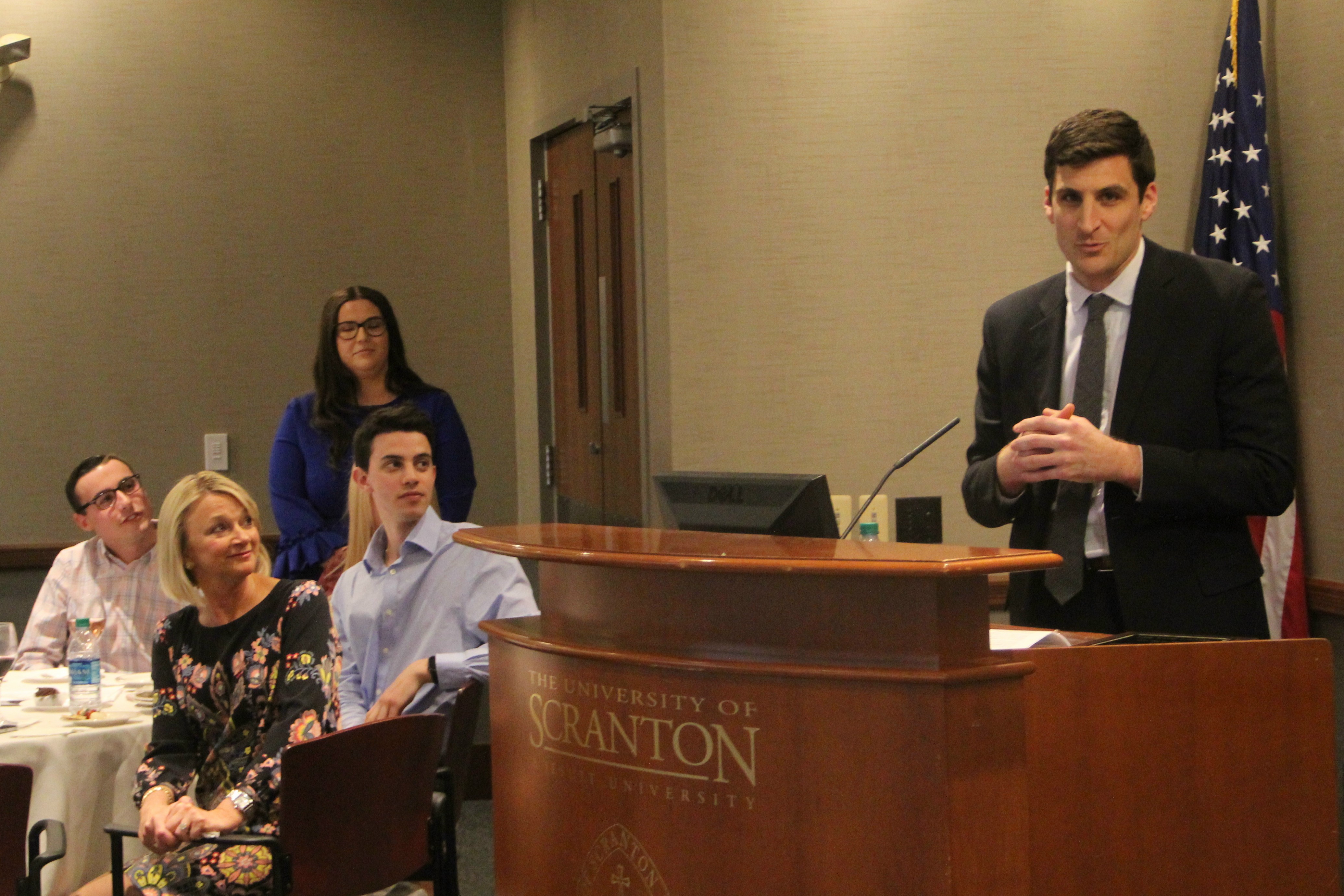
Vincent Rocco Honored as KSOM Professor of the Year
-
05/08/2019
This article originally appeared in the Office of Educational Assessment Spring 2019 Newsletter.
The OEA recently had the opportunity to speak with Dr. Lori Bruch, Department Chair, Counseling and Human Services (CHS). Lori shared with us the ways in which her department’s relationship with educational assessment has evolved over time, and the meaningful changes they have made because of it.
Because their programs are externally accredited, CHS faculty are no strangers to assessment. But it was, historically, not something embraced with great enthusiasm. Now, Lori explains, assessment has become meaningfully integrated into the daily work of their department, and has given their faculty a better understanding of what their students are learning.
A true collaboration
Lori describes their assessment as a collaborative experience, both within the department and in partnership with OEA.
Early on, they decided that no single person would be put “in charge” of the department’s assessment efforts (nor would one person be stuck with the bulk of the work). Everyone has ownership of the process. In this way, their approach to assessing student learning fosters a culture of teamwork and celebrates their colleagues’ varied strengths.
Lori noted the supportive relationship between their department and the Dean’s office and the OEA. She emphasized that changes in their assessment practices couldn’t have come from an external mandate. It had to come from within the department. But, she says, it wasn’t something they could achieve alone, either.
For example, OEA’s introduction of Via™ from Watermark helped cut down on the drudgery of manual data analysis. Because they no longer had to pore over vast amounts of data regarding student learning and key performance indicators, faculty could focus their efforts on what to do with the information they had. This provided some much-needed relief, saved time and energy, and boosted morale. Lori added that the sheer volume of the data on their students’ learning was such that, in the past, it was impossible to analyze all of it, much less use it for decision-making. Via allowed CHS to make use of all of the data available to them without having to “short cut” or work with a limited sample.
Closing the loop
Lori spoke to the ways CHS has used assessment data to improve teaching and learning in its programs. The department faculty have used the information they’ve gleaned from assessment to make changes at all levels, from program curricula to individual assignments.
Assessment led to a revamping of the curriculum for both the School Counseling and Rehabilitation Counseling programs, including everything from program learning outcomes, to course objectives and syllabi.
Faculty were also inspired to make changes to rubrics that are used to score individual assignments. Lori described a situation other faculty may find familiar: “We found the majority of our students had scored in the “exceeds expectations” range for a particular assignment. But was that accurate?” They rewrote their rubric to make clearer distinctions between “meets expectations” and “exceeds expectations,” allowing faculty to get a more accurate picture of where their students are.
Measurement that matters
Lori points to a handmade poster in her office. It is covered with the words “compassion” “consulting” “care” “communication,” and other words beginning with “C”. In the center, it says in large, bold letters, “It’s about the C’s, not the A’s.” Reflected here in the counseling department’s unofficial slogan is the notion that the outcomes they wish for their students are about much more than grades.
Likewise, their approach to assessment is about more than checking off a requirement. It is at the heart of why they do what they do.Assessment has helped the counseling department to view its curriculum as a living document. It is the department’s philosophy that they must always be willing to reflect and evolve. Their discipline demands it. In order to help their students become the “counselors of tomorrow,” faculty must also be willing to learn, develop, and make changes based on new information.
Assessment has become a natural part of the department’s daily life. It is an integral part of their work as educators, not an isolated task. It is still a time-consuming commitment, she says, but it is time well spent.
Dr. Lori Bruch on Educational Assessment
-
05/07/2019
A project by Ana Ugarte, Ph.D., assistant professor of world languages and cultures, was among the just 233 humanities projects from across the country to be awarded National Endowment for the Humanities grants. Her proposal is among just 16 projects in Pennsylvania to receive funding.
Dr, Ugarte received a NEH Humanities Connections Planning Grant of $34,958 for her project to “support for academic programs that integrate multiple disciplines.”
Dr. Ugarte joined the faculty at Scranton in the fall of 2018. She previously taught at Duke University, where she completed her doctorate in romance studies and Spanish. Her dissertation entitled “Island Laboratories: Literary Monsters, Diseases, and Pharmacopeias in the Hispanic Caribbean,” focused on how contemporary fiction intervenes in discourses on illness and medicine in Cuba and Puerto Rico. Her scholarship centers on twentieth- and twenty-first century Latin American literature with a primary focus on Hispanic Caribbean fiction, Indigenous cultures and languages from Mexico, and medical humanities. Her research interests include bio-political theory, disability studies, postcolonial studies and indigenous languages.
Dr. Ugarte earned a bachelor’s degree in Spanish philology and a master’s in Spanish American literature from Universidad Complutense de Madrid, as well as a bachelor’s in French from Universite Stendhal Grenoble III.
New Faculty Member Awarded NEH Grant
-
05/01/2019
A provocative proposal by biochemistry professor Timothy Foley, Ph.D., based on an extensive review of existing research and results from his own lab, questions a broadly-accepted theory that neurodegenerative disorders, such as Alzheimer’s disease, Parkinson’s disease and amyotrophic lateral sclerosis (ALS), are caused by “oxidative stress” and, more specifically, by “free radical”-induced brain damage.
In an article published in Cellular and Molecular Neurobiology, in which he references 158 research studies, Dr. Foley puts forth a new hypothesis. Specifically, he postulates that over-activation of pathways likely designed to protect against oxidative stress may generate an overlooked “reductive stress” – the opposite of oxidative stress – especially in the extracellular spaces of synapses which mediate communication between neurons. Dr. Foley proposes that the increased reduction, or addition of electrons, to regulatory sulfur-containing groups on synaptic membrane proteins, can promote aberrant changes in synaptic activity. He has termed this view the “reductive reprogramming” hypothesis of neurodegeneration.
“The biochemical pathways or reactions that begin to derail healthy brain aging and set the course for neurodegenerative disease remain unknown and, for the last 30 years, the research has focused on reactions that are relevant to advanced stages of the disease,” said Dr. Foley. “One longstanding and dominate theory of neurodegenerative disorders has been that neuron dysfunction and degeneration results from aberrant nutrient and oxygen metabolism resulting in what is called oxidative stress.”
“Oxidation refers to the removal of electrons from form molecules, a process that can potentially damage cells and impair tissue functions,” Dr. Foley said, who theorizes that the oxidative stress may be a secondary phenomenon or a response to another reaction driving the degenerative disease and is insufficient to cause functional impairment.
According to Dr. Foley, the commonly accepted oxidative stress theories of neurodegenerative disorders are “ill-defined and focused primarily on a particular type of oxidant known as “free radicals,” which are substances containing one or more unpaired electrons. Hydrogen peroxide, the most abundant oxidant in cells, is not a free radical and can act as a physiologically-important messenger molecule. He also explained that cells have a high capacity to adapt to elevated levels of oxidants by increasing reducing, or antioxidant, activities.
“Remarkably, oxidative stress theories of neurodegenerative disorders are generally accepted by the scientific and medical communities despite the fact that antioxidant supplements, such as vitamins E and C, neither lower the incidence nor slow the progression of these disorders,” said Dr. Foley noting that one study reported the use of an “antioxidant cocktail” that actually accelerated cognitive decline.
Dr. Foley said new hypotheses of neurodegenerative disorders are needed and, in the article, puts forth his own theory based on research regarding the central role played by protein sulfur atoms as sensors of cellular oxidants and reductants in vivo, a theory that he said is supported by research completed at Scranton, as well as by studies completed elsewhere.
“The reductive reprogramming hypothesis I put forth theorizes that irregular increases in compensatory antioxidant activities in neural tissues may, in principle, promote the aberrant reduction of oxidized protein sulfur on the cell surface of neurons. Oxidized sulfur on certain neuronal cell surface proteins may prevent excessive activity in the extracellular synaptic space which connects the neurons. Reversal of this oxidation by cellular antioxidants can promote synaptic dysfunction and neural cell death by a process called “excitotoxicity” – or over activation of receptors.” said Dr. Foley. “Ironically, increases in cellular reducing activities have been cited as further support for oxidative stress theories of neurodegeneration without considering the possibility that too much reduction of oxidized protein sulfur can be a bad thing.”
The paper, titled “Reductive Reprogramming: A Not-So-Radical Hypothesis of Neurodegeneration Linking Redox Perturbations to Neuroinflammation and Excitotoxicity,” was published online March 23 by Cellular and Molecular Neurobiology.
Dr. Foley’s research, some of which includes University undergraduate and master's students as co-authors, has been published in a number of academic journals, including Neurochemical Research, Cellular and Molecular Neurobiology and Biochemical and Biophysical Research Communications. He has served as a faculty mentor for numerous students. Several students who conducted research with him have won Goldwater Scholarships, which are the premier undergraduate scholarships for the fields of mathematics, natural sciences and engineering.
Provocative Proposal by Professor Published
-
04/30/2019
This Q&A originally appeared in Information Update, the Weinberg Memorial Library's newsletter.
Kelly joined the Library faculty in June 2017 as the Research & Instruction Librarian for Health Sciences and has recently transitioned to the Research & Instruction Librarian for Student Success on Jan. 2, 2019.
Frank Conserette (FC), editor of Information Update, recently interviewed Kelly (KB).
FC: Please tell us a bit about your background and how you got into librarianship?
KB: I actually grew up down the street from a small public library, where I began volunteering in high school. I have always loved to read and spent a lot of time there while growing up. My experiences there led me to pursue a part-time library job while I was in college. After I graduated with degrees in history and classics, I realized I had no idea what I actually wanted to do. When I remembered how much I loved working in libraries, I pursued a full-time library position while saving up to work towards my Master of Library Science degree. After a few years, I decided to attend The University of Maryland (UMD), and it was there that I realized I wanted to focus on being a librarian at an academic institution. I had been working at one of the University’s libraries, and I also completed a fellowship where I taught classes about doing research. I was lucky enough to be hired here shortly after graduation!
FC: It sounds like you had a really great experience at UMD with being able to work at the library and complete a teaching fellowship. What was it about the Research & Instruction for Health Sciences position and The University of Scranton that interested you?
KB: It was really a combination of a lot of different factors. It was primarily my newly discovered interest in teaching that led me to look for positions that involved instruction. On top of that, I was pre-med for a brief time in college and my parents have both worked in the medical field, so I’ve always had an interest in the health sciences. My experience working at the STEM (Science, Technology, Engineering, and Mathematics) library at UMD, which involved health-related subject area responsibilities, helped familiarize me with a lot of the resources that would be central to the Health Sciences position. I also grew up in Northeast Pennsylvania, so it was really great to be able to move closer to my family.
FC: So, you had a pretty good idea of what you would be getting into as the Health Sciences librarian. Tell us about some of the work you did and your experiences in that position.
KB: My day-to-day as the Health Sciences librarian was constantly different. I typically staff the Research Services desk for a few hours, and you never know what questions you’ll get when you’re there. I also met with a lot of students and faculty for research consultations; it’s amazing the things the students are studying in these disciplines! Also, I was invited to teach a lot of information literacy instruction sessions within the health sciences disciplines because many of their classes are research focused. Some of my time was spent just keeping up on all the different changes within the databases and publishing platforms.
Read on in Information Update here.
Introducing Our Library Faculty: Kelly Banyas
-
04/26/2019
The University’s Clinical Liaison Nurse Academic Practice Partnership and Geisinger Commonwealth School of Medicine hosted an interdisciplinary lecture by Paul Feuerstadt, M.D., attending gastroenterologist and assistant clinical professor of medicine at Yale University. He discussed “Ischemic Bowel Disorders” with nurses, nursing students and medical students at the talk held in the spring semester at the medical school.
The lecture was supported through the University’s Scranton Strategic Initiatives Funding, which supports innovative projects – particularly those that that will have substantial, positive impact on the student experience – that advance the goals of its “Strategic Plan: an Engaged, Integrated and Global Student Experience.” Sixteen projects received more than $188,000 in support for the 2018-2019 academic year.
Clinical Liaison Nurse Partnership Hosts Lecture
-
04/24/2019
This article originally appeared in the spring 2019 issue of the Department of Latin American and Women's Studies newsletter, which you can read here.
The centennial celebration of the passage of the Nineteenth Amendment is nearly upon us, and I am in the final stretch of writing a history of women’s suffrage. The book, titled Suffrage: The Epic Struggle for Women’s Right to Vote, will be published by Praeger in the summer of 2019.
The fight for women’s suffrage was a long and colorful struggle, beginning with a small number of women and men who put forth the radical idea of treating women as political equals at the Seneca Falls Convention of 1848. After the Civil War, an informal alliance between abolitionists and women’s rights reformers broke over the Fourteenth Amendment, which inserted the word “male” into the U.S. Constitution for the first time.
Several Western states permitted women to vote—Wyoming was the first in 1869—but national suffrage did not come until women formed a mass movement, with growing militancy, that put increasing pressure on a reluctant political establishment. After Tennessee became the final state to ratify in a dramatic vote at the state’s capital, twenty million American women were able to go to the polls in the fall of 1920.
This book has been several years in the making, with visits to over a dozen archives across the nation to highlight several of the intriguing citizens who favored and opposed the suffrage movement. The struggle mirrors the changing views and norms for American women from the mid-nineteenth to the early twentieth-century and provides background for the continuing evolution in gender roles today.
Professor's Upcoming Book: Suffrage: The Epic Struggle for Women’s Right to Vote
-
04/23/2019
Beth Elias, Ph.D., an adjunct faculty member in The University of Scranton’s online health informatics program, was invited to speak at the 2019 Healthcare Information and Management Systems Society (HIMSS) conference, which convened in Orlando, Florida, earlier this year and brought together 40,000 health information and technology professionals from more than 90 countries to discuss, debate and co-invent the future of health information management.
Dr. Elias spoke as part of the prestigious “Views from the Top” sessions at HIMSS, a collection of educational sessions from those considered high-level leaders in the field. Dr. Elias became a HIMSS Fellow in 2018, but has been involved with the organization for many years.
“It is such an honor to be recognized for my contributions to the organization and to Health Informatics,” Dr. Elias said. “HIMSS is truly an inter-professional and interdisciplinary organization that welcomes everyone."
In her role with the University, Elias shares her healthcare technology expertise with students in the online Master of Science in Health Informatics program, but at HIMSS19, Dr. Elias spoke of an international effort to set high and consistent standards for the education of health informaticians across international borders.
“We must ensure we are preparing students who will be able to serve as effective health informaticians when they graduate,” said Dr. Elias, who alongside co-presenter Ursula Hübner, Ph.D., professor at the University of Applied Sciences Osnabrueck, shared results of their work.
The project, known as the TIGER (Technology Informatics Guiding Education Reform) International Competency Synthesis Project, began in 2015 when the organizers started collecting case studies and survey input from around the world, as part of an effort to understand the current state of educational competency standards.
After two years as a committee member on the project, Dr. Elias’s role expanded in 2017 to serve as national co-chair, where she worked with a team of representatives from 21 countries to standardize education. The end result: a robust framework that offers a structure for high-quality, consistent international standards while taking into differences across borders and cultures.
For Dr. Elias, her interest in this work comes from a desire to make the field stronger for everyone – including her students at Scranton.
“Any work we do to understand how to better prepare students to be effective health informaticians helps our students stand out from others,” Dr. Elias said. “Projects like the International Competency Synthesis Project allow us to learn not only what we need to teach, but also informs us in the best methods.”
Scranton offers an online Master’s of Science in Health Informatics.
Health Informatics Professor Presents at Conference
-
04/17/2019
What are some of the retired KSOM faculty up to? Read on!
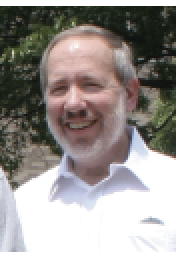 Dr. Gerald Biberman retired in 2012 after teaching management for more than 30 years. Since then, he has written book chapters and journal articles on spirituality and management. He is also a reviewer for academic management journals and teaches meditation classes.
Dr. Gerald Biberman retired in 2012 after teaching management for more than 30 years. Since then, he has written book chapters and journal articles on spirituality and management. He is also a reviewer for academic management journals and teaches meditation classes.In 2016, he received the Distinguished Service Award of the Management Spirituality and Religion Interest Group of the Academy of Management. He and his wife live in Las Vegas.
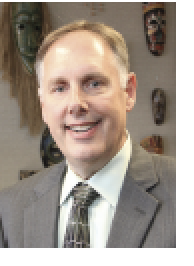 Since retiring to Florida in 2018, Dr. Alan Brumagim has mentored a young man whom he met as a high school senior. The teen was a potential first-generation college student, and Dr. Brumagim worked with him to determine his interests and potential fields of study.
Since retiring to Florida in 2018, Dr. Alan Brumagim has mentored a young man whom he met as a high school senior. The teen was a potential first-generation college student, and Dr. Brumagim worked with him to determine his interests and potential fields of study.The student is currently attending the State College of Florida and earning straight A’s.
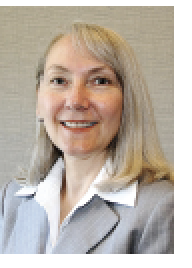 Dr. Cynthia Cann, a former management professor, retired in 2015. She and her husband, Michael, spend winters in Estero, Fla., where they play pickleball, explore nature preserves and partake in cultural activities at Florida Gulf Coast University.
Dr. Cynthia Cann, a former management professor, retired in 2015. She and her husband, Michael, spend winters in Estero, Fla., where they play pickleball, explore nature preserves and partake in cultural activities at Florida Gulf Coast University.When in Pennsylvania, Dr. Cann enjoys spending time with her five grandchildren.
Dr. Ying Chien, of Huntingdon Valley, is enjoying his retirement years. Since leaving Kania in 2009, he is active in his church, spends time with his daughter and granddaughters and enjoys gardening.
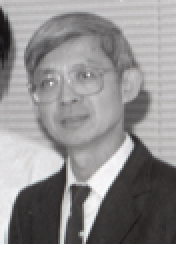
He keeps up with business news by reading Knowledge@Wharton, an online business analysis journal.
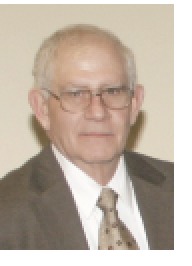 In 2009, Dr. Frank Corcione retired after 28 years of teaching economics and finance. During his Scranton tenure, he used strong connections with alumni to help students secure internships and jobs.
In 2009, Dr. Frank Corcione retired after 28 years of teaching economics and finance. During his Scranton tenure, he used strong connections with alumni to help students secure internships and jobs.He was active with the faculty union and served as a consultant on economics damages in civil trials. He and his wife live in Bethlehem, Pa.
Dr. Ron Grambo is finding retirement is “at times all that it is cracked up to be.” He enjoys having extra time for his family, helping at his church and taking his golden retriever, Oliver, a registered therapy dog, for long walks.
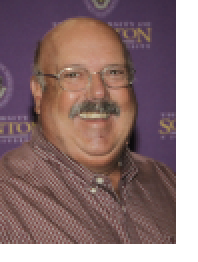
His favorite indoor hobby is woodworking. He retired in 2016 from the accounting department.
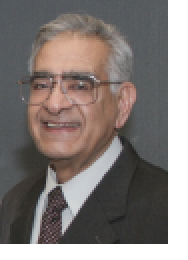 Dr. Riaz Hussain retired in 2018 after teaching at Scranton for 51 years. He was a physics professor for 18 years and taught finance for 33 years in the Kania School.
Dr. Riaz Hussain retired in 2018 after teaching at Scranton for 51 years. He was a physics professor for 18 years and taught finance for 33 years in the Kania School.He continues to serve as the imam of the campus mosque and is a member of the Scranton Area Ministerium, a group of religious leaders who work to promote interfaith dialogue and cooperation.
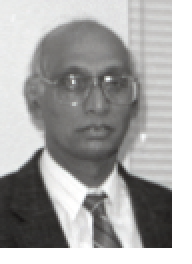 After retiring in 2009, Dr. Prasadarao Kakumanu moved to Middleton, Wisconsin. He is enjoying retirement and spends most of his time reading and relaxing.
After retiring in 2009, Dr. Prasadarao Kakumanu moved to Middleton, Wisconsin. He is enjoying retirement and spends most of his time reading and relaxing.
Read more about the Kania faculty in the new Kania Magazine, here.
Updates on Retired KSOM Faculty
-
04/09/2019
University of Scranton President Rev. Scott R. Pilarz, S.J., announced the appointment of Sam Beldona, Ph.D., as dean of the Kania School of Management effective July 1, 2019. Dr. Beldona has served as dean of the Barowsky School of Business at Dominican University of California, since 2013.
“Dr. Beldona has great respect for the tradition of excellence in the Kania School and brings an innovative vision for its future,” said Father Pilarz in an announcement sent to the University community. “During his more than 20 years of experience as a professor and senior academic administrator, Dr. Beldona has developed a track record of working collaboratively with faculty, administrators, alumni, benefactors and business leaders to develop innovative curriculum and programs with a global emphasis.”
At Dominican University, Dr. Beldona launched a three-day MBA Bootcamp experience and implemented a required Global Consulting Practicum for MBA students. Also, working with faculty and staff, he led an effort that resulted in the appointment of a placement director, significantly increasing the percentage of students who completed internships within the school of business.
At Bryant University in Smithfield, Rhode Island, Dr. Beldona served as associate dean and tenured associate professor at the Graduate School of Business from 2011 to 2013, and as chair of the Management Department in the College of Business from 2007 to 2011. At Bryant he helped the faculty to introduce new courses, such as Global Human Resource Management, International Business Practicum and Managing Diversity in a Global Environment. In addition, with faculty support, he introduced highly-interactive modules in each of the required courses for undergraduate students that included service learning, internships and case competitions. At the graduate level, he introduced specializations in global supply chain management, international business and global finance.
Previously, Dr. Beldona served as the Larry Jones Fellow of Corporate Governance at Wichita State University from 2001-2007, where he also served as the entrepreneurship research associate for the Center for Entrepreneurship. Dr. Beldona was an associate professor of international business at the International University of Japan from 2000-2001. He was an assistant professor of international business at Rutgers University from 1994-2000.
In addition, Dr. Beldona has extensive experience with AACSB International (The Association to Advance Collegiate Schools of Business) accreditation, having been a member of school’s AACSB’s Accreditation Steering Committee, Strategic Management Committee and Faculty Qualifications Committee, among others. The University’s Kania School of Management holds AACSB International accreditation.
Dr. Beldona has lectured, consulted, studied and taught in the Americas, Asia and Europe, and since 2003 has served as a visiting professor of corporate strategy at Temple University Japan, in Tokyo, Japan.
Dr. Beldona earned his bachelor’s degree and MBA from Karnatak University in Dharwad, India, and his master’s and Ph.D. from Temple University.
University Names New Dean of KSOM
-
04/04/2019
World Languages and Cultures professor Ana Ugarte has received a National Endowment for the Humanities (NEH) grant for her project "Health Humanities Concentration and Community Based Learning at The University of Scranton."
As mentioned in her proposal, this grant will allow her "to create a Health Humanities Concentration that will emphasize the integral role of the humanities in transforming healthcare, health
and well-being. It aims not only at providing a more comprehensive education to the students enrolled in the programs for the health professions at The University of Scranton, but also seeks to develop new pedagogical practices informed by interdisciplinarity, community-based learning, and diversity and intercultural competence."This NEH grant has only a 15 percent funding radio: Only 23 institutions received this grant this year.
Spanish Professor Receives NEH Grant
-
04/02/2019
This article originally appeared in The Times-Tribune. This is just an excerpt. Please read the full version of this article, here.
Maria Squire, Ph.D., pointed to the diagram of a pig’s arteries and veins and started naming them. Her students followed along closely.
Thoracic aorta. Superior vena cava. Right subclavian vein.
Squire, in her 14th year as a faculty member at the University of Scranton, teaches students pursuing careers in science or medicine. After completing the diagrams, Squire started the students on the hands-on activity for that day’s advanced anatomy and physiology lab: finding the arteries and veins by dissecting fetal pigs.
Across Northeast Pennsylvania, area schools educate tens of thousands of students each year for jobs in the local workforce and beyond.
Those same public and private schools, from small prekindergarten programs to regional universities, provide paychecks to a growing number of employees each year.As of January, 19,900 people in Lackawanna, Luzerne and Wyoming counties worked in the educational services sector, according to the latest state employment data. The number is an increase of 100 jobs from a year ago.
Squire, 41, studied biology and Spanish at the University of Scranton, graduating in 2000. After receiving advanced degrees from
State University of New York at Stony Brook, she returned to Scranton to teach.“I love working with the students,” she said. “The most rewarding part of my job is when I can share my excitement with them and they get it.”
Continue reading this story from The Times-Tribune here.
Choosing Education: Professor Maria Squire '00
-
03/27/2019
Will Cohen, Ph.D., associate professor in the Theology/Religious Studies Department, recently presented to his fellow faculty members about his research on St. Oscar Romero at the Faculty Research Seminar Series. His talk was titled "Political Wokeness and Christian Witness in the Life and Legacy of St. Oscar Romero."
Royal News talked to him a little about his research.
RN: Tell us a little about your presentation – is this research you have previously published? Or are you seeking to publish?
WC: I published an article in a journal called Theological Studies a couple of years ago on Oscar Romero, but this presentation takes that previous research in a somewhat different direction. I would envision publishing an article in the next year or two on the basis of the further research I’ve been doing.
RN: Can you tell us about this research?
WC: Because Romero spoke out strongly against economic injustice, fraudulent electionsand increasingly repressive government policies when he served as archbishop of San Salvador in the late 1970s, and because, prior to becoming archbishop, he had not been so outspoken and indeed had even publicly expressed concern about priests and lay leaders he had considered too political, his biographers have often spoken of Romero as having undergone a “conversion”. As they portray it, he went from being someone who had embraced an almost quietistic spirituality of personal asceticism and prayer to being someone highly alert to how the Gospel demands of us that we act in solidarity with the vulnerable, by trying to undo sinful and oppressive structures.The conversion narrative in Romero’s case has seemed to me to resonate with the idea of becoming “woke” in the sense we often hear it used today. On one level, it interests me that the motif of waking up is itself actually pervasive throughout the Christian spiritual tradition. For example in the Canon of St. Andrew of Crete, sung liturgically every Lent in my own Eastern Orthodox tradition, a recurring refrain is “O my soul, why are you sleeping?” The emphasis here is on an interior awakening to one’s own propensity to sin and the reality of God’s judgment. In Romero’s case, there’s an even stronger connection to the idea of becoming more woke because he stopped buying the government’s Kool-Aid, so to speak, that the only enemy of Christianity in El Salvador was Marxist ideology. He believed that the oligarchs themselves, though purporting to be the guardians of Catholic culture and tradition, were actually warping the Christian message by how unwilling they were to give up worldly advantages to bring about a more just society.
RN: Tell us what "woke" means.WC: The term "woke" emerges from African-American culture and discourse and in its original significance means becoming more aware of how badly the system is rigged against African-Americans, but it has been exported into a lot of other contexts. The question of cultural appropriation was, therefore, something I felt it was important to raise. I tried to think through this concept specifically in terms of the global Church, on the one hand, constituted by particular churches each rooted in a local culture which must be honored and preserved, but on the other hand trans-cultural, in the sense that the faith is one across all the various linguistic and ethnic markers, and so there is the possibility of understanding one another and identifying our shared humanity across our differences, even though this takes effort and charity.
Another couple of points emerged as important in my research... One is that the claim, often made, that Romero went from being one kind of Christian tobeing another kind of Christian seems to me to be overstated. He certainly did wake up to more and more of the injustices all around him, which were also worsening by the day when he became archbishop, but he himself was hesitant to describe what he went through as a “conversion”; he saw it more as an evolution demanded by circumstances.A second point is that where Romero drew strength and courage to help reorient the Church in El Salvador – from being safely aligned with the ruling elite to living out a preferential option for the poor and sharing in the poor’s vulnerability – was from the writings and personal encounters he had with popes, as well as from councils like Vatican II and the Latin American bishops’ conference at Medellín. In other words, he leaned on the Church and her official teachings. His chosen episcopal motto, taken from the Ignatian Exercises, which he knew well, was “Sentir con la Iglesia” -- to think with the Church. Romero stood very strongly against false interpretations of the faith and idolatrous distortions of the Church, but he never became “woke” to the faith itself nor to the Church herself, not if to be “woke” is to see through something as if it were just an opiate, a big lie altogether.
Romero had a tremendous child-like faith not just in a transcendent God but also in a real and living Church. I am interested in how Romero's Christian witness and political
wokeness went together, and how he relied on the Church to enable him to lead the Salvadoran Church in a more authentic direction.
RN: Why is this all so relevant now?
WC: We live in a time where everyone prides himself or herself on being distrustful – especially of the narratives peddled by our political opponents. It is good to be suspicious of party lines, but we tend not to distrust our own party’s lines, only the other’s. Romero’s commitment to the Gospel above all else enabled him to be “woke” to whatever was not in alignment with it; this commitment gave hima remarkable freedom to be able to engage political issues with wisdom and clarity and not allow the faith to be co-opted by politics. In this sense, he is a light for our time, if we would receive it.Professor Discusses St. Oscar Romero's Political Wokeness
-
03/27/2019
Castles built in stone will surely last longer than those made of sand. The same can be true of relationships. Those built on a solid foundation, such as a shared mission, would surely be best suited to stand the test of time.
For nearly 30 years, The University of Scranton has enjoyed just such a relationship with St. Elizabeth University of Health and Social Work, a Catholic college in Bratislava, Slovak Republic, and Trnava University, Trnava, Slovak Republic.
A recent visit to Scranton by Most Reverend Viliam Judak, Bishop of the Diocese of Nitra, Slovak Republic, and Monsignor Martin Stofko, Diocese of Nitra, Slovak Republic, highlights the common foundation and strong bonds shared by Scranton and St. Elizabeth University and Catholic church in the former communist state.
“St. Elizabeth University was created as a private Catholic university so that they could serve the poor both in Slovakia and also communities external to Slovakia,” said Daniel J. West Jr., Ph.D., professor and chair of Scranton’s Department of Health Administration and Human Resources.
St. Elizabeth University offers bachelor’s, master’s and doctoral level education in numerous health related fields and has more than 40 science-pedagogical facilities in more than 20 countries. The partnership between the Panuska College of Professional Studies’ Health Administration Program and the Catholic institution has brought numerous faculty and student exchanges that have benefited both the education of health care providers and the care of patients across the globe.
In addition to its educational mission, St. Elizabeth University actively serves the sick and poor irrespective of the race, nationality and religious orientation, in the Slovak Republic, as well as through its health, humanitarian, social, charitable and missionary facilities in Ukraine, Cambodia, Kenya, Ethiopia, Uganda, Sudan, Nairobi, Haiti and a dozen other countries.
Scranton – with a commitment to provide a transformational educational experience to our students that is engaged, integrated and global – has partnered with St. Elizabeth’s to provide experiences abroad for our Master in Health Administration (MHA) students.
“When I first started at Scranton a few decades ago, less than 1 percent of our students traveled abroad,” said Dr. West. “Now about 25 percent of students do. We need to have the relationships to allow this to happen with partners we trust. It’s the human element that is so important.”
Dr. West said the relationship with St. Elizabeth has developed “block by block” over time, recalling that the University though its numerous efforts in Haiti, introduced St. Elizabeth University to the many needs of the poor of the that nation. Subsequently, St. Elizabeth’s has started two health care projects in Haiti, one in the north and one in the south.
“I went to Haiti to help with the children,” said Monsignor Stofko. “I also went to Kenya and Uganda. This is the way we continued to work with the University and work with the students.”
Dr. West said the University has worked “hand-in-hand” with St. Elizabeth’s and the Church in Slovakia. This relationship extends to publishing, research and international presentations. Faculty from Slovakia contributed to four chapters of Dr. West’s most recent book “The Global Healthcare Manager: Competencies, Concepts and Skills.”
But, Dr. West said it is the students that ultimately benefit the most from the relationship.
“Each time our MHA students visit St. Elizabeth’s in Bratislava, we also visit some area around the city. One area we always visit is Nitra and when we visit, the Bishop invites us to his table, which is really in a very large castle. He allows us to tour a museum that not everyone has the chance to see,” said Dr. West.
This year, two groups of MHA students will travel to St. Elizabeth’s in the spring semester.
Students will see first-hand the lasting strength of castles built of stone – and of partnerships formed on a solid foundation.
Common Mission Builds Lasting Relationship
-
03/19/2019
Dr. Yamile Silva, associate professor in the Department of World Languages and Cultures and Latin American Studies, was invited by Embassy of Spain in Santo Domingo, Dominican Republic, to give a talk on Abigail Mejia (1895-1941), the feminist activist, writer and literary critic from the Dominican Republic, on March 17, 2019.
The event took place at The Cultural Spanish Center that is the Cultural Office at the Embassy of Spain in Santo Domingo, R.D.
Professor Silva Gives Talk on Abigail Mejia
-
03/15/2019
The Albright Memorial Library, in collaboration with The University of Scranton, will host a series of events that encourage civic engagement among area residents. The programs are related to the PBS film documentary “American Creed,” and are funded through an award from American Library Association.
The first event will be a screening of the documentary film “American Creed,” followed by a Community Conversation with discussion and question and answer session led by Adam Pratt, Ph.D., assistant professor of history at The University of Scranton, and in collaboration with the University’s Humanities Initiative. The screening will be held on Thursday, Mar. 28, at 6:30 p.m. in the Albright Memorial Library’s Henkelman Room. The snow date is Monday, April 8, at 6:30 p.m.
In the documentary film, former U.S. Secretary of State Condoleezza Rice and Pulitzer Prize-winning historian David M. Kennedy come together from different points of view to investigate the idea of a unifying American creed. Their spirited inquiry frames the stories of citizen-activists striving to realize their own visions of America’s promise across deepening divides. At the heart of this film, Rice and Kennedy lead a moving discussion with first-generation college students about the question: what does it mean to be American today?
American Creed Community Conversations are film screenings and scholar-facilitated discussions that mirror the type of conversation Rice and Kennedy have in the film and are designed to engage Americans in reflection and dialogue about their own part in the American story and in acting to shape that story for the better.
The second event will be a Political Dialogue on Monday, April 15, at 6:30 p.m., also in the Albright Library’s Henkelman Room. This event is hosted in partnership with The University of Scranton through their Political Dialogues Initiative. Community members from varied political perspectives and backgrounds will break up into groups with University facilitators to share the experiences, values, hopes, and concerns that shape how they feel about our country, while also seeking to understand those who think differently. Short clips from the American Creed documentary will introduce the dialogue.
In addition, the Albright Library will host
a third event in the summer during the Library’s Social Justice Book Club meeting on Monday, July 8, at 6:30 p.m. at the Albright Library. The book club will read and discuss “Citizen: An American Lyric” by Claudia Rankine. The book discussion will also include short clips from the documentary as they pertain to the themes of the book.Registration is free and required for all events. To register online, visit albright.org or call Jessica Serrenti at the Albright Memorial Library at 570-348-3000 ext. 3023.
The events are made possible through a partnership with the University and the American Library Association’s American Creed: Community Conversations grant program, in partnership with Citizen Film, WTTW Chicago, Corporation of Public Broadcasting, the National Endowment of the Humanities and the National Writing Project.
Events Encourage Civic Engagement and Discourse
-
03/13/2019
Physical therapy faculty members provided tips on pain relief, posture and workplace safety during Wellness Day for Faculty & Staff on Tuesday, March 12.
Jennifer Schwartz, PT, DPT, Dana Maida, PT, DPT, Anthony Carusotto, PT, DPT, Nicholas
Rodio PT, DPT, and Joshua Prall, PT, DPT spoke to an audience of about 75 staff and faculty members about getting rid of back, neck and wrist pain that may have originated with everyday work tasks."Your problems can be fixed," assured Dr. Maida, "with awareness and education."
They demonstrated stretches, lifting and cleaning techniques and good desk ergonomics. They also said to be mindful of what feels right for your body.
"'Abnormal never feels normal,' is what I say to my clients," said Dr. Rodio.
The faculty members set up stations in the front of the room following their presentation so the audience could get more personalized tips about how to avoid workplace pain and injury.
Missed the talk? Click here to get the presentation!
PT Faculty Members Talk Posture at Wellness Day
-
03/06/2019
The Office of Research and Sponsored Programs (ORSP) has a monthly and once during the summer raffle for members of the University who submit external grant proposals. This month the winner is Nicholas Sizemore, Ph.D., Chemistry Department. ORSP will randomly select a name from all faculty and staff members who have applied for an external grant during that time period. The winner receives a $25.00 gift card.
ORSP February Raffle Winner—Dr. Nicholas Sizemore
-
03/05/2019
Jean Wahl Harris, Ph.D., a political science professor and expert on first ladies, weighs in on what we might expect from a first gentleman in the White House in a recent Huffington Post article.
“The primary role is social hostess: decorating the White House, holding events when foreign diplomats are here, giving tours,” said Jean Wahl Harris, a political science professor at The University of Scranton, who has studied the role of the first lady for nearly two decades. “Many of the expectations are very gendered, not things we would expect men to do, like hostessing ― but I think the expectations for the [male] spouse are not going to be the same.”
Dr. Harris joined the University faculty in the fall of 1987. She earned a B.A. in law and society, an M.A. in political science and a Ph.D. in Political Science from the State University of New York at Binghamton. She has served the University as the director of the Women’s Studies program (serving as the first director after spearheading the development of the Women’s Studies program) and as chairperson of the Political Science Department. She also coordinates the University’s Ready to Run program, which is a campaign training program targeting women in Northeast Pennsylvania.
Read the Huffington Post article, here.
Faculty Member Discusses Role of Possible First Gentleman
-
02/27/2019
Kevin Wilkerson, Ph.D., a professor in the Department of Counseling and Human Services, served on the advisory board for the past two years for a local school counseling program that has received certification as a Recognized-ASCA-Model-Program.
This designation, awarded by the American School Counselor Association, is the highest level of acknowledgment that a school counseling program can receive. The school, R.D. Wilson, is part of the Western Wayne School District and will join just six other schools in Pennsylvania that have been honored with this national recognition. The program will be formally recognized at the RAMP awards banquet during the ASCA annual conference in Boston this summer. The certification is awarded to the school counseling program, bearing in mind that a successful program could never exist without the dozens of supporters, believers, collaborators, and advocators.
Last year, Dr. Wilkerson received the Excellence in Graduate Teaching Faculty Senate Award, which recognizes a faculty member who demonstrates dedication to teaching graduate students in a manner that creates an encouraging and intellectually stimulating environment that promotes critical thinking and learning. A member of Scranton’s faculty since 2004, Dr. Wilkerson earned his bachelor’s degree from Colgate University, his master’s degree from the University of Vermont and his Ph.D. from Syracuse University.
Counseling Professor Serves on Advisory Board
-
02/26/2019
The University of Scranton’s ongoing Clinical Liaison Nurse Academic Practice Partnership was among the 16 projects that received support through the University’s Strategic Initiatives Funding Program for the 2018-19 academic year.
The Clinical Liaison Nurse Model, a community-based, academic-practice partnership the University began in 2009, pairs expert staff nurses with academic faculty to create an improved learning environment for undergraduate student nurses and an added level of safety for patients.
According to Sharon Hudacek, Ed.D., professor of nursing at the University, documented research indicates the clinical environment created by the model fosters the development of high-level critical thinking skills, moving the student nurses from novice to expert. With the assistance of highly qualified expert staff nurses, the clinical faculty members enhance the ability to challenge student nurses and to offer insight from additional clinical experience.
The University’s ongoing Clinical Liaison Nurse Model partners include Regional Hospital of Scranton, as well as Moses Taylor Hospital and Geisinger Community Medical Center.
The Strategic Initiatives Funding award will also support the upcoming Clinical Liaison Nurse Academic Practice Partnership lecture by Paul Feuerstadt, M.D., attending gastroenterologist and assistant clinical professor of medicine at Yale University. He will discuss “Ischemic Bowel Disorders” at lecture at the Geisinger Commonwealth School of Medicine on Thursday, April 11, at 4:30 p.m.
The University’s Strategic Initiatives Funding supports innovative projects, particularly those that that will have substantial, positive impact on the student experience, that advance the goals of its “Strategic Plan: an Engaged, Integrated and Global Student Experience.” The 16 projects supported for the current academic year received a total of more than $188,000.
Clinical Liaison Nurse Partnership at Regional
-
02/26/2019
This fall, the Panuska College of Professional Studies (PCPS) hired several new faculty members. Read more about them here and get more PCPS news in the fall issue of the Challenges newsletter, here
.
Gunjan Bansal, Faculty Specialist—Health Administration & Human Resources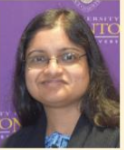 Gunjan is a doctoral student research associate the Chicago School of Professional Psychology pursuing a Ph.D. in international psychology. She has her M.S. in healthcare administration from The University of Scranton. In addition, she was a nursing home administrator at Weston Rehabilitation and Nursing Center in Hellertown, Pennsylvania.
Gunjan is a doctoral student research associate the Chicago School of Professional Psychology pursuing a Ph.D. in international psychology. She has her M.S. in healthcare administration from The University of Scranton. In addition, she was a nursing home administrator at Weston Rehabilitation and Nursing Center in Hellertown, Pennsylvania.
Anthony Carusotto, Instructor—Physical Therapy
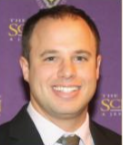 Anthony received his DPT, M.S. and B.S. degrees from Misericordia University. Prior to joining our faculty as a tenure-track member, Anthony worked as a PT team leader at Coordinated Health in Pittston, Pennsylvania. His areas of expertise in his discipline are kinesiology, orthopedics and human anatomy. He has been a clinical instructor for more than five years and an adjunct professor in the University's Physical Therapy department, and is certified lymphedema specialist. He is
Anthony received his DPT, M.S. and B.S. degrees from Misericordia University. Prior to joining our faculty as a tenure-track member, Anthony worked as a PT team leader at Coordinated Health in Pittston, Pennsylvania. His areas of expertise in his discipline are kinesiology, orthopedics and human anatomy. He has been a clinical instructor for more than five years and an adjunct professor in the University's Physical Therapy department, and is certified lymphedema specialist. He is pursing his doctoral studies for his terminal degree at Drexel University.
Rita DiLeo, Assistant Professor—Health Administration & Human Resources
 Rita joins us as a new tenure-track faculty member, but she is very familiar with the University and the department of HAHR, where she held a position as a faculty specialist/fieldwork coordinator for the past 10 years. Rita received her doctor of science degree from the University of Alabama this past summer, her MPA from Marywood University and her B.S. from The University of Scranton. Rita holds certification as Balanced Score Professional (BSP).
Rita joins us as a new tenure-track faculty member, but she is very familiar with the University and the department of HAHR, where she held a position as a faculty specialist/fieldwork coordinator for the past 10 years. Rita received her doctor of science degree from the University of Alabama this past summer, her MPA from Marywood University and her B.S. from The University of Scranton. Rita holds certification as Balanced Score Professional (BSP).
Hengameh Hosseini, Assistant Professor—Health Administration & Human Resources
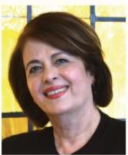 Hengameh received her Ph.D. from Marywood University in health promotion, her M.S. from King's College in accounting and finance and her B.S. in management from the University of Tehran. Prior to coming to The University of Scranton, Hengameh was an assistant professor at Penn State Hershey College of Medicine in their Master of Health Administration and Health Science program. She was a Fulbright Specialist Scholar for a research project hosted by Semey State Medical University in Kazakhstan and the U.S. Department of State Bureau of Educational and Cultural Affairs.
Hengameh received her Ph.D. from Marywood University in health promotion, her M.S. from King's College in accounting and finance and her B.S. in management from the University of Tehran. Prior to coming to The University of Scranton, Hengameh was an assistant professor at Penn State Hershey College of Medicine in their Master of Health Administration and Health Science program. She was a Fulbright Specialist Scholar for a research project hosted by Semey State Medical University in Kazakhstan and the U.S. Department of State Bureau of Educational and Cultural Affairs.
John C. O'Bell, Faculty Specialist—Counseling and Human Services
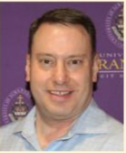 John received his M.S. in community counseling from The University of Scranton in December 2010, with continuing education in trauma and PTSD, eating disorders, mindfulness, and anxiety and depression.
John received his M.S. in community counseling from The University of Scranton in December 2010, with continuing education in trauma and PTSD, eating disorders, mindfulness, and anxiety and depression.
Nicholas
Rodio , Instructor—Physical Therapy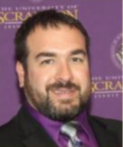 Nick joined The University of Scranton in January 2018 and began his tenure-track position in Fall 2018. He holds a DPT and a B.S. from The University of Scranton. He is pursuing his doctoral studies for his terminal degree. Nick served as an adjunct professor in the University's Physical Therapy department prior to accepting this full-time position. He volunteers in our Leahy Physical therapy Clinic. He directs ProCare KIDS, a local outpatient program, and manages a local office of ProCare Physical Therapy in Dickson City, Pennsylvania.
Nick joined The University of Scranton in January 2018 and began his tenure-track position in Fall 2018. He holds a DPT and a B.S. from The University of Scranton. He is pursuing his doctoral studies for his terminal degree. Nick served as an adjunct professor in the University's Physical Therapy department prior to accepting this full-time position. He volunteers in our Leahy Physical therapy Clinic. He directs ProCare KIDS, a local outpatient program, and manages a local office of ProCare Physical Therapy in Dickson City, Pennsylvania.
Mary Troy, Assistant Professor—Counseling and Human Services
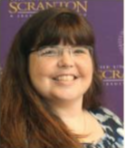 Mary Successfully defended her doctoral dissertation on Aug. 13, 2018, at Regent University in Virginia. She received her M.S. and B.S. from The University of Scranton and is a licensed Counseling and Human Services department.
Mary Successfully defended her doctoral dissertation on Aug. 13, 2018, at Regent University in Virginia. She received her M.S. and B.S. from The University of Scranton and is a licensed Counseling and Human Services department. PCPS Newest Faculty Members
-
02/20/2019
This is an excerpt from The Abington Journal. The original article is here.
A book by Ann A. Pang-White, Ph.D., philosophy professor and director of the Asian Studies Program at The University of Scranton was published recently.
“The Confucian Four Books for Women,” published by Oxford University Press and translated with introductions, annotations, and notes by Dr. Pang-White, South Abington Township, is the first complete English translation of the Nü Shishu and the commentary of Wang Xiang. The 16th-century book is a female counterpart to the Sishu (Four Books) compiled by Zhu Xi. It includes four books by five women authors over a span of 1,600 years and provides a look at the history and evolution of Chinese women’s writing, education, identity, and philosophical discourse.
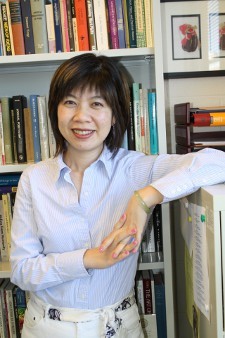
Dr. White joined the Philosophy Department at The University of Scranton in 1997.
Director of Asian Studies Publishes Book
-
02/18/2019
The Office of Research and Sponsored Programs (ORSP) has a monthly and once during the summer raffle for members of the University who submit external grant proposals. This past month's winner is Michael Fennie, Ph.D., Chemistry Department. ORSP will randomly select a name from all faculty and staff members who have applied for an external grant during that time period. the winner receives a $25.00 gift card.
ORSP January Raffle Winner—Dr. Michael Fennie
-
02/12/2019
Books by Ann A. Pang-White, Ph.D., philosophy professor and director of Asian Studies Program, and Daniel J. West Jr., Ph.D., professor and chair professor and the Department of Health Administration and Human Resources, were published recently.
“The Confucian Four Books for Women,” published by Oxford University Press and translated with introductions, annotations, and notes by Dr. Pang-White, is the first complete English translation of the Nü Shishu and the commentary of Wang Xiang. The 16th century book is a female counterpart to the Sishu (Four Books) compiled by Zhu Xi. It includes four books by five women authors over a span of 1,600 years and provides a look at the history and evolution of Chinese women’s writing, education, identity, and philosophical discourse.
This is Dr. Pang-White’s second book. Her first book, “The Bloomsbury Research Handbook of Chinese Philosophy and Gender,” was published in 2016. She has published numerous articles in scholarly journals related to her research interests in interdisciplinary aspects of Chinese philosophy and Western theories on metaphysics, ethics, political philosophy, and women. She serves as the deputy director of the International Society for Chinese Philosophy.
Dr. Pang-White joined the faculty at Scranton in 1997. She was awarded the University’s 2010 and 2017 Provost Award for Excellence in Advancing Global Learning. In 2011, she guided the Asian Studies Program in receiving the Bringing the World to Pennsylvania: K-16 Collaborative Award from the Pennsylvania Department of Education’s Council for International Education.
Dr. Pang-White earned her bachelor’s degree from Tung-Hai University in Taiwan, her master’s degree from the University of South Carolina–Columbia and her doctorate from Marquette University.
“The Global Healthcare Manager: Competencies, Concepts and Skills,” published by Health Administration Press, was edited by Dr. West and his colleagues Michael Counte, Ph.D., professor of health management and policy at St. Louis University; Bernardo Ramierez, M.D., associate professor of health management and informatics at the University of Central Florida; and William Aaronson, Ph.D., associate professor and chair of the Department of Health Services Administration and Policy at Temple University. The book provides a comprehensive overview of healthcare management and leadership in a global context, with real-world perspectives from a broad range of countries, cultures, and delivery settings. Chapters highlight health services management concepts, leadership and organizational design and managing the organizational environment, as well as future directions, issues and challenges in global healthcare management. Dr. West authored the chapter on “Principles of Effective Leadership.”
During his distinguished career that extends over more than 30 years, Dr. West has served as a CEO for a hospital, medical practice and several healthcare businesses. He is board-certified in healthcare management and a certified healthcare consultant. He is president and chief executive officer of HTC Consulting Group, Inc. Dr. West is a fellow of numerous prestigious academies including the American College of Healthcare Executives, American College of Medical Practice Executives and American College of Healthcare Administrators. He also serves on numerous local and national boards. He is the past chair for the Accreditation Council, Commission on Accreditation of Healthcare Management Education (CAHME). He is a board member at Moses Taylor Hospital.
An International Fellow at Scranton, Dr. West joined the faculty in 1990. He also holds a professor in public health appointment at Trnava University, Slovak Republic and a visiting professor appointment at St. Elizabeth University in the Slovak Republic. In 2007, Dr. West received an honorary doctorate from St. Elizabeth University in health and social sciences for his international leadership and research.
Dr. West earned his bachelor’s, master’s and Ph.D. degrees from the Pennsylvania State University.
Professors Publish Books in Disciplines
-
02/08/2019
Dr. Julie Cerrito, director of the graduate program in school counseling at The University of Scranton, received the Partner in Education Award by the Pennsylvania Association for College Admission Counseling (PACAC). This award was presented at the annual PACAC conference at the Kalahari Resort in Pocono Manor, Pennsylvania. The PACAC Partner in Education Award was created to enhance awareness about the association by recognizing someone outside the membership for outstanding contribution to, and support of, post-secondary education. This award represents the collaborative spirit needed to foster a commitment to educational equity and access for all. Individuals, institutions, and organizations may be nominated to receive this award.
As the director of the school counseling graduate program, Dr. Cerrito regularly works with school counseling graduate students in finding innovative ways to assist school-aged students, particularly high school students, in reaching their postsecondary education and career goals.
Drs. Julie Cerrito and LeeAnn Eschbach, faculty members in the Department of Counseling and Human Services at the University of Scranton, have collaborated with local high school administrators and practicing school counselors to create special district-wide and multi-district events such as “Post-Secondary Education Readiness Night”, “College Application Night”, and “College Signing Day”. The events invite both high school students and their parents to their respective neighborhood schools, where graduate students in the field of school counseling share vital information (ex. how to select a major, how to apply to college, how to visit a college, etc.).
When it comes to navigating what comes next after high school and the steps one should take in planning successfully for college and a future career, these topics are essential. Research has indicated that first-generation college students, racially and ethnically diverse students, and students from lower-socioeconomic backgrounds often lack the resources and support needed to navigate the many unknowns of the future. The events attempt to reach out to those student populations, level the playing field, and help them gain the confidence they need to be proactive in planning for the future. Graduate school counseling students frequently comment on the direct benefit of increased “learning through doing” as well as the opportunity to impact youth positively in the local area. They see how their future work as school counselors connects to really making a difference in the lives of school-aged students and their families.
Professor Receives Partner in Education Award
-
01/23/2019
Barry Kuhle, Ph.D., answers some questions about what it's like teaching an intersession course.
What course are you teaching over intersession? Can you tell us a little bit about it?
I’m teaching PSYC 210 ~ Statistics in the Behavioral Sciences. It’s a seemingly boring course that most students take merely to fulfill a requirement…but that, if all goes well, they walk away from surprised that it wasn't as terrible as they anticipated and relates much more to their daily lives than expected.
Why is this subject beneficial to students of any major?
We are bombarded with information more so than ever before. And much of that knowledge is not worth knowing. Statistics help us uncover the useful info amidst the useless. Proper use of statistics helps to cut through the fake news, divisive noise and manipulated hysteria to see the unvarnished, evidence-based truth (p < .05).
Statistics help humans develop informed positions on climate change, vaccination use, immigration rates, crime incidence, public opinion, gambling bets, the utility of Head Start, and whether, e.g., basketball players ever have a ‘hot hand.’ To paraphrase astrophysicist Neil deGrasse Tyson, “statistical literacy is a vaccine against the charlatans of the world that would exploit your ignorance.”
What kind of challenges do you run into while teaching a course during a condensed time period? How do you resolve those challenges?
Maintaining student attention doing a three-hour class with numbers is probably the biggest challenge. I make ample use of quick breaks, in-class assignments to punctuate long lectures, and brief tangents from the topic at hand. And I pass around a jar of Utz pretzel rods for sustenance.
Do you have any advice for a student interested in taking an intersession class?
Dedicate at least as much time out of class as you do in class…on a daily basis. Because with a 4-week semester it’s super tough to catch up if you fall behind. But the short session has its plusses, too: you can immerse yourself in the material every day, less encumbered by the need to dedicate time and attention to other courses and campus commitments.
If you were not teaching a course during intersession, what would you be doing with your break?
Aging slower.
An Intersession Course with Barry Kuhle
-
01/22/2019
Dr. Janette Scardillo led a service trip from Jan. 4 to Jan. 13, 2019, to Zacapa, Guatemala and other small towns in the area. We talked to her about her experience.
Describe your experience and what kind of service you did.
While in Guatemala we provided physical therapy services to the underserved population of various towns or pueblos. Services were provided both in local PT clinics as well as in various pop-up clinic settings. The trip included students and faculty from the University of Scranton, Marquette University, as well as William Carey University PT programs. We worked with the organization Hearts in Motion who provides full-time PT services in Guatemala as well as provides service opportunities for multiple universities nationally. heartsinmotion.org.
What inspired you to lead a service trip?
When I was a student at The University of Scranton, I participated in many different service opportunities and loved the experience, both of caring and helping others, but also learning about the human experience. I was previously a professor at another physical therapy program and service was not something that was a high priority. I decided that my path needed to lead me back to Scranton so that I could be more involved in service both domestic and international. And when this opportunity came up, I jumped on it!
What is your biggest takeaway from this experience?
My biggest take away from this experience was seeing the smiles and gratefulness on every face that we treated. It was also an honor to work alongside my students while they served others! All students and faculty from all three schools worked so well together and really became a family by the end of the trip.
What advice would you give to students interested in participating in a service trip?
Simply go for it! Get out of your comfort zone! The service experiences that I have done whether when I was in college or now are never something I look back on with regret. Each one has made me into the person I am today.
Do you think you'll continue to serve in some way?
I will never stop providing service. I feel that to be able to serve others is a gift that we all have to give.
Dr. Scardillo Reflects on Intersession Service
-
01/18/2019
Dr. Voltzow discusses her intersession research on the effects of increased temperature and carbon dioxide on bleaching of sea anemones.
Effects of increased temperature and carbon dioxide on bleaching of sea anemones:
Climate change is affecting marine organisms in two related ways. As the atmosphere warms, the oceans absorb that heat, causing an increase in the temperature of the surface waters. The increase in carbon dioxide in the earth’s atmosphere has also significantly changed ocean chemistry. Carbon dioxide dissolves easily in seawater and enters a series of reactions that until recently keep the pH, or acidity, of the oceans relatively stable. Current conditions, however, have tipped that balance, so that as more and more carbon dioxide becomes dissolved in the ocean, the pH of the ocean has changed toward being more acidic, a process known as “ocean acidification.” These changes in temperature and pH are having a series of effects on marine organisms from the poles to the tropics. Corals and their relatives the sea anemones are facing a multitude of threats, including a phenomenon known as bleaching. These animals house tiny photosynthetic organisms called dinoflagellates within their cells in a symbiotic relationship in which they can absorb the wastes of the coral or anemone and provide basic organic molecules that can be used by the animal. The dinoflagellates have
yellowish brown pigment that gives living coral and anemone tissue its color. When corals and anemones are exposed to warming events, they may lose these symbiotic dinoflagellates, causing them to turn white, or bleach. Once an animal bleaches it is difficult for it to recover. Bleaching events are becoming increasingly common; tropical corals are facing a potential mass extinction within the next century.To model the effects of estimated future climate conditions of increased temperature and reduced pH we have been experimenting with sea anemones of the species Exaiptasia
pallida . We are able to maintain cultures of anemones in the laboratory and manipulate the temperature and concentration of carbon dioxide in their aquaria. We measure their responses by photographing them with a special light that causes the dinoflagellates to glow orange and by measuring how much photosynthesis they are carrying out. We have found that increased temperature has a greater effect on bleaching than doesincreased levels of carbon dioxide, but that the combined effect can be complex.This work is a joint project that was initiated by Laura Romanovich '18. Laura approached me because she was interested in climate change and its effects on coral reefs. Since coral reefs are difficult to find in Scranton, we decided to use sea anemones as models for coral. Laura and I figured out how to carefully control the temperature and carbon dioxide levels in small tanks of anemones and developed the methods to measure their responses. The first set of experiments provided the data for her Honor’s thesis. We are refining this system and, with Robert Rade, Class of 2020, are working to quantify the numbers of dinoflagellates present in the anemones during the bleaching process.
Professor Voltzow Talks Climate Change and Marine Organisms
-
01/14/2019
The Office of Research and Sponsored Programs (ORSP) has a monthly and once during the summer raffle for members of the University who submit external grant proposals. This month the winner is Ann Pang-White, Ph.D., Philosophy Department.
ORSP will randomly select a name from all faculty and staff members who have applied for an external grant during that time period. The winner receives a $25.00 gift card.ORSP December Raffle Winner
-
01/07/2019
University of Scranton accounting professor Douglas M. Boyle, D.B.A., was profiled as one of just six “Professors to Know in Business Programs Based in the Northeast” selected by Bschools.org, an online resource for entrepreneurs. The professors, who teach at business schools in the Northeast with online MBA programs, were selected based on their professional experience and knowledge.
An award-winning researcher and teacher, Dr. Boyle is chair of the University’s Accounting Department, director of the University’s DBA program and the founder and director of the University’s Nonprofit Leadership Certificate Program.
A Certified Public Accountant as well as a Certified Management Accountant, Dr. Boyle has more than 25 years of industry executive experience. He has served in executive roles in startup, middle market and Fortune 500 companies where he has held the positions of chief executive officer, president, chief operations officer and chief financial officer. He currently serves as chair of Allied Services Foundation’s Board of Directors.
At Scranton, Dr. Boyle was named the Kania School of Management’s (KSOM) Alperin Teaching Fellow for 2015 to 2018 and received the KSOM Advisory Board’s Award for Curriculum Innovation for 2017-2018. He has twice earned the KSOM Teacher of the Year award and earned the Provost Excellence Awards for the Scholarship of Teaching in 2014 and for Scholarly Publication in 2012. He was awarded the Outstanding Accounting Educator of the Year Award from the Pennsylvania Institute of Certified Public Accountants in 2015. In addition, three research papers he has authored with fellow KSOM faculty members have received the Institute of Management Accountants’ Lybrand Medals for “outstanding papers.”
Dr. Boyle earned his bachelor’s degree from The University of Scranton, a MBA from Columbia University and a doctorate from Kennesaw State University.
Professor Recognized for Professional Experience
-
01/07/2019
Christopher Haw, Ph.D., assistant professor of theology and religious studies, received an intersession grant to work on “The Development of an Institutional Memorandum Toward Proposing a Prison Education Initiative entailing an Associate’s and eventual Bachelor’s Degree, through The University of Scranton.” Dr. Haw received his bachelor’s degree from Eastern University, his master’s degree from Villanova University and his doctorate from the University of Notre Dame. He began working for the University in 2018.
Recent legislative efforts, like the First Step Act passed in December 2018 [1], have signaled an increased bipartisan interest in prison reforms, seeking to decrease massive prison warehousing and incentivize more effective re-entry. Meanwhile, prison education programs are beginning to thrive in recent years. [2]
One of the most effective ways to reduce prisoner recidivism and empower them to return to productive societal life is to earn a substantial, higher educational degree. This is boon for both intellectual formation and considerably improved job prospects. For graduates of the Bard Prison Initiative, for example, recidivism is strikingly less than 2.5 percent and employment post-release is at 85 percent within an average of three months. While there are hundreds of non-degree prison educational initiatives, like tutoring, in the United States, there are only a few universities which have generated the much more effective, official programs at a bachelor’s degree level.
Prior to my joining The University of Scranton, during the completion of my Ph.D., I was privileged to teach two semesters at the University of Notre Dame and Holy Cross College’s bachelor’s program at its nearby Westville Prison, the Moreau Education Initiative. And it is my hope to begin such a program here through the help of faculty and administration at The University of Scranton. Naturally, this would take a long time to build up, beginning at an associate’s level and eventually a bachelor’s. But beginning steps are being made: Through my consultation with associate dean Harry Dammer, we have found a considerable interest from not only professors on campus, but officials in the state of Pennsylvania Department of Corrections and at our nearby Waymart Prison.
In Fr. Pilarz’s inauguration speech, he spoke in hopeful anticipation of our University starting “innovating new initiatives,” and that our University would be an “engine of opportunity.” I see such a prison education initiative as not only a distinguishing mark of being a leader in innovative education, fulfilling those visions, but also perfectly matched to the Jesuit mission of this University to work for justice and generously extend the benefits of higher education.
Intersession Grant: Degree Programs for Prisoners
-
12/12/2018
The University of Scranton joined the Magna Charta Universitatum Observatory of Fundamental University Values and Rights, an alliance of more than 800 universities worldwide committed to serve as guardians for the fundamental values of independence, academic freedom and integrity.
Universities from 85 countries have signed the statement of fundamental values outlined in the Magna Charta Universitatum, which was first ratified in 1988 by rectors of European universities who assembled at University of Bologna, which was founded in 1088 and is the oldest university in continuous operation. The fundamental principles agreed upon include the recognition of the autonomy of a university and the role it plays “at the heart of societies,” as it produces, examines appraises and hands down culture by research and teaching.” The document attests that in order for universities to fulfill its purpose, “research and teaching must be morally and intellectually independent of all political and economic power.”
“Joining the observatory expresses the inherent mission of Scranton as a Jesuit university, fully committed to seeking truth and providing our students with a global perspective in their discipline and in their understanding of the diverse needs confronted by the people of the world today,” said Rev. Scott R. Pilarz, S.J., president of The University of Scranton.
The observatory “gathers information, expresses opinions and prepares documents relating to the respect for, and the protection of, the fundamental values and rights” of universities.
In order to accomplish these goals, universities joining the alliance commit to preserve freedom in research and teaching, as well as to ensure student academic freedom of their students, among other principles. Universities, especially those in Europe, also commit to the mutual exchange of information to advance knowledge.
“The Observatory Magna Charta Universitatum will further open doors for collaboration with new institutions and further enhance the international collaborations already in place,” said Jeff Gingerich, Ph.D., provost and senior vice president for academic affairs, who noted the University has already established a number of international partnerships as part of its strategic plan.
By 2020 the Observatory plans to be the leading global organization to support fundamental values for higher education. The organization hosts international conferences and workshops and support publications to promote these values, and plans to increase signatories to the Universitatum to 1,000 by 2020.
Effort to Safeguard University Independence Expands
-
12/10/2018
The Center for Health Education and Wellness (CHEW) has received a grant from the PA Liquor Control Board to fund an Alcohol Curriculum Infusion (CI) Project with faculty partners. To date, a total of 37 University of Scranton faculty members have participated.
The PLCB Curriculum Infusion Project strives to integrate alcohol prevention content into academic courses. Faculty members design prevention material as it relates to their particular course. By integrating alcohol education across academic disciplines, students can be challenged to evaluate their beliefs about alcohol use and assess their individual consumption habits.
The PLCB grant provides CHEW the ability to recruit five faculty partners each semester. Each participating faculty member will receive a stipend of $500 at the conclusion of the semester.For more information or to apply to participate, please contact Stephanie Adamec, Director of The Center for Health Education and Wellness at stephanie.adamec@scranton.edu or by calling 941-4253 by Jan. 4, 2019.
Curriculum Infusion Project Offers Grants
-
12/04/2018
The University of Scranton awarded faculty development intersession grants for 2019 to 11 faculty members from eight departments.
Maureen Carroll, Ph.D., professor of mathematics, will receive a grant to study “Geometry in Motion.” Dr. Carroll received her bachelor’s degree from
LaSelle University and her master’s and doctoral degrees from Lehigh University. She has worked for the University since 1995.Will Cohen, Ph.D., associate professor of theology and religious studies, will receive a grant to study “Aarhus 1964 and the Dialogue between Orthodox and Oriental Orthodox Christians.” Dr. Cohen received his bachelor’s degree from Brown University, his master’s degree from St.
Vladmir’s Orthodox Theological Seminary and his doctorate from The Catholic University of America. He has worked for the University since 2009.Eleni Gousgounis, Ph.D., associate professor of economics and finance, will receive a grant to study “Why do new futures contracts succeed or fail? The case of the FTSE Emerging Index Futures (EMF) contract.” Dr. Gousgounis received her bachelor’s degree from Athens University of Economics and Business and her master’s and doctoral degrees from The City University of New York. She began working for the University in 2018.
Christopher Haw, Ph.D., assistant professor of theology and religious studies, will receive a grant to work on “The Development of an Institutional Memorandum Toward Proposing a Prison Education Initiative entailing an Associate’s and eventual Bachelor’s Degree, through The University of Scranton.” Dr. Haw received his bachelor’s degree from Eastern University, his master’s degree from Villanova University and his doctorate from the University of Notre Dame. He began working for the University in 2018.
Hengameh Hosseini, Ph.D., assistant professor of health administration and human resources, will receive a grant to study “Misinformation in Youtube Videos about Sarcopenia and Frailty in Older Americans: Content and Network Analysis.”Dr. Hosseini received her bachelor’s degree from the University of Tehran, her master’s degree at King’s College and her doctorate from Marywood University. She began working for the University in 2018.
Andrew LaZella, Ph.D., associate professor of philosophy, LaZella will receive a grant to study “Status-Nominalism and The Problem of Universals.” Dr. LaZella received his bachelor’s degree from Hamline University and his master’s and doctoral degrees from DePaul University. He has worked for the University since 2010.
Mohammad Maktoomi, Ph.D., assistant professor of physics/electrical engineering, will receive a grant to study “Dual-Band RF Energy Harvesting Circuit for IOTs.” Dr. Maktoomi received his bachelor’s degree from Aligarh Muslim University and his master’s and doctoral degrees from Indraprastha Institute of Information Technology. He began working for the University in 2018.
Sufyan Mohammed, Ph.D., associate professor of communication, will receive a grant to study “The Evolution of Social Media Use by Corporate India over the Past Decade: How the Top 500 Companies in India Utilize Digital and Social Media for Customer Relationship Management (CRM) and Media Relations.” Dr. Mohammed received his bachelor’s degree from Jai Hind College, his master’s degrees from Rizvi Institute of Management Studies and Research and Rochester Institute of Technology and his doctorate from Texas Tech University. He has worked for the University since 2008.
Masood Otarod, Sc.D., professor of mathematics, will receive a grant to study “Factorization Model: Dimensionally reduced dispersion model for the performance assessment of packed catalytic reactors.” Dr. Otarod received his bachelor’s degree from Pahlavi University and his master’s and doctoral degrees from Columbia University. He has worked for the University since 1988.
Ann Pang-White, Ph.D., professor of philosophy, will receive a grant to study “Knowledge, Virtue
and Akrasia in Early Confucian Ethics.” Dr. Pang-White received her bachelor’s degree from Tung-Hai University, her master’s degree from the University of South Carolina – Columbia and her doctorate from Marquette University. She has worked for the University since 1997.Janice Voltzow, Ph.D., professor of biology, will receive a grant to study the “Structure and Function of Abalone, Delicious
and Beautiful Snails.” Dr. Voltzow received her bachelor’s degree from Yale University and her doctorate from Duke University. She has worked for the University since 1996.Faculty Members Receive 2019 Intersession Grants
-
12/03/2018
This is just a selection of the profile that appeared in The Scranton Times-Tribune. Read the entire profile here.
Growing up in Bogotá, Colombia, the daughter of two lawyers, Yamile Silva assumed she would follow in her parents’ footsteps and become an attorney one day.
But rather than showing a predilection for debate and heated courtroom exchanges, Silva instead exhibited a passion for conversation, culture and the written word.
Living in the capital city until she was 23 fueled this love of communing with others and exploring the arts, Silva said. A metropolis of about 10 million citizens, Bogotá offered an always-warm climate and diversity that made it a study in humanity.
“It’s a vibrant city in terms of culture,” Silva described. “Very cosmopolitan. I remember always going to the movies every two to three days. I was outgoing, involved in dance, theater, and I loved reading aloud.”
When she began her collegiate studies, Silva’s love for words flourished in literature classes rather than pre-law courses.
“I was very passionate in those classes,” Silva said. “One that changed me was Latin American Women Writers. The teacher recognized in
me She went on to attend the University of Massachusetts for her master’s degree and doctorate, and she spent her first year after grad school in a visiting position at a college in Maine. The temporary position meant that Silva needed to find a
tenure track , and as an immigrant, she especially needed to connect with a school that would be willing to sponsor her green card.She accepted an offer from
University of Scranton and joined its Department of World Languages and Cultures in 2009.Read about her work at Scranton, here.
Yamile Silva Profiled in Times-Tribune
-
11/28/2018
Hello everyone, this is Dr. Sean Brennan from The University of Scranton, I am the new director for the Region-2 competition of National History Day, which will be held on April 6 of next year! I extend you an invitation to serve as a judge now that the competition has moved to the University of Scranton!
If you are interested, please send an email to this address: nhdparegion2@gmail.com. Let me know what, if any, preference you have in terms of a judging assignment. Also, we will have judge's workshop on Monday, March 4, 2019, at 6 p.m. at Loyola Science Center 133 (PNC Auditorium) at the University of Scranton, please let us know if you are interested in attending. No previous experience is necessary, all you need is a love of history. If you are not interested in judging, but still want to help in the event, do not hesitate to contact me.
Feel free to visit our revised website for the Pennsylvania Region-2 competition, which has information for judges and all other participants. You can create an account on the site as well, but that is not necessary.
Pennsylvania Region 2
National History Day Northeast PA Region 2 Competition will be held at the University of Scranton on Saturday, April 6, 2019. 1st, 2nd, and 3rd place winners will advance to the State competition.
We are looking forward to making the University of Scranton the new home for National History Day, and we hope you will join us!
A Best and Happy Holidays!
-Dr. Sean Brennan
NHD PA Region-2 Program Director
Associate Professor of History
University of ScrantonNational History Day Judges Needed
-
11/15/2018
What do an itinerant penman and the vein of a plant have in common? They were both the subjects of recent talks at the University’s Research Seminar Series for faculty.
Michael Knies, associate professor and special collections librarian (pictured below, left), presented his research about the history of penmanship at the seminar series and Kathleen Dwyer, Ph.D., professor
and BCMB program co-director, discussed her research on the analysis of genes in the plant Arabidopsis thaliana.Knies used the archives of the Zaner-Bloser Penmanship Company, which donated its collection to The University of Scranton in 2010, to delve into research about the history of penmanship. According to Knies, in the 1830s, Platt Rogers Spencer, an Ohio penmanship teacher, began to simplify handwriting after observing how business clerks wrote.
“They needed people to write clearly and quickly to do things like correspondence and keeping ledgers. It was a critical business skill,” explained Knies in a recent interview
. Spence r developed the most common 19th century model of penmanship and was critical in founding the American business college where penmanship was part of the curriculum. However, there was a “strange side to the profession,” said Knies. Itineran t penmen traveled to teach penmanship. Many were “jack of all trades” who might also cut hair or teach singing school. They would teach penmanship for 10-12 weeks and eventually leave town, much too short of a time for someone to learn the intricacies of penmanship according to people like Spencer. Despite the fact that not all of these penmen were frauds, Spencer and others insisted that they degraded the profession. However, it wasn’t long before the typewriter was invented and proved a much bigger threat to the profession. Charles Zaner and his late 19th-century colleagues further simplified penmanship in a desperate attempt to save its role in business.
In the beginning of November, Dr. Dwyer (below, right) presented her research on the functional analysis of genes of the plant Arabidopsis thaliana, encoding cell receptors and their interacting ligands proteins.“The receptor and the ligand proteins bind together, initiating a signal that may control plant development, sexual reproduction and/or plant defense,” she said. “We’re trying to figure out where and when the receptors and their ligands are expressed within the different plant tissues and what happens to the plant’s biology if a gene is “knocked out” or made nonfunctional.”
To characterize a gene’s expression, you take the DNA that controls where the protein is made and
hook it up with a gene encoding an easily detected protein.“Now we’ve got an easily detected gene, controlled by the regulatory DNA of the gene of interest, so we can detect where the gene of interest is expressed,” she said. “The plant tissues will turn blue only at the corresponding sites and times. For example, we’ve got a real clear visual now of the SCRL7 gene being expressed only in the veins of the developing and mature plant.”
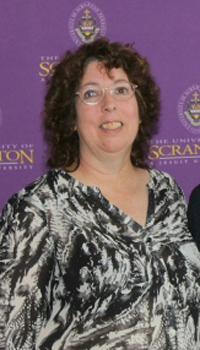 Also to “knockout” the gene of interest, Dr. Dwyer explained that they use CRISPR — a technology that makes nonfunctional a particular gene, silencing the gene of choice — to see the effect on the plant’s biology. For example, some of the CRISPR plants wherein the SCRL7 gene has been silenced, are severely stunted. That is to be expected if the function of their vascular system has been impaired by lack of the SCRL7 protein. Her Molecular Biology 2 lab students are making the CRISPR constructs. Thus, they are all contributing to this research.
Also to “knockout” the gene of interest, Dr. Dwyer explained that they use CRISPR — a technology that makes nonfunctional a particular gene, silencing the gene of choice — to see the effect on the plant’s biology. For example, some of the CRISPR plants wherein the SCRL7 gene has been silenced, are severely stunted. That is to be expected if the function of their vascular system has been impaired by lack of the SCRL7 protein. Her Molecular Biology 2 lab students are making the CRISPR constructs. Thus, they are all contributing to this research.The Research Seminar Series was established to meet the need for a time and place for faculty and staff research information exchange. It began with a research presentation on February 4, 2005. In its essence, the series is intended to build community and collegiality by setting the venue for faculty members to communicate to others just what they do.
Faculty, find out more about the seminar series and upcoming talks, here.
Faculty Members Present Research to Peers
-
11/13/2018
Gretchen J. Van Dyke, Ph.D., associate professor of political science at The University of Scranton, was selected as a 2018-19 Resident Scholar at the Collegeville Institute for Ecumenical and Cultural Research in Collegeville, Minnesota.
Dr. Van Dyke joins just nine other scholars from across the nation who will spend a semester or academic year at the institute that supports “scholarly research that would nurture the best Protestant, Catholic, and Orthodox theology.” Through the program, resident scholars will pursue independent research within a context of inquiry and prayer “rooted in the Benedictine rhythm of Saint John’s Abbey.” Dr. Van Dyke will research an edited collection project titled “Teaching Mission as a Vocation in the Jesuit Tradition.”
“Utilizing case studies, (the collection) will present how faculty in Jesuit colleges and universities practice their disciplinary expertise in classroom settings while also engaging students in fundamental principles of Ignatian spirituality and Jesuit education,” said Dr. Van Dyke, who noted the project will build upon her nearly 25 years of experience as a faculty member at the University and her 20 years of involvement in the Lilly Fellows Program in Humanities and the Arts, which is an initiative that seeks to strengthen the quality and shape the character of church-related institutions of learning.
Dr. Van Dyke, has served as the University’s faculty representative to the Lilly Fellows Program since 2000. She also serves as a mentor for the Lilly’s Graduate Fellows Program and has previously served as a national board member for the program.
Dr. Van Dyke joined the political science faculty at Scranton in 1994. In addition to teaching a number of courses related to international relations and American government, she has also taught and developed courses that address contemporary questions of social justice and humanitarianism.
In 2011, Dr. Van Dyke completed the Ignatian Colleagues Program (ICP), an 18-month formation program in Ignatian spirituality and Jesuit education offered by the Association of Jesuit Colleges and Universities. ICP provided the foundation for her first-year seminar course, Ignatian Citizenship and Contemporary Political Issues, which she first offered in 2012. In addition, she and her students have participated in the Mid-Atlantic European Union Simulation program since 1996. She received the University’s 2013 Excellence in Integrating Mission and Justice into the Curriculum Award.
Dr. Van Dyke earned her bachelor’s degree from Trinity College, and her master’s degree and Ph.D. in foreign affairs from the University of Virginia.
Professor Named Collegeville Institute Scholar
-
11/13/2018
What can Mark Twain and Emily Dickinson teach us about autism? Debra Pellegrino, Ed.D., dean of the Panuska College of Professional Studies, answers this question in a recent op-ed about the newly-formed Autism Collaborative Centers of Excellence. The University will serve as the executive hub of the five family-friendly centers that serve 13 counties in Northeast and Central PA.
What Mark Twain and Emily Dickinson can teach us about autism
By Debra A. Pellegrino
Many believe that Mark Twain’s brilliance was driven as much by autism as it was
by literary genius. Alas, Twain passed away in 1910, more than three decades before Autism Spectrum Disorder, or ASD, was clinically identified.Twain is but one of many brilliant exemplars of famous and not so famous gifted individuals who made the most of this somewhat elusive disorder.
American child psychologist Leo Kanner in 1943 described ASD as its own condition, but today we know that the lists of causes, effects
and Research has shown us that autism comprises a wide variety of different behaviors, skills, abilities
and disabilities, as well as numerous signals for diagnosing the condition.Continue reading Dean Pellegrino's op-ed on Penn Live here.
Hear her discuss the Autism Collaborative Centers of Excellence on "Newsmakers" here.
Dean Pellegrino Speaks about Autism Collaborative Centers of Excellence
-
11/07/2018
The Office of Research and Sponsored Programs (ORSP) has a monthly and once during the summer raffle for members of the University who submit external grant proposals. This month the winner is Ana Ugarte, Ph.D., World Languages and Cultures Department.
ORSP will randomly select a name from all faculty and staff members who have applied for an external grant during that time period. The winner receives a $25.00 gift card.
ORSP October 2018 Raffle Winner: Ana Ugarte, Ph.D.
-
10/31/2018
This article originally appeared in The Scranton Journal, which you can read online at scranton.edu/journal.
Mike Mensah, Ph.D., speaks about his years as dean of KSOM.
After 13 years, you have stepped down from your position as dean of KSOM. You’ve done everything from launch new programs to promote the development of ethical and just business leaders. What achievement is closest to your heart?
I am, of course, very proud of the culture of productivity, innovation
and collegiality created by the Kania community. However, sometimes it is the so-called “small things” that stick with you the most. With the guidance of the SBDC staff, The Women’s Entrepreneurship Center engages our students to help lower-income women in our region start and grow their own businesses. There is nothing closer to my heart than the work done here to transform real lives.You joined the accounting faculty more than 30 years ago. Tell us how KSOM has grown and/or changed over the years.
I think the heart and focus of the KSOM have not changed since I got here 30-some years ago. We were, and are still, a very collaborative team and very student-centered. What has changed is that we are much bigger and have become more intentional and organized. We work within formal and ambitious strategies to provide the best student experience and move the Kania School toward the top of our peer group in quality and impact. We are now a nationally ranked business school.
How has getting a business degree changed in the past few decades?
I would say that in a way it has become more complex. The business world has become so much more challenging with globalization and attendant intensification of competition, mind-boggling developments in technology, incredibly complex financial products and markets and many more innovations. Students must build the foundation for functioning in this new world of business within the same four-year period used 50 years ago. In addition, students face much tougher competition to land a good career placement and must prepare themselves more intentionally to meet employer expectations. It is a more challenging process but also more exciting, because there are more resources to support efficient, integrated learning. Technology and more deliberate attention to student learning by business faculty are particularly helpful developments.
Read more, here.
One-On-One with Mike Mensah, Ph.D.
-
10/25/2018
Teaching a Community-Based Learning (CBL) Course or Thinking about Teaching One in the Future? Attend a CBL Clinic Thursday, Nov. 1, 11:30 a.m. - 12:45 p.m. in the Provost's Conference Room hosted by the Office of Community-Based Learning.
This workshop will give faculty the opportunity to share tips, techniques, and community connections for teaching community-based learning courses with other CBL faculty and members of the Community-Based Learning Board. No past experience of CBL is necessary! Best practices and lessons learned welcome! Bring your questions and examples of CBL Courses.
Lunch will be provided.Questions - Contact: Meghan Ashlin Rich, Faculty Coordinator of the Office of CBL: meghan.rich@scranton.edu.
RSVP to sharon.olechna@scranton.edu.
Community-Based Learning Clinic Nov. 1 Luncheon
-
10/24/2018
A political science professor from the University of Scranton is an expert on Central America. He's using current events in the classroom and getting his students to understand what is happening in that region of the world.
Michael Allison is a political science and Latin American politics professor at the University of Scranton. He has traveled to Central America for the last 20 years, spending quite some time in Guatemala, El Salvador, and Honduras.
"It's a region I feel very passionate about, and help our students better understand what's going on in the region," Allison said.
Like many Americans, Allison is watching closely as the caravan of 7,000 continues toward the U.S.
"For the last four years, we've seen a real increase in the numbers of Central Americans coming to the U.S., and there's been an effort by our students to understand why people, particularly from El Salvador, Guatemala, and Honduras, are coming to the United States," Allison said.To see this story from WNEP, click here.
Professor Discusses Central America Migrant Caravan
-
10/16/2018
Although I was born and raised in Madrid, Spain, my teaching and research
focuses on twentieth andtwenty-first century Latin American literature with a primary focus on Hispanic Caribbean fiction and Indigenous cultures and languages from Mexico. I earned mylicenciatura in Spanish Philology from the Universidad Complutense de Madrid, and my Ph.D. in Romance Studies from Duke University. My research interests also include Postcolonial Studies, Disability Studies, and the emerging field of Medical—or Health—Humanities. In my dissertation, I examined the representation of illness, disability, and healing processes in contemporary works of fiction from Cuba and Puerto Rico. I explored how authors from the early twentieth century to the present expose the historical functioning of tropical territories as laboratories for political, economic, and scientific experimentation. I looked into landmark Caribbean novels, such as José Lezama Lima’s Paradiso, but I also examined the tropes of paranoia and hypochondria in pop culture and recent works of science fiction.This fall I am very excited to teach a course deeply connected to these topics, entitled “Fictions of the Body.” In this class, students use a wide variety of materials that include short stories,
art works , films, graphic novels, and reality shows to examine discourses of illness, monstrosityand contagion in Latin andLatinx America. We explore creativity and artistic practices shaped by the experiences of disease and disability, while also discussing how these representations intersect with issues of gender, sexuality, migration, raceand class.During my Ph.D., I became very interested in indigenous healing practices. I, therefore, learned Yucatec Maya, an indigenous language spoken in the Yucatán peninsula, in Mexico, which reminded about the hardships of studying a new language from scratch, and —I would like to believe—made me a more empathetic language instructor. Acquiring a deeper knowledge of Yucatec Maya also helped me understand indigenous conceptualizations of the body, disease and cure and the struggles these communities face to translate some of these concepts to Western biomedical practices. In the future, I look forward to teaching classes on indigeneity in Latin America, as well as service-learning courses. I am also working on a syllabus for a class on the 1959 Cuban revolution through its films, texts, and visual arts.
New World Languages and Cultures and Latin American Studies Faculty Member Ana Ugarte
-
10/10/2018
This article originally appeared in Information Update, the Library newsletter.
Colleen Farry joined the faculty of the Weinberg Memorial Library in July 2018. She moved from her position as Special Collections assistant to the position of Digital Services
librarian . Farry originally joined The University of Scranton as a Library metadata specialist in the Helen Gallagher McHugh Special Collections in 2015. As Digital Serviceslibrarian , she appraises, publishes and preserves digital content related to the University Archives and Special Collections in the Library’s digital collections and web archives.Farry is a graduate of Marywood University, where she completed her Bachelor of Fine Arts in interior architecture and design. After working for two years at an architectural firm in Scranton, she earned dual master’s degrees at Syracuse University, concentrating on the history of 20th-century art and architecture. She also has a master’s degree in library and information science from the University of Illinois at Urbana-Champaign. Prior to coming to the University, she held positions at the Harvard University Center for Italian Renaissance Studies in Florence, Italy, Pace Gallery, Artsy, and the Law Library of Congress.
Read Information Update, here.
New Digital Services Librarian Joins Library Faculty
-
10/10/2018
The University of Scranton has appointed 22 new full-time faculty members for the 2018-2019 academic year.
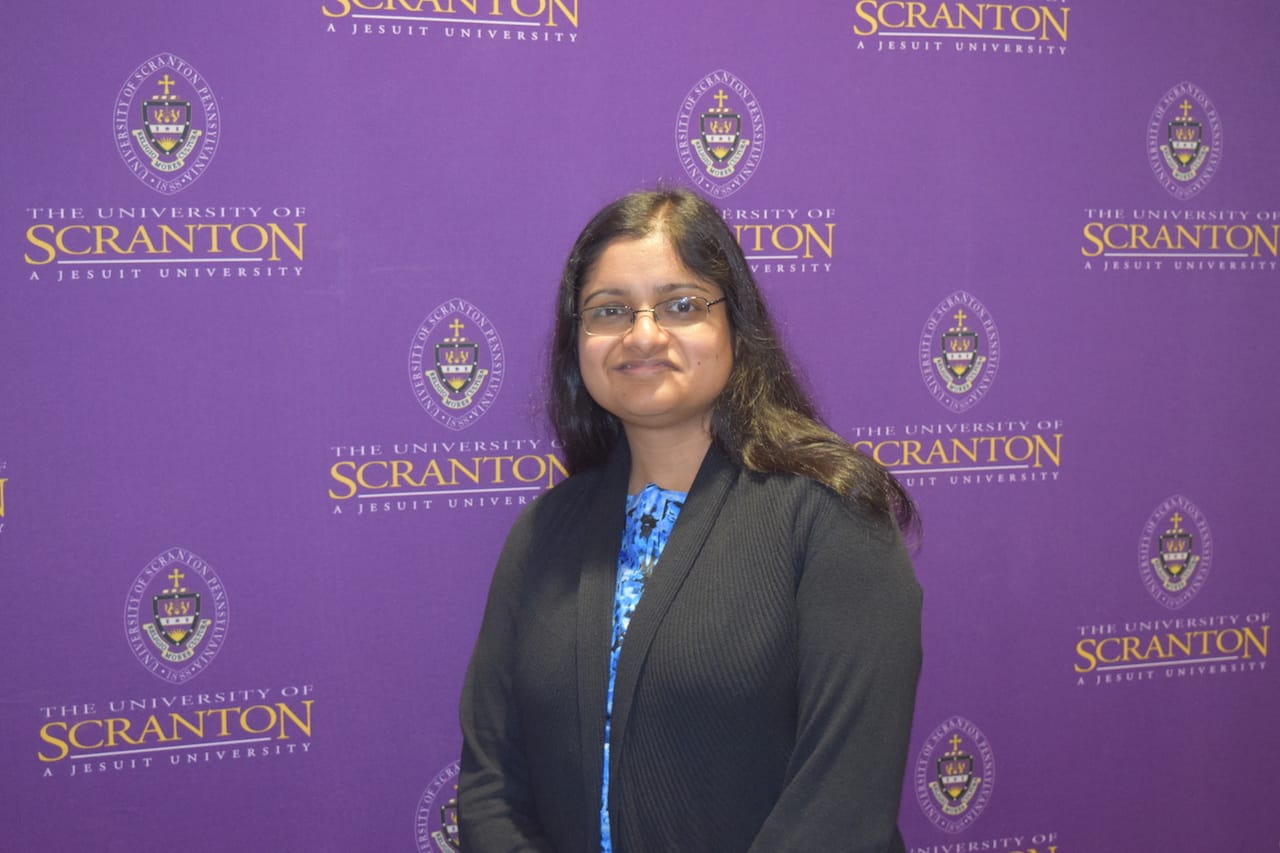
Gunjan Bansal
Gunjan Bansal (photo above) of Dunmore was named a faculty specialist in the health administration/human resources department. She earned a doctorate in medicine from Mysore Medical College of Rajiv Gandhi University of Health Sciences in India and a master’s in healthcare administration from The University of Scranton. She is pursuing a Ph.D. in international psychology at the Chicago School of Professional Psychology. She previously worked as a nursing home administrator and has taught as an online associate faculty member of Ashford University Online.
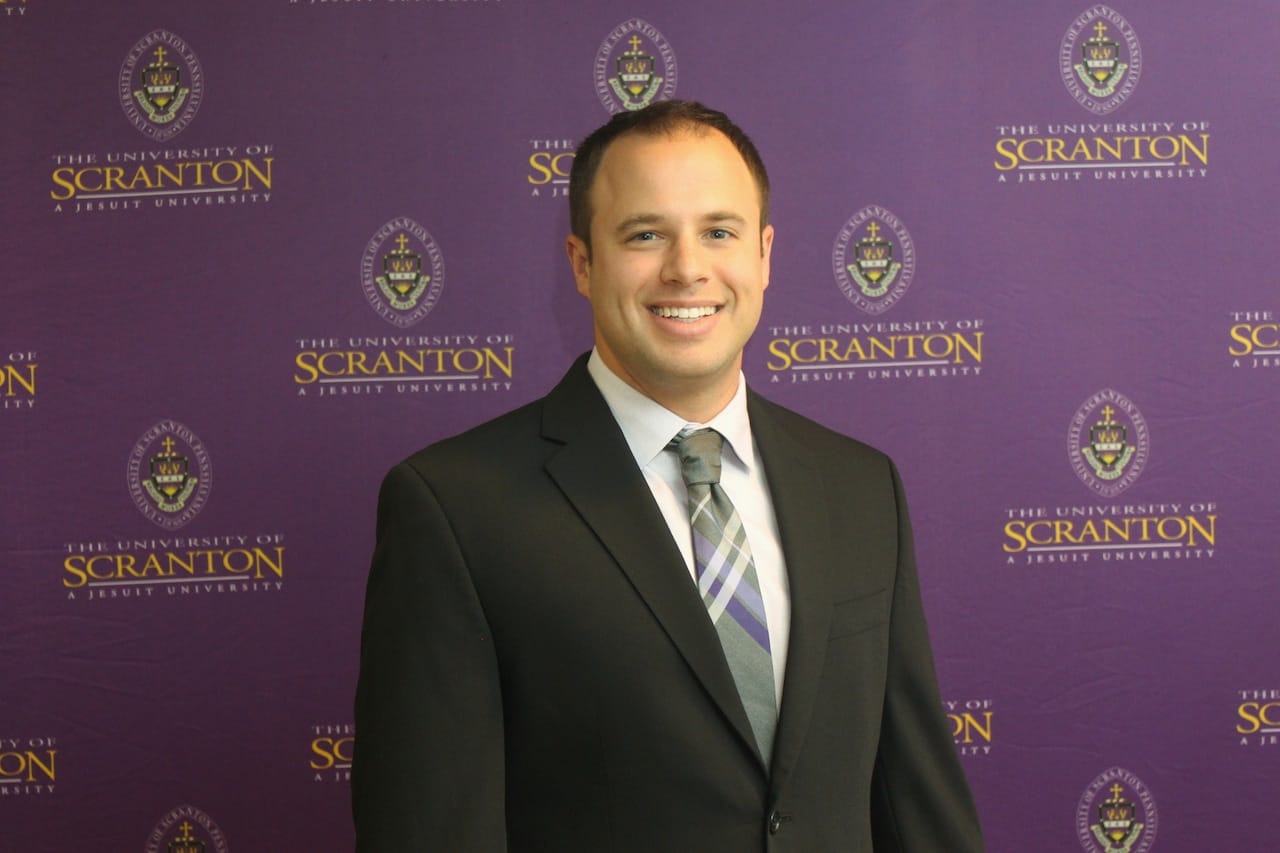
Anthony F. Carusotto, D.P.T.
Anthony F. Carusotto, D.P.T., of Dallas was named an instructor in the physical therapy department. He earned his bachelor’s degree in health sciences and his master’s and doctorate in physical therapy from Misericordia University. Dr. Carusotto previously worked as a physical therapist specializing in both orthopedic and lymphatic therapy. He has also been an adjunct instructor in kinesiology at the University and at Johnson College.
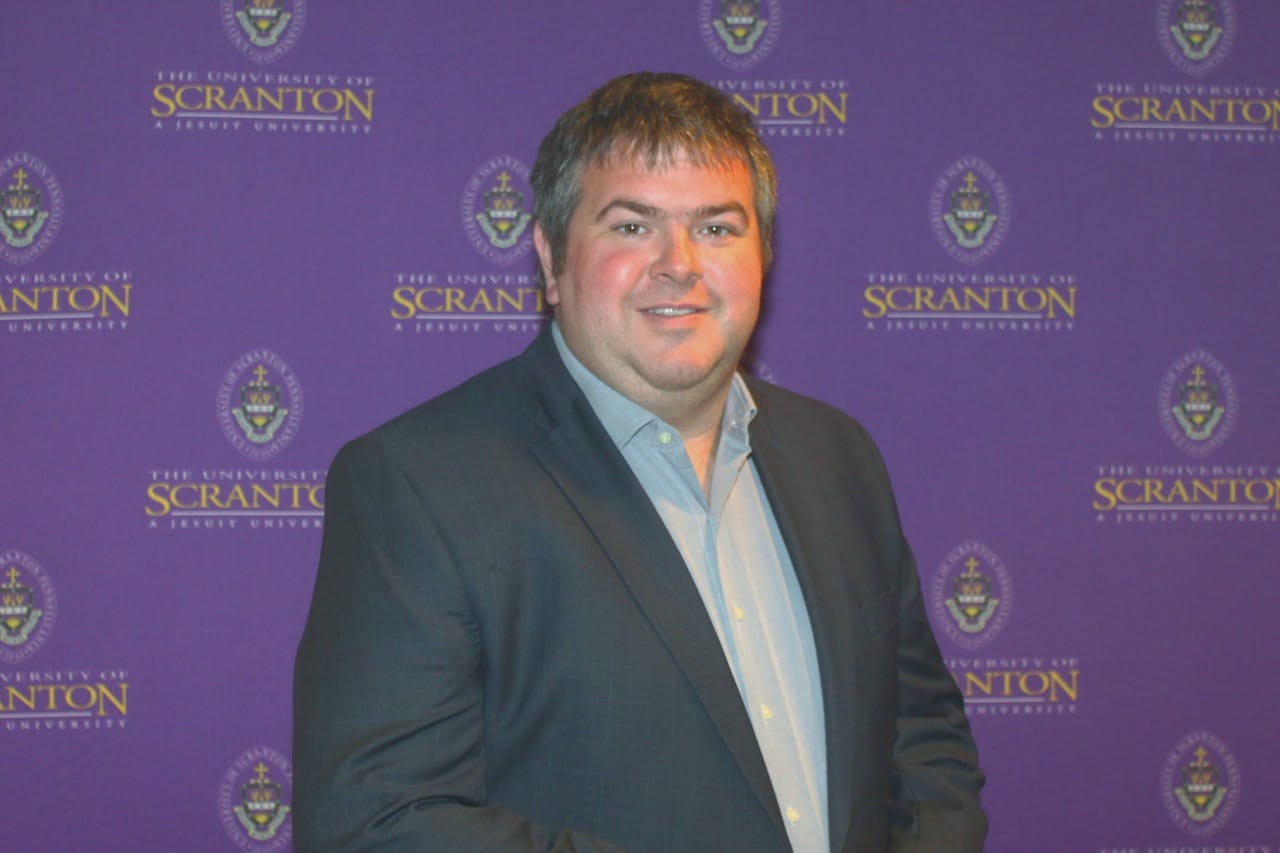
Bryan R. Crable, Ph.D.
Bryan R. Crable, Ph.D., of Ellwood City, Pennsylvania, was named assistant professor of biology. He previously worked as a research scientist at the Air Force Research Laboratory in Dayton, Ohio, and as a postdoctoral fellow at the Oak Ridge National Laboratory, Oak Ridge, Tennessee. Dr. Crable was awarded a Fulbright Fellowship by the Institute for International Education to conduct research at the University of Wageningen in The Netherlands from 2010-2011. He earned a bachelor’s degree in biology from Saint Vincent College and a master’s in biology from Duquesne University. He completed a doctorate in microbiology at the University of Oklahoma. Dr. Crable is active in research with a program that focuses on the physiology of anaerobic bacteria. He is an author or co-author of twelve scholarly publications and, together with his collaborators, he has received nearly 500 citations.
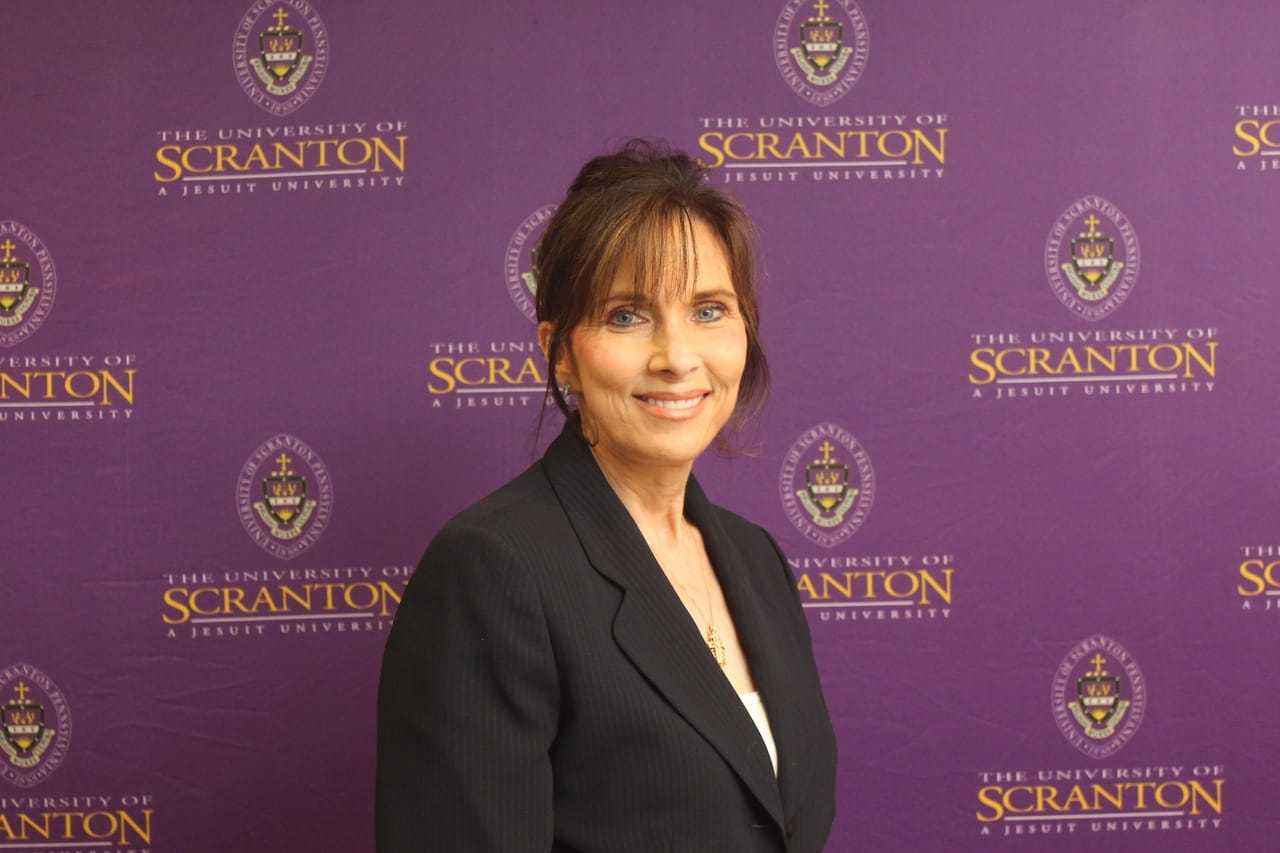
Rita DiLeo, D.Sc.
Rita DiLeo, D.Sc., of Factoryville was named assistant professor in the health administration and human resources department. She has worked in the department as a faculty specialist and field coordinator since 2008. Dr. DiLeo recently completed her doctorate in health services administration at the University of Alabama-Birmingham. She earned a master’s degree in public administration at Marywood University, and a bachelor’s in health administration at the University of Scranton. Dr. DiLeo is trained as a special procedures and interventional radiology technologist and is a Certified Radiology Administrator (CRA) and Balanced Scorecard Professional (BSP).
Christopher P. Gillett, Ph.D., was named assistant professor of history. He completed a doctorate in history at Brown University, where he also earned a master’s in history and served as a teaching assistant and visiting assistant professor. Professor Gillett’s bachelor’s degree, from Rutgers University, is in history, journalism and media studies, and political science. His doctoral dissertation is titled “Catholicism and the Making of Revolutionary Ideologies in the British Atlantic, 1630-1673.”
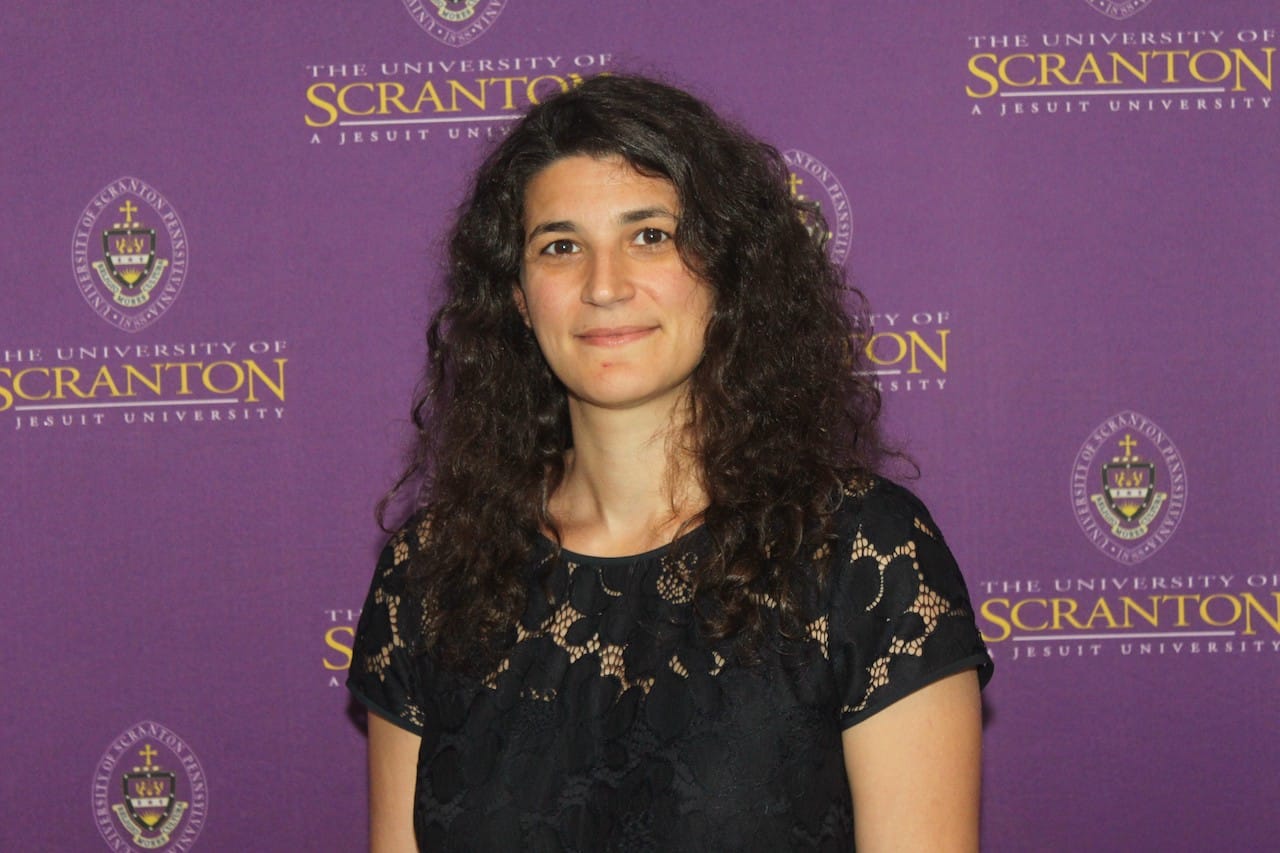
Eleni Gousgounis, Ph.D.
Eleni Gousgounis, Ph.D., was named associate professor in the economics and finance department. She previously taught finance for several years at the Stevens Institute of Technology. She has also conducted research for the U.S. Commodity Futures Trading Commission. Dr. Gousgounis received both her doctorate and master’s degrees in finance from Baruch College. She earned a bachelor’s degree in economics and finance at Athens University of Economics and Business in Athens, Greece.
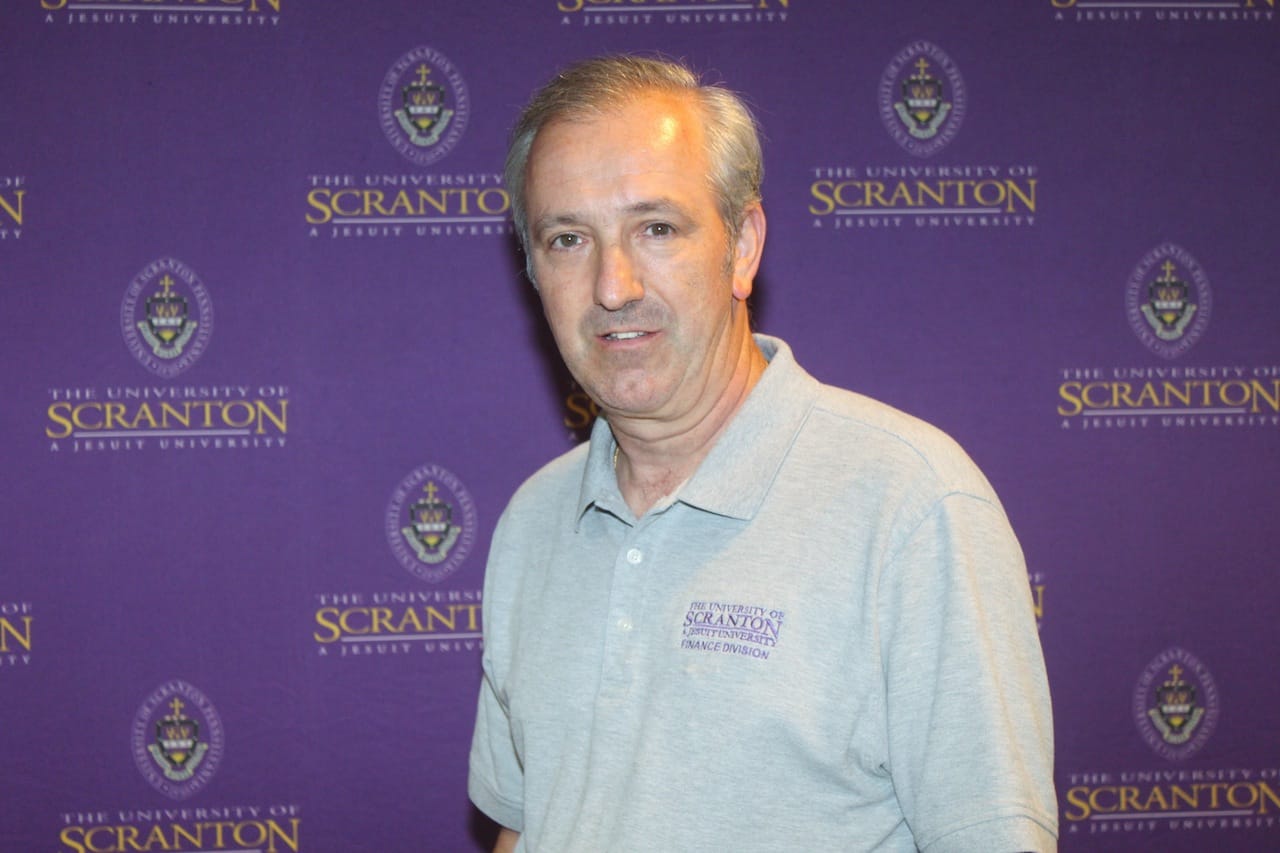
Andrew J. Gregorowicz
Andrew J. Gregorowicz of Jessup was named faculty specialist in the accounting department. He has worked for the University as a financial analyst since 2001 and has also served as an adjunct accounting instructor since 2005. Prior to that, he was the international controller for Harcourt Learning Direct, Scranton. Professor Gregorowicz earned a bachelor’s degree in accounting from The University of Scranton and an MBA in financial management from Pace University.
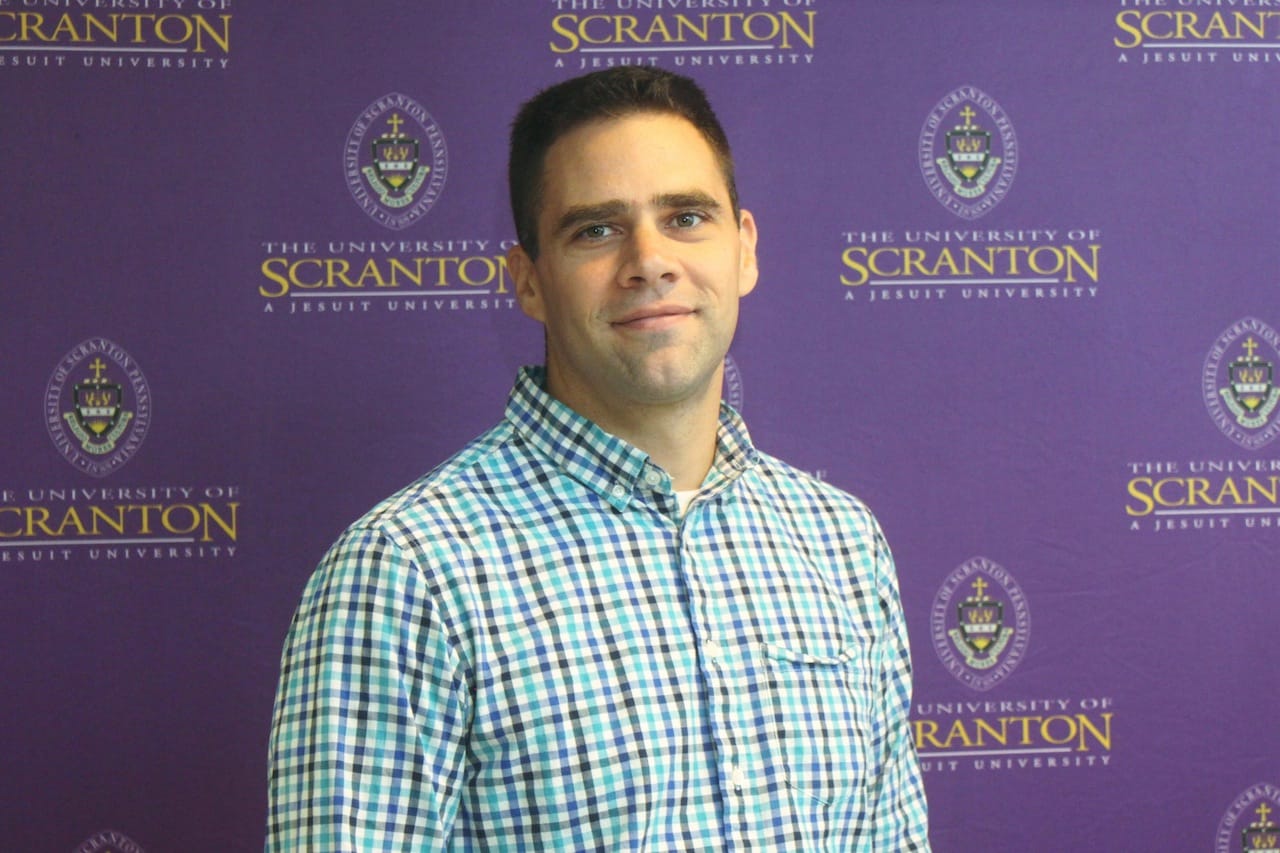
Christopher Haw, Ph.D.
Christopher Haw, Ph.D., South Bend, Indiana, was named as assistant professor in the theology department. He completed a doctorate in theology and peace studies at the University of Notre Dame. An author of two books, for more than 15 years he has served as an independently contracted lecturer at universities and seminaries around the United States. Professor Haw earned a master’s in theology and religious studies from Villanova University and a bachelor’s in theology and sociology from Eastern University.
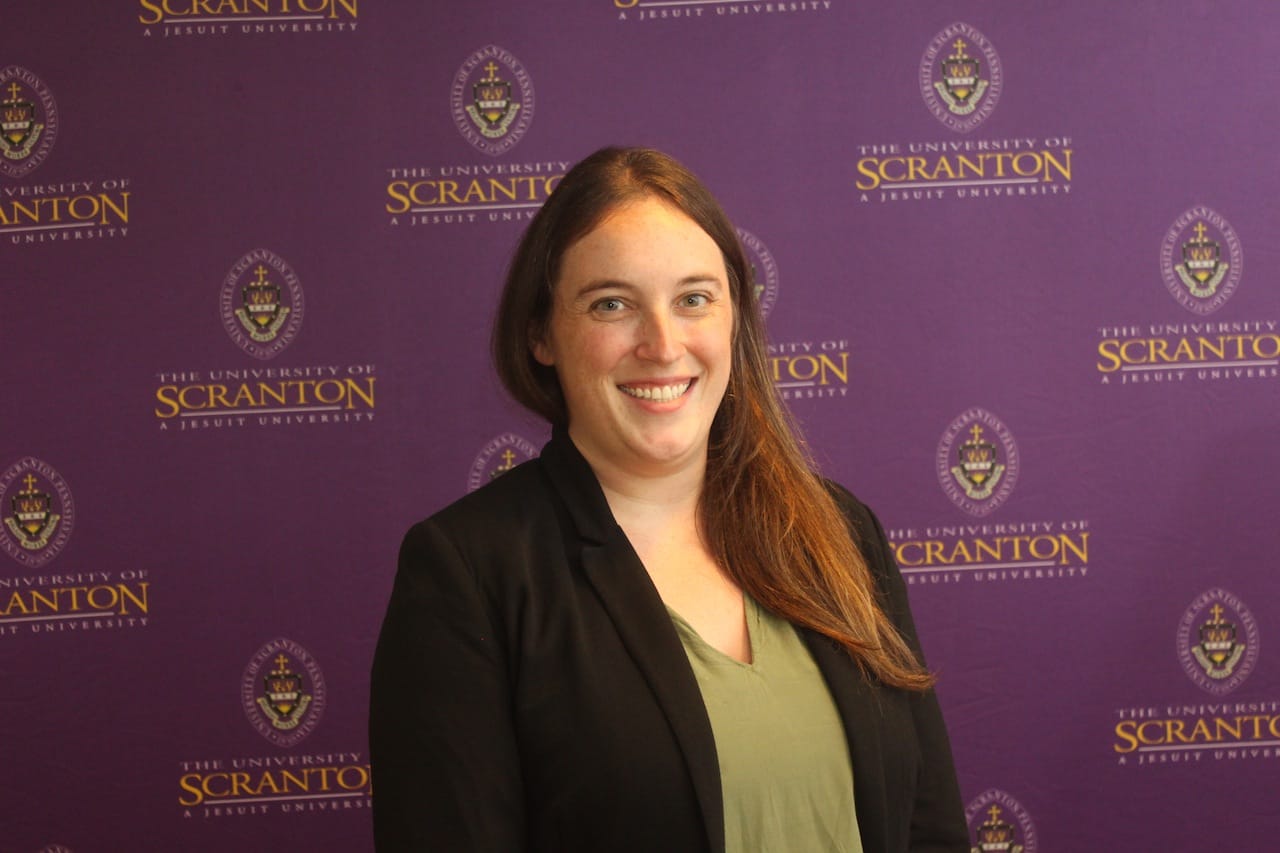
Emily J. Hopkins, Ph.D.
Emily J. Hopkins, Ph.D., of Scranton was named assistant professor of psychology. Most recently she was a post-doctoral fellow at Temple University for two years, and before that, at the University of Pennsylvania. Dr. Hopkins earned a bachelor’s degree in cognitive neuroscience at Brown University. She completed her master’s and doctoral degrees in psychology at the University of Virginia, where she received a presidential fellowship. She has published numerous articles in scholarly journals.
Hengameh Hosseini, Ph.D., was named assistant professor in the health administration and human resources department. She comes to Scranton from the Penn State Hershey College of Medicine, where she was an assistant professor of public health sciences. Prior to that, she was a health administration professor at Penn State University and Seton Hall University. Dr. Hosseini holds a doctorate in health promotion from Marywood University, a master’s in accounting and finance from Kings College, and a bachelor’s degree in management from the University of Tehran.
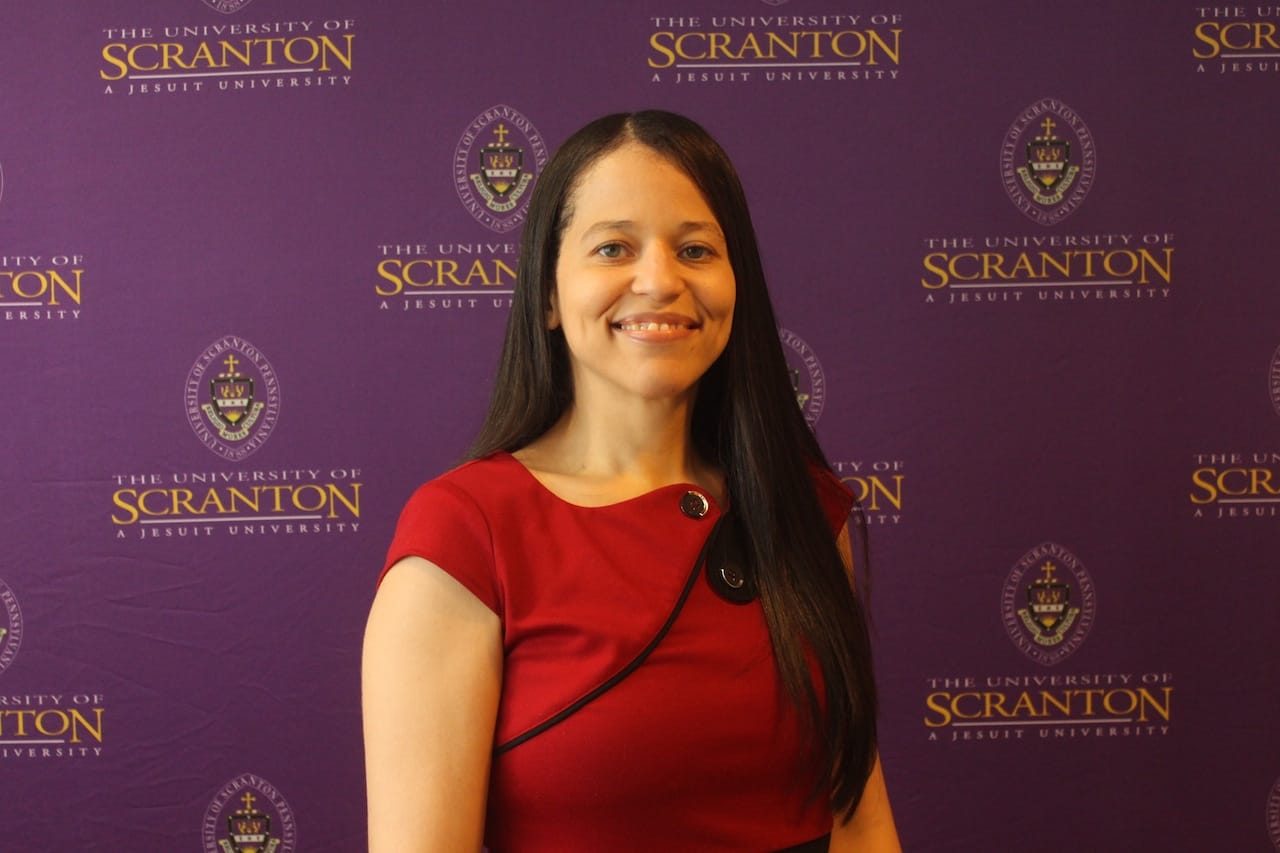
Gail N. Kemp, Ph.D.
Gail N. Kemp, Ph.D., of Scranton was named visiting assistant professor of psychology. She has been an adjunct instructor at the University and a teaching fellow at Boston University. Dr. Kemp earned a bachelor’s degree in African-American studies at Harvard College. She earned master’s degrees in public health and clinical psychology from Boston University, as well as a doctorate in clinical psychology.
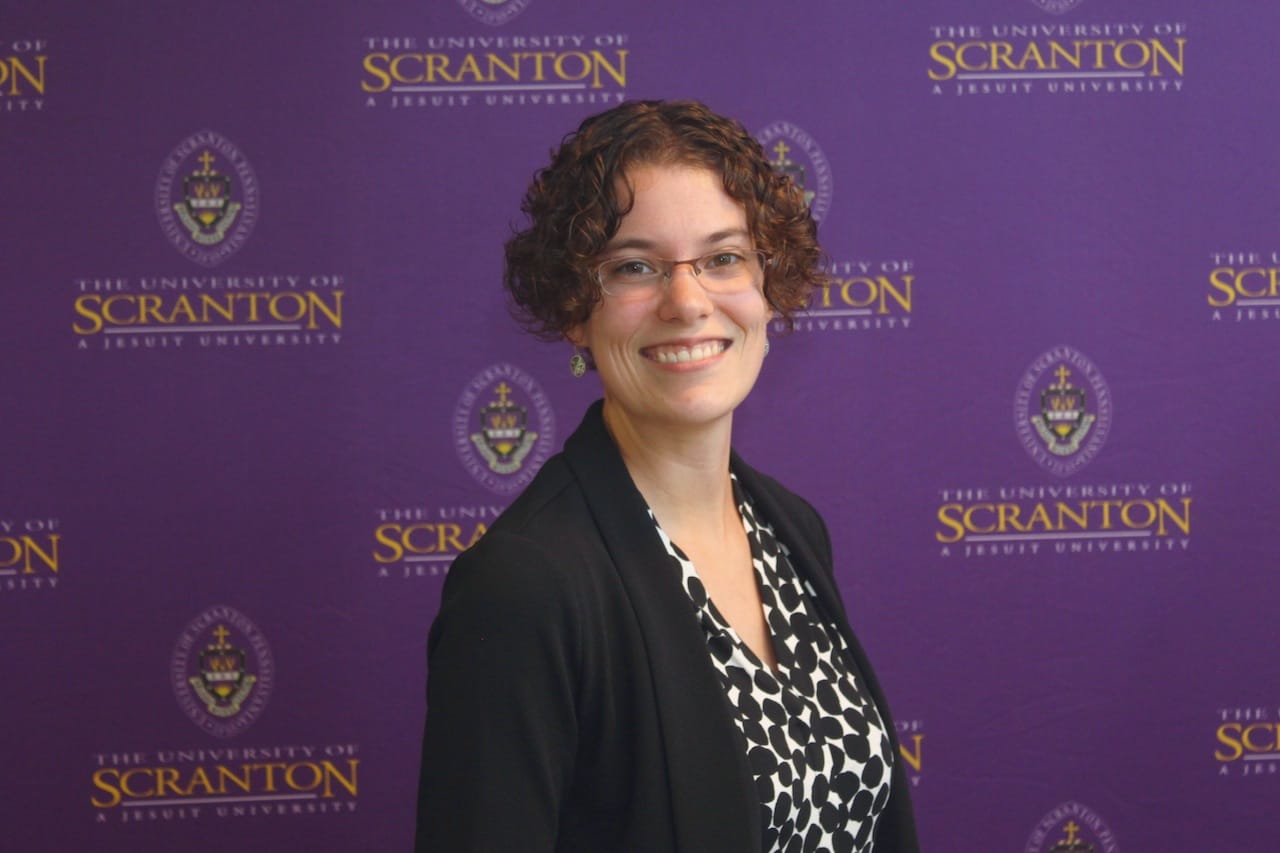
Cara A. Krieg, Ph.D.
Cara A. Krieg, Ph.D., was named assistant professor of biology. She earned a doctorate in zoology, ecology, evolution biology and behavior from Michigan State University and a bachelor’s degree in biology from Grinnell College. She was previously a postdoctoral research associate and graduate researcher at Michigan State. She has published several articles in academic journals.
Aiala Levy, Ph.D., was named assistant professor of history. She was previously a visiting assistant professor. Dr. Levy received a bachelor’s degree in Latin American history from Princeton University, and master’s and doctoral degrees in Latin American history from the University of Chicago. She has presented her research at conferences in Portugal, Great Britain, Brazil, and Argentina and throughout the United States.
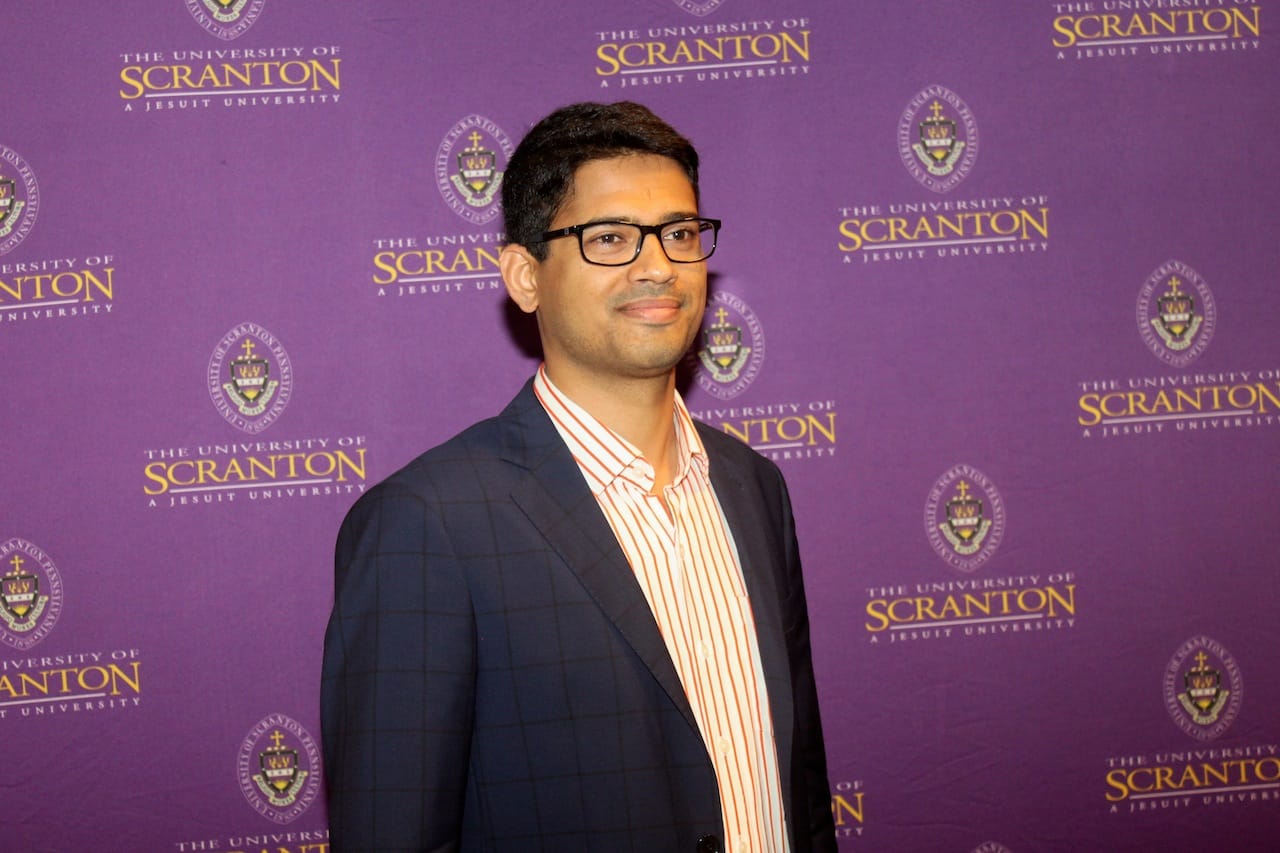
Mohammad A. Maktoomi, Ph.D.
Mohammad A. Maktoomi, Ph.D., of Muzaffarpur, India, was named assistant professor in the physics and electrical engineering department. He comes to Scranton from the University of Calgary, Canada, where he was a postdoctoral scholar. Dr. Maktoomi holds both doctoral and master’s degrees in electronics and communications engineering from the Indraprastha Institute of Information Technology Delhi, in New Delhi, India. He received a bachelor’s degree in electronics engineering from Aligarh Muslim University in Aligarh, India.
Amanda Sue Marcy of Clifford Township was named assistant professor of accounting. She was previously a faculty specialist in the department and worked prior as an accountant for Baker Tilly Virchow Krause, LLP. Professor Marcy earned both a bachelor’s degree in accounting and an MBA specialized in accounting from The University of Scranton, and she is currently pursuing her doctorate of business administration in accounting at The University of Scranton. She is a certified public accountant in the state of Pennsylvania and is a member of the American Institute of Certified Public Accountants, the Pennsylvania Institute of Certified Public Accountants, the American Accounting Association and the Healthcare Financial Management Association.
John C. O’Bell of Scranton was appointed as a faculty specialist in the counseling and human services department. A licensed professional counselor, O’Bell earned his bachelor’s degree and master’s degree in community counseling from The University of Scranton. He also earned a Master of Divinity from Christ the King Seminary. A former a member of the Diocese of Scranton clergy, O’Bell has worked as a self-employed counselor for nearly a decade and has taught as an adjunct faculty member at Scranton.
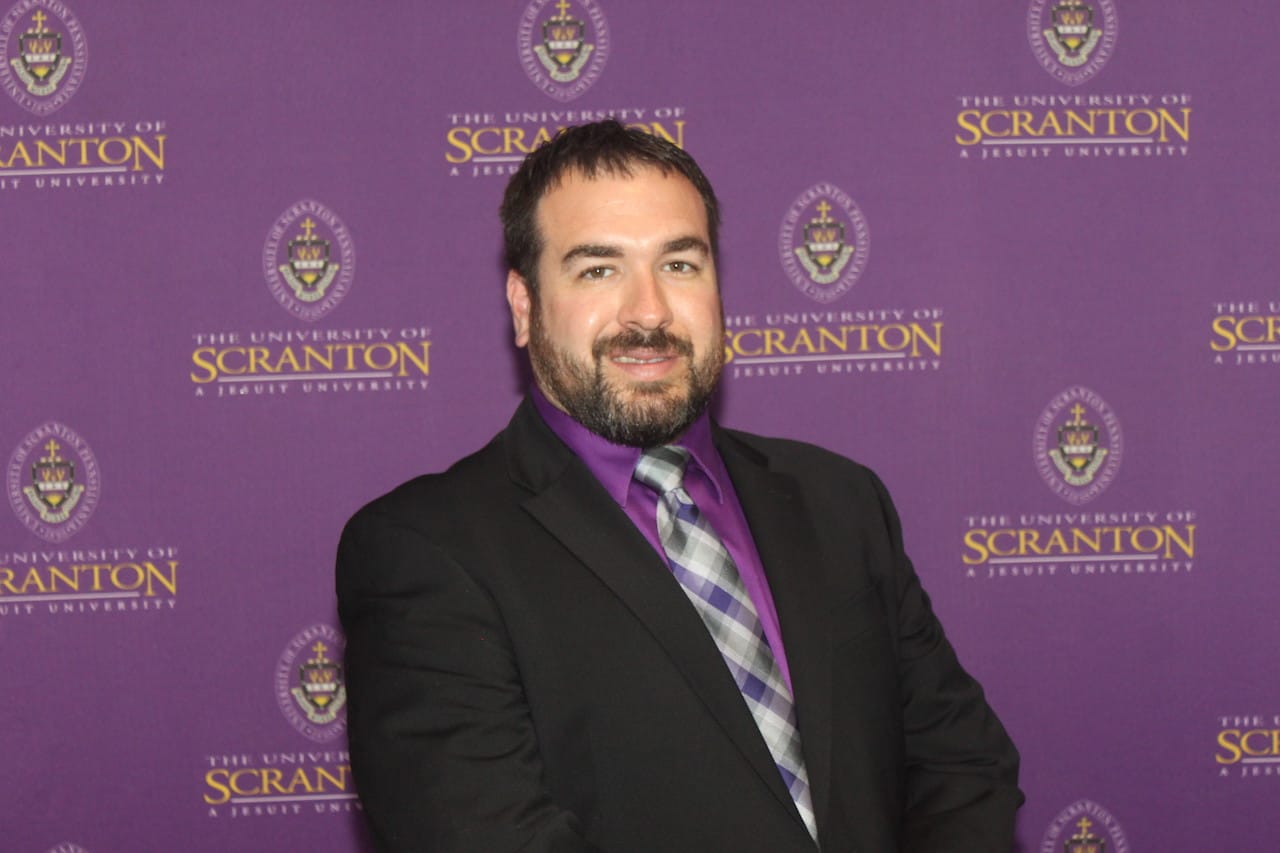
Nicholas Rodio, D.P.T.
Nicholas Rodio, D.P.T., of Jessup was appointed as an instructor in the physical therapy department. He comes to the University from ProCare Physical Therapy, where he worked as a staff physical therapist, program director, and facility director for the past eight years. He earned a bachelor’s degree in exercise science and a doctorate of physical therapy from The University of Scranton.
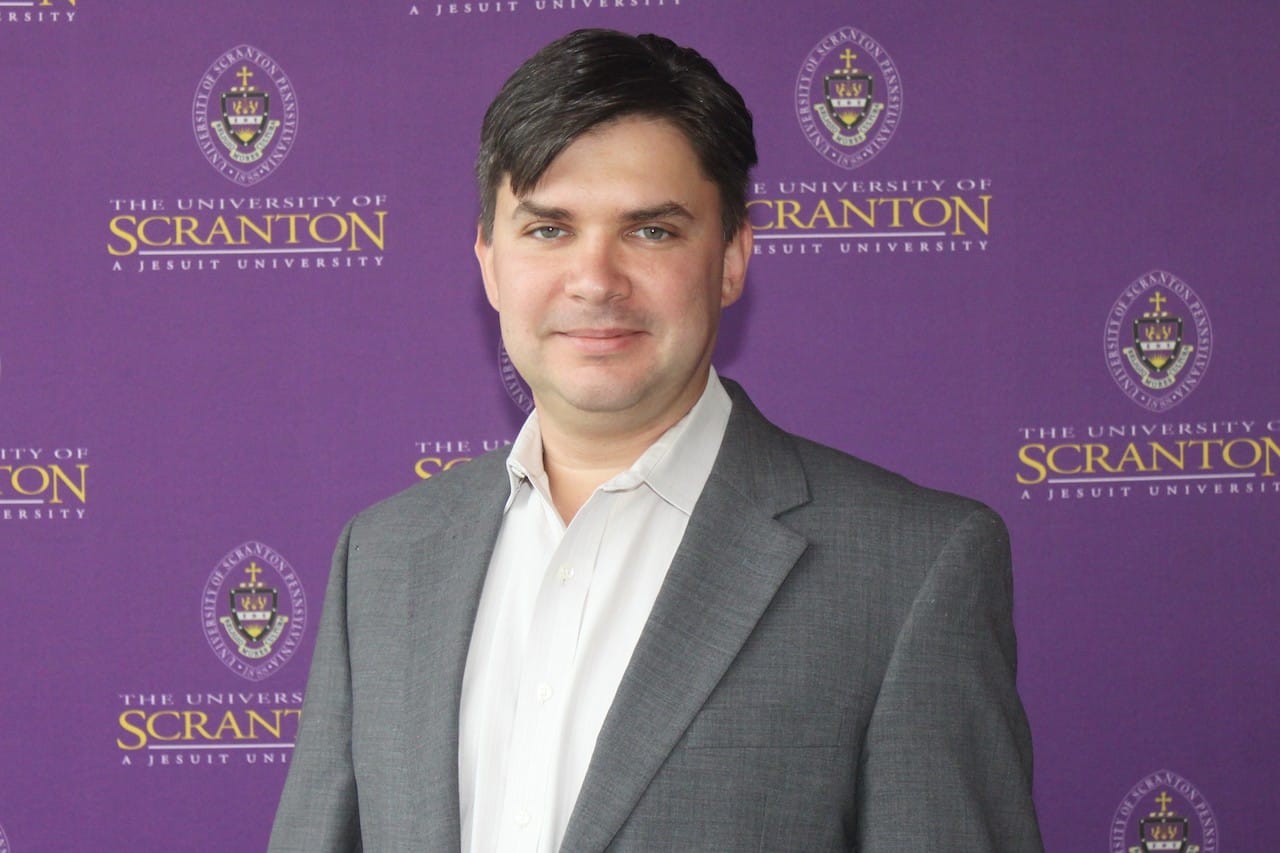
Oleksandr (Alex) Rudniy, Ph.D.
Oleksandr (Alex) Rudniy, Ph.D., of Greentown was named assistant professor of computer science. He holds bachelor’s and master’s degrees in applied mathematics, both from Kharkiv National University of Radioelectronics, Ukraine. He earned a doctorate in computer science from the New Jersey Institute of Technology. Dr. Rudniy was previously an assistant professor at Fairleigh Dickinson University and completed research with the National Science Foundation and National Security Agency.
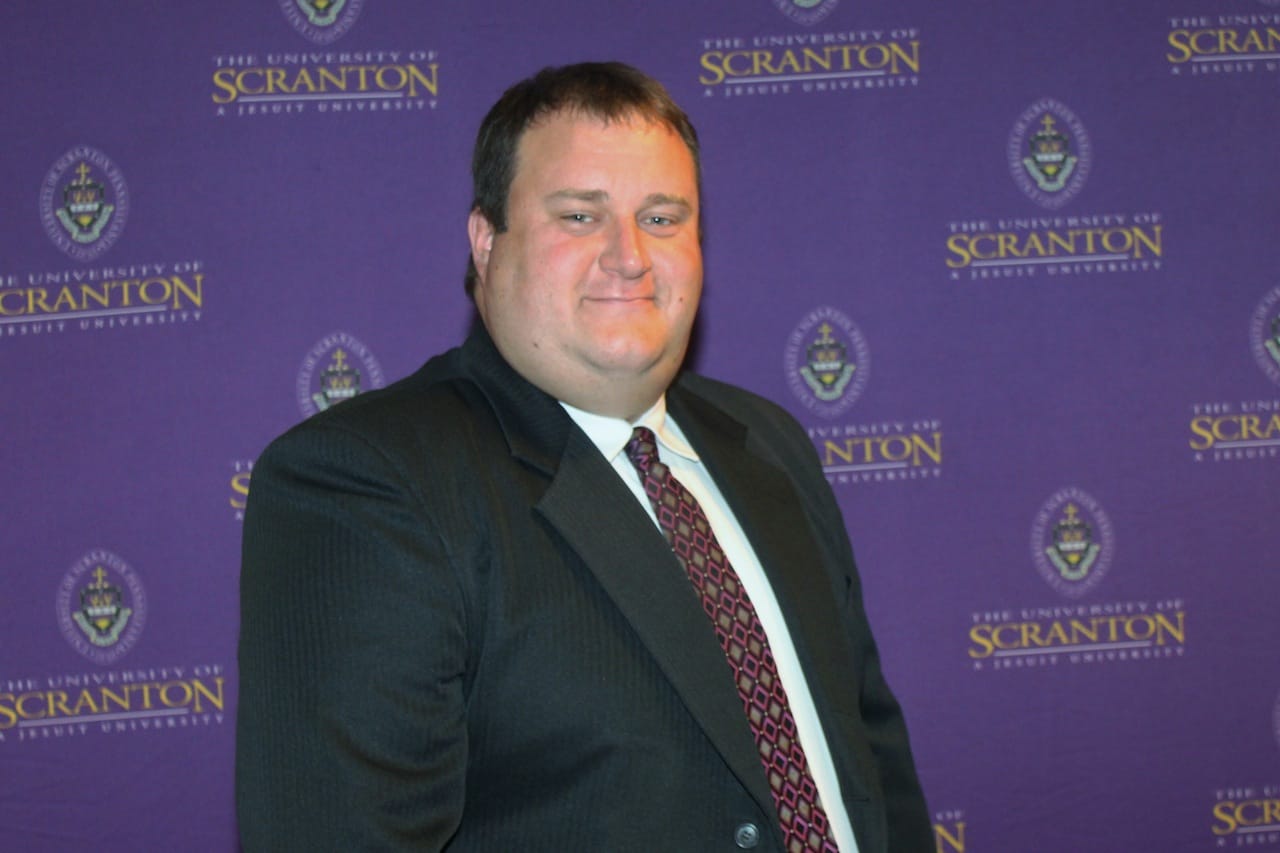
Jason A. Shrive, Esq.
Jason A. Shrive, Esq., of Scranton, was named assistant professor in the sociology, criminal justice and criminology department. Atty. Shrive was most recently the executive director and solicitor of the Scranton Sewer Authority, subsequent to serving as the Scranton City Solicitor and Deputy Mayor of Scranton. He maintains a private law practice, Shrive Law, LLC, where he focuses primarily on Criminal Defense and Family Law. He earned a bachelor’s degree in political science from The University of Scranton and a Juris Doctorate from Stetson University College of Law. Prior to being appointed as an assistant professor, Atty. Shrive taught as an adjunct professor at The University of Scranton from 2016-2018.
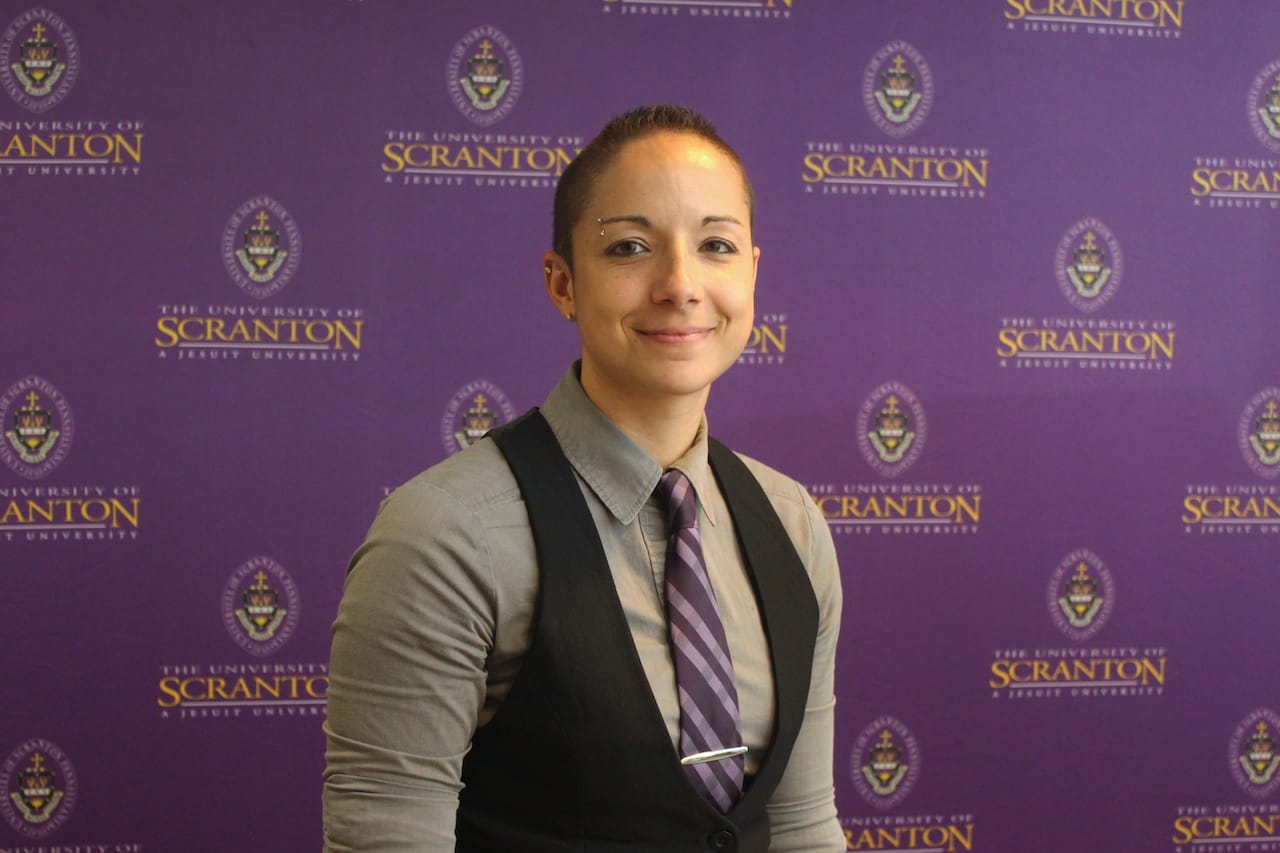
Billie R. Tadros, Ph.D.
Billie R. Tadros, Ph.D., was named assistant professor in the English and theatre department. She received a doctorate in English and creative writing from the University of Louisiana at Lafayette. For the past year, she was a lecturer at the University of Alabama in Huntsville. Dr. Tadros earned bachelor’s degrees in creative writing and music from Susquehanna University, and a master’s in creative writing from Sarah Lawrence College. She has published poetry in numerous periodicals and anthologies.
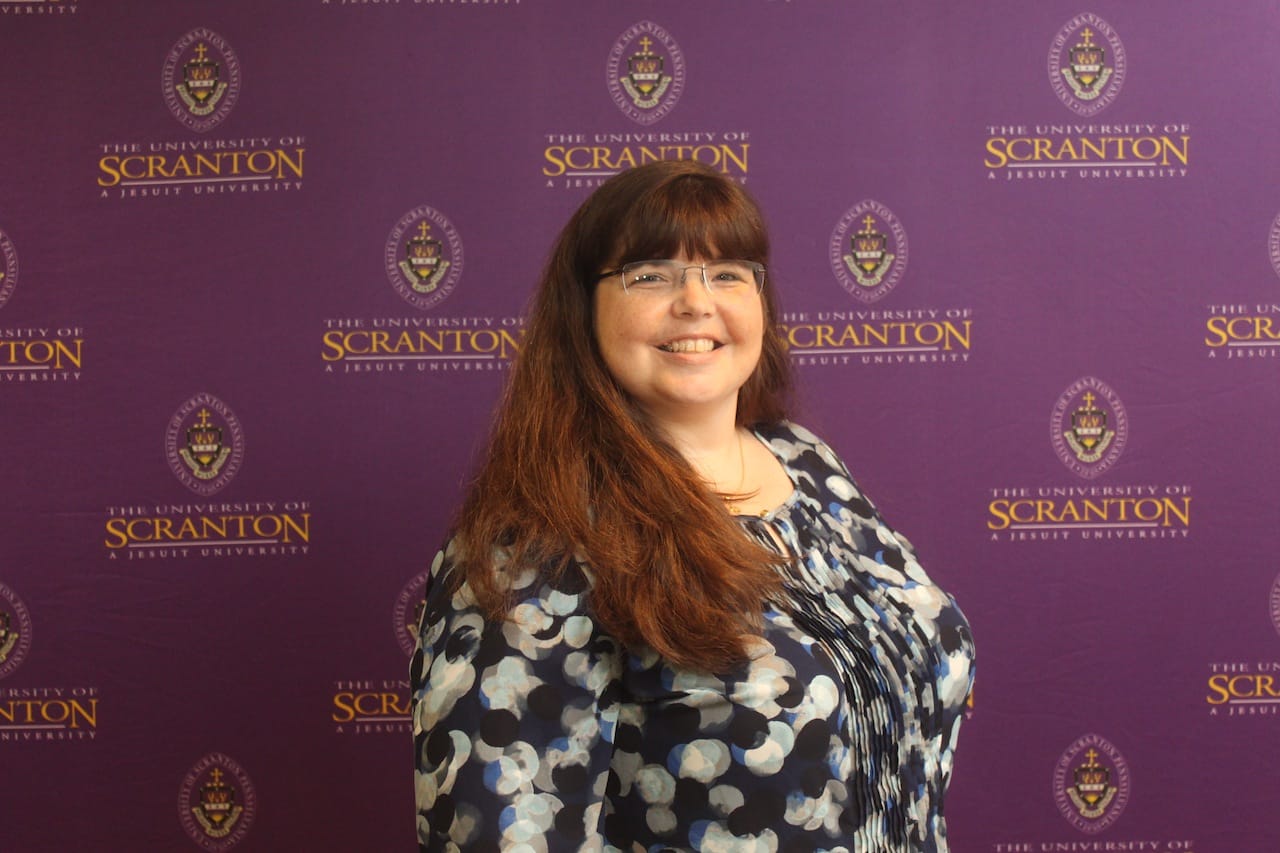
Mary L. Troy, Ph.D.
Mary L. Troy, Ph.D., of Dunmore was named assistant professor in the counseling and human services department. She is a licensed professional counselor and previously worked in private practice with Resilience Counseling Associates. She also taught as an adjunct at the University for 18 years. Dr. Troy earned a bachelor’s degree in history and a master’s in community counseling from The University of Scranton. She earned a doctorate in counselor education and supervision from Regent University.
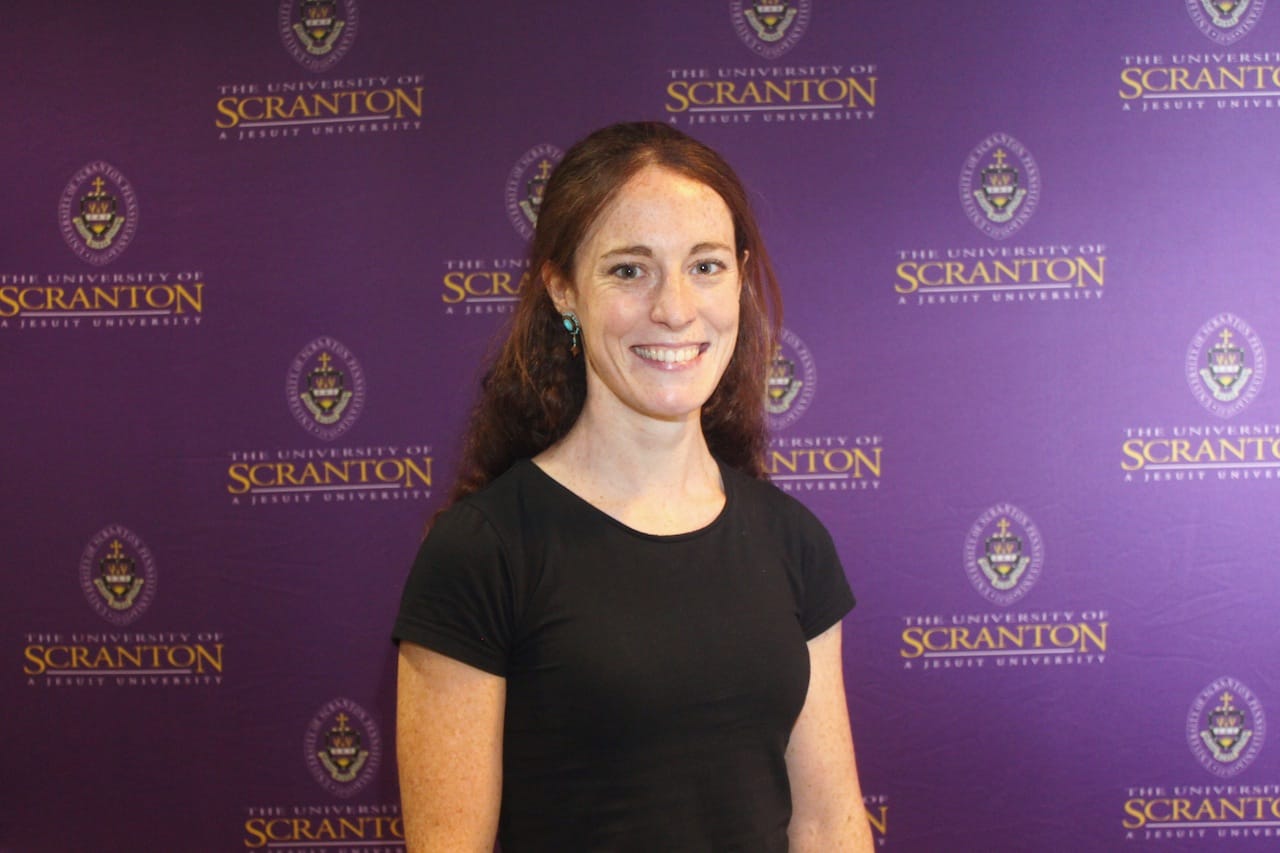
Ana Ugarte Fernandez, Ph.D.
Ana Ugarte Fernandez, Ph.D., of Scranton, formerly of Spain, was named assistant professor in the world languages and cultures department. She previously taught at Duke University, where she completed her doctorate in romance studies and Spanish. She earned a bachelor’s degree in Spanish philology and a master’s in Spanish American literature from Universidad Complutense de Madrid, as well as a bachelor’s in French from Universite Stendhal Grenoble III.
University of Scranton New Faculty Members
-
10/02/2018
When I joined the University of Scranton in the fall of 1987, there was no academic program in women’s or gender studies. There were, however, numerous courses in several departments that focused on women’s experiences through feminist frameworks.
In 1988, the College of Arts and Sciences dean invited faculty members to discuss our interests in a women’s or gender studies program. After an initial meeting attended by dozens of faculty members, the Gender Studies Task Force (GSTF) was established to develop and propose an academic program. I chaired the task force, which successfully proposed an interdisciplinary concentration in Women’s Studies. Personally, I preferred that the program
be titled Gender Studies. Some faculty members suggested we call it Feminist Studies. The GSTF, based on its research and understanding of our University, developed consensus on a Women’s Studies concentration; an academic program that brought together existing University courses that focused on the experiences of women, modes of authority, and feminist theories.With the addition of new faculty and more women’s studies courses over the years, in 2008, the University approved a major in Women’s Studies. Then in 2017, acknowledging the evolution of faculty scholarship and course offerings, Women’s Studies was renamed Women’s and Gender Studies (WGS). WGS at the University has come a long way in 30 years!
A Note from the Women’s and Gender Studies Director
-
09/28/2018
If you have a Samsung Galaxy or iPhone X then you are probably already familiar with OLEDs. OLED, short for
organic light emitting diode, is a display technology that is revolutionizing the industry from cell phones to televisions. At the heart of these displays are carbon-based molecules that emit light in response to an electrical current.“These are definitely not molecules that you find in nature,” explained Dr. Arthur Catino, assistant professor of chemistry and co-director of the environmental science program. “These are complex molecules that require a skilled organic chemist to assemble from simple organic building blocks such as those found in petroleum.”
One such organic molecule that is used in OLEDs is
tetraphenylmethane ,“Any student who has taken organic chemistry can draw
tetraphenylmethane ,” said Dr. Catino. “Students also know that phenyl groups are large and chemically inert. This is exactly whytetraphenylmethane is so challenging to prepare.”Carbon can have a maximum of four bonds. Attaching small atoms or groups to a single carbon atom is relatively simple. Large groups, on the other hand, begin to crowd into each other and even block subsequent groups from bonding to the carbon atom. So it is with TPM, especially when the phenyl groups contain bonds to other atoms or groups.
This long-standing problem led Dr. Catino and his research group to devise a method that overcomes this crowding effect. The team’s findings were reported online last week in Tetrahedron Letters and will appear in print later this month. DOI: https://doi.org/10.1016/j.tetlet.2018.09.056
“Ours is the first general method to prepare
tetraphenylmethanes from simple and inexpensive carbon building blocks,” said Dr. Catino. “Not only is it efficient and operationally simple, but it allows different substitutions on the phenyl rings.”Dr. Catino admits that he was initially wary of the project. It was a graduate student in his laboratory, Paul Griffin'16, G'18
,who convinced him that it was feasible and who performed some of the very first reactions. Griffin is the first author on their publication and is currently pursuing a Ph.D. in chemistry at the University of Illinois. Soon thereafter, Matt Fava '15, G'18,another graduate student, and St. John Whittaker'20, an undergraduate student, joined the project and helped optimize reaction conditions and widen the scope of applications.“We made several new
tetraphenylmethanes but we still needed absolute proof that we were making the right molecules,” explained Dr. Catino.To get the proof they needed, Dr. Catino enlisted the help of Dr. Kristopher Kolonko, director of the Stewart’s Advanced Instrumentation and Technology (SAInT) Center at Siena College. Using high-field nuclear magnetic resonance spectroscopy and high-resolution mass spectrometry, they were able to confirm unambiguously the chemical structures of each of their molecules.
“This is a really exciting time to be making TPMs,” said Dr. Catino. “Not only are these molecules found in OLEDs
, they are also being used in organic solar cells and other high-tech applications.”Organic solar cells work essentially the same way as conventional solar cells, except the silicon has been replaced with a carbon-based molecule that converts sunlight to an electrical current. The advantage of organic solar cells is that they can be spray-coated or printed onto a surface such as glass, plastic, paper, or even fabric.
“This technology is already here; we just need to increase the efficiency to catch up to silicon,” explained Dr. Catino. “Further innovation hinges on the development of new synthetic methods such as ours that allow rapid access to new molecular materials.”
Dr. Catino and his research group are continuing their work and hope to prepare the first chiral
tetraphenylmethane as well as usefultetraarylmethanes for various applications.Campus Chemists Prepare Sought-after Molecules
-
09/25/2018
Rev. Ronald McKinney, S.J., Ph.D., professor of philosophy, received the John L. Earl III Award for service to The University of Scranton, the faculty and the wider community.
“I am glad today that we honor his tireless work in the service of so many generations of Scranton students,” said University of Scranton President Rev. Scott R. Pilarz, S.J., of Father McKinney receiving the Earl Award, adding that he often hears alumni speak of Father McKinney “with tremendous admiration, affection and respect.”
The award is given annually to a member of the University community who demonstrates the spirit of generosity and dedication that the late Dr. John Earl, a distinguished professor of history, exemplified during his years at Scranton from 1964 to 1996.
In his remarks at the award presentation, previous Earl award recipient Michael Friedman, Ph.D., professor of English and theatre at Scranton, said Father McKinney has made a “remarkable impact on the personal lives of the members of the faculty as well as the University community at large,” calling him a “man for all of us.”
“Whether he is directing Special Jesuit Liberal Arts Honors Program, teaching rigorous, innovative courses or writing prize-winning original plays, he unfailingly pursues the aim of Jesuit education and Jesuit life: to nurture men and women for others,” said Dr. Friedman.
Father McKinney joined the faculty of the University in 1984 and served as director of the Special Jesuit Liberal Arts Honors Program from 1986 to 2010. In addition to teaching philosophy courses, Father McKinney also leads faculty seminars and workshops in Ignatian vision and pedagogy. During his more than 30 years at Scranton, Father McKinney has also served on several committees and initiatives, including currently as member of the Middle States Self-Study Working Group and the Health Professions Evaluation Committee.
An award-winning playwright, Father McKinney earned his bachelor’s degree from the University of Maryland and master’s degrees from Weston School of Theology and Fordham University. He also earned his doctorate from Fordham University.
Philosophy Professor Receives Earl Award
-
09/24/2018
A note from University President Scott R. Pilarz, S.J., on the passing of former faculty member Rev. Thomas F. Sable, S.J.
I am saddened to inform you of the passing of Rev. Thomas F. Sable, S.J., Ph.D., who taught theology at the University for 30 years. He died on Sept. 21 at Murray-Weigel Hall on Fordham University’s campus in the Bronx, New York, at the age of 73.
Father Sable joined the faculty at the University in 1985 and for decades led the University’s Center for Eastern Christian Studies, including serving as the editor of the Center’s ecumenical journal Diakonia. In 1990, Father Sable was appointed as the Byzantine Diocese of Passaic postulator in the cause for canonization of Father Walter Ciszek, S.J. He was also actively involved with the University’s student radio station WUSR.
A native of Rochester, New York, Father Sable earned his bachelor’s degree from Boston College, his Master of Divinity degree from the Jesuit School of Theology in Chicago, his master’s degree in Slavic languages and literature from Georgetown University, and his Ph.D. from the Graduate Theological Union in Berkeley, California.
Father Sable entered the Society of Jesus on July 30, 1963, and was ordained on June 29, 1975. He pronounced his final vows on Feb. 2,
1987 at The University of Scranton.He is survived by his brothers, James and John, and his sister, Marie (Hack).
A Mass of Christian Burial was held today, Monday, Sept. 24, at Murray-Weigel Hall Chapel.
Condolences may be sent to Father Sable’s brother, Mr. James Sable, 70 Park Terrace West, Apt. E33, New York, New York, 10034
His obituary can be seen here.
Eternal life grant unto him O Lord, and let perpetual light shine upon him. May he rest in peace. May his soul and all the souls of the faithful departed rest in peace. Amen.
Death of Rev. Thomas F. Sable, S.J.
-
09/19/2018
This article originally appeared in the Biology Blog.
Our first Faculty Spotlight shines bright on Dr. Janice Voltzow. The first woman to be appointed as a full professor within the Biology Department at the University of Scranton and the first woman to be appointed as Chair of the Department, Dr. Voltzow has been breaking down barriers as she mentors young biologists, enriches the minds of students in the classroom, and continues to conduct research on exciting evolutionary-based concepts.
Dr. Voltzow’s research is focused on understanding the relationship between structure and function in organisms and how that understanding can shed light on the evolution of these various organisms. This knowledge can then be used to understand how organisms may be affected by current and future changes to the environment. Currently, Dr. Voltzow’s research focuses on marine invertebrates and how these invertebrates will be affected by changes in temperature and water pH – changes brought on by climate change.
Dr. Voltzow’s research has brought her to various corners of the earth – studying trees in tropical
rain forests , tussocks in the Alaskan tundra, and sea urchins in Australia. One of Dr. Voltzow’s favorite moments during her research career occurred when she was able to explore the internal cavities of abalone with an endoscopic camera, all while working on the floor of the exhibit area within the California Academy of Sciences! As visitors to the California Academy of Sciences walked throughout the exhibit, they could observe Dr. Voltzow performing her research and they could ask her questions. This moment in Dr. Voltzow’s career combined aspects of research with teaching.Here at the University, one of Dr. Voltzow’s favorite classes to teach is Invertebrate Biology. This is not only because she gets to teach students about the invertebrates which she loves so dearly, but also because they get the opportunity to work with and learn from live animals which are shipped in weekly from Florida (which also happens to be Dr. Voltzow’s home state). Students taking Dr. Voltzow’s Invertebrate Biology get hands-on experience with these animals – what better way to learn about an organism!
When Dr. Voltzow is not teaching or conducting research, she enjoys exploring the local parks and forests within the Scranton area. You may find her kayaking within Lackawanna State Park in the summer, or cross-country skiing through the woods in the cold winter.
Along Dr. Voltzow’s travels throughout the world, she’s even gone for a swim in the Arctic Ocean, introduced the amazing sensation of disco dancing to Jamaica, and honeymooned in Nepal.Keep a lookout for Dr. Voltzow’s lab in the future. Currently, she and Laura Romanovich are working to extend Laura’s research which she conducted as an honors thesis last spring. Dr. Voltzow and Laura will be investigating the effects of bleaching in sea anemones to understand the complexities within this system and further our knowledge on the effects of climate change. With the assistance of several other interested students, they may make even faster progress in the search for answers. If these topics interest you, or if you are looking to brush up on your disco moves, make sure to pay Dr. Voltzow a visit.
Faculty Spotlight: Dr. Janice Voltzow
-
09/13/2018
The University of Scranton granted promotions and/or tenure to 15 faculty members effective at the start of the 2018-19 academic year.
Five faculty members have been promoted to professor: Mary Jane DiMattio, Ph.D., nursing; Shuhua Fan, Ph.D., history; Steven Szydlowski, D.H.A., health administration and human resources and Jennifer Vasquez, Ph.D., mathematics; and Patricia Wright, Ph.D., nursing.
Seven faculty members were named associate professor: Michael Azar, Ph.D., theology/religious studies; Jessica Bachman, Ph.D., exercise science and sport; Ann Feeney, Ph.D., nursing; Teresa Grettano, Ph.D., English and theatre; Joan Grossman, Ph.D., exercise science and sport; Yibai Li, Ph.D., operations and information management; and Benjamin Willis, Ph.D., counseling and human services.
Michael Fennie, Ph.D., chemistry, was named associate professor and granted tenure.
Two faculty members were granted tenure: Robert Giambatista, Ph.D., management, marketing and entrepreneurship; and Jason Graham, Ph.D., mathematics.
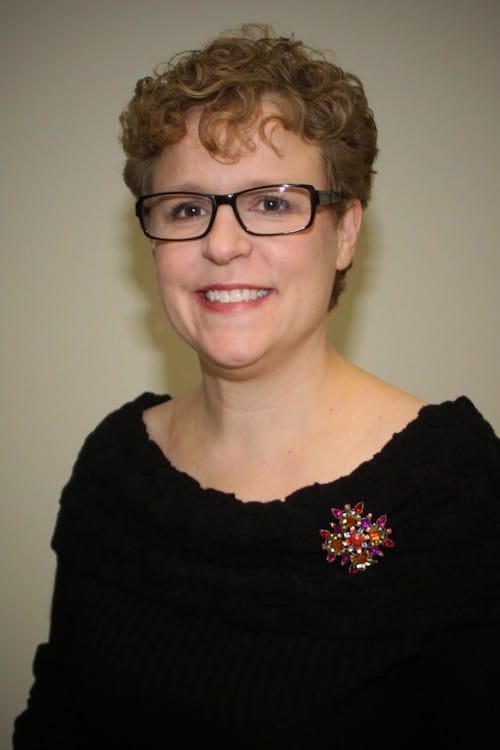
Dr. DiMattio received her bachelor’s degree from The University of Scranton, her master’s degree from Villanova University and her doctorate from the University of Pennsylvania. She has worked for the University since 1993.
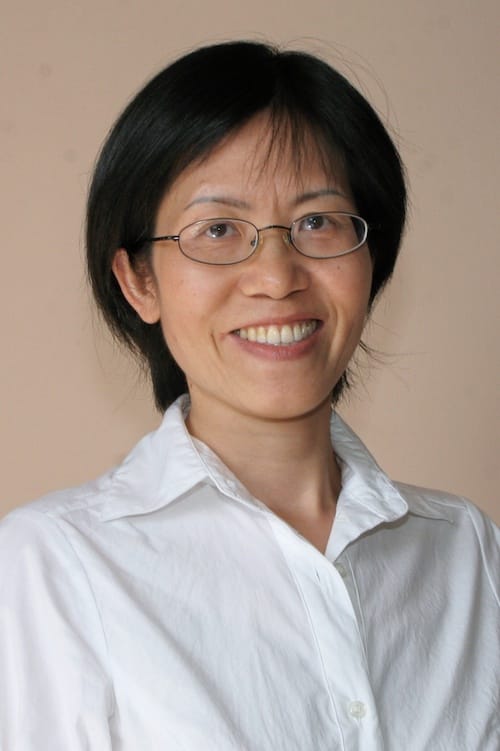
Dr. Fan received her bachelor’s degree from Sichuan Normal University, her master’s degree from Jilin University and her master’s and doctoral degrees from the University of North Carolina at Chapel Hill. She has worked for the University since 2009.
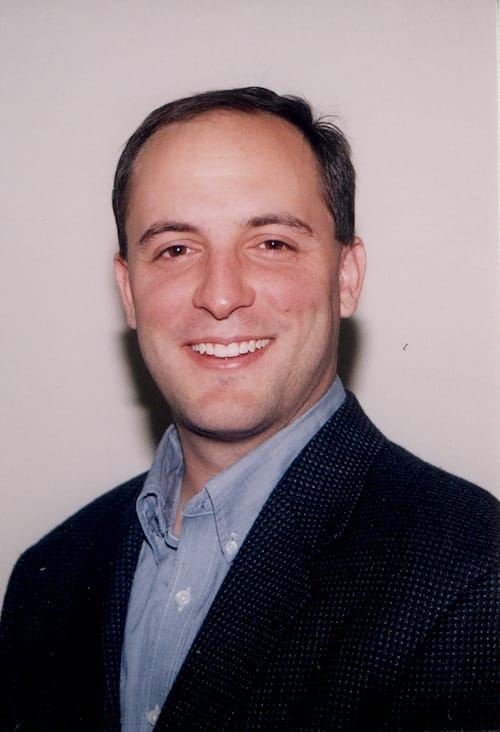
Dr. Szydlowski received his bachelor’s and master’s degrees from The University of Scranton and his doctorate from Medical University of South Carolina. He has worked for the University since 2004.
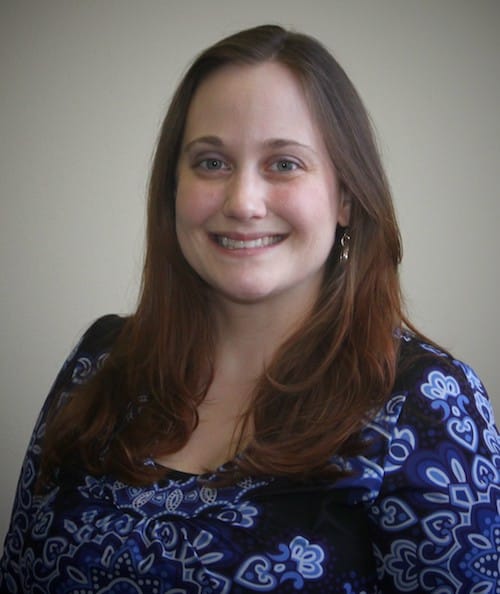
Dr. Vasquez received her bachelor’s, master’s and doctoral degrees from Indiana University. She has worked for the University since 2007.
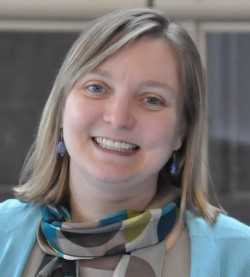
Dr. Wright received her bachelor’s and master’s degrees from College Misericordia and her doctorate from Loyola University Chicago. She has worked for the University since 2007.
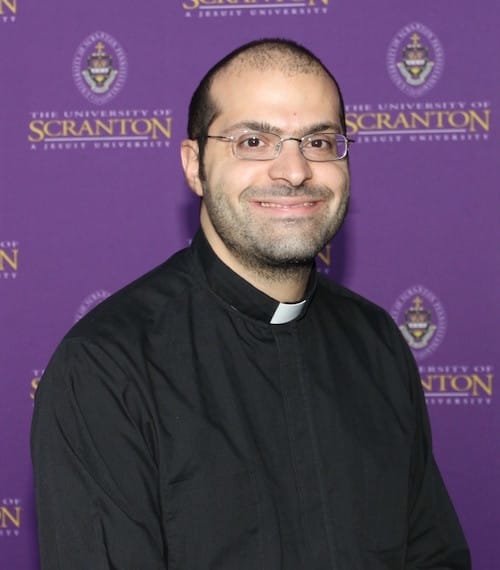
Dr. Azar received his bachelor’s degree from Colorado Christian University, his master’s degree from St. Vladimir’s Orthodox Theological Seminary and he received his master’s and doctoral degrees from Fordham University. He has worked for the University since 2013.
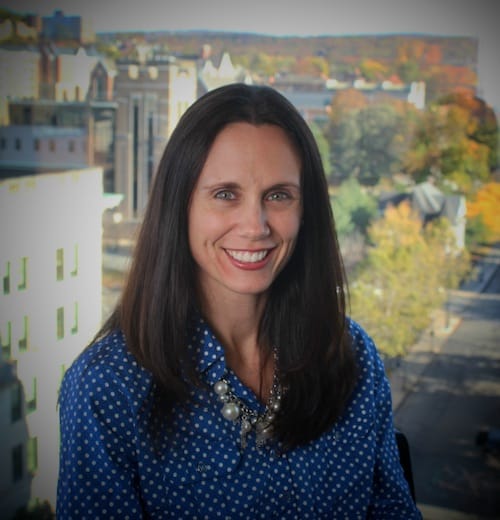
Dr. Bachman received her bachelor’s degree from the Pennsylvania State University and received her master’s and doctoral degrees from the University of Tennessee. She has worked for the University since 2013.
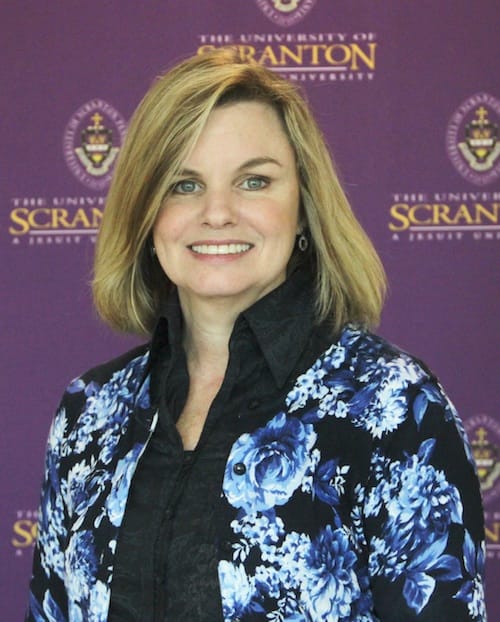
Dr. Feeney received her bachelor’s degree from Marywood University, her master’s degree from the University of Pennsylvania and her doctorate from Binghamton University. She has worked for the University since 2008.
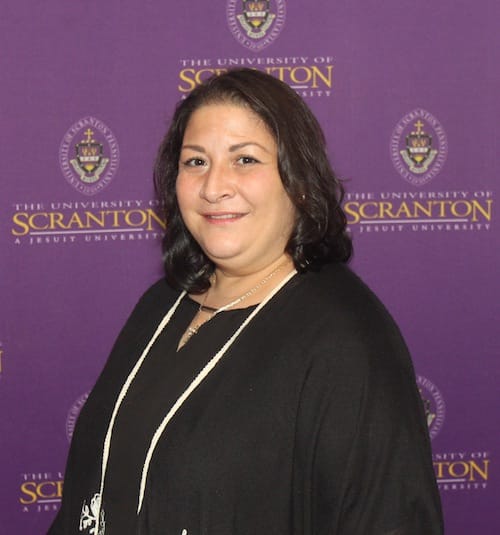
Dr. Grettano received her bachelor’s and master’s degrees from the University of South Alabama and her doctorate from Illinois State University. She has worked for the University since 2009.
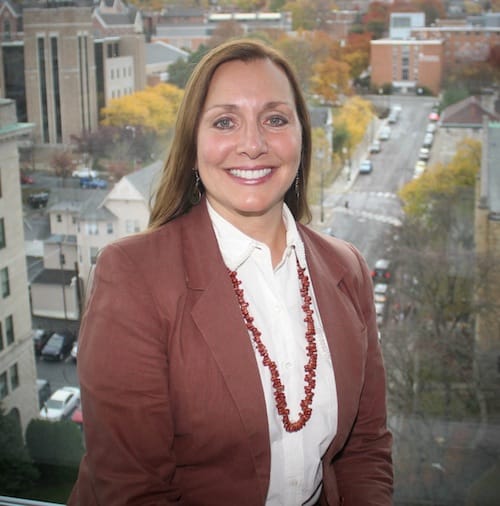
Dr. Grossman received her bachelor’s degree from King’s College, her master’s degree from Colorado State University and received her doctorate from Marywood University. She has worked for the University since 2010.
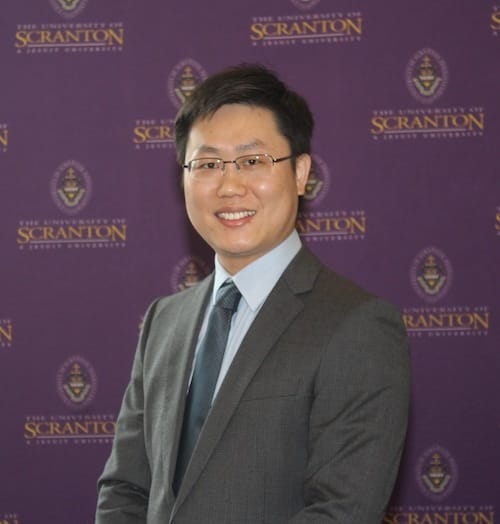
Dr. Li received his bachelor’s degree from Jilin University, his master’s degree from Oklahoma State University and his doctorate from Washington State University. He has worked for the University since 2013.
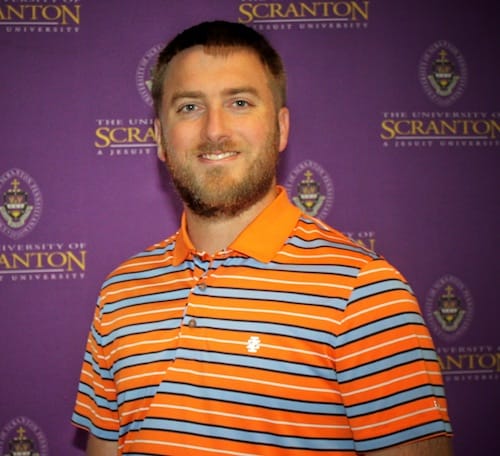
Dr. Willis received his bachelor’s, masters and doctoral degrees from the University of North Carolina. He has worked for the University since 2013.
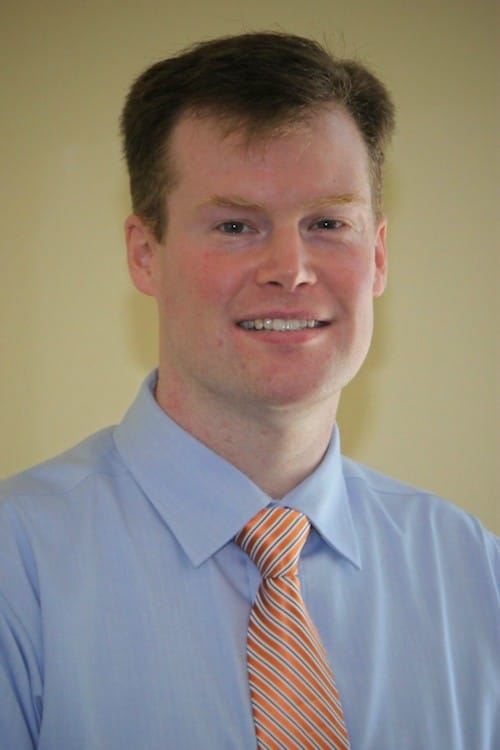
Dr. Fennie received his bachelor’s degree from the Canisius University and his doctorate from the University of Pennsylvania. He has worked for the University since 2012.
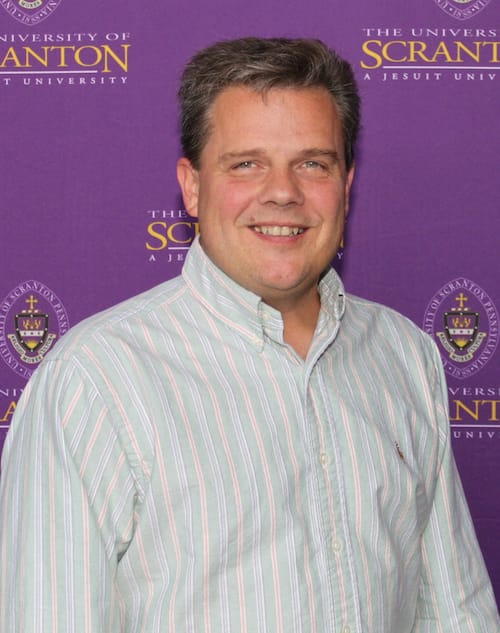
Dr. Giambatista received his bachelor’s and master’s degrees from the Pennsylvania State University and received his doctorate from the University of Wisconsin-Madison. He has worked for the University since 2013.
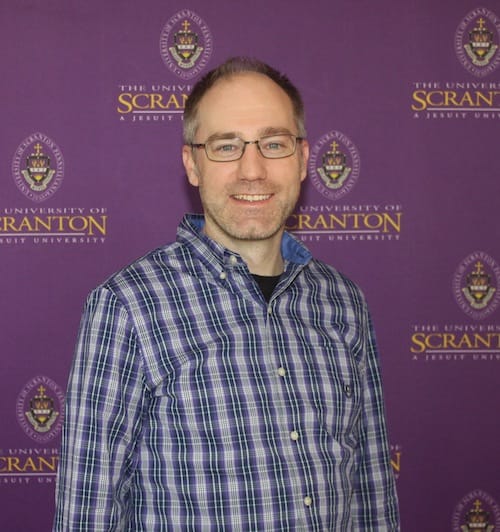
Dr. Graham received his bachelor’s degree from the University of Houston, his master’s degrees from Southern Methodist University and the University of Iowa and received his doctorate from the University of Iowa. He has worked for the University since 2012.
University Announces Faculty Promotions
-
09/12/2018
The University of Scranton granted promotions and/or tenure to 15 faculty members effective at the start of the 2018-19 academic year.
Five faculty members have been promoted to professor: Mary Jane DiMattio, Ph.D., nursing; Shuhua Fan, Ph.D., history; Steven Szydlowski, D.H.A., health administration and human resources and Jennifer Vasquez, Ph.D., mathematics; and Patricia Wright, Ph.D., nursing.
Seven faculty members were named associate professor: Michael Azar, Ph.D., theology/religious studies; Jessica Bachman, Ph.D., exercise science and sport; Ann Feeney, Ph.D., nursing; Teresa Grettano, Ph.D., English and theatre; Joan Grossman, Ph.D., exercise science and sport; Yibai Li, Ph.D., operations and information management; and Benjamin Willis, Ph.D., counseling and human services.
Michael Fennie, Ph.D., chemistry, was named associate professor and granted tenure.
Two faculty members were granted tenure: Robert Giambatista, Ph.D., management, marketing and entrepreneurship; and Jason Graham, Ph.D., mathematics.
Dr. DiMattio received her bachelor’s degree from The University of Scranton, her master’s degree from Villanova University and her doctorate from the University of Pennsylvania. She has worked for the University since 1993.
Dr. Fan received her bachelor’s degree from Sichuan Normal University, her master’s degree from Jilin University and her master’s and doctoral degrees from the University of North Carolina at Chapel Hill. She has worked for the University since 2009.
Dr. Szydlowski received his bachelor’s and master’s degrees from The University of Scranton and his doctorate from the Medical University of South Carolina. He has worked for the University since 2004.
Dr. Vasquez received her bachelor’s,
master’s and doctoral degrees from Indiana University. She has worked for the University since 2007.Dr. Wright received her bachelor’s and master’s degrees from College Misericordia and her doctorate from Loyola University Chicago. She has worked for the University since 2007.
Dr. Azar received his bachelor’s degree from Colorado Christian University, his master’s degree from St. Vladimir’s Orthodox Theological Seminary and he received his master’s and doctoral degrees from Fordham University. He has worked for the University since 2013.
Dr. Bachman received her bachelor’s degree from the Pennsylvania State University and received her master’s and doctoral degrees from the University of Tennessee. She has worked for the University since 2013.
Dr. Feeney received her bachelor’s degree from Marywood University, her master’s degree from the University of Pennsylvania and her doctorate from Binghamton University. She has worked for the University since 2008.
Dr. Grettano received her bachelor’s and master’s degrees from the University of South Alabama and her doctorate from Illinois State University. She has worked for the University since 2009.
Dr. Grossman received her bachelor’s degree from King’s College, her master’s degree from Colorado State University and received her doctorate from Marywood University. She has worked for the University since 2010.
Dr. Li received his bachelor’s degree from Jilin University, his master’s degree from Oklahoma State University and his doctorate from Washington State University. He has worked for the University since 2013.
Dr. Willis received his bachelor’s, masters and doctoral degrees from the University of North Carolina. He has worked for the University since 2013.
Dr. Fennie received his bachelor’s degree from the Canisius University and his doctorate from the University of Pennsylvania. He has worked for the University since 2012.
Dr. Giambatista received his bachelor’s and master’s degrees from the Pennsylvania State University and received his doctorate from the University of Wisconsin-Madison. He has worked for the University since 2013.
Dr. Graham received his bachelor’s degree from the University of Houston, his master’s degrees from Southern Methodist University and the University of Iowa and received his doctorate from the University of Iowa. He has worked for the University since 2012.
University Announces Faculty Promotions
-
09/05/2018
At Fall Convocation on Aug. 31, the McDade Center for Literary and Performing Arts, Ronald H. McKinney, S.J., a professor of philosophy, was honored with the John L. Earl III Award for service to the University, the faculty
and the wider community. This award is presented annually to a member of the University community who demonstrates the spirit of generosity and dedication that the late Dr. John Earl, a distinguished professor of history, exemplified during his years at Scranton from 1964 to 1996.Fr.
MicKinney received his Ph.D. from Fordham University in 1980 and came to The University of Scranton in 1984. He was director of the Special Jesuit Liberal Arts Program from 1986-2010. He specializes in philosophy and literature, postmodern studies, ethics, and Lonergan studies. He recently had one of his plays produced (HAMMARSKJOELD ) in Baltimore at the Spotlighters Theater. He is currently running faculty seminars and workshops in Ignatian Vision and Pedagogy.Fr. McKinney Receives Earl Award
-
08/31/2018
University of Scranton professors Daniel Mahoney, Ph.D. ’81, G’85, accounting, and Rose Sebastianelli, Ph.D., operations and information management, were awarded the three-year William and Elizabeth Burkavage Fellowship in Business Ethics and Social Responsibility for 2018-21. The endowed fellowship was established in 2009 by William J. and Judith G. Burkavage in memory of (his parents) William and Elizabeth Burkavage, and provides support to assist University faculty in new research on issues of sustainability, social responsibility and business ethics.
Drs. Mahoney and Sebastianelli are award-winning professors who have focused much of their teaching and scholarship in areas related ethics and social responsibility.
Dr. Mahoney was named the Kania School of Management Professor of the Year five times, receiving the honor most recently earlier this year. In 2001, he was selected Teacher of the Year by the University’s graduating class. He was also named the University’s CASE Professor of the Year, and received the University’s Alpha Sigma Nu University Award for Teaching Excellence and the Pennsylvania Institute of Certified Public Accountants Outstanding Educator Award. Dr. Mahoney also held a three-year position as the business school’s Alperin Teaching Fellow.
A Certified Public Accountant and a Certified Fraud Examiner, Dr. Mahoney’s research has been published in numerous professional and academic journals, including The CPA Journal, Internal Auditor, Management Accounting Quarterly and Journal of Business and Economics Research, Accounting and Financial Management. Three manuscripts co-authored by Dr. Mahoney and his Scranton colleagues Brian Carpenter, Ph.D., professor of accounting, and Douglas M. Boyle, D.B.A., associate professor and chair of the Accounting Department, received an award medal from Institute of Management Accountants’ Lybrand competition, including the Lydrand Gold Medal as the “outstanding article of the year” in 2016.
A resident of Clarks Summit, Dr. Mahoney joined the faculty at Scranton in 1990. He earned a bachelor’s degree and an MBA from The University of Scranton and a doctorate in accounting from Syracuse University.
Dr. Sebastianelli holds the Alperin Endowed Chair in Business Administration at the University. She was named the Kania School of Management Professor of the Year three times and, in 2013, was named the University’s CASE Professor of the Year. She also received the University’s Alpha Sigma Nu University Award for Teaching Excellence, the Provost’s Award for Excellence in the Scholarship of Teaching and Learning, and held a three-year position as the business school’s Alperin Teaching Fellow.
During her distinguished career, Dr. Sebastianelli has published more than 30 articles on her research in the areas of quality and e-commerce in academic journals such as Decision Sciences, Quality Management Journal, Internet Research, Management Decision and Online Information Review. In recent years, she has applied her research expertise to the areas of sustainability and social justice. The article entitled “Improving the quality of environmental management: impact on shareholder value,” that appeared in the International Journal of Quality & Reliability Management, by Dr. Sebastianelli and fellow Scranton professor Nabil Tamimi, Ph.D., operations and information management, was selected as an Outstanding Paper in the 2016 Emerald Literati Awards for Excellence.
Through her participation in the Ignatian Colleagues Program, Dr. Sebastianelli developed the Business Education for Justice Seminar for Kania School of Management faculty at Scranton, which encourages other faculty to integrate social responsibility and ethics into their teaching and research.
Dr. Sebastianelli joined the University in 1988. During her three decades of service at Scranton, she also served as interim dean of the Kania School of Management for one year and as interim dean of the Graduate School for two years.
A resident of Clarks Summit, Dr. Sebastianelli earned a bachelor of science degree from Indiana University of Pennsylvania, and a Ph.D. in management science from the Pennsylvania State University Smeal College of Business Administration.
Previous Burkavage fellows were marketing, management and entrepreneurship professors Irene Goll, Ph.D., and Abhijit Roy, D.B.A.
Two Professors Awarded Burkavage Fellowships
-
08/27/2018
Professor Dave Dzurec, Ph.D., conducted a summer course on Navajo history and law in the Navajo nation this summer. Here is what he has to say about his course and the benefits of summer courses.
Summer courses offer both faculty and students an opportunity to focus on a single course over a very short period of time (while the semester usually runs about fifteen weeks, summer courses usually last only about four weeks). It offers an opportunity to focus on a single topic (and possibly get caught up or even ahead on credits).
In the case of our Navajo History course (technically HIST 284: Navajo History and Law), this summer we had the opportunity to travel to the Navajo Nation in northeastern Arizona. We flew into Phoenix and drove the five hours north to Window Rock, the capital of the Navajo Nation. While there we met with representatives from all three branches of the Navajo government (visiting the legislative “Council Chambers”, the office of the President, and a former supreme court justice). We also had the chance to visit a ranch run by a Navajo family, St. Michael’s Indian school (founded by St. Katherine Drexel in 1902), Anasazi ruins, the winter and summer camp of the Yazzie family, and both Canyon
DeShelly and the Grand Canyon.In traveling to the Navajo nation, students were able to move beyond the classroom to experience first hand the beauty, the challenges
and life in the Navajonation . The 14 University of Scranton students spent a week traveling through the region and developed a better sense of the history and lives of the Navajo people. We were also fortunate to be able to visit an exhibition presented jointly by the Navajo museum and the National Archives (of the United States) on the Treaty of 1868 which officially recognized the right of the Navajo people to remain on their ancestral land following the tragedy of the “long walk” which had displaced many of the Navajo people in 1864 forcing them out of their traditional homes.While a summer course in its shortened format can be intense, the opportunity to experience the topic under consideration first hand, to meet with members of the Navajo nation and listen to their stories, to gain a better understanding of the geographic and vast nature of the Navajo lands provided for an understanding that could not have been achieved in any other way.
Read more and see more photos on the History Department Blog.
Faculty Perspective: Summer Course to the Navajo Nation
-
08/15/2018
Meet Rick Klonoski, a professor of philosophy at The University of Scranton.
A Passion for Teaching
Some 38 years ago, as I walked down what was then Linden Street, and what is now our burgeoning new Commons, I was confronted, and I do mean confronted, by Fr. Edward Gannon, Jesuit priest and Philosophy Professor. Cigarette in hand, raspy-voiced, he said to me, “Who are you and what are you doing here?” I told him my name and said that I was a student. Irritated, a disposition that, in the course of time, I would discover was his normal state, he barked, “No, no, no, what is your purpose in being here at The University of Scranton?” Now skittish, I mumbled something about my major at the time (it was not Philosophy) and about my desire to work with people before he cut me off. Impatiently and brusquely he yelled, over his shoulder, as he walked away, “I’m Ed Gannon and if you figure it out, or better yet if you want some help figuring it out, you can find me in the Best Sellers office at the library.”
Teacher, Confidant
and FriendUnbeknownst to me at the time, Fr. Gannon would be my teacher, my confidant, my friend, and I would one day be his colleague in the Philosophy Department, and eventually a pallbearer at his funeral.
Fr. Ed Gannon stirred in me a passion to know and appreciate myself as a unique person, to know my potentialities, my promise. But equally importantly, he stirred in me a passion to become for others what he had become for me, a passageway, something of an open space or intersection of self-understanding. He stirred in me a desire to be a teacher.
The premises of every encounter Fr. Gannon had with students, now my starting points as well, were old-school Jesuit: each of us is a unique individual as created by God; out of gratitude for our unique nature, and the attendant distinctive gifts we have been given, we must generously share with others the gifts that have been given to us.
Challenges Rooted in Cura Personalis
Endeavoring to do just this, I have spent my entire career as a teacher at The University of Scranton, a place where challenges are presented to students by faculty each and every day, challenges that are rooted in
cura personalis , a genuine care for unique persons. Our University is a place where so manyfaculty like myself believe that each of us should become something of an intellectual and moral conduit, or to put it another way, as teachers we should become that intersection of self-understanding, or the right place for someone else’sright time. Over the years, my primary message to my students has been this: As I did, find yourselves and your unique gifts here at The University of Scranton; become who you are truly meant to become; marshal the power of your new-found self-understanding into a great passion to pass on to others what has been given to you.Academic Credentials:
- Professor of Philosophy
- B.A., The University of Scranton
- M.A., Kent State University
- Ph.D., Duquesne University
- Co-author of the textbook Business Ethics, published by Prentice-Hall
Meet Our Faculty: Rick Klonoski
-
08/13/2018
Every year since 2011, the Weinberg Memorial Library has awarded a prize to recognize excellence in the process and completion of research projects.
The research prize program was founded and coordinated by Professor Emerita Bonnie W. Oldham, who served on the library faculty as a research and instruction librarian from 2004 until her retirement in 2017. Beginning in 2009, she also served as the library’s
infor- mation literacy coordinator.Upon Professor Oldham’s retirement, the prize was renamed the Bonnie W. Oldham Library Research Prize, to honor her contribution to information literacy teaching and learning excellence at the University.
Professor Oldham’s commitment to recognizing student excellence continues beyond her retirement in the form of the Bonnie W. Oldham Library Research Prize Endowment Fund. is endowment fund was created by Bonnie upon her unfortunate passing in September 2017 to ensure that the research prize program would be
nancially resourced in perpetuity. Each prize awarded is $500.In its inaugural year, one prize was awarded at the undergraduate level. In 2012, the program expanded to two prizes: one at the undergraduate level, and one at the graduate level.
Thanks in large part to Professor Oldham’s dedicated commitment to the Bonnie W. Oldham Library Research Prize, the program, now in its eighth year, is expanding from two annual prizes to three:
- An undergraduate foundational prize for projects completed in 100-level courses;
- An undergraduate upper-level prize for projects completed at the 200- to 400-level; and
- A graduate prize for projects completed at the graduate level.
Each prize remains $500 and is awarded to the project that demonstrates through the application process evidence of
signi cant knowledge in the methods of research and the information gathering process, and use of library resources, toolsand services. Both individuals and groups may submit projects for consideration; if won by a group, the award is split equally among the members.More information about the Bonnie W. Oldham Library Research Prize can be found
at: scranton.edu/ libraryresearchprize.To contribute to the Bonnie W. Oldham Library Research Prize Endowment Fund, please submit monetary donations to University Advancement earmarked for the “Bonnie W. Oldham Library Research Prize Endowment.” Please visit scranton.edu/development/ways- to-give.shtml for ways to give to the University.
— Donna Witek
Expanding the Bonnie W. Oldham Library Research Prize and Endowment
-
08/08/2018
Discovering a vocational path as a faculty member in faith-based higher education is not an exploration that must be done alone. Others making the same journey can offer companionship, support and direction.
Started in 1991 and housed in Christ College of Valparaiso University in Indiana, the Lilly Fellows Program in Humanities and the Arts is a national initiative that “seeks to strengthen the quality and shape the character of church related institutions of higher learning,” offering the strength of a network of 101 church-related colleges and universities from across the country, a Post-Doctoral Fellows Program and the Graduate Fellows Program.
The University of Scranton has been a member of the Lilly Fellows Program since 1997 and political science professor Gretchen J. Van Dyke, Ph.D., has served as the University’s faculty representative to the program since 2000. She also serves as a mentor for the Lilly’s Graduate Fellows Program and has previously served as a national board member for the program.
Scranton hosted a summer conference for the Lilly Fellows Program’s ninth cohort of graduate fellows in July, which included its first alumna member – Sarah Neitz, a graduate of the University’s class of 2012. A national Truman Scholar, Neitz graduated, summa cum laude, as a triple major in international studies, Hispanic studies and philosophy and member of the University’s Special Jesuit Liberal Arts Honors Program. The Gettysburg native, who was a full-tuition Presidential Scholar at Scranton, earned her master’s degree from the University of Toronto and is currently pursuing her Ph.D. in sociology at the University of Notre Dame.
The Lilly Graduate Fellows Program accepts just 10 members annually into a cohort that will meet for three years. Candidates must be nominated by their undergraduate institutions and be enrolled in a Ph.D., M.F.A., Th.D. or equivalent program and meet other criteria. The fellows intend to pursue careers in church-related higher education upon completion of their studies.
During the academic year, the cohort meets for a colloquium every other week, which is built around a theme and accompanying readings. In alternate weeks, the fellows participate in individual sessions with mentors. Each summer, the cohort gathers for a conference.
“Our theme this summer was ‘Marked by the Sign of the Cross: Living Blessed Lives in the Midst of Faith and Doubt,’ which helped us think about the realities of Christian life – personal and professional – knowing that a companion of faith is the inevitability of doubt. This theme seemed to fit where our graduate fellows found themselves as they completed year two and look ahead to year three of their respective Ph.D. programs,” said Dr. Van Dyke. “Despite the time it takes to do all the work associated with mentoring this talented group of young Christian scholars, it has been one of the most rewarding experiences of my career – and so unexpected.”
The University also hosted the Lilly Fellows Program National Conference in 2013.
Scranton Hosts Lilly Fellows Program Cohort
-
07/30/2018
The University of Scranton awarded seven professors 2018 Faculty Development Summer Grants, which are intended to promote scholarship and curriculum development efforts by faculty members.
Patrick Clark, Ph.D., associate professor of theology and religious studies, will research “Heroism and Sanctity: Theological Paradigms of Moral Exemplarity.” Dr. Clark joined Scranton’s faculty in 2010. He earned his bachelor’s degree from Duke University, his master’s degree from Boston College and his Ph.D. from the University of Notre Dame.
Michael Fennie, Ph.D., assistant professor of chemistry, will research “Rapid Synthesis of Cyanate-Tagged Amino Acid.” Dr. Fennie joined Scranton’s faculty in 2012. He earned his bachelor’s degree from Canisius College and his Ph.D. from the University of Pennsylvania.
Taewan Kim, Ph.D., associate professor of management, marketing and entrepreneurship, will research “Knowledge Search Strategies for Innovation by SMEs.” Dr. Kim joined Scranton’s faculty in 2011. He earned his bachelor’s degree from Hannan University, South Korea, and his master’s degree and Ph.D. from the University of Nebraska-Lincoln.Susan Méndez, Ph.D., associate professor of English and theatre, will research “Theorizing Love: Love and Justice in Latinx Literature.” Dr. Mendez joined Scranton’s faculty in 2006. She earned her bachelor’s degree from Pace University, her master’s degree from Fordham University and her Ph.D. from the University of California.
Jessica Nolan, Ph.D., associate professor of psychology, will research “Social Norms Marketing: A Wise Intervention for Solving Social and Environmental Problems.” Dr. Nolan joined Scranton’s faculty in 2008. She earned her bachelor’s degree from Cornell University, her master’s degree from California State University and her Ph.D. from the University of Arkansas.
Meghan Rich, Ph.D., associate professor of sociology, criminal justice and criminology, will research “The New Company Town: Port Covington Development and the Reimagining of Baltimore.” Dr. Rich joined Scranton’s faculty in 2007. She earned her bachelor’s degree from the University of Maryland, her master’s degree from the University of Wisconsin and her Ph.D. from the University of Delaware.
Jamie Trnka, Ph.D., professor of world languages and cultures, will research “Performing Europe.” Dr. Trnka joined Scranton’s faculty in 2006. She earned her bachelor’s degree from Oberlin College and her master’s degree and Ph.D. from Cornell University.Faculty Awarded Summer Development Grants
-
07/25/2018
Projects supported through the University’s Strategic Initiatives Funding have brought students into the Scranton community and into communities across the globe.
The Strategic Initiatives Funding, which was made possible by cost savings and revenue generation realized through the Comprehensive Resource Review process, spearheaded by the Office of Finance and Administration, supports innovative projects – particularly those that that will have a substantial, positive impact on the student experience – that advance the goals of the Strategic Plan: an Engaged, Integrated and Global Student Experience.
“The diversity of programs funded through the Strategic Initiatives process was impressive, but even more compelling is the breadth of their impact to our campus community and indeed to so many others in the local region and beyond. These projects truly exemplify the spirit of our University’s Strategic Plan,” said Kate Yerkes, assistant vice provost for planning and institutional effectiveness.
STEAM (Science, Technology, Art, Engineering and Math) Activities for School/Community Groups was among the 14 projects that received support during the 2017-18 academic year. Through the project, University faculty, staff and students offered STEAM related activities to students within the Scranton School District, as well as other area schools and community groups. During the 2017-18 academic year, activities included several Art Workshops; two in-school Science Assemblies; three STEAM-related field trips to campus for more than 120 students from the University’s Scranton School District partner school, McNichols Plaza Elementary; and four workshops provided by College of Arts Sciences faculty and students for United Neighborhood Center’s Leaders in Training students. George Gomez, Ph.D., associate professor of biology, Declan Mulhall, Ph.D., professor of physics/electrical engineering, Janice Voltzow, Ph.D., professor of biology, and Darlene Miller-Lanning, Ph.D., director of the Hope Horn Gallery, in addition to other staff and faculty partners, provided content for the program during the academic year.
Through another project, students facilitated group discussions at libraries throughout Lackawanna County about the book Pulitzer Prize-winning book Gilead as part of the city’s Scranton Reads program. The project was part of the first-year seminar course “Latest and Greatest. Prize-winning Fiction, Poetry and Theatre” taught by English and theatre professor Rebecca Beal, Ph.D.
The funding also supported the growth of an existing academic practice partnership between University of Scranton Nursing and three local community hospitals. The Clinical Liaison Nurse (CLN) model pairs undergraduate nursing students and University faculty with hospital staff nurses to develop clinical skills at the bedside. This year, 42 clinical liaison nurses were involved and 434 student rotations were facilitated with the hospitals. The CLN partnership hosted a spring lecture by Paul Feuerstadt, M.D., attending gastroenterologist and assistant clinical professor of medicine at Yale University, at which he discussed “C. difficile Infection: Epidemiology, Risk Factors, Diagnosis, Standard Treatment and New Remedies” to CLN Model partners at Regional Hospital of Scranton. In May, faculty conducted assessment of students’ perceptions across four domains of their clinical learning environment and found high scores, as well as evidence of structural empowerment. In addition, faculty had an article regarding research in this area accepted by the Journal of Nursing Measurement. Sharon Hudacek, Ed.D., professor of nursing, Mary Jane DiMattio, Ph.D., associate professor of nursing, and Catherine Lovecchio, Ph.D., associate professor and chair of the Nursing Department, supported this project.
Uganda Conference and Intersession Courses, an international and interdisciplinary initiative, was another project that received support during the 2017-18 academic year. The project included a visit to Uganda by 17 students and faculty at which several faculty members in the sciences and healthcare lectured at Bwindi Community Hospital, which has a Memorandum of Understanding with the University. The project also supported site visits by faculty to develop international internships and a cross-disciplinary conference on campus that featured speakers from Uganda, who addressed topics such as counseling, nursing and health care. Charles Pinches, Ph.D., professor of theology/religious studies, Dr. Lovecchio and Cyrus Olsen, Ph.D., associate professor of theology/religious studies, collaborated for this initiative.
In total, 14 projects during the 2017-18 academic year received more than $250,000 in support from the University’s 2016-17 Strategic Initiatives Fund.
The University is currently reviewing proposals for the 2018-2019 strategic initiatives funding cycle. Awardees will be announced later this summer.
$content.getChild('content').textValueStrategic Initiative Projects Gain Traction
-
07/18/2018
This summer, Michael
Fennie , Ph.D., is developing novel syntheses of amino acids modified with infrared “tags" thanks to a faculty summer research grant. He talks about it with us, here.Tell us what you are working on this summer.
This summer, I am developing novel syntheses of amino acids modified with infrared “tags.” When incorporated into peptides or proteins, the distance between pairs of these tagged amino acids can be determined by two-dimensional infrared spectroscopy, providing information about how proteins fold and adopt three-dimensional shapes. Detailed knowledge of such folding processes, especially in pathogens, could lead to new therapeutic treatments.
What led you to this project?
I began researching new synthetic methods to create amino acid derivatives as a graduate student at the University of Pennsylvania. At the time, a fellow graduate student, Matthew Tucker '00 (chemistry) was using modified amino acids in his spectroscopy research. As we started discussing our interests, it became apparent that a collaboration would be very fruitful. While our doctoral thesis projects didn’t leave us much time for side projects, we started to work together post-graduation.
We have recently published a paper (Angewandte Chemie, International Edition, 2018, 57, 7528-7532) detailing the synthesis of a modified amino acid and its use in measuring distance in a short peptide by two-dimensional infrared spectroscopy. Current efforts in the research lab in the Loyola Science Center will expand our library of “tagged” amino acids, modifying different positions of the amino acids and incorporating more sensitive infrared-active groups. Once synthesized, they will be incorporated into more complex peptides and proteins for analysis by infrared spectroscopy.
Do you think it will inform your work at Scranton?
Because this research is at the interface of three disciplines (organic synthesis, biochemistry, and infrared spectroscopy), it is one way for students in CHEM 232: Organic Chemistry I to see an application of infrared spectroscopy that extends to several areas. For chemistry and biochemistry majors, I have incorporated some of the synthetic methods we have used into the CHEM 330L: Organic Chemistry III Laboratory curriculum.
Hands-on experience with such techniques is important for students pursuing careers in biochemistry or medicinal chemistry. Furthermore, this research area continues to provide students in the chemistry department with a framework in which they can explore their own thesis projects. For example, the paper cited above included an undergraduate coauthor, Philip Gilmartin ’16, who is currently an NSF predoctoral fellow at the University of Pennsylvania.
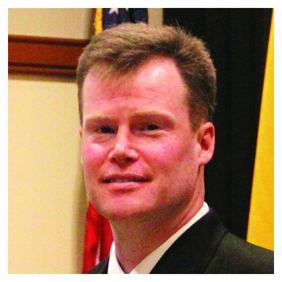
Michael
Fennie , Ph.D.Faculty Summer Research: Amino Acids through Spectroscopy
-
07/16/2018
Nine University of Scranton faculty members were honored recently with Provost Faculty Enhancement awards for excellence in teaching, scholarship or service. The Office of the Provost and the Provost Advisory Group selected the recipients from a pool of candidates nominated by academic deans and department chairs.
Bryan Burnham, Ph.D. , received the Excellence in the Scholarship of Teaching and Learning Award, presented to faculty members who enhance student learning. Dr. Burnham, associate professor of psychology, has been a University faculty member since 2007. He earned his bachelor’s degree from Utica College of Syracuse University, and his master’s degree and doctorate from the State University of New York at Albany.
David Dzurec III, Ph.D., received the Excellence for University Service and Leadership Award, which recognizes faculty members who have contributed service to the University community, particularly those who demonstrate academic leadership by effectively mentoring their junior colleagues. Dr. Dzurec, associate professor and chair of the History Department, joined the faculty at Scranton in 2008. He earned his bachelor’s degree from Fairfield University, his master’s degree from the University of Connecticut and his Ph.D. from the Ohio State University.
Rita Fleming-Castaldy, Ph.D., received the Excellence in Scholarly Publication Award, presented to faculty members who have attained distinction in scholarship or creative activity. Dr. Fleming-Castaldy, professor of occupational therapy, received her bachelor’s degree, master’s degree and doctorate from New York University. She joined Scranton’s faculty in 2002.
Renee Hakim, Ph.D., Peter Leininger, Ph.D., and Jennifer Schwartz, DPT., received the Excellence in Integrating Mission and Justice into the Curriculum Award. This award honors a faculty members whose special efforts ensure that students have a keen understanding and appreciation of the realities of the world, including pressing justice issues in a local, national and global context. Dr. Hakim, professor of physical therapy, joined the faculty at Scranton in 2011. She earned her bachelor’s degree from The University of Scranton, her master’s degree from the University of Pittsburgh and her doctorate from Temple University. Dr. Leininger, assistant professor and chair of the Physical Therapy Department, joined the faculty at Scranton in 1999. He earned his bachelor’s degree from the University of Michigan, his master’s degree from Boston University and his doctorate from Temple University. Dr. Schwartz, faculty specialist, physical therapy, joined the faculty at Scranton in 2014. She earned her bachelor’s degree, master’s degree and doctorate from The University of Scranton.
Jessica Nolan, Ph.D., received the Excellence in Integrating Sustainability into the Curriculum Award. This award is given to a faculty member who strives for excellence in teaching about sustainability and makes extraordinary efforts to introduce concepts of sustainability into the curriculum. Dr. Nolan, associate professor of psychology, joined the faculty at Scranton in 2008. She earned her bachelor’s degree at Cornell University, her master’s degree at California State University and her Ph.D. at the University of Arkansas.
Steven Szydlowski, DHA, received the Excellence In Advancing Global Learning Award, presented to faculty members who integrate international issues and perspectives into the curriculum. Dr. Szydlowski, associate professor of health administration and human resources, joined the faculty at the University in 2004. He earned his bachelor’s degree, MBA and MHA from The University of Scranton and his doctorate from the Medical University of South Carolina.
Kevin Wilkerson, Ph.D., received the Excellence in Graduate Teaching Faculty Senate Award, which recognizes a faculty member who demonstrates dedication to teaching graduate students in a manner that creates an encouraging and intellectually stimulating environment that promotes critical thinking and learning. A member of Scranton’s faculty since 2004, Dr. Wilkerson, professor of counseling and human services, earned his bachelor’s degree from Colgate University, his master’s degree from the University of Vermont and his Ph.D. from Syracuse University.
Faculty Recognized for Excellence
-
07/10/2018
The University of Scranton biology professor Marc Seid, Ph.D., was awarded $200,703 from a National Science Foundation (NSF) collaborative research grant to study “Social brains and solitary bees: A phylogenetic test of the effect of social behavior on brain evolution across multiple gains and losses of sociality.” The grant will largely be used to support summer stipends for undergraduate student researchers.
The collaborative research project will examine if social interactions influence brain size by studying closely related species of social and solitary bees. The study will also measure levels of neurotransmitters and hormones in bee brains that are associated with aggression and reproduction.
Researchers will use a phylogenetic comparative approach, confocal microscopy measurements of brain volume, HPLC measurements of amine titers and antibody staining of amine-reactive neurons to test how evolutionary gains and losses of social cooperation affect the brain.
The total NSF grant awarded for the collaborative project was for $551,969. Adam Smith, Ph.D., assistant professor of biology at George Washington University, is the lead collaborator. In addition to Scranton, other collaborating institutions include Princeton University, Utah State University and The Smithsonian Tropical Research Institute.
The University of Scranton works with The Smithsonian Tropical Research Institute on a joint internship project that allows students to participate in research during the summer in Panama. Internships for this prestigious program are awarded to students from across the U.S. based on merit and matching the research interest of the students with ongoing research projects at the institute. Dr. Seid is among Scranton’s biology faculty members that support the joint internship program. Throughout the academic year, Dr. Seid often serves as a faculty mentor for student/faculty research projects.
Dr. Seid’s area of research interest includes behavioral neurobiology and brain morphology in ants. He has published numerous articles in scholarly journals on the subject. His research entitled “Morphine addiction in ants: a new model for self-administration and neurochemical analysis,” published in the Journal of Experimental Biology in 2016, was the first of its kind that proved non-mammals, in this case ants, can become addicted to morphine much like humans do and express similar changes in behavior and brain chemistry. The study also generated stories in The New York Times and the Smithsonian.
Dr. Seid joined the faculty at Scranton in 2010. He earned his bachelor’s and master’s degrees from Brigham Young University and his Ph.D. from Boston University.
Scranton Awarded NSF Collaborative Research Grant
-
07/10/2018
Read a selection of faculty news from the spring issue of the Panuska College of Professional Studies newsletter, Challenges below. You can read the entire newsletter online, here
.

Sandra Pesavento, Faculty Specialist, EducationSandra Pesavento,
faculty specialist in the Educationdepartment , received her doctorate in educational leadership from Wilkes University. Pesavento was recognized with the Diane Place Doctoral Dissertation Award for her dissertation, Examining the Relationship Between 1:1 Technology Initiatives and Student Achievement in Classrooms in the Commonwealth of Pennsylvania. This award honors a student who exhibits perseverance in completing doctoral studies, collegiality with peers, leadership in education and excellence in academics.Mary Jane S. Hanson, Ph.D., CRNP, CNS, Nursing
Mary Jane S. Hanson, Ph.D., CRNP, CNS, has been elected vice chair of the Commission on Collegiate Nursing Education’s (CCNE) Board of Commissioners. CCNE is one of the largest accrediting agencies in the nation and is responsible for the accreditation of nursing programs at over 700 colleges and universities.
Dr. Nicholas Rodio, Physical Therapy
 Dr. Nicholas
Dr. Nicholas Rodio was recently hired for a full-time faculty position in the Department of Physical Therapy at The University of Scranton. He graduated from Scranton with his DPT in 2010 and has been practicing in outpatient orthopedics and pediatrics for the past seven years. Dr. Rodio is certified in the Functional Movement Screen (FMS), and both Level 1 and 2 of the Selective Functional Movement Assessment (SFMA). He is also a certified instructor in the Duffy-Rath System. Dr. Rodio became full-time faculty in February 2018, having served as a lab assistant in Orthopedics I, Orthopedics II and Therapeutic Exercise for the previous four years. He enjoys spending free time with family, traveling and golfing. Dr. Julie Cerrito Receives Award from PSCA
Dr. Julie Cerrito Receives Award from PSCADr. Julie Cerrito, assistant professor and Director of the School Counseling Program, has been awarded Counselor Educator of the Year by the Pennsylvania School Counselors Association (PSCA).
She was presented with this honor at the organization’s annual conference awards ceremony held in December 2017 in Hershey, Pa. The organization noted her exemplary leadership and advocacy in preparing school counseling students for their future practitioner roles. Dr. Cerrito is recognized as an emerging leader and role model for the profession of school counseling. She has been involved on a state level with the Pennsylvania Department of Education (PDE) and serves as co-chair for Professional School Counselors on the Pennsylvania College and Career Readiness Consortium. She has also been involved nationally with the Reach Higher Initiative, aimed at assisting school-aged students with their post-secondary educational goals and the work that school counselors do to assist in that process.
Read more news from Challenges, the PCPS newsletter, here.PCPS Faculty News
-
06/15/2018
Together with his son, Lawrence W. Kennedy, Ph.D., recently wrote a biography about his great-uncle, Boston Marathon champ and bricklayer Bill Kennedy. Bricklayer Bill: The Untold Story of the Workingman's Boston Marathon is the result of several years of research and writing. We asked him about his great-uncle and the research process.
Tell us a little about the project/your research.
Bricklayer Bill Kennedy, my granduncle, who won the Boston Marathon in 1917, was an older brother of my grandfather, Paul Kennedy, senior. Bill Kennedy survived both typhoid fever and a five-story fall on a construction job, traveled the country in cattle cars and freight cars in search of work and races, was hit by cars when racing, served in World War I and exemplified the life of amateur runners in the first half of the Twentieth Century. The legend was that Bill rode the rails to Boston and slept on a pool table the night before he won the Boston Marathon. Bill also won marathons in St. Louis and Chicago in 1913, ran races in France just after World War I, marathons in Yankee Stadium in the 1920s and continued to run until World War II.
I didn’t know much about Uncle Bill, largely because he lived in St. Louis when I was growing up in Connecticut. My interest actually started in the 70s when, as a student at Boston College, I would watch the marathoners go right by the main entrance to BC every April. In the late 70s my father’s brother, Roger Kennedy, ran the Boston Marathon, so we had another family connection to the race.
The book really got underway about eight years ago when my wife, Judy, and I were having a family get-together with our two sons, Patrick and Paul, their wives, Andrea and Kate, and my father’s cousin, Ann Louise, Bill’s niece. She casually mentioned that Uncle Bill had given her a manuscript in the early 1960s when she was an editor at Harvard University Press. Bill had typed up 26 chapters, one for each mile of the marathon and included topics such as diet, shoes, coaches, prizes, and so on. Unfortunately, Bill had a stroke and the manuscript was left in a box in Ann Louise’s basement until she passed it along to us.We were all very excited and the idea of finishing the work seemed obvious as Patrick is a writer and I am an historian. We had the idea of publishing Bill’s writings with some pertinent stories, but soon discovered a mountain of material on Bill and marathons. Over several years Patrick, my wife and I delved into newspaper accounts at the Boston Public Library and conducted more research online. The project expanded as we uncovered so much great material.
What is it like to write a biography from a memoir?
It is absolutely fascinating and frustrating. We wish Bill had written more about himself; he was really too modest. Most of Bill’s manuscript was about marathons and other runners, so the picture that we drew of Bill is based largely on newspaper accounts from the 1910s and 1920s. During those years Bill and other workingmen runners (plumbers, carpenters, and laborers) received a great deal of press attention around the time of the races. Bill was a favorite of the Boston sportswriters for decades and much of what we found out came in letters he wrote to them that were published. Amazingly, despite a lack of formal education, Bill was a terrific writer.
Do you think you take after him in any way? Is that something you thought about as you researched?
Bill was interested in all sorts of things, including family history and his Irish roots. His passion, of course, was running. He wanted to share his enthusiasm for the sport at a time when long-distance runners were few in number, before the growth of marathoning in the 70s and 80s. Bill tried to explain why they ran and what they experienced. He conducted research, compiled information, and told stories that were intended to illuminate and inspire. I am fortunate enough to be a scholar, who gets to write for a living. Working with my son, I was able to share Bill’s manuscript with interested readers. Like a marathon, it took persistence and time, something Bill knew a lot about. I am not a runner, but as an historian, I feel a kinship with Bill’s enthusiasm and persistence. And yes, I thought about it as we worked on the book, a lot.
Professor Writes About 1917 Boston Marathon Champ
-
06/04/2018
Daniel Haggerty, Ph.D., professor of philosophy and director of the Special Jesuit Liberal Arts Honors Program, has been named Teacher of the Year by The University of Scranton’s class of 2018.
The award honors a faculty member who maintains high standards of academic excellence and fairness, and through enthusiasm and dedication, inspires the interest of students in a field of education. The University’s Faculty Senate Academic Support Committee instituted the award in 1996.
Dr. Haggerty joined the faculty at Scranton in 2005 and has served as the director of the University’s Special Jesuit Liberal Arts Honors Program since 2010. At Scranton, he developed and teaches a mission-based travel course to Spain and Rome that follows in the footsteps of St. Ignatius of Loyola.
The author of “The Unholy Alliance of Science and Analytic Epistemology: A Turn to Virtue in Contemporary Analytic Philosophy” (Nova Science Publishers, 2011), Dr. Haggerty has written many peer-reviewed articles, papers and book reviews. His research includes studies of classical theorists as well as contemporary thinkers in both the analytic and continental traditions. His publications in moral psychology, ethics and epistemology deal with such topics as emotions, affectivity, justification, virtue and reasons for acting.
Dr. Haggerty received the University’s 2011 Alpha Sigma Nu Teacher of the Year Award (formally the Edward Gannon, S.J., Award for Teaching) and the Excellence in Adapting Classic Principles of Jesuit Pedagogy into the Curriculum: The Magis Award in 2016. Earlier in his teaching career, he received a Commendation for Outstanding Service and Dedication from St. Mary’s Seminary and University, among other awards and recognition.
Dr. Haggerty earned his bachelor’s degree in philosophy from Saint Joseph’s University and his doctorate in philosophy from Syracuse University.
Graduating Class Names Teacher of the Year
-
05/31/2018
Jessica Nolan, Ph.D., an associate professor in the psychology department, received a summer grant to research social norms marketing. Read on to find out more!
Tell us what you plan to work on this summer.
This summer I will write an invited book chapter for the "Handbook of Wise Interventions: How Social-Psychological Insights Can Help Solve Problems." The working title of my chapter is: “Social Norms Marketing: A Wise Intervention for Solving Social and Environmental Problems." The handbook is being published by Guilford so the audience will be both academics and practitioners.
What led you to this project?
I started researching social norms as a master's student at California State University, San Marcos. My thesis advisor, P. Wesley Schultz, was collaborating with Bob
Cialdiini at Arizona State University and they had recently received a large grant from the Hewlett Packard Foundation. For my master's thesis, we used this funding to explore how social norms marketing could be used to decrease home energy consumption.We published two papers from this data that have received widespread attention. The first paper showed that providing households with information about how their energy consumption compared to their neighbors could have the perverse effect of increasing consumption among low-consuming households but that this boomerang effect could be prevented by expressing social approval for their below-average consumption. The second paper showed that providing information about the energy conserving behavior of neighbors was more effective at decreasing energy consumption than traditional appeals to save money, save the environment or protect our children's future.
Results also showed that the effect of this normative information was
underdetected . Because of this and subsequent research, my co-authors and I were invited to write this chapter.Do you think it will inform your work at Scranton? How?
I have no doubt that writing this book chapter will inform my work at Scranton in two ways. First, reviewing and synthesizing the most recent research in the area of social norms is likely to inspire new research questions. Second, writing the chapter will provide me with additional examples and connections in three of the courses I teach where I cover the concept of social norms: PSYC 220: Social Psychology, PSYC 236: Environmental and Conservation Psychology, and PSYC 364: Psychology of Diversity.
Faculty Summer Research: Social Norms Marketing
-
05/29/2018
Melissa Wright, Esq., is a faculty specialist in business law and the director of the Entrepreneurship Program. Before coming to The University of Scranton, Melissa Wright practiced law for more than 10 years, much of which was spent in Silicon Valley in California, working with entrepreneurial startup companies. Now she brings those experiences to the classroom, helping students to understand the skills and thinking that go into business success.
On quality students
“Our students are very hard working, very dedicated and very interested in learning
and doing their best. For me, it is so rewarding to work with students who are so engaged and involved.”
On mentoring relationships
“Our small classes allow me to get to know my students and for them to get to know
me. I’ve had students who are interested in going to law school who I’m able to talk
with and mentor. Here, you’re able to work one-on-one with students and form those close relationships.”On active learning
“Scranton students do a lot of on-the-ground learning as they engage with the community. Students collaborate with local businesses on professional projects. In our
entrepreneurship program, students engage in business planning competitions, they
visit with local business leaders and they study abroad to look at entrepreneurship in
different parts of the world.”Success from Silicon Valley to Scranton
-
05/23/2018
Timothy Foley, Ph.D., professor of chemistry at The University of Scranton, was named the 2018 Alpha Sigma Nu Teacher of the Year.
The award, formally known as the Gannon Award in honor of Edward Gannon, S.J., is the oldest teaching award at the University. Established in 1969 by the University’s chapter of Alpha Sigma Nu, the national honor society for students in Jesuit colleges and universities, the award recognizes outstanding teaching among faculty. Student members of Alpha Sigma Nu select the professor to be honored.
Dr. Foley’s research centers on the chemistry of protein sulfur as it relates to normal cellular regulation as well as to diseases ranging from neurodegenerative disorders to cancer. His research has been published in numerous professional and academic journals, including Neurochemical Research, Cellular and Molecular Neurobiology and BioChemical and Biophysical Research Communications. In 2003, he received a six-figure grant from the National Institutes of Health to fund “PP2A-Like Constitutive ERK/MAPK Phosphatase in Brain,” which supported a three-year study examining the basic chemical conditions of the brain that are implicated in the onset and progression of Alzheimer’s disease.
Dr. Foley often involves University students in his research projects. He has served as a faculty mentor for multiple students who earned the President’s Fellowships for Summer Research, which are presented annually by the University. Several students who conducted research with him have won Goldwater Scholarships, which is the premier undergraduate scholarship for the fields of mathematics, natural sciences and engineering.
Dr. Foley joined the faculty of Scranton in 1999. He earned his bachelor’s degree from Providence College and his Ph.D. from the University of Rhode Island.
The Scranton chapter of Alpha Sigma Nu was founded in 1943 and is the oldest honor society at the University. Juniors, seniors and graduate students at the University who have distinguished themselves in scholarship, loyalty and service are eligible for membership.
Alpha Sigma Nu Teacher of the Year Named
-
05/23/2018
Dr. Marc Seid teaches biology and neuroscience in the College of Arts and Sciences. He values his time and close relationships with his students — whether teaching in the classroom, collaborating in the lab or conducting research together in the field.
On interacting with students
“The way our Loyola Science Center is constructed is a big advantage, with the professors’ offices intermingled among the student study spaces. Because of the close proximity, students and faculty can interact much more often than they would in a traditional science building.”
On active, transparent science
“With all the glass walls, students are able to see other students and professors working together in the labs. At many other universities, all lab work happens behind closed doors. Not here. It’s inspiring to walk down the halls and see all that’s going on.”
On research in the field
“I take students to Panama and Florida each year to do outdoor research. In Panama, our research ranges from the social organization of
insects, to bats’ foraging techniques, to the reproduction of frogs. In Florida, we dig holes and chop into logs to collect ants for research that we’lldo back in the lab. We want our students to be critical thinkers and to be discovery oriented. These field experiences teach a lot.”Excellence Down to a Science: Mark Seid, Ph.D.
-
05/17/2018
The Office of Research and Sponsored Programs (ORSP) has a monthly raffle for members of the University who submit external grant proposals. This month the winner is Kate Stumpo, Ph.D., Chemistry Department. Monthly during the academic year, ORSP will randomly select a name from all faculty and staff members who have applied for an external grant during that time period. The winner receives a $25.00 gift card.
ORSP APRIL RAFFLE WINNER - Kate Stumpo, Ph.D.
-
05/16/2018
The 2018 Teacher of the Year is Daniel Haggerty, Ph.D.
Dr. Daniel Haggerty earned a BA in philosophy from Saint Joseph’s University (Philadelphia) and a Ph.D. in philosophy from Syracuse University. He is Professor of Philosophy and Director of the Special Jesuit Liberal Arts Honors Program at The University of Scranton. He has published several articles in scholarly journals and has made numerous peer-reviewed presentations in the
areas moral psychology, social philosophy, and epistemology. His monograph, The Unholy Alliance of Science and Analytic Epistemology (Nova Science Publishers, 2011)traces the history of analytic epistemology from Hume throughtwenty-first century virtue epistemology. Dr. Haggerty is the recipient of several grants to foster undergraduate research and publication in philosophy.He is the recipient of the 2011 Alpha Sigma Nu Award for Teaching Excellence and the 2016 Ignatian Teaching Award (Magis Award) at The University of Scranton.
Dr. Haggerty developed and teaches a mission-based travel course in Spain and Rome that follows in the footsteps of St. Ignatius of Loyola.
More about the award is here.
Read more about Dr. Haggerty, here.
Teacher of the Year Announced
-
05/15/2018
It’s probably safe to say many people have wished for a robot at one point or another, especially if that robot could, say, clean the house or do the grocery shopping.
In the medical world, however, robots have been all the rage for decades now, as have healing devices enhanced by virtual reality. For at least 20 years, exciting strides have been made in the field for patients with neurologic disorders, for example.
Call it “the other VR,” or virtual rehabilitation.
Enter physical therapist Renée Hakim, Ph.D., and Benjamin Bishop, Ph.D., two University of Scranton professors collaborating on pioneering research to determine if the specialized devices that have aided recovery in stroke patients can similarly aid those who have or had orthopedic injuries such as fractures, carpal tunnel syndrome or any type of nerve injury.
Their research is titled “Haptic Devices To Improve Hand-Arm Function: An Interdisciplinary Approach.”
Dr. Bishop, a professor in the Department of Computing Sciences, said haptic devices simulate physical sensation, the touch sensation you would have if interacting with an object. This research focuses on assistive and resistive devices, he noted.
Dr. Hakim, professor of physical therapy at the University, explained the difference between the two. Assistive devices provide some degree of help in moving a body part either completely (as the user is passive) or partially, as the user tries to help with the motion. A resistive device pushes back against the user and may be used to strengthen, as in lifting a weight.
Dr. Bishop, whose expertise is in graphics and computer hardware, said his part of the joint research is on the technical and implementation side – “How do we go about building it?” – while Dr. Hakim’s expertise is on the domain side.
“It,” in this case, is a haptic system purchased from a third-party manufacturer (OR3D Ltd.) This end-effector device is hooked up to a portable computer with software that he, with the help of his graduate students, customized according to Dr. Hakim’s specifications.
In this case, Dr. Hakim specified that the software should aid in the seemingly simple task of handwriting: cursive and printed.
Handwriting and plenty of other fine motor skills necessary to daily life can become nearly impossible tasks for those who’ve suffered orthopedic injuries, which was what prompted Dr. Hakim to choose the particular skill for the pilot of phase of this study.
“We tried to come up with something functional and meaningful,” she said, explaining the concept of experience-dependent neuroplasticity, which, in simple terms, refers to the brain’s capacity to change in response to environmental stimuli and learning.
Handwriting, in the virtual rehab world, is accomplished using what Dr. Hakim describes as a fat pen that acts as a stylus. A certain level of ability, such as the capacity to physically hold the pen, is necessary to take advantage of the technology.
“We really wanted to pick something that is an actual physical task that someone would have to do on a daily basis,” Dr. Hakim said.
So far, she and Dr. Bishop have had subjects merely trying out the experimental technology, as the customized program they have co-created is still in the feasibility stage.
“It’s more exploratory right now,” Dr. Hakim said, nonetheless anticipating advancement to the next stage, which is a four-week protocol to measure such factors as strength and motion in real subjects, may be just weeks away.
Part of the challenge, she said, is getting people to come to campus who meet the study criteria. The program is free, she said, but subjects must fit certain specifications, so Dr. Hakim, who also has her own batch of graduate students involved in the research, has put the word out to fellow professors and others that potential candidates are needed.
Part of the mission is to spread the news about how this research could rewrite futures for those with orthopedic injuries.
Orthopedic recovery tends to focus on impairments but not always task-specificity, she said.
Most people, Dr. Hakim said, are used to traditional therapies involving, for example, stretching, icing and reduction of pain.
“This is really going beyond that with an emphasis on high-intensity functional training,” she said. “This is really a paradigm shift for people with orthopedic problems following the acute stage of recovery.”
Dr. Bishop agrees. Still, he stresses that the research, which for him is all about the algorithms, is still in its infancy, even a little “rough around the edges.”
But that could be the most exciting time for the venture, which he said began as a master’s thesis project from a student, Bret Oplinger, and has been evolving since.
“In terms of the future, it’s dependent on the results of this work,” he said. “If it turns out this is very effective therapy, it would be well worth investing in.”
Game-changing Virtual Rehabilitation Exploration
-
05/09/2018
Dr. Springs Steele is a faculty specialist in theology and religious studies, returning recently to The University of Scranton after eight years of serving as vice president and associate provost at St. Joseph's University. He has spent nearly 30 years serving The University of Scranton as a professor of theology and religious studies, a department chair and the director of the Center for Mission Reflection and associate provost.
Where it all began:
"My teaching career began in a swimming pool rather than a classroom. From the time I was a teenager my summer job was always as a lifeguard, and my great love was teaching young children to swim. To watch fearful 5-year-olds turn into little fish over six weeks was really joyful and energizing. So teaching became important to me, my vocational aspiration. And I was blessed to have exceptional academic role models in high school and college, who opened new worlds to me. "
The deciding factor:
"By the time I reached college, I knew I wanted to follow their example but had to decide on a major. Questions of meaning and purpose always fascinated me, so it was either philosophy or theology. What tipped the scales for me was my love of literature, which led me to the Bible and theology. Following graduation, I taught high school religion for two years, but I recognized that at that level it was more about discipline and entertaining than teaching theology. That led me to return to school for a doctorate in Biblical Studies, the credential necessary for teaching at the college level. Once done, I was fortunate to be hired at Scranton, where I have spent most of my professional career."
Course talks:
"While I have taught a variety of courses, I still have a soft spot for beginners and have taught our introductory biblical course most often. Recognizing that our students come from a wide range of backgrounds, I seek to introduce them first to the nature of a liberal arts education and why the study of religion and the Bible is an important part of it. I also want them to appreciate that to really understand this seminal library of texts requires work, work to understand the literary, cultural, historical and theological contexts of each. In the process, I seek to help them develop critical thinking, clear communication, openness to exploring an ancient culture and world-view, and the ability to reflect on biblical wisdom and make applications to their own lives. When I see that happening I feel the same consolation that I did at the end of summers in high school, hoping my current young adult ‘beginners’ will be able to better ‘swim’ in the ‘waters’ of our increasingly challenging contemporary culture."
(Re)introducing Professor Springs Steele
-
05/02/2018Daniel Mahoney, Ph.D. ’81, G’85, professor of accounting at The University of Scranton, was selected by the University’s Business Club as the Kania School of Management Professor of the Year, marking the fifth-time he has received this honor.
An award-winning teacher and scholar, Dr. Mahoney joined the faculty at Scranton in 1990. He was named Kania School of Management’s Professor of the Year in 2001, 2006, 2010 and 2014. He was also named The University of Scranton CASE Professor of the Year, and received the University’s Alpha Sigma Nu University Award for Teaching Excellence and the Pennsylvania Institute of Certified Public Accountants Outstanding Educator Award. Dr. Mahoney also held a three-year position as the business school’s Alperin Teaching Fellow.
Dr. Mahoney’s research has been published in numerous professional and academic journals, including The CPA Journal, Internal Auditor, Management Accounting Quarterly and Journal of Business and Economics Research, Accounting and Financial Management. Three manuscripts co-authored by Dr. Mahoney and his Scranton colleagues Brian Carpenter, Ph.D., professor of accounting, and Douglas M. Boyle, D.B.A., associate professor and chair of the Accounting Department, received an award medal from Institute of Management Accountants’ Lybrand competition, including the Lydrand Gold Medal as the “outstanding article of the year” in 2016.
A resident of Clarks Summit, Dr. Mahoney is a Certified Public Accountant. He devotes much of his spare time to working with the Griffin Pond Animal Shelter. Previously, he worked as an internal auditor for the Prudential Insurance Company.
Dr. Mahoney earned a bachelor’s degree and an MBA from The University of Scranton and a doctorate in accounting from Syracuse University.KSOM Professor of the Year Named
-
04/30/2018
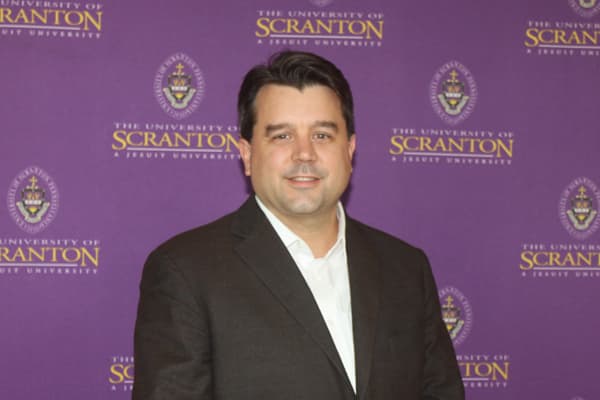 Recently, Matthew Meyer, Ph.D., gave a talk to his fellow faculty members at the Faculty Research Seminar Series. We caught up with him to find out about his recent work.
Recently, Matthew Meyer, Ph.D., gave a talk to his fellow faculty members at the Faculty Research Seminar Series. We caught up with him to find out about his recent work.Dr. Meyer has been a professor in the Philosophy Department since 2010. Most of his research to date has been on the thought of Friedrich Nietzsche. He recently published a book, Reading Nietzsche Through the Ancients: An Analysis of Becoming, Perspectivism, and the Principle of Non-Contradiction, with the Berlin-based publisher Walter de Gruyter. At Scranton, he serves as the moderator of the philosophy honors society Phi Sigma Tau, and he is also the pre-law advisor.
Tell me about your specialty.
In addition to doing some occasional work on the ancient Greek philosophers — Plato is my favorite — I write about Friedrich Nietzsche, a 19th-century German philosopher. My goal is to understand what he’s trying to do in his works. And it’s really not all that clear!
Can you give us some background?
Sure! To step back a little, in the last 100 years, Nietzsche has been interpreted as anything from a proponent of national socialism to the founding father of postmodernism. So, he’s been all over the political and academic spectrum.
What are you working on now?
I’m working on a book called Nietzsche’s Free Spirit Works: A Dialectical Reading that will be published — hopefully soon — with Cambridge University Press.
There’s a concept of what Nietzsche calls to be a “free spirit” and he has these books that detail his path toward becoming a free spirit. These books are made up of aphorisms — short sayings or paragraphs loosely construed — and there are more than 2,000 of them!
Some people think they are just Nietzsche’s random thoughts that he jotted down for about four years, so they think there is no order or coherence to them. I say, “No, that’s not the case at all.” You have to read these aphorisms much more carefully and in conjunction with the notes and
letters he writes about them during this time. In so doing, one begins to see that these books, read together, constitute a novel of self-education that tell how Nietzsche becomes a free spirit and what it means to become a free spirit.What does it mean to become a free spirit?
In part, it means to be liberated from false beliefs. So, freedom comes through truth-seeking, and in this sense, Nietzsche’s project is continuous with Enlightenment philosophy from the 17th and 18th centuries. However, Nietzsche takes this Enlightenment project a step further, and this is where his project becomes more controversial. Specifically, he begins to argue that morality is just another false belief, and ultimately, he doesn’t think that there is anything in nature that grounds our responsibility to the truth. The reason that there’s nothing that compels us morally to be truthful is
because science presents a picture without a god — a world devoid of values.
Nietzsche thinks science tells us the true world, but once you see what the world is like, there’s nothing that compels us to be scientific in our thinking . . . or truthful.How can we relate?
Nietzsche’s attack on the value of truth and his related critique of science is done in service of revitalizing art, and he looks back to ancient Greek tragedy and comedy as models. He thinks that art, unlike science, is the stuff that helps us cope with and even embrace an otherwise meaningless existence. Today we see inchoate versions of this. Think Lord of the Rings, Star Wars or Harry Potter. This stuff is all made up. But we see how it can be important for people’s lives and their self-understanding.
In this way, Nietzsche’s free spirit contrasts sharply with the story Steven Pinker, a cognitive psychologist and popular science author, tells in his recently released book, Enlightenment Now. There, Pinker calls on us to re-embrace things like truth, reason, science. He’s in a crew of atheists that says that religion is false and demands that we adhere to rationality and truth-seeking by means of science. Nietzsche challenges this by appealing to scientific discoveries showing that the world is not all that rational and that we are not all that rational either. Common sense gets us to think we operate in this way, but science shows us a much different picture, and so Nietzsche thinks that science itself actually undermines the Enlightenment project Pinker wants us to embrace.
Who is right in this debate or whether some third alternative is right (theists will reject both options) is not something I tackle directly, at least not for now. In this project, I’m just trying to make a claim about how we should understand Nietzsche’s works. And that, in itself, is controversial.Understanding Nietzsche’s Free Spirit Works
-
04/20/2018
Ever wonder why you notice one advertisement over another; why you pay attention to a siren; or how you manage to find your car in a crowded parking lot? Psychology Professor Bryan Burnham, Ph.D., does and he focuses his research on understanding the cognitive complexities involved in “selective attention.”
“I look at how phenomena draw attention, and if then we can manipulate that. Our understanding of these mechanisms can eventually lead to developing ways to help you focus more and ways to become less distracted,” said Dr. Burnham, whose research focuses on the understanding component rather than the application. In more scientific terms, his research involves “the mechanisms and processes underlying selective attention, implicit learning and the connection between working memory and executive attention.”
His experiments, many of which are conducted with the aid of undergraduate students, carefully control and manipulate stimuli to better comprehend the cognitive functions of the brain regarding working memory. These functions guide our attention in a given environment.
Working memory is “what is brought into an active state from long-term memory,” explained Dr. Burnham. “To use a simple example, to find your car in a parking lot full of vehicles, you would pull information into your active memory about your car, such as its color, shape or other physical attributes.”
Dr. Burnham’s experiments involve introducing objects into a subject’s working memory, then measuring the subject’s involuntary responses to focus on certain stimuli while ignoring other stimuli. Much of his research focuses on “pop out” perceptual phenomena, which is a stimulus that is very distinctive from the background, involving an “abrupt change that would be noticed, usually from physical features such as color,” said Dr. Burnham.
“The research focuses on trying to understand exactly how attention and memory interact and what are the different mechanisms involved in the involuntary shifting of attention. Also, is the shifting truly involuntary or is there possibly some conscious intent involved?” said Dr. Burnham, who joined the faculty at Scranton in 2007 after earning his master’s and Ph.D. in experimental-cognitive psychology from the University of Albany.
Dr. Burnham’s earlier research involved a comprehensive review of existing studies regarding involuntary response and attention. His review showed “empirically there has not been a clear demonstration that attention shifts to novel things completely automatically. I’m not saying the involuntary response is not there. I actually think it is just based on an evolutionary, common sense standpoint. I am just saying, based on existing data, it hasn’t been proven.”
So far, Dr. Burnham’s studies have found two cognitive mechanisms in the brain causing attention, but notes more may exist. The first is selection bias or attentional bias, that is “once a stimulus is introduced, then there is a bias in favor of it.” The second is a memory retrieval mechanism, that is “when you process something, you retrieve a memory of something. You retrieve previous examples, such as pulling a color or shape into working memory.”
Dr. Burnham’s research, some of which includes University undergraduate students as co-authors, has been published in more than a dozen academic journals, including The Journal of Experimental Psychology; Human Perception and Performance; Psychonomic Bulletin and Review; Attention, Perception; and Psychophysics, Brain and Cognition. His research has also been presented through poster and paper presentations at more than 25 professional conferences. He also works with undergraduate students in psychology laboratory courses to replicate studies recently published in academic journals. The students’ results are then added to the published national archive PsychFileDrawer.org.
Attention Gets Faculty Member’s Research Attention
-
04/18/2018
A $645,000 National Science Foundation (NSF) grant will fund scholarships and provide additional academic support to 25 undergraduate students at The University of Scranton majoring in science, technology, engineering and mathematics (STEM) fields over the next five years. The competitive federal grant was awarded to the University for “Transforming STEM in Northeastern Pennsylvania,” now named the Royal Scholars Program. University biology professor Janice Voltzow, Ph.D., is the principal investigator for the grant.
The Royal Scholars Program provides scholarships to University students who have demonstrated academic achievement and a need for financial assistance. The grant also supports student and faculty mentorships, internship and research opportunities for the students, as well as additional enrichment programs such as a week-long summer workshop. The scholars will also participate in a common first-year seminar on science and society and in common sections of STEM introductory classes for those in
same major.According to Dr. Voltzow, the extracurricular activities and course structure are intended to build a community within the cohort, as well as to assist students in developing as STEM professionals, to explore careers in STEM fields, and to initiate pathways to these careers in order to improve the STEM workforce in the future. The program also includes a peer mentoring component in addition to faculty mentors.
Working in conjunction with Dr. Voltzow to support the Royal Scholars Program are Stacey Muir, Ph.D., professor of mathematics; Declan Mulhall, Ph.D., professor of physics/electrical engineering; Christie Karpiak, Ph.D., professor of psychology; and Brian Conniff, Ph.D., dean of the University’s College of Arts and Sciences.
Funding from NSF Scholarships in Science, Technology, Engineering, and Mathematics (S-STEM) for the program will begin in the 2018-19 academic year and will run for five years. The scholarships to be awarded to students majoring in STEM disciplines offered through the departments of biology, chemistry, computing science, mathematics, and physics/electrical engineering range from $4,000 for the first year to $5,500 for years three and four.
Dr. Voltzow joined the faculty at Scranton in 1996. She earned her bachelor’s degree at Yale University and her Ph.D. from Duke University. She was among five faculty members at Jesuit institutions participating in another five-year program funded in 2012 by a $600,000 grant from the National Science Foundation (NSF), which supported the development of peer networking to promote professional development for STEM women faculty at primarily undergraduate institutions.
For additional information about the Royal Scholars Program, contact Dr. Voltzow at 570-941-4378 or janice.voltzow@scranton.edu.
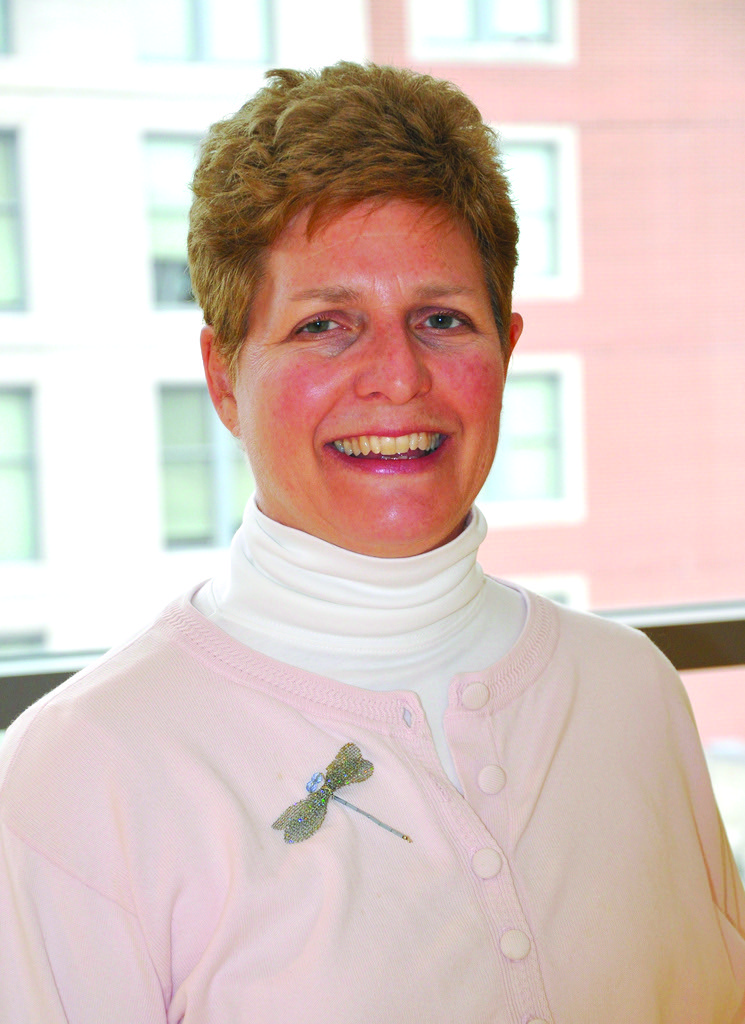
Janice Voltzow, Ph.D., professor of biology, is the principal investigator for the $645,000 National Science Foundation (NSF) grant awarded to the University.
Six-figure Grant Funds Student STEM Scholarships
-
04/17/2018
Read the profiles of two Scranton professors from Happenings Magazine.
Spotlight on Dr. Michael Jenkins from The University of Scranton
Dr. Michael Jenkins, 33, serves as associate professor of criminal justice at the University of Scranton. He was honored with a Fulbright Grant and wrote multiple publications in his field. Last year, Dr. Jenkins also launched at the University’s Center for the Analysis and Prevention of Crime (CAPoC), where he serves as executive director.
Read on, here.
A Call to Service: Meet University of Scranton Dean Debra A. Pellegrino
Meet University of Scranton Dean Debra A. PellegrinoDebra A. Pellegrino, Ed.D., 62, had a vision ten years ago for a new center for rehabilitation education at the University of Scranton. The university developed, designed and implemented a strategic plan and approval process for construction of the $47 million project. The Leahy Community Health and Family Center (LCHFC) opened in August 2015 and now provides a
state–of-the-art facility to match the programs already established by physical therapy, occupational therapy and exercise science programs in the Panuska College of Professional Studies (PCPS).Read on, here.
Two Professors Profiled in Happenings Magazine
-
04/11/2018
Excerpted from Dr. Gretchen Van Dyke’s article "Theory into Practice: The Mid-Atlantic European Union Simulation Program" on Medium and published in the inaugural Political Science newsletter, which can be found here:
Each fall semester, I have the honor of welcoming students and faculty to Washington, D.C., to the annual European Union Simulation sponsored by the Mid-Atlantic European Union Simulation Consortium (
MEUSC ). Our three-day intercollegiate experiential learning exercise allows college sophomores, juniors, and seniors to experience the complex and dynamic institutions and policy-making process of today’s EU andunderstand more fully current issues challenging European integration. Students essentially take their
academic /classroom knowledge of the EU and put it into practice in the simulation of the European Council, EU Parliament, two configurations of the Council of Ministers, and the EU Commission. Over time, we have continuously sought to engage students in discussions that are both current and topical in actual
EU decision-making circles ... I am privileged to have interacted with a great group of dedicated college educators since 1996 ... We work as a dedicated team to provide a valuable educational experience for our students and to maintain the legitimacy and quality of our EU simulation program.Theory into Practice by Gretchen Van Dyke, Ph.D.
-
04/05/2018
The Office of Research and Sponsored Programs randomly selects a winner from members of the University faculty and staff who submit external grant proposals during that month. Dr. Onat is this months's winner of a $25.00 Amazon gift card.
Congratulations!
ORSP March Raffle Winner - Dr. Ismail Onat
-
04/04/2018
This article originally appeared in the Counseling and Human Services newsletter, which can be found here.
What recent developments within the CMHC/SC/RC field are you most excited about?
It is exciting to me that there is
movement toward counselors being recognized and acknowledged as an integral part of the systems that can assist in promoting the health and wellness of children and adults in more concrete and deliberate ways. We can see this in lobbying efforts to have counselors included as care providers for Medicare and to have counselor licensure be more uniform across the country.Where do you hope to see progress made in the future?
I hope to see the stigma associated with seeking counseling go away or at least to continue to lessen. There seems to have been an increased effort by the counseling profession and communities, in general, to bring awareness to needs of those who live with mental illness, disabilities and trauma. We see this with suicide awareness and mental health support events on campus and in the community. When it is easier for people to seek services from the standpoints of reduced stigma, increased awareness and easier access, it sets the stage for people to learn new strategies and skills to potentially manage life’s challenges with a bit more ease and support. The desired outcome would be that people could enjoy life and living more.
I have said frequently that the best intervention is prevention so I hope to see continued efforts to dedicate time and resources to prevention efforts across a wide spectrum of issues. In the Counselor Training Center, I hope to see the development of additional opportunities for SC, CMHC, and RC students to work collaboratively with each other both on campus and in the community. When students engage in these collaborative opportunities it extends the insight and learning outcomes. Of course, one other thing I’d like to see progress towards both in the counselor training center and the profession is
movement toward electronic record keeping and technology-based interventions.Q and A with Gerianne Barber of Counseling Training Center
-
04/04/2018
Rob Smith, Ph.D., professor of biology, spends time in Lackawanna State Park studying the migratory habits of land birds. (He was quoted in a recent article about volunteering in the park here.) He and his wife -- “an outdoors person like me” – get up before sunrise and head to the park to catch and tag them during migration season. Most recently, Dr. Smith has been working on a preliminary project on saw-whet owls.
Read more from Dr. Smith in the Q&A below and find out more about his research here.
Q: Tell me a little about your research in the parks.
A: We look atspring and fall migration of land birds so we’ve been in and around the local parks since 2004. We work closely with Angela Lambert [Lackawanna State Park environmental educator and volunteer coordinator] and the people in Lackawanna State Park. They've been very good to us, letting us work there.
Q: What are your research interests?
A: What we're interested in doing is finding out what habitats are important for migratory land birds. Land birds stay on land, as opposed to waterbirds -- examples are bluebirds and robins, though we don’t get a lot of those. We catch wood thrushes, American redstarts, grey catbirds, common yellowthroats and magnolia warblers.
Q: Tell me about yourowl project.
A: This is a preliminary project that we started last fall. We wanted to see if the Northern saw-whet owls were in the park. Turns out they are! We were only out there a couple nights but over the course of three nights, we caught about 15 owls. Because we found them, we’ll likely do more work in the fall.
Q: How do you catch the birds?
A: That’s a good question! We catch both owls and other land birds in something called mist nets. We put these nets in their habitat and we are there to monitor them because we don’t want anything bad to happen to the birds. Last year we set up four. They are 12 meters each. When we study the land birds, we have 15 to 20 nets running and we check them every 30 minutes or so. We bring USGS aluminum bands – individually numbered bands – so that we can track them. We either recatch them or – even better – someone else does! We had one bird recaptured in West Virginia and we know that because of the band on the bird’s leg. That doesn’t happen often!
Q: Do you work on this research with students?
A: Yes! I’ll increase efforts to include students in the fall on this owl project, but currently, I have between two and five students who come out and do fieldwork with us in the spring and fall and about the same number of students in the lab.
One of my students is actually doing his honors thesis on feather coloration in catbirds.Biology Professor Rob Smith Studies Land Birds
-
03/28/2018
Dr. Jessica Bachman is an assistant professor of exercise science and sport. Prior to joining the University, she taught at Marywood. She is a registered dietitian and received her bachelor’s degree in nutritional sciences from The Pennsylvania State University and a master of public health degree in community education and a master of science degree in nutrition from the University of Tennessee. She also earned a doctorate in nutrition science from the University of Tennessee. We know what she does during the week, but we asked her what her Sundays look like. Here is what she had to say.
Starting off the day:
I typically start my Sunday with getting a bit of grading or prepping for the week done while my family sleeps in. I am the only early riser in my house so I enjoy a bit of
quite Planning and Preparation:
Sundays typically involve mundane tasks like laundry and meal planning for the week. We plan out what we will have for dinner every night Monday – Friday that week and plaster that on our fridge. I’ll then take the kids grocery shopping with me while my husband does work around the house. I am not much of a shopper BUT as a dietitian, I LOVE to shop for food! I truly enjoy my time walking through the grocery store.After food shopping, we’ll cook a more involved meal for Sunday evening and prep some food for the week. With as busy as we are, we don’t get home until after 6:00 p.m. most nights during the week and with my children’s 8:30 p.m. bedtime, we prep as much as possible on the weekends to get dinner on the table quickly during the week. We like to be active as a family together as well and when Spring eventually decides to come to Scranton, we will be spending time outside on Sunday at parks, hiking or playing around in the yard. During the winter we do a lot of indoor soccer, dance parties and hide and seek
playing at home.Family time:
Sunday evening, we all enjoy a meal together and then relax watching a movie or reading together. Some Sundays, like last week, my husband has an early enough hockey game and we’ll all go watch him play. Before bedtime, we lay out all the kids clothes for the week, read some books and give big kisses and hugs good night. My Sundays are a day for me to get in as many snuggles with my babies as much as possible while they still allow me to do it.
This article is part of Campus Corner, a blog about campus written by student correspondents. Read the blog here.
A Sunday in the Life of Jessica Bachman
-
03/27/2018
University of Scranton psychology professor Danielle Arigo, Ph.D., was awarded a competitive National Institute of Health (NIH) grant for research to identify influences on physical activity that are unique to midlife women. The five-year, $800,000 grant is a K23 Award, which is a career development award for patient-oriented research. She is the first Scranton professor to receive this type of NIH grant. The award supports training and mentored research experiences for junior researchers with promise to develop as independent investigators.
“My research for this grant focuses on reducing midlife women’s risk for cardiovascular disease by using tailored digital health tools to promote physical activity in this population,” said Dr. Arigo. “Midlife women experience unique psychosocial barriers to physical activity. The first aim of the grant is to better understand these barriers, and the second is to use this information to design a mobile health app tailored to address these specific barriers.”
Dr. Arigo, a licensed clinical psychologist with a specialty in health psychology and behavioral medicine, has already published multiple studies on how wearable technology and online social contact affect health and wellness behavior, particularly among women. Her studies generally show that wearable devices provide motivation for exercise and weight loss, and that particular features are beneficial for certain individuals.
The NIH grant, given through the National Heart, Lung, and Blood Institute, will support training at Scranton, Pennsylvania State University and Drexel University. Dr. Arigo’s mentoring team includes University of Scranton professors John Norcross, Ph.D., psychology (career mentor); Terrence Sweeney, Ph.D., biology (scientific adviser); and Yaodong Bi, Ph.D., computer science (scientific adviser); Penn State University professors Joshua Smyth, Ph.D., biobehavioral health and medicine (scientific mentor); and Danielle Symons Downs, Ph.D., kinesiology (scientific collaborator); and Drexel University professor Meghan Butryn, Ph.D., psychology (career collaborator).
The grant began in March and extends for a five-year period.
Dr. Arigo, who joined the faculty at Scranton in 2014 as an assistant professor of psychology, also serves as an associate faculty member of women’s and gender studies. She earned her bachelor’s degree in psychology from Drexel University and her master’s and doctoral degrees in clinical psychology from Syracuse University. She also completed health-focused training during her clinical internship at the Syracuse VA Medical Center and a Postdoctoral Research Fellowship at Drexel University.
Dr. Arigo was among just 12 faculty members in the nation to participate in 2015 National Institutes of Health’s esteemed Program to Increase Diversity Among Individuals Engaged in Cardiovascular Health-Related Research (PRIDE) summer institute, which is a training and mentoring program for junior faculty members. Her participation in this program led directly to the development of her K23 proposal.
Psychology Professor Awarded $800,000 NIH Grant
-
03/20/2018
With ever-increasing pressure on faculty and researchers to publish or perish, most focus on new breakthroughs, leaving a void in replicative research that provides the important scientific step of verifying results.
Step in the capability of University of Scranton students and the need of these students to learn how to conduct research for courses with a research lab component.
Bryan Burnham, Ph.D., associate professor of psychology at Scranton, married the two “needs” into win-win situation for undergraduate students in his Research Methods in Behavioral Sciences Laboratory course. Students working in small groups replicate recently published studies.
The “real world” experience not only introduces students to the most recent research in the field, but they also gain a better understanding of the scientific method, and how to plan and execute a study. Their results are then added to the published national archive PsychFileDrawer.org, which equates to an impressive line on an undergraduate’s resume.
And science – in the midst of a replication crisis – has one less unverified study in its case file.
According to Dr. Burnham, University students also enjoy the research projects, become more engaged and learn more through the process.
A second psychology professor at Scranton, Jill Warker, Ph.D., has added the replication research component to her course as well.
Maybe this situation is better described as a win-, win-, win-, win- …
Applying Student Course Research to a Greater Good
-
03/20/2018
What is your position at The University of Scranton?
I am the coordinator of the Writing Center in the CTLE. I also adjunct in the English department, and as of this year, I coordinate ESL support in the CTLE.
How do you balance your life as a professor, Writing Center coordinator and author?
I had to learn a while ago that I cannot write while I'm teaching. I just can't make the space in my brain for it. While classes are in session, I'm very busy both physically and mentally, and I just can't find the time to dedicate to a writing project. So, I write mostly on breaks -- especially in the summer. Now, I do make an exception when something just grabs me -- as it sometimes does.
Outside of your job at the University, you are a very successful writer. From books to poetry to creative nonfiction, what is your favorite genre to write and why?
I love, love, love to write memoir. But, I was trained for most of my life as a poet. Then I discovered folks like Bev Donofrio, Mary Karr, and Nick Flynn, poets who were writing memoir. It led me on my path to what I do now. I truly believe that every writer would benefit from a background in poetry. Poetry teaches how to use language. It is an economy of words.Your memoir, Fat Girl, Skinny, was nominated for a Pulitzer Prize. What was your reaction to the nomination?
Well, it was a real honor. I mean, really, any press can nominate any author, but because my press was so small it really cost her quite a bit of money and effort to submit the nomination. So, I was really honored that they had that much faith in my book.
Can you tell us a little more about your writing process?
I am a big fan of revision. So while in poetry I might get away with writing something and finding it acceptable after only one of two drafts, with longer prose, I have to give it at least four or five drafts. With Fat Girl, Skinny, I ended with 17 drafts. As for the process itself, I write best early in the morning. I'll sometimes come to work an hour early, close my door and turn on some Leonard Cohen or Ryan Adams and type away. I used to write at night when I was younger, but having kids will change your clock.
We love to ask professors about their Sundays. What does a 'Sunday in the Life' look like for you?
Usually, Sundays are saved for walking the dog, maybe some antique shopping, and hanging out with my husband. My daughters play soccer, so my Saturdays are usually reserved for them. Sundays are mine.A Talk with Pulitzer-nominated Writing Center Coordinator
-
03/14/2018
If University of Scranton professors Douglas M. Boyle and Daniel P. Mahoney graduated from high school in 2018, they’re not sure they’d have the means to attend college.
With that in mind, along with conversations with community leaders and the desire to keep local students in Scranton, they spearheaded the University’s Business High School Scholars Program.For the story about the Program in the Scranton Times-Tribune go here.
Faculty Spearhead Business High School Scholars Program
-
03/13/2018
Sandra Pesavento, Ph.D., faculty specialist in the Education Department at The University of Scranton, received the Diane Place Doctoral Dissertation Award at Wilkes University’s School of Education fourth annual Celebration of Education event. The award honors a Wilkes graduate student who exhibits perseverance in completing doctoral studies, commitment to lifelong learning, resilience in the face of adversity, strength of character to advance in life through education, collegiality with peers, leadership in education and excellence in academics.
Dr. Pesavento, a graduate of Wilkes’ doctor of education program, moderates the Student Education Club at the University, where she and her students began “Coding in the Classroom” initiative that teaches coding skills to elementary school students.
Dr. Pesavento joined the faculty at the University in 2010 and became a faculty specialist in education in 2012. Previously she taught in the Scranton School District and served as educational technologist in the Dallas School District. She earned her bachelor’s degree from Marywood University.
Professor Receives Doctoral Dissertation Award
-
03/02/2018
We got in touch with the Communication Department’s adviser and professor, Dr. Sufyan Mohammed, who also helps teach some economics courses in Brennan for the KSOM students. So, what is a typical Sunday for this busy man?
Sleeping in (kind of):
Sundays I wake up around 9 in the morning. It is the only day I get to sleep in late because usually during the week I wake up at 5 a.m. Next, I typically eat breakfast and read the newspaper for an hour, I like to stay up to date on current events and also like to discuss the topics with my classes to make sure they know what’s happening in the world.
Errands, errands, errands:
Usually, I like to go grocery shopping for the week ahead in the morning as well. Then, it’s time for lunch, I also use this free time to talk to family on the phone early in the afternoon so we can catch up on our daily lives. After that, I cook and prep my lunches for the week, and, if I’m lucky, a few dinners, which takes up a good portion of my afternoon.
Winding down:
I take the time later in the afternoon to head to the gym once a week, which lasts about an hour and a half to two depending on the workouts I want to do for the day. Finally, I eat my dinner around 6 p.m. and watch a movie or do grading (depending on the time of the semester) until about 9 or so. Then I get myself ready for the next day by setting out my clothes, sometimes I even plan this out for a week in advance so it’s not something I have to worry about. And, to top it all off, I head to sleep around 10.
Sunday in the Life Dr. Sufyan Mohammed
-
02/27/2018
As part of the Faculty Seminar Series, George Aulisio, associate professor, presented his latest research. Read more about his research below.
I am researching the philosophy of mind, and incorporating aspects from metaphysics, general science, and the philosophy of science to try and offer explanations for a number of interrelated puzzles in the philosophy of mind. One puzzle, in particular, is the tension between having a mind that meets the conceptual standards of how we perceive our minds while still allowing for the mind to be causally efficacious.
To elaborate, the 17th-century French philosopher René Descartes conceptualized the mind as something completely different than the brain. The stark difference that Descartes drew leads to what we call the problem of interaction. One way to resolve the problem of interaction is to reduce the mind down so that it is identical to the brain, but reducing the mind down to the brain comes at a price. Arguably, there’s no satisfactory way to explain the qualitative aspects of mental life and what we commonly refer to as free will by way of reduction to the brain. In other words, we tend to lose the mind’s essential characteristics when we shift all of our focus to the brain.
The puzzle involves determining how we can save the mind’s unique characteristics while keeping it causally connected to the brain, and do all of this without violating our best scientific knowledge. I argue that our best hope of making this possible is by embracing the non-reductive theory of emergence, or the view that there are non-reducible properties or phenomena that arise from complexity. In these theories, the mind would be an emergent phenomenon of the brain. This is only one step, however, we also have to expand our view of causation to also incorporate holism, a worldview that tells us larger system can have causal effects on its parts.Framing and Reframing Mental Causation
-
02/27/2018
The Institutional Research Office is administering the National Survey of Student Engagement (NSSE) to University of Scranton freshman and seniors during Spring 2018. The Institutional Research Office has administered this widely-used survey six times since 2005 and considers it to be one of the most useful ways to gauge students' engagement and satisfaction with their college experience.
Over 500 academic institutions participate in the NSSE annually, and Scranton compares its results with peer institutions to see how we rank. Results are made available to the University community via reports that are posted on the Institutional Research Office's web page. To see prior year's reports, please click here.
An invitation to freshman and seniors to participate in the survey was sent from the Provost on February 14. Several email reminders will be sent through February and March. Freshman and seniors can also access the survey link in the University of Scranton portal on the Student Tab. In appreciation for your effort, all students who complete the survey by April 30 will be entered into a drawing to win one of two (2) Amazon gift cards worth $300 each.Encourage Participation: NSSE
-
02/21/2018
This article is from the Department of Latin American and Women's Studies Newsletter, which you can read here.
Linda Ledford-Miller began her career at the University of Scranton in the fall of 1985. At that time I had already been here for 6 years, but I had known her since 1978 or 1979 when we met as graduate students at Penn State. In the intervening
years she went to Brazil on a Fulbright scholarship and completed all her doctoral studies but the dissertation in Comparative Literature at the University of Texas at Austin.
Linda immediately brought a burst of energy and spontaneity to a somewhat staid, all-male department, then known as Foreign Languages and Literatures. In an era in which language study was on the wane, Linda was, from the very beginning, a staunch and outspoken defender of foreign languages and cultural diversity. Early on she secured a $60,000 grant from the Culpepper Foundation to renovate our outdated language lab facilities, which she transformed into a center for technologically based language learning activities and directed for several years after returning from another Fulbright, this time to Guatemala.
For a number of years, Linda and I were the only Latin Americanists at the University of Scranton. During the 1990s, however, a number of new hires in a variety of disciplines, such as Janice Voltzow in Biology, came to the University with experience and interest in Latin America. Several veteran faculty members, such as Kevin Nordberg, Sharon Meagher, Stephen Casey and Bob Kocis, developedstrong interest in the region through their travels and associations. Linda's efforts, in conjunction with Bob Kocis, were instrumental in bringing Dr. Alexander López, Fulbright Scholar-in-Residence, to the University of Scranton for AY 1997-98. Dr. López taught courses in both the Foreign Languages andLiteratures and Political Science department and helped to increase awareness of the importance of Latin America in the general University community. The following year Linda secured an NEH focus grant to organize a faculty seminar on Latin American Identity. Faculty from departments across the University participated and the activities of that group gave rise to a proposal for a concentration in Latin American Studies, which was received favorably by the administration and accepted by the various University curriculum approval bodies.
The efforts of Linda and other advocates of Latin American Studies, together with the support of upper-level administrators in the late 1990s and throughout the decade beginning in 2000, resulted in the hiring of several outstanding dedicated Latin Americanists, such as Lee Penyak, Mike Allison and Yamile Silva, and made our dream of a strong program in Latin American Studies a reality. Among Linda's many contributions to the University of Scranton, this is the one that had the most direct positive influence on my career and for which I am most grateful. I am proud to have worked closely with her as a colleague and a friend for the past 30 plus years.Read the full article in the LA/WS Newsletter here.
Linda Ledford Miller, A Tribute
-
02/21/2018REFLECTIONIndifferenceIn the First Principle and Foundation of his Spiritual Exercises, Ignatius instructs us that “we are to use the things of this world only to the extent that they help us to praise, reverence, and serve God, and we ought to rid ourselves of the things of this world to the extent that they get in the way of this end.” These things won’t be the same for all of us, and Lent offers us a time to take inventory of the roles certain objects, habits, or thoughts play in our relationship with God. In other words, Lent can be a time when we practice this Jesuit ideal of indifference most intentionally.
Read below Martha Serpas’ poem, “The Discipline of Non-Fulfillment for and after Margaret A. Farley,” which addresses the Easter season and the practice of the faith in similar ways as Ignatius did when discussing indifference.
The Discipline of Non-Fulfillment
for and after Margaret A. Farley
Eastertide, Margaret, and all
That we’ve given up comes back
To us at once, chicken and
Sausage gumbo, twelve-packs of Dixie,
Picayunes, and the man-god builder
Of trawl boards whofrees bird dogs
And coons from steel jaws.
At once the humid air rolls back
And northern light pours through.
Girls in pastel dresses spin, petals
To relieve pink azaleas
Of carrying the day
On their own. A crowded
Sea of greens, innocent water
Wedged by shorn banks below.
Eastertide, Margaret, and tide
Means something different here,
But wouldn’t you say it’s the same
Sweeping abundance overtaking
Shoals and inlets, joining lake and bay,
Drowning everything in between?
Don’t answer. I’ll focus on some small
Thing, a blue heron lifting from brown stubble,
Light off bleached barnacles, helicopter blades
Beating the marsh into submission.
No action hero will rappel down
In camouflage or lab white
To sew together the last scraps
Of duckweed and spoil, like the
Discipline of non-fulfillment,
You offered from the pulpit
Years ago, as if you were explaining
The abbreviated life of dogs
To children, laying a still,
Furry body down in its damp
Space and closing up the hole.
by Martha Serpas
from The Dirty Side of the Storm (W. W. Norton)Serpas will deliver a poetry reading on campus tomorrow, Wednesday, February 21, from 5:00-6:30pm, in Leahy Hall’s Kane Forum (2nd floor) as a guest of the University Reading Series in the Department of English & Theatre, the Jesuit Center, the Ellacuria Initiative, and the Department of Theology & Religious Studies. All are welcome to join us.Teresa Grettano, Ph.D.
Assistant Professor, Dept. of English & Theatre
Director of First-Year WritingPRAYERFill me with yourgoodness Lord, just as you fill all of creation with your marvelous animating Spirit.To read more Lenten Devotionals, go here.Lenten Devotional - Faculty Reflection
-
02/14/2018
Barry X. Kuhle, Ph.D., associate professor of psychology at The University of Scranton, proposed to his wife on Valentine’s Day, but his research shows despite all the romantic hype of the holiday, in reality many couples ironically break up on Valentine’s Day because there are so many pressures and expectations. The hype, he says, actually moves many to think of all the reasons they don’t want to remain in the relationship.
Men do most of the dumping, and his research on cues to commitment suggests that there are many reasons men end relationships on the day that most express their love:
- He’s not interested in a deep, committed relationship and doesn’t want to lead the woman on.
- He’s scared about the escalation of commitment that often comes with sharing Valentine's Day with a woman.
- He doesn’t want to waste time and/or money on a relationship he thinks won’t last.He’s dating several women simultaneously and the obligations of the day - dinner, date, etc. - force him to choose one woman and dump the other(s).
- He’s worried that publicly sharing Valentine’s Day with a woman will reduce his ability to play the field.
According to Dr. Kuhle people in their 20s may break up because they feel they have plenty of time to find better options. Thirty-somethings often have a goal in mind and cut their losses quickly if they don’t like their prospects. Those 40 and older may feel pressure to find the right mate. There are so many reasons to blame good old Cupid, it seems. Even teenagers feel the sting of his poor aim.
Dr. Kuhle’s research focuses on the evolved psychological mechanisms that underlie commitment and jealousy in romantic relationships. He is also interested in the evolution and development of menopause and sexual fluidity in women.
Cupid Can be Cruel on Valentine’s Day
-
02/08/2018
Literature, legend and lore have long held up the humble ant as a model insect citizen. Industrious, organized and future-focused, the tiny creature has a stature grown from its work ethic.
Most people know the famous fable, penned by Aesop, titled “The Ant and the Grasshopper.” As the grasshopper whiles away the summer playing music, the ant busies herself procuring and storing food for winter. When winter arrives, the hungry grasshopper humbly begs for a bite from the scornful ant.
The tale has long sparked debate. Which was truly the wiser creature? And are ants as generous as scientists would have us believe?
That’s one basic question on the mind of University of Scranton Professor Emeritus John R. Conway III, Ph.D., a sought-after authority on a type of inarguably benevolent southwestern and Mexican honey ant (species name is mexicanus) that, in essence, has some greatly swollen workers, called repletes, that live to eat, as much as possible, not for personal pleasure, but for the very survival of the colony.
Dr. Conway’s original 1975 doctoral research on this fascinating ant has retained its relevance for more than four decades. In fact, owing plenty to increased visitor interest in his original research spot – The Garden of the Gods near Pikes Peak – the city of Colorado Springs recently awarded him a $30,000 grant to pick up where he left off.
The background story puts the renewed interest in better context.
The role of a honey ant replete might initially seem enviable: Hang around all day, from the ceilings of specially-constructed underground chambers, and ingest food regularly delivered by other colony workers.
But any images of a life of leisurely excess quickly disappear. Turns out all the hanging around happens because the honey ant repletes, whose abdomens can swell to the size of grapes, can do nothing else and become so engorged they can barely move.
“They spend their whole lives there, prisoners in their own nests, due to their immobility and the small size of the passageways” Dr. Conway said.
Their sole role is to function as living larders, storing food that otherwise would run scarce in arid, or semi-arid climates. Eventually, the honey ant replete, once fully swollen with stored sustenance, is drained.
And there’s the rub.
“As far as we know, once they are drained, they die,” Dr. Conway explained. “So they essentially sacrifice their lives for the good of the colony.”
The process, and these very unusual ants themselves, are cause for intense curiosity, in the scientific community and among the general populace, especially visitors to The Garden of the Gods, where the Rev. Henry Christopher McCook did the first extensive study of honey ants in 1882, Dr. Conway said.
“He was the first one to describe what was actually going on in some detail,” Dr. Conway said, explaining that’s why the Garden of the Gods was the first place he himself went when he decided to pick up McCook’s mantle and study this species of honey ant as part of his Ph.D. research while at the University of Colorado in Boulder.
“I wanted something that was not only of academic interest, but also of popular interest. I was interested in photography and had National Geographic and other popular scientific magazines in mind. Fortunately, I have been able to achieve that,” said Dr. Conway.
Now Dr. Conway, who served as a biology professor at The University of Scranton from 1985 through to his retirement in 2016, can add to his achievements as he revisits his work, especially to compare nest numbers and provide updated data to the city of Colorado Springs.
“They want to see if the number of colonies has increased or decreased and seek my advice on preservation of this unusual ant species for the future,” Dr. Conway said, noting, “One of my main chores is to see if I can relocate the nests I found in 1975.”
He has a vast collection of topographical maps and aerial photographs marking his original nest locations that he hopes will aid him.
If successful, Dr. Conway said, he will have a whole new set of data on how long nests can survive.
Dr. Conway, a world traveler, who during his Scranton tenure also received grants to study in Arizona and the Australian Outback, looks forward to returning to Colorado, but also will miss The University of Scranton and the other places it took him. In Australia, he led Earthwatch expeditions to study another honey ant, Camponotus inflatus, that independently evolved the same adaptation of storing nectar in swollen hanging repletes. Additionally, he investigated the use of these ants in the diet and culture of Australian Aborigines and found that they are still important in the Dreamtime of some tribes who paint them and have honey ant songs.
“One of the things I look back most fondly on from my time at the University was leading tropical biology trips to places such as Belize, Guatemala, Jamaica, Costa Rica and Panama every other intersession,” he said.
Currently, he is also working on lectures and a book on the biologists and naturalists who discovered the approximately 2 million known plant and animal species that constitute the Earth’s incredible biodiversity.
Professor Emeritus to Study ‘Sacrificial Ant’
-
01/31/2018
Faculty members who wish to update or retake their University photo may do so prior to the University’s Spring Convocation on Thursday, Feb. 1, from 11 to 11:30 a.m. in the McDonnell Room (room 405) on the fourth floor of the DeNaples Center. The photos taken will be
of just the head and shoulders.The News and Media Relations Office
stores the University photos of faculty members electronically. These images are used on the University’s website, as well as for news releases. In addition, faculty often use the images for scholarly publications or conference presentations. Again, the images are stored electronically for you and can easily be sent to you or to publications on your behalf.For more information, contact the University’s News and Media Relations Office at 570-941-7662.
Is it Time to Update your Faculty Photo?
-
01/31/2018
We talked with Professor Bruce Lanning about teaching a course during intersession. Read the Q&A here.
What course(s) are you teaching over intersession? Can you tell us a little about it/them?
I taught Basic Drawing this intersession. It deals with developing basic observational and design skills through the exploration of a wide variety of subjects. Materials used are charcoals, pencils, inks as well as some collage elements.
What kind of challenges do you run into while teaching a course during a condensed time period? How do you resolve those challenges?
As with learning to play a musical instrument, it takes more practice than one semester holds let alone the short time of an intersession course. Fortunately, the three-hour class time allowed students to explore individual projects in-depth and the work produced was of good quality.
Do you have any advice for students who are interested in taking a course over intersession?Don’t oversleep and don’t give up on a project too soon.
If you were not teaching a course during intersession, what would you be doing with your break?I would like to say vacationing in the Bahamas but would probably be painting with oils out in snowy PA!

An Intersession Course with Bruce Lanning
-
01/25/2018You're researching medicinal plants and spices. Any that might be familiar to us?
Actually, quite a few, especially the herbs such as mint and oregano. Others include myrrh, frankincenseand saffron. There is also mention of cinnamon and cardamom.
Tell us what makes you interested in this topic.
I am a scholar of ancient philosophy, and the philosophers of that period of time believed that philosophy was, by its very nature, interdisciplinary. I agree with them! Thus, I am keen to branch out into history, anthropology, and related fields to have a richer knowledge of the ancient world. I also have a personal and professional interest in food.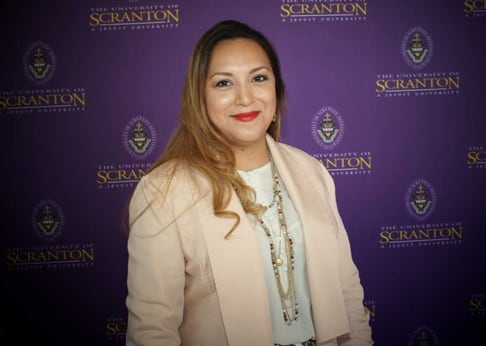 How does this relate to your past research?
How does this relate to your past research?
I have published before on food and Plato, specifically Plato's Republic, Book I. In that book, Socrates makes reference to food aspharmakon pharmaka conversations, and they are dispensed to others in ways that want to heal them (remedy) although they can also harm them (poison). The works I am researching for my current project providea more complete picture of theparities of the persona of Socrates and that of the physician.
What is the most interesting thing you've learned so far?
Thus far the most interesting things I have learned have to do with the drug culture of the Ancient Greeks. In the after-dinner parties (symposia) wine diluted with water was circulated among the guests;usually that wine was mixed with some kind of substance(s) that would impel the drinker towards a sort of ecstasy and intoxication. Apparently, the cultural need for ecstasy began because people wanted a more direct relationship with the gods. This then becomes fuel for religious sects and ceremonies (such as the Eleusinian mysteries) involving the consumption of intoxicating substances that would induce ecstasy. However, not everyone believed that these religious practices had legitimacy and, consequently, mocked them. This took place by getting intoxicated in a private residence and 'performing' the religious ceremony--a shocking and vile act in the eyes of many of the ancient Greeks of that period. It isvery possible that the fabricated charge of impiety leveled against Socrates was tied to his purported participation in one of those events.Dr. Ileana Szymanski Talks Herbs and Plato
-
01/23/2018
Before stepping into a physics lab full of complex equipment, it's important to know proper procedure. At least, that's what physics and electrical engineering professor, Declan Mulhall, Ph.D., thinks!
What is an oscilloscope and how do you make it work? Dr. Mulhall conducts an experiment measuring the speed of light while demonstrating the proper way to use an oscilloscope, a device that displays and analyzes the waveform of electric signals. Watch as he measures the instantaneous signal voltage as a function of time, all while giving a step-by-step tutorial on the basics of the oscilloscope. So, how fast is the speed of an electric signal in a coaxial cable? Watch and find out! Just because you can't see it, doesn't mean it's not light!Watch the full video here!
(Note - the sidebar has links to each experiment, and most of them have youtube videos!)Dr. Mulhall's Speed of Light Experiment
-
01/23/2018
Before the spring semester begins, dozens of University faculty members will attend workshops that address the facilitation of political dialogue and portfolio and capstone course assessment.
On Thursday, Jan. 25, more than 40 University faculty and staff members will attend a Political Dialogue Facilitation Training Workshop. The training is part of an ongoing “Bursting our Political Bubbles” civic engagement initiative, which began as a pilot program during the spring 2017 semester during which the University, along with area colleges, ran student political dialogue sessions aimed at addressing political polarization. This workshop is a follow-up to those events to provide training for use in upcoming University student “Dialogue across Differences” sessions, planned for Mar. 26, Apr. 9 and Apr. 25, as well as for courses and co-curricular offerings where dialogue around current public affairs or political issues would be relevant. The training will be facilitated by the nonprofit organization Essential Partners and will include training in the principles of Ignatian dialogue, which will be presented by The Jesuit Center.
The political dialogue civic engagement initiative is sponsored by The Jesuit Center together with The Ellacuría Initiative, the Center for Teaching and Learning and the Political Science Department, with additional support from the Office of Community and Government Relations, the Office of Equity and Diversity, the Provost’s Office, the Division of Student Formation and Campus Life and faculty from various academic departments.
Faculty members may also attend the Portfolio and Capstone Assessment Workshop on Friday, Jan. 26. The daylong workshop, offered by the University’s Office of Educational Assessment and the Center for Teaching and Learning Excellence, will examine: best practices for incorporating portfolios and/or capstone work as a teaching-learning strategy; the identification of common competencies to be assessed across portfolios and/or capstone assignments in various disciplines; and the development of rubrics for scoring and grading a portfolio and/or capstone assignments, among other topics.
Faculty Attend Training Workshops
-
01/16/2018
Dr. Arigo asks: How do we understand what’s happening naturally and not going so well in the natural environment, and how do we translate that into health intervention? We can design health programs and use this information to our advantage.
She researches the ways that women use information from their social environment to inform their health behaviors. “There are even implications on social media,” she said.
“For example, if you’re really motivated by seeing groups of other women working out together, then you’re the type of person who could benefit from a social program, app, or online social network. But if you prefer to work out alone, then that’s not the best type of program for you,” she said.
She’s particularly interested in body satisfaction among women and how women often do not prioritize self-care. Most women don’t prioritize their own health, particularly older women, she said, as they are more focused on taking care of others. Perhaps counterintuitively, “prioritizing our own health leaves us better able to take care of others. Then everyone wins.”
Read the USA Today story about Arigo’s research here.
Dani Arigo, Ph.D., Discusses her Research
-
01/09/2018The University of Scranton awarded development intersession grants for January 2018 to eight faculty members.
Danielle Arigo, Ph.D., assistant professor of psychology, received a grant to research “Time-Sensitive Analysis of Relations between Women’s Social Perceptions and Physical Activity: Findings from Studies of College and Midlife Women.” Dr. Arigo joined the faculty at Scranton in 2014. She earned her bachelor’s degree from Drexel University and her master’s and doctoral degrees from Syracuse University.
Hyuk Jun Cheong, Ph.D., assistant professor of communication, received a grant to research “Spiral of Silence and Web 2.0? Revisiting a Theory in the Context of User Generated Content.” Dr. Cheong joined the faculty at Scranton in 2015. He earned his bachelor’s degree from Keimyung University and his master’s and doctoral degrees from the University of Tennessee.Brigid Frein, Ph.D., associate professor of theology and religious studies, received a grant to research “Speaking of God: An Investigation into Jesus’ Teaching about God in the Gospel of Luke.” Dr. Frein joined the faculty at Scranton in 1988. She earned her bachelor’s degree from Gonzaga University and her doctorate from St. Louis University.
William Miller, Ph.D., faculty specialist for health administration and human resources, received a grant to research “MHA Population Health Specialization.” Dr. Miller joined the faculty at Scranton in 2015. He earned his bachelor’s degree from
Lock Haven University of Pennsylvania, his master’s degree from The Pennsylvania State University and his doctorate from Marywood University.Krzysztof Plotka, Ph.D., professor of mathematics, received a grant to research “Groups and Vector Spaces within a Class of Functions with Infinite Preimage of Points.” Dr. Plotka joined the faculty at Scranton in 2001. He earned his master’s degree from the University of Gdansk and his doctorate from West Virginia University.
Anne Royer, Ph.D., assistant professor of biology, received a grant to research “Pollinators as Engines of Speciation: Testing for Genomic Asymmetry.” Dr. Royer joined the faculty at Scranton in 2017. She earned her bachelor’s degree from Oberlin College and her doctorate from Michigan State University.
Ileana Szymanski, Ph.D., associate professor of philosophy, received a grant to research “Medicinal Plants and Spices in Plato and Aristotle (Invited Chapter Book).” Dr. Ileana joined the faculty at Scranton in 2008. She earned her bachelor’s degree from Universidad Panamericana and her master’s and doctoral degrees from the University of Guelph.
Jennifer Vasquez, Ph.D., department chair of mathematics and associate professor of mathematics, received a grant to research “Is Fibonacci Entangling?” Dr. Vasquez joined the faculty at Scranton in 2007. She earned her bachelor’s,
master’s and doctoral degrees from Indiana University.Faculty Members Research During Interession
-
12/12/2017The University of Scranton awarded development intersession grants for January 2018 to eight faculty members.
Danielle Arigo, Ph.D., assistant professor of psychology, received a grant to research “Time-Sensitive Analysis of Relations between Women’s Social Perceptions and Physical Activity: Findings from Studies of College and Midlife Women.” Dr. Arigo joined the faculty at Scranton in 2014. She earned her bachelor’s degree from Drexel University and her master’s and doctoral degrees from Syracuse University.
Hyuk Jun Cheong, Ph.D., assistant professor of communication, received a grant to research “Spiral of Silence and Web 2.0? Revisiting a Theory in the Context of User Generated Content.” Dr. Cheong joined the faculty at Scranton in 2015. He earned his bachelor’s degree from Keimyung University and his master’s and doctoral degrees from the University of Tennessee.
Brigid Frein, Ph.D., associate professor of theology and religious studies, received a grant to research “Speaking of God: An Investigation into Jesus’ Teaching about God in the Gospel of Luke.” Dr. Frein joined the faculty at Scranton in 1988. She earned her bachelor’s degree from Gonzaga University and her doctorate from St. Louis University.
William Miller, Ph.D., faculty specialist for health administration and human resources, received a grant to research “MHA Population Health Specialization.” Dr. Miller joined the faculty at Scranton in 2015. He earned his bachelor’s degree from Lock Haven University of Pennsylvania, his master’s degree from The Pennsylvania State University and his doctorate from Marywood University.
Krzysztof Plotka, Ph.D., professor of mathematics, received a grant to research “Groups and Vector Spaces within a Class of Functions with Infinite Preimage of Points.” Dr. Plotka joined the faculty at Scranton in 2001. He earned his master’s degree from the University of Gdansk and his doctorate from West Virginia University.
Anne Royer, Ph.D., assistant professor of biology, received a grant to research “Pollinators as Engines of Speciation: Testing for Genomic Asymmetry.” Dr. Royer joined the faculty at Scranton in 2017. She earned her bachelor’s degree from Oberlin College and her doctorate from Michigan State University.
Ileana Szymanski, Ph.D., associate professor of philosophy, received a grant to research “Medicinal Plants and Spices in Plato and Aristotle (Invited Chapter Book).” Dr. Ileana joined the faculty at Scranton in 2008. She earned her bachelor’s degree from Universidad Panamericana and her master’s and doctoral degrees from the University of Guelph.
Jennifer Vasquez, Ph.D., department chair of mathematics and associate professor of mathematics, received a grant to research “Is Fibonacci Entangling?” Dr. Vasquez joined the faculty at Scranton in 2007. She earned her bachelor’s, master’s and doctoral degrees from Indiana University.
$content.getChild('content').textValueFaculty Members Receive 2018 Intersession Grants
-
12/11/2017
Sunday, DEC. 10 reflection
A blessed event, 2000 years old, blesses and informs our lives today. John the Baptist’s call, "Prepare a way for the Lord!" Our Lord with us, already known. We encounter our Lord in the Word, the Eucharist, common prayer and, our encounters with one another, each and everyone we meet. Each made in the image and likeness of God, and for the Christian, configured by Baptism unto Christ.
Advent, 2017, “Prepare a way for the Lord."
Do I prepare a way?
Do I look, notice the presence of Christ in others? If yes, do I ever talk about it?
Does what I say and do set the stage for another to be the good creation they were meant to be?
Do my words and actions encourage another to be more like Christ for me, for others?
Advent, busyabout many things. Make the time, encounter the Lord in the written Word and homilies. Experience the Lord in the Eucharist. In prayer and song, in the company of others. And, by recognizing and encouraging that which isChrist like in all we meet. First and foremost, at home. And in the halls of work or school. And the brief encounter with strangers.
Let our posture be humble, that of the Baptist. Say to yourself, “this one before me, right now, is more powerful than I. And, I am not worthy to be the servant who unties his/her sandal strap.” For the one standing before me can make the presence of Christ and the power of God real in the world. And I, unworthy as I am, have been asked by God to help this one be thatmore perfect creature, that living icon of Christ. Allow others to be the generous presence of Christ. A permission that only you can give.
Be John the Baptist in Advent, 2017.-Rev. Timothy Cadigan, S.J.
Assistant Professor, Biologyprayer
Lord, my God, help me to serve you in ways old and new. Open my eyes and ears to the beauty of my brothers and sisters. Give me the courage and the cleverness to place them before myself.
Thy will be done, on earth as it is in Heaven. AmenTo read the original Advent Daily Devotional, click here. To subscribe, visit its registration page.
The Advent Daily Devotional is a project of the Jesuit Center in partnership with University Advancement. It is made possible by the support of many University of Scranton colleagues, friends, families and alumni. Please consider showing your support by making a contribution using the link below.
Support Our MissionDaily Devotional by Rev. Timothy Cadigan, S.J.
-
12/06/2017
The Birth of the Messiah—Whom are we expecting?
By the time Jesus was born, Jews had for generations lived under the rule of the Roman Empire, and amid the oppression, many hoped that God would soon send a Messiah to free them. While the people differed as to what this Messiah might be, a telltale sign of his advent would at least be the waning of Roman influence in the Promised Land.
Needless to say, Jesus disappointed a lot of people. He brought no end to Rome and no tangible peace to the Land. Though many were expecting a Messiah, none—including his disciples—were quite expecting the one they got. In the honest words of one disciple, “We had hoped he was the one to redeem Israel” (Luke 24:21). Only slowly did Jesus’s immediate followers come to see that the purpose of God’s Messiah was “to suffer and to rise from the dead on the third day” (Luke 24:26) and so free not from Romans but from the burden of sin. Once Jesus came and went, his contemporaries were therefore left with a question: Do we reexamine our expectations and accept Jesus as the Messiah, or do we hold to our expectations and continue to wait for another? A few chose the former; many chose the latter.
As Christmas draws closer and we prepare for the birth of this Messiah, we must regularly ask ourselves, “Whom are we expecting?” Are we expecting someone that God does not ultimately send? Do we the short-tempered prefer a Jesus who did not suggest that murder and anger deserve similar punishment (Matt 5:21–22)? Do those of us who are lustful prefer a Jesus who did not suggest that it was better to pluck out one’s eye than to lust (Matt 5:27–30)? Do we the vengeful believe in a Jesus who did not say, “Love your enemies” (Matt 5:44)? Do we the rich prefer a Jesus who did not say, “Sell all you have and give it to the poor” (Luke 18:22)? Will we, like many of Jesus’s first disciples, hold to our various expectations of what the Messiah should have been, or will we part with those expectations and joyfully recognize the birth of the Messiah whom God has sent?
Rev. Michael G. Azar, Ph.D.
Assistant Professor
Department of Theology/Religious Studies
To read the original Advent Daily Devotional, click here. To subscribe, visit its registration page.
The Advent Daily Devotional is a project of the Jesuit Center in partnership with University Advancement. It is made possible by the support of many University of Scranton colleagues, friends, families and alumni. Please consider showing your support by making a contribution using the link below.Advent Daily Devotional by Prof. Michael Azar
-
12/04/2017
Julie Cerrito, Ph.D., assistant professor and director of the school counseling program in the Department of Counseling and Human Services at The University of Scranton, was recognized as School Counselor Educator of the Year by the Pennsylvania School Counselors Association (PSCA). The professional recognition was presented at the PSCA’s 62nd Annual Conference Recognition Banquet Nov. 30.
PSCA works to expand the image and influence of professional school counselors, to promote professional and ethical practice, and to advocate for equity and access for all students. The organization aims to strengthen the image and influence of professional school counselors through advocacy, leadership, collaboration and systematic change.
Dr. Cerrito is a national certified counselor and school counselor. She also holds an approved clinical supervisor credential. At the University, she serves as the faculty advisor for the Chi Delta Rho Chapter of Chi Sigma Iota, the international honor society for counseling.
Dr. Cerrito’s research and scholarship focuses on access, equity and advocacy in addressing the college and career readiness needs of underserved PK-12 youth in school systems. She has been part of former First Lady Michelle Obama’s National Reach Higher Initiative since its inception in 2014 by participating in the annual White House Convening as a representative for counselor educators and school counselors across the state of Pennsylvania. In addition, she currently serves as the co-chair for professional school counselors on the Pennsylvania College and Career Readiness Consortium.
Dr. Cerrito earned her bachelor’s degree from Bloomsburg University, her master’s degree from The University of Scranton and her Ph.D. from Pennsylvania State University.
Professor Named Counselor Educator of the Year
-
11/28/2017The Center for Health Education and Wellness (CHEW) has received a grant from the PA Liquor Control Board to fund an Alcohol Curriculum Infusion (CI) Project with faculty partners. Each participating faculty member will receive a stipend of $500 at the conclusion of the semester.
By integrating alcohol education across academic disciplines, students are challenged to evaluate their beliefs about alcohol use and assess their individual consumption habits.To date, 28 University of Scranton faculty members have participated. There are currently four faculty CI grants available for the 2018 spring semester.
For more information or to apply to participate, please contact the Center for Health Education and Wellness at chew@scranton.edu or by calling the office at 941-4253 to speak with Stephanie Adamec by Dec. 22.$500 Faculty Mini Grants Available
-
11/28/2017
Azzan Yadin-Israel, Ph.D., professor of Jewish studies and classics at Rutgers University, presented “The Theologies of Bruce Springsteen” at The University of Scranton’s Weinberg Judaic Studies Institute, the lecture held on campus in November.
The author of three books that add depth to the understanding of midrash and the study of German as a foreign vocabulary, “Scripture as Logos: Rabbi Ishmael and the Origins of Midrash, Scripture and Tradition: Rabbi Akiva and the Triumph of Midrash” and “Intuitive Vocabulary: German,” Dr. Yaden-Israel spent two years mining Bruce Springsteen’s songs for research in his latest book, “The Grace of God and the Grace of Man: The Theologies of Bruce Springsteen.”
University Hosts Fall Judaic Studies Lecture
-
11/27/2017
Read about some recent faculty achievements in the Sociology, Criminal Justice, and Criminology Department:
Dr. Harry Dammer, after 15 years of service to our department, is now serving as the Associate
Dean of the College of Arts and Sciences and continues to teach required courses.
Professor David Friedrichs presented a paper on global legitimation issues at the Crime & Justice in
Asia and the Global South Conference in Cairns, Australia, inJuly, 2017. He has been appointed to
the Editorial Board of the Australian & New Zealand Journal of Criminology and has served on the New
Editor Selection Committee for Critical Criminology.
Dr. Michael Jenkins and student co-authors Kyle Conklin and John Sember published two bookchapters in The Use and Abuse of Police Power. Another student co-author, Dana Raciti, and Dr. Harry
Dammer published with Dr. Jenkins an article in American Correctional Association's Corrections Today.
Dr. Jenkins also presented a talk on reforming criminal justice at the University's Schemel Forumevent honoring the U.S. Constitution.
Drs. Ismail Onat, Loreen Wolfer, & Michael Jenkins presented on creating and using evidence-based
practices, to a group of 25 criminal justice and social service representatives.
Dr. Meghan Ashlin Rich was elected Chair of the Community Research and Development Division
of the Society for Study of Social Problems, a national activist-oriented professional association for sociologists. Her scholarly works on education, culture, and neighborhood gentrification were published in
the International Journal of Culture Policy and Education and Urban Society. Dr. Ashlin Rich was an invited
speaker at the City Futures and Urban Imaginaries workshop in Portland, OR and presented her research
on gentrification at the Society for the Study of Social Problems and the Urban Affairs Association.Read the entire Sociology, Criminal Justice, and Criminology newsletter here.
One Department's Recent Faculty Achievements
-
11/21/2017
The University of Scranton’s undergraduate accounting program has earned endorsement by the Institute of Management Accountants (IMA ®), one of the largest and most-respected associations focused exclusively on advancing the management accounting profession. Currently, just 33 colleges in the U.S. are endorsed by IMA.
IMA’s Endorsement of Higher Education initiative recognizes programs that meet rigorous educational standards, enabling students to pursue and earn the Certified Management Accountant (CMA®) credential.
To qualify for endorsement by IMA, schools must meet the following criteria: the program must substantially cover the CMA exam content; the program must have adequate faculty resources to deliver this content; the program must be accredited by a recognized accreditation organization (e.g., AACSB, ACBSP, etc.); and a faculty member must be designated as an IMA campus advocate. The program offers two tiers of endorsement: full endorsement, for those university programs that meet all endorsement criteria; and provisional endorsement, for programs with some minor to moderate shortcomings in meeting all the criteria for full endorsement.
“Endorsement by IMA is a great achievement that will help our undergraduate accounting students better prepare for a rewarding career in management accounting,” said Ashley Regan, faculty specialist and the University’s IMA student chapter faculty advisor. “This is a testament to the quality of our nationally recognized curriculum that will benefit both the future careers of our students and their future employers.”
Scranton’s Kania School of Management is among less than five percent of business schools worldwide to hold accreditation by the rigorous standards of AACSB International (The Association to Advance Collegiate Schools of Business). U.S. News & World Report has ranked the University’s programs in accounting and finance programs each at No. 17 in the country. In addition, Best Colleges named the University’s Online Master in Accountancy Program No. 1 in the country for Master’s in Accounting Online.
Globally, IMA supports the profession through research, the CMA® (Certified Management Accountant) program, continuing education, networking, and advocacy of the highest ethical business practices. IMA has a global network of more than 80,000 members in 140 countries and 300 professional and student chapters.
IMA’s globally-recognized CMA program is a relevant assessment of advanced accounting and financial management knowledge in four areas: financial planning, analysis, control and decision support – each of which is increasingly critical in meeting the changing needs of business, and therefore, essential learning for students of accounting and finance.
“IMA is pleased to welcome The University of Scranton to the growing list of schools that support the CMA exam program and have achieved a consistent standard of excellence,” said Raef Lawson, Ph.D., vice president of research and professor-in-residence for IMA . “High-quality, up-to-date educational programs that support the current needs of businesses will help future professional management accountants accomplish their career objectives and meet the competency expectations of employers.”
IMA Endorses Scranton’s Accounting Program
-
11/20/2017
I first became involved with the Leahy Center in 2003 after the dedication ceremony described innovative opportunities for faculty, students and the community to work together to meet the health and wellness needs of underserved individuals. I recognized this as an opportunity to involve my students in a meaningful, community-outreach research project that combined teaching,
service and scholarship. Subsequently, I devised a study that would allow my entire class (40 physical therapy students) to participate in a constraint-induced movement therapy (CIMT) program for persons withstoke . This was an ambitious project. I wrote a grant application and received funding from the Edward R. Leahy, Jr. Endowment in the amount of $10,000. This funding allowed me to conduct a Faculty-Student Research Program (FSRP) that focused on training functional movements of the arm/hand in persons with stroke. I worked with community partners to recruit participants who had completed usualcare, but still hadresidual functional loss. In the fall of 2004, we completed the program in the multipurpose room located in the basement of McGurrin Hall. Several small groups of students completed testing and training activities with participants seated at large round tables, as others were able to observe all of the activities from behind a large two-way mirror that was located in the adjacent conference room. Because there was notmuch organizational structure for health care programs at that time, I faced many challenges with scheduling,transportation and parking. However, in spite of these logistical issues, the Leahy Center clinic was a large, inviting space that enabled us to run a meaningful community-outreach program.Eventually, the Leahy Center implemented a more structured health and wellness program. Although I was not involved initially, a Physical Therapy (PT) clinic was founded by PT faculty to address a gap in health care access. The hours of operation were very limited and the services were provided by one PT faculty volunteer for a few hours weekly. This practice model continued for several years.
As our students continued to express interest in having more patient care experiences, I returned to my Leahy Center roots two years ago as the faculty director of our newly reorganized student-run, pro bono PT Clinic. Consequently, I have become a part of the now thriving LCHFC under the direction of Andrea Mantione. On this 10th anniversary of the LCHFC, I can truly appreciate how far this clinic has come. The Leahy Family’s vision has enabled PCPS to have continued growth in programs and outreach in our community. There are local professionals, faculty,
volunteers and students working hand-in-hand to provide much-needed services to local residents, while simultaneously providing the opportunity for community-based learning (CBL) to our students. As I watch our PT students working as “men and women for others” each week, I am looking forward to many more years of continued growth and meaningful service in the LCHFC.This article appeared in the fall issue of Challenges, which is in the mail but you can see a sneak peek here.
Leahy Center Reflection by Professor Renee Hakim
-
11/20/2017
The University of Scranton hosted a lecture about “The North Korean Conundrum for the U.S. and Asia,” by Frank Plantan, Ph.D., co-director of International Relations Program at the University of Pennsylvania and honorary consul-general of Republic of Korea for Pennsylvania, on campus recently. The lecture was co-sponsored by the University’s Asian Studies Program and the history and political science departments.
At the University of Pennsylvania, Dr. Plantan also served 18 years as the director of the Penn-in-Seoul Study Abroad and Internship Program. He was a consultant to the World Bank as a member of the corporate restructuring team in Seoul during the Asian economic crisis in 1998-99. Earlier in his career, he worked for the Economic Planning Board of the Republic of Korea. He also does occasional consulting and is a partner in Gotham Orient Partners, an investment advisory firm.
Lecture Examines North Korea, U.S. and Asia
-
11/14/2017
Edward Scahill, Ph.D., an associate professor of economics at The University of Scranton, joined the University in 1989. He is currently an associate professor and chair of the Henrgy George Committee in the Department of Economics and Finance. The Annual Henry George Lecture Series has featured nine Nobel Prize recipients among its 31 lecturers. The 32nd lecture is scheduled for Nov. 17. This year’s lecturer is David Autor, Ph.D., an economist at the Massachusetts Institute of Technology.
Why is it called the Henry George lecture?
Well, the lectures series was begun before I arrived in Scranton. There is a foundation in New York, the Robert Schalkenbach Foundation, which was established in 1925 to propagate the ideas of the 19th-century economist and social reformer, Henry George. His bestselling book “Progress and Poverty” fit under the broad ideal of Jesuit education. With the assistance of John Kelly, a local realtor and a member of the Schalkenbach Board of Directors, the School of Management received a grant that was used to fund the lecture series.
Nine lecturers have gone on to win the Nobel Prize. Do you have a knack for knowing who will win?
There’s some lore that Robert Solow, our second lecturer, found out that he won the Nobel when he washere at Scranton. I’m not sure if that’s true, but it makes a nice story so I don’t question it. Several of our past speakers are recipients of the John Bates Clark Medal. This is awarded by the American Economic Association to the “American economist under the age of 40 who is judged to have made the most significant contribution to economic thought and knowledge.”
In addition to the fall lecture, we also have a spring seminar. One of our previous spring speakers was Angus Deaton, a Scottish-American economist. His research examines how happiness and income are correlated across different countries. He received a Nobel Prize in Economics in 2015. His presentation was well-received by both faculty and students.
Tell me about this year’s lecturer.
David Autor, Ph.D., Ford Professor of Economics and associate department head of MIT’s department of economics, was happy to do this with us. He has been a pleasure to work with. His research is really interesting and his lecture is on trade with China, which is a political football right now.
He’ll also speak with a smaller group of students and faculty members in the department earlier in the day. He can be somewhat more technical in this talk, the title of which will be “Automation and Employment: What Should (and Shouldn’t) We Worry About.” Although some economists and analysts believe that the increased use of robotic technology in the workplace will have a negative impact on jobs, Dr. Autor is more optimistic. This should be an interesting and relevant topic for our students, who will soon be searching for jobs.
Get details about the upcoming Henry George lecture here.
Annual Fall Henry George Lecture
Past Speakers
1986 Alfred E. Kahn, Robert Julius Thorne Professor of Political Economy, Cornell University
1987 Robert M. Solow, Institute Professor, Massachusetts Institute of Technology - Nobel Laureate, 1987
1988 Alan S. Blinder, Rentschler Professor of Economics, Princeton University
1989 Charles L. Schultze, Director of Economic Studies, The Brookings Institution
1990 Alice Rivlin, Senior Economics Fellow, The Brookings Institution
1991 Paul Krugman, Professor of Economics, Massachusetts Institute of Technology - Nobel Laureate, 2008
1992 Robert E. Lucas, Jr., John Dewey Distinguished Service Professor, University of Chicago - Nobel Laureate, 1995
1993 Jacob A. Frenkel, Governor of the Bank of Israel
1994 Amartya Sen, Professor of Economics and Philosophy, Harvard University - Nobel Laureate, 1998
1995 John B. Taylor, Mary and Robert Raymond Professor of Economics, Stanford University
1996 N. Gregory Mankiw, Prof. of Economics, Harvard University/Director, Monetary Economics Program, National Bureau of Economic Research
1997 George A. Akerlof, Professor of Economics, University of California at Berkeley, Sr. Fellow, The Brookings Institution - Nobel Laureate, 2001
1998 Robert E. Hall, Robert and Carole McNeil Endowed Professor of Economics and Senior Fellow, Hoover Institution, Stanford University
1999 Christina D. Romer, Class of 1957 – Garff B. Wilson Professor of Economics, University of California, Berkeley
2000 Joseph E. Stiglitz, Professor of Economics, Stanford University - Nobel Laureate, 2001
2001 Robert J. Shiller, Stanley B. Resor Professor of Economics, Yale University - Nobel Laureate, 2013
2002 Jagdish N. Bhagwati, Professor of Economics, Columbia University
2003 Paul M. Romer, Professor of Economics, Stanford University and Founder, Aplia, Inc.
2004 Frederic S. Mishkin, Alfred Lerner Professor of Banking and Financial Institutions, Columbia University
2005 Peter A. Diamond, InstituteProfessor and Professor of Economics, Massachusetts Institute of Technology - Nobel Laureate, 2010
2006 Thomas Sargent, William Berkley Professor of Economics and Business, New York University - Nobel Laureate, 2011
2007 David Romer, Herman Royer Professor of Political Economy, University of California, Berkeley
2008 Robert Barro, Paul M. Warburg Professor of Economics, Harvard University
2009 J. Bradford DeLong, Professor of Economics, University of California, Berkeley
2010 R. Glenn Hubbard, Dean, Columbia Business School
2011 Daron Acemoglu, Elizabeth and James Killian Professor of Economics, Massachusetts Institute of Technology
2012 Edward Glaeser, Fred and Eleanor Glimp Professor of Economics, Harvard University
2013 John List, Homer J. Livingston Professor of Economics, University of Chicago
2014 Philippe Aghion, Ph.D., Robert C. Waggoner Professor of Economics, Harvard University
2015 Susan Athey, Economics of Technology Professor, Stanford Graduate School of Business
2016 David Card, 1950 Professor of Economics at the University of California, BerkeleyProf. Scahill Discusses Henry George Lecture
-
11/07/2017
Darryl De Marzio, Ph.D., a professor in the University’s Education Department, has transformed a three-decade-long hobby into a weekly radio show featured on the University’s student-run radio station, WUSR 99.5.
“I have been cataloging and collecting live recordings of Grateful Dead and other musicians’ live performances for almost 30 years,” said Dr. De Marzio.
Every Monday evening for the past two years, De Marzio has hosted his own radio show featuring the music of the Grateful Dead. Scranton faculty have joined him in the studio to share their love of music while offering their own insight on the meaning of Grateful Dead songs. Cyrus Olsen, Ph.D., professor of theology, recently joined De Marzio to discuss the biblical and religious significance of certain Grateful Dead songs.
The radio show has grown in popularity, with listeners from Pennsylvania to Colorado calling in to show their appreciation for the show. De Marzio hopes to continue to promote the show across the state and beyond.More about WUSR here. Be sure to
listen in !!Sweet Songs Rock WUSR Thanks to Education Professor
-
11/03/2017
The University of Scranton’s Department of Communication and the Society of Professional Journalists hosted “Google News Lab Training with Vix Reitano” on campus in October.
Google launched News Lab to collaborate with journalists on improving the way news is produced and distributed. The Society of Professional Journalists partnered with News Lab in 2015 to provide training to journalists looking to apply Google’s tools in their reporting. Since the partnership began, more than 8,000 journalists have received training at 200 locations around the United States.
Reitano, the guest speaker at the University’s training session, is an international speaker, social media expert, content strategist and digital video producer. She is also the founder and CEO of CreatiVix Media, a digital agency based in Manhattan.
Scranton Hosts Google News Lab Training
-
10/31/2017
The University of Scranton’s Kania School of Management named professors Irene Goll, Ph.D., and Satyajit Ghosh, Ph.D., Alperin Teaching Fellows for 2017-20. Michael Mensah, Ph.D., dean of the Kania School of Management, made the announcement.
The three-year Alperin Teaching Fellow Award was established in 1999 to recognize outstanding teaching in the Kania School of Management. Funding is provided by an endowment established in 1980 through a gift from Irwin E. Alperin, Joel M. Alperin and Myer Alperin and their families.
An associate professor of management, marketing and entrepreneurship, Dr. Goll joined the University in 1988. She was the first recipient of the William and Elizabeth Burkavage Fellowship in Business Ethics and Social Responsibility, which was awarded by the University in 2011. The endowed fellowship was established in 2009 and provides support to assist University faculty in new research on issues of sustainability, social responsibility and business ethics.
Dr. Goll is the author of “The Moderating Effect of Environmental Munificence and Dynamism on the Relationship between Discretionary Social Responsibility and Firm Performance,” which appeared in the Journal of Business Ethics. She has also published articles that examine corporate social responsibility as an important component of a firm’s culture, philosophy or ideology in the prestigious management journals Organization Studies and Industrial Relations.
Dr. Goll received her bachelor’s degree from The Pennsylvania State University, her master’s degree from the University of Illinois and her doctorate degree from Temple University.
An associate professor of economics and finance, Dr. Ghosh joined the faculty at Scranton in 1986. During his more than 30 years of service, he served on numerous committees including the Committee on Program Evaluation, the Subcommittee on Assessment, the Middle States Accreditation Committee, the Institutional Learning Outcomes Working Group and the Middle States Monitoring Report Coordinating Committee, among others. Dr. Ghosh also served as a faculty assessor for KSOM Day and helped develop student learning goals for economics and finance majors. He also assisted to create a draft of the institutional learning outcomes, with the Institutional Outcomes Working Group, which became an integral part of the University’s assessment plan.
Dr. Ghosh is frequently quoted in news publications regarding a variety of regional economic subjects, appearing in as many as 24 separate news articles in one year. He participates annually in the Scranton Times-Tribune panel discussion for Outlook, which addresses a yearly economic forecast for the region.
Dr. Ghosh received his bachelor’s degree from Presidency College in India, his master’s degree from the University of Calcutta and the State University of New York at Buffalo and his doctorate degree at the State University of New York at Buffalo.
KSOM Professors Named Alperin Teaching Fellows
-
10/30/2017
What does it mean to be a Jesuit business school? What role should business faculty play in fostering Jesuit ideals? What are the objectives of a mission-inspired project in teaching? How can the scholarly output of business faculty contribute to the Jesuit mission?
These were some of the questions examined by a small group of faculty in the Kania School of Management (KSOM) at the University of Scranton, who took part in the Business Education for Justice Seminar, which I organized and led with support from the University’s Jesuit Center and the KSOM dean, Michael Mensah, Ph.D., as the “capstone project” for the Ignatian Colleagues Program (ICP).
Inspiration from the Ignatian Colleagues Program
Under the auspices of the Association of Jesuit Colleges and Universities (AJCU), ICP is an 18-month program “designed to educate and form administrators and faculty more deeply in the Jesuit and Catholic tradition of higher education.” It includes online workshops, reflection papers, seminars and an immersion trip to the United States / Mexico border through theKINO Border Initiative. ICP concludes with a “capstone experience” in which participants plan projects for advancing mission on their own campuses.Participating in the ICP motivated me, a full professor with almost 30 years of service to Scranton, to understand more fully the Ignatian tradition and consider the ways in which it could (and should) impact my work going forward. In addition to providing a Jesuit-inspired education to students, I wanted to ensure Ignatian values would be passed
onto future generations. This would require collaboration with colleagues to create a critical mass of KSOM faculty committed to fulfilling the Jesuit mission through the “service of faith and promotion of justice.” I wanted to exploit the “multiplier” effect so that Ignatian values could be shared as broadly as possible, with colleagues, students, alumni and the business community. I also wanted to include newly-hired faculty with the potential to contribute to the Jesuit mission for many years to come. These goals informed the design of the Business Education for Justice Seminar.Seminar included education, reflection and action
The Business Education for Justice Seminar involved three components. The first was educational, fostering a deep understanding of Ignatian identity and the Jesuit tradition through carefully selected readings and guideddiscussion . The second was reflective, encouraging the exploration of what it means to be a Jesuit business school and the role of KSOM faculty in promoting Jesuit ideals. The third involved action, developing proposals to implement specific mission-inspired projects in teaching and/or research. The three intended outcomes impacting mission were: to deepen faculty commitment to the Jesuit identity of KSOM; to increase the coverage of mission-related content (e.g., Responsibility,Sustainability and Justice) in business courses; and to increase faculty scholarly output on research topics that challenge the business, academic and professional communities to consider society and the greater good.Read the rest of the article in AJCU's Connections, here.
In Pursuit of Business Education for Justice
-
10/30/2017
Yamile Silva, Ph.D. (Department of Latin American and Women’s Studies LA/W/S and Department of World Languages and Cultures), has been named
president of the academic organization International Association of Women’s Studies in Hispanic Literature and Culture. The Association was founded in 1974 for the purpose of advancing the study of women and gender-related topics in Hispanic literature and promoting the work of Hispanic women writers.Since then the organization has expanded to include the study of women writers,
filmmakers and artists as well as gender-related studies in Hispanic literature and culture. The organization publishes the prestigious academic journal, Letras Femeninas, and organizes an annual international conference.Dr. Silva will assume her presidency during the XXVII Annual Congress of the International Association of Women’s Studies in Hispanic Literature and Culture that will take place in Santo Domingo, Dominican Republic (Nov. 9 -11).
Professor Named President of Academic Organization
-
10/24/2017
Two new research and instruction librarians, Frank Conserette and Kelly Banyas, have joined the faculty of the Weinberg Memorial Library. Conserette moved from his position as library metadata specialist to the position of research and instruction librarian for business on Aug. 14.
Conserette is a graduate of Gettysburg College, where he completed his B.A. in history and minor in Civil War Era Studies, concentrating on American history from the colonial period through the American Civil War and Reconstruction. In addition, Conserette also pursued a minor in East Asian Studies with a primary focus on Chinese language, history, and culture. After graduation, he decided to enroll in Drexel University’s online Master of Library and Information Science. After graduation, he found a job as a digitization specialist in the oil and gas industry. His experience digitizing courthouse documents sparked an interest in archives and led him to pursue a master of library and information science. In June 2011, Conserette graduated with his MLIS and archives concentration from Drexel University.
While attending Drexel’s iSchool, Conserette started a career as title analyst in the oil and gas Industry. His six-year career as an analyst began with conducting extensive research on surface and mineral ownership and advanced to leading multiple teams of researchers and managing all land-title work for numerous drilling units throughout Ohio and Pennsylvania.
In summer 2016 while contemplating a career change, Conserette stumbled upon the job posting for a library metadata specialist at The University of Scranton’s Helen Gallagher McHugh Special Collections and University Archives. This was a prime opportunity to transition into librarianship and move back to Northeastern Pennsylvania, where he had grown up. In September 2016, Conserette joined the Weinberg Memorial Library as the library metadata specialist and adjunct reference librarian. Conserette is extremely excited about his appointment to research and instruction librarian and having the opportunity to apply his considerable experience in business as the business liaison to the Kania School of Management.
While remaining in his part-time positions over the summer, Conserette also began to pursue an MBA degree from The University of Scranton.
Kelly Banyas is originally from Mountain Top. She graduated from Boston University with Bachelor of Arts degrees in history and classical civilization. She had spent her time as a student at the University working in the law library on campus, and when she graduated she took a full-time position there. After a few years as the evening library supervisor and earning a certificate in computer science from Boston University, she decided to pursue a Master of Library and Information Science degree.Banyas attended the University of Maryland and served as the Graduate Assistant at the Engineering and Physical Sciences Library at the university. She also interned at the Federal Judicial Center Library in Washington, D.C., and was a research and teaching fellow for the University of Maryland Libraries. Her fellowship involved teaching information literacy sessions for undergraduates, and the experience inspired her to look for an instruction librarian position upon graduation.
Banyas started at The University of Scranton in June as a research and instruction librarian. She is the liaison to the Nursing, Counseling and Human Services, Physical Therapy, Occupational Therapy, Exercise Science, and Computing Sciences departments. In mid-June, Banyas presented a poster and a paper with her former colleagues from the University of Maryland about new spaces and technologies in libraries at the International Association of University Libraries (IATUL) in Bolzano, Italy.
Read more from Information Update, the Weinberg Memorial Library publication, here.
Read more about new faculty here.Research and Instruction Librarians Join Faculty
-
10/18/2017
Michael Jenkins, Ph.D., associate professor of sociology and criminal justice, and Adam Pratt, Ph.D., assistant professor of history, spoke at the Schemel Forum's University for a Day lecture series last month. You can see their lectures, as well as other Scranton faculty and guest lectures, in the playlist here and below.
The Highs & Lows of Crime and Justice in the US: Reforming the Practice of Criminal JusticeMichael Jenkins, Ph.D., Associate Professor, Sociology/Criminal Justice, The University of Scranton
Many US cities are experiencing their all-time low crime rates. High imprisonment rates,
‘get-tough’ policies and increasing police patrols are a few reasons scholars posit to explain
the reduction. This lecture gives an overview of recent reforms and offers an analysis of how
today’s unique political context will affect future criminal justice practice.
Andrew Jackson, theConstitution and the Presidency
Adam Pratt, Ph.D., Assistant Professor of History, The University of Scranton
Since January 2017 when President Trump placed a portrait of Andrew Jackson in the Oval
Office, his supporters lavished praise on our seventh president while Trump detractors
defamed him. How accurate are either of these portrayals? The talk will examine how
Jackson approached the presidency and the Constitution and consider what itmean
for a 21st century president to appropriate his legacy.
For more information about the University of a Day lecture series: http://www.scranton.edu/academics/wml/schemel/uforaday.shtml
For more information about the Schemel Forum: http://www.scranton.edu/academics/wml/schemel/index.shtmlFaculty Members Lecture at University for a Day
-
10/17/2017
Abhijit Roy, D.B.A., professor of marketing, management and entrepreneurship in The University of Scranton’s Kania School of Management, concluded his three-year William and Elizabeth Burkavage Fellowship in Business Ethics and Social Responsibility.
The endowed fellowship, established in 2009 by William J. and Judith G. Burkavage in memory of William’s parents, William and Elizabeth Burkavage, supports University faculty as they research sustainability, social responsibility and business ethics.
Dr. Roy, who earned his doctor of business administration degree from Boston University, two master’s degrees from the University of Arizona and an undergraduate degree from the University of Allahabad, India, expressed gratitude for the fellowship and outlined an extensive list of research activities he has been able to complete, including co-authoring a publication titled “Predictors of Various Facets of Sustainability of Nations” with the first recipient of the Burkavage Fellowship, Irene Goll, Ph.D., an associate professor in the Kania School of Management.
During his tenure as the Burkavage fellow, Dr. Roy also made distinctive contributions in teaching and service.
In the instructional arena, Dr. Roy designed the material for and volunteered to teach the University MBA program’s cornerstone course, “Responsibility, Sustainability and Justice,” and received a grant to teach “Social Innovation and Entrepreneurship” as a travel/hybrid course in 2018.
“I make sure that the other courses I teach have business ethics and social-responsibility issues infused in them,” he said, citing appropriateness of marketing to vulnerable populations, re-engineering a slum and the use/misuse of stealth-marketing strategies.
During his fellowship, Dr. Roy was published in two languages in six peer-reviewed journals: the Journal of Public Policy and Marketing; the International Journal of Social Entrepreneurship and Innovation; Ecosistema; the International Journal of Sustainable Society; the International Business Review; and the Journal of Social Entrepreneurship.
Dr. Roy said his published research addresses “various facets of sustainability, responsibility, social entrepreneurship and business ethics” and noted that in his 11 years at the University he has co-authored 20 peer-reviewed journal articles and has several others in progress.
In the academic arena, Dr. Roy has served as an external reviewer for promotion, tenure or funding decisions for Loyola Marymount University in Los Angeles, St. Joseph’s University in Philadelphia, Xavier Institute of Social Service in Ranchi, India, and the University of Khartoum in Sudan, and he evaluated a sustainability application for the Icelandic Research Fund.
Additionally, Dr. Roy presented 10 papers at major national and international conferences during his fellowship, traveling to Boston, New York, Chicago, Florida and Quebec as well as Belgium, Italy, Kenya and the United Arab Emirates. He also wrote more than 30 encyclopedia articles as well as an award-winning case study titled “Modernizing Dharavi: If You Build, Will They Come?” and served as a book review editor for the Journal of International Consumer Marketing, completing four reviews during his tenure.
Service has also been a crucial element of Dr. Roy’s fellowship tenure. He has donated his time to the University’s annual Thanksgiving food drive, made cultural festival presentations at the Scranton Iron Furnaces and on campus and attended several faculty development initiatives, including making pilgrimage and service trips to Spain and Nicaragua. He also has assisted students with service-learning projects through his Consumer Behavior classes, completing projects for the Northeastern Pennsylvania Philharmonic, downtown Scranton businesses and farmers market groups.
Dr. Roy said that he used the Burkavage support for diverse purposes, from purchasing software, traveling to India to research information not readily available in the United States and traveling to multiple conferences each year.
“I was very humbled to receive the Burkavage fellowship and thank the Burkavage family for funding it,” Dr. Roy said.
Fellowship Supports Social Responsibility Research
-
10/05/2017
Muslims around the world celebrated the Eid al-Adha holiday or the “Feast of Sacrifice” in September. This is considered Islam’s most sacred holiday as Eid is a celebration of the holy pilgrimage to Mecca.
Pennsylvania Governor Tom Wolf and his wife, Frances, hosted about 80 Muslims from across the state to celebrate the holiday at their residence. The tradition, which began last year, was the first time in history that a governor celebrated the holiday.
"This has major implications for the community here," said Ahmed Gomaa, associate professor of operations and information management, who was invited to attend the celebration on behalf of Lackawanna and Luzerne counties.
Gomaa was surprised to find a reserved sign on his table for the governor. Gomaa is originally from Egypt but grew up in France where his father was getting his Ph.D. He returned to Egypt for his undergraduate studies and then went on to Rutgers University for his MBA and doctorate in management (information technology).
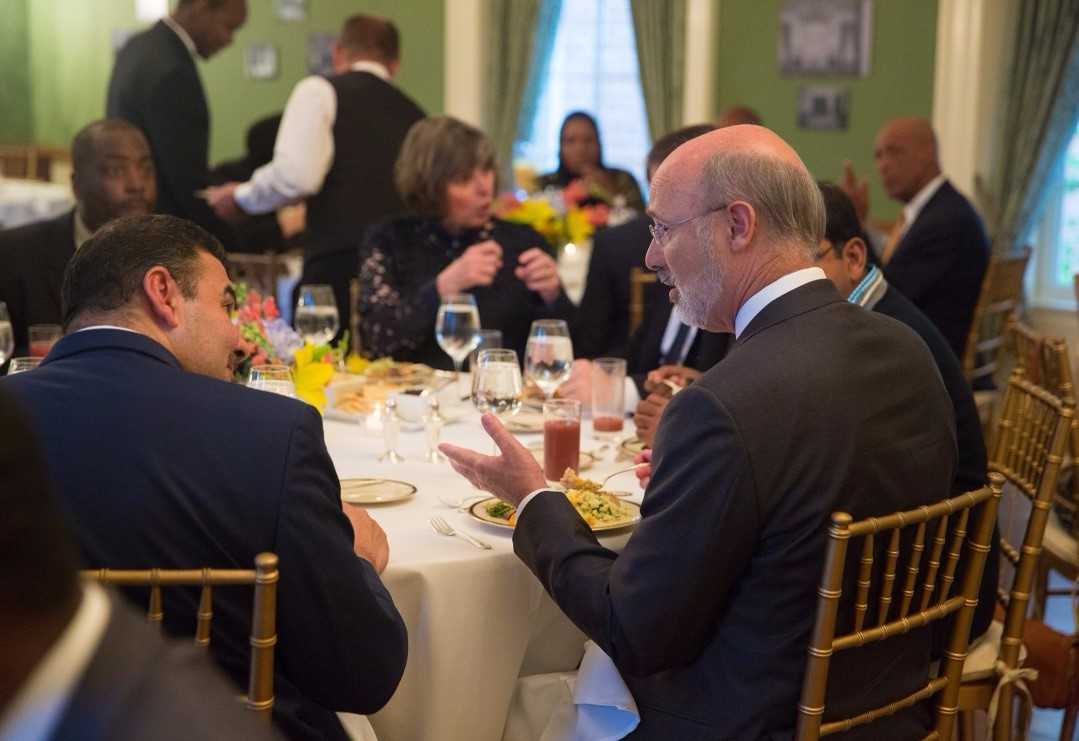
Dr. Gomaa and the governor spoke (in French) about France, where the governor had also spent time. They also discussed the history of Pennsylvania and religion as a fundamental right. "He's very down to earth guy," said Gomaa of the governor. "His vision is quite solid. His ancestors came here in part because of the freedom of religion in Pennsylvania. It was a triggering force for his family."
The discussion and experience, said Gomaa, made him feel more connected.
Gomaa was named associate professor of operations and information management in 2016. He previously taught at Marywood University and Rutgers University.
His research interests include health information systems, financial information systems, and data mining.
Professor Celebrates Eid al-Adha with Governor
-
10/03/2017
Prevention is one of the best medicines going, according to William Miller, Ph.D., faculty specialist in the Department of Health Administration and Human Resources at The University of Scranton. Yet the spiraling costs of traditional health care, coupled with long life expectancies, make it increasingly difficult to reach an aging population.
Enter TIPS – Telehealth Intervention Program for Seniors – a high touch/high tech project reaching almost 200 senior citizens in Northeastern Pennsylvania over a three-year period. As program director, Dr. Miller directs operations of this community telehealth program developed as a collaborative effort between The University of Scranton, the United Way, United Neighborhood Centers, and Jewish Community Center.
“There’s a lack of access to health care in certain populations and there are gaps in primary care,” said Dr. Miller. “If we can keep older adults healthier and catch some of the issues before they become major concerns that lead to hospitalization or emergency room visits, we can help to keep people healthier while reducing health care costs.”
The ideal program participant is the older adult aged 65 or older with two or more chronic health conditions. However, the program is available to anyone who utilizes other older adult services at any one of the six locations throughout the Scranton area in which the TIPS program is offered.
University of Scranton students from various disciplines are integral to the program. Twice per week, student technicians assist participants in taking certain meaningful vital signs (blood pressure, heart rate, pulse ox, and weight). Data is then transmitted securely to an internet-based system that will alert a trained nurse if any of the participant vital signs fall outside specific parameters. The nurse will review these alerts and reach out to the participant as necessary. The student technicians also work with the participants to identify any significant changes in their current health or treatment plans.
The six-month pilot of the TIPS Program revealed a healthy outcome: personalized preventative care led to a reduction in overall alerts. Examining the next full year of data, the pilot study findings were supported; the data exhibited that after six-months patient data were typically stabilized and patients begin to show improvements in overall health.
Results of the study were presented at the MBAA International Conference in Chicago by Dr. Miller, along with Maria Begliomini, Shickshinny, a student in the University’s Master of Health Administration and Human Resources program and Victor Dec, Clarks Summit, a 2017 graduate of the undergraduate nursing program. The students also discussed their study at the University’s 17th annual Celebration of Student Scholars on campus. Their presentation examined the study results in terms of health care quality improvement and explored the barriers to implementing this type of program on a larger scale.
Dr. Miller is also embarking on an interdisciplinary study to examine the relationships between student technicians and participants and how that relationship benefits both groups. Students have been known to engage in a level of care that shows compassion for the person beyond the medical situation at hand.
A third piece of research on the horizon involves a study about how collegiate health and wellness services prepares students to be advocates for themselves and better healthcare consumers.
Overall, admits Dr. Miller, “It’s a large and daunting health care system. Anything we can do to help people – both young and old – navigate the process can only help.”
Dr. Miller joined the University’s faculty in 2015. He earned his bachelor’s degree in health science at Lock Haven University of Pennsylvania, his master of health administration at the Pennsylvania State University, University Park, and his Ph.D. in health promotion at Marywood University.
Program ‘TIPS’ Access to Primary Care for Seniors
-
09/29/2017
A Physics
Teachers Resource Agents (PTRA) Workshop on Hands-On Electricity Lessons was held Friday, April 21st, in the introductory physics laboratory.An AAPT National Bauder Grant was secured by CPS Section PTRA Leader, Pat Callahan (in red), who is also the National
PTRA Advisory Board Director. The grant allowed the high school teachers who attended the workshop to leave withelectricity equipment from the CASTLE Curriculum.On Friday evening, a banquet dinner was held in the LSC Atrium and remarks were given by Professor Emeritus John R. Kalafut ‘60, who was President of AAPT-CPS in 1974. He reflected on how the conference gave him one of his first opportunities to present his work.
Following the dinner, a keynote talk was presented by an invited speaker Dr. Matthew Farrar of Messiah College and was titled: Seeing Anew: How Advances in Microscopy are Changing the Life Sciences held in the PNC Auditorium LSC 133.
Scranton Hosts Physics Conference
-
09/27/2017
Joining the Latin American Studies program this year is Aiala Levy, a visiting assistant professor in the History Department. Dr. Levy recently received her
PhD in Latin American history from the University of Chicago.Her current book project, Making the Metropolis: Theaters and the Urban Public in São Paulo, Brazil, 1854-1924, tells the story of how a backwater became a metropolis. The project tells that story not through the traditional narratives of economic or infrastructural development but rather through culture. For São Paulo’s hundreds of thousands of new residents, metropolis meant mass society, a public life among strangers and crowds. Dr. Levy’s manuscript explains how Paulistanos (residents of the city of São Paulo) used theaters to shape this new society. Examining the words and deeds of government officials,
ssociational leaders, and businessmen, she argues that, inside São Paulo’s theaters, a wide range of residents began to realize their own visions for metropolitan life. At the same time, underpinning all of these visions was a common understanding of social transformation: the notion that, through “culture,” acquirable at the theater, every Paulistano—male, female, black, white—could be integrated into a harmonious urban public. As a result, theaters helped ground the metropolis in a secular morality, welcoming new Paulistanos into reputable public life while reordering individuals according to behaviors and tastes.At the University of Scranton, Dr. Levy has been sharing her expertise in Latin American history both inside and outside the classroom. In the fall, she taught two sections of HIST 125 Colonial Latin America, which offered students an overview of the region under Spanish, Portuguese, and French rule. The two centuries that followed colonialism are the subject of Dr. Levy’s current course, HIST 126 Modern Latin America. This semester she is additionally teaching the history of gender and sexuality in Latin America, curating the Latin American Film Festival, and organizing a talk by Dr. Brodwyn Fischer on the history of the right to the city in Brazil.
Read more from the Spring 2017 LA/W/S newsletter, here.
Welcome to Our New LAS Faculty Member!
-
09/27/2017
These are challenging times.
Over the past weeks and
months people of all parties and faiths have confronted a rapid succession of political actions that affect our most basic liberties and values. Angela Davis and other compelling speakers at the Women’s March reminded us of the important role an inclusive and intersectional feminism has to play in the defense of vulnerable populations, providing us with the analytical tools we need to resist hatred and division. Insights gained in our department’s courses and programs can and do help students with diverse perspectives engage in informed, fact-based discussion thatare always political, but that need not be partisan.When we commit ourselves to equity, diversity, fairness, and dignity, we can hold one another accountable to the goals of a liberal education and a democratic society. We’ll continue to work hard to advance conversations about women’s health and access to affordable care; citizenship, law, and electoral politics; women entrepreneurs; and women’s vibrant creative contributions in the Americas.
I hope you will join us! Expand the conversation by bringing someone new along the next time you attend a LA/W/S event, or even when you stop by our office (LSC 221 C) to learn more about declaring a concentration or a major in Latin American or Women’s Studies.
Read more from the LA/W/S
newsletter LA/W/S Newsletter - Spring 2017
-
09/27/2017
Since Spring 2016, I have been excited to be a project partner for a Jean Monnet grant to establish the We-Bind Network”, funded by the European Union Commission and currently housed at the Institute for Women’s Policy Research (IWPR) in Washington, D.C. The grant is to study and publicize the importance of women leaders in foreign policy and international relations, utilizing seminars and conferences to highlight new research and to publish findings for academic and professional audiences. The array of specific research projects is focused on women engaged in foreign policy leadership and decision-making in global community. Most of our scholarship has at least some ties to European-related foreign policy questions or individuals connected directly or indirectly to the European foreign policy sphere.
An Italian colleague and friend, Federiga Bindi, spearheads this venture, which builds upon the Women’s Leadership in International Relations project that she and others began in 2013 in Brussels, Belgium. Federiga is the Jean Monnet Chair and Professor of Political Science at the University of Rome Tor Vergata; additionally, she has been a Senior Fellow at the Center for Transatlantic Relations at SAIS Johns Hopkins University, and currently holds the Daniel German Distinguished Visiting Chair at Appalachian State University. I met Federiga in 2007 through the European Union Studies Association (EUSA), the foremost scholarly and professional association that focuses on the EU, its integration process, and transatlantic relations.
At the upcoming May 2017 Sixteenth Annual EUSA Biennial Conference, in Miami, FL. I will present a paper, titled "Samantha Power - A European Journalist turned U.S. Diplomat," as part of two conference panels organized under our grant’s auspices. Power, who was born in Ireland and whose mother migrated to the United States during Power’s childhood, recently stepped down as the U.S. Ambassador to the United Nations, a position she held for three years. She is known for her passionate commitment to international human rights and her efforts to build coalitions, including with European partners, to address human rights challenges in the international community. We are at work on a new grant proposal to fund additional research on EU women leaders. For that new effort, I will initiate a new project on Margot Wallstrom, the current Swedish foreign minister, who served in the in the European Commission for two terms in addition to being the Special Representative of the UN Secretary-General (SRSG) on Sexual Violence in Conflict.
Read more from the Spring 2017 LA/W/S newsletter, here.
Women Leaders and Policy Makers in the Global Community
-
09/27/2017
The University of Scranton nursing faculty members updated its ongoing Clinical Liaison Nurse Model partners at Regional Hospital of Scranton, Moses Taylor Hospital and Geisinger Community Medical Center regarding research studies published by faculty members about the program. The Clinical Liaison Nurse Model, a community-based, academic-practice partnership the University began in 2009 pairs expert staff nurses with academic faculty to create an improved learning environment for undergraduate student nurses and an added level of safety for patients. According to Sharon Hudacek, Ed.D., professor of nursing at the University, documented research indicates that results of this model include exceptional preparation for clinical practice and higher levels of student and nurse satisfaction with the clinical learning environment in acute-care hospitals. The program also enhances opportunities for recruitment and retention of nurses for hospital practice partners.
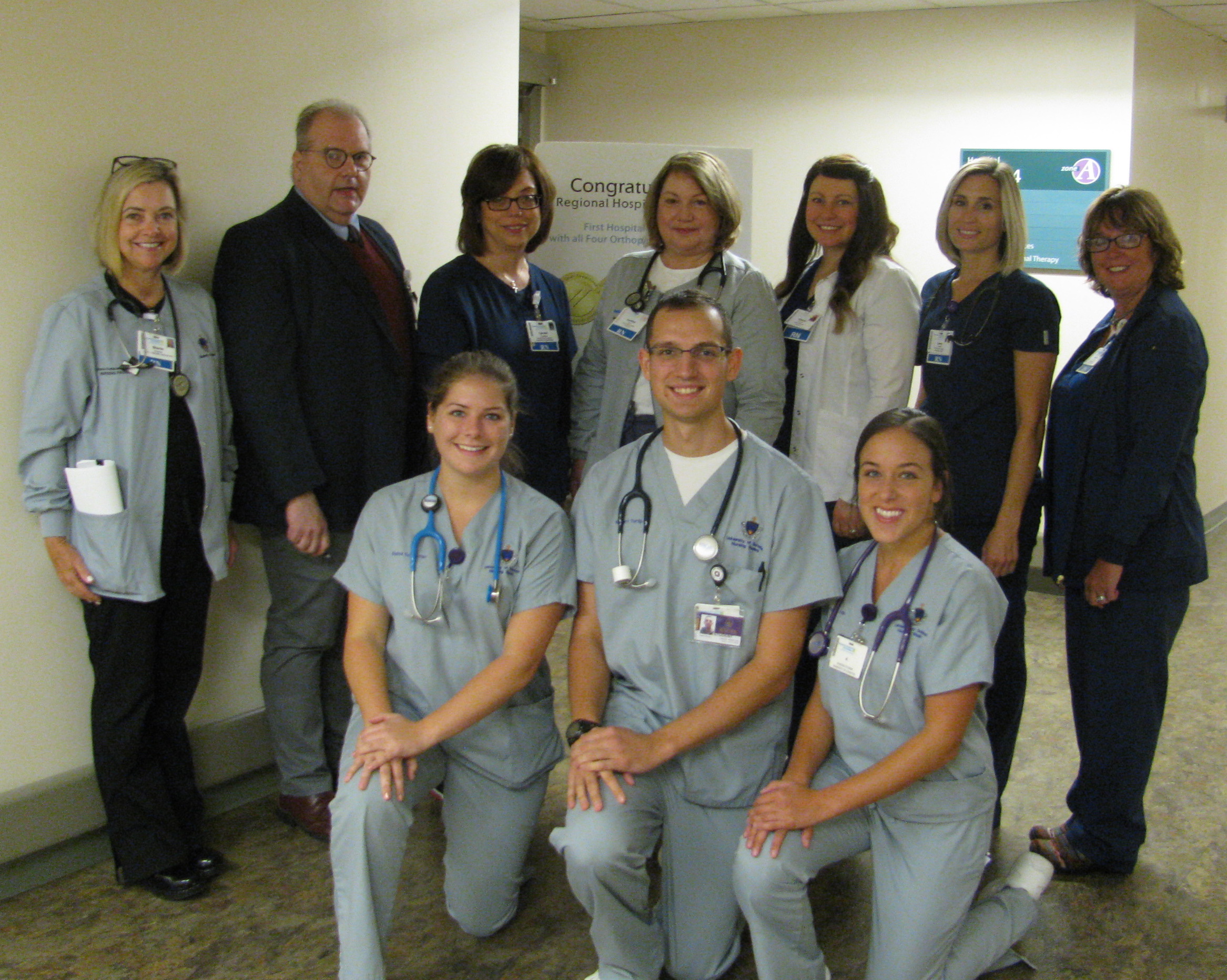
(Regional photo above)
Pictured at The University of Scranton Clinical Liaison Nurse Model partner meeting at held at Regional Hospital of Scranton are, front row, from left: University of Scranton nursing students Shannon Schaeffer of Hopewell Junction, New Jersey; Robert Turlip of Archbald; and Victoria Patton of Staten Island, New York. Standing from left are: Sharon Hudecek, Ed.D., professor of nursing at the University; and representing Regional Hospital Warren Shotto, assistant chief nursing officer and 1981 and 2002 graduate of The University of Scranton; nurses Carmel Candelori; Cindy Stone, a 2004 graduate of The University of Scranton; Victoria Szumski, telemetry nurse manager; Laura Tompkins, a 2012 graduate of The University of Scranton; and Denise Loughney.
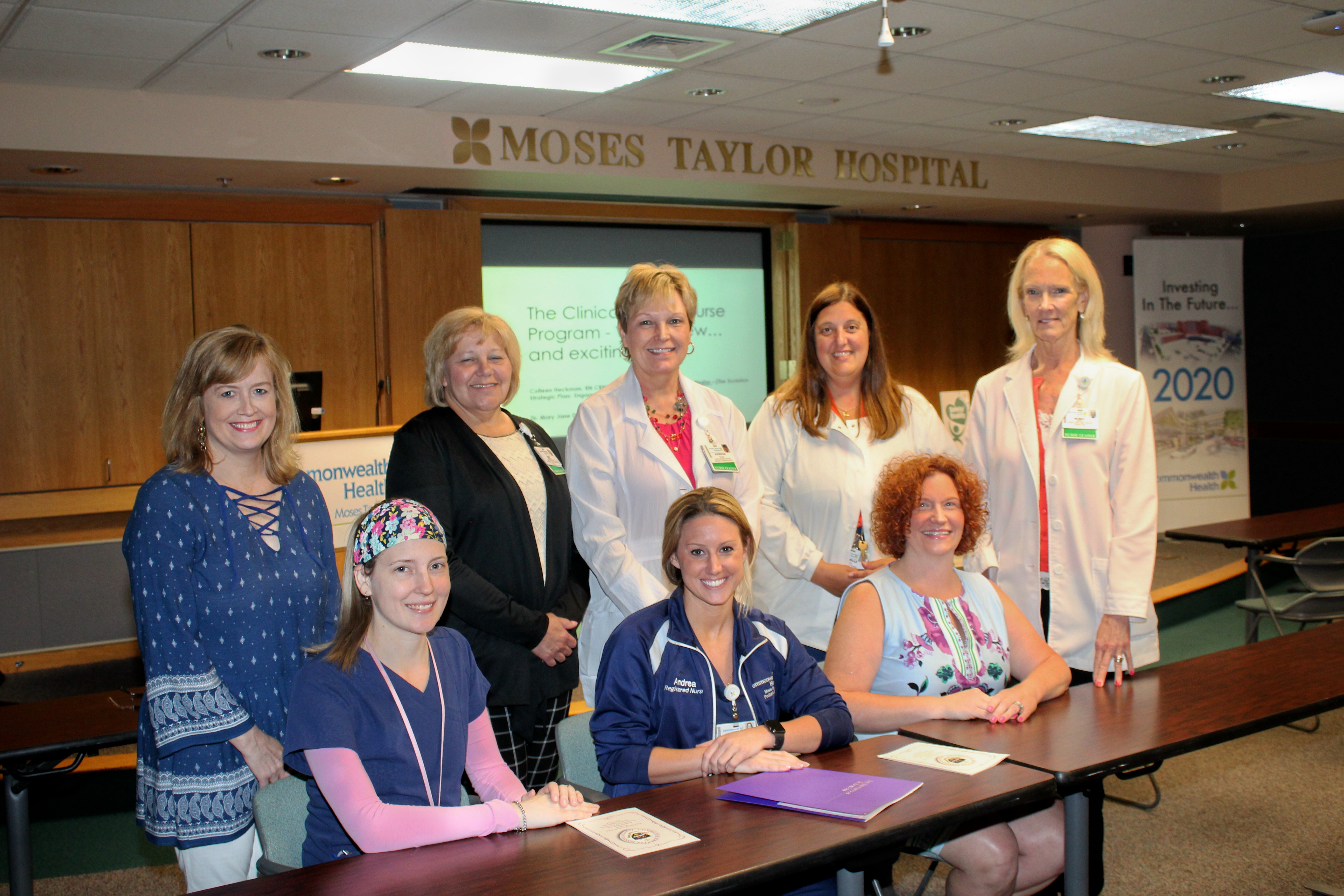
(Moses Taylor photo above)
Pictured at The University of Scranton Clinical Liaison Nurse Model partner meeting at held at Moses Taylor Hospital this summer are, seated, from left: Jessica Telencio, staff nurse; Andrea Kocker, nurse manager; and Corinne Mina, staff nurse, all from Moses Taylor. Standing: Colleen Heckman, assistant director of nursing laboratory at the University; and representing Moses Taylor Judy Ragukas, assistant chief nursing officer; Patricia Seliga, chief nursing officer; Michelle Binker, nurse educator; and Mindi Spear, director of women’s and children’s services.
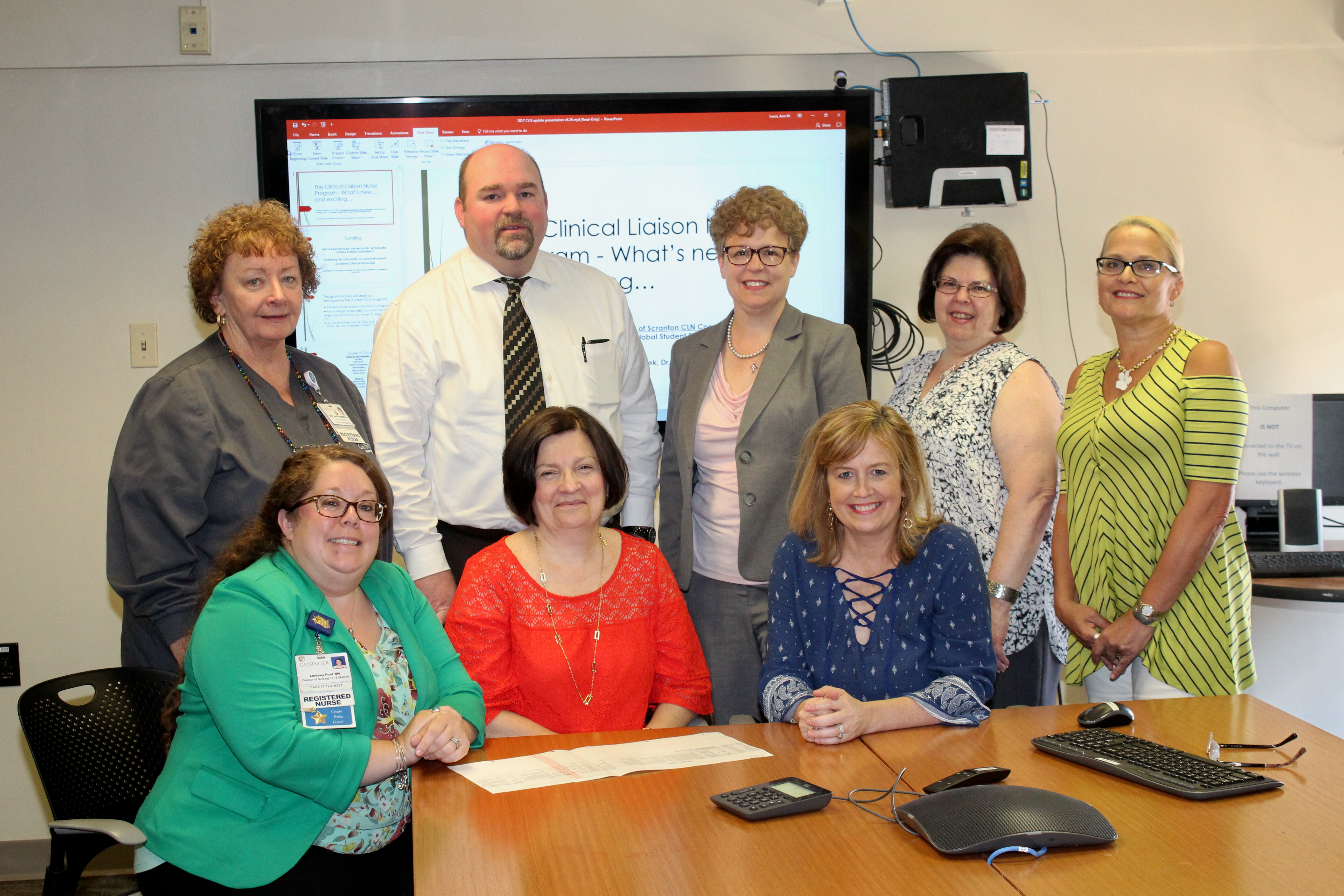
(GCMC photo above)
Pictured at The University of Scranton Clinical Liaison Nurse Model partner meeting at held at Geisinger Community Medical Center (GCMC) this summer are, seated, from left: nurses Lindsey Ford, GCMC; Marian Farrell, Ph.D., professor of nursing at the University; and Colleen Heckman, assistant director of nursing laboratory at the University. Standing are nurses MaryAnn McAndrew, GCMC, Angelo Venditti, D.N.P., vice president of nursing and Chief Nursing Officer of GCMC; Mary Jane DiMattio, Ph.D., associate professor of nursing at the University; Linda Lewis, GCMC; and Mimi Kovaleski, GCMC.
University Updates Nurse Liaison Partners
-
09/26/2017
We are thankful for the continued participation of students, staff, and faculty in our Living Wage initiative. During the spring semester, we shared reflections from three University of Scranton students (Class of 2017) who had completed assignments related to our project in Psychology of Diversity (PSYC 364), taught by Dr. Jessica Nolan, Associate Professor in the Department of Psychology.
· The Poor are Uneducated? by Shelby Karboski
· The Poor are Depressed Alcoholics? by Christie Civil
· The Poor are Lazy? by Melissa Lopez
In a Scranton Times-Tribune op-ed entitled “Kernels of truth yield bushels of stereotypes,” Dr. Nolan argues that “The Living Wage Report challenges our stereotype of ‘the poor’ and forces us to consider how we can work together to address the gap between the minimum wage and a living wage. “
Dr. Meghan Ashlin Rich, Associate Professor in the Sociology, Criminal Justice And Criminology Department, published “Living wage critical to city’s revitalization.” Dr. Rich reflects that “As we revitalize our urban cores, in part to the tastes of the so-called ‘creative class,’ we must also be mindful of how low wages will keep some citizens from being able to afford all the new amenities.“ Finally, Dr. Will Cohen, Associate Professor of Theology / Religious Studies reflected on the "Living wage as matter of basic human dignity.
Living Wage Report Snapshots
-
09/26/2017
The University of Scranton has appointed 15 new full-time faculty members for the 2017-18 academic year.
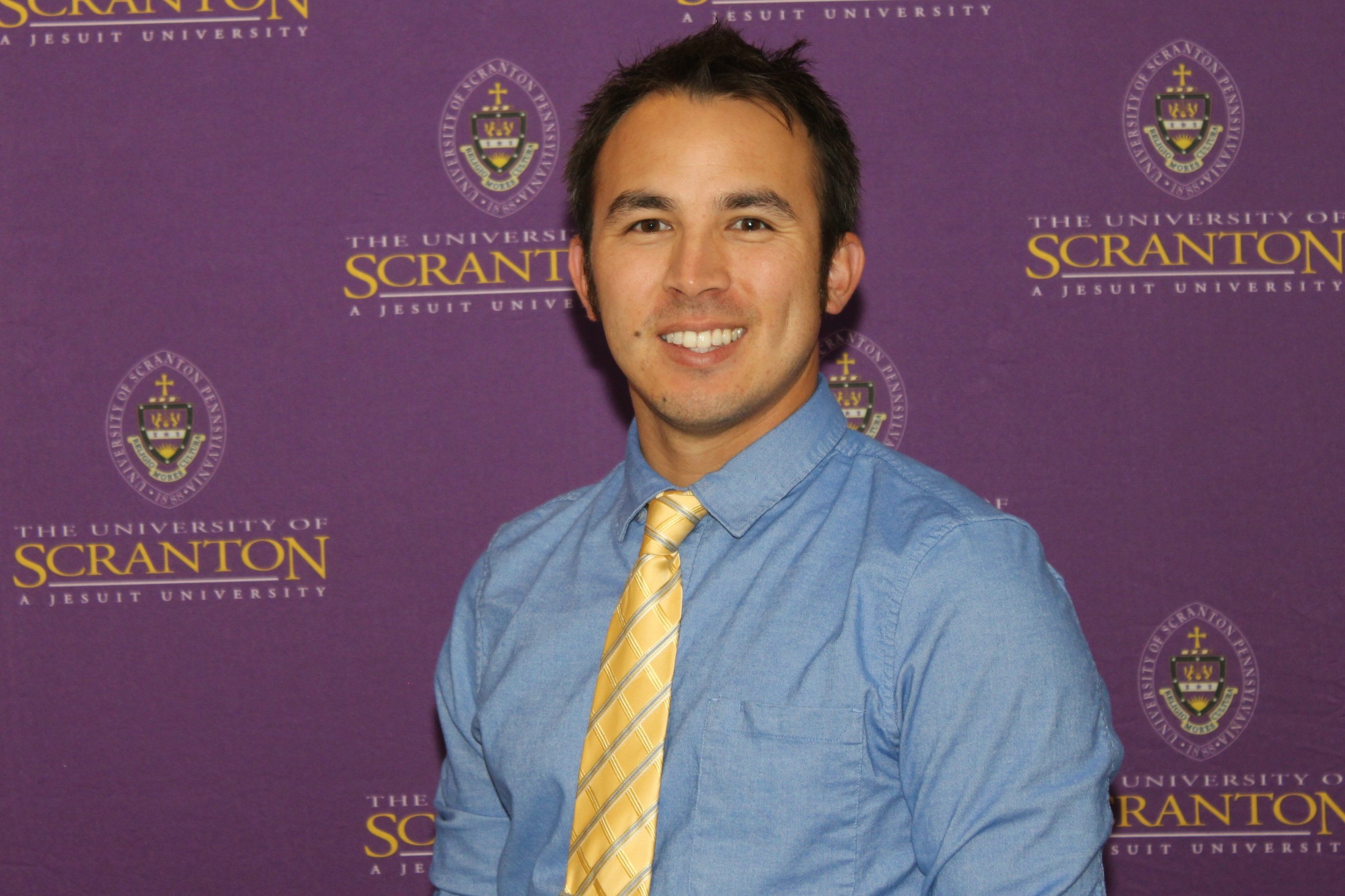
Bryon C. Applequist, Ph.D.
Bryon C. Applequist, Ph.D., of Henderson, Nevada, was named assistant professor of exercise science and sport. He earned bachelor’s and master’s degrees, both in kinesiology, from the University of Nevada, Las Vegas. He is completing a doctorate in exercise science from the University of Nebraska at Omaha. He was a graduate assistant at both universities and has published papers in a number of scholarly journals. Dr. Applequist currently resides in Clarks Summit.
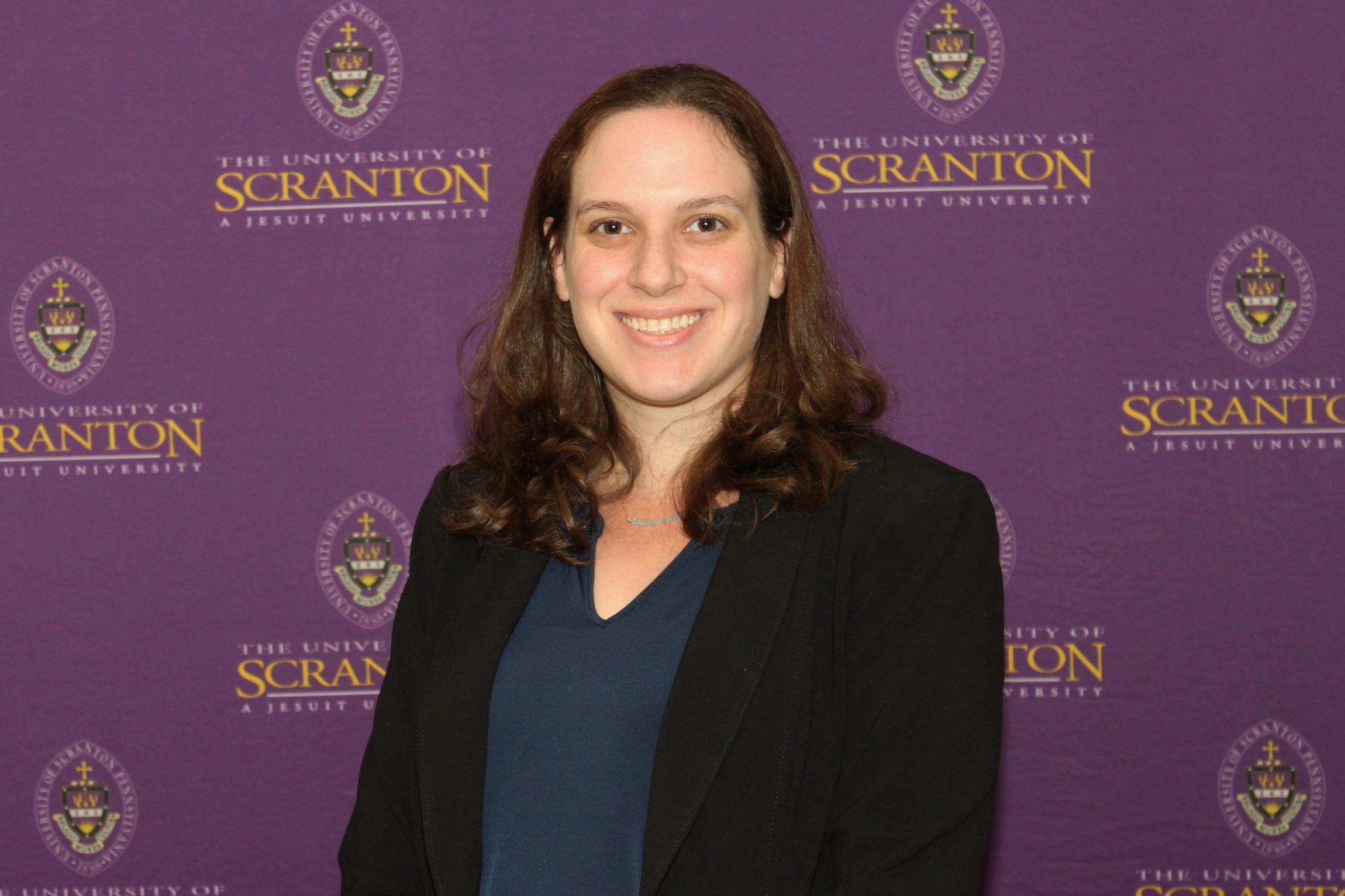
Kelly M. Banyas
Kelly M. Banyas of Mountain Top, was named assistant professor in the Harry and Jeanette Weinberg Memorial Library. She previously was a research and teaching fellow at the University of Maryland’s Teaching and Learning Services and has a decade of experience working in various library environments. She earned a bachelor’s degree in history and classical civilization from Boston University and a master’s degree in library and information science from the University of Maryland.
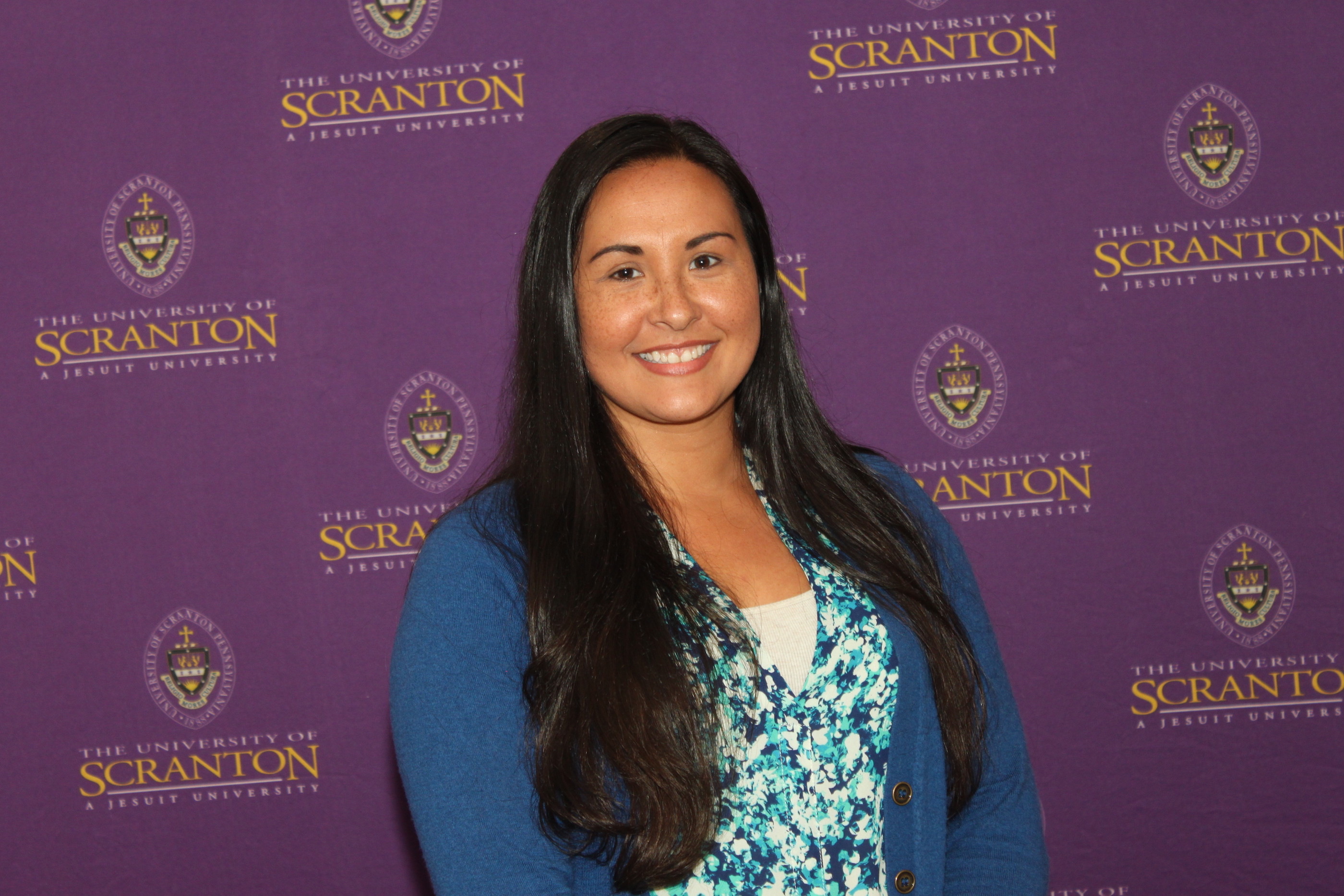
Tiffany M. Bordonada
Tiffany M. Bordonada of Columbia, South Carolina, was named assistant professor in the counseling and human services department. She holds a bachelor’s degree in psychology from Fairmont State University, and earned two master’s degrees from West Virginia University – one in rehabilitation counseling and one in public administration. She completed a doctorate in counselor education and supervision from the University of South Carolina. Professor Bordonada has worked as a clinical therapist in West Virginia and has presented her research at conferences throughout the United States.
Thomas G. Concannon, Ph.D., of Mountain Top, was named visiting assistant professor in the Physics and Electrical Engineering Department. He previously worked for 17 years as a software applications consultant and applications engineer instructor for Synopsys, Inc. He earned bachelor’s degrees in mathematics and physics from The Pennsylvania State University, a master’s degree in mathematics from Lehigh University and a doctorate in physics from the University of North Carolina at Chapel Hill. He has also taught math and physics at King’s College, Elon College, Wake Forest University and the University of North Carolina at Chapel Hill.
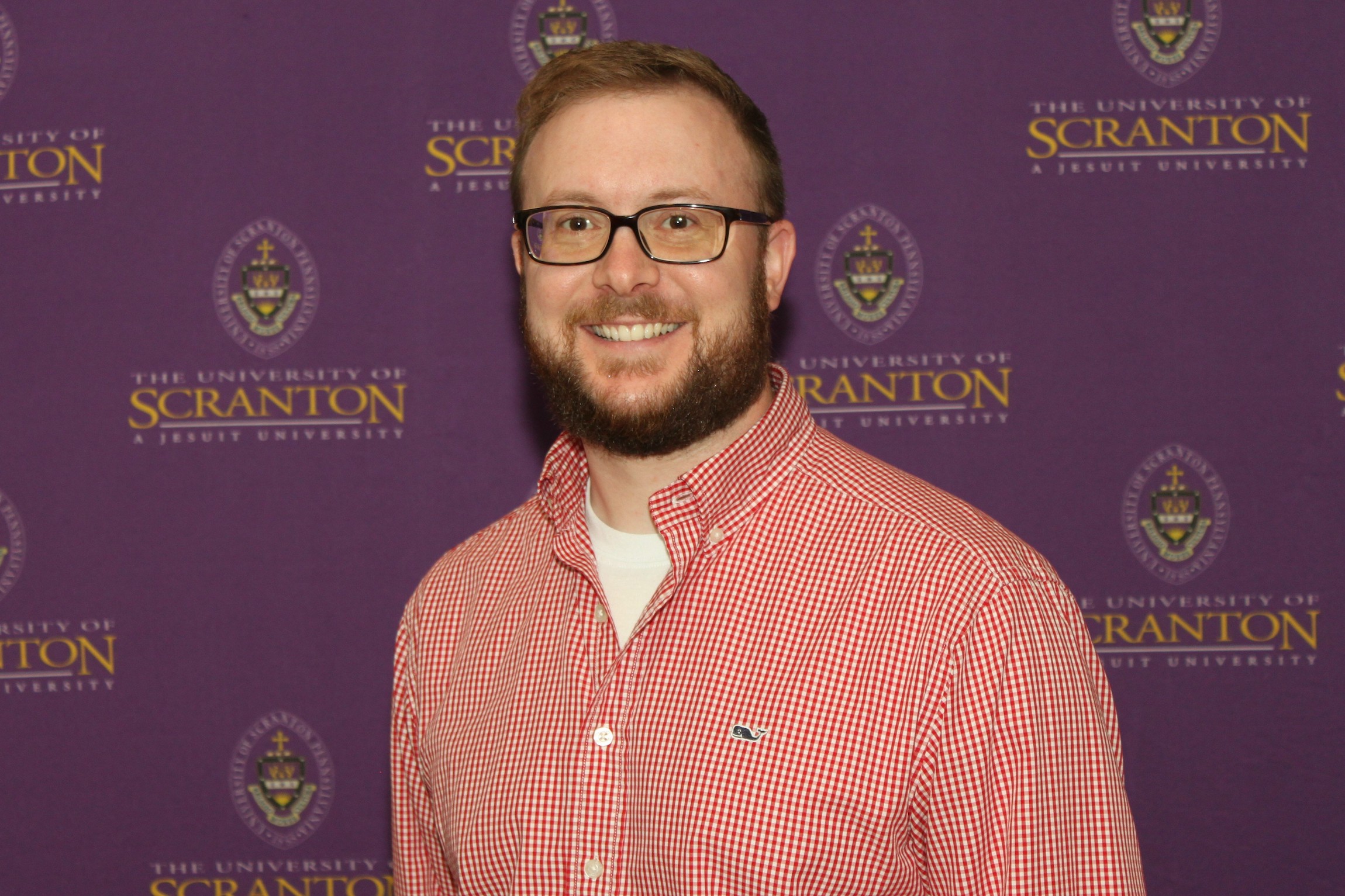
Francis T. Conserette
Francis T. Conserette of Dunmore, was named assistant professor in the Harry and Jeanette Weinberg Memorial Library. He previously worked as a library metadata specialist at The University of Scranton, as a property title analyst, as a document imaging specialist and as a curator assistant at the Eisenhower National Historic Site in Gettysburg. He earned a bachelor’s degree in history from Gettysburg College and a master’s degree in library and information science from Drexel University.
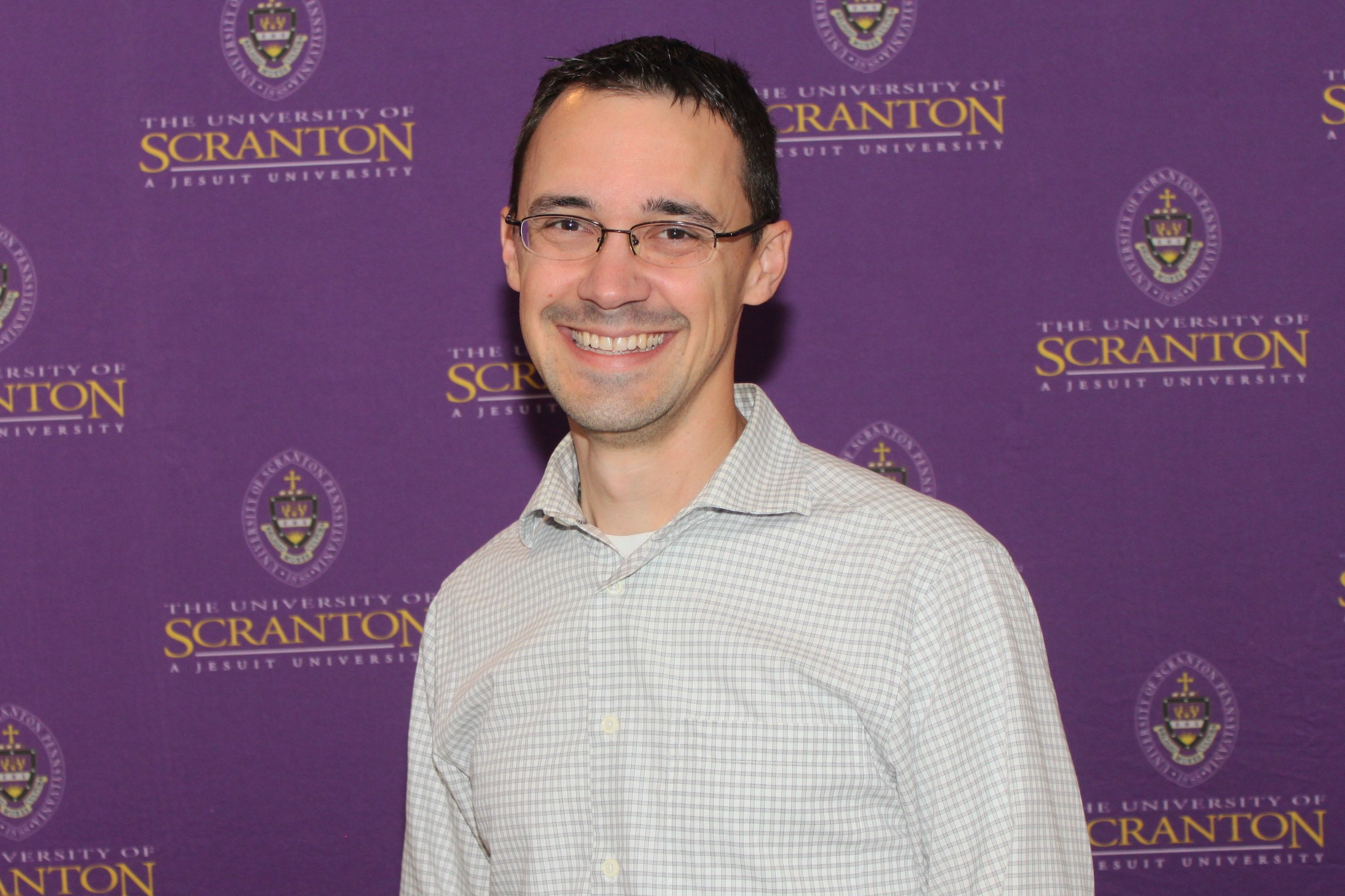
Christopher A.F. Howey, Ph.D.
Christopher A.F. Howey, Ph.D., was named assistant professor in the Biology Department. He previously was a post-doctoral research scholar at The Pennsylvania State University. Dr. Howey earned a bachelor’s degree in wildlife conservation from the University of Delaware and a master’s degree in biology from the University of Central Arkansas. He earned a doctorate in biological sciences from Ohio University, where he also taught for several years. Dr. Howey has received numerous grants, including a $500,000 grant from the Pennsylvania Department of Conservation and Natural Resources to study “Effects of Prescribed Burning in Pennsylvania’s Mixed Oak Forest on Wildlife Taxa of Concern.”
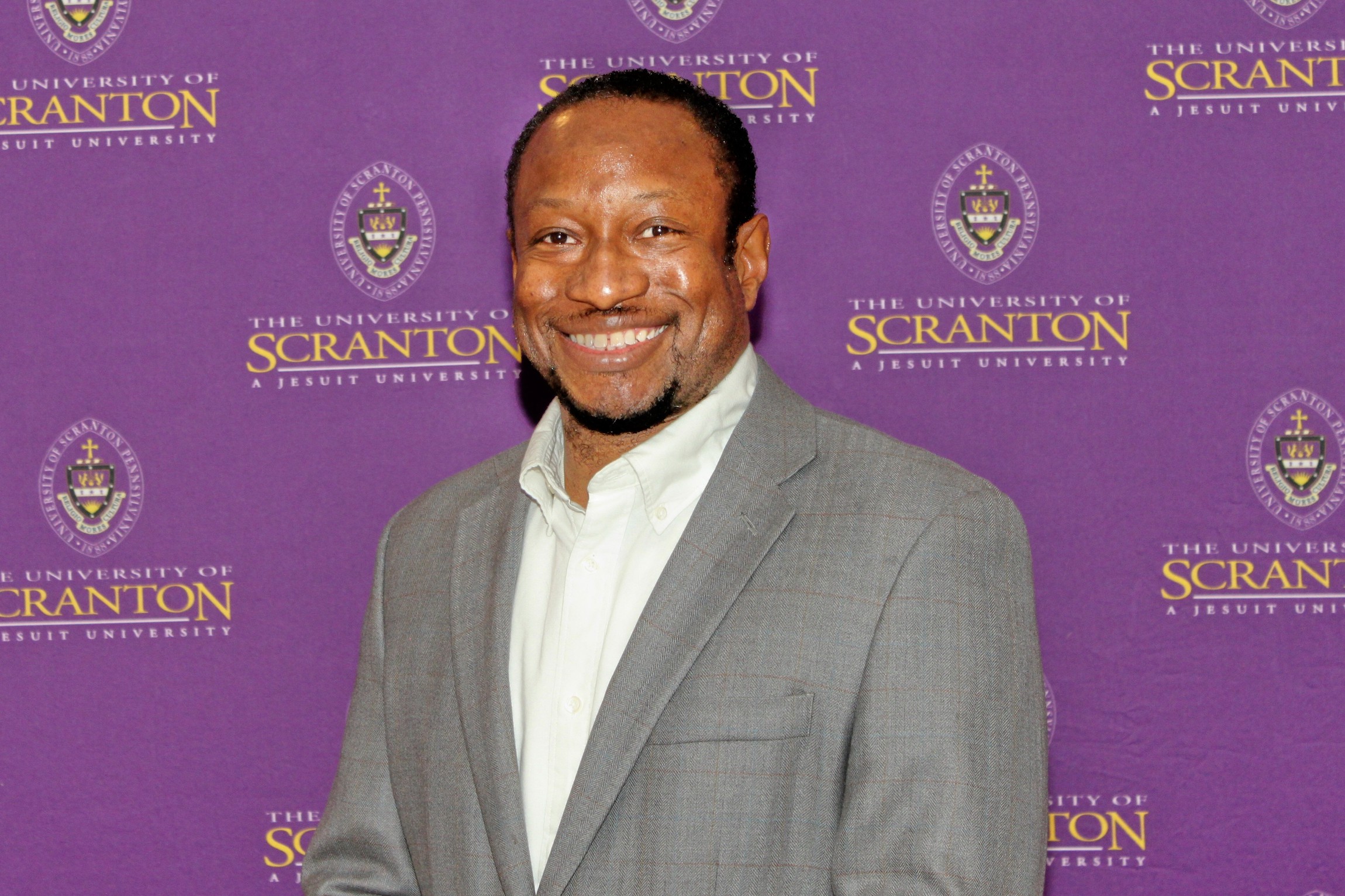
Joel B. Kemp, Ph.D.
Joel B. Kemp, Ph.D., of Pittsburgh, was named assistant professor of theology. He previously taught at Boston College, where he completed a doctorate in theology. He earned a bachelor’s degree in religion and American history from Harvard College, a juris doctorate from Harvard Law School and a Master of Divinity degree from Andover Newton Theological School. In addition to teaching theology, Professor Kemp was also a practicing attorney for more than a decade. He is fluent in Biblical Hebrew and can read Greek, Akkadian, Aramaic, German and French.
John Kilker, was named assistant professor of communication. He served as a faculty specialist in television and video for the University’s Department of Communication for the 2016-17 academic year. He has worked in the film and television industry for more than 15 years as a producer, director, writer and editor. His work has been nominated or won awards at numerous film festivals, including the Toronto International Film Festival. He has taught screenwriting, sound and directing at several universities. He holds a bachelor’s degree in criminal justice from The University of Scranton, a master’s in industrial and organizational psychology from Fairfield University, and a master of fine arts in film production from the University of Southern California.
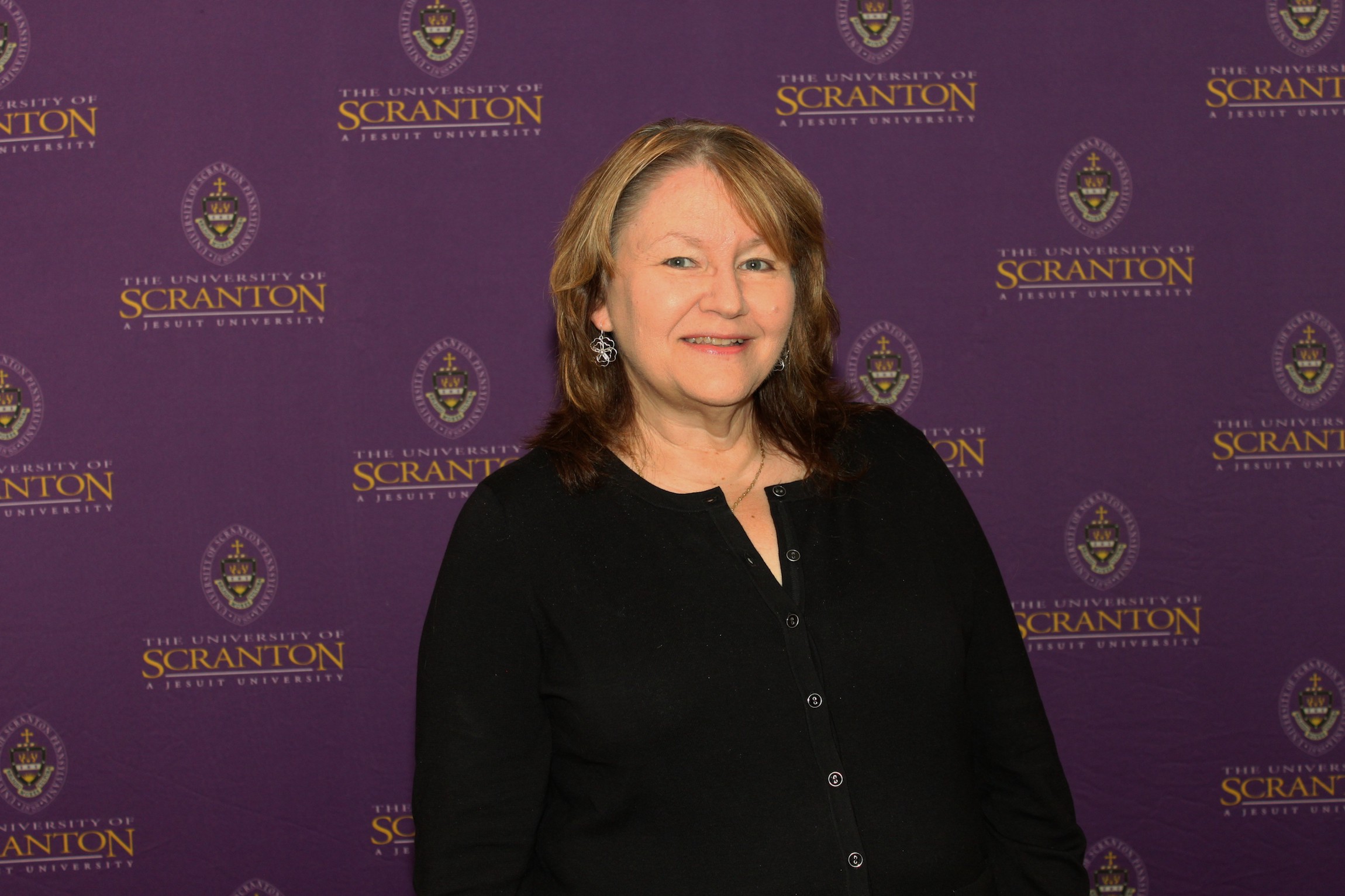
Linda C. Mlodzienski
Linda C. Mlodzienski of Moosic, was named faculty specialist in the Accounting Department. She earned a bachelor’s degree in accounting and an MBA in finance, both from The University of Scranton. She has many years of industry experience, having worked for accounting firms, as director of finance for Catholic Schools in the Diocese of Scranton, as business manager for the Notre Dame Regional Schools, and as director of operations for the Lackawanna Heritage Valley National and State Heritage Area. She has also taught accounting previously at the University, Wilkes University and East Stroudsburg University.
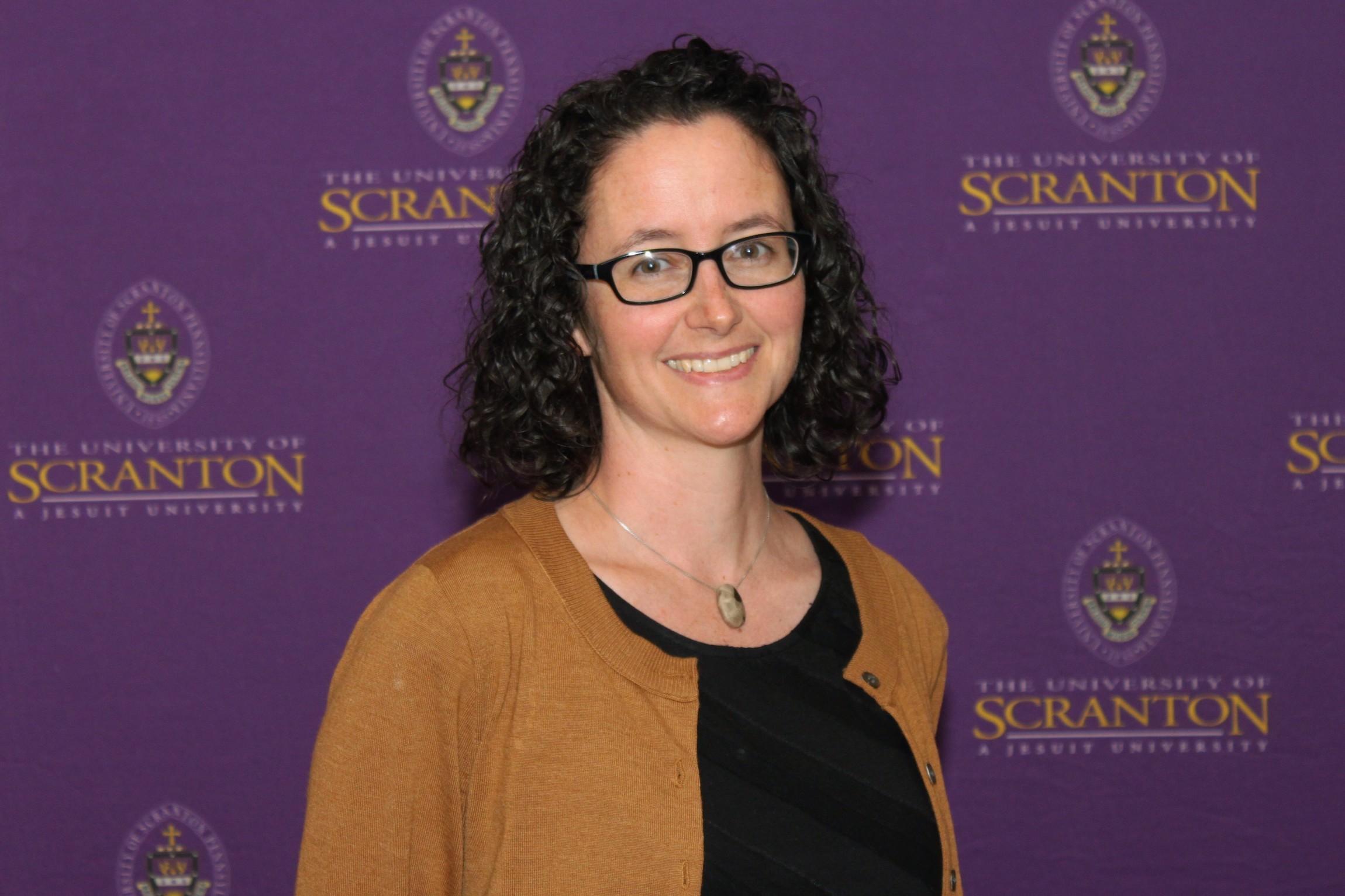
Anne Royer, Ph.D.
Anne Royer, Ph.D., of Salem, Oregon, was named assistant professor of biology. She was previously a visiting assistant professor and postdoctoral scholar at Willamette University. Dr. Royer earned a bachelor’s degree in biology and German studies from Oberlin College. She received her doctorate in ecology, evolutionary biology and behavior from Michigan State University. Her research focuses on the evolutionary ecology of interspecific interactions, primarily plant-pollinator systems. She has presented her work at conferences around the nation and has been published in several academic journals.
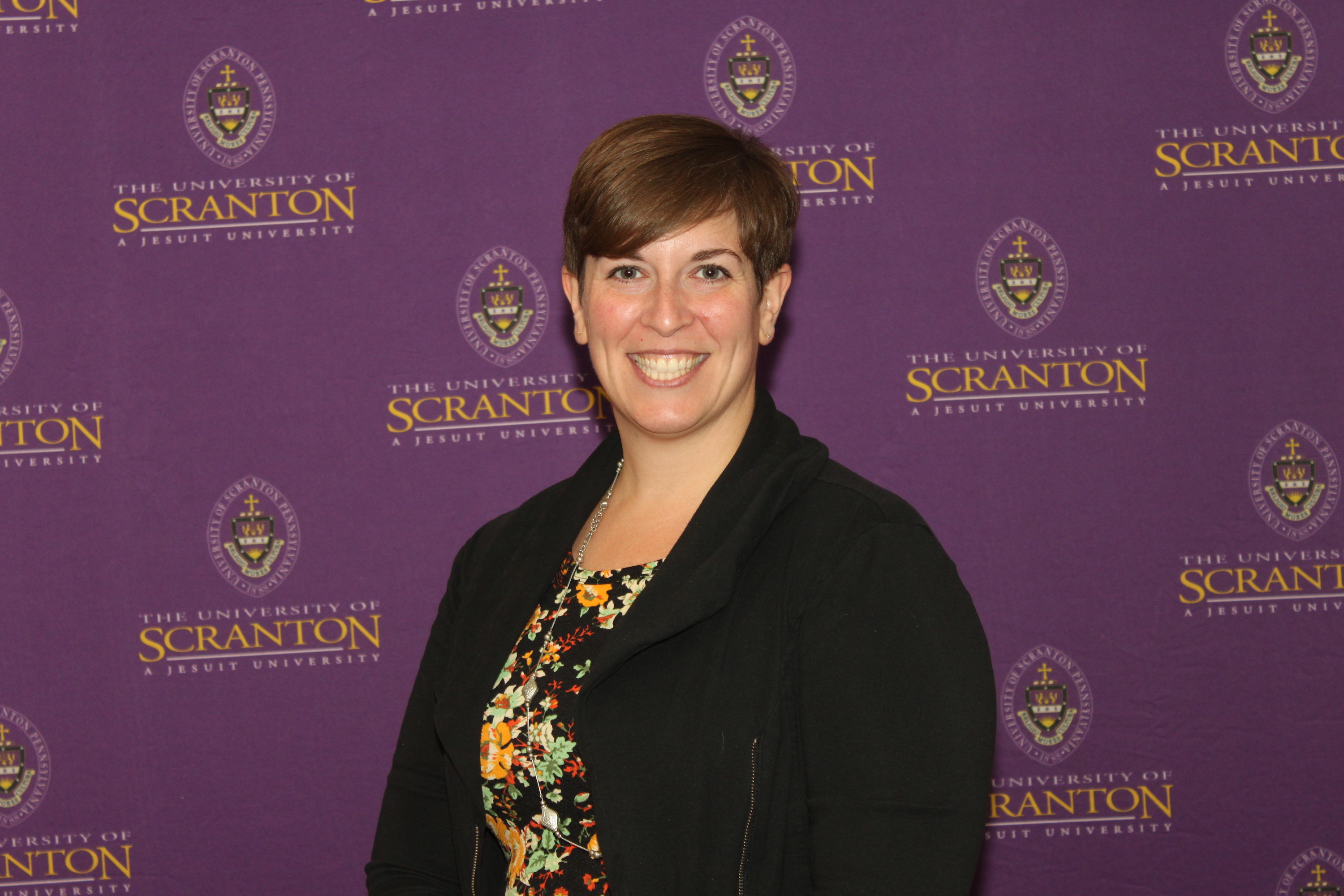
Janette Scardillo, D.P.T.
Janette Scardillo, D.P.T., of Whiting, New Jersey, was named faculty specialist in the physical therapy department. Dr. Scardillo previously was an assistant professor and co-director of clinical education at Thomas Jefferson University. She earned a bachelor’s degree in health science as well as master’s and doctoral degrees in physical therapy from the University of Scranton. She worked as a physical therapist in New Jersey, Washington, D.C., and Maryland before joining the faculty of Thomas Jefferson University.
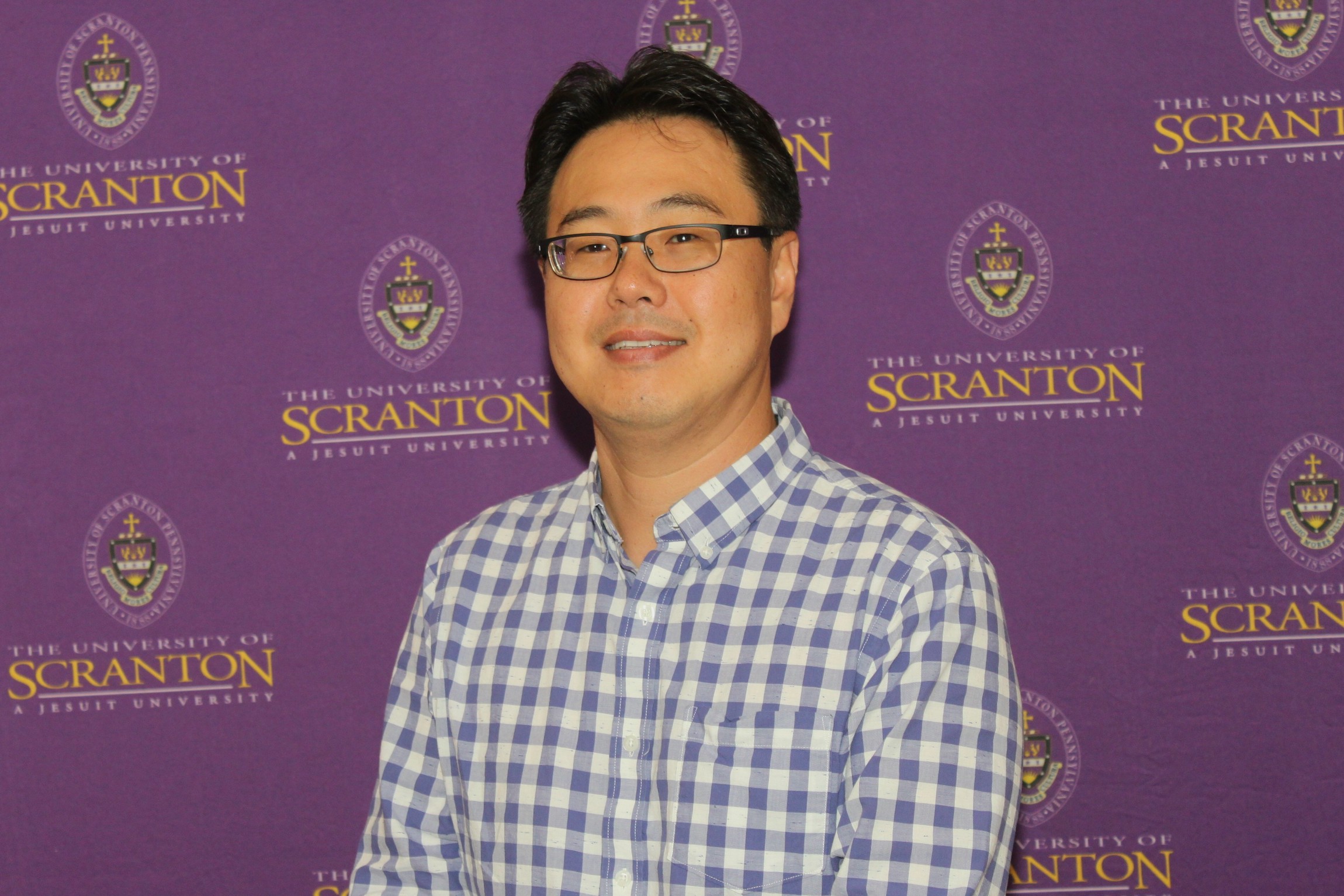
Jong-Hyun Son, Ph.D.
Jong-Hyun Son, Ph.D., of Salt Lake City, Utah, was named assistant professor of biology. He earned a bachelor’s degree in animal science from Dankook University, South Korea, a master’s degree in biological science from Western Illinois University, and a doctorate in neuroscience and experimental therapeutics from Texas A & M University of the Health Sciences. For the past eight years he has worked for the University of Utah, as a postdoctoral fellow in the department of pharmacology and toxicology and as a postdoctoral research associate in the School of Medicine.
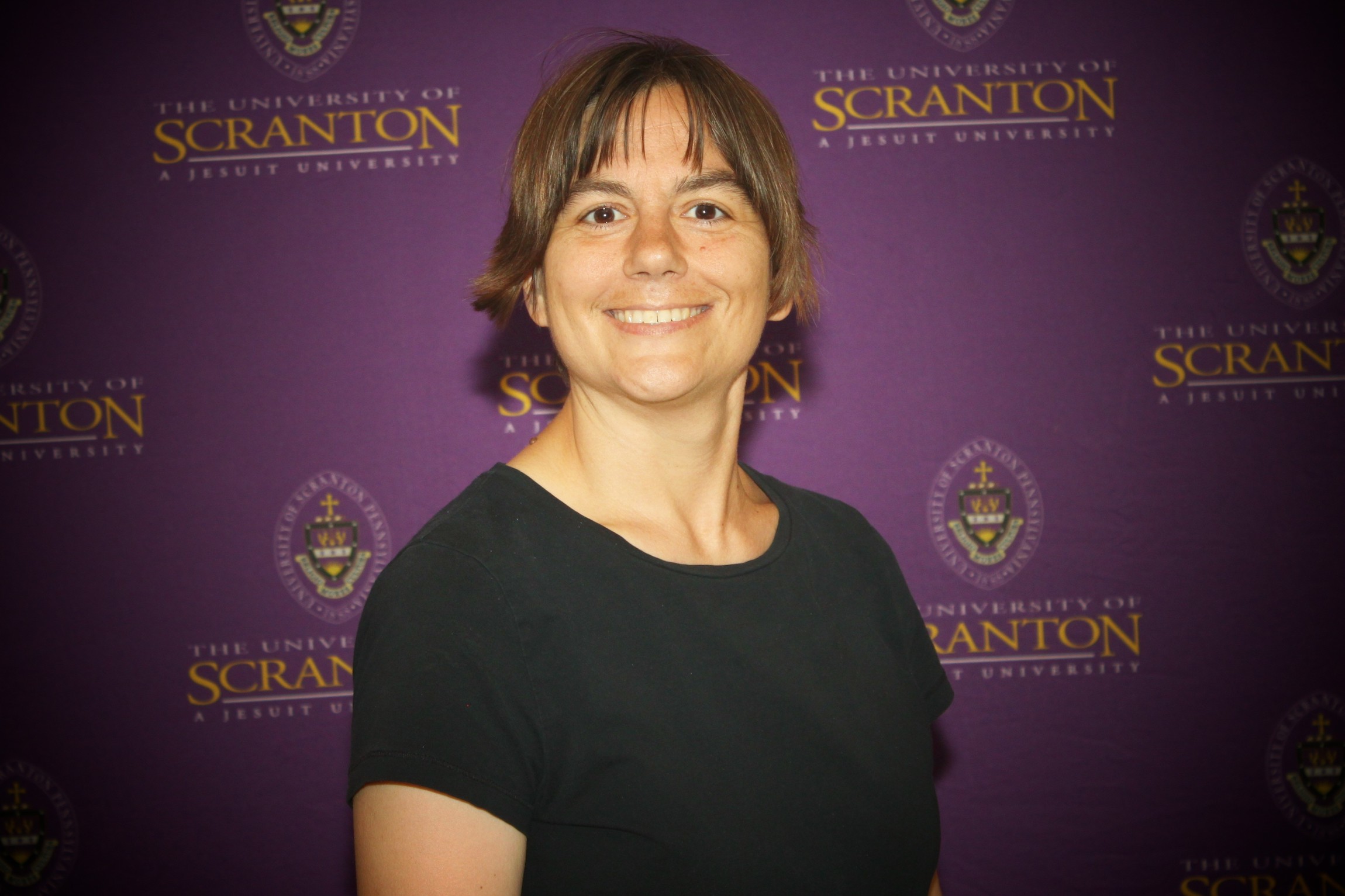
Leona Sparaco, Ph.D.
Leona Sparaco, Ph.D., of Tallahassee, Florida, was named visiting instructor in the Mathematics Department. She earned a bachelor’s degree in mathematics from Siena College and a doctorate in mathematics from Florida State University. Since 2012, she has taught a variety of calculus, trigonometry, college algebra and other math classes at Florida State.
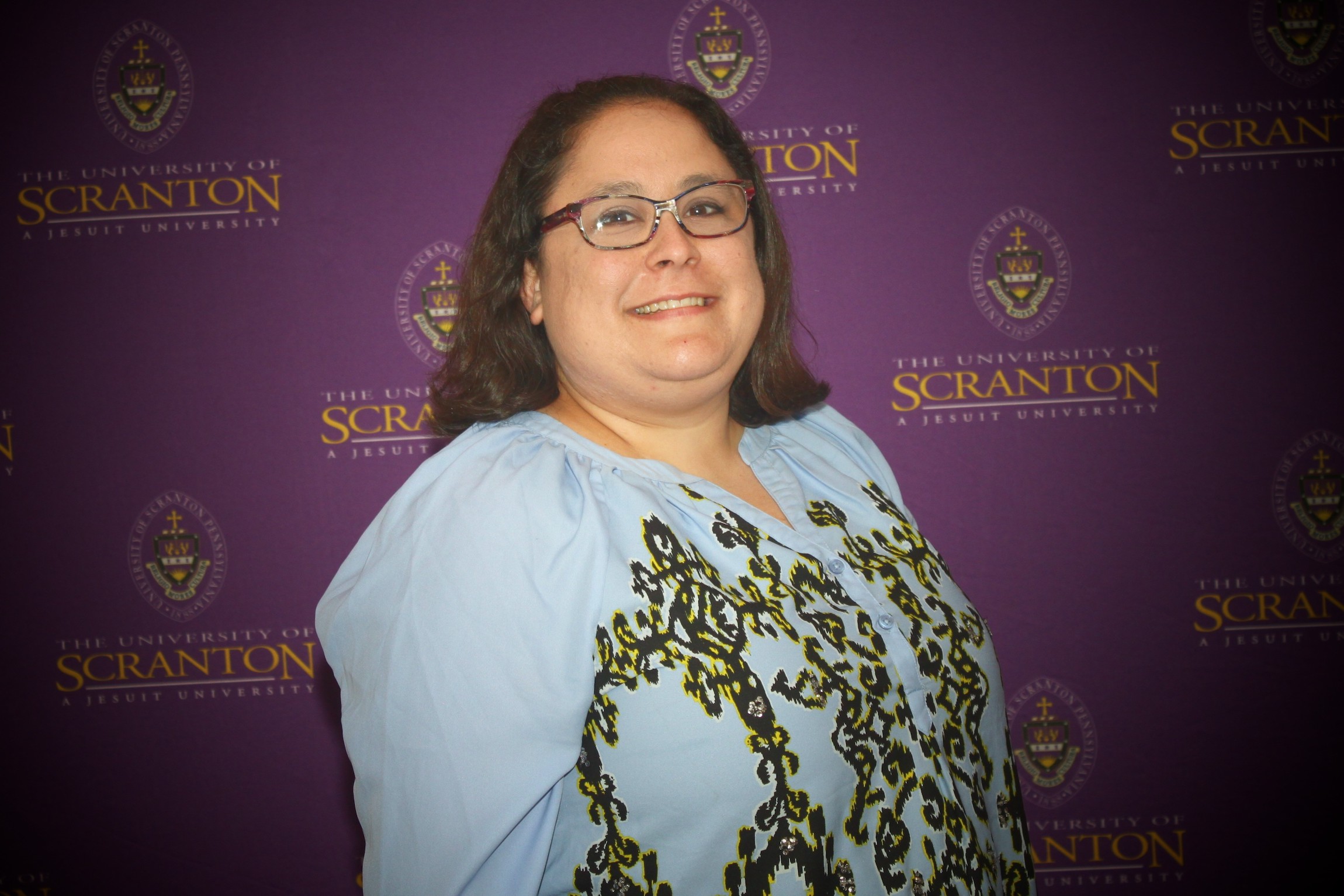
Krista Stevens, Ph.D.
Krista Stevens, Ph.D., of Birmingham, Alabama, was named visiting assistant professor of theology. She earned a bachelor’s degree in theology and English from Spring Hill College, a Master of Divinity degree from Weston Jesuit School of Theology, and a doctorate in theology from Fordham University. She was also a teaching fellow and postdoctoral teaching fellow at Fordham and a visiting assistant professor at Marquette University. Her research has been published in several academic journals.
Laurie B. Valunas was named faculty specialist in the nursing department. Professor Valunas has more than 20 years of experience as a pediatric nurse practitioner. She previously worked for Physicians Health Alliance in Dickson City, Goldsboro Pediatrics and Duke University Medical Center. She earned a bachelor’s degree in nursing from The University of Scranton and a master’s degree in nursing and her pediatric nurse practitioner certification from Duke University.
University of Scranton Announces New Faculty Members
-
09/26/2017
University of Scranton English and Theatre Professor Michael Friedman, Ph.D., received the John L. Earl III Award for service to the University, the faculty and the wider community. This award is given annually to a member of the University community who demonstrates the spirit of generosity and dedication that the late Dr. John Earl, a distinguished professor of history, exemplified during his years at Scranton from 1964 to 1996.
Previous Earl award recipient Leonard Champney, Ph.D. professor emeritus at Scranton, quoted William Shakespeare to describe Dr. Friedman as being “full of grace and fair regard” in his remarks at the award presentation at the ceremony.
As a distinguished Shakespeare scholar, Dr. Friedman has published more than two dozen scholarly articles and presented another two dozen scholarly papers. He is the author of “The World Must Be Peopled: Shakespeare’s Comedies of Forgiveness” (Fairleigh Dickinson Press, 2002) and the second edition of the volume dedicated to “Titus Andronicus” in the Shakespeare and Performance series published by Manchester University Press (2013). He serves on the editorial board of Shakespeare Bulletin and as a member of the International Committee of Correspondents of World Shakespeare Bibliography.
For 12 years Dr. Friedman has also served as chair of the Faculty Advisory Committee (FAC) “skillfully and selflessly,” said Dr. Champney in his remarks, “relying on his unwavering civility, his gift for realistic analysis and clear explanations.”
During his more than 25-year tenure at Scranton, Dr. Friedman has also served on numerous other committees and initiatives including the Handbook Committee, First-year Experience Task Force, the Jesuit Identity Task Force and as a Summer Orientation Academic Advisor, among others. He has also acted in seven University Players’ productions.
Dr. Friedman earned his bachelor’s degree from Tulane University and his master’s and doctorate from Boston University.
Professor Michael Friedman Receives Earl Award
-
09/22/2017
Once again, our Faculty Moderator, Co-Editors, and Student Reporters exceeded expectations with this outstanding newsletter devoted to program outcomes. As you sift through the Counseling and Human Service program outcomes, you will find a foundation of excellence that is continually built upon. Our ongoing assessment activities provide evidence that program learning outcomes are being accomplished and student learning outcomes give us much to be proud of. This is due to our dedicated Standards Work Group and our recently established Assessment Action Committee. Thanks to my colleagues for the recognition of the importance of assessment and the willingness to invest significant time and energy on an ongoing basis. A feature article in this newsletter will further elaborate the work of these committees.
In addition to these program statistics, you will also have an opportunity to explore the stories behind the data. For me, stories capture the lived experience of members of our department: students, graduates, staff, and faculty. Stories connect us to each other in powerful ways and help us to have empathy for the daily struggles and triumphs. Research demonstrates that stories engage the brain and provide us with the motivation to become invested and connected to the people we serve (Zac, 2014).
As I read the draft of the Newsletter, what dawned on me is the 4th floor of McGurrin Hall is a place where people are encouraged and nurtured to bring their personal best in all they do. For faculty, staff, and students, it begins with our Dean’s Administrative Leadership team. The support that we receive from Dean Debra, Vicki, Ray, Dianne, Diane, and Pat is beyond compare. Our CHS department is blessed with this team that strives to help us meet our departmental and individual goals. In this newsletter, you will read about the student scholarship that was funded through the Dean’s Office and enabled students to present at the Pennsylvania Rehabilitation Association, Pennsylvania Counseling Association, Pennsylvania School Counseling Association, and the Pennsylvania State-Wide Chi Sigma Iota Conference. Our students Dr. Lori Bruch, Chair came back with great stories of their professional development, expanding networks, and ideas for the future, not to mention their adventures with faculty and fellow students.
Our Administrative Assistants are engaged with our students in a caring and professional manner, they go the distance each and every day. They listen to our student’s stories and help to connect them to University resources and services. They are appreciated for their daily compassion. Both Ann and Pam know that people always come first.
The Newsletter will provide you with a glimpse of how faculty work to inspire student growth and the intentional ways that students are mentored to become self-reflective practitioners, competent caregivers, and community leaders. Likewise, you will read about student perspectives as they navigate through the program and explore pivotal moments in their student counselor development. These stories provide insight into what a Scranton Education is all about.
The work from our David W. Hall Counselor Training Center (CTC) will showcase the numbers of graduate students in Clinical Mental Health, Rehabilitation, and School Counseling who have had the opportunity to develop their foundational counseling skills under faculty supervision. This Academic year, 25 counselors in training provided 1,574 sessions to 419 individuals from our campus and local communities, the real detail is found in the individual stories and successes of their work. Each day our students are making a difference through their work in the Counselor Training Center.
Our Counseling and Human Services undergraduates are actively involved in community-based learning through their coursework, volunteerism, and internships. This year, 54 CHS undergraduates have completed over 13,900 hours of internship experiences across 42 agencies. Likewise, our 43 graduate students completed over 24,806 hours of internship in community organizations, rehabilitation agencies, and elementary, middle and secondary schools. The internship placements and reflective components facilitate transformative learning experiences aimed at preparing students to enter their careers in Counseling and Human Services. In our Jesuit tradition, as men and women for others, they have witnessed their profound ability to make a difference in the lives of people including children, adolescence, the very young to the oldest of old. Through these powerful interactions, all are changed. On May 16, we will honor our interns and community supervisors at an appreciation dinner.
Recently, Dr. LeeAnn Eschbach worked with University Advancement, the Gerald R. Roche Center for Career Development, the CPS Dean’s office, and the CHS Department to invite our CHS graduate alumni to campus to share in a CEU/Networking program with current graduate students, faculty, and staff. The stories of career success and the personal accomplishments of our alumni were farreaching and heartwarming.
As Human Service professionals and Counselors, we recognize the importance of collecting demographic information, completing program evaluations, and providing accountability for the services that we provide. Outcomes are essential to our work and our livelihood, but really listening to a person’s story is at the heart of our profession.
As we come to the end of another semester, always remember
that, “Your Life is Your Story.” We hope that you will invest in yourself and others, embrace opportunities with an open heart, and bring your personal best to all that you do. Have a great end of the semester and remember, near or far, the CHS faculty and staff are always here for you.Read more from the Spring 2017 CHS newsletter, here.
CHS: The Journey to Competent Caregiving
-
09/22/2017
Jack Strain, Ph.D., leads a busy life – five kids, teaching at The University of Scranton and writing his books (he’s currently working on one). Whether he’s watching his students battle it out during a debate in Logical and Rhetorical Analysis, teaching how to pitch a product in his Art of the Pitch class, working on one of his several books or running errands with his wife and children, he’s on the go. This is why Dr. Strain believes (very strongly) in using Sundays to get some must needed rest, surrounded by his family.
Take a look at how Dr. Strain spends a typical Sunday at home:
Rise and Shine
So, we get up around 8 or so and make a simple breakfast because my wife makes a huge delicious spread on Saturday mornings. Coffee is an absolute must, but not without some fresh bagels or doughnuts. I always like to take a look at the Sunday paper as well and catch up on my current events.
No Days Off
Afterward, I try to work on some grading or work for an hour or two on my latest novel, Patton’s War, which I am trying to churn out before the summer comes.
Football Fanatics
I am a big football fan, so during the fall and
winter Sunday afternoons are devoted to watching my Philadelphia Eagles with my sons. My wife, Julie, loves football too, but – sadly – is a huge Steelers fan.Most Amazing Meal of the Day
Both my wife and I believe in a big traditional Sunday dinner with the whole family. Luckily for the kids and me, Julie does most of the cooking. She is an amazing cook, so Sunday dinners include big roasts, stews and even Turkey dinners that she decides to whip up as a special surprise for everyone.
Prepare for Monday
Nighttime is spent getting lunches made, kids squared away for school the next morning, then my wife and I like to chill out on the couch and watch an episode or two of whatever TV series we are powering through. This year we finished off “Homeland,” “Billions,” “House of Cards,” “The Americans” and now are working through “Shameless.”Family Time
With five kids and two demanding careers, life moves fast during the week but Sundays are about family and making time so my wife and I can relax, recharge our batteries and make “us” time whenever possible.
A Sunday in the Life of Professor Strain
-
09/22/2017
Always a bundle of joy and energy, Kim Pavlick, Ph.D., a full-time communication professor, serves as a mother figure to all of her students. Dr. Pavlick’s enthusiasm is contagious, and her tireless commitment to teaching is more than enough to keep her (or anyone, really!) busy.
We wondered if she carried through that enthusiasm to the weekends, so we asked her.
Despite her hectic schedule, she claims that there is “nothing exciting” about her world and that all you need to live a full life is faith, love and a good dessert.
Rise and Run
I start my day the same way seven days a week; I’m up before my alarm. I get up and I head to the treadmill. I catch up on world events on TV while I’m running. If I’m already caught up, then I pull something off the DVR that I have recorded and I watch that until I finish my run. I usually run 3.5 to 5 miles in the morning depending on how I’m feeling. Some days it’s a very fast walk because I’m getting older and my knees hurt. My run wakes me up, but I wake up every day grateful and happy… that’s a great pick-me-up.
A Good Start
I love reading the Sunday paper and drinking a cup of coffee while listening to the morning talk shows. I cook a big breakfast on Sundays—sometimes it’s something as simple as scrambled eggs and toast.
With the Kids
Some Sunday afternoons I read, sometimes I’m at sporting events with Grace, sometimes Emily and I will shop when she’s home from college…
Home-Cooked Meals
I cook most nights because I’m very into knowing where my food comes from and how it’s prepared. I was raised that we eat together as a family, and that means sometimes we don’t eat until very late in the evening. We sit down and eat because that’s the time to connect as a family. We cook a big family dinner when we come home from church and then bake a good dessert. In my house, Sunday night dessert is a big tradition.
Savoring Sundays
I enjoy every part of the day. I’ve been really trying to be in the moment and appreciate everything around me. I’m trying to pay attention more because time is just moving so quickly I really don’t know how I do it, but I always get to where I need to be.A Typical Sunday with Dr. Kim Pavlick
-
09/22/2017
We are proud to announce our next biennial theme: Health. The issue was selected after having been proposed by Peter C. Olden (Ph.D., MHA, Professor) of the Health Administration and Human Resources Department.
Health matters to everyone throughout their lives and throughout the world. Health is foundational to many other aspects of people’s lives because it greatly affects how people live, work, play, rest, socialize, eat, travel, and exist. When health suffers, so do many other aspects of living. Thus, health is important to everyone.According to the WHO’s frequently cited definition (1946), health is “a state of complete physical, mental, and social well-being and not merely the absence of disease or infirmity.” Some writers also include emotional health and spiritual health. Health differs widely among populations, subpopulations, communities, and groups. Differences in health
are due to four general factors, people’s 1) environments, 2) lifestyles, 3) genetics, and 4) health care.Environment is sometimes divided intophysical environment (e.g., land, buildings, air) and social environment (e.g., peer groups, employment rates, schools); then there are five general factors that create differences in health. Injustice among these 4-5 factors creates unjust differences in health among populations, communities, and groups. Consider how groups who face unjust environments to live in, unjust influences on lifestyles, and unjust barriers to health care are likely to unjustly have worse health than other groups.
How can the pursuit of justice in society lead to more justice in health? What can be done to promote justice with respect to environments, lifestyles, genetics, andhealth care services in order to achieve health justice for all groups and populations? Educational methods could include seminars, workshops, service projects, guest lectures, blogs and columns, scholarship, readings, class discussions, assignments, and case studies. Justice for health fits with the University’s mission and values, and explaining them can further educate others about how justice can support health.
By involving multiple stakeholders and methods, Education for Justice seeks to help educate the University’s stakeholders about the theme of justice for health.The Ellacuría Initiative has New Theme
-
09/07/2017
This July, Dr. Hank Willenbrink was invited to participate in the 12th annual Obrador International (International Workshop) at Sala Beckett (Barcelona, Spain). One of the most important independent theatres in Spain, Sala Beckett is a leader in new plays in Catalan and an cultural fixture in Barcelona.
The Obrador brings together 10 playwrights from across the world for a week residency at Sala Beckett including a writing workshop with Simon Stephens (The Curious Incident of the Dog in the Nighttime) and the staged reading of their plays in the Festival du Grec, Barcelona's premiere international theatre festival. Dr. Willenbrink attended this year as the first representative chosen from the United States in the Obrador's history. His play, "American Pageant" was performed as a part of the international staged reading series.
Hank Willenbrink Participates in Obrador International
-
08/16/2017
The University of Scranton has named George W. Krull, Jr., Ph.D., as a global strategic advisor for its new doctor of business administration (DBA) program. Dr. Krull served as a partner in the executive office of Grant Thornton LLP and was the firm’s chief learning officer. Since retiring, he has remained active with the academic and professional accounting communities. He has served as an executive-in-residence and professor of accounting at Bradley University where he was awarded emeritus status in 2011.
During his distinguished career, Dr. Krull has served with the American Accounting Association (AAA), the Association to Advance Collegiate Schools of Business (AACSB) International, the American Institute of Certified Public Accountants and the Pathways Commission. He was a member of the AACSB International’s Blue Ribbon Committee on Accreditation Quality, has served four terms on the AACSB’s Accounting Accreditation Committee and continues doing business and accounting accreditation peer reviews.
In 2014, Dr. Krull was recognized as one of one hundred distinguished graduates of Spears School at Oklahoma State during its centennial anniversary celebration, and in 2015 he was inducted into the Spears School Hall of Fame. In 2016, he received the American Accounting Association Outstanding Service Award. For the past academic year, he served as the interim chair of the accounting department at Saint Louis University.
Dr. Krull received his undergraduate, master’s, and doctoral degrees from Ohio State University, Oklahoma State University, and Michigan State University, respectively, and he received an honorary degree from Northern Illinois University.
“We are honored and excited to have someone with George’s credentials in both accounting practice and academia to provide us with strategic guidance to ensure our program meets the evolving needs of the profession, academia, and our accreditors, AACSB International. His knowledge,
innovation and passion for educational excellence in accounting are inspiring,” said Douglas M. Boyle, DBA, associate professor, accounting department chair, and DBA program director at Scranton. “His insights will prove invaluable to the success of our program and students as they transition into academic careers.”The University of Scranton is now accepting applications for the DBA program, which will begin in the fall 2017 semester and will be offered through its AACSB International accredited Kania School of Management. The program has been approved by the Middle States Commission on Higher Education.
Scranton’s DBA program, which has a concentration in accounting, seeks to address a critical need for qualified accounting teachers at accredited universities in the U.S. AACSB International is among the organizations that recognize the shortage of accounting faculty and encourages the development of flexible practitioner-oriented doctoral programs that enable experienced practitioners to gain the scholarly training needed to be effective teachers and researchers at academic institutions. The Pathways Commission on Accounting Higher Education of the American Accounting Association (AAA) and the American Institute of Certified Public Accountants (AICPA) also encourage the development of more flexible, non-traditional paths to an accounting doctorate for experienced practitioners.
For information about Scranton’s DBA program, visit scranton.edu/dbaprogram.
George W. Krull, Jr., Ph.D., named global strategic advisor for the new DBA program.
-
08/16/2017
The University of Scranton hosted the American Association of Physics Teachers (AAPT) Annual Conference on campus this spring, which included the keynote address “Seeing Anew: How Advances in Microscopy are Changing the Life Sciences” by Matthew Farrar, Ph.D., assistant professor of physics, Messiah College.
University of Scranton Hosts American Association of Physics Teachers Annual Conference
-
08/16/2017
The University of Scranton awarded seven professors 2017 Faculty Development Summer Grants, which are intended to promote scholarship and curriculum development efforts by faculty members.
Sean Brennan, Ph.D., associate professor of history, will research “Ike’s Man at the UN: Henry Cabot Lodge, Jr. and the United Nations 1953-1961.” Dr. Brennan joined Scranton’s faculty in 2009. He earned a bachelor’s degree from Rockhurst University, a master’s degree from Villanova University and a Ph.D. from the University of Notre Dame.
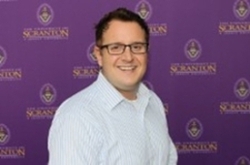
Arthur Catino, Ph.D., assistant professor of chemistry, will research “A New Method for the Preparation of Tetraarylmethanes.” Dr. Catino joined Scranton’s faculty in 2013. He earned his bachelor’s degree from Franklin and Marshall College and his Ph.D. from the University of Maryland. He was also a National Institutes of Health postdoctoral fellow at Harvard University.
Daniel Haggerty, Ph.D., professor of philosophy, will study “Developing Philosophy Curriculum for the RN to BSN Program at The University of Scranton.” Dr. Haggerty, who joined Scranton’s faculty in 2005, earned his bachelor’s degree from St. Joseph’s University and his Ph.D. from Syracuse University.
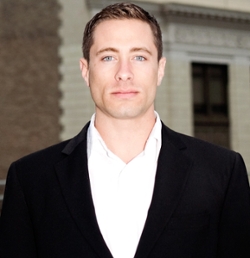
Michael Jenkins, Ph.D., associate professor of sociology, criminal
justice and criminology, will research “International Police and Civil Society Organizations in Peacekeeping.” Dr. Jenkins, who joined Scranton’s faculty in 2013, earned his bachelor’s degree from the University of Scranton and his master’s degree and Ph.D. from Rutgers University.Barry Kuhle, Ph.D., associate professor of psychology, will study “On the Origin of the Evolution Revolution: Conversations with the Pioneers of Evolutionary Psychology, Biology, and Anthropology.” Dr. Kuhle joined Scranton’s faculty in 2009. He earned his bachelor’s degree from Binghamton University and his Ph.D. from the University of Texas at Austin.
Matthew Meyer, Ph.D., associate professor of philosophy, will research “A Phenomenology of Nietzsche’s Free Spirit.” Dr. Meyer joined Scranton’s faculty in 2010. He earned his bachelor’s degree from the University of St. Thomas, his master’s degree from Harvard University and his Ph.D. from Boston University.
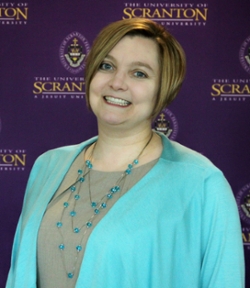
Patricia Wright, Ph.D., associate professor of nursing, will study “Certified Hospice and Palliative Nurse (CHPN) Certification and Practice Review.” Dr. Wright joined Scranton’s faculty in 2007. She earned her bachelor’s and master’s degrees from Misericordia University and her Ph.D. from
Loyola University of Chicago.University of Scranton Faculty Awarded Summer Scholarship Grants


